Program

 Competitions
Competitions
This year we show 84 films in three competitions – the International and German Competition as well as the Triple Axel. We meet filmmakers, make connections and raise questions. All three competitions show feature films as well as documentaries, hybrid formats, animations and 3D productions. The International Competition presents current aesthetics and new narratives, the German Competition the best from the nationwide short film and film school scene. In the competition for the Triple Axel, films are shown that are a maximum of 3 minutes long and are dedicated to this year's theme "Mission Impossible".

 German Competition
German Competition

Best of Deutscher Wettbewerb share
Best of German Competition share
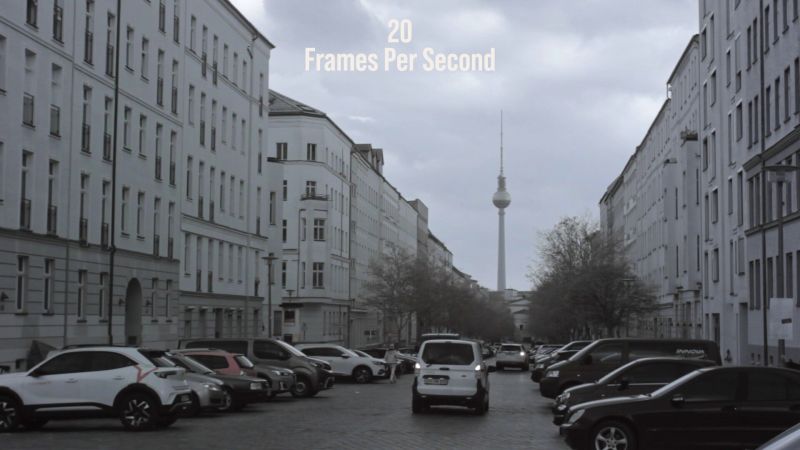
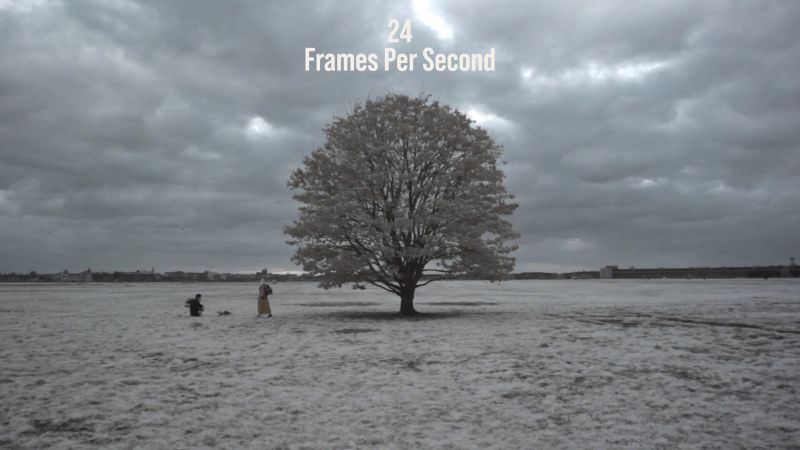
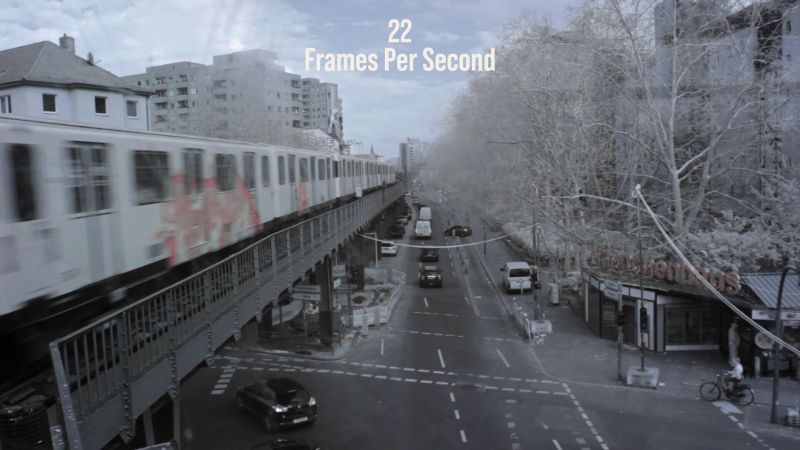
 Invisible Countdown
Invisible Countdown
Deutschland 2024 | Black & White and Color |
13:59 | Englisch
 Invisible Countdown
Invisible Countdown
Germany 2024 | Black & White and Color |
13:59 | English
Dürfen jüdische Menschen in Deutschland den Krieg in Gaza kritisch sehen? Oder fühlen sie sich zur Solidarität mit Israel verpflichtet? Amir fragt sich, wie er hier als friedliebender Jude wahrgenommen wird. Infrarotaufnahmen bieten die Ästhetik der Umkehrung. Das Unsichtbare wird sichtbar, das Sichtbare fremd. Geräuschunterdrückende Kopfhörer lassen für einen Moment das Äußere zugunsten des Inneren verstummen. Im Bild: der Countdown von 24 auf null Bilder pro Sekunde.
Content notes:
Political Violence, Antisemitism, Refugee experience and/or war, Racism
Are Jewish people in Germany allowed to take a critical view of the war in Gaza? Or do they feel obliged to show solidarity with Israel? Amir wonders how he is perceived here as a peace-loving Jew. Infrared images offer the aesthetics of reversal. The invisible becomes visible, the visible alien. Noise-cancelling headphones momentarily silence the outside in favour of the inside. In the picture: the countdown from 24 to zero frames per second.
Content notes:
Political Violence, Antisemitism, Refugee experience and/or war, Racism
Regie, Produzent:in, Darsteller:innen:
Director, Producer, Cast:
Amir Ovadia Steklov
The New Jews (2025), Bi the Way (2022), Don’t Be a DICK! (2020), Charging Up (2020), Hamudi (2020), Between Two Walls (2019), In the Next Lifetime (2014)
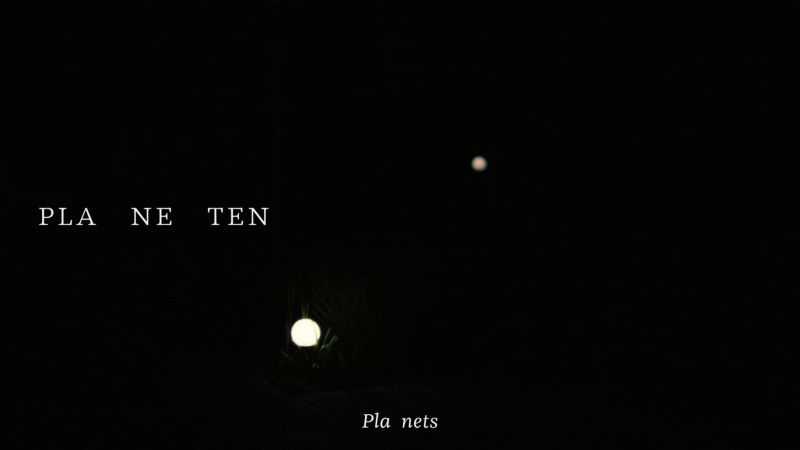
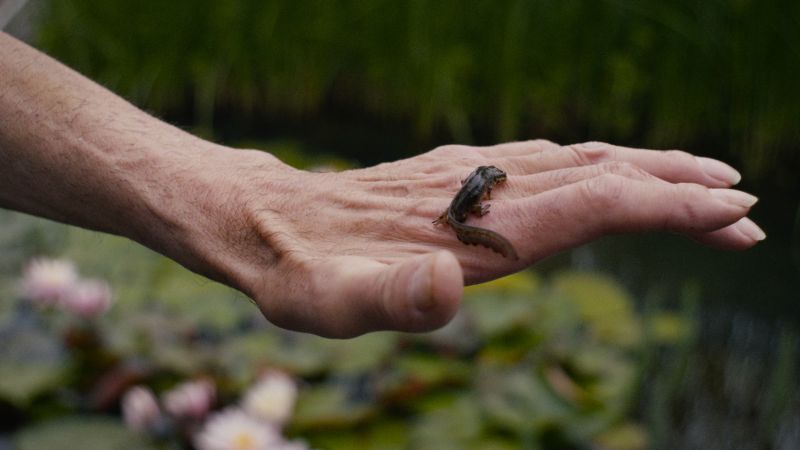
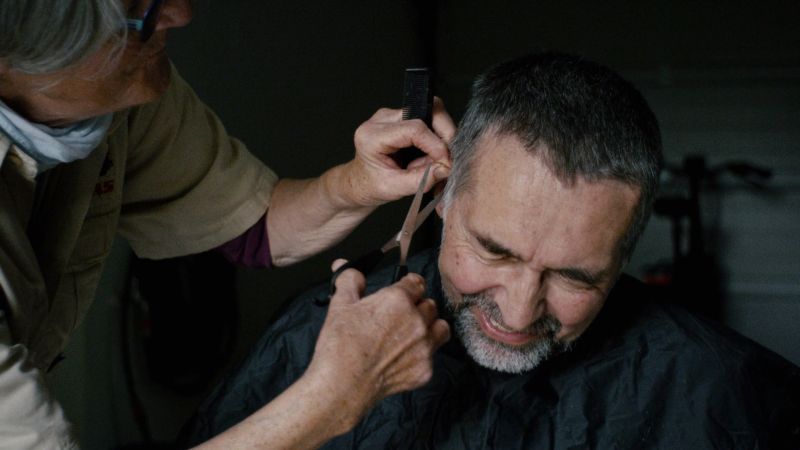
 Die Stimme des Ingenieurs (The Engineer's Voice)
Die Stimme des Ingenieurs (The Engineer's Voice)
Deutschland 2024 | Farbe |
20:45 | Deutsch
 Die Stimme des Ingenieurs (The Engineer's Voice)
Die Stimme des Ingenieurs (The Engineer's Voice)
Germany 2024 | Color |
20:45 | German
Töne, Worte und Sätze werden gesprochen und aufgezeichnet, vielleicht zum allerletzten Mal. Nur das Unvermeidliche wird nicht erwähnt. Es liegt jenseits des Gesagten und des Beschriebenen. Der Film erzählt von dem, was vor, nach und zwischen den Worten existiert, von dem Verschwinden einer Stimme und dem Widerstand dagegen. Eine Liebesgeschichte in der ostwestfälischen Provinz. Jedes Bild und jeder Ton ist ein Kosmos für sich und irgendwo dazwischen: Stille.
Sounds, words, and sentences are spoken and recorded, perhaps for the very last time. Only the inevitable is not mentioned. It lies beyond what is said and described. The film tells of what exists before, after and between the words, of the disappearance of a voice and the resistance to it. A love story in the East Westphalian province. Every image and every sound is a cosmos in itself and somewhere in between: silence.
Regie, Editing:
Director, Editing:
André Siegers
Kamera, Ton:
Director of photography, Sound design:
Karsten Krause
Produzent:in:
Producer:
Karsten Krause
Produzent:in:
Producer:
Julia Cöllen
Produzent:in:
Producer:
Frank Scheuffele
Darsteller:innen:
Cast:
Carol Siegers
Darsteller:innen:
Cast:
Konrad Siegers
La Empresa (2022), Souvenir (2014)
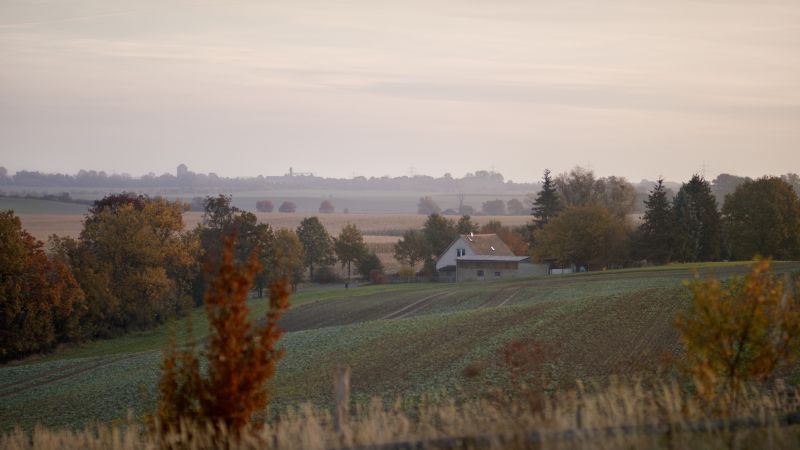
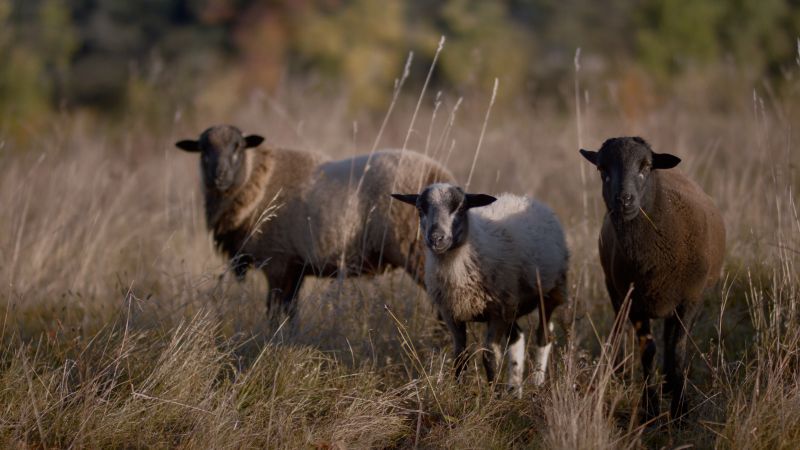
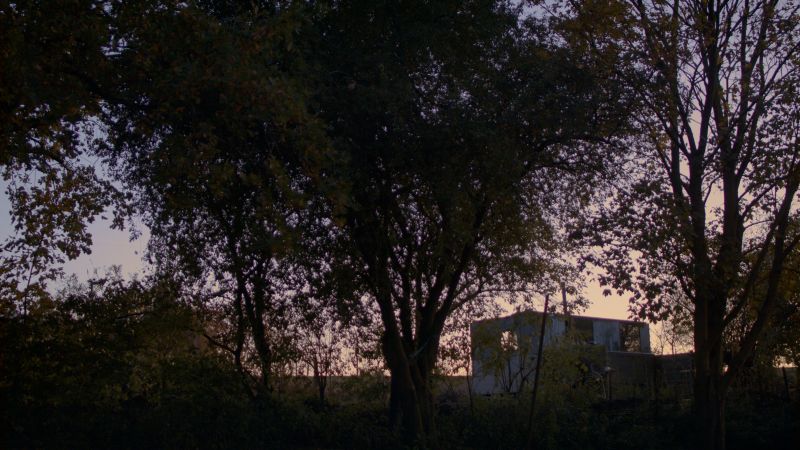
 Whether Here or There
Whether Here or There
Deutschland 2024 | Farbe |
15:04 | Englisch
 Whether Here or There
Whether Here or There
Germany 2024 | Color |
15:04 | English
Goldene Herbstlandschaft auf der Bildebene, Schafe grasen im hohen Feld, Holzscheite stehen ordentlich aufgebaut am Hauseingang. Auf der Tonebene berichtet eine Frau von den Herausforderungen in Chicago bis hin zur Familiengründung in der abgelegenen deutschen Prärie. Eine Reise zu sich selbst, in der sie ihre Erfahrungen mit der Integration als Person of Color schildert. Eins ist sicher: Den lokalen Nazi hat sie bereits im Griff.
Content notes:
Racism
Golden autumn landscape on the pictorial level, sheep graze through the high field, logs are artfully arranged at the entrance to the house. On the audio level, a woman talks about the challenges of living in Chicago and starting a family on the remote German prairie. A journey to herself, in which she describes her experiences of integration as a Person of Color. One thing is certain: she already has the local Nazi under control.
Content notes:
Racism
Regie, Kamera, Editing, Produzent:in:
Director, Director of photography, Editing, Producer:
Amir Naumann
Ton:
Sound design:
Niels Maier
Capital Time Machines (2021), Rivulets (2020), Second Sticks (2019)
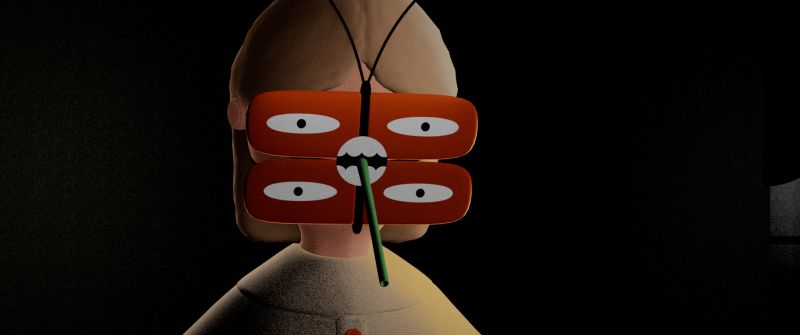
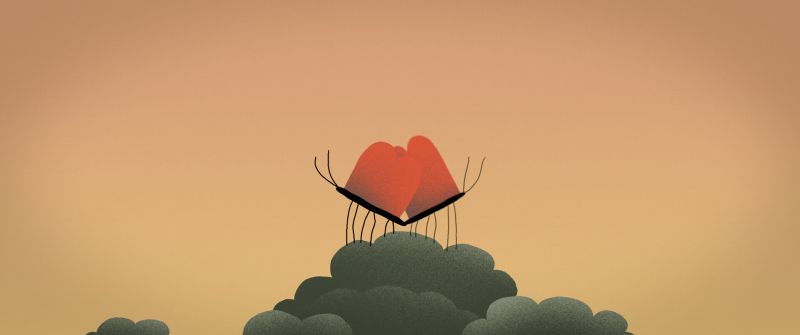
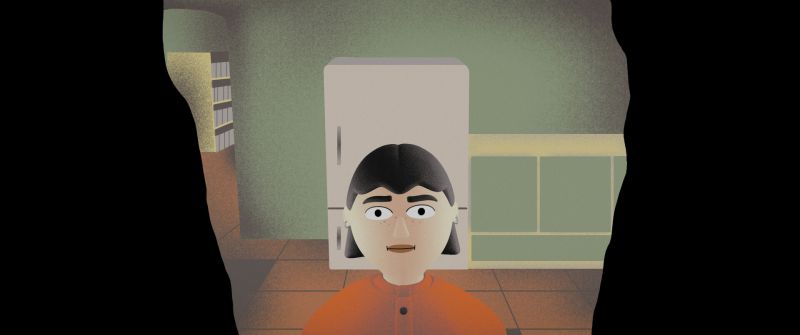
 Butterfly Kiss
Butterfly Kiss
Deutschland 2024 | Farbe |
10:34 | Hebräisch
 Butterfly Kiss
Butterfly Kiss
Germany 2024 | Color |
10:34 | Hebrew
Nach einem unerwarteten Heiratsantrag gerät Carol in Panik und streitet sich mit ihrer Freundin Ray. Die Situation eskaliert, als sie in einer apokalyptischen Welt aufwacht und entsetzt entdeckt, dass Ray sich in einen Schmetterling verwandelt hat. Rays Verwandlung, die Invasion der Außenwelt in ihr Zuhause und die wachsenden Spannungen zwischen den beiden setzen ihre Beziehung unter Druck. Carol hat Angst, Ray zu verlieren. Wird ihre Liebe am Ende über alles siegen?
After an unexpected marriage proposal, Carol panics and argues with her friend Ray. The situation escalates when she wakes up in an apocalyptic world and is horrified to discover that Ray has turned into a butterfly. Ray's transformation, the invasion of their home by the outside world and the growing tensions between them put their relationship under pressure. Carol is afraid of losing Ray. Will their love triumph in the end?
Regie, Animation, Script, Editing:
Director, Animation, Script, Editing:
Zohar Dvir
Kamera:
Director of photography:
Maria Prokopenko
Ton:
Sound design:
Max Gausepohl
Produzent:in:
Producer:
Fabian Driehorst
Produzent:in:
Producer:
Amit Russel Gicelter
Darsteller:innen:
Cast:
Carolina Lehan
Darsteller:innen:
Cast:
Michal Porat
Half as Sweet (2023), Mercury’s Retrograde (2021), Intergalactic Love Story: Part 1 (2020), We are Future Shock (2019)
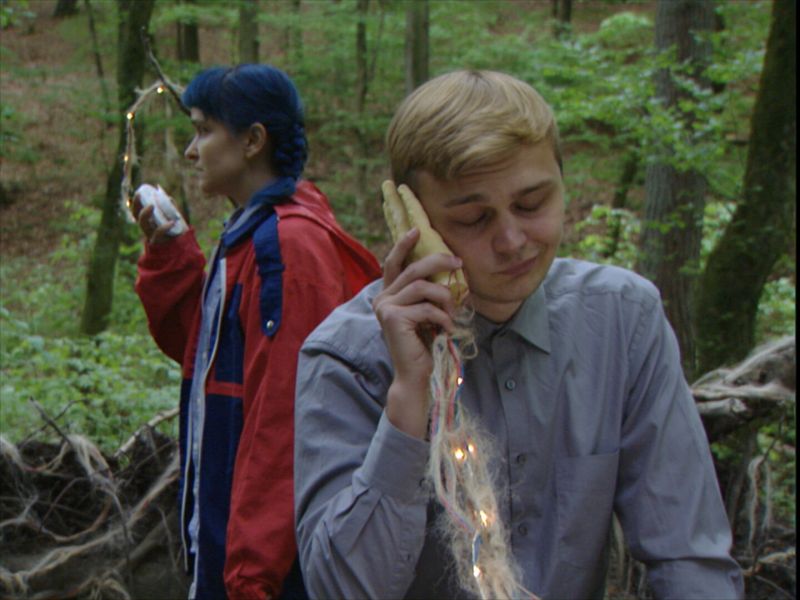
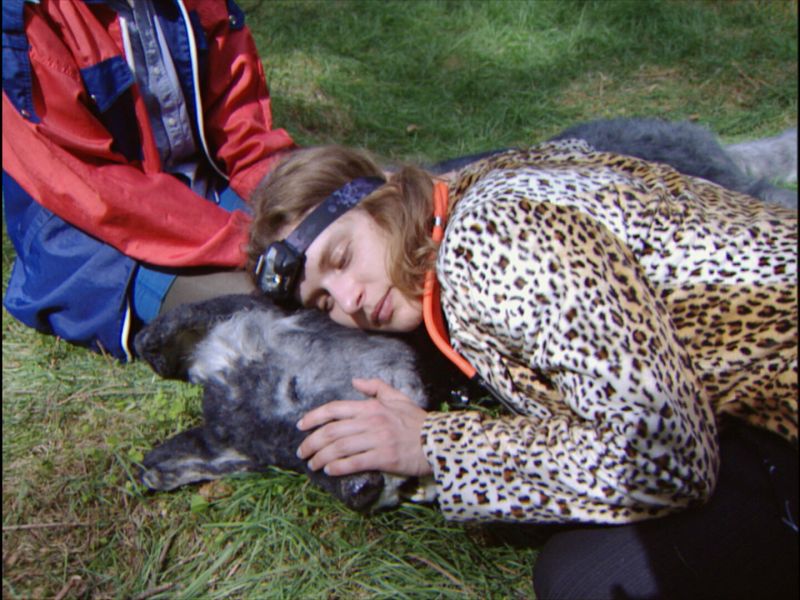
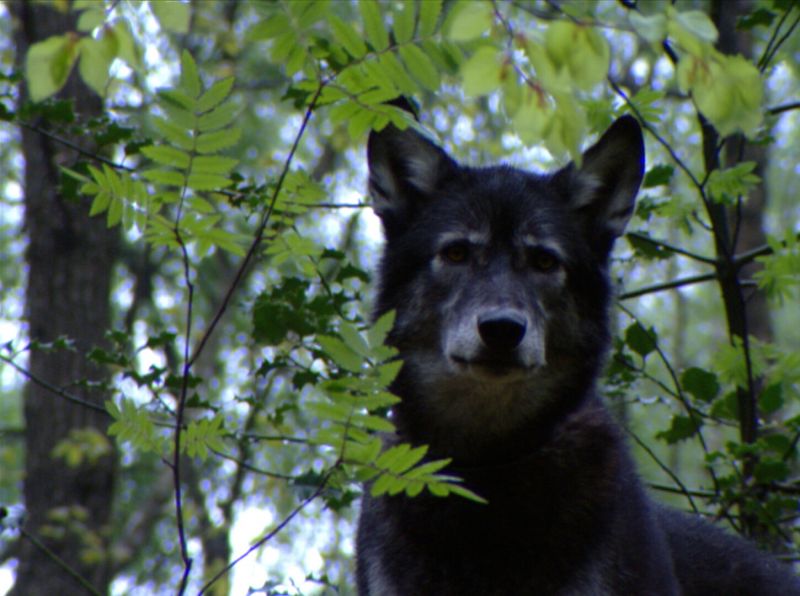
 The Wolf
The Wolf
Deutschland 2024 | Farbe |
20:04 | Englisch, Deutsch
 The Wolf
The Wolf
Germany 2024 | Color |
20:04 | English, German
Bela verirrt sich im Wald. Plötzlich entdeckt sie einen Wolf. Sie folgt ihm. Gemeinsam mit einer Tiermedizinerin, gekleidet im Leopardenfell, beobachtet sie das Tier bei seiner Verwandlung zum Werwolf –»und Cut!« Ein Film über das Filmemachen, Taxidermie, Studierende ohne Schauspielerfahrung und untrainierte Tiere, mit besten Low-Budget-Spezialeffekten. Gedreht im professionellen Digi-Beta-Format, ganz in der Tradition des Genres. Auuuuuuh!
Bela gets lost in the forest. Suddenly she spots a wolf. She follows it. Together with a veterinarian, dressed in a leopard skin, she observes the animal as it transforms into a werewolf – »and cut!« A film about filmmaking, taxidermy, students without acting experience, and untrained animals, with the best low-budget special effects. Shot in professional digi-beta format, in the tradition of the genre. Ah-hooooo!
Regie:
Director:
Naama Heiman
Kamera:
Director of photography:
Nora Daniels
Ton:
Sound design:
Peter Simon
Animation:
Animation:
Bela Bulgakova
Nils Ramme
Picnic at Hanging Rock (2021)

DW 1: Verhaltensmuster share
GC 1: Patterns of Behavior share
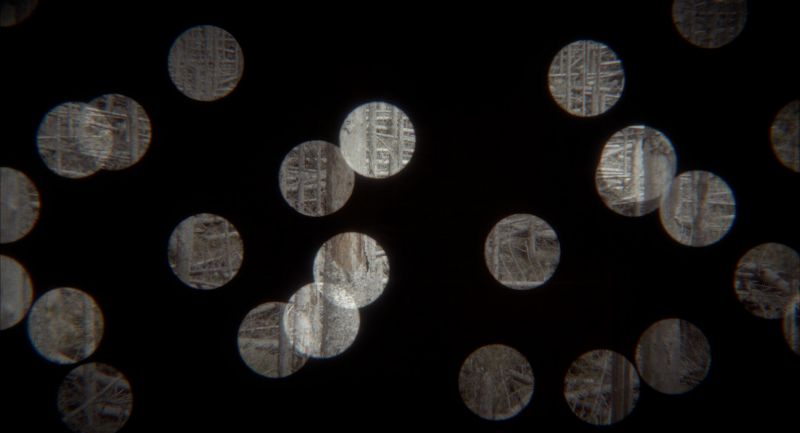
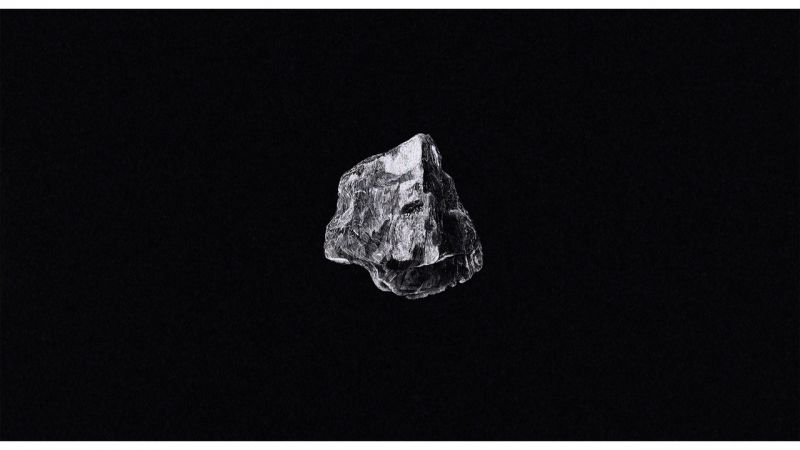
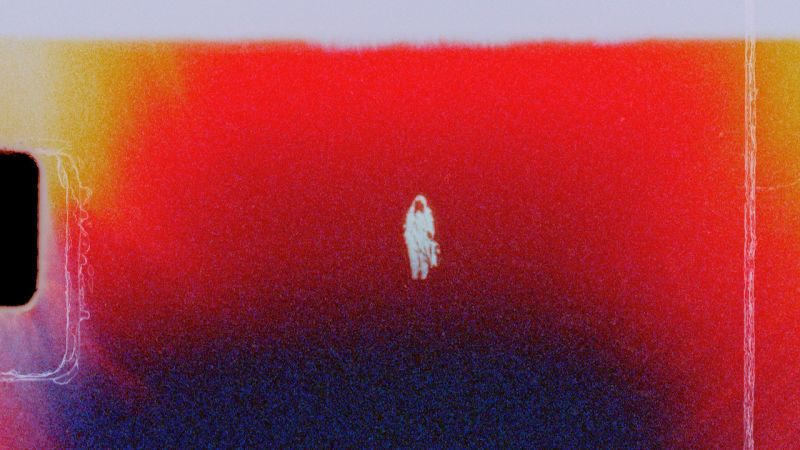
 Les Rites de Passage
Les Rites de Passage
Deutschland 2024 | Farbe |
14:40 | Englisch
 Les Rites de Passage
Les Rites de Passage
Germany 2024 | Color |
14:40 | English
Monokulturelle Wälder zerfallen, Erinnerungen versteinern, Rituale verweben sich mit dem Wandel der Zeit. Kleine Öffnungen in Baumrinden werden zu Kameras, durch die die Fossilien lebendig erscheinen. In Teilen analog gefilmt, entfaltet das visuelle Korn eine mystische Magie. Ein tausend Jahre alter Ort zur Himmelsbeobachtung, ausgerichtet auf die Lichtachse der Sonnenwenden. Dort begegnet eine leuchtende Gestalt den Geschichten – eine flüchtige Verbindung von Mensch, Natur und Geist.
Content notes:
Strobe effects and/or flashing images
Monocultural forests decay, memories petrify, rituals interweave with the change of times. Little openings in tree barks become cameras through which fossils appear alive. Partially filmed in analog, the visual grain unfolds a mystical magic. A place for observing the sky, which had been aligned with the axis of the solstices for a thousand years. This is where a luminous figure encounters the stories – a fleeting connection between man, nature, and spirit.
Content notes:
Strobe effects and/or flashing images
Regie, Kamera, Editing:
Director, Director of photography, Editing:
Florian G.M. Fischer
Regie, Kamera, Editing, Music, Ton:
Director, Director of photography, Editing, Music, Sound design:
Johannes Krell
Produzent:in:
Producer:
Ray Peter Maletzki
Produzent:in:
Producer:
Stephan Helmut Beier
Darsteller:innen:
Cast:
Malin-Valerie Schmid
Umbra (2019), Kaltes Tal (2016), Still Life (2014)
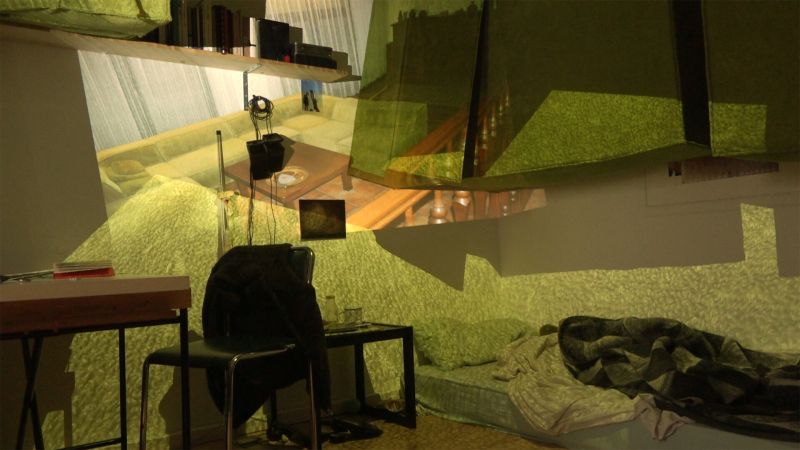
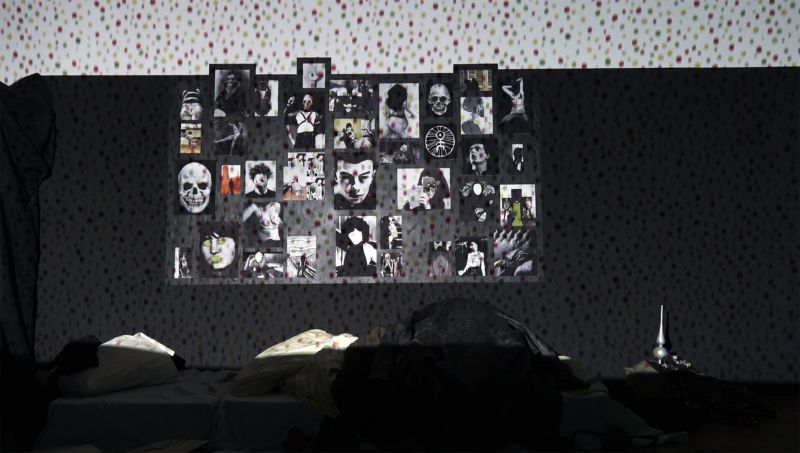
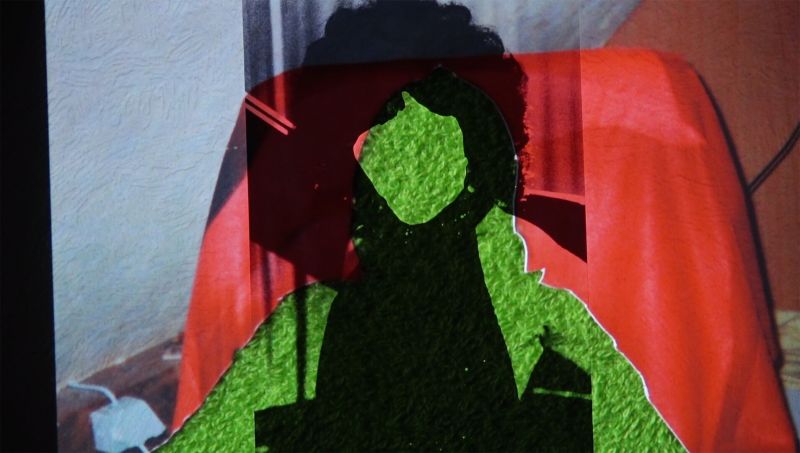
 Ich hätte lieber einen anderen Film gemacht (I would have liked to make a different film)
Ich hätte lieber einen anderen Film gemacht (I would have liked to make a different film)
Deutschland 2024 | Farbe |
23:31 | Deutsch
 Ich hätte lieber einen anderen Film gemacht (I would have liked to make a different film)
Ich hätte lieber einen anderen Film gemacht (I would have liked to make a different film)
Germany 2024 | Color |
23:31 | German
Suse Itzel berichtet im Voiceover vom sexuellen Missbrauch durch ihren Vater in ihrer Kindheit und Jugend. Sie spricht über die Folgen, die diese Erfahrungen hinterlassen haben. Auf der Bildebene erforscht sie die Räume von damals, die nicht mehr existieren. Projektionen von Fotos zeigen Erinnerungen, doch die Familie bleibt unsichtbar. Ein Film, der schmerzhaft notwendig ist – ein künstlerischer Akt der Selbstermächtigung inmitten einer von Gewalt geprägten Biografie.
Content notes:
Domestic Violence, Mental Health, Discrimination against women, Physical violence, Sexual assault or rape
In the voiceover, Suse Itzel talks about how her father sexually abused her in her childhood and youth. She talks about the consequences of these experiences. On the visual level, she explores the rooms from that past which no longer exist. Projections of photos show memories, but the family remains invisible. A film that is painfully necessary – an artistic act of self-empowerment in the midst of a biography marked by violence.
Content notes:
Domestic Violence, Mental Health, Discrimination against women, Physical violence, Sexual assault or rape
Produzent:in:
Producer:
Kunsthochschule für Medien Köln
Regie, Kamera, Editing:
Director, Director of photography, Editing:
Suse Itzel
Music:
Music:
Lisa Reutelsterz
Ton:
Sound design:
Lisa Reutelsterz
Wir haben so schön geschlafen (2018), o.T. - Santa Maria (2014), Der Teil und das Ganze (2014), Auflösung: Tapeten — Betten (2008)
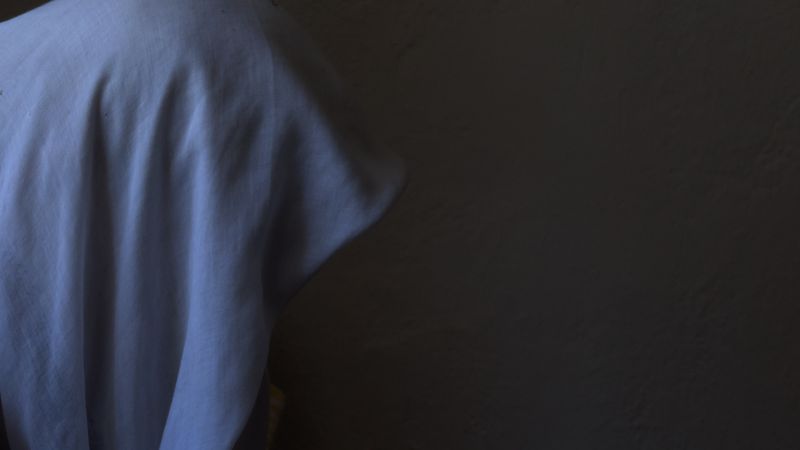
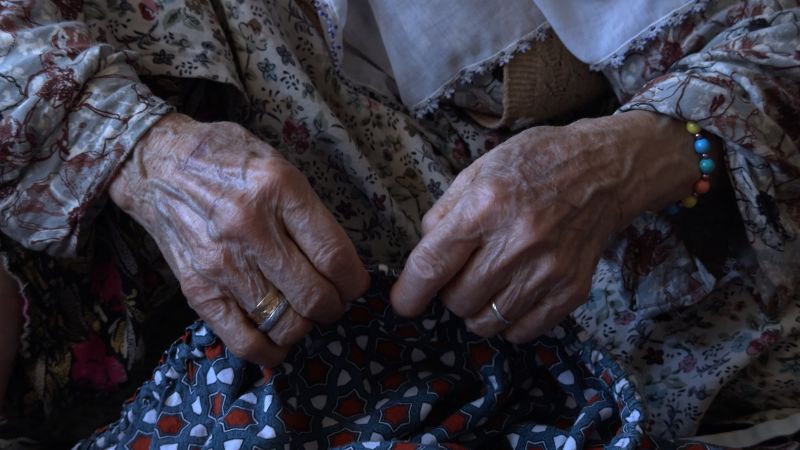
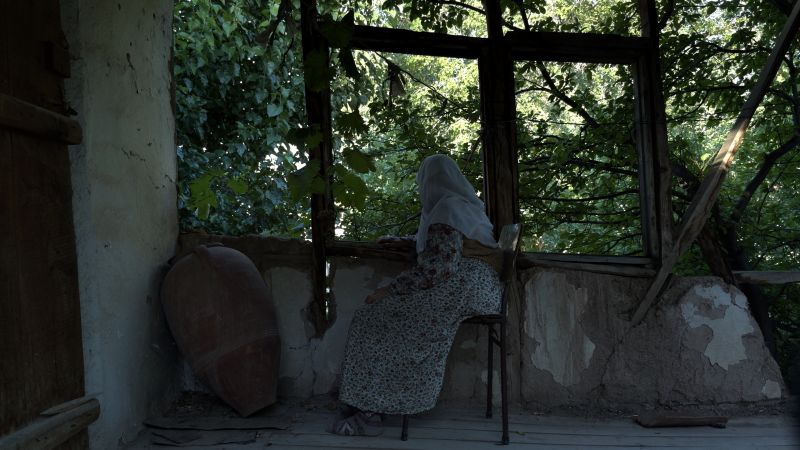
 Gelin, Ah Gelin
Gelin, Ah Gelin
Deutschland 2025 | Farbe |
16:20 | Türkisch
 Gelin, Ah Gelin
Gelin, Ah Gelin
Germany 2025 | Color |
16:20 | Turkish
Eine alte Frau lebt allein in ihrem Haus in einem türkischen Dorf. Die Kamera begleitet sie bei ihren alltäglichen Ritualen, der Blick ist auf sie fokussiert, doch sie erwidert diesen nicht. Ihre Hände, gezeichnet vom Leben, arbeiten routiniert, während sie von den neuesten Eheschließungen spricht. Ein Versuch des Dialogs und der Kontaktaufnahme. Eine Auseinandersetzung mit familiären Strukturen, unausgesprochenen Sorgen und Leerräumen zwischen den Generationen.
An old woman lives alone in her house in a Turkish village. The camera accompanies her in her daily rituals, and even though the gaze is focused on her, she does not return it. Her hands, marked by life, work routinely as she talks about the latest marriages. An attempt at dialog and making contact. An examination of family structures, unspoken worries, and empty spaces between the generations.
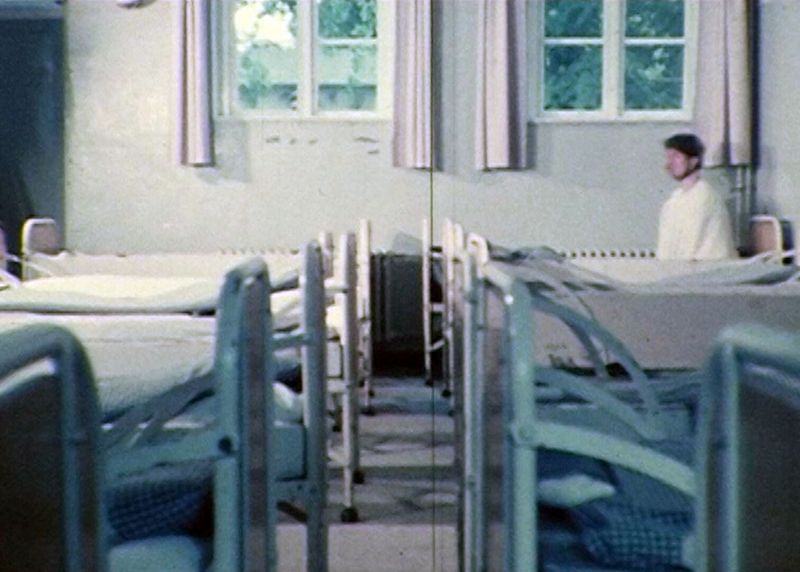
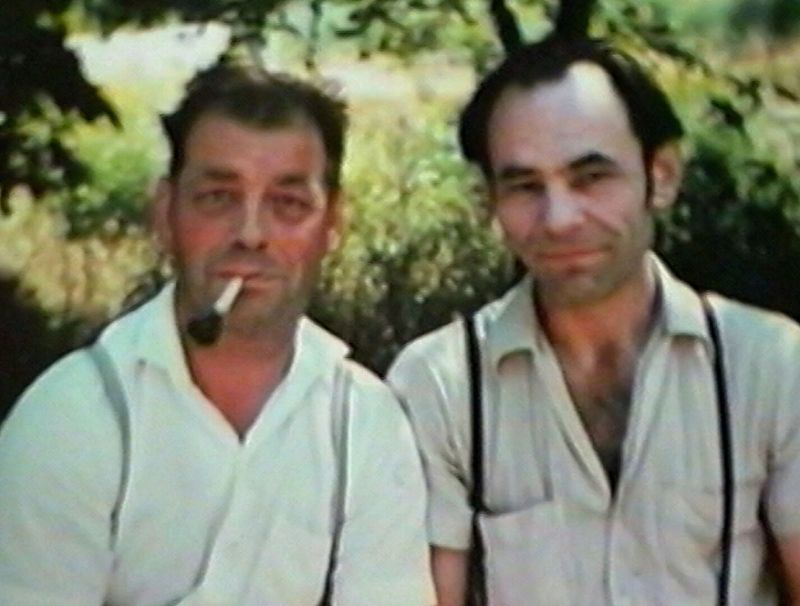
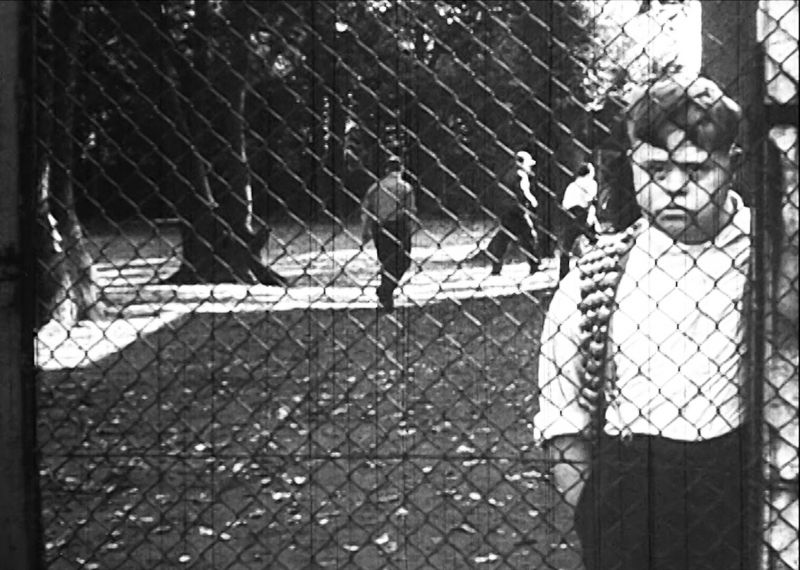
 Eigentlich wollte ich nicht lange bleiben (Actually, I didn't want to stay long)
Eigentlich wollte ich nicht lange bleiben (Actually, I didn't want to stay long)
Deutschland 2025 | Farbe |
23:22 | Deutsch
 Eigentlich wollte ich nicht lange bleiben (Actually, I didn't want to stay long)
Eigentlich wollte ich nicht lange bleiben (Actually, I didn't want to stay long)
Germany 2025 | Color |
23:22 | German
»Hauptsache Großstadt!« Mit 17 zog es Andreas Grützner Ende der 1970er-Jahre nach Hamburg. Seine erste Arbeitsstelle führte ihn zu den Alsterdorfer Anstalten, einem Ort, der ihn prägte. Im Voiceover erinnert er sich an den gewaltvollen Umgang mit den dort untergebrachten Menschen. Später arbeitete er in einer offenen Wohngruppe, wo enge Freundschaften entstanden. Begleitet von eigenen und historischen Archivaufnahmen nähert sich der Filmemacher seiner Biografie – und einer traumatischen Erfahrung, die eine Reflexion auslöst.
Content notes:
Ableism, Mental Health, Physical violence
»The main thing is the big city!« In the late 1970s, at the age of seventeen, Andreas Grützner moved to Hamburg. His first job took him to the Alsterdorfer Anstalten, a place that left its mark on him. In the voiceover, he remembers the violent treatment of the people housed there. He later worked in an open residential group, where close friendships developed. Accompanied by his personal archive as well as historical footage, the filmmaker approaches his biography – and a traumatic experience that triggers reflection.
Content notes:
Ableism, Mental Health, Physical violence
Regie, Produzent:in:
Director, Producer:
Andreas Grützner
Land der Gegenden (2019), CHRIST/EL (2016), Romy, ich bin krank (2013), Oz (2011), Das hat mit Gerechtigkeit wenig zu tun (2011), Hier spricht Walter (2004)

DW 2: Memorabilia share
GC 2: Memorabilia share
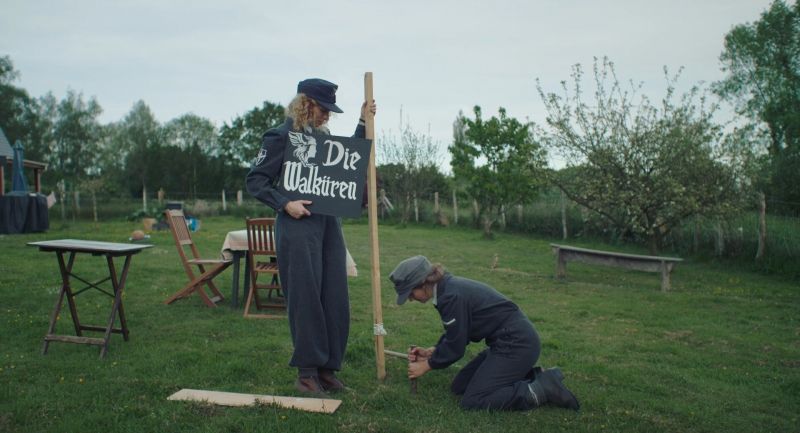
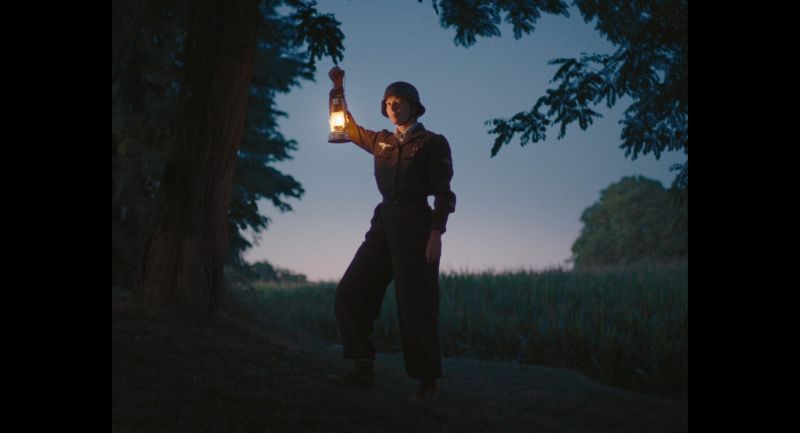
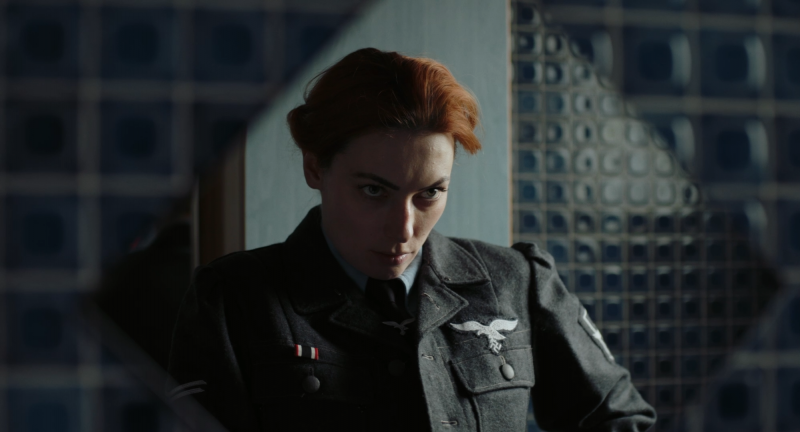
 A War I've Never Seen
A War I've Never Seen
Deutschland 2023 | Farbe |
29:27 | Französisch
 A War I've Never Seen
A War I've Never Seen
Germany 2023 | Color |
29:27 | French
Fast 80 Jahre nach dem Zweiten Weltkrieg steht Julia auf einem Feld in der Normandie in Frankreich. Sie trägt eine deutsche Wehrmachtsuniform und repräsentiert damit eine Ideologie, an die sie nicht glaubt. Julia ist russischer Herkunft, verkörpert jedoch eine deutsche Flakhelferin der 1940er-Jahre, eine Figur, die sie für ihr Reenactment-Hobby erfunden hat. Trotz des Bewusstseins um die dunkle Vergangenheit Deutschlands lebt sie in einer selbst geschaffenen Wirklichkeit, die ihren eigenen Regeln folgt.
Content notes:
Refugee experience and/or war
Almost 80 years after World War Two, Julia is standing in a field in Normandy in France. She is wearing a German Wehrmacht uniform, representing an ideology in which she does not believe. Julia is of Russian origin, but embodies a German flak helper from the 1940s, a character she invented for her re-enactment hobby. Despite being aware of Germany's dark past, she lives in a self-created reality that follows its own rules.
Content notes:
Refugee experience and/or war
Regie, Produzent:in:
Director, Producer:
Fariba Buchheim
Kamera:
Director of photography:
Manuel Lübbers
Andere:
Other:
Robin Scherm
Andere:
Other:
Ludwig Barth
Ton:
Sound design:
Arash Akrami
Editing:
Editing:
Sophie Oldenbourg
Andere:
Other:
Zé Maria Abreu Santos
Music:
Music:
Martin Linka
Andere:
Other:
Tamara Aul
(Selection) Milk - Nurturing Confidence (2025), Dear Pancreas (2024), EXIT - Selbstbestimmt (2023), Bruder Julian (2022), Alina (2021), Work for Him (2019)
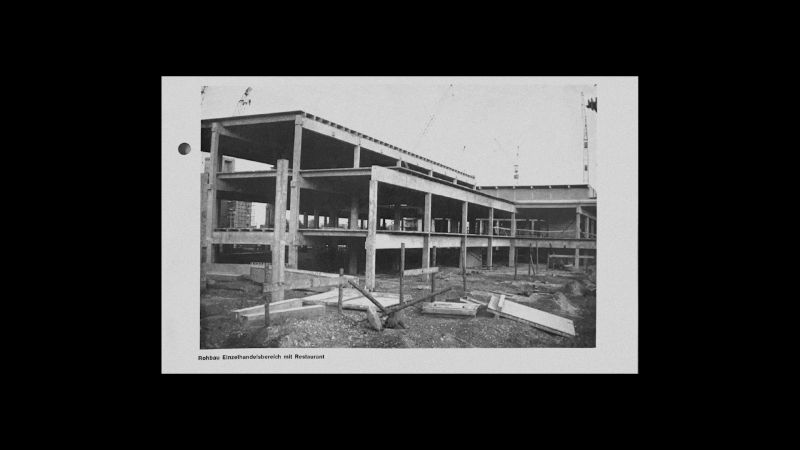
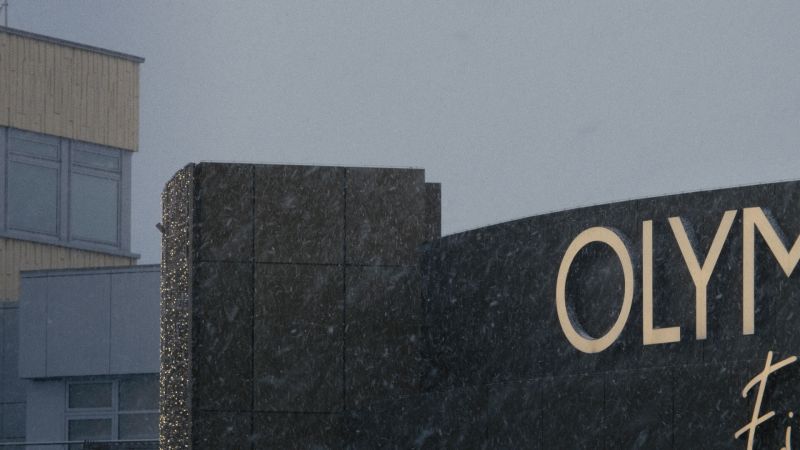
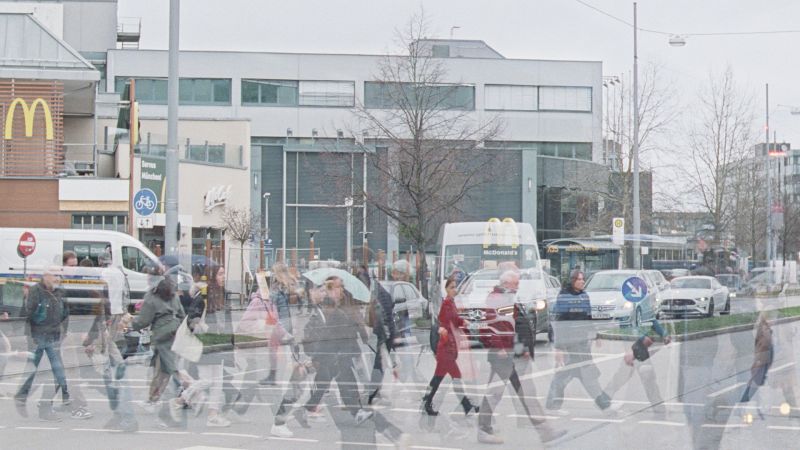
 rückblickend betrachtet (in retrospect)
rückblickend betrachtet (in retrospect)
Deutschland 2025 | Farbe |
14:56 | Deutsch, Englisch
 rückblickend betrachtet (in retrospect)
rückblickend betrachtet (in retrospect)
Germany 2025 | Color |
14:56 | German, English
Für die Olympischen Spiele 1972 in München bauten viele Arbeitsmigrant:innen ein Einkaufszentrum – einst das größte Europas. 2016 wurde derselbe Ort zum Schauplatz eines rassistischen Anschlags. Alle Opfer stammen aus migrantischen Familien. Mit Found Footage, Archivmaterialien und aktuellen Aufnahmen entwickelt der Film eine Archäologie des Ortes. Die Schichten rassistischer Gewalt in der Vergangenheit und Gegenwart der Bundesrepublik werden offengelegt. Die zentrale Frage bleibt: Warum dieser Hass?
Content notes:
Political Violence, Racism, Suicide or self-harm
For the 1972 Olympic Games in Munich, many migrant workers erected a shopping center – once the largest in Europe. In 2016, the same place became the scene of a racist attack. All the victims were from migrant families. Using found footage, archive material and current recordings, the film develops an archaeology of the site. The layers of racist violence in Germany both past and present are revealed. The central question remains: Why this hatred?
Content notes:
Political Violence, Racism, Suicide or self-harm
Sales, Verleihfirma:
Sales, Distributor:
Square Eyes
Regie, Produzent:in, Script:
Director, Producer, Script:
Daniel Asadi Faezi
Regie, Produzent:in, Script:
Director, Producer, Script:
Mila Zhlutenko
Kamera:
Director of photography:
Tobias Blickle
Ton:
Sound design:
Andrew Mottl
Music:
Music:
Hora Lunga
Script:
Script:
Kristina Kilian
Im stillen Erwachen (2022), Aralkum (2022)
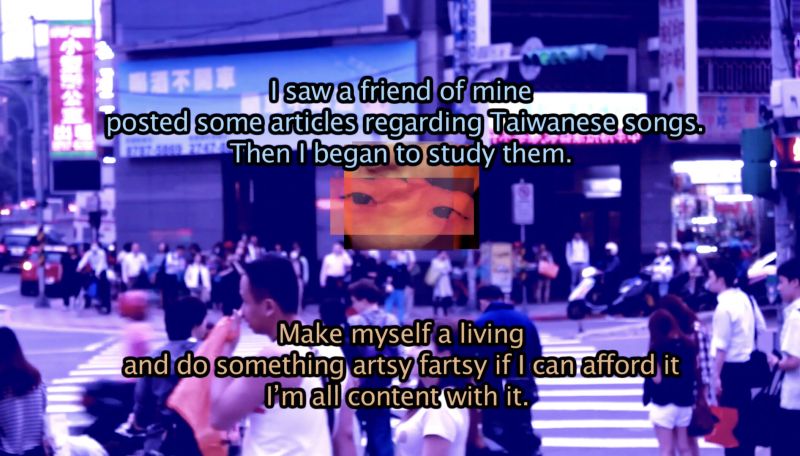
 巧巧果 (Ciao Ciao Guo)
巧巧果 (Ciao Ciao Guo)
Taiwan, Deutschland 2024 | Farbe |
06:37 | Mandarin Chinese
 巧巧果 (Ciao Ciao Guo)
巧巧果 (Ciao Ciao Guo)
Taiwan, Germany 2024 | Color |
06:37 | Mandarin Chinese
Eine verklärte Kindheitserinnerung: ein knuspriges Dessert mit Loch in der Mitte, gesehen in einem japanischen Zeichentrickfilm. Die Mutter berichtigt: Es sei ein weicher Donut. Diese kognitive Verzerrung war Inspiration für diesen Film, der die Grenzen der subjektiven Wahrnehmung herausfordert. Bilder und Töne vermischen und überlagern sich. Straßenlärm, Ausschnitte von Gesichtern, Interviewfetzen. Nur die Antworten der Personen sind sichtbar, die Fragen bleiben verborgen. Denkt man darüber nach, stapelt sich das Bewusstsein.
A glorified childhood memory: a crispy dessert with a hole in the middle, seen in a Japanese cartoon. The mother corrects: It was a soft doughnut. This cognitive distortion inspired this film, which challenges the boundaries of subjective perception. Images and sounds mix and overlap. Street noise, excerpts of faces, snippets of interviews. Only the people's answers are visible, the questions remain hidden. Once you think about it, consciousness piles up.
Darsteller:innen:
Cast:
Fang-Ying Huang
Darsteller:innen:
Cast:
Hung-Ta Chen
Darsteller:innen:
Cast:
Yu Kuo
Darsteller:innen:
Cast:
Yu-Yin Hsu
Andere:
Other:
Ya-Che Chiang
Regie, Produzent:in:
Director, Producer:
Ying Chen
A Short Year Has the Length of a Long Year (2022), The Fleeting Moment Of Water (2021)



 Whether Here or There
Whether Here or There
Deutschland 2024 | Farbe |
15:04 | Englisch
 Whether Here or There
Whether Here or There
Germany 2024 | Color |
15:04 | English
Goldene Herbstlandschaft auf der Bildebene, Schafe grasen im hohen Feld, Holzscheite stehen ordentlich aufgebaut am Hauseingang. Auf der Tonebene berichtet eine Frau von den Herausforderungen in Chicago bis hin zur Familiengründung in der abgelegenen deutschen Prärie. Eine Reise zu sich selbst, in der sie ihre Erfahrungen mit der Integration als Person of Color schildert. Eins ist sicher: Den lokalen Nazi hat sie bereits im Griff.
Content notes:
Racism
Golden autumn landscape on the pictorial level, sheep graze through the high field, logs are artfully arranged at the entrance to the house. On the audio level, a woman talks about the challenges of living in Chicago and starting a family on the remote German prairie. A journey to herself, in which she describes her experiences of integration as a Person of Color. One thing is certain: she already has the local Nazi under control.
Content notes:
Racism
Regie, Kamera, Editing, Produzent:in:
Director, Director of photography, Editing, Producer:
Amir Naumann
Ton:
Sound design:
Niels Maier
Capital Time Machines (2021), Rivulets (2020), Second Sticks (2019)



 The Wolf
The Wolf
Deutschland 2024 | Farbe |
20:04 | Englisch, Deutsch
 The Wolf
The Wolf
Germany 2024 | Color |
20:04 | English, German
Bela verirrt sich im Wald. Plötzlich entdeckt sie einen Wolf. Sie folgt ihm. Gemeinsam mit einer Tiermedizinerin, gekleidet im Leopardenfell, beobachtet sie das Tier bei seiner Verwandlung zum Werwolf –»und Cut!« Ein Film über das Filmemachen, Taxidermie, Studierende ohne Schauspielerfahrung und untrainierte Tiere, mit besten Low-Budget-Spezialeffekten. Gedreht im professionellen Digi-Beta-Format, ganz in der Tradition des Genres. Auuuuuuh!
Bela gets lost in the forest. Suddenly she spots a wolf. She follows it. Together with a veterinarian, dressed in a leopard skin, she observes the animal as it transforms into a werewolf – »and cut!« A film about filmmaking, taxidermy, students without acting experience, and untrained animals, with the best low-budget special effects. Shot in professional digi-beta format, in the tradition of the genre. Ah-hooooo!
Regie:
Director:
Naama Heiman
Kamera:
Director of photography:
Nora Daniels
Ton:
Sound design:
Peter Simon
Animation:
Animation:
Bela Bulgakova
Nils Ramme
Picnic at Hanging Rock (2021)

DW 3: Blickwechsel share
GC 3: Change of Perspective share
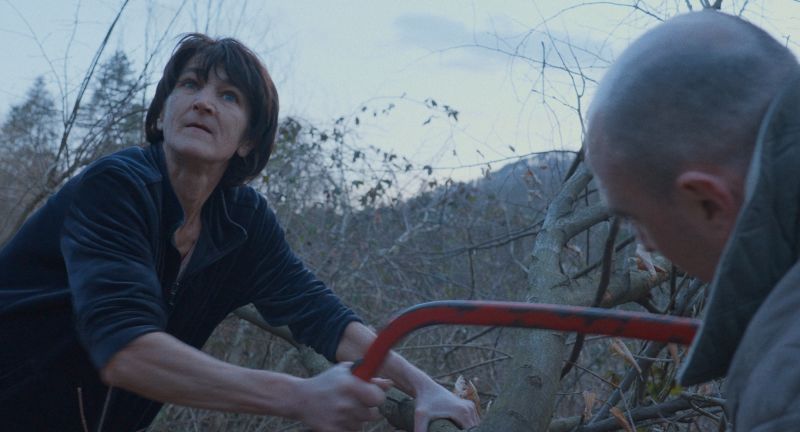
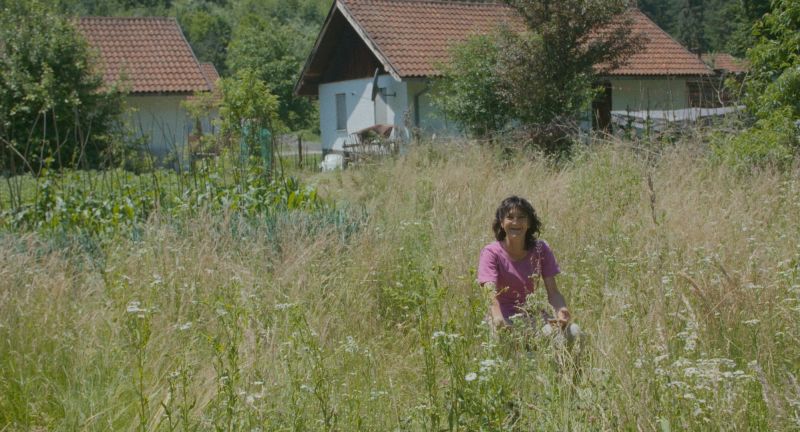
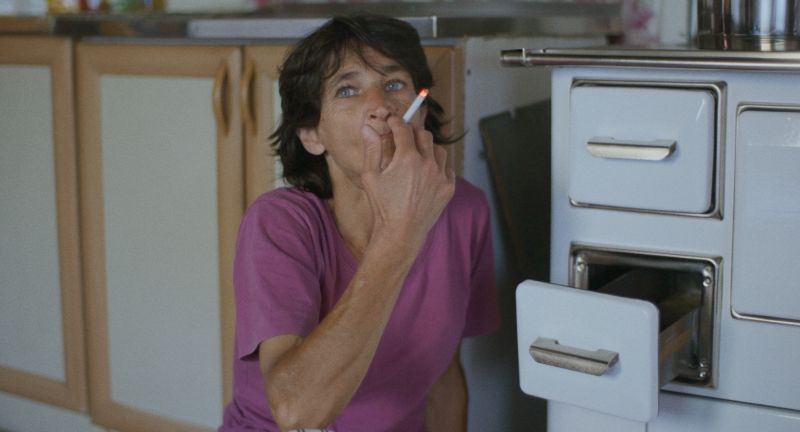
 PREKID VATRE (CEASEFIRE)
PREKID VATRE (CEASEFIRE)
Deutschland, Italien, Slowenien 2025 | Farbe |
31:21 | Bosnisch
 PREKID VATRE (CEASEFIRE)
PREKID VATRE (CEASEFIRE)
Germany, Italy, Slovenia 2025 | Color |
31:21 | Bosnian
Um dem Schmerz zu entkommen, bleibt Hazira ständig in Bewegung: Sie putzt, sie hackt Holz. Stets auf der Flucht vor Erinnerungen, vor der Gegenwart und vor der Angst, dass sich alles wiederholt. Hazira überlebte das Massaker von Srebrenica. Seit fast drei Jahrzehnten lebt sie in einem Flüchtlingslager im eigenen Land. Mit schwarzem Humor und stiller Stärke hält sie dem Trauma stand. 2025 jährt sich der Völkermord zum 30. Mal.
Content notes:
Refugee experience and/or war
To escape the pain, Hazira is constantly on the move: she cleans, she chops wood. Constantly on the run from memories, from the present and from the fear that everything will repeat itself. Hazira survived the Srebrenica massacre. She has been living in a refugee camp in her own country for almost three decades. With gallows humour and quiet strength, she withstands the trauma. 2025 will mark 30 years since the massacre.
Content notes:
Refugee experience and/or war
Regie, Kamera:
Director, Director of photography:
Jakob Krese
Script:
Script:
Meta Krese
Editing:
Editing:
Annika Mayer
Ton:
Sound design:
Gaston Ibarroule
Verleihfirma:
Distributor:
Andrew Norton
Lo que queda en el camino (2021), La Espera (2020)
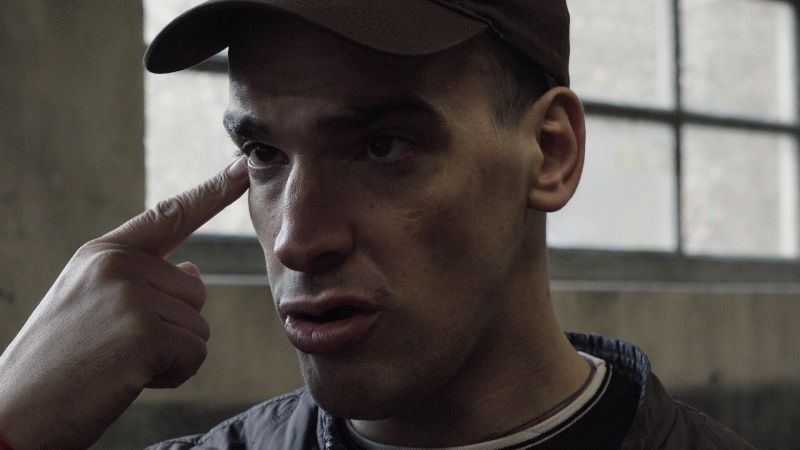
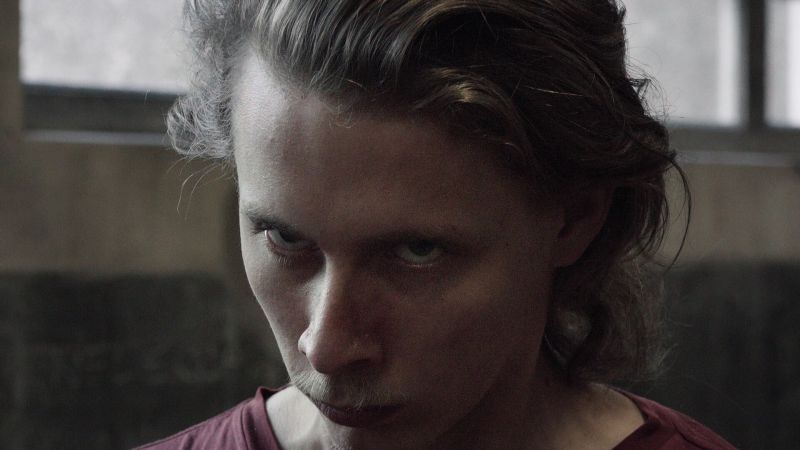
 Cómo ser Pehuén Pedre (How to be Pehuén Pedre)
Cómo ser Pehuén Pedre (How to be Pehuén Pedre)
Argentinien, Deutschland 2024 | Farbe |
22:11 | Spanisch
 Cómo ser Pehuén Pedre (How to be Pehuén Pedre)
Cómo ser Pehuén Pedre (How to be Pehuén Pedre)
Argentina, Germany 2024 | Color |
22:11 | Spanish
Pehuén Pedre bereitet zwei Schauspieler auf eine Prüfung im Standesamt vor. Sie sollen einen Schwerbehindertenausweis erhalten. »Was würdest du an dir selbst verändern?« Wie weit muss man gehen, um eine Rolle glaubhaft zu verkörpern? Und wie gut muss man trainieren, um überzeugend zu täuschen? Eines der schönsten Dinge, die man mit einem Film machen kann, ist es, ihn infrage zu stellen.
Pehuén Pedre prepares two actors for an examination at the registry office. They are to receive a disabled person's pass. »What would you change about yourself?« How far do you have to go to credibly portray a role? And how well do you have to train to deceive convincingly? One of the most beautiful things you can do with a movie is to question it.
Regie, Script:
Director, Script:
Federico Luis
Script, Darsteller:innen:
Script, Cast:
Pehuén Pedre
Editing:
Editing:
Andrés Medina
Ton:
Sound design:
Lautaro Zamaro
Darsteller:innen:
Cast:
Agustín Daulte
Darsteller:innen:
Cast:
Lorenzo Ferro
Produzent:in:
Producer:
Juan Pablo Labonia
Produzent:in:
Producer:
Manuel Abramovich
Produktionsfirma:
Production company:
Ruido
Kontakt:
Contact:
Ruido .ar
Simon of the Mountains (2024), At That Very Moment (2023), Stay Still or I Love You (2023), The Kiss (2021), The Nap (2019), Mirko (2018)



 Invisible Countdown
Invisible Countdown
Deutschland 2024 | Black & White and Color |
13:59 | Englisch
 Invisible Countdown
Invisible Countdown
Germany 2024 | Black & White and Color |
13:59 | English
Dürfen jüdische Menschen in Deutschland den Krieg in Gaza kritisch sehen? Oder fühlen sie sich zur Solidarität mit Israel verpflichtet? Amir fragt sich, wie er hier als friedliebender Jude wahrgenommen wird. Infrarotaufnahmen bieten die Ästhetik der Umkehrung. Das Unsichtbare wird sichtbar, das Sichtbare fremd. Geräuschunterdrückende Kopfhörer lassen für einen Moment das Äußere zugunsten des Inneren verstummen. Im Bild: der Countdown von 24 auf null Bilder pro Sekunde.
Content notes:
Political Violence, Antisemitism, Refugee experience and/or war, Racism
Are Jewish people in Germany allowed to take a critical view of the war in Gaza? Or do they feel obliged to show solidarity with Israel? Amir wonders how he is perceived here as a peace-loving Jew. Infrared images offer the aesthetics of reversal. The invisible becomes visible, the visible alien. Noise-cancelling headphones momentarily silence the outside in favour of the inside. In the picture: the countdown from 24 to zero frames per second.
Content notes:
Political Violence, Antisemitism, Refugee experience and/or war, Racism
Regie, Produzent:in, Darsteller:innen:
Director, Producer, Cast:
Amir Ovadia Steklov
The New Jews (2025), Bi the Way (2022), Don’t Be a DICK! (2020), Charging Up (2020), Hamudi (2020), Between Two Walls (2019), In the Next Lifetime (2014)
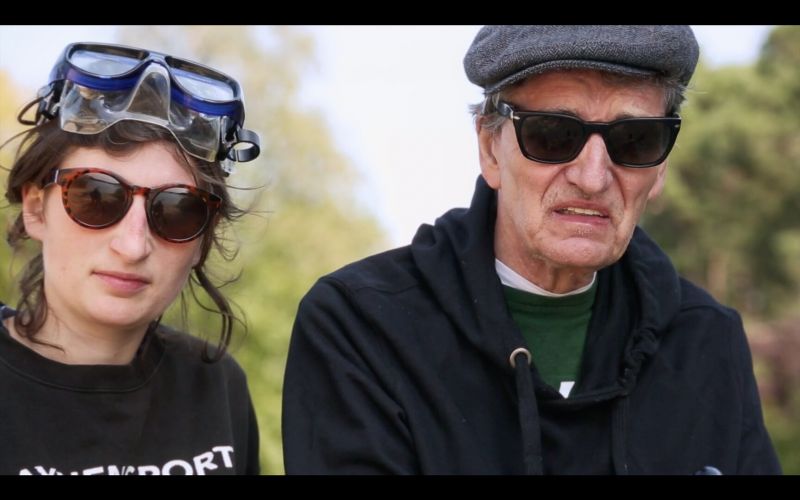
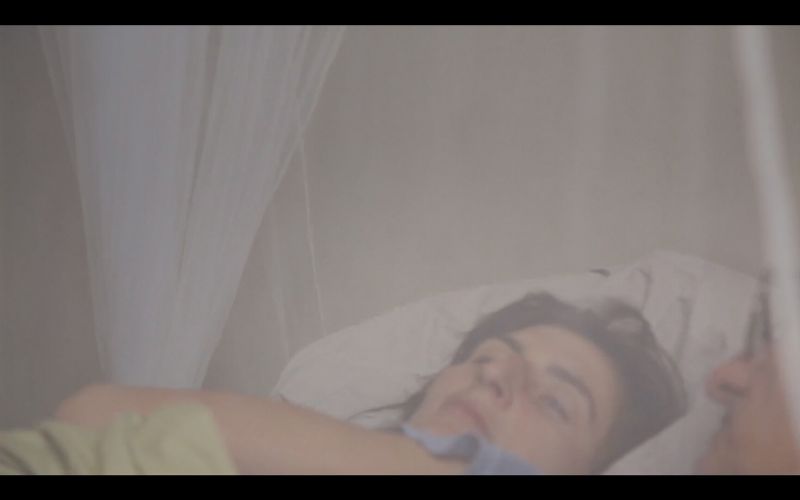
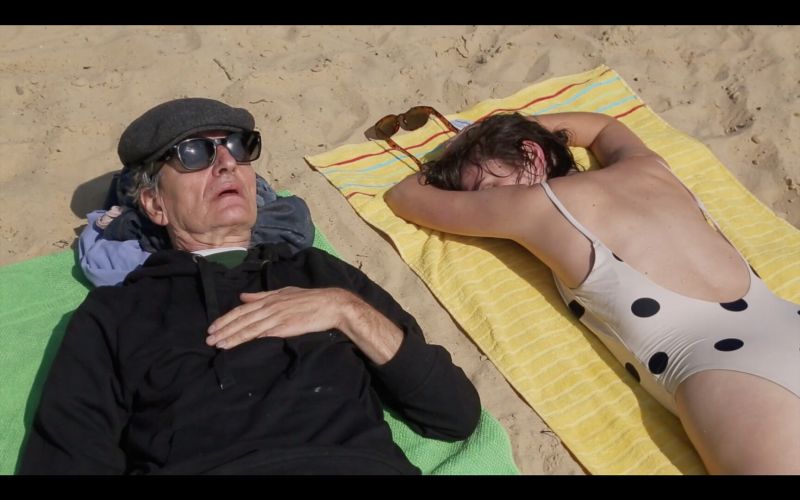
 Augen auf, Augen zu. (EYES WIDE, EYES SHUT )
Augen auf, Augen zu. (EYES WIDE, EYES SHUT )
Deutschland 2024 | Farbe |
14:34 | Deutsch
 Augen auf, Augen zu. (EYES WIDE, EYES SHUT )
Augen auf, Augen zu. (EYES WIDE, EYES SHUT )
Germany 2024 | Color |
14:34 | German
Leonie ist zu Besuch bei ihrem Vater Werner. Sie ist genervt, weil sie das Gefühl hat, dass er sich verändert hat. Er findet sie anstrengend, weil sie dumme Fragen stellt. Werner hat Demenz. Dies bleibt zwischen den beiden unausgesprochen. Als Leonie ihr Portemonnaie in einer Raststätte vergisst, fragt Werner nicht viel und begleitet sie. Eine Reise beginnt, auf der sie einander wiederfinden. Ein Film über Orientierungslosigkeit, Nähe und das gemeinsame Weitermachen – ohne zu wissen, wohin der Weg führt.
Content notes:
Mental Health
Leonie is visiting her father, Werner. She is annoyed because she feels that he has changed. He finds her exhausting because she asks stupid questions. Werner has dementia. This remains unspoken between the two of them. When Leonie forgets her wallet at a rest stop, Werner doesn't ask many questions and accompanies her. A journey begins on which they find each other again. A film about disorientation, closeness and moving on together – without knowing where the road will lead.
Content notes:
Mental Health
Regie, Produzent:in, Script, Kamera:
Director, Producer, Script, Director of photography:
Leonie Minor
Editing:
Editing:
Andreas Wodraschke
Ton:
Sound design:
Clemens Nürnberger
Darsteller:innen:
Cast:
Werner Minor
Theorie und Praxis (2021)

DW 4: Ausflüge share
GC 4: Excursions share
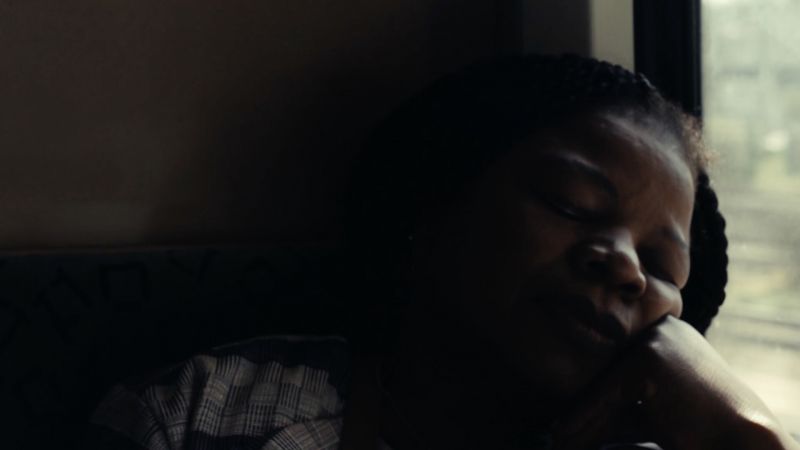
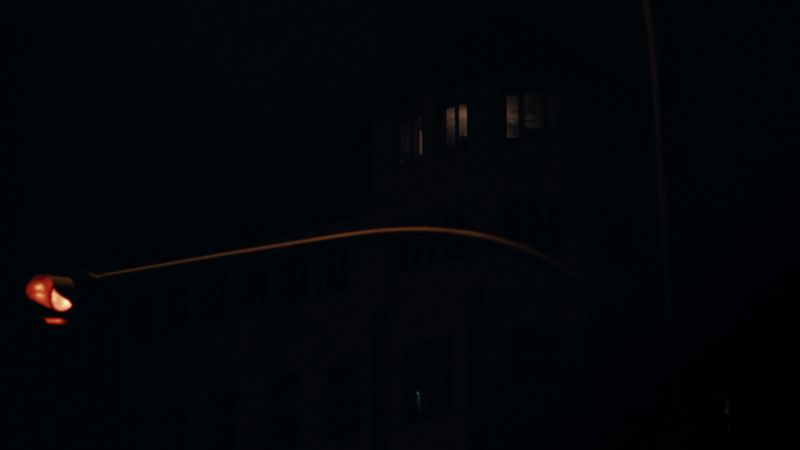
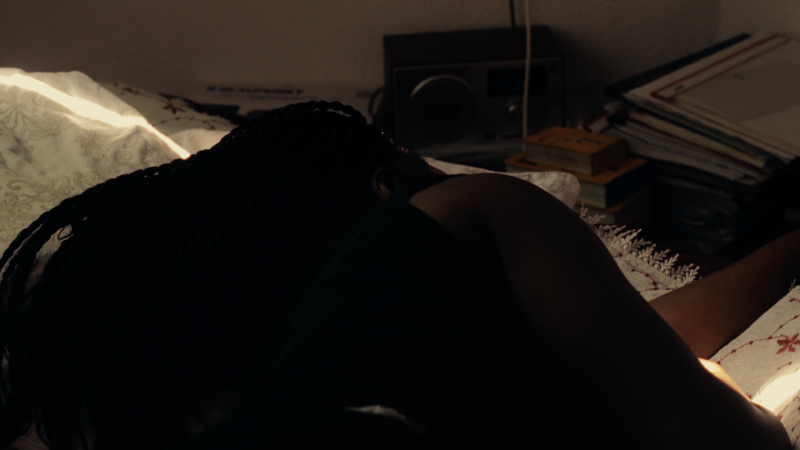
 Die ganze Nacht (The whole night)
Die ganze Nacht (The whole night)
Deutschland, Argentinien, Burkina Faso 2025 | Farbe |
15:10 | Mòoré, Französisch, Deutsch
 Die ganze Nacht (The whole night)
Die ganze Nacht (The whole night)
Germany, Argentina, Burkina Faso 2025 | Color |
15:10 | Mooré, French, German
Rachelle fährt nach Hause, es ist Montagmorgen in Berlin. Issaka, weit entfernt in Ouagadougou in Burkina Faso, schreibt ihr eine Nachricht. Rachelle antwortet mit einer ihrer besonderen Nachrichten, die an die lange Nacht erinnert. Ihr nächtlicher Weg führte sie durch den Tiergarten. Umgeben von Dunkelheit wirken Orte kleiner, fast unwirklich. Eine filmische Nocturne, die sich den Raum durch Sprache aneignet.
Content notes:
Racism
On a Monday morning in Berlin, Rachelle is driving home. Issaka, far away in Ouagadougou in Burkina Faso, writes her a message. Rachelle replies with one of her special messages, a reminder of the long night. Her nocturnal journey took her through Tiergarten. Surrounded by darkness, places seem smaller, almost unreal. A cinematic nocturne that appropriates space through language.
Content notes:
Racism
Regie, Kamera, Editing:
Director, Director of photography, Editing:
Alejo Franzetti
Darsteller:innen:
Cast:
Rachelle Ouederaogo
Produktionsfirma:
Production company:
Fuga Films
Berliner Blätter (2018), Panke (2016), Dos experiencias en el bosque (2014), La destrucción del orden vigente (2012), El contrabajo (2008), Todas las veces (2006)
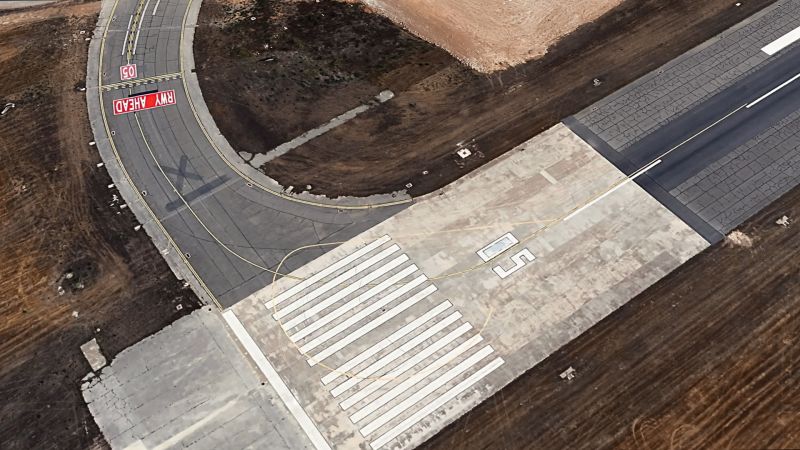

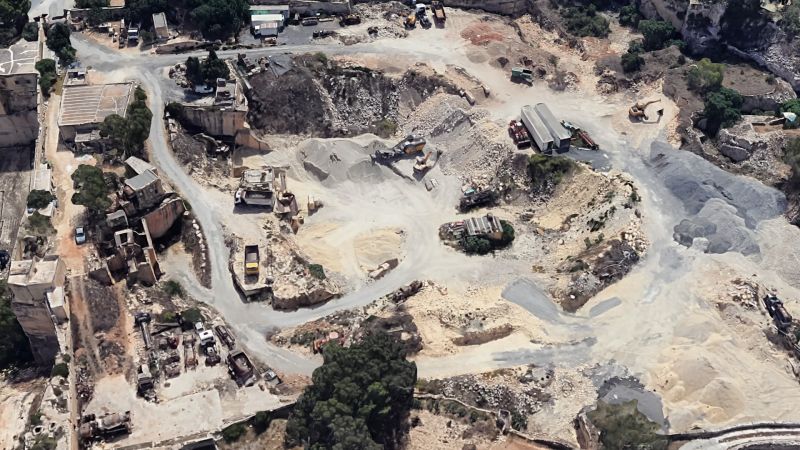
 A RECONNAISSANCE
A RECONNAISSANCE
Deutschland, Dänemark 2025 | Farbe |
29:15 | Englisch, Maltesisch
 A RECONNAISSANCE
A RECONNAISSANCE
Germany, Denmark 2025 | Color |
29:15 | English, Maltese
Die Heron 1 ist eine militärische Langstreckendrohne, die lautlos über dem Mittelmeer kreist und Europas Grenzen kontrolliert. Sie bleibt der Öffentlichkeit verborgen. Spärlich sind die Informationen, fragmentarisch die Spuren. Eine Desktop-Recherche wird zum Ausgangspunkt einer Reise in die Gegenwart und Zukunft der Überwachungstechnologien. Dorthin, wo sich Frontex, der militärisch-industrielle Komplex und eine Gemeinschaft von Flugzeugbeobachter:innen kreuzen.
The Heron 1 is a long-range military drone that circles silently over the Mediterranean and controls Europe's borders. It remains hidden from the public. The information is sparse, the traces fragmentary. A desktop search becomes the starting point for a journey into the present and future of surveillance technologies. It leads to a place where Frontex, the military-industrial complex and a community of aircraft observers intersect.
Produzent:in:
Producer:
Kunsthochschule für Medien Köln
Regie, Editing, Script:
Director, Editing, Script:
Stefan Kruse
Kamera, Music, Ton:
Director of photography, Music, Sound design:
Asbjørn Derdau
Sensitivity in Low Light Conditions (2023), A Lack of Clarity (2020), The Migrating Image (2018)
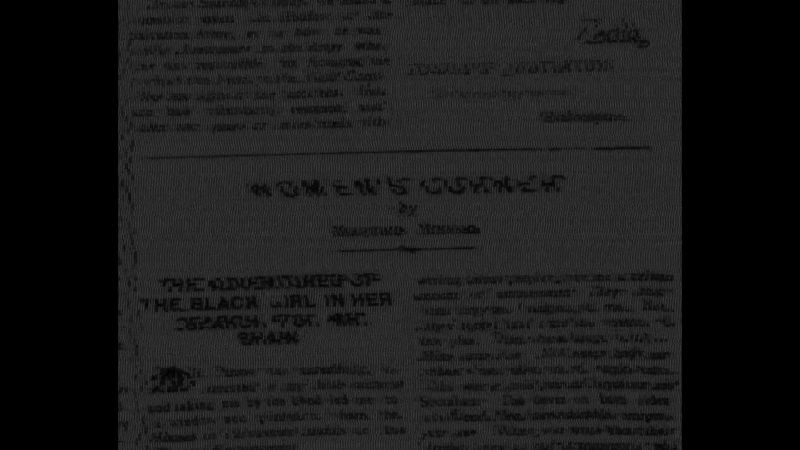
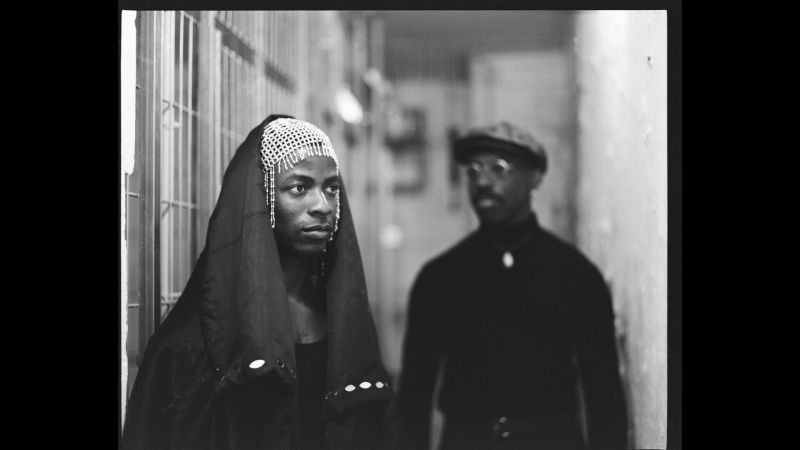
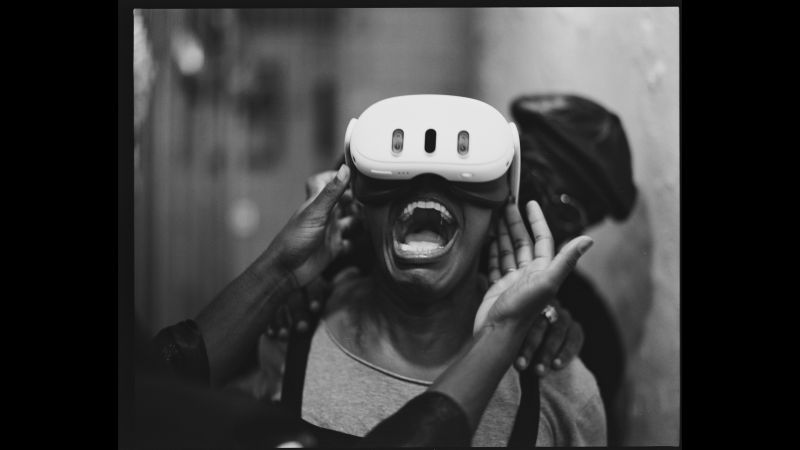
 The Adventures of the Black Girl in Her Search for Mabel Dove
The Adventures of the Black Girl in Her Search for Mabel Dove
Ghana, Deutschland 2024 | Black & White and Color |
14:56 | Englisch
 The Adventures of the Black Girl in Her Search for Mabel Dove
The Adventures of the Black Girl in Her Search for Mabel Dove
Ghana, Germany 2024 | Black & White and Color |
14:56 | English
In einer postapokalyptischen Welt, in der Archive zerstört wurden, begibt sich eine junge Schwarze Frau auf die Suche nach Mabel Dove, einer Schriftstellerin aus der Vergangenheit, deren Werk sie inspiriert. Als ihr weder eine feministische Buchhandlung noch eine Lehrperson für Afrikanistik weiterhelfen können, wendet sie sich an die Revisionist:innen – Historiker:innen aus dem Untergrund –, in deren Cyberarchiv sie Dove schließlich findet und einen gemeinsamen Nachmittag mit ihr verbringt.
Content notes:
Racism
In a post-apocalyptic world where archives have been destroyed, a young Black woman sets out in search of Mabel Dove, a writer from the past whose work inspires her. When neither a feminist bookshop nor a teacher of African studies can help her, she turns to the revisionists – underground historians – in whose cyber archive she finally finds Dove and spends an afternoon with her.
Content notes:
Racism
Regie, Produzent:in:
Director, Producer:
Nnenna Onuoha
Kamera:
Director of photography:
Eno Iyangete
Music composer:
Music composer:
Jessica Longdon
Produzent:in:
Producer:
Kathy-Ann Tan
Darsteller:innen:
Cast:
Mmakgosi Kgabi
Darsteller:innen:
Cast:
Femi Lawal
Darsteller:innen:
Cast:
hn lyonga
Darsteller:innen:
Cast:
Nicole Pearson
Darsteller:innen:
Cast:
Obaro Ejimiwe
Darsteller:innen:
Cast:
Swantje Lichtenstein
The Memory Guardians (2024), Rosenfelde (2021), The A-Team (2021)



 Butterfly Kiss
Butterfly Kiss
Deutschland 2024 | Farbe |
10:34 | Hebräisch
 Butterfly Kiss
Butterfly Kiss
Germany 2024 | Color |
10:34 | Hebrew
Nach einem unerwarteten Heiratsantrag gerät Carol in Panik und streitet sich mit ihrer Freundin Ray. Die Situation eskaliert, als sie in einer apokalyptischen Welt aufwacht und entsetzt entdeckt, dass Ray sich in einen Schmetterling verwandelt hat. Rays Verwandlung, die Invasion der Außenwelt in ihr Zuhause und die wachsenden Spannungen zwischen den beiden setzen ihre Beziehung unter Druck. Carol hat Angst, Ray zu verlieren. Wird ihre Liebe am Ende über alles siegen?
After an unexpected marriage proposal, Carol panics and argues with her friend Ray. The situation escalates when she wakes up in an apocalyptic world and is horrified to discover that Ray has turned into a butterfly. Ray's transformation, the invasion of their home by the outside world and the growing tensions between them put their relationship under pressure. Carol is afraid of losing Ray. Will their love triumph in the end?
Regie, Animation, Script, Editing:
Director, Animation, Script, Editing:
Zohar Dvir
Kamera:
Director of photography:
Maria Prokopenko
Ton:
Sound design:
Max Gausepohl
Produzent:in:
Producer:
Fabian Driehorst
Produzent:in:
Producer:
Amit Russel Gicelter
Darsteller:innen:
Cast:
Carolina Lehan
Darsteller:innen:
Cast:
Michal Porat
Half as Sweet (2023), Mercury’s Retrograde (2021), Intergalactic Love Story: Part 1 (2020), We are Future Shock (2019)
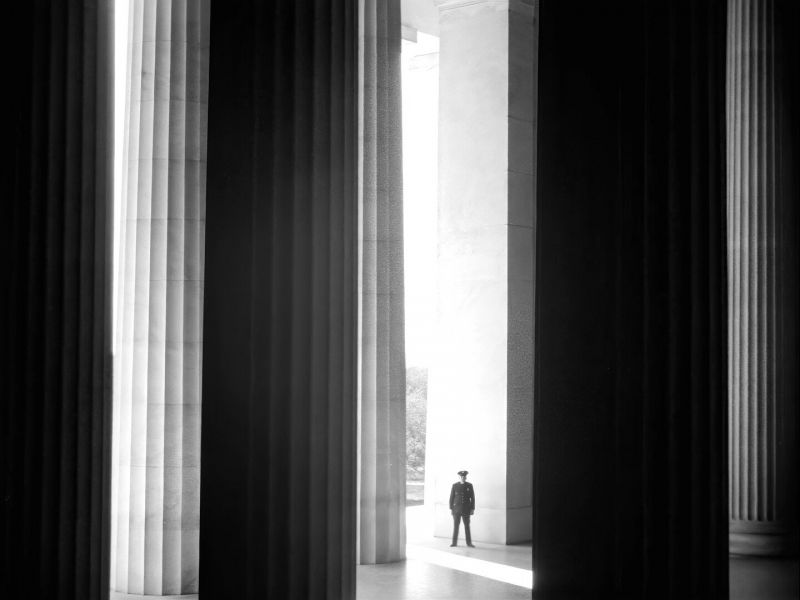
 One Hundred Years Later
One Hundred Years Later
Deutschland 2025 | Schwarz-Weiss |
08:01 | Kein Dialog
 One Hundred Years Later
One Hundred Years Later
Germany 2025 | Black & White |
08:01 | No Dialogue
1939 drehte eine Second Unit, ein zweites Filmteam neben der Hauptcrew, mit einem Double und Statist:innen im Lincoln Memorial Szenen für »Mr. Smith Goes to Washington«. Die langen, geordneten Plansequenzen untergraben die klassische filmische Narration; die Handlung scheint zu stagnieren. Die neoklassizistische Architektur wird zum Schauplatz eines wiederkehrenden Rituals: Der unscheinbare Protagonist verliert sich zwischen den Säulen und verharrt oft vor dem monumentalen Lincoln, als würde er selbst zu einer Skulptur erstarren.
In 1939, a second unit shot scenes for »Mr. Smith Goes to Washington« in the Lincoln Memorial with a double and extras. The long, orderly planned sequences undermine the classic cinematic narration; the plot seems to stagnate. The neoclassical architecture becomes the setting for a recurring ritual: the inconspicuous protagonist loses himself between the columns and often pauses in front of the monumental Lincoln, as if he himself was becoming a sculpture.
Regie, Produzent:in:
Director, Producer:
Christoph Girardet
Ton:
Sound design:
Chris Jones
No Animal (2023), Jishin (2022), Misty Picture (2021), Screen (2018), It Was Still Her Face (2017), personne (2016), Synthesis (2015)

DW 5: Zwischenzeiten share
GC 5: Inbetween Times share
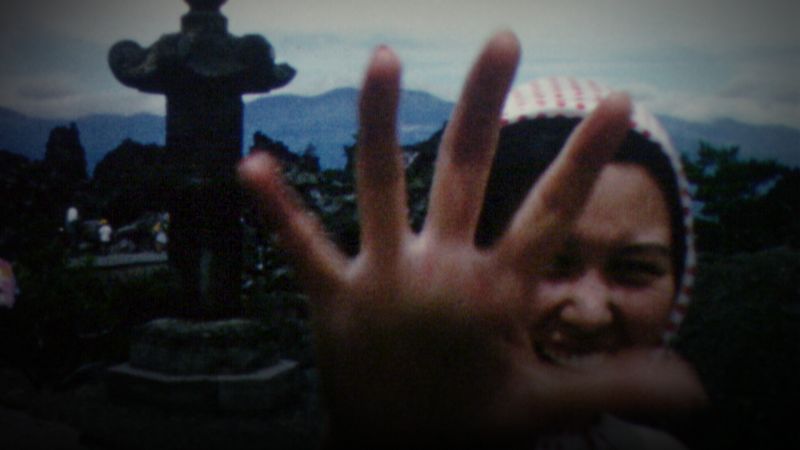
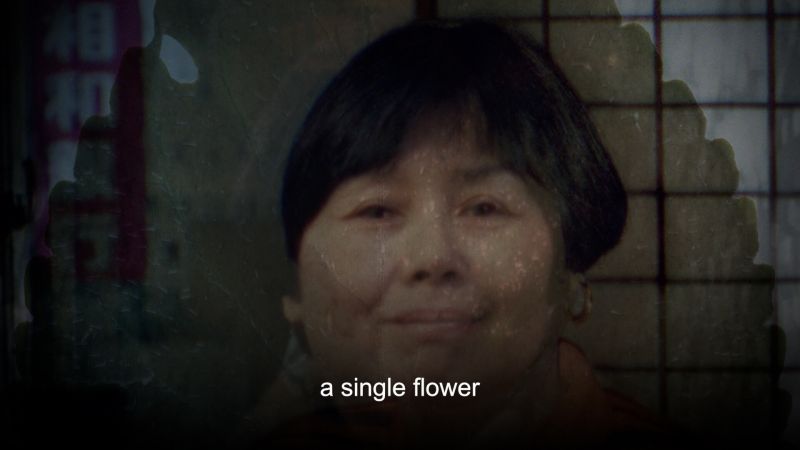
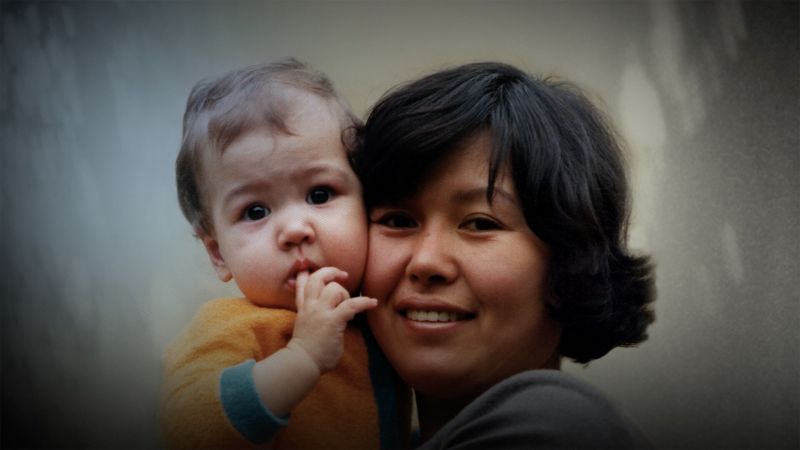
 母の手紙 (Mother's Letter)
母の手紙 (Mother's Letter)
Deutschland 2025 | Black & White and Color |
24:05 | Japanisch
 母の手紙 (Mother's Letter)
母の手紙 (Mother's Letter)
Germany 2025 | Black & White and Color |
24:05 | Japanese
Fotos und Super-8-Aufnahmen aus dem Familienarchiv dienen als Mittel, um sich der Perspektive der Mutter zu nähern. Dabei entdeckt die Filmemacherin die rebellische Vergangenheit ihrer Mutter, die als junge Frau im konservativen Nachkriegsjapan lebte und später nach Deutschland emigrierte. Ein Akt der generationenübergreifenden Erinnerungsarbeit entsteht, bei dem die Stimme der Mutter den Film begleitet und durch Vergangenheit und Gegenwart führt.
Photographs and Super 8 recordings from the family archive serve as a means of approaching the mother's perspective. In doing so, the filmmaker discovers the rebellious past of her mother, who lived as a young woman in conservative post-war Japan and later emigrated to Germany. The result is an act of intergenerational memory work in which the mother's voice accompanies the film and guides us through the past and present.
Regie:
Director:
Sylvia Schedelbauer
Kamera:
Director of photography:
Wolfgang Schedelbauer
Kamera:
Director of photography:
Setsu Tamura-Schedelbauer
(Selection) Oh, Butterfly! (2022), In the Beginning, Woman Was the Sun (2022), Labor of Love (2020), Wishing Well (2018), Sea of Vapors (2014), False Friends (2007)
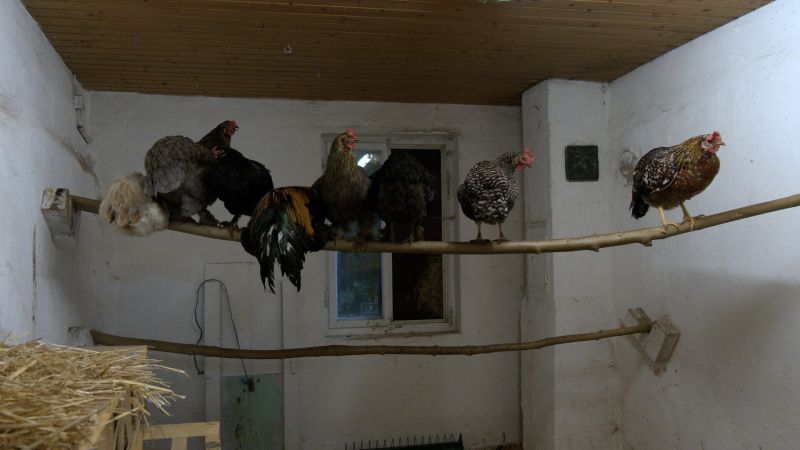
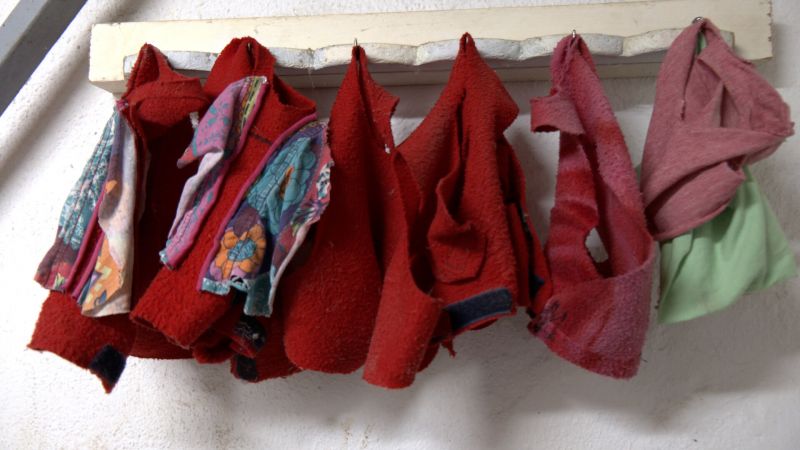
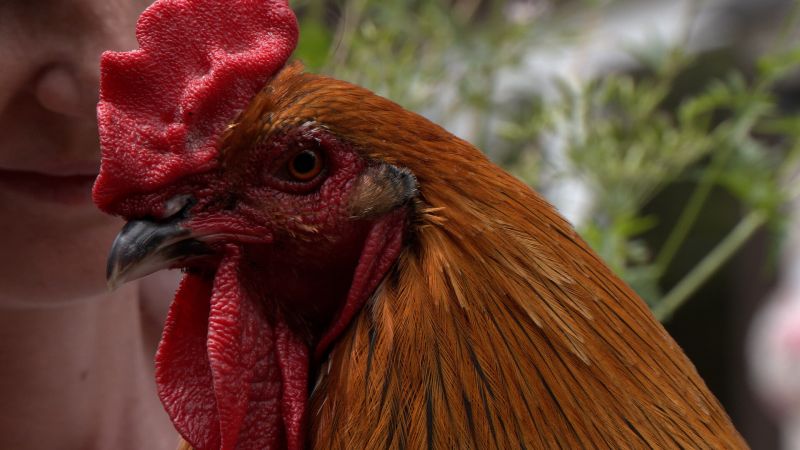
 Hühnergarderobe (Chicken Wardrobe)
Hühnergarderobe (Chicken Wardrobe)
Deutschland 2025 | Farbe |
05:23 | Deutsch
 Hühnergarderobe (Chicken Wardrobe)
Hühnergarderobe (Chicken Wardrobe)
Germany 2025 | Color |
05:23 | German
Anne näht schützende Kleidung für gerettete Hühner. Ausgemusterte Legehennen finden bei ihr nicht nur Zuflucht, sondern auch die Möglichkeit, sich in einem sicheren Umfeld zu erholen. Während ihr Gefieder nachwächst, begleitet Anne sie mit Geduld und Pflege auf dem Weg zur Heilung. Eine sanfte filmische Miniatur, die sich zwischen Kunst, Aktivismus und Alltagsbeobachtung bewegt – ganz im Geiste des einstigen NoBudget-Kurzfilmfestivals.
Content notes:
Animal Cruelty
Anne sews protective clothing for rescued chickens. Not only does she provide refuge for rejected laying hens, but she also gives them the opportunity to recover in a safe environment. While their feathers grow back, Anne accompanies them with patience and care on their way to recovery. A gentle cinematic miniature that moves between art, activism, and everyday observation – very much in the spirit of the former NoBudget-Kurzfilmfestival.
Content notes:
Animal Cruelty
Regie, Kamera, Editing:
Director, Director of photography, Editing:
Simon Dickel
Darsteller:innen:
Cast:
Anne Wiltafsky
Simon Dickel
Simon Dickel
(Selection) Ekbatana (2025), If You See the Sky (2024), Mit Luftpost, by Air Mail, par avion (2023), Ready for Ransom (2022), Sonnige Grüsse (2004), Plop (2003)
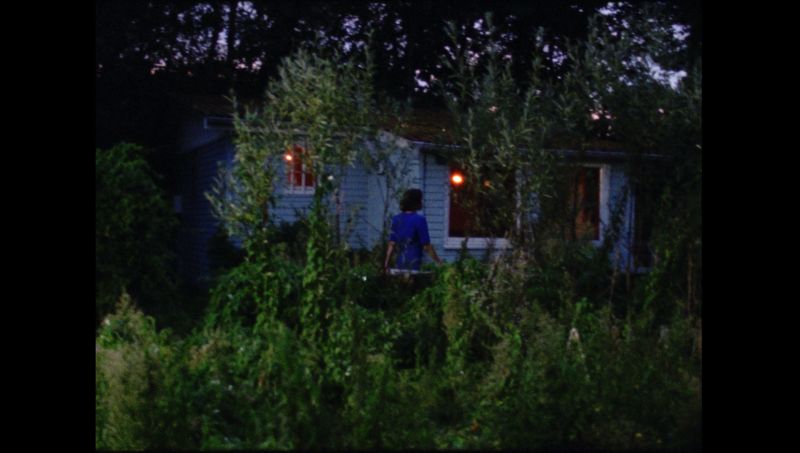
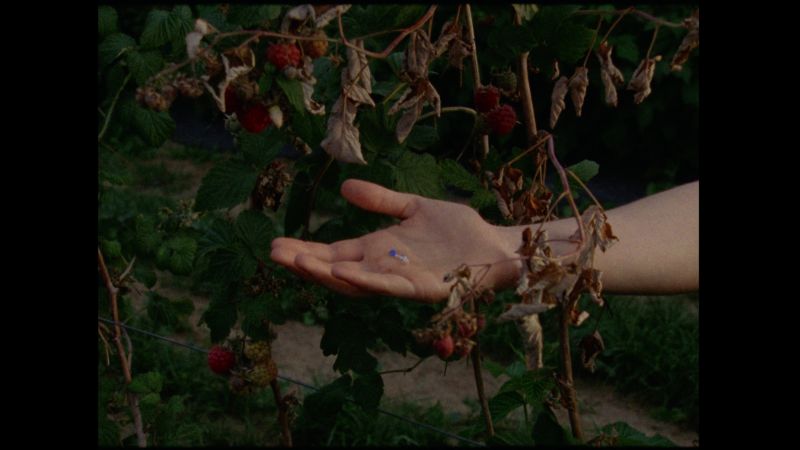
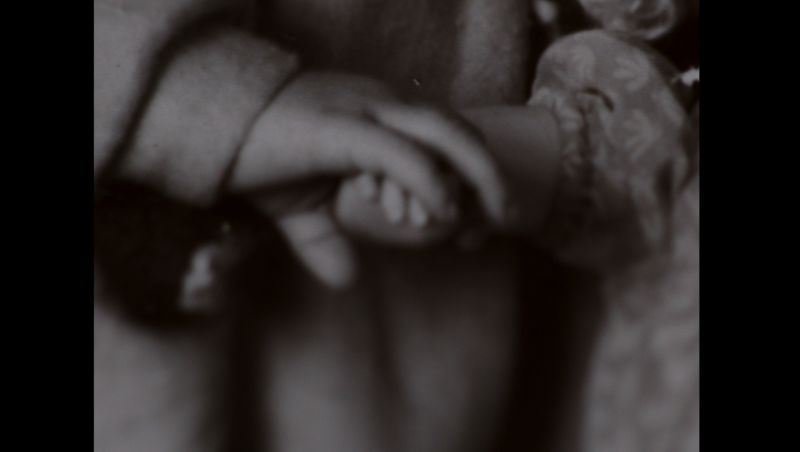
 The Garden had not disappeared / Сад не исчез
The Garden had not disappeared / Сад не исчез
Deutschland 2025 | Farbe |
17:15 | Russisch, Englisch
 The Garden had not disappeared / Сад не исчез
The Garden had not disappeared / Сад не исчез
Germany 2025 | Color |
17:15 | Russian, English
In Kasachstan hat jedes Haus einen Domovoi, einen Geist, der es bewacht. Verlässt die Familie das Haus, begleitet er sie. Doch wenn die Familie getrennt wird, verfolgt der Geist sie Nacht für Nacht in ihren Träumen, immer präsent, immer beschützend. Kindheitserinnerungen und Familienbiografie verweben sich in einer magisch-mystischen Atmosphäre. Vieles ist vergangen, der Garten bleibt als ein stiller Zeuge dieser Geschichten.
In Kazakhstan, every house is protected by a guarding spirit called Domovoi. When the family leaves the house, it accompanies them. But when the family is separated, the ghost haunts them night after night in their dreams, always present, always protective. Childhood memories and family biography interweave in a magical, mystical atmosphere. A lot is gone and passed, while the garden remains as a silent witness to these stories.
Regie, Produzent:in, Editing, Ton:
Director, Producer, Editing, Sound design:
Helena Aljona Kyn
Kamera:
Director of photography:
Lukas Grubba
A witch in preparation for Walpurgis Night (2022)



 Die Stimme des Ingenieurs (The Engineer's Voice)
Die Stimme des Ingenieurs (The Engineer's Voice)
Deutschland 2024 | Farbe |
20:45 | Deutsch
 Die Stimme des Ingenieurs (The Engineer's Voice)
Die Stimme des Ingenieurs (The Engineer's Voice)
Germany 2024 | Color |
20:45 | German
Töne, Worte und Sätze werden gesprochen und aufgezeichnet, vielleicht zum allerletzten Mal. Nur das Unvermeidliche wird nicht erwähnt. Es liegt jenseits des Gesagten und des Beschriebenen. Der Film erzählt von dem, was vor, nach und zwischen den Worten existiert, von dem Verschwinden einer Stimme und dem Widerstand dagegen. Eine Liebesgeschichte in der ostwestfälischen Provinz. Jedes Bild und jeder Ton ist ein Kosmos für sich und irgendwo dazwischen: Stille.
Sounds, words, and sentences are spoken and recorded, perhaps for the very last time. Only the inevitable is not mentioned. It lies beyond what is said and described. The film tells of what exists before, after and between the words, of the disappearance of a voice and the resistance to it. A love story in the East Westphalian province. Every image and every sound is a cosmos in itself and somewhere in between: silence.
Regie, Editing:
Director, Editing:
André Siegers
Kamera, Ton:
Director of photography, Sound design:
Karsten Krause
Produzent:in:
Producer:
Karsten Krause
Produzent:in:
Producer:
Julia Cöllen
Produzent:in:
Producer:
Frank Scheuffele
Darsteller:innen:
Cast:
Carol Siegers
Darsteller:innen:
Cast:
Konrad Siegers
La Empresa (2022), Souvenir (2014)

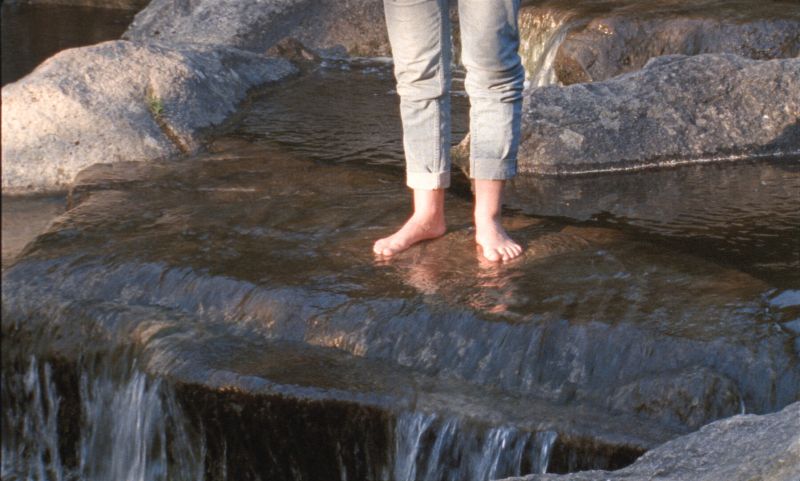
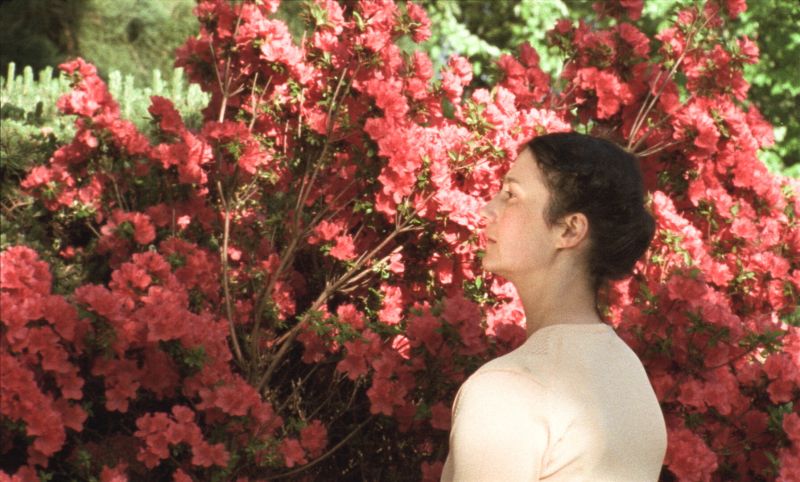
 A Thousand Waves Away
A Thousand Waves Away
Deutschland 2025 | Farbe |
10:00 | Englisch
 A Thousand Waves Away
A Thousand Waves Away
Germany 2025 | Color |
10:00 | English
Die Menschen sind in Aufruhr. Der Boden, auf dem ihr verwunschener Garten wächst, bebt. Zwischen Büschen und Bäumen, Blumenbeeten und Brunnen irrt sich jede:r für sich. Suchende Blicke, tastende Hände – manchmal ein Fund, manchmal nur ein Flüstern. Ein leises Versprechen. Sie folgen den Blüten flussabwärts. Weiter. Das farbintensive 16mm-Korn trifft auf dichte, pulsierende Synthesizer-Klänge mit hypnotischem Drive.
The people are in turmoil. The ground on which their enchanted garden grows trembles. Between bushes and trees, flowerbeds and fountains, everyone wanders off on their own. Searching eyes, groping hands – at times a discovery, at times merely a whisper. A quiet promise. They follow the flowers downstream. Onwards. The colourful 16 mm grain meets dense, pulsating synthesizer sounds with hypnotic drive.
Regie, Produzent:in, Kamera, Editing:
Director, Producer, Director of photography, Editing:
Helena Wittmann
Music, Ton:
Music, Sound design:
Nika Son
Darsteller:innen:
Cast:
Theresa George
Darsteller:innen:
Cast:
dagmar bock
Darsteller:innen:
Cast:
Arda Çiltepe
Darsteller:innen:
Cast:
Julia Tielke
Human Flowers of Flesh (2022), Drift (2017), Ada Kaleh (2018), 21,3°C (2014), Wildnis (2013), Kreisen (2010), Mimikry (2009), Heute war die Luft (2009)

Selection Deutscher Wettbewerb (nur für Akkreditierte) share
Selection German Competition (only for accreditated guests) share



 Invisible Countdown
Invisible Countdown
Deutschland 2024 | Black & White and Color |
13:59 | Englisch
 Invisible Countdown
Invisible Countdown
Germany 2024 | Black & White and Color |
13:59 | English
Dürfen jüdische Menschen in Deutschland den Krieg in Gaza kritisch sehen? Oder fühlen sie sich zur Solidarität mit Israel verpflichtet? Amir fragt sich, wie er hier als friedliebender Jude wahrgenommen wird. Infrarotaufnahmen bieten die Ästhetik der Umkehrung. Das Unsichtbare wird sichtbar, das Sichtbare fremd. Geräuschunterdrückende Kopfhörer lassen für einen Moment das Äußere zugunsten des Inneren verstummen. Im Bild: der Countdown von 24 auf null Bilder pro Sekunde.
Content notes:
Political Violence, Antisemitism, Refugee experience and/or war, Racism
Are Jewish people in Germany allowed to take a critical view of the war in Gaza? Or do they feel obliged to show solidarity with Israel? Amir wonders how he is perceived here as a peace-loving Jew. Infrared images offer the aesthetics of reversal. The invisible becomes visible, the visible alien. Noise-cancelling headphones momentarily silence the outside in favour of the inside. In the picture: the countdown from 24 to zero frames per second.
Content notes:
Political Violence, Antisemitism, Refugee experience and/or war, Racism
Regie, Produzent:in, Darsteller:innen:
Director, Producer, Cast:
Amir Ovadia Steklov
The New Jews (2025), Bi the Way (2022), Don’t Be a DICK! (2020), Charging Up (2020), Hamudi (2020), Between Two Walls (2019), In the Next Lifetime (2014)



 The Adventures of the Black Girl in Her Search for Mabel Dove
The Adventures of the Black Girl in Her Search for Mabel Dove
Ghana, Deutschland 2024 | Black & White and Color |
14:56 | Englisch
 The Adventures of the Black Girl in Her Search for Mabel Dove
The Adventures of the Black Girl in Her Search for Mabel Dove
Ghana, Germany 2024 | Black & White and Color |
14:56 | English
In einer postapokalyptischen Welt, in der Archive zerstört wurden, begibt sich eine junge Schwarze Frau auf die Suche nach Mabel Dove, einer Schriftstellerin aus der Vergangenheit, deren Werk sie inspiriert. Als ihr weder eine feministische Buchhandlung noch eine Lehrperson für Afrikanistik weiterhelfen können, wendet sie sich an die Revisionist:innen – Historiker:innen aus dem Untergrund –, in deren Cyberarchiv sie Dove schließlich findet und einen gemeinsamen Nachmittag mit ihr verbringt.
Content notes:
Racism
In a post-apocalyptic world where archives have been destroyed, a young Black woman sets out in search of Mabel Dove, a writer from the past whose work inspires her. When neither a feminist bookshop nor a teacher of African studies can help her, she turns to the revisionists – underground historians – in whose cyber archive she finally finds Dove and spends an afternoon with her.
Content notes:
Racism
Regie, Produzent:in:
Director, Producer:
Nnenna Onuoha
Kamera:
Director of photography:
Eno Iyangete
Music composer:
Music composer:
Jessica Longdon
Produzent:in:
Producer:
Kathy-Ann Tan
Darsteller:innen:
Cast:
Mmakgosi Kgabi
Darsteller:innen:
Cast:
Femi Lawal
Darsteller:innen:
Cast:
hn lyonga
Darsteller:innen:
Cast:
Nicole Pearson
Darsteller:innen:
Cast:
Obaro Ejimiwe
Darsteller:innen:
Cast:
Swantje Lichtenstein
The Memory Guardians (2024), Rosenfelde (2021), The A-Team (2021)



 Augen auf, Augen zu. (EYES WIDE, EYES SHUT )
Augen auf, Augen zu. (EYES WIDE, EYES SHUT )
Deutschland 2024 | Farbe |
14:34 | Deutsch
 Augen auf, Augen zu. (EYES WIDE, EYES SHUT )
Augen auf, Augen zu. (EYES WIDE, EYES SHUT )
Germany 2024 | Color |
14:34 | German
Leonie ist zu Besuch bei ihrem Vater Werner. Sie ist genervt, weil sie das Gefühl hat, dass er sich verändert hat. Er findet sie anstrengend, weil sie dumme Fragen stellt. Werner hat Demenz. Dies bleibt zwischen den beiden unausgesprochen. Als Leonie ihr Portemonnaie in einer Raststätte vergisst, fragt Werner nicht viel und begleitet sie. Eine Reise beginnt, auf der sie einander wiederfinden. Ein Film über Orientierungslosigkeit, Nähe und das gemeinsame Weitermachen – ohne zu wissen, wohin der Weg führt.
Content notes:
Mental Health
Leonie is visiting her father, Werner. She is annoyed because she feels that he has changed. He finds her exhausting because she asks stupid questions. Werner has dementia. This remains unspoken between the two of them. When Leonie forgets her wallet at a rest stop, Werner doesn't ask many questions and accompanies her. A journey begins on which they find each other again. A film about disorientation, closeness and moving on together – without knowing where the road will lead.
Content notes:
Mental Health
Regie, Produzent:in, Script, Kamera:
Director, Producer, Script, Director of photography:
Leonie Minor
Editing:
Editing:
Andreas Wodraschke
Ton:
Sound design:
Clemens Nürnberger
Darsteller:innen:
Cast:
Werner Minor
Theorie und Praxis (2021)



 The Garden had not disappeared / Сад не исчез
The Garden had not disappeared / Сад не исчез
Deutschland 2025 | Farbe |
17:15 | Russisch, Englisch
 The Garden had not disappeared / Сад не исчез
The Garden had not disappeared / Сад не исчез
Germany 2025 | Color |
17:15 | Russian, English
In Kasachstan hat jedes Haus einen Domovoi, einen Geist, der es bewacht. Verlässt die Familie das Haus, begleitet er sie. Doch wenn die Familie getrennt wird, verfolgt der Geist sie Nacht für Nacht in ihren Träumen, immer präsent, immer beschützend. Kindheitserinnerungen und Familienbiografie verweben sich in einer magisch-mystischen Atmosphäre. Vieles ist vergangen, der Garten bleibt als ein stiller Zeuge dieser Geschichten.
In Kazakhstan, every house is protected by a guarding spirit called Domovoi. When the family leaves the house, it accompanies them. But when the family is separated, the ghost haunts them night after night in their dreams, always present, always protective. Childhood memories and family biography interweave in a magical, mystical atmosphere. A lot is gone and passed, while the garden remains as a silent witness to these stories.
Regie, Produzent:in, Editing, Ton:
Director, Producer, Editing, Sound design:
Helena Aljona Kyn
Kamera:
Director of photography:
Lukas Grubba
A witch in preparation for Walpurgis Night (2022)



 Eigentlich wollte ich nicht lange bleiben (Actually, I didn't want to stay long)
Eigentlich wollte ich nicht lange bleiben (Actually, I didn't want to stay long)
Deutschland 2025 | Farbe |
23:22 | Deutsch
 Eigentlich wollte ich nicht lange bleiben (Actually, I didn't want to stay long)
Eigentlich wollte ich nicht lange bleiben (Actually, I didn't want to stay long)
Germany 2025 | Color |
23:22 | German
»Hauptsache Großstadt!« Mit 17 zog es Andreas Grützner Ende der 1970er-Jahre nach Hamburg. Seine erste Arbeitsstelle führte ihn zu den Alsterdorfer Anstalten, einem Ort, der ihn prägte. Im Voiceover erinnert er sich an den gewaltvollen Umgang mit den dort untergebrachten Menschen. Später arbeitete er in einer offenen Wohngruppe, wo enge Freundschaften entstanden. Begleitet von eigenen und historischen Archivaufnahmen nähert sich der Filmemacher seiner Biografie – und einer traumatischen Erfahrung, die eine Reflexion auslöst.
Content notes:
Ableism, Mental Health, Physical violence
»The main thing is the big city!« In the late 1970s, at the age of seventeen, Andreas Grützner moved to Hamburg. His first job took him to the Alsterdorfer Anstalten, a place that left its mark on him. In the voiceover, he remembers the violent treatment of the people housed there. He later worked in an open residential group, where close friendships developed. Accompanied by his personal archive as well as historical footage, the filmmaker approaches his biography – and a traumatic experience that triggers reflection.
Content notes:
Ableism, Mental Health, Physical violence
Regie, Produzent:in:
Director, Producer:
Andreas Grützner
Land der Gegenden (2019), CHRIST/EL (2016), Romy, ich bin krank (2013), Oz (2011), Das hat mit Gerechtigkeit wenig zu tun (2011), Hier spricht Walter (2004)

 International Competition
International Competition

Internationaler Wettbewerb 1 share
IC 1: Close Encounters share
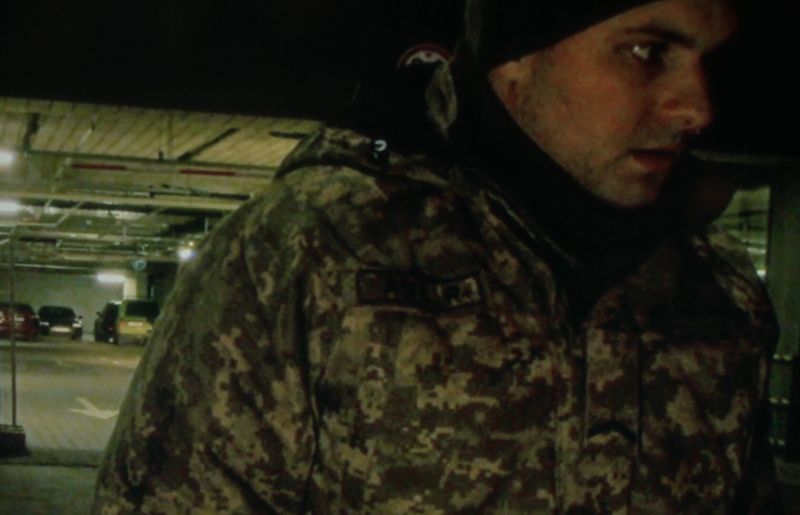
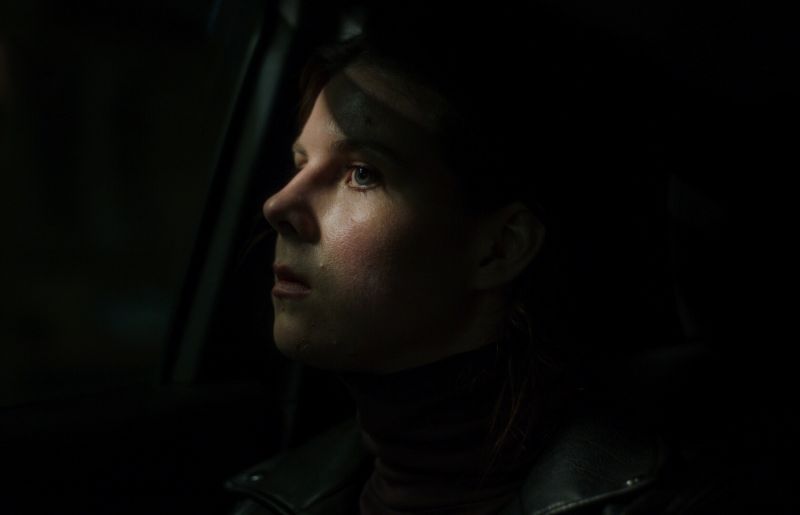
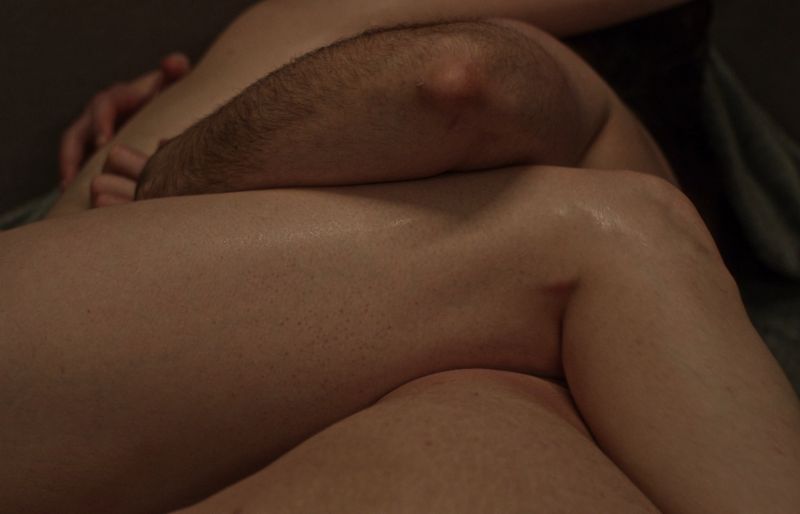
 Прелюдія (Prelude)
Прелюдія (Prelude)
Ukraine 2025 | Farbe |
14:08 | Ukrainisch
 Прелюдія (Prelude)
Прелюдія (Prelude)
Ukraine 2025 | Color |
14:08 | Ukrainian
Es herrscht Krieg in der Ukraine, und die neu geschaffenen Kategorien von Wir und Sie, exemplarisch mit einem Zivilisten und einem Soldaten erzählt, verweisen auf die Schwierigkeit, ohne historischen Abstand, über das Jetzt zu sprechen.
There’s a war going on in Ukraine and the newly created categories of Us and Them, exemplified by a civilian and a soldier, point to the difficulty of talking about the present without historical distance.
Produzent:in:
Producer:
Anna Savchenko
Kamera:
Director of photography:
Roman Khimey
Regie:
Director:
Alina Panasenko
Darsteller:innen:
Cast:
Arsen Bereznyi
Darsteller:innen:
Cast:
Oleksandra Dyka
Produzent:in:
Producer:
Lyuba Knorozok
Teatralna station (2022), 20-11-7.mp4 (2021)
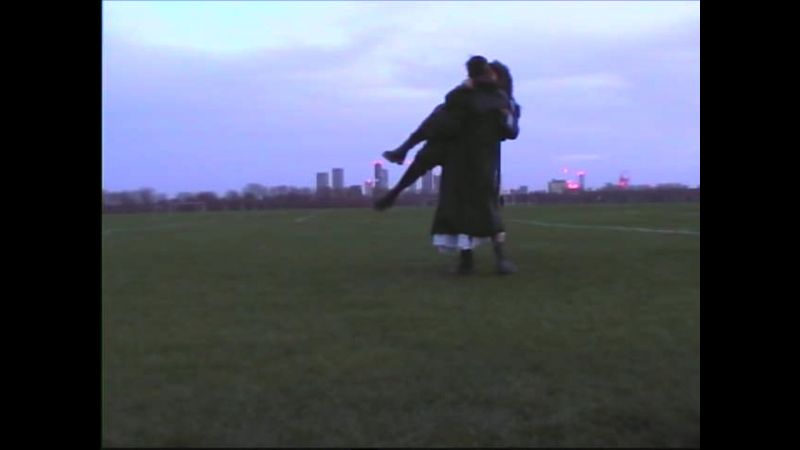
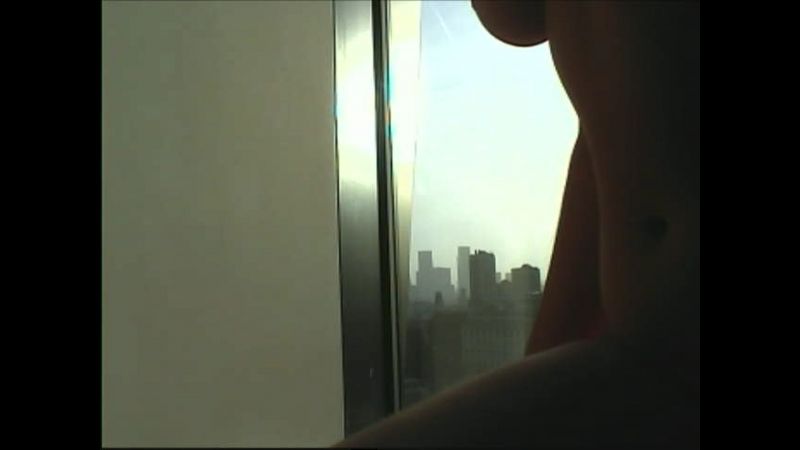
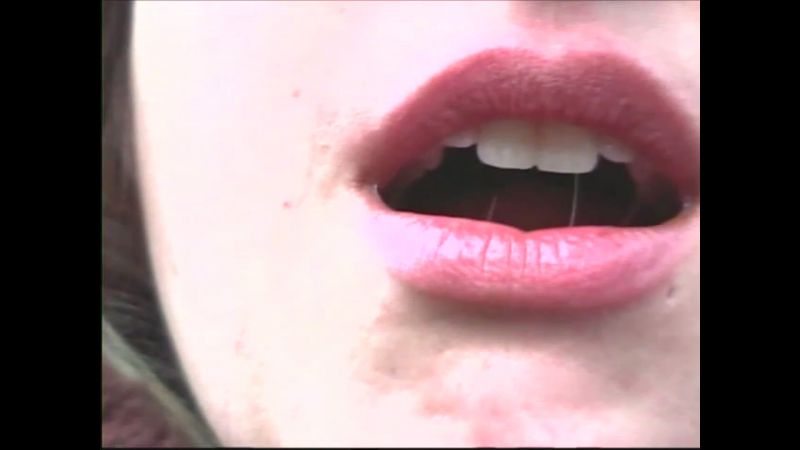
 How Many Lovers Can You Fit Inside a House?
How Many Lovers Can You Fit Inside a House?
Vereinigtes Königreich, Spanien, Griechenland 2024 | Farbe |
20:20 | Englisch, Spanisch
 How Many Lovers Can You Fit Inside a House?
How Many Lovers Can You Fit Inside a House?
United Kingdom, Spain, Greece 2024 | Color |
20:20 | English, Spanish
How Many Lovers Can You Fit Inside a House? erforscht die Komplexität von Intimität und Polyamorie und ist überzeugt von der Idee, dass alle Partner gleichermaßen geliebt werden können. Es beginnt mit einer Reihe romantischer Begegnungen aus einer sehr persönlichen Perspektive, die sich mit Offenheit und Neugier entfalten. Doch als sich eine Beziehung intensiviert, beginnt die Filmschaffende ihre eigene Prämisse zu hinterfragen und die Erzählung in eine andere Richtung zu lenken.
How Many Lovers Can You Fit Inside a House? explores the complexities of intimacy and polyamory and believes in the idea that all partners can be equally loved. It begins with a series of romantic encounters from a very personal perspective that unfold with openness and curiosity. But as one relationship intensifies, the filmmaker begins to question her own premise and steers the narrative in a different direction.
Regie, Darsteller:innen:
Director, Cast:
Maya Sfakianaki
Editing:
Editing:
Lucía Montero Sánchez de las Matas
Darsteller:innen:
Cast:
Andrew
Darsteller:innen:
Cast:
Felipe
Darsteller:innen:
Cast:
Mehdi
Darsteller:innen:
Cast:
Sam
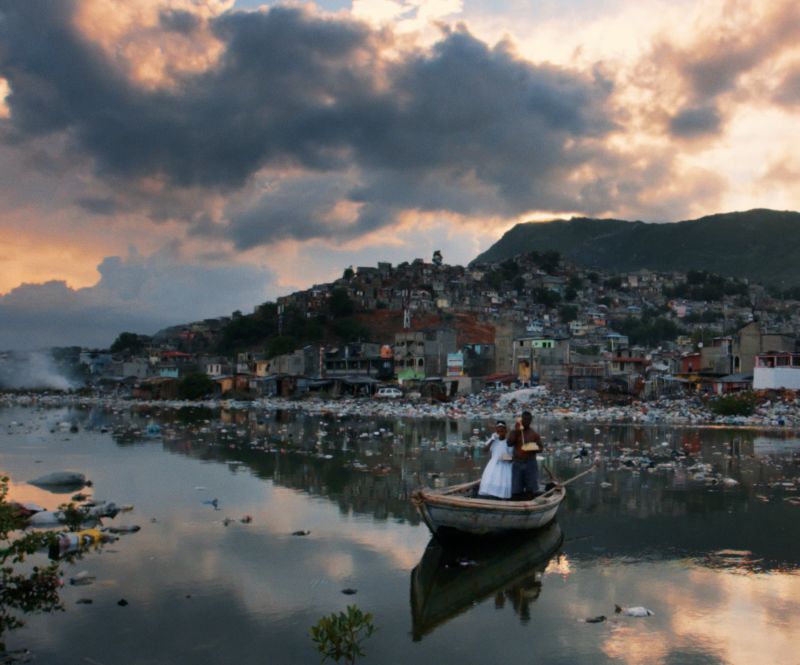

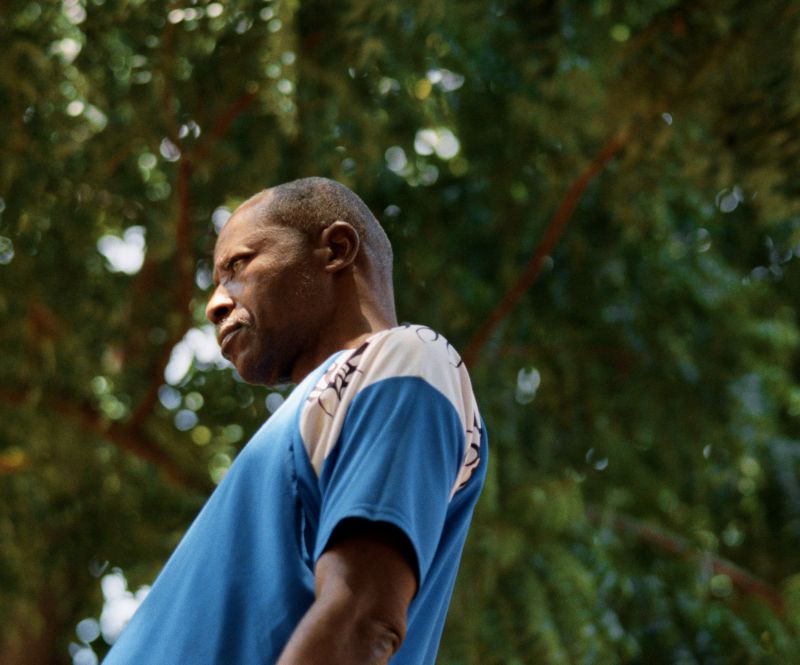
 Coeur Bleu (Blue Heart)
Coeur Bleu (Blue Heart)
Haiti, Frankreich 2025 | Farbe |
15:19 | Kreolisch
 Coeur Bleu (Blue Heart)
Coeur Bleu (Blue Heart)
Haiti, France 2025 | Color |
15:19 | Creole
Marianne und Pétion leben in Haiti. Sie warten ungeduldig auf einen Anruf ihres Sohnes aus den USA. Aber der Anruf lässt auf sich warten. Die nicht enden wollende Stille offenbart die Bruchlinien, in denen ihre eigenen Ängste Nährboden zum Wachsen finden. Zunehmend verschwimmt die Grenze zwischen Hoffnung und Realität.
Content notes:
Animal Cruelty
Marianne and Pétion live in Haiti. They are waiting impatiently for a call from their son in the USA. But the call is a long time coming. The never-ending silence reveals the fault lines in which their own fears find fertile ground to grow. The line between hope and reality becomes increasingly blurred.
Content notes:
Animal Cruelty
Regie, Produzent:in, Script:
Director, Producer, Script:
Samuel Suffren
Kamera, Editing:
Director of photography, Editing:
Samuel Suffren
Ton:
Sound design:
Roodie Rigaud Marcelin
Koproduktionsfirma:
Coproduction company:
GoGoGo Films
Executive producer:
Executive producer:
Phalonne Pierre Louis
Sales:
Sales:
Square Eyes
Dreams Like Paper Boat (2024), Agwe (2022), Survivre (2019)
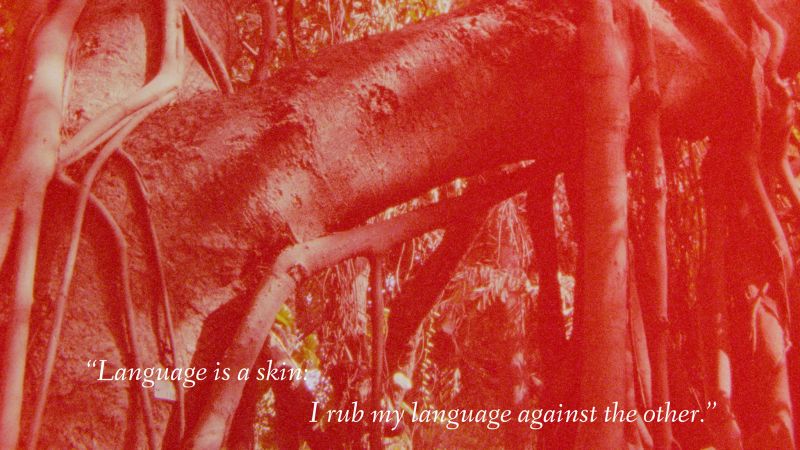
 Landscapes of Longing
Landscapes of Longing
Indien, Vereinigte Staaten 2024 | Schwarz-Weiss |
14:14 | Englisch, Hindi
 Landscapes of Longing
Landscapes of Longing
India, United States 2024 | Black & White |
14:14 | English, Hindi
Drei Generationen von Frauen, deren Migrationserfahrungen grundlegend unterschiedlich und doch untrennbar miteinander verbunden sind. Was von einer zur anderen weitergegeben wurde, verbindet sie, unterscheidet sie aber auch. Mit warmer Aufrichtigkeit verbindet der Film die assoziative Auseinandersetzung mit Identität und Erinnerung mithilfe von Familienfotos, tiefgründigen Gesprächen, literarischen Texten und spielerischer Performance. (Loes van Keulen)
Three generations of women whose migratory experiences are fundamentally different and yet inextricably linked. What has been passed on from one to the next connects them yet also sets them apart. With warm sincerity, the film combines an associative examination of identity and memory with the help of family photos, profound conversations, literary texts and playful performances. (Loes van Keulen)
Regie, Kamera, Editing, Produzent:in:
Director, Director of photography, Editing, Producer:
Alisha Tejpal
Regie, Kamera, Editing, Produzent:in:
Director, Director of photography, Editing, Producer:
Mireya Martinez
Regie, Produzent:in:
Director, Producer:
Anoushka Mirchandani
Ton:
Sound design:
Aidan Reynolds
Andere:
Other:
Shivangini Tandon
Alisha Tejpal: For the Eyes Are Blind to the Stairwells (2025), Untitled Objects (2025), LATA (2020), Losing Light (2019) // Mireya Martinez: así en la tierra como en el cielo (2022), Purgatory is the Side of the Road (2021), Aquí (2016)
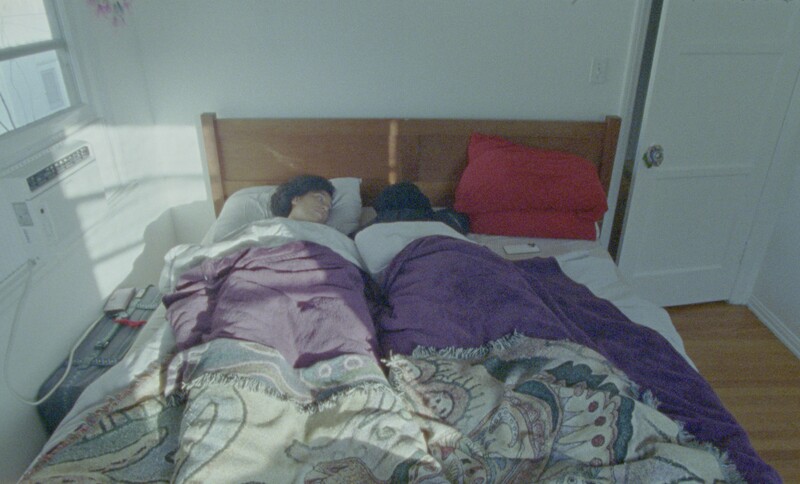
 Hold Me Close
Hold Me Close
Vereinigte Staaten 2024 | Farbe |
19:08 | Englisch
 Hold Me Close
Hold Me Close
United States 2024 | Color |
19:08 | English
Der Film begleitet Corinne und Tiana, zwei queere Schwarze Frauen, und zeigt die Intensität und Komplexität ihrer Beziehung. Einen Monat lang trugen sie täglich Mikrofone und zeichneten selbstständig ihren gemeinsamen Alltag auf. Diese intimen, dokumentarischen Aufnahmen verbanden die Filmemacherinnen mit ihren eigenen, auf 16mm-Material gedrehten Bildern. Hold Me Close ist das Porträt eines besonderen Paares, entstanden aus einem tiefen, gegenseitigen Vertrauen und dem gemeinsamen Glauben an die einzigartige Kraft der Schwarzen queeren Liebe.
The film follows Corinne and Tiana, two queer black women, and shows the intensity and complexity of their relationship. For a month, they wore microphones every day and independently recorded their everyday life together. The filmmakers combined these intimate documentary recordings with their own images shot on 16mm film. Hold Me Close is the portrait of a special couple, resulting from a deep, mutual trust and a shared belief in the unique power of black queer love.
Regie:
Director:
Aurora Brachman
Regie:
Director:
LaTajh Weaver
When the Revolution Doesn’t Come (2025), Still Waters (2022), Club Quarantine (2020), Joychild (2021), The Gallery That Destroys All Shame (2021)

Internationaler Wettbewerb 2 share
IC 2: Fragments of Change share
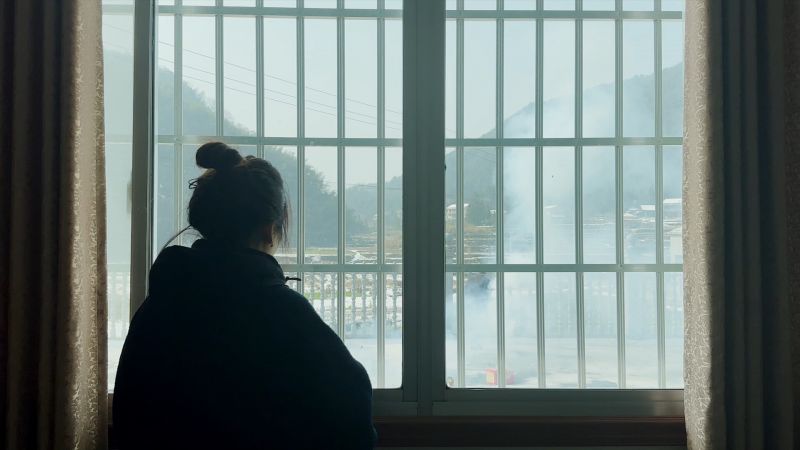
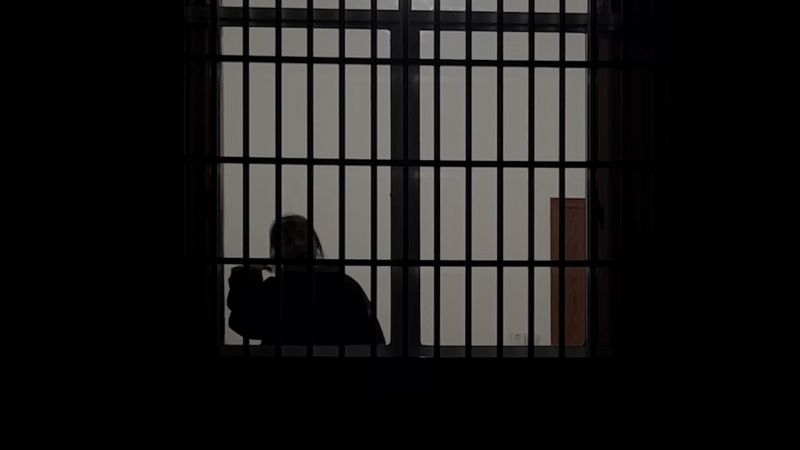
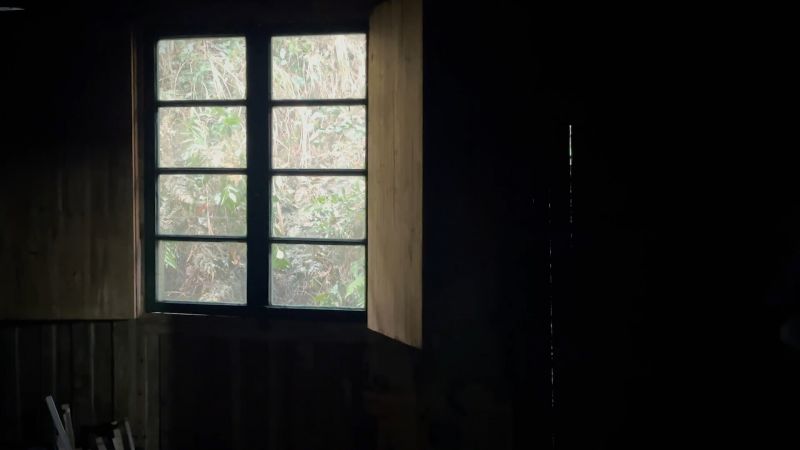
 新年快乐 (Happy New Year)
新年快乐 (Happy New Year)
Volksrepublik China 2024 | Farbe |
10:36 | Chochenyo
 新年快乐 (Happy New Year)
新年快乐 (Happy New Year)
China 2024 | Color |
10:36 | Chochenyo
»In den meisten chinesischen Vier-Personen-Familien essen wir am 30. Dezember das Silvesteressen und sehen uns die Frühlingsfest-Gala im Jahr des Drachen an. All die Pracht, die wir einst im Leben erlebt haben, muss mit Einsamkeit zurückgezahlt werden.«
»In most Chinese four-person families, we eat the New Year's Eve dinner on December 30 and watch the Spring Festival Gala in the Year of the Dragon. All the splendours we once experienced in life must be repaid with loneliness.«
Regie, Kamera, Editing, Produzent:in, Darsteller:innen:
Director, Director of photography, Editing, Producer, Cast:
Huang Weipeng (黄维鹏)
Kamera:
Director of photography:
Wang Yajing (王亚静)
Old House (2024), Elegy for a Village (2023)
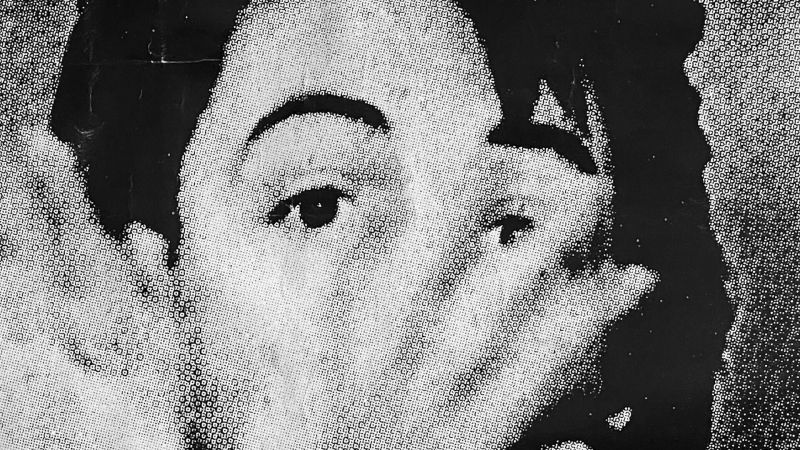
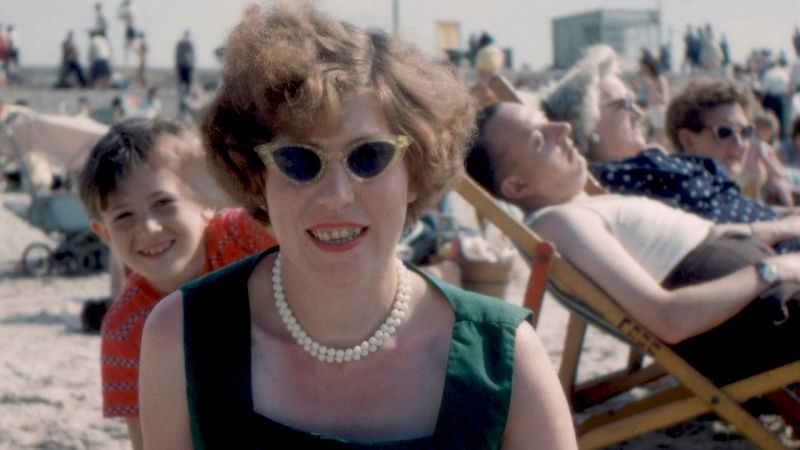
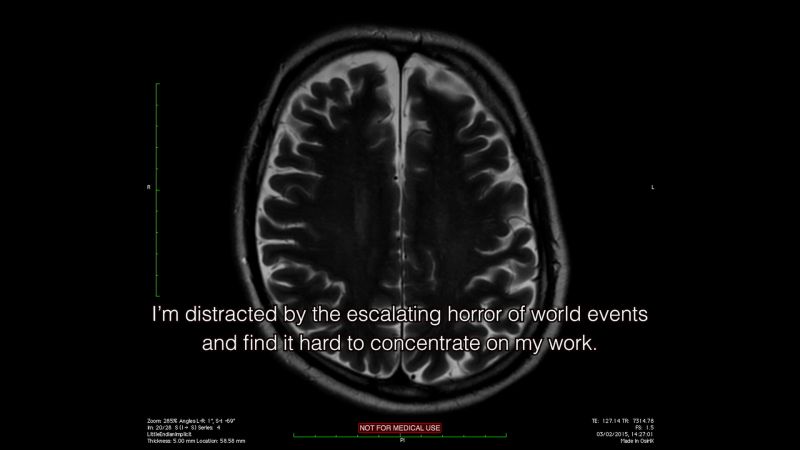
 Being John Smith
Being John Smith
Vereinigtes Königreich 2024 | Black & White and Color |
26:52 | Englisch
 Being John Smith
Being John Smith
United Kingdom 2024 | Black & White and Color |
26:52 | English
Nach Jahrzehnten der Peinlichkeit und des Unbehagens gesteht der Künstler endlich, welche negativen Auswirkungen der häufigste Name der englischsprachigen Welt auf seine Psyche hatte. Gespickt mit unterschiedlichen autobiografischen Fragmenten nimmt uns Being John Smith mit auf eine Reise, die zeigt, wie wichtig ein Name sein kann.
After decades of embarrassment and discomfort, the artist finally admits the negative impact the most common name in the English-speaking world had on his psyche. Peppered with various autobiographical fragments, Being John Smith takes us on a journey that shows just how important a name can be.
Regie, Produzent:in, Darsteller:innen, Kamera, Editing, Ton:
Director, Producer, Cast, Director of photography, Editing, Sound design:
John Smith
(Selection) Covid Messages (2020), Dad's Stick (2012), Hotel Diaries (2007), Blight (1996), Slow Glass (1991), Om (1986), The Girl Chewing Gum (1976), Associations (1975)
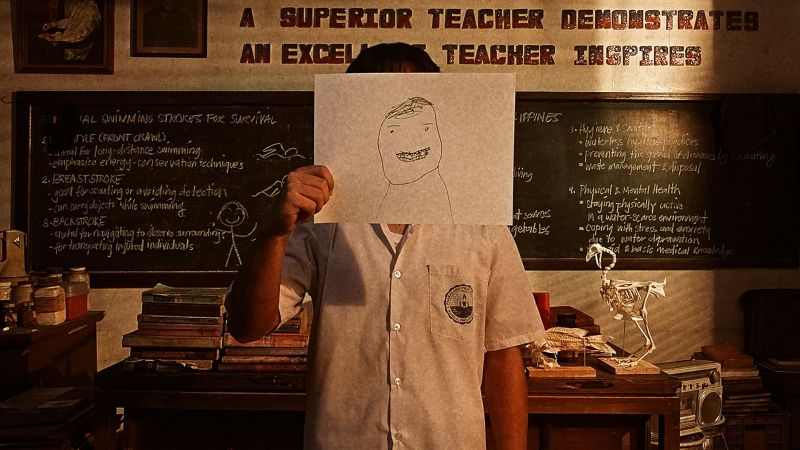
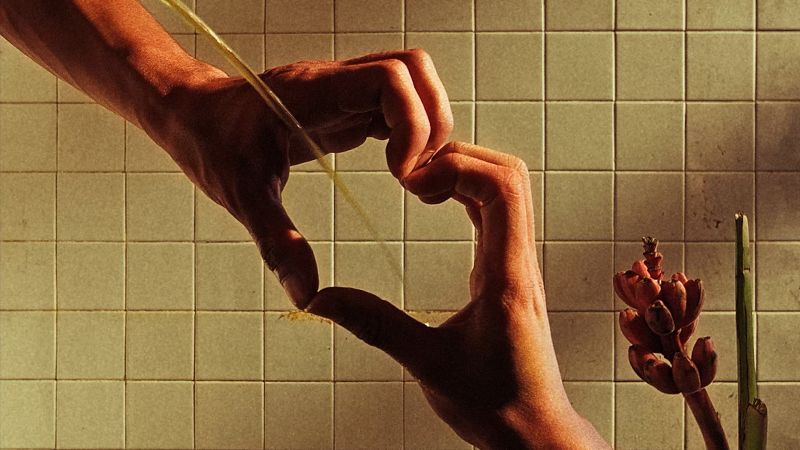
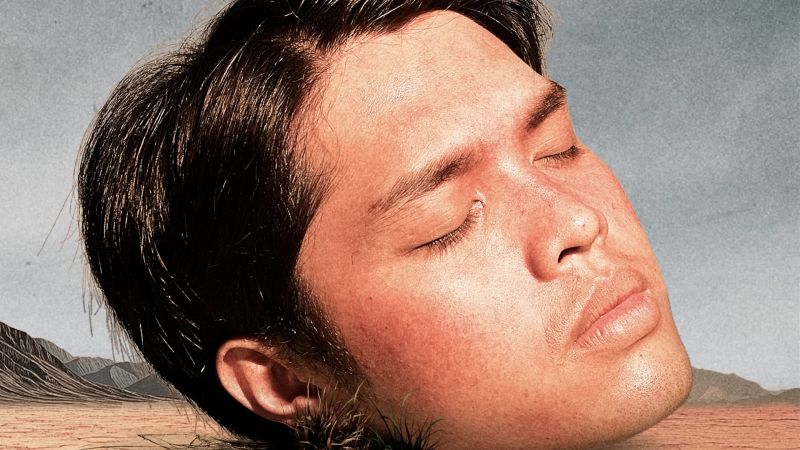
 Water Sports
Water Sports
Philippinen 2024 | Farbe |
19:35 | Tagalog
 Water Sports
Water Sports
Philippines 2024 | Color |
19:35 | Tagalog
Jelson und Ipe, zwei verliebte Schüler, werden auf die Probe gestellt, während sie sich auf das Überleben in einer vom Klimawandel verwüsteten Welt vorbereiten. Auch wenn das Leben hart und unversöhnlich sein mag, glauben sie an die Worte ihres Lehrers: Ein starkes Herz und ein starker Verstand, gepaart mit eisernem Willen, können siegen. Doch bald verstehen die beiden, dass der beste Weg, das Ende der Welt zu überleben, einfach darin besteht: zu leben, zu lachen und zu lieben.
Jelson and Ipe, two students in love, are put to the test as they prepare to survive in a world devastated by climate change. Though life may be harsh and unforgiving, they believe in their teacher's words: a strong heart and a strong mind can triumph with an iron will. But soon the two understand that the best way to survive the end of the world is simply by living, laughing and loving.
Regie, Szenenbild:
Director, Set design:
Whammy Alcazaren
Kamera:
Director of photography:
Berhil Cruz
Editing:
Editing:
Carlo Francisco Manatad
Music:
Music:
Caloy Soliongco
Music:
Music:
Sage Ilagan
Music:
Music:
obese.dogma777
Ton:
Sound design:
Danjo Galapon
Darsteller:innen:
Cast:
Elijah Canlas
Darsteller:innen:
Cast:
John Renz Javier
Darsteller:innen:
Cast:
Ricky Davao
Darsteller:innen:
Cast:
Bon Andrew Lentejas
Produzent:in:
Producer:
Alemberg Ang
Produzent:in:
Producer:
Mara Ravelo Bernaldo
Sales:
Sales:
Square Eyes
Szenenbild:
Set design:
Ana Lou Sanchez
Bold Eagle (2022), Fisting: Never Tear Us Apart (2018), Islands (2013), Colossal (2012)

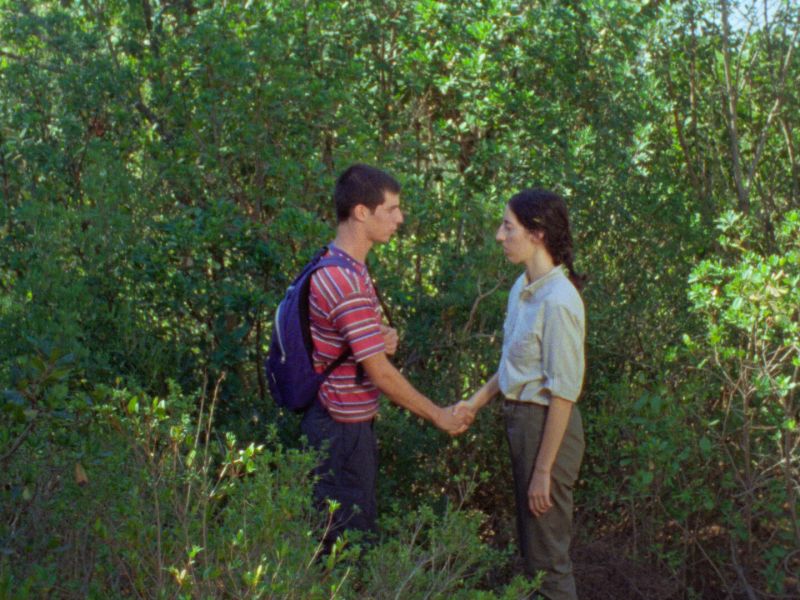
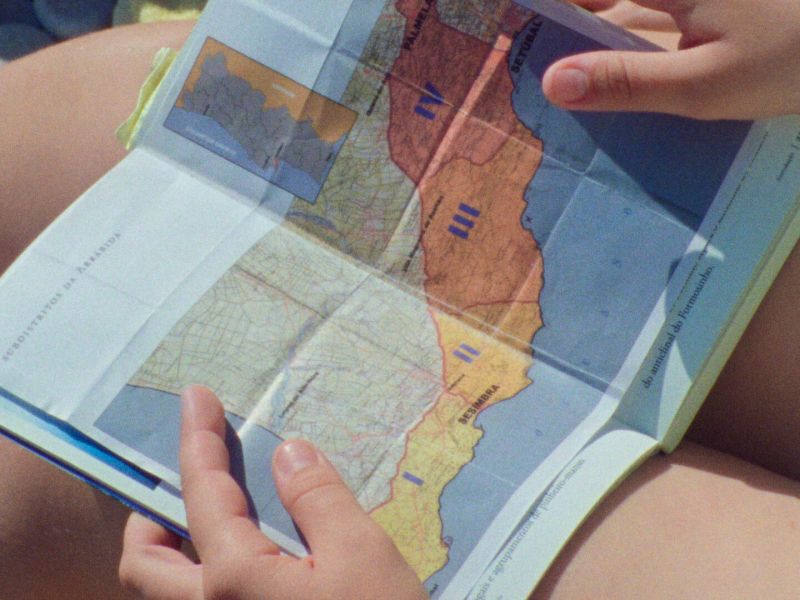
 O Jardim Em Movimento (The Moving Garden)
O Jardim Em Movimento (The Moving Garden)
Portugal 2024 | Farbe |
18:44 | Portugiesisch
 O Jardim Em Movimento (The Moving Garden)
O Jardim Em Movimento (The Moving Garden)
Portugal 2024 | Color |
18:44 | Portuguese
In Begleitung zweier botanischer Führer:innen begibt sich eine Gruppe Wandernder auf eine Reise durch die Landschaften des portugiesischen Naturparks Arrábida. Während sie die vielfältige Flora und Fauna des Parks erleben, entdecken sie Hinweise auf einen beunruhigenden Wandel: Es ist nicht die Natur, sondern der Mensch, der diese einst unberührte Umwelt umgestaltet.
Accompanied by two botanical guides, a group of hikers embark on a journey through the landscapes of Portugal's Arrábida Natural Park. As they experience the park's diverse flora and fauna, they discover evidence of a disturbing change: it is not nature but man who is reshaping this once pristine environment.
Regie, Script, Produzent:in, Editing, Music:
Director, Script, Producer, Editing, Music:
Inês Lima
Kamera:
Director of photography:
Victor Neves Ferreira
Editing:
Editing:
Diogo Vale
Music:
Music:
Cristopher Ruiz Cárdenas
Music:
Music:
Margarida Gonçalves
Ton:
Sound design:
Alexandre Franco
Ton:
Sound design:
Marcelo Tavares
Ton:
Sound design:
Miguel Coelho
Ton:
Sound design:
Vicente Molder
Verleihfirma:
Distributor:
Agência - Short Film Agency
Darsteller:innen:
Cast:
Ana Luísa Martins
Darsteller:innen:
Cast:
Ângelo de Castro
Darsteller:innen:
Cast:
Margarida Paias
A casa do norte (2021), Coral I (2020), De madrugada (2017)

Internationaler Wettbewerb 3 share
IC 3: My Fame Has Reached the Skies share
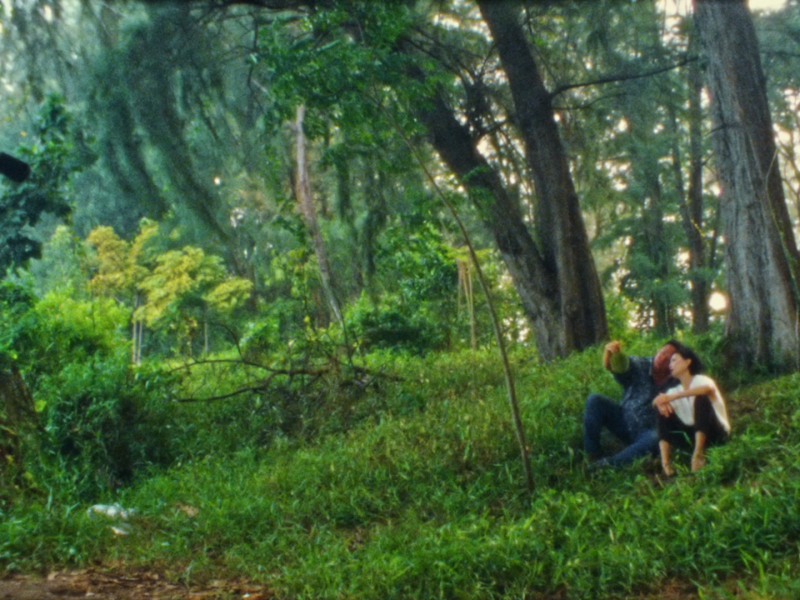
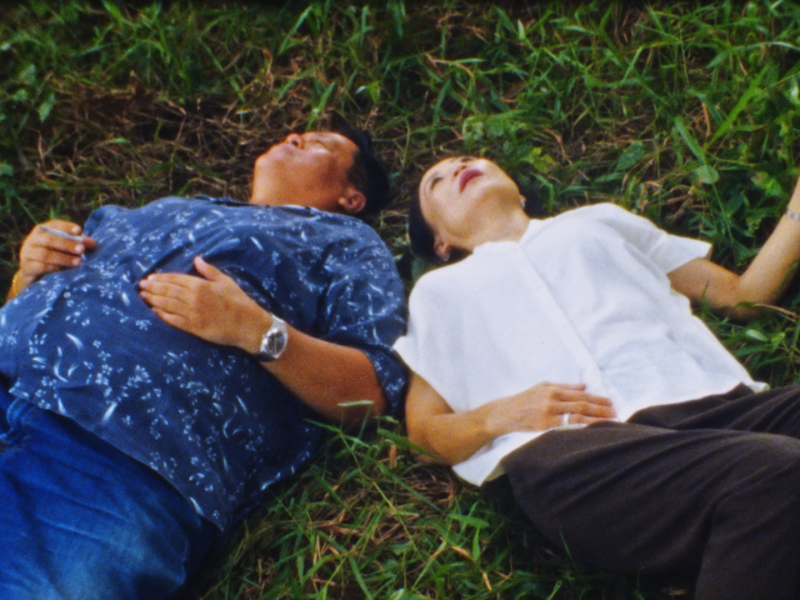
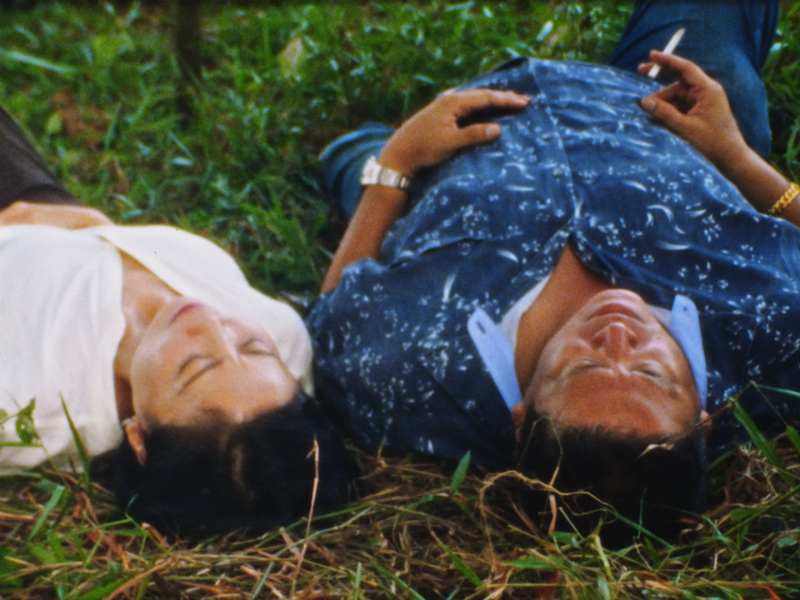
 榴莲,榴莲 (Durian, Durian)
榴莲,榴莲 (Durian, Durian)
Singapur 2025 | Farbe |
06:43 | Mandarin
 榴莲,榴莲 (Durian, Durian)
榴莲,榴莲 (Durian, Durian)
Singapore 2025 | Color |
06:43 | Mandarin
Unter einem Durianbaum liegend, erwarten zwei einsame Seelen ihr Ende. Aber dann wird der Baum zu ihrem Schutz und eine unerwartete Verbindung zwischen den beiden Fremden wird lebendig.
Lying under a durian tree, two lonely souls are awaiting their end. But then the tree becomes a shelter and an unexpected connection between the two strangers comes to life.
Regie, Script, Editing, Produzent:in, Verleihfirma:
Director, Script, Editing, Producer, Distributor:
Nelson Yeo
Kamera:
Director of photography:
Yeo Lincoln
Ton:
Sound design:
Cheng Lijie
Darsteller:innen:
Cast:
Ho Kelvin
Darsteller:innen:
Cast:
Toh Doreen
Through Your Eyes (2025), Dreaming & Dying (2023), Bagasi (2023), Plastic Sonata (2022), Dreaming (2021), Here Is Not There (2019), Mary, Mary, So Contrary (2019)
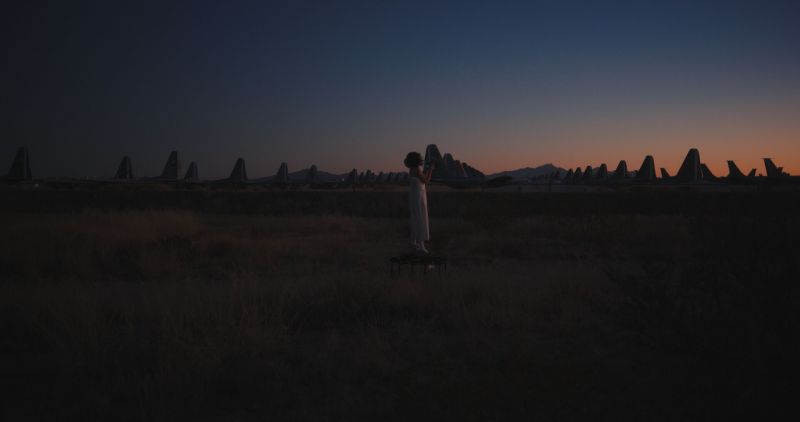
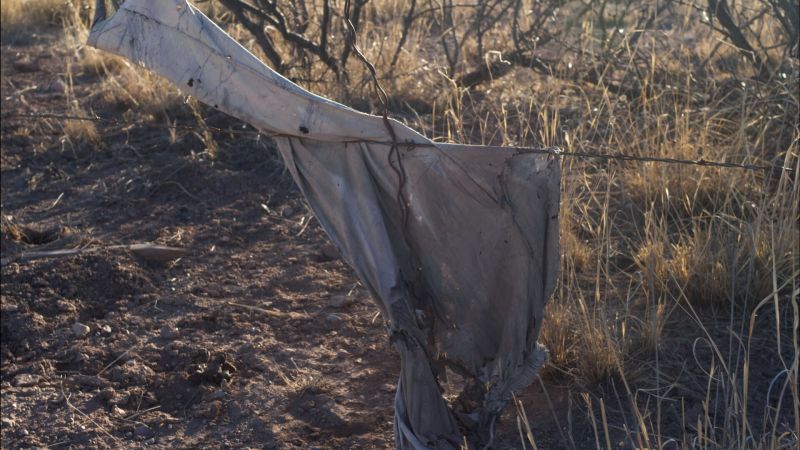
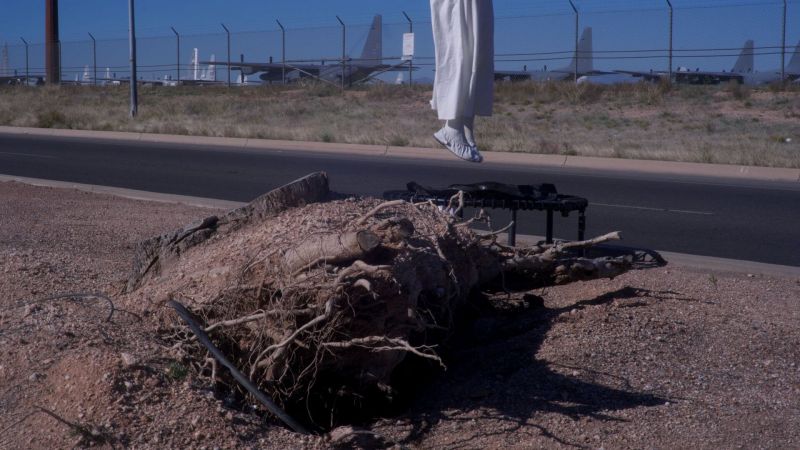
 What Goes Up
What Goes Up
Saudi-Arabien, Vereinigte Staaten 2024 | Farbe |
29:55 | Englisch
 What Goes Up
What Goes Up
Saudi Arabia, United States 2024 | Color |
29:55 | English
»Mein ganzes Leben lang habe ich gegen die Schwerkraft gekämpft.« Roadtrip in den Westen der USA zu den Absturzstellen zweier irakischer Piloten, die bei der United States Air Force ausgebildet werden sollten. Trägt das Land Spuren ihres Aufpralls? Eine junge Frau im weißen Kleid hüpft auf einem Trampolin vor einem Zaun eines US-Militärflugplatzes in Arizona. Über das Off erschließt sich ihre Geschichte. Sie, die aus Saudi-Arabien kommt, steckt in den USA fest, weil ihr Vater ihre Ausweispapiere gestohlen hat. Sie hat Heimweh. Und sie hat Ideen im Kopf – radikale Ideen, um nach Hause zu kommen.
»I've been fighting gravity my whole life.« Road trip to the western USA to the crash sites of two Iraqi pilots who were to be trained by the United States Air Force. Does the land bear traces of their impact? A young woman in a white dress bounces on a trampoline in front of a fence at a US military airfield in Arizona. Her story is revealed off-screen. She comes from Saudi Arabia and is unable to leave the USA because her father has stolen her ID documents. She is homesick. And she has ideas in her head – radical ideas on how to get home.
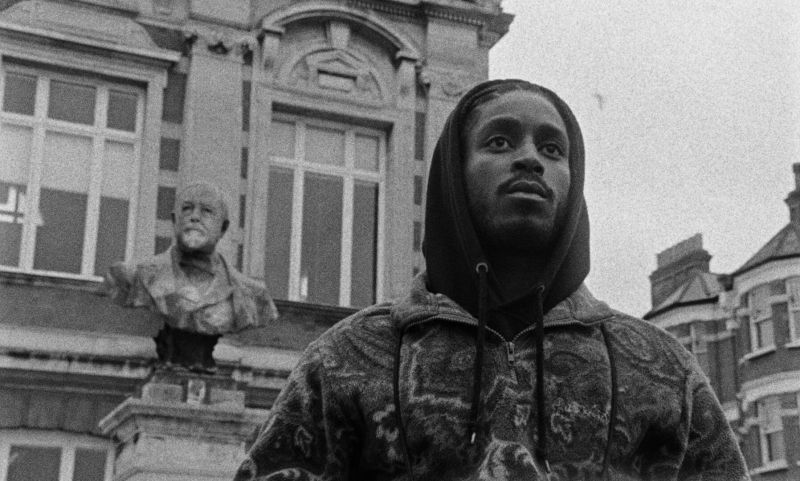
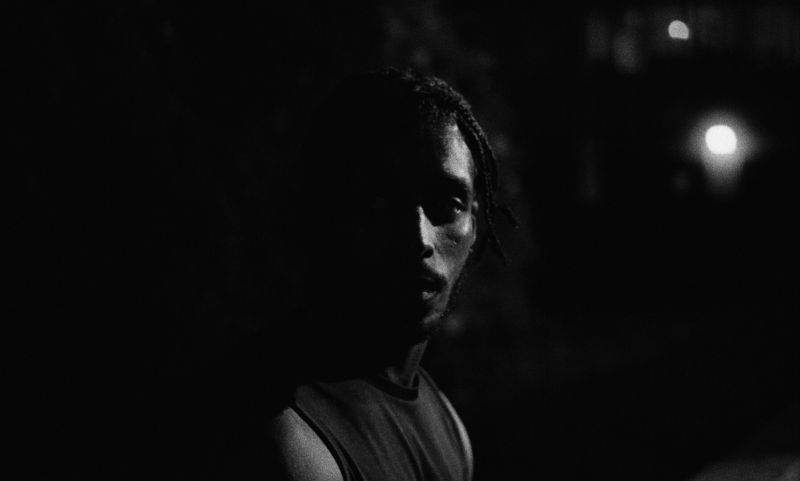
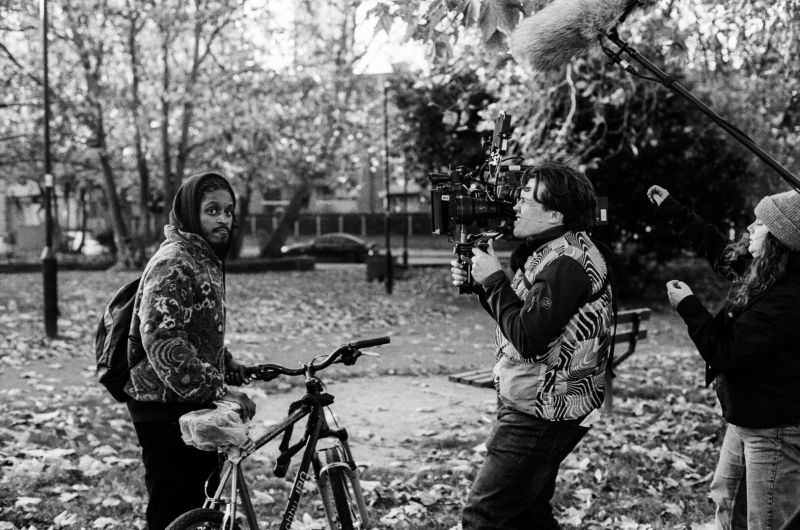
 The Tobacconist
The Tobacconist
Vereinigtes Königreich 2024 | Schwarz-Weiss |
22:34 | Englisch
 The Tobacconist
The Tobacconist
United Kingdom 2024 | Black & White |
22:34 | English
The Tobacconist spielt in der jamaikanischen Diaspora im Süden Londons. Tobias braucht Geld, viel Geld, um die Rückkehr seiner Mutter nach Jamaika zu finanzieren. Dafür verkauft er gefälschten Tabak. Eine Odyssee durch den Süden Londons, zu den Wurzeln einer marginalisierten Gemeinschaft – die trotz aller Entfremdung und Wut auch Liebe und Stolz verbindet.
Content notes:
Mental Health
The Tobacconist is set in the Jamaican diaspora in the south of London. Tobias needs money, a lot of money, to finance his mother's return to Jamaica. To do so, he sells counterfeit tobacco. An odyssey through southern London to the roots of a marginalized community – which, in spite of all the alienation and anger, is also united by love and pride.
Content notes:
Mental Health
Regie, Script:
Director, Script:
Keifer Nyron Taylor
Kamera:
Director of photography:
Kit Mackenzie
Editing:
Editing:
Mahdy Abo Bahat
Editing:
Editing:
Rastko Novaković
Music:
Music:
Lluis Domènech Plana
Music:
Music:
Biscuit of Speakers Corner Quartet
Ton:
Sound design:
Panos Chountoulidis
Produzent:in:
Producer:
Manon Schwich
Darsteller:innen:
Cast:
Amarah-Jae St. Aubyn
Darsteller:innen:
Cast:
Francis Lovehall
Darsteller:innen:
Cast:
Maxine Finch
Darsteller:innen:
Cast:
Jah Prento
Lloydie, the Boy from St. Thomas (2019)
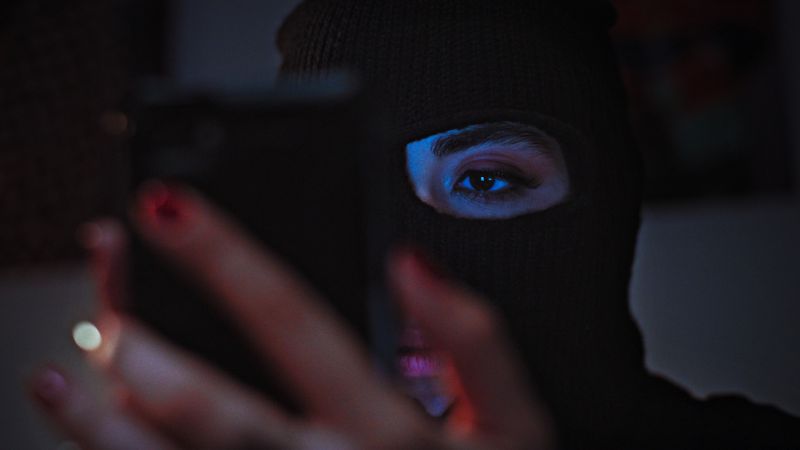
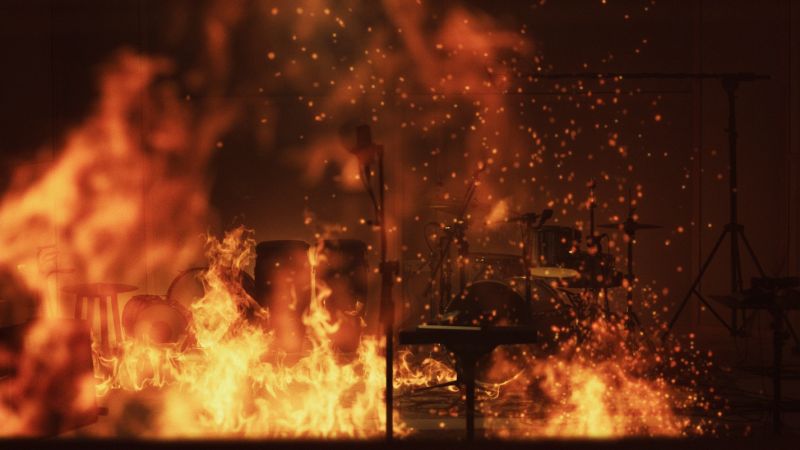
 سکوت هما (SILENCE OF HOMA)
سکوت هما (SILENCE OF HOMA)
Iran, Deutschland 2025 | Farbe |
17:20 | Farsi
 سکوت هما (SILENCE OF HOMA)
سکوت هما (SILENCE OF HOMA)
Iran, Germany 2025 | Color |
17:20 | Farsi
Homa ist ein mythischer Vogel, der nie auf dem Boden landet. Manchmal wird er als Phönix dargestellt, der immer wieder aus der Asche aufersteht. Inmitten sozialer Unruhen sucht die berühmte Rapperin Homa im Studio ihre Stimme. Sie ist frustriert, bis sie in ihrer nihilistischen Wut ein seltsamer Vogel-Mensch-Dschinn besucht.
Homa is a mythical bird that never lands on the ground. Sometimes it is portrayed as a phoenix that keeps rising from the ashes. In the midst of social unrest, the famous rapper Homa searches for her voice in the studio. She is frustrated until, in her nihilistic rage, she is visited by a strange bird-man-djinn.
Regie, Script, Editing:
Director, Script, Editing:
Azin Feizabadi
Kamera:
Director of photography:
Iman Tahsin
Editing:
Editing:
Aleksi Virtanen
Ton, Music composer:
Sound design, Music composer:
Amen Feizabadi
Music performer:
Music performer:
Justina
Produzent:in:
Producer:
Ali Asgari
Produzent:in:
Producer:
Jens Maier-Rothe
Darsteller:innen:
Cast:
Mahsa Mohammad Kazem
In Transit (2023), Uchronia (2019)

Internationaler Wettbewerb 4 share
IC 4: No One Asks Me How I Feel share
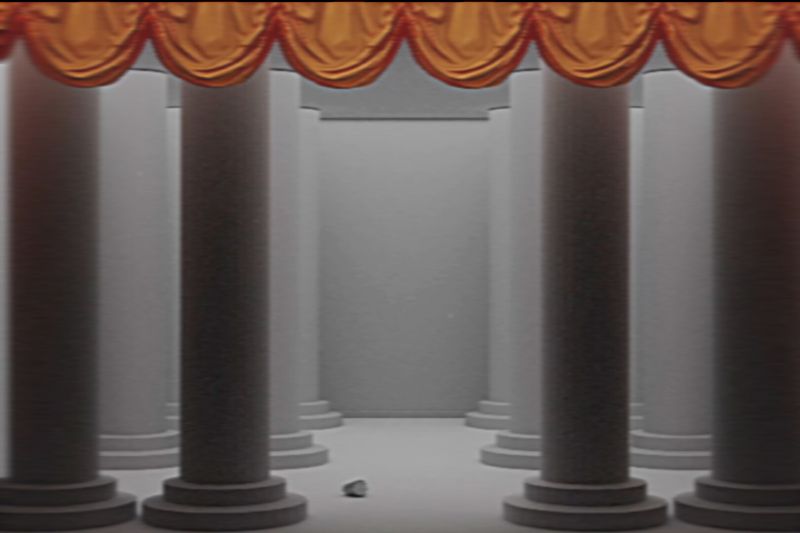
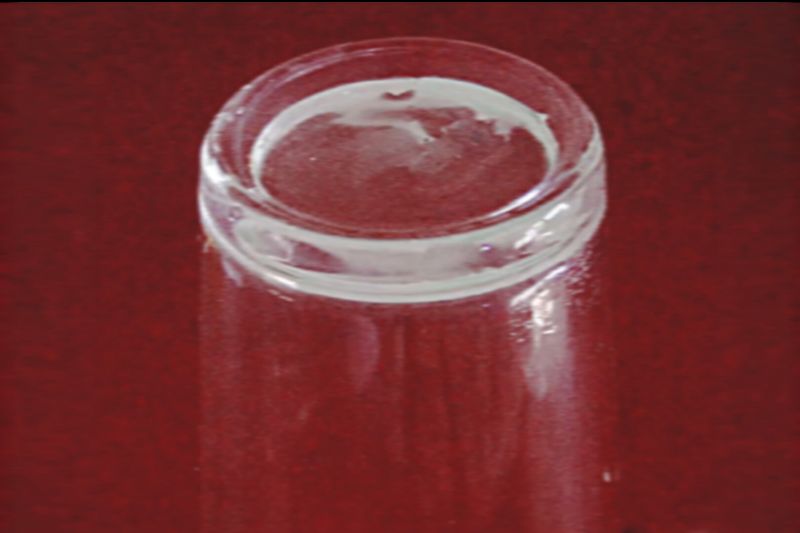
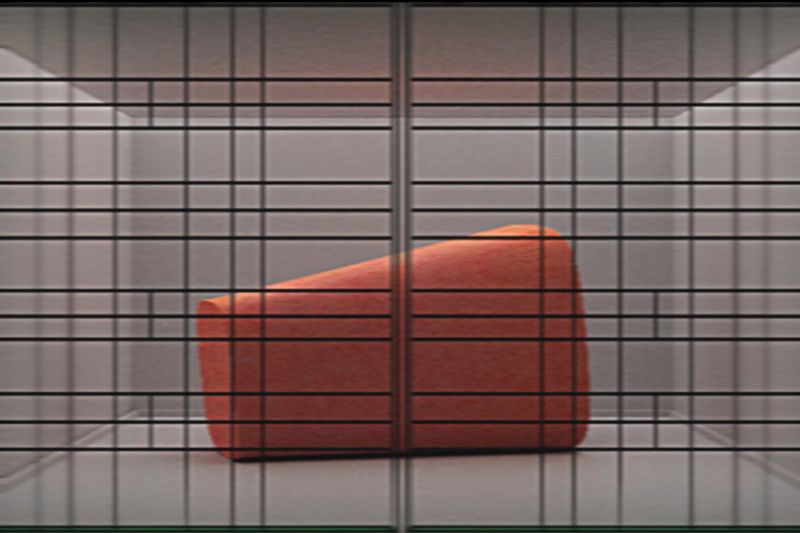
 အသွင်ပြောင်းလဲခြင်းတစ်ခု (A Metamorphosis)
အသွင်ပြောင်းလဲခြင်းတစ်ခု (A Metamorphosis)
Myanmar 2025 | Farbe |
16:39 | Birmanisch
 အသွင်ပြောင်းလဲခြင်းတစ်ခု (A Metamorphosis)
အသွင်ပြောင်းလဲခြင်းတစ်ခု (A Metamorphosis)
Myanmar 2025 | Color |
16:39 | Burmese
A Metamorphosis ist eine unheimliche Sendung, die den Alltag in einer Diktatur anhand der staatlichen Fernsehpropaganda erfahrbar macht. Das Schlaflied wird zum Fluch, die Mütter sind nur noch Tränen und die Söhne verwandeln sich in leere Glasbecher. Über allem weht die Flagge im digitalen Meer der Verwandlung.
A Metamorphosis is an eerie transmission that uses state television propaganda to make everyday life in a dictatorship tangible. The lullaby becomes a curse, the mothers are reduced to tears and the sons turn into empty glass cups. The flag flies above everything in the digital sea of transformation.
Regie, Animation, Script, Copyright holder, Stimmen, Verleihfirma, Editing, Kamera, Produzent:in:
Director, Animation, Script, Copyright holder, Voices, Distributor, Editing, Director of photography, Producer:
Lin Htet Aung
Music, Ton:
Music, Sound design:
Wey Yinn Teo
Executive producer:
Executive producer:
Yuzana No No
(Selection) Once Upon a Time There Was a Mom (2023), Me and My Country Pornography (2022), Seeking Wombs for Rebirths (2021), Estate (2020)
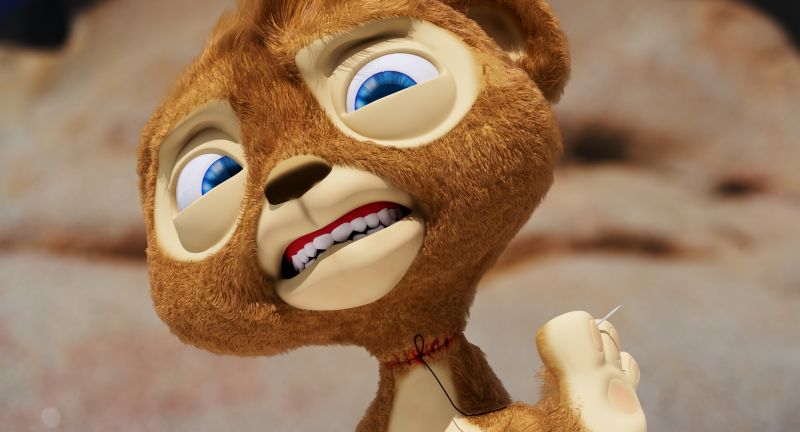
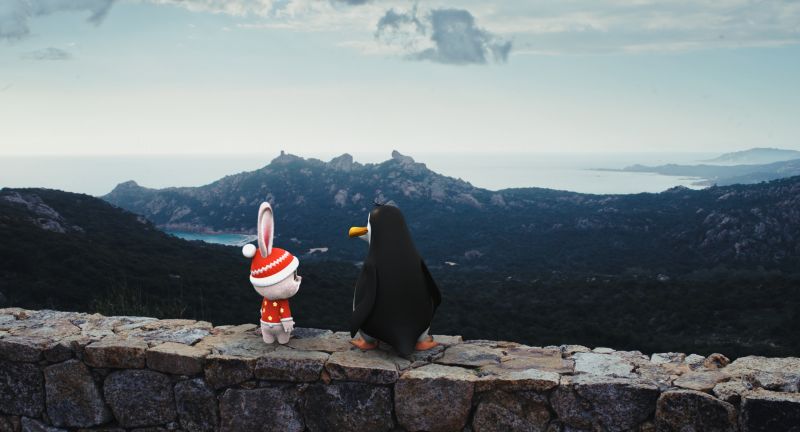
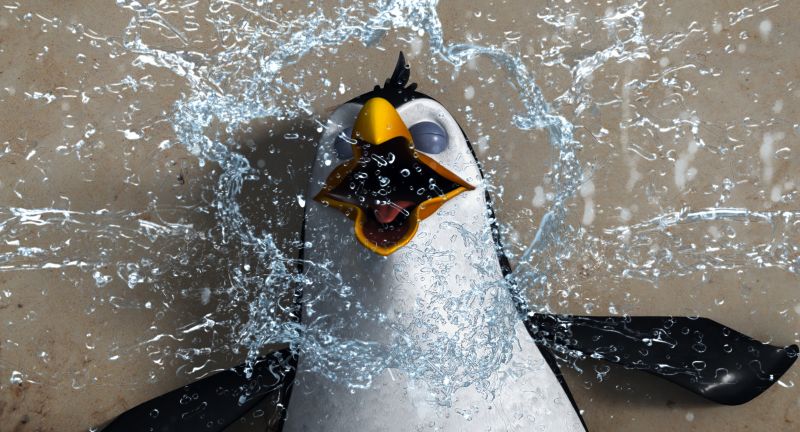
 Comment ça va? (How Are You?)
Comment ça va? (How Are You?)
Frankreich 2025 | Farbe |
31:22 | Französisch
 Comment ça va? (How Are You?)
Comment ça va? (How Are You?)
France 2025 | Color |
31:22 | French
Die Menschen sind gescheitert. Die Welt brennt. 1949 veröffentlichte Erich Kästner »Die Konferenz der Tiere« und damit einen Vorschlag, wer die Verantwortung für die Welt und die Kinder übernehmen kann – die Tiere. 2025 folgt das französische Regieduo Caroline Poggi und Jonathan Vinel in How Are You? einigen Tieren an einem einsamen Küstenstrich, die die Welt verändern wollen – indem sie die Übel heilen, die sie plagen. Moderiert von einem Elefanten, tauschen sie Ideen und Schlagworte aus. Ein Film so dystopisch wie real.
Content notes:
Mental Health, Physical violence
People have failed. The world is burning. In 1949, Erich Kästner published »The Conference of the Animals«, suggesting who could take responsibility for the world and the children – the animals. In 2025, French directing duo Caroline Poggi and Jonathan Vinel's How Are You? follows some animals at a lonely coastline who want to change the world – by curing the ills that plague it. Moderated by an elephant, they exchange ideas and slogans. A movie as dystopian as it is real.
Content notes:
Mental Health, Physical violence
Regie, Script:
Director, Script:
Caroline Poggi
Regie, Script, Editing:
Director, Script, Editing:
Jonathan Vinel
Animation:
Animation:
Stanislas Bécot
Animation:
Animation:
Hugo Glavier
Animation:
Animation:
Lazare Aïbout-Sibille
Kamera:
Director of photography:
Pauline Doméjean
Ton:
Sound design:
Lucas Doméjean
Ton:
Sound design:
Olivier Voisin
Ton:
Sound design:
Victor Praud
Sales:
Sales:
Christina Demetriou
(Selection) The Exploding Girl (2024), Eat the Night (2024), Best Secret Place (2023), Watch the Fire or Burn Inside It (2022), Baby Anger (2020), Jessica Forever (2018), After School Knife Fight (2017), Tant qu’il nous reste des fusils à pompe (2014)
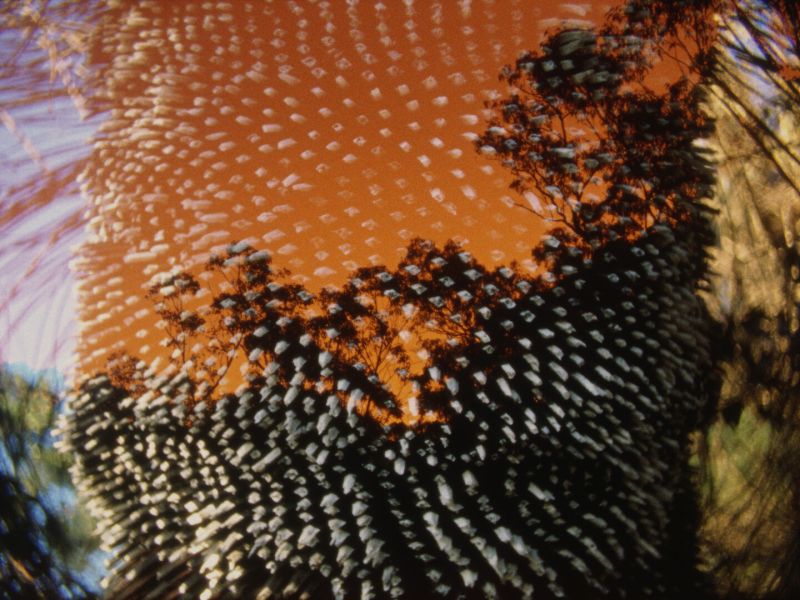
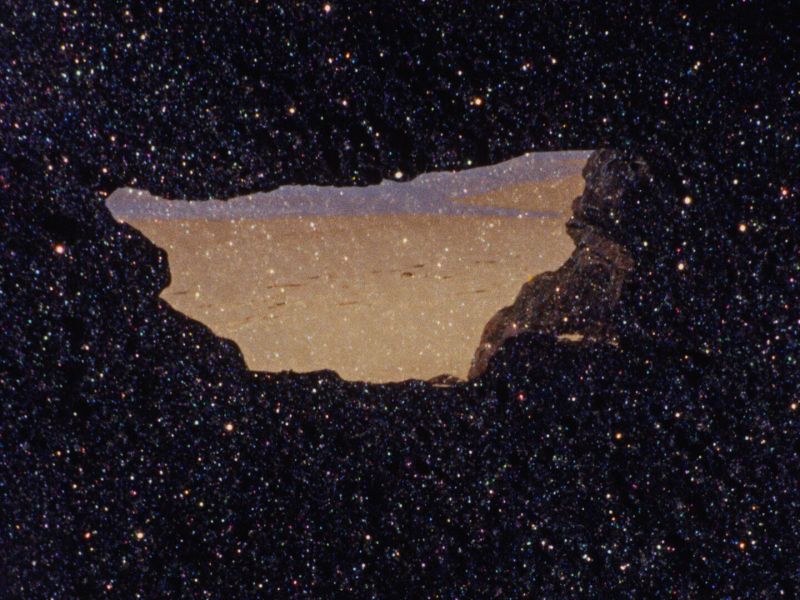

 Archipelago of Earthen Bones — To Bunya
Archipelago of Earthen Bones — To Bunya
Kanada, Australien, Chile 2024 | Farbe |
20:00 | Kein Dialog
 Archipelago of Earthen Bones — To Bunya
Archipelago of Earthen Bones — To Bunya
Canada, Australia, Chile 2024 | Color |
20:00 | No Dialogue
Die Filmemacherin verwendet die tektonischen Platten als imaginäre Landkarten und bewegt sich auf ihren sichtbaren Spuren. Auf 16mm filmt sie uralte landschaftliche Konstellationen in den Gebieten der Aboriginal-Gemeinschaften Turrbal, Yuggera, Jinibara, Gubbi Gubbi, Wakka Wakka, Jarowair, Barrumgum, Quandamooka und Butchulla. So zeichnet sie einen Pfad entlang der zentralöstlichen Gebirgsketten Australiens nach, die im Nachglühen des Hunga-Tonga-Hunga-Ha'apai-Ausbruchs von 2022 erleuchtet wurden.
Content notes:
Strobe effects and/or flashing images
The filmmaker uses the tectonic plates as imaginary maps and moves along their visible traces. On 16mm ancient landscape, she filmed constellations in the territories of the Aboriginal communities of Turrbal, Yuggera, Jinibara, Gubbi Gubbi, Wakka Wakka, Jarowair, Barrumgum, Quandamooka, and Butchulla. The film traces a path along Australia's central-eastern mountain ranges, which were lit up in the afterglow of the Hunga-Tonga-Hunga-Ha'apai eruption of 2022.
Content notes:
Strobe effects and/or flashing images
Produzent:in:
Producer:
John Edmond
Regie:
Director:
Malena Szlam
Altiplano (2018), Morphology of a Dream (2018), Lunar Almamac (2013), Anagrams of Light (2011), Rhythm Trail (2011)
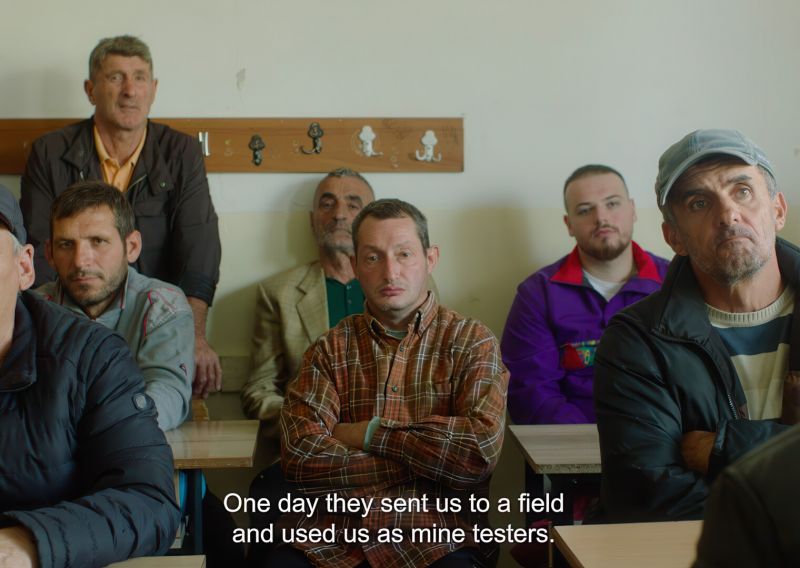
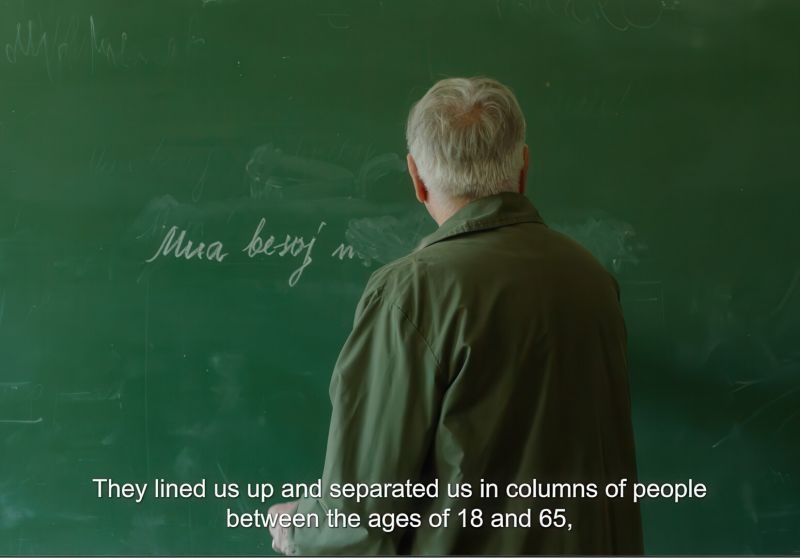
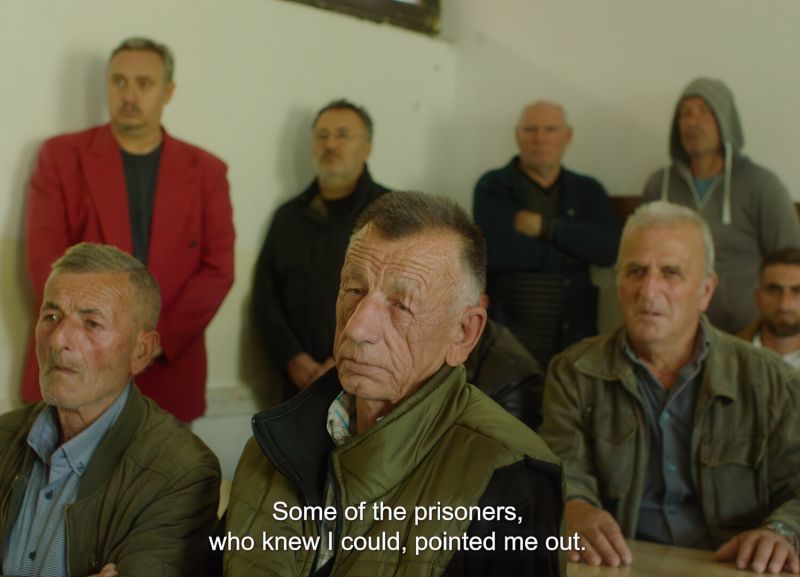
 Mua besoj më shpëtoj portreti (I Believe the Portrait Saved Me)
Mua besoj më shpëtoj portreti (I Believe the Portrait Saved Me)
Kosovo, Niederlande 2025 | Farbe |
09:59 | Albanisch
 Mua besoj më shpëtoj portreti (I Believe the Portrait Saved Me)
Mua besoj më shpëtoj portreti (I Believe the Portrait Saved Me)
Kosovo, Netherlands 2025 | Color |
09:59 | Albanian
25 Jahre nach seiner Entführung während des Kosovokriegs erinnert sich der Maler Skender Muja an den entscheidenden Moment seines Überlebens. In einem Internierungslager wurde er angewiesen, das Porträt eines serbischen Kommandanten zu zeichnen. I Believe the Portrait Saved Me erforscht anhand von Reflexionen und Nachstellungen die Macht und Möglichkeiten der Kunst angesichts von Unterdrückung und Unsicherheit.
Content notes:
Refugee experience and/or war
25 years after being abducted during the Kosovo war, the painter Skender Muja remembers the decisive moment in his survival. In an internment camp, he was instructed to draw the portrait of a Serbian commander. I Believe the Portrait Saved Me uses reflections and re-enactments to explore the power and possibilities of art in the face of oppression and insecurity.
Content notes:
Refugee experience and/or war
Regie:
Director:
Alban Muja
Kamera:
Director of photography:
Samir Karahoda
Editing:
Editing:
Enis Saraçi
Ton:
Sound design:
Pëllumb Ballata
Produzent:in:
Producer:
Edon Rizvanolli
Darsteller:innen:
Cast:
Skender Muja
Legendary Dog (2014), Germans Are a Bit Scared of Me (2013), Blue Wall Red Door (2009), Play Girl (2007), Tibet (2005), Palestina (2005), Agreement (2005), Free Your Mind (2004)

Internationaler Wettbewerb 5 share
IC 5: Letters Across Time share
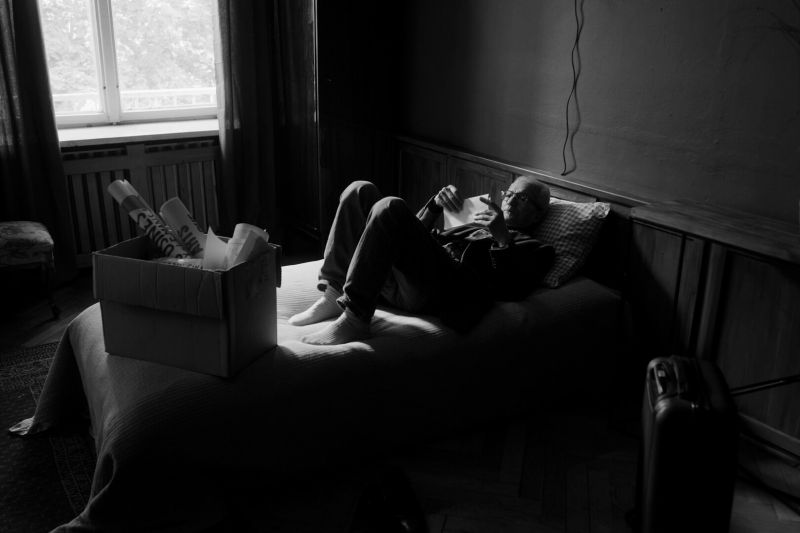
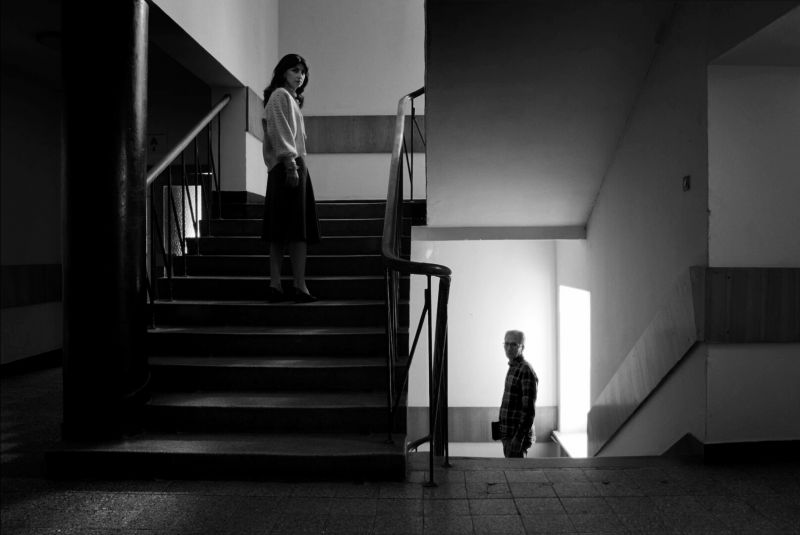
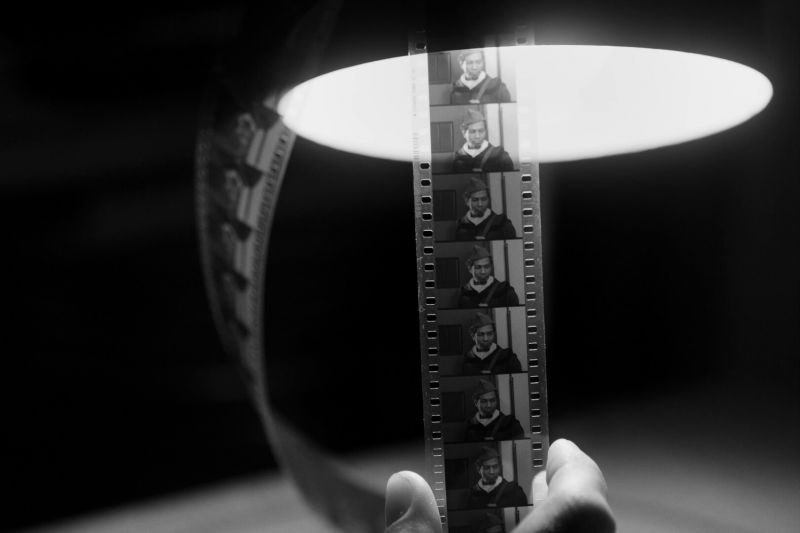
 Miraculous Accident (Miraculous Accident )
Miraculous Accident (Miraculous Accident )
Österreich, Deutschland, Polen 2025 | Black & White and Color |
30:36 | Englisch, Polnisch, Französisch
 Miraculous Accident (Miraculous Accident )
Miraculous Accident (Miraculous Accident )
Austria, Germany, Poland 2025 | Black & White and Color |
30:36 | English, Polish, French
Der Film erzählt die transtemporale Liebesgeschichte zwischen Nadir, einem marokkanischen Studenten der Filmhochschule in Łódź im Jahr 1968, seiner jüdischen Schnitt-Dozentin Edyta und ihrer gemeinsamen Beziehung zu Jarek, Nadirs bestem Freund und Edytas Protégé. Trotz ihrer Ablehnung des Zionismus wird Edyta aufgrund des politischen Bruchs zwischen Polen und Israel nach dem Sechstagekrieg dazu gedrängt, Polen zu verlassen. 2024 kehrt Nadir in die Filmhochschule zurück, um einen Film zu drehen. Miraculous Accident ist in Teilen vom Leben des Filmemachers Abdelkader Lagtaâ inspiriert, der im Film die Rolle des Nadir spielt, und verwebt seinen Plot mit Ausschnitten aus Student:innenfilmen der 1960er-Jahre, die Lagtaâ und seine Kommiliton:innen drehten.
The film tells the transtemporal love story between Nadir, a Moroccan student at the film school in Łódź in 1968, his Jewish editing lecturer Edyta and their relationship with Jarek, Nadir's best friend and Edyta's protégé. Despite her rejection of Zionism, Edyta is forced to leave Poland due to the political rift between Poland and Israel after the Six-Day War. In 2024, Nadir returns to the film school in order to make a movie. Miraculous Accident is partly inspired by the life of the filmmaker Abdelkader Lagtaâ, who plays the role of Nadir in the film, and interweaves its plot with excerpts from student films from the 1960s that Lagtaâ and his fellow students made.
Regie, Script, Editing:
Director, Script, Editing:
Assaf Gruber
Kamera:
Director of photography:
Simon Veroneg
Ton:
Sound design:
Jochen Jezussek
Darsteller:innen:
Cast:
Marta Ojrzyńska
Darsteller:innen:
Cast:
Abdelkader Lagtaâ
Produzent:in:
Producer:
Guillaume Cailleau
Rude Witness (2022), Daphne and Thomas (2019), The Right (2015), The Guardroom (2015), Citizen in the Making (2014), The Anonymity of the Night, Part I (2014), C’est Comme un Code à Décoder (2010), Match Point (2005)
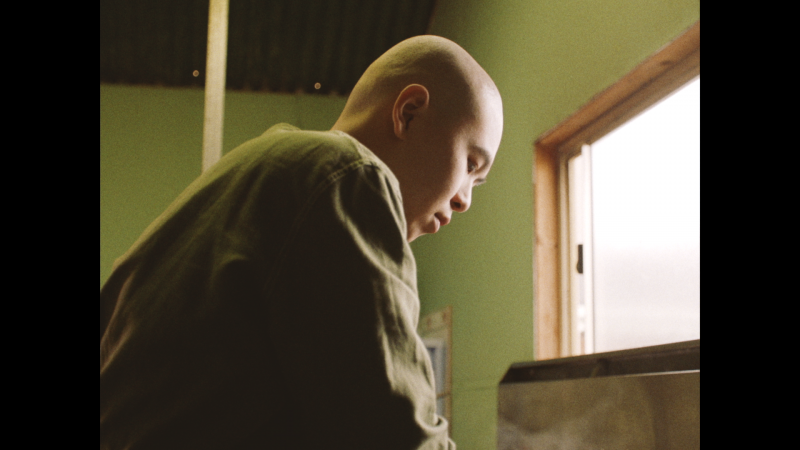
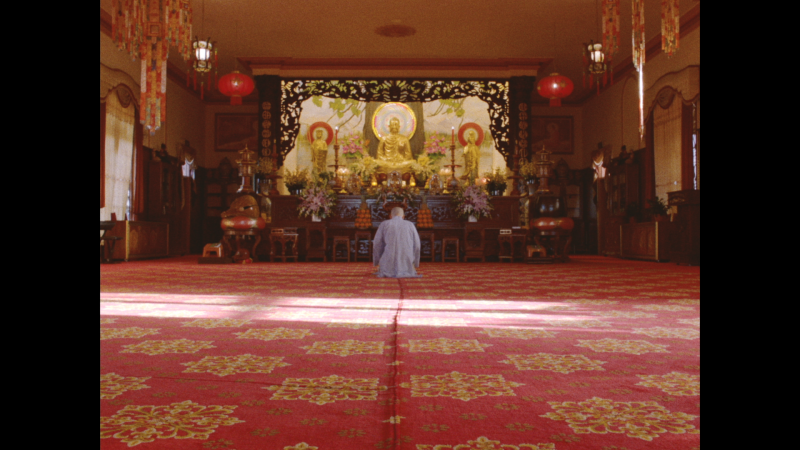

 Mưa Nửa Hạt (Rain Falls Still)
Mưa Nửa Hạt (Rain Falls Still)
Australien, Vietnam 2024 | Black & White and Color |
11:53 | Vietnamesisch
 Mưa Nửa Hạt (Rain Falls Still)
Mưa Nửa Hạt (Rain Falls Still)
Australia, Vietnam 2024 | Black & White and Color |
11:53 | Vietnamese
In einem buddhistischen Tempel laufen die Vorbereitungen auf das Vu-Lan-Fest, das Fest der wandernden Seelen und der Vergebung. Ein junger Mönch trägt eine weiße Rose auf der Brust und kocht ein Opfermahl, während er von einem regnerischen Tag träumt.
In a Buddhist temple, preparations are underway for the Vu Lan festival, the festival of wandering souls and forgiveness. A young monk wears a white rose on his chest and cooks a meal of offering while dreaming of a rainy day.
Regie, Produzent:in, Editing, Ton:
Director, Producer, Editing, Sound design:
Đăng Tùng Bạch
Kamera:
Director of photography:
Ariel Reyes
Darsteller:innen:
Cast:
Công Nguyên Đoàn Nguyễn
(Selection) On the Birthday of the Wind (2022), Ring Me When You're Ready (2021)
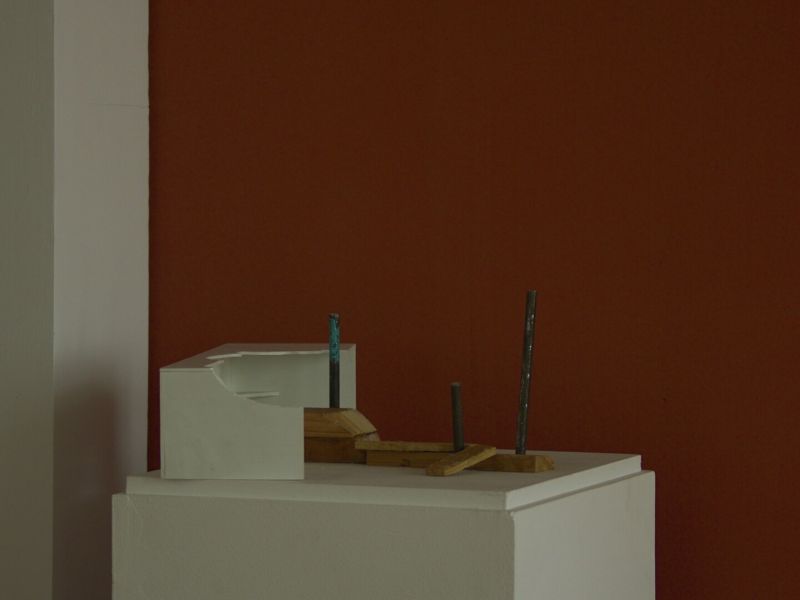
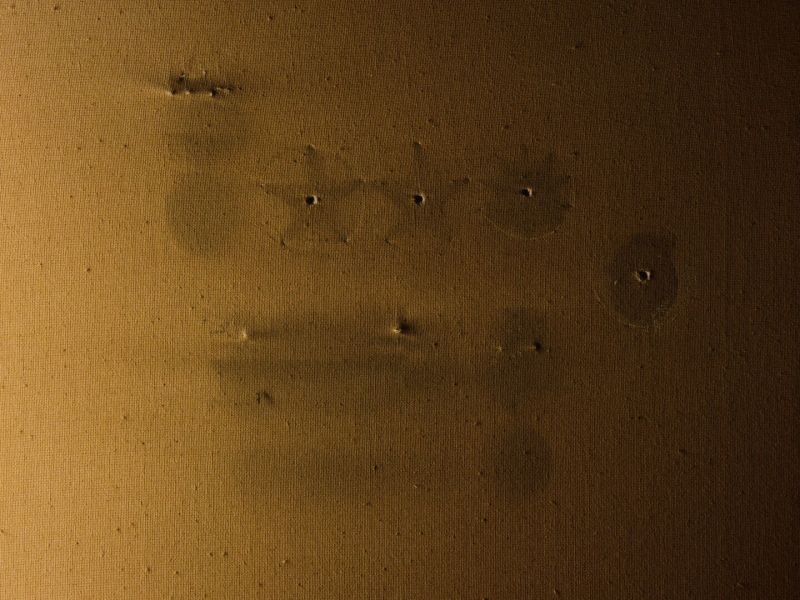
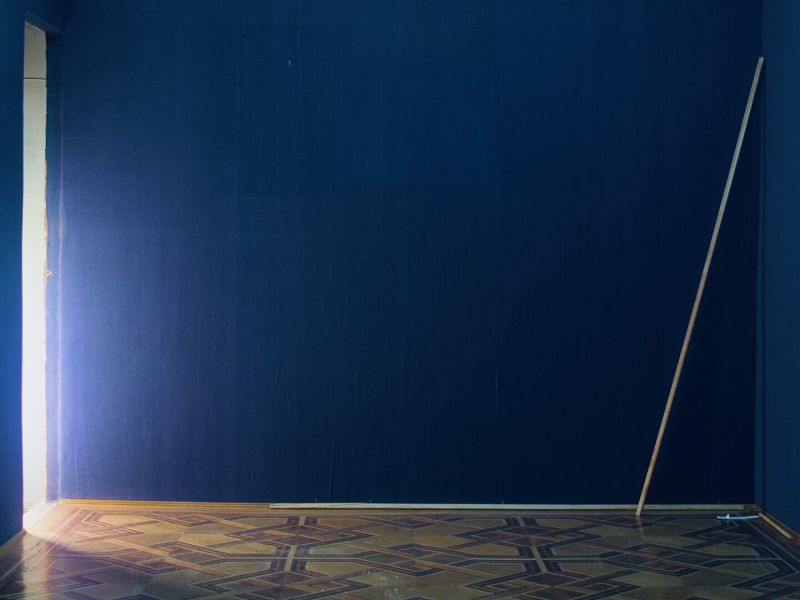
 Vybukhy bilia muzeiu (Explosions Near the Museum)
Vybukhy bilia muzeiu (Explosions Near the Museum)
Ukraine 2023 | Farbe |
13:38 | Englisch
 Vybukhy bilia muzeiu (Explosions Near the Museum)
Vybukhy bilia muzeiu (Explosions Near the Museum)
Ukraine 2023 | Color |
13:38 | English
Zwei Wochen vor der Befreiung von Cherson plünderten russische Besatzungstruppen das dortige Heimatmuseum und stahlen jahrhundertealte ukrainische Kulturgüter. Während Russland die zurückeroberte Stadt weiter bombardiert, öffnet das Museum seine Türen – mit leeren Ausstellungsräumen.
Two weeks before the liberation of Kherson, Russian occupying troops plundered the local museum and stole centuries-old Ukrainian cultural assets. While Russia continued to bombard the recaptured city, the museum opened its doors – with empty exhibition rooms.
Regie, Kamera, Editing, Script:
Director, Director of photography, Editing, Script:
Yarema Malashchuk
Regie, Editing, Kamera, Script:
Director, Editing, Director of photography, Script:
Roman Khimei
Verleihfirma, Kamera, Editing, Script:
Distributor, Director of photography, Editing, Script:
Oleksandr Hoisan
Ton:
Sound design:
Serzh Avdeev
Ton:
Sound design:
Natalia Avramenko
Stimmen:
Voices:
Clemens Poole
Produzent:in:
Producer:
Andrii Lytvynenko
Produzent:in:
Producer:
Bjorn Geldhof
(Selection) Additional Scenes (2024), How It's Made (2021), So They Won’t Say We Don’t Remember (2021), Live Stream (2020), New Jerusalem (2020), Dedicated to the Youth of the World II (2019), State Institution (2017)
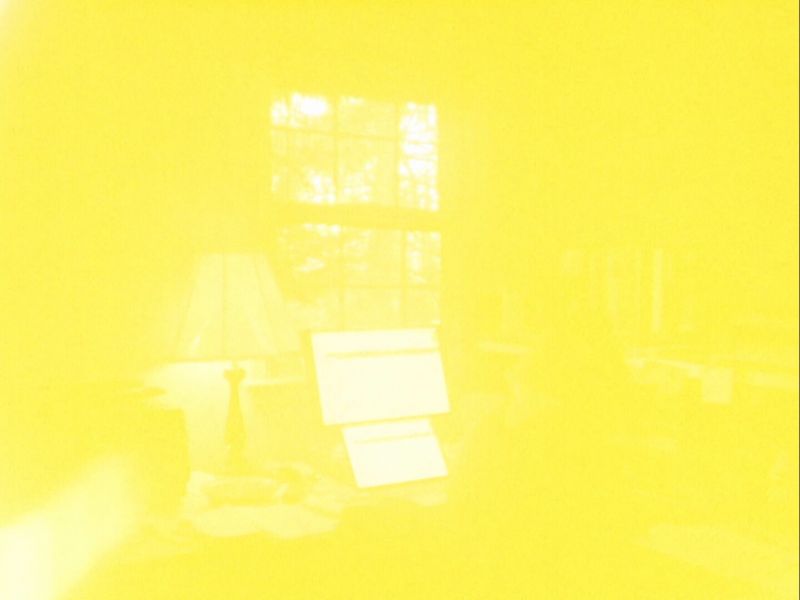
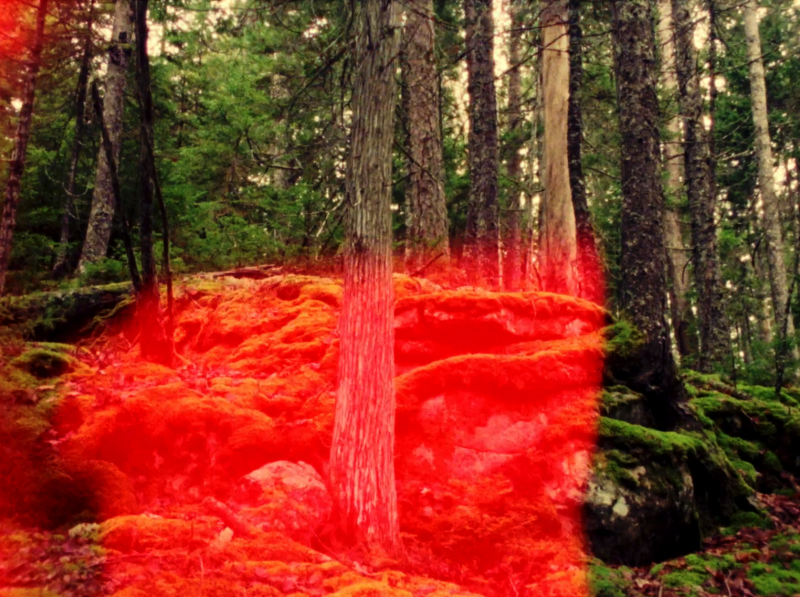

 Language Decay
Language Decay
Vereinigte Staaten 2025 | Farbe |
02:55 | Kroatisch, Englisch, Französisch, Deutsch
 Language Decay
Language Decay
United States 2025 | Color |
02:55 | Croatian, English, French, German
»Eine kaputte Kamera und drei Filmrollen. So halte ich Tage mit meiner Großmutter fest. Die Version der Frau auf Zelluloid ist ihr fremder als mir, und die Version von ihr selbst, wie sie diese Sprachen spricht, ist mir fremder als ihr. Beide sind nicht vollständig. In unserer Wahrnehmung entgleiten sie uns und vergehen. Sie gehören keinem von uns. Sie gehören der Zeit – so wie Sprachen unvollkommen sind und sich den Bedürfnissen ihrer Sprecher anpassen.«
»A broken camera and three rolls of film. That's how I capture days with my grandmother. The version of the woman on celluloid is stranger to her than to me, and the version of herself speaking these languages is stranger to me than to her. Neither is complete. In our perception, they slip away from us and fade away. They belong to neither of us. They belong to time – just as languages are imperfect and adapt to the needs of their speakers.«
Regie, Kamera, Editing, Produzent:in, Ton:
Director, Director of photography, Editing, Producer, Sound design:
Zazie Ray-Trapido
The Instability of Clouds (2024), When We Encounter the World (2023), Nona (2022), Playdate (2021)
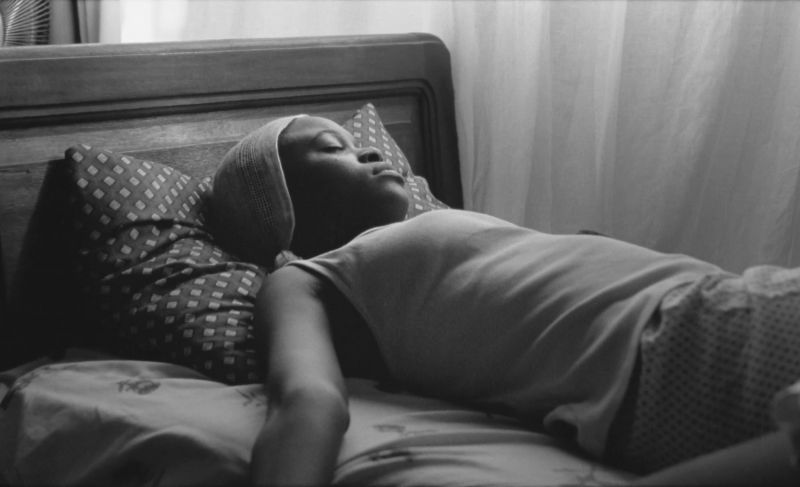
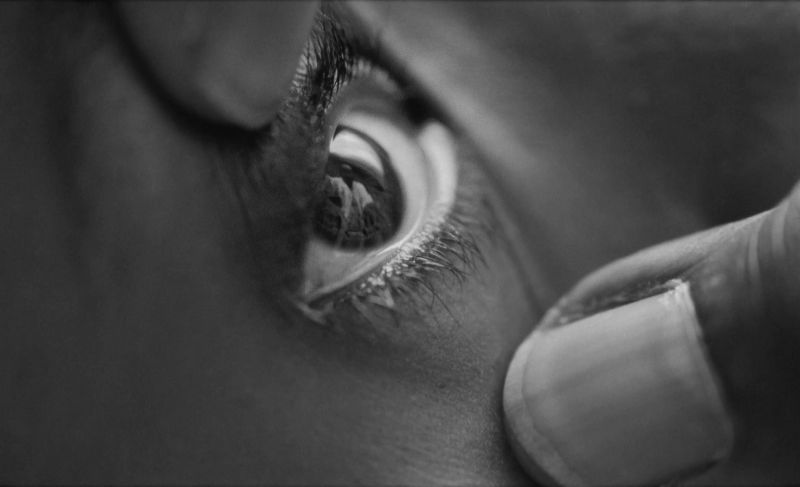
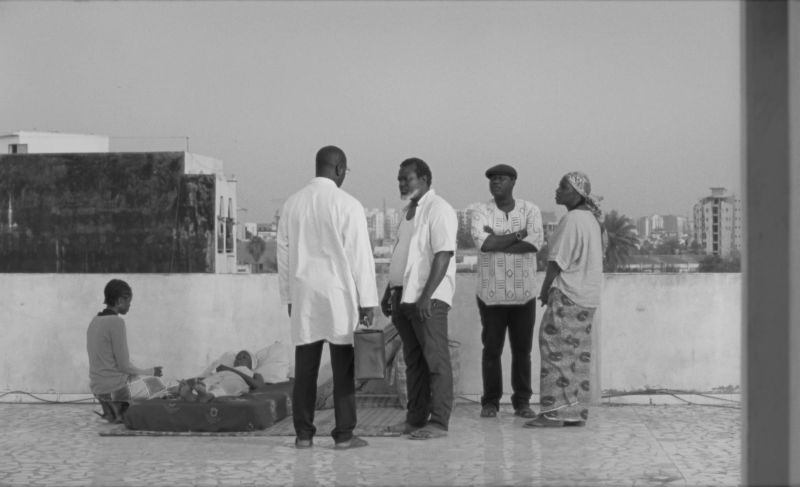
 Ne réveillez pas l'enfant qui dort (Don't Wake the Sleeping Child)
Ne réveillez pas l'enfant qui dort (Don't Wake the Sleeping Child)
Senegal, Frankreich, Marokko 2025 | Schwarz-Weiss |
28:02 | Wolof
 Ne réveillez pas l'enfant qui dort (Don't Wake the Sleeping Child)
Ne réveillez pas l'enfant qui dort (Don't Wake the Sleeping Child)
Senegal, France, Morocco 2025 | Black & White |
28:02 | Wolof
Diamant, 15, aus Dakar, träumt davon, Filme zu machen. Doch ihre Familie hat andere Pläne für ihre Zukunft und trifft über ihren Kopf hinweg Entscheidungen. Diamant sucht nach einer Fluchtmöglichkeit und sehnt sich nach Ruhe. Am nächsten Morgen ist sie in einen unerklärlichen, tiefen Schlaf gefallen – Ausdruck des Widerstands gegen die ihr auferlegten Verpflichtungen. Die Verweigerung mitzumachen, was eindeutig als unerträglich empfunden wird: ein Motiv der Weltliteratur.
Content notes:
Discrimination against women
Diamant, 15, from Dakar, dreams of making films. But her family has other plans for her future and makes decisions over her head. Diamant is looking for an escape and longs for peace and quiet. The next morning, she has fallen into an inexplicably deep sleep – an expression of resistance to the obligations imposed on her. The refusal to go along with what is clearly perceived as unbearable: a motif of world literature.
Content notes:
Discrimination against women
Regie, Script:
Director, Script:
Kevin Aubert
Kamera:
Director of photography:
Louis Mas
Editing:
Editing:
Jeanne Fontaine
Music:
Music:
Pablo Altar
Ton:
Sound design:
Adil Aissa
Koproduktionsfirma:
Coproduction company:
Free Monkeyz
Koproduktionsfirma:
Coproduction company:
Julien Fourré
Verleihfirma:
Distributor:
Zineb Kharroubi
Produzent:in:
Producer:
Sébastien Hussenot
Produzent:in:
Producer:
Chloé Ortolé
Produktionsfirma:
Production company:
LA LUNA PRODUCTIONS
Produktionsfirma:
Production company:
Tangerine Productions

Internationaler Wettbewerb 6 share
IC 6: Orchards, Memory & Electric Dust share
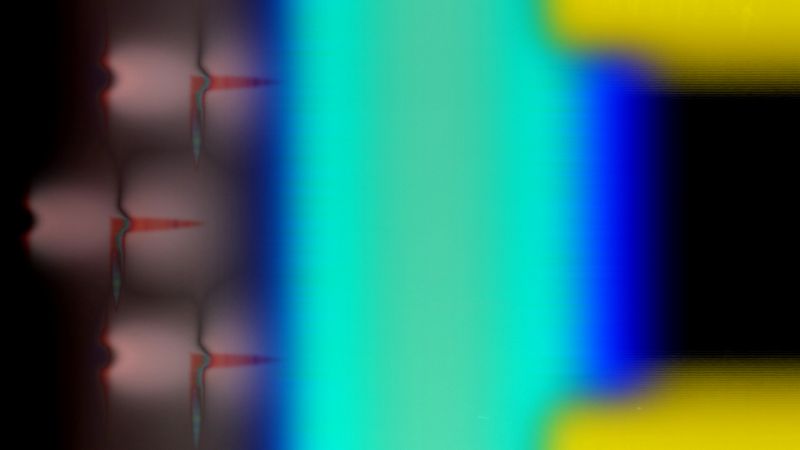
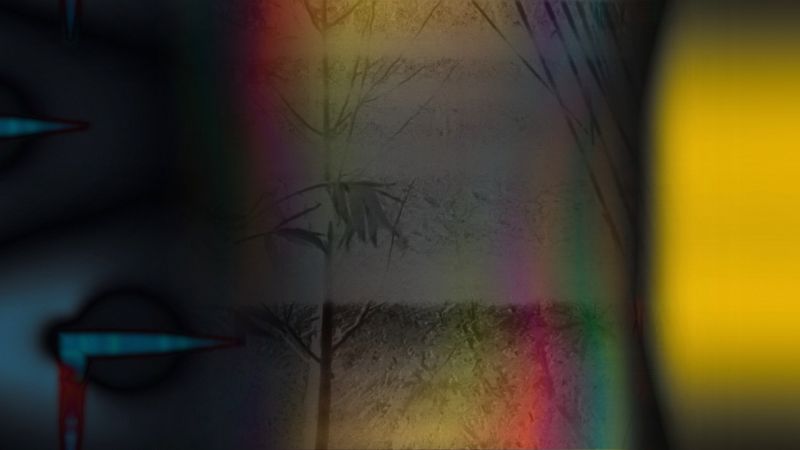
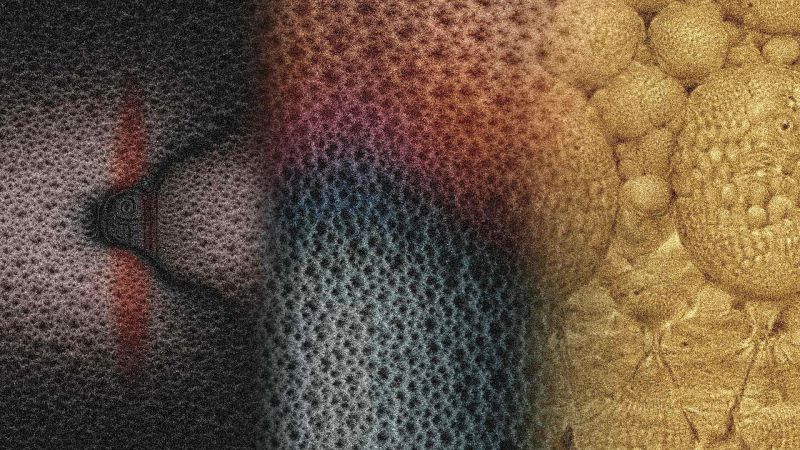
 The Garden of Electric Delights
The Garden of Electric Delights
Österreich 2025 | Farbe |
11:50 | Kein Dialog
 The Garden of Electric Delights
The Garden of Electric Delights
Austria 2025 | Color |
11:50 | No Dialogue
»Mein 'Garten der Lüste' ist kein überpräparierter, steriler Garten mit englischem Rasen. Im Gegenteil: Der kybernetische Blätterwald raschelt, weht, flattert, die Magnetfelder wuchern und wachsen, vibrierende Farben blühen, es wimmelt, summt, brummt, raschelt, kräuselt, zirpt, pfeift, salbungsvoll, krächzt und zirpt. Elektronen-Tripping!«
Content notes:
Strobe effects and/or flashing images
»My 'Garden of Delights' is not an over-prepared, sterile garden with an English lawn. On the contrary: the cybernetic forest of leaves rustles, blows, flutters, the magnetic fields proliferate and grow, vibrating colours bloom, it teems, hums, buzzes, rustles, ripples, chirps, whistles, unctuously, croaks and chirps. Electrons tripping!«
Content notes:
Strobe effects and/or flashing images
Regie, Music, Ton:
Director, Music, Sound design:
Billy Roisz
Music:
Music:
Karolina Preuschl
Music:
Music:
Isabella Forciniti
Ton:
Sound design:
Dieter Kovačič
Verleihfirma:
Distributor:
Gerald Weber
(Selection) Happy Doom (2024), do they speak color? (2022), Who's afraid of RGB (2019), paris (2017), TOUTES DIRECTIONS (2017), Chiles en Nogada (2011)
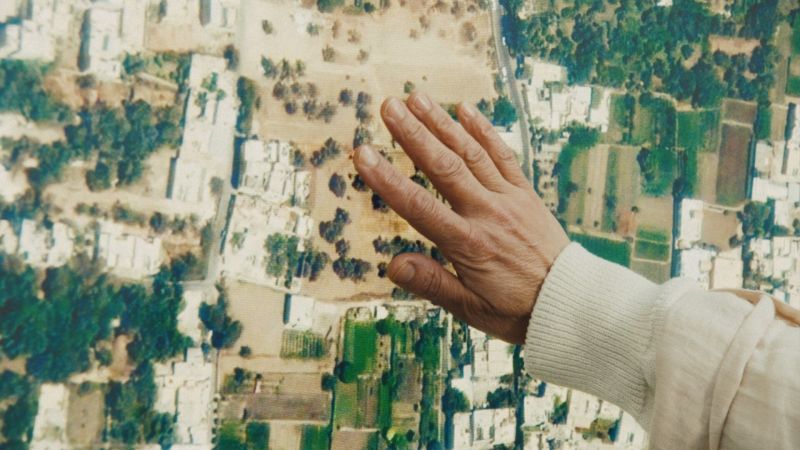

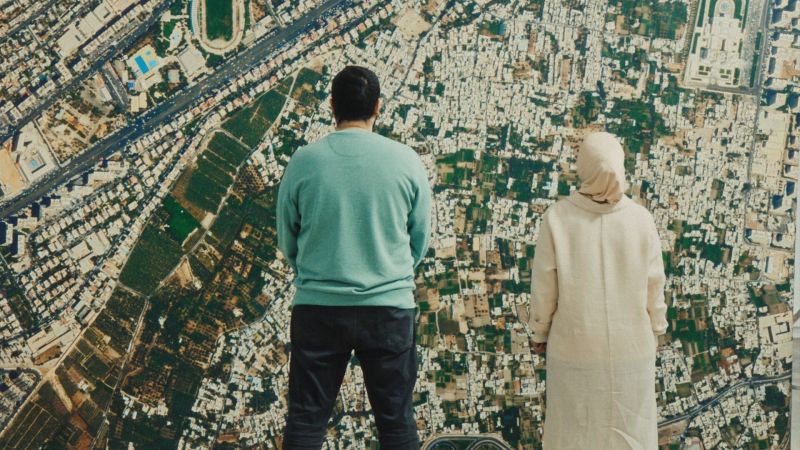
 Al Basateen (The Orchards)
Al Basateen (The Orchards)
Frankreich 2025 | Farbe |
24:41 | Arabisch
 Al Basateen (The Orchards)
Al Basateen (The Orchards)
France 2025 | Color |
24:41 | Arabic
Im Jahr 2015 wurde in Damaskus das Viertel Basateen al-Razi als Strafe für den Aufstand der Bevölkerung gegen das Regime von Baschar al-Assad dem Erdboden gleichgemacht. An seiner Stelle soll Marota City entstehen, ein moderner, vernetzter Stadtteil mit 80 Wolkenkratzern. Zehn Jahre später erinnern sich zwei Bewohner:innen, die alles verloren haben, an ihr Quartier, in dem einst ihre Häuser und die ältesten Obstgärten von Damaskus standen. Der Film verbindet ihre Erzählungen und nutzt vom Regime produzierte 3D-Animationen, um Erinnerungen wach zu rufen und sich dem Vergessen und der gezielten Auslöschung entgegenzustellen.
In 2015, the Basateen al-Razi district in Damascus was razed to the ground as punishment for the population’s uprising against the regime of Bashar al-Assad. In its place, a modern, networked district with 80 skyscrapers, Marota City, was to be constructed. Ten years later, two residents who lost everything remember their neighbourhood, where their houses and the oldest orchards in Damascus once stood. The film combines their stories and uses 3D animations produced by the regime to evoke memories and confront oblivion and deliberate erasure.
Regie, Animation, Editing:
Director, Animation, Editing:
Antoine Chapon
Kamera:
Director of photography:
Juliette Barrat
Editing:
Editing:
Laura Ríus Arán
Music:
Music:
Hareth Mhedi
Ton:
Sound design:
Simon Apostolou
Ton:
Sound design:
Ryo Baldet
Produzent:in:
Producer:
Julien Graff
Produzent:in:
Producer:
Thomas Hakim
Sales:
Sales:
Square Eyes
My Own Landscapes (2020)
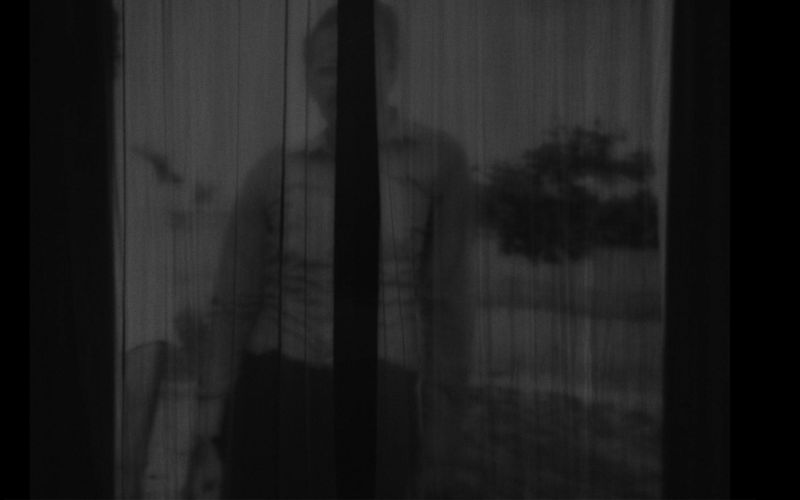
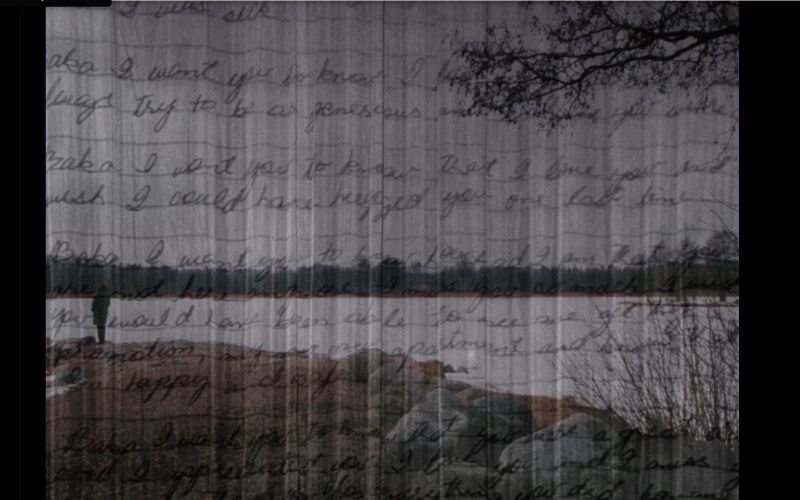
 A Night That Took Everything
A Night That Took Everything
Pakistan, Finnland 2025 | Schwarz-Weiss und Farbe |
19:25 | Urdu
 A Night That Took Everything
A Night That Took Everything
Pakistan, Finland 2025 | Black & White and Color |
19:25 | Urdu
Blasphemie ist in Pakistan ein Kapitalverbrechen. Ein Mann wird fälschlicherweise angeklagt und zum Tode verurteilt. Seine Tochter, traurig und wütend, reflektiert über die harte Realität in ihrem Heimatland.
Content notes:
Mental Health, Refugee experience and/or war
Blasphemy is a capital offense in Pakistan. A man is falsely accused and sentenced to death. His daughter, sad and angry, reflects on the harsh reality in her home country.
Content notes:
Mental Health, Refugee experience and/or war
Regie:
Director:
Nida Mehboob
Kamera:
Director of photography:
Léon Torres
Editing:
Editing:
Jette Keedus
Ton:
Sound design:
François Yazbeck
Produzent:in:
Producer:
Kari Ahotupa
Verleihfirma:
Distributor:
Saara Toivanen
Production designer:
Production designer:
Freda Purik
How I Like It (2021), 298-C (2018)
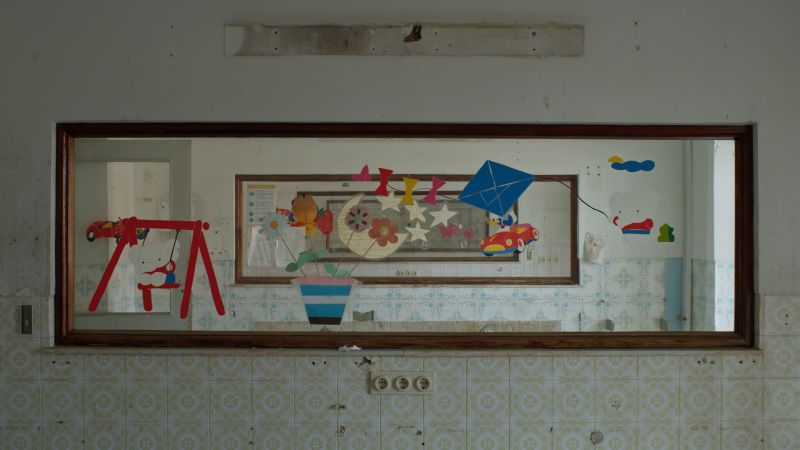
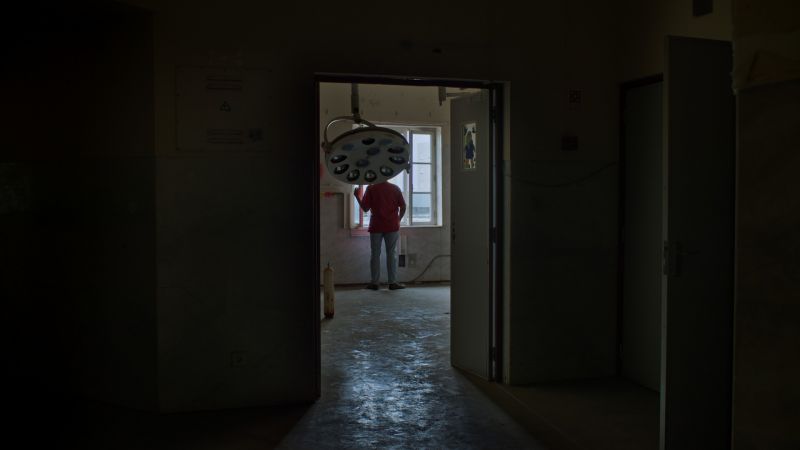
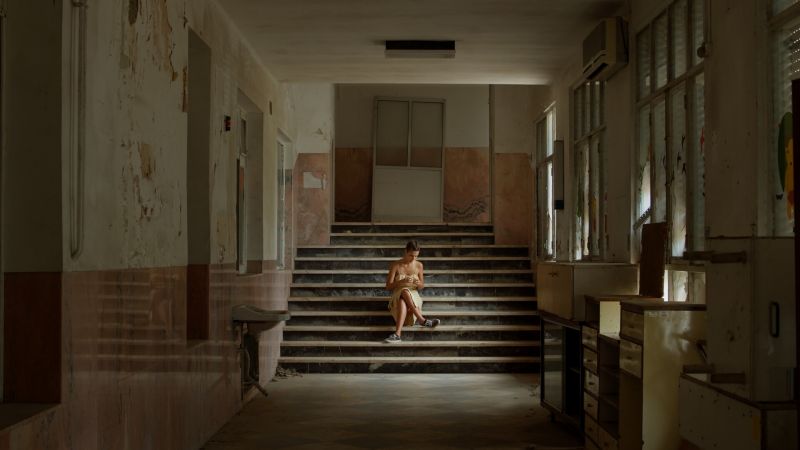
 Deus-E-Meio (God-And-A-Half)
Deus-E-Meio (God-And-A-Half)
Portugal 2024 | Farbe |
25:44 | Portugiesisch
 Deus-E-Meio (God-And-A-Half)
Deus-E-Meio (God-And-A-Half)
Portugal 2024 | Color |
25:44 | Portuguese
Zwei Gestalten wandern durch die leeren Korridore und an den abblätternden Wänden eines verlassenen Krankenhauses entlang. Inmitten der Ruinen treffen sich die Regisseurin Margarida Assis und Manuel João Brito, der Onkologe, der sie als Kind behandelt hatte, wieder. Wie damals, als sie noch ein Kind war, sitzen sie sich am Schreibtisch gegenüber: die klassische Arzt-Patienten-Beziehungsebene. Die Dynamik: geprägt von Intimität und Distanz und Nähe. Margarida Assis sagt: »Das Kino hat wissenschaftlich bewiesen, dass es keinen Unterschied zwischen Erinnerung und Zukunft gibt.« God-And-A-Half wird so zu einer Möglichkeit, Erinnerungen zu hinterfragen und mit dem Kino den Kontakt zwischen den Zeiten herzustellen.
Content notes:
Fatal Disease
Two figures wander through the empty corridors and along the peeling walls of an abandoned hospital. Amidst the ruins, director Margarida Assis and Manuel João Brito, the oncologist who treated her as a child, meet again. Just like when she was a child, they sit opposite each other at the desk: the classic doctor-patient relationship. The dynamic: characterized by intimacy and distance and closeness. Margarida Assis says: »Cinema has scientifically proven that there is no difference between memory and the future.« God-And-A-Half thus becomes a way of questioning memories and using cinema to establish contact between times.
Content notes:
Fatal Disease
Regie, Darsteller:innen, Editing:
Director, Cast, Editing:
Margarida Assis
Kamera, Editing:
Director of photography, Editing:
Tiago Carvalho
Kamera:
Director of photography:
Miguel da Santa
Produzent:in, Editing:
Producer, Editing:
Luís Costa
Produzent:in:
Producer:
André Guiomar
Ton:
Sound design:
João Pedro Silva
Ton:
Sound design:
Maurício D'Orey
Music:
Music:
Daft Punk
Verleihfirma:
Distributor:
Agência - Short Film Agency
Darsteller:innen:
Cast:
Manuel João Brito

Internationaler Wettbewerb 7 share
IC 7: Images That Move Us Forward share
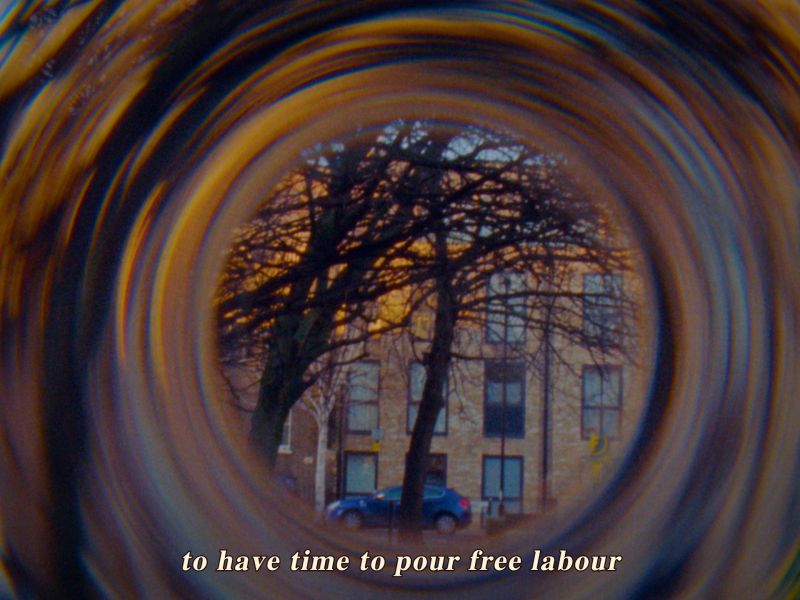
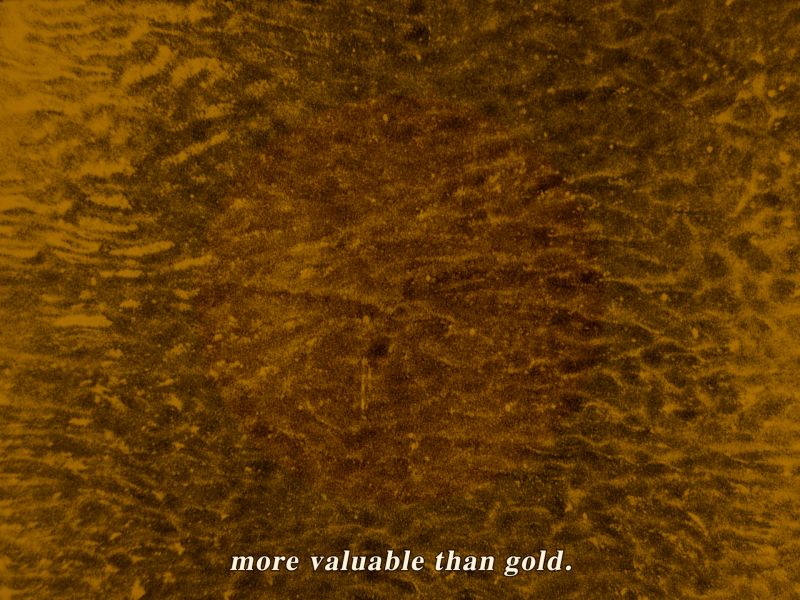
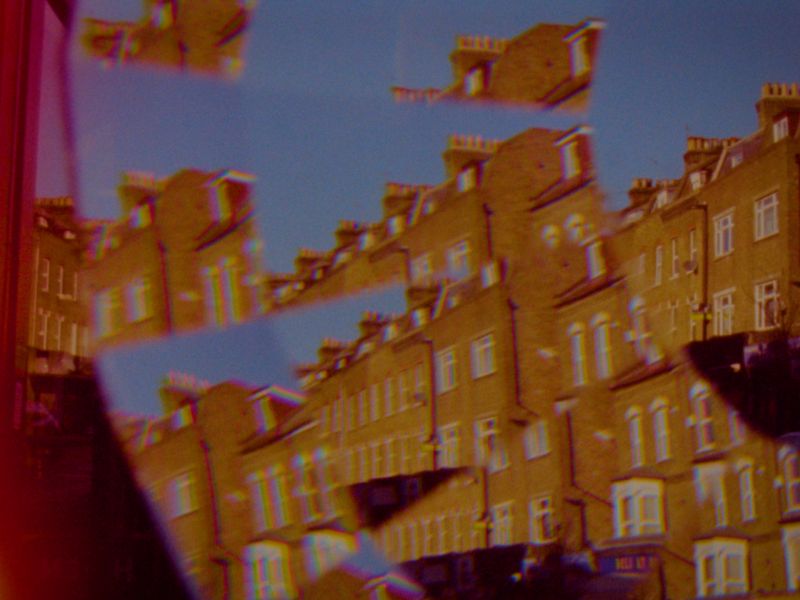
 Okay Keskidee! Let Me See Inside
Okay Keskidee! Let Me See Inside
Vereinigtes Königreich 2025 | Farbe |
19:50 | Englisch
 Okay Keskidee! Let Me See Inside
Okay Keskidee! Let Me See Inside
United Kingdom 2025 | Color |
19:50 | English
Ein persönlicher Bericht über Schwarze Gemeinschaftsräume in Großbritannien mit Schwerpunkt auf der karibischen Diaspora. Anhand des ehemaligen Keskidee Centre, das heute Luxusapartments beherbergt, beleuchtet der Film die Bedingungen, die diesen historischen Ort zum Gedeihen brachten. Okay Keskidee! untersucht die Gründe, warum Versammlungen in physischen Räumen aufgrund der hohen Raumkosten und der oft benötigten unbezahlten Arbeitskräfte oder staatlichen Förderung – beides knapp – schwierig sind. Wir sehen die Architektur der umliegenden Entwicklungen, die vom zügellosen Kapitalismus geprägt sind. Kann die digitale Welt die physische Präsenz der Gemeinschaft ersetzen und ein zugängliches Archiv für eine neue Generation schaffen? (Rhea Storr)
A personal account of black community spaces in the UK with a focus on the Caribbean diaspora. Using the former Keskidee Centre, now home to luxury apartments, the film looks at the conditions that allowed this historic space to thrive. Okay Keskidee! explores the reasons why gatherings in physical spaces are difficult due to the high cost of space and the often-required unpaid labour or government funding – both of which are in short supply. We see the architecture of surrounding developments shaped by unbridled capitalism. Can the digital world replace the physical presence of the community and create an accessible archive for a new generation? (Rhea Storr)
Regie:
Director:
Rhea Storr
Music:
Music:
Felix Taylor
(Selection) Subjects of State, Labours of Love: Sheffield (2025), Through a Shimmering Prism, We Made a Way (2022), Madness Remixed (2021), Here Is the Imagination of the Black Radical (2020), Henry (2017)
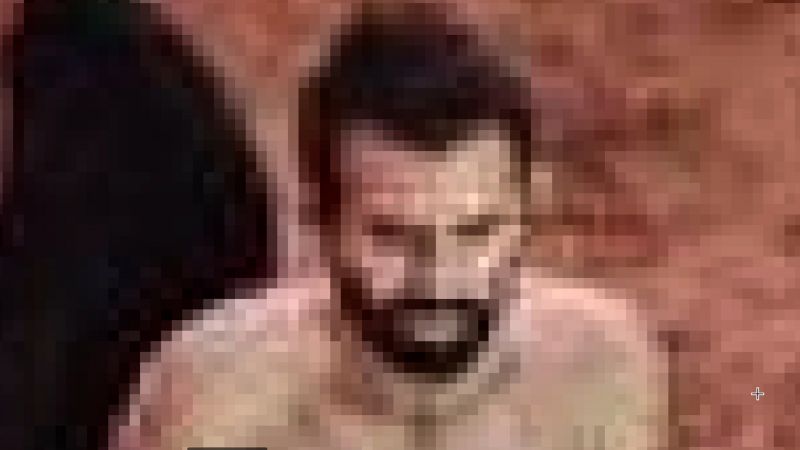
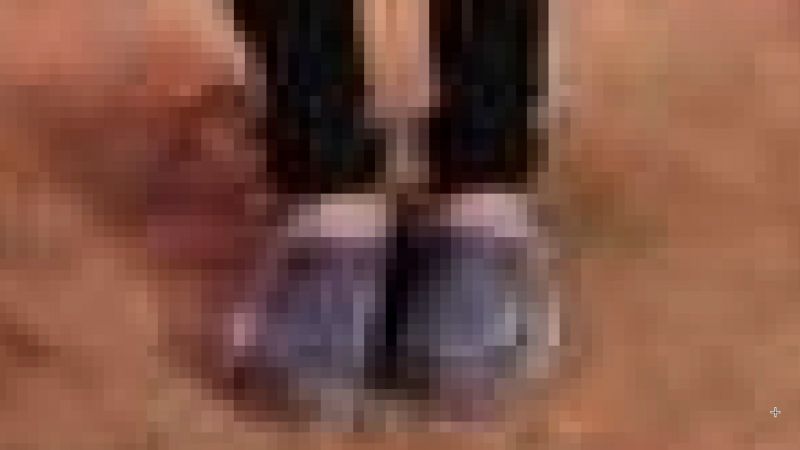
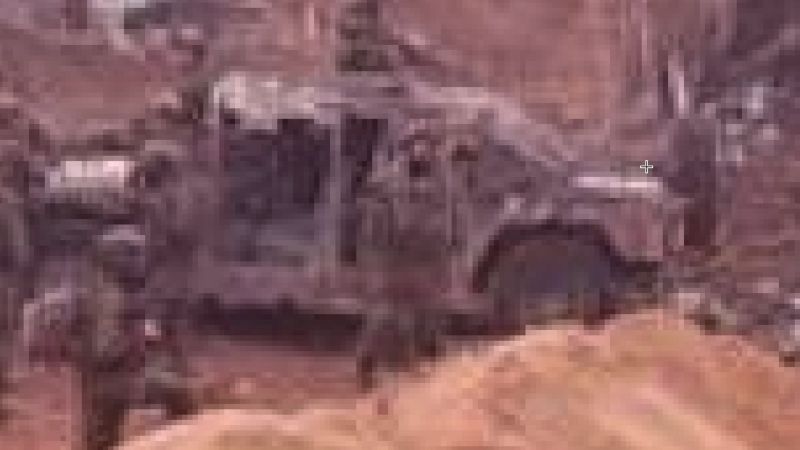
 Man Number 4
Man Number 4
Vereinigtes Königreich 2024 | Farbe |
09:50 | Englisch
 Man Number 4
Man Number 4
United Kingdom 2024 | Color |
09:50 | English
Gaza im Dezember 2023. Die Konfrontation mit einem verstörenden Foto in den sozialen Medien wirft Fragen darüber auf, was es bedeutet, Zuschauer:in zu sein. »Pennell gelingt in ihrem Essay etwas wirklich Bemerkenswertes: Inmitten des weltweit ersten live gestreamten Genozids und seines unerbittlichen Bilderstroms schafft sie Raum für eine minutiöse, auf Details konzentrierte Analyse.« (Flavia Dima)
Content notes:
Political Violence, Refugee experience and/or war
Gaza in December 2023. The confrontation with a disturbing photo on social media raises questions about what it means to be a bystander. »Pennell does something truly remarkable in her essay: in the midst of the world’s first livestreamed genocide and its relentless flow of imagery, she creates space for a minute analysis focused on detail.« (Flavia Dima)
Content notes:
Political Violence, Refugee experience and/or war
Regie, Produzent:in:
Director, Producer:
Miranda Pennell
Darsteller:innen:
Cast:
John Smith
(Selection) Trouble (2023), Strange Object (2020), The Host (2015), Why Colonel Bunny Was Killed (2011), Drum Room (2007), You Made Me Love You (2005), Fisticuffs (2004)
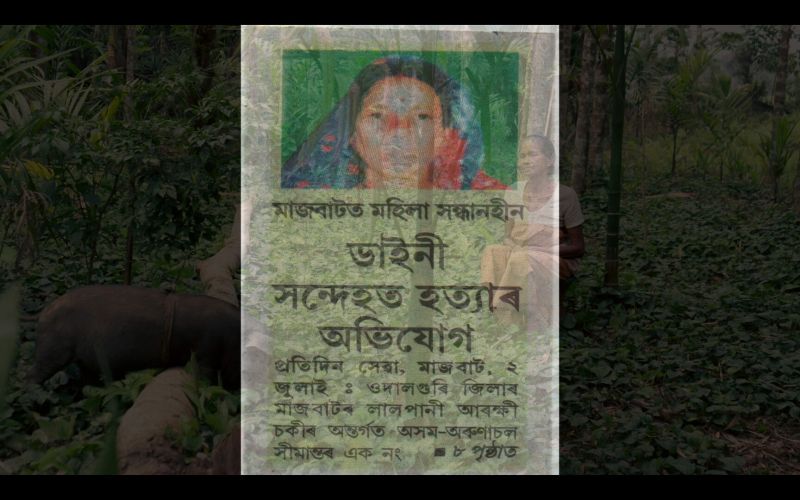
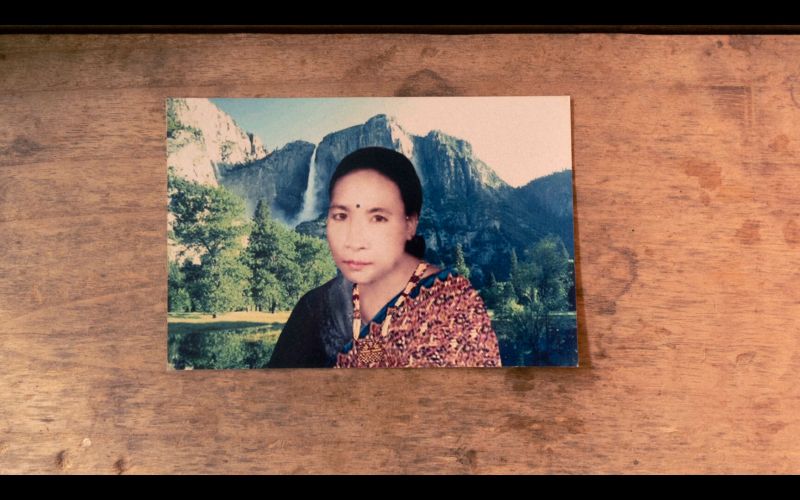
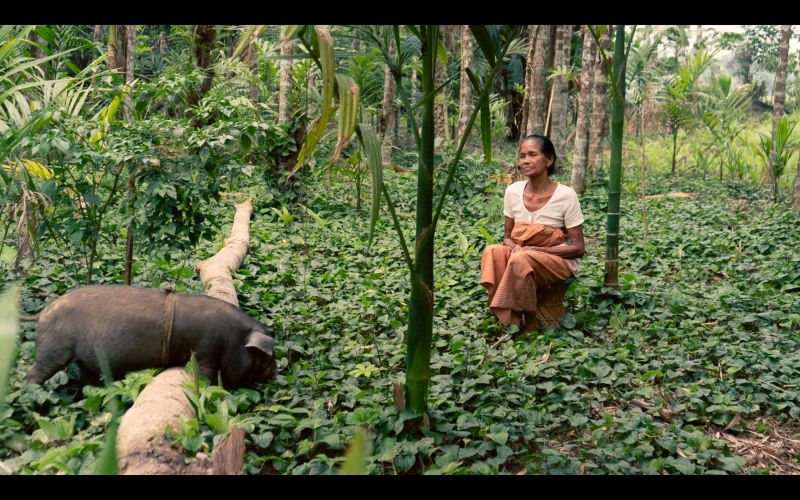
 Boi Thaka (The Flow of Resilience )
Boi Thaka (The Flow of Resilience )
Indien 2024 | Farbe |
14:36 | Assamesisch
 Boi Thaka (The Flow of Resilience )
Boi Thaka (The Flow of Resilience )
India 2024 | Color |
14:36 | Assamese
Bis heute werden Hexen verfolgt. In Indien findet die Filmemacherin ein Tagebuch der Tochter einer als Hexe beschuldigten Frau. Sie macht sich auf die Reise in entlegene Dörfer im Norden Indiens und deckt erschütternde Geschichten auf. Anhand von Manjula, der Tochter einer angeklagten Hexe, meditiert der Film über Erinnerung, den Akt des Erinnerns, die Darstellung und Archivierung von Traumata.
Content notes:
Discrimination against women
Witches are still persecuted to this day. In India, the filmmaker finds a diary of the daughter of a woman accused of being a witch. She sets off on a journey to remote villages in the north of India and uncovers harrowing stories. Based on Manjula, the daughter of an accused witch, the film meditates on memory and the act of remembering as well as the representation and archiving of trauma.
Content notes:
Discrimination against women
Regie, Produzent:in, Script, Editing:
Director, Producer, Script, Editing:
Pranami Koch
Kamera, Ton:
Director of photography, Sound design:
Shrutiman Deori
Echoes Within (2024)
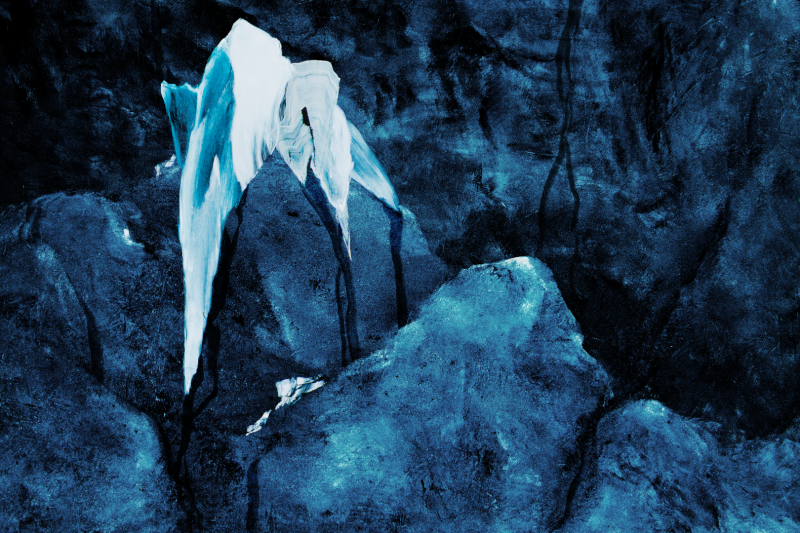
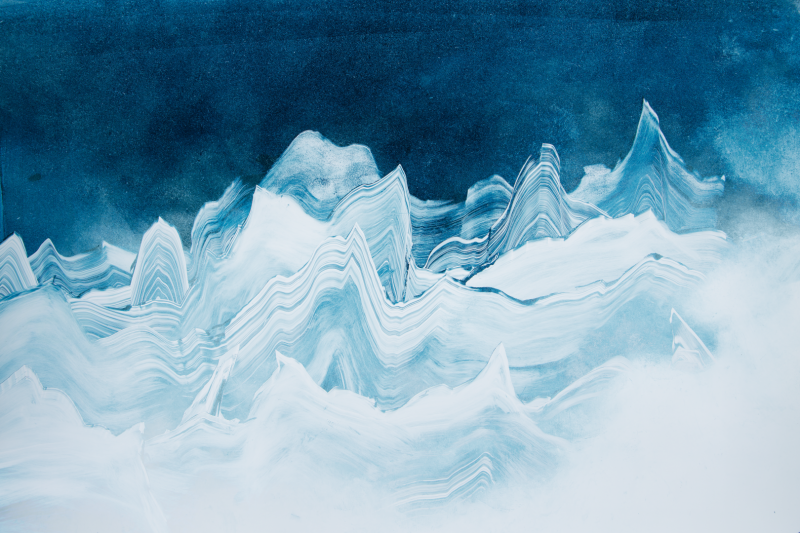
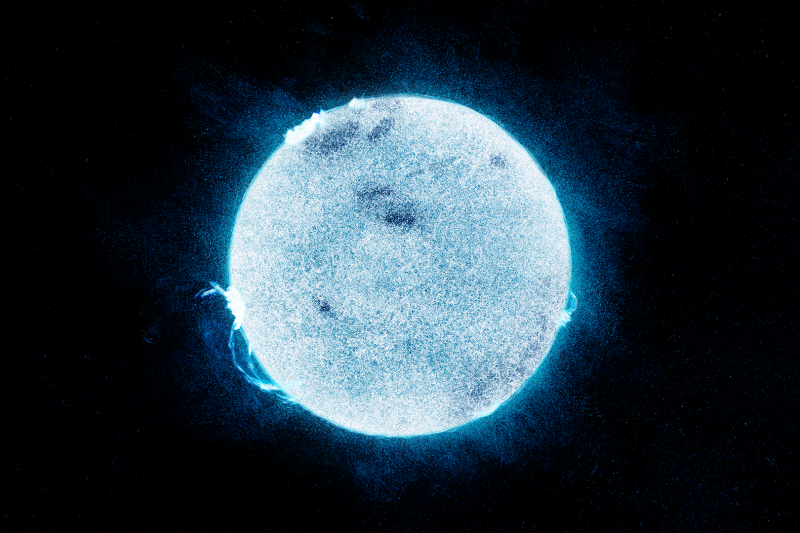
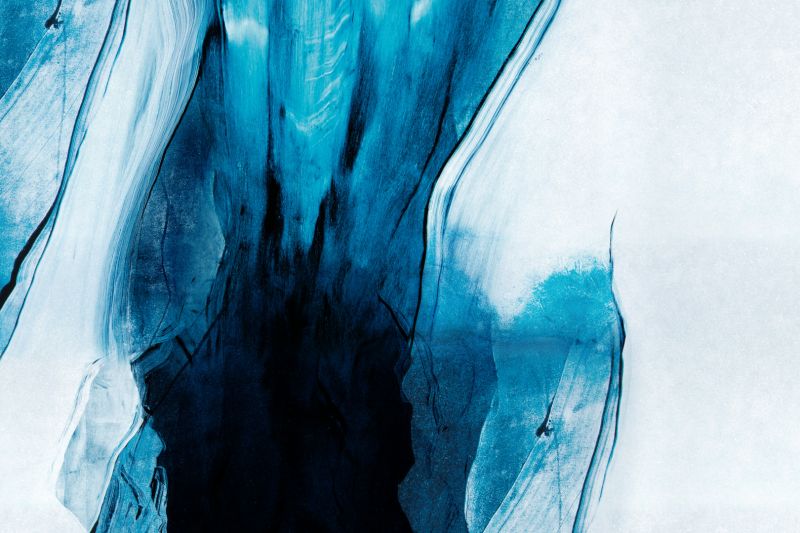
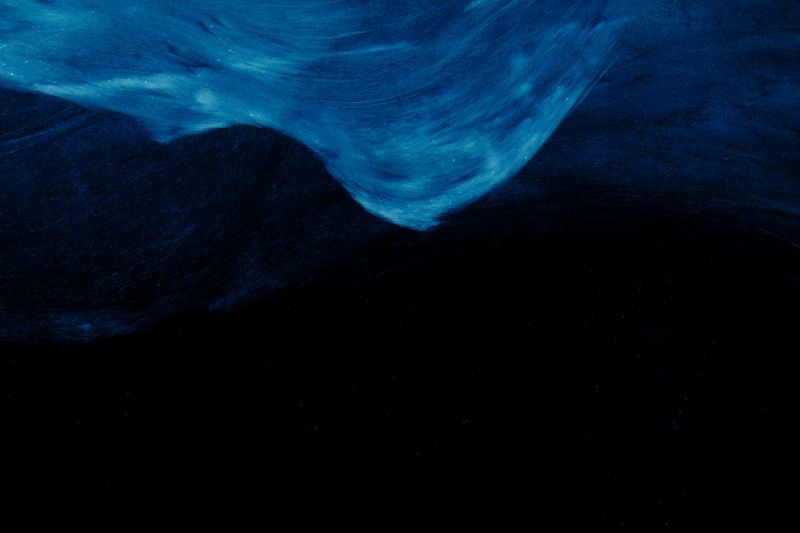
 HIC SVNT DRACONES
HIC SVNT DRACONES
Frankreich 2024 | Farbe |
12:49 | Kein Dialog
 HIC SVNT DRACONES
HIC SVNT DRACONES
France 2024 | Color |
12:49 | No Dialogue
Erst gestern kamen Drachen herab, um zu sehen, was die Menschen in ihren Tälern taten. Sie zerstörten alles auf ihrem Weg und wir verfluchten sie – vergebens.
Only yesterday, dragons descended to discover what the humans were doing in their valleys. They destroyed everything in their path and we cursed them – in vain.
Sound Editing:
Sound Editing:
Malo Geffraye-Meriadec
Regie, Animation, Script, Editing, Ton, Produzent:in, Verleihfirma:
Director, Animation, Script, Editing, Sound design, Producer, Distributor:
Justin Fayard
Sound Mixing:
Sound Mixing:
Emilien Pichon
Ton:
Sound design:
Malo Geffraye-Meriadec
SOLITUDES 2384M (2022)
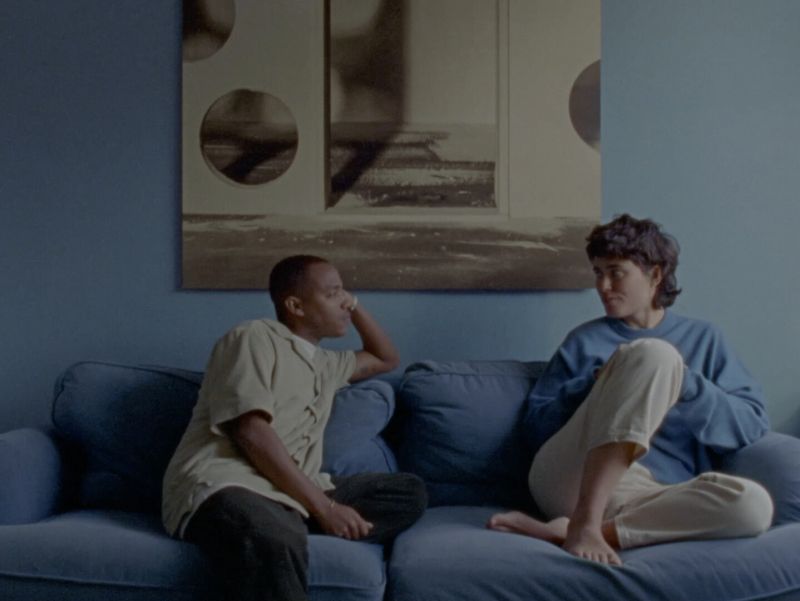
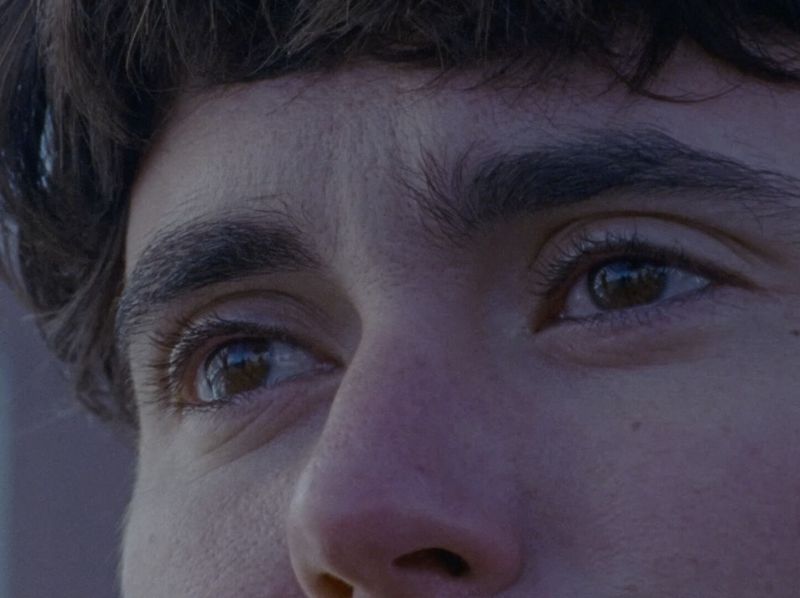
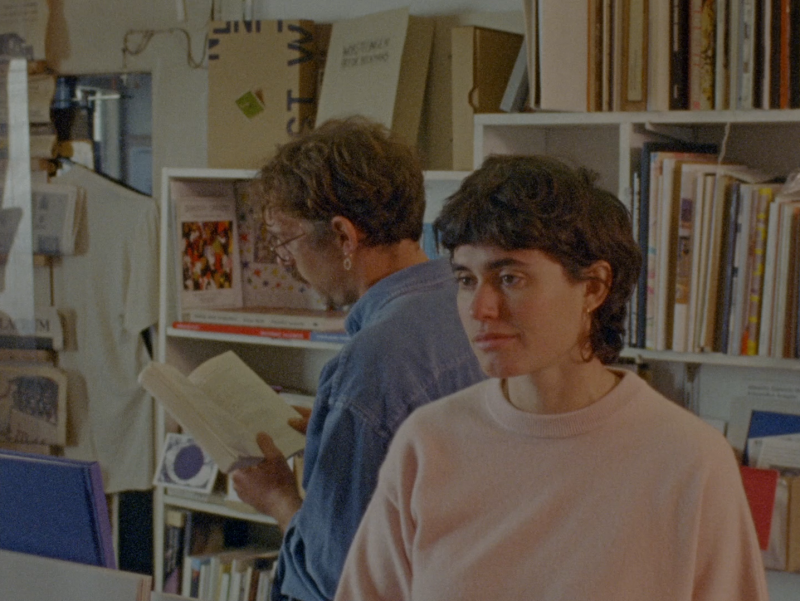
 looking she said I forget
looking she said I forget
Niederlande, Schweiz 2024 | Farbe |
24:58 | Niederländisch, Englisch, Französisch, Spanisch
 looking she said I forget
looking she said I forget
Netherlands, Switzerland 2024 | Color |
24:58 | Dutch, English, French, Spanish
Das Badezimmer ist das Herz ihres Zuhauses. Das Badezimmer ist fluide. Das Schlafzimmer trägt die Erinnerung an die viktorianische Zeit und damit an eine Zeit der Unterdrückung. Lou und Joel, ein junges Paar, ziehen zusammen. Während sie die Wohnung vorbereitet, ist Joel mit einer vertrauten Person unterwegs. Lou wirft sich in die Rhythmen der Stadt, um den komplexen Gefühlen ihrer nicht-monogamen Beziehung ein Gegengewicht zu geben. looking she said I forget mag genauso anti-narrativ sein wie Nicht-Monogamie, aber die Erzählungen der Intimität sind standardmäßig nicht linear. Sie drehen und wenden sich, sie hallen wider und brechen sich, und doch bezeugen sie eine einfache Wahrheit: Geliebt zu werden bedeutet, gesehen zu werden.« (Talking Shorts, Savina Petkova)
The bathroom is their home’s heart. The bathroom is fluid. The bedroom carries the memory of the Victorian era and thus of a time of oppression. Lou and Joel, a young couple, move in together. While she prepares the apartment, Joel is out with someone familiar. Lou throws herself into the rhythms of the city to counterbalance the complex feelings of their non-monogamous relationship. looking she said I forget may be as anti-narrative as non-monogamy, but the narratives of intimacy are non-linear by default. They twist and turn, they echo and refract, and yet they bear witness to a simple truth: to be loved is to be seen.« (Talking Shorts, Savina Petkova)
Regie, Produzent:in, Editing, Script, Music:
Director, Producer, Editing, Script, Music:
Naomi Pacifique
Kamera:
Director of photography:
Xenia Patricia
Editing:
Editing:
Lucia Martinez Garcia
Music:
Music:
Ella van der Woude
Music:
Music:
Cyrielle Formaz
Ton:
Sound design:
Clara Alloing
Ton:
Sound design:
Vuk Vukmanovic
Darsteller:innen:
Cast:
Gaël Kamilindi
Darsteller:innen:
Cast:
Juliet Darremont
Darsteller:innen:
Cast:
Tom de Ronde
Produzent:in:
Producer:
Rafael Manuel
Produzent:in:
Producer:
Yan Decoppet
Produzent:in:
Producer:
Albert Kuhn
Produzent:in:
Producer:
Gabriela Bussman
have we made it across the plain of night (2024), after a room (2021)

Internationaler Wettbewerb 8 share
IC 8: Shifting Horizons share
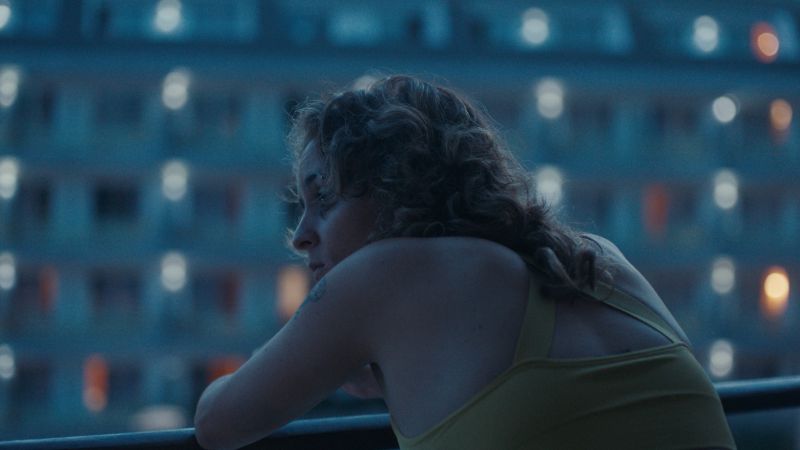
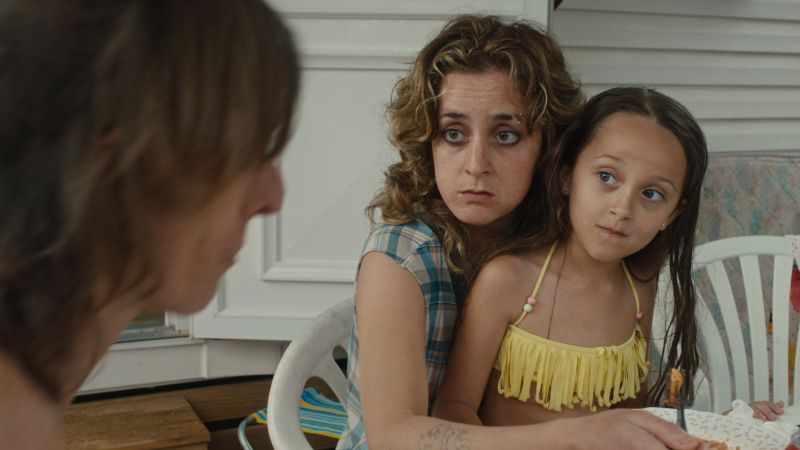
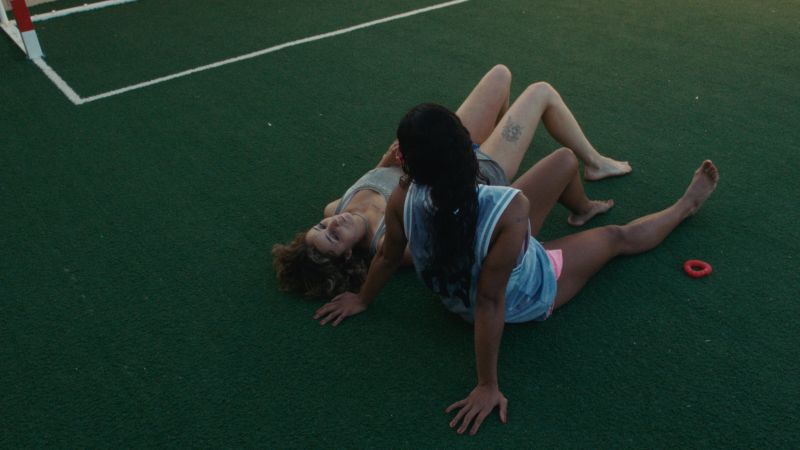
 Casi Septiembre (Close to September)
Casi Septiembre (Close to September)
Spanien 2025 | Farbe |
29:59 | Spanisch
 Casi Septiembre (Close to September)
Casi Septiembre (Close to September)
Spain 2025 | Color |
29:59 | Spanish
Alejandra lebt mit ihrer Mutter und den jüngeren Geschwistern auf einem Campingplatz in einem Ferienort am Meer. Im Sommer kommen die Tourist:innen, und Alejandra lässt keinen Flirt aus. Doch dann lernt sie Amara kennen, eine selbstbewusste, geheimnisvolle junge Frau aus der Stadt. Die Beziehung zu ihr bringt Alejandra dazu, ihre Vorstellungen von der Liebe und von sich selbst neu zu denken und zu erfahren. Provokation der Liebe!
Content notes:
Alcoholism and/or drug-abuse
Alejandra lives with her mother and younger siblings on a campsite in a seaside resort. The tourists come in the summer and Alejandra never misses a flirt. But then she meets Amara, a self-confident, mysterious young woman from the city. Alejandra's relationship with her causes her to rethink and experience her ideas of love and herself. Provocation of love!
Content notes:
Alcoholism and/or drug-abuse
Regie, Script:
Director, Script:
Lucía G. Romero
Kamera:
Director of photography:
Gemma de Miguel Morell
Editing:
Editing:
Marina Ayet
Music:
Music:
Oriol Brunet
Ton:
Sound design:
Zoe Galán
Verleihfirma:
Distributor:
ESCAC Films
Cura Sana (2024)
 ذبال العين (Echoes of Machtat)
ذبال العين (Echoes of Machtat)
Tunesien | Farbe |
17:08 | Arabisch, Englisch
 ذبال العين (Echoes of Machtat)
ذبال العين (Echoes of Machtat)
Tunisia | Color |
17:08 | Arabic, English
In Mahdia, Tunesien, begibt sich Maram auf eine Reise durch die alten Bräuche und Traditionen rund um die Hochzeit, die ihr Leben geprägt haben. Geleitet von Latifa und Habiba, zwei prominenten Machtat – Hochzeitsmusikerinnen –, entdeckt sie die mütterliche Essenz dieser Tradition, bei der die Verbindung zwischen Mutter und Braut im Mittelpunkt steht.
In Mahdia, Tunisia, Maram goes on a journey through the old customs and traditions around the marriage that shaped her life. Guided by Latifa and Habiba, two prominent Machtat, wedding musicians, she discovers the maternal essence of this tradition in which the connection between mother and bride takes center stage.
Regie:
Director:
Maram Nairi
Kamera:
Director of photography:
Leith Zaiem
Editing:
Editing:
Firas Ben Ali
Editing:
Editing:
Mehe Baaziz
Ton:
Sound design:
Rami Zriba
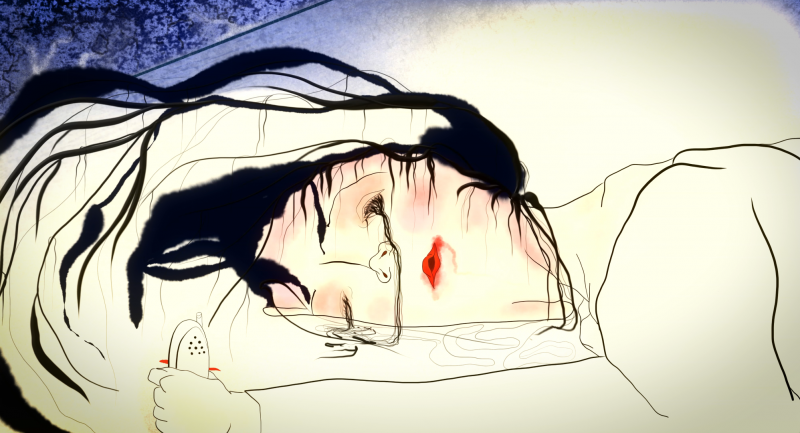
 Mother's Child
Mother's Child
Netherlands, Niederlande 2024 | Farbe |
09:06 | Englisch
 Mother's Child
Mother's Child
Netherlands, Netherlands 2024 | Color |
09:06 | English
Mary vereint Mutterschaft und Vollzeitpflege ihres behinderten Sohnes und bekommt von der Bürokratie einen Schlag nach dem nächsten versetzt. Sie schafft es kaum über die Runden. Nie war es so schwer, die Schönheit im Alltäglichen zu finden. »Seit ich klein war, habe ich miterlebt, wie meine Mutter sich abmühte, mit den vielen Behördengängen und den wahnsinnigen und langweiligen Telefonaten, die sie führen musste, um den Zustand meines Bruders zu erklären. Ich hatte immer das Gefühl, dass meine Mutter sich in unserem täglichen Leben sehr unverstanden gefühlt hat, während sie sich um meinen Bruder kümmerte. Und irgendwann hatte ich das Gefühl, dass ich den Menschen diese Einsicht zeigen muss. Doch es ist ziemlich schwer, etwas zu erklären, das man nur in den eigenen vier Wänden erlebt.« (Naomi Noir)
Mary combines motherhood and full-time care for her disabled son and is dealt one blow after another by the bureaucracy. She barely makes ends meet. It has never been so hard to find beauty in the ordinary. »I have always seen my mother struggle, ever since I was young, with loads of administration and the very insane and dreary phone calls she would always have, having to explain my brother's condition. I always felt my mother felt very misunderstood in our daily lives while taking care of my brother. And at some point I felt I needed to show people this insight – but it's quite hard to explain something that is really only experienced within the privacy of the four walls of a home.« (Naomi Noir)
Regie, Animation:
Director, Animation:
Naomi Noir
Editing:
Editing:
Maryam de Vries
Script:
Script:
Maya Devincenzi Dil
Music, Music composer:
Music, Music composer:
Kris McDonald
Sound Designer, Ton:
Sound Designer, Sound design:
Sietske Brockhoff
Verleihfirma:
Distributor:
Miguel Español Celiméndiz
Below the Spleenicle (2022)
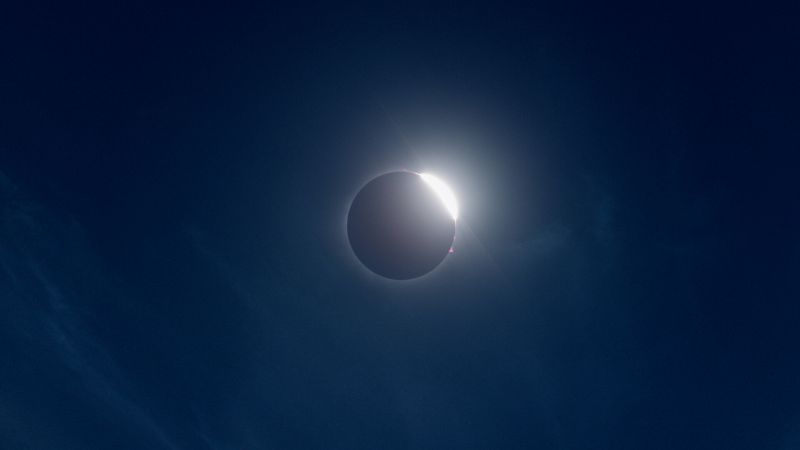

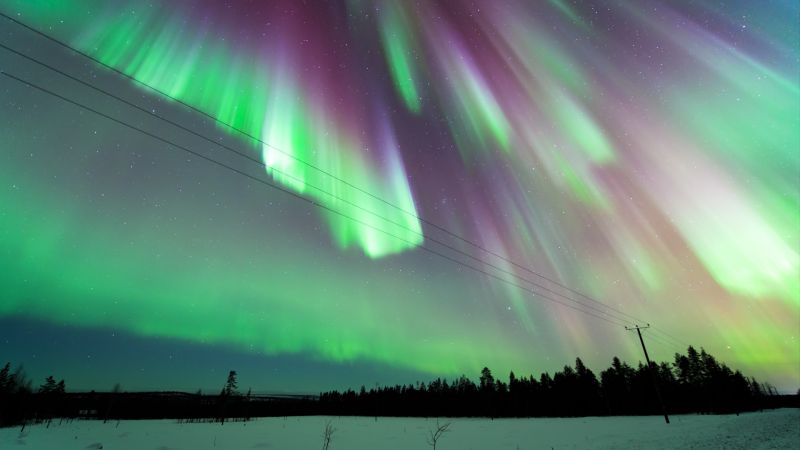
 Notes from Planet Three
Notes from Planet Three
Vereinigtes Königreich 2025 | Farbe |
14:09 | Englisch
 Notes from Planet Three
Notes from Planet Three
United Kingdom 2025 | Color |
14:09 | English
Ein Junge und seine zweijährige Schwester diskutieren über das Sonnensystem.
A boy and his two-year-old sister discuss the solar system, unfazed by the noise of social media.
Regie, Produzent:in, Kamera:
Director, Producer, Director of photography:
Simon Ellis
Editing:
Editing:
Miss O'Neill
Music:
Music:
Tom Bailey
Produzent:in:
Producer:
Rachel Robey
Produzent:in:
Producer:
Alastair Clark
Darsteller:innen:
Cast:
Eben Harris-Wilby
Darsteller:innen:
Cast:
Mala Harris-Wilby
(Selection) The Terminator (2023), Ostrich Theory (2020), World War Cup (2016), Stew & Punch (2013), Jam Today (2011), Soft (2007)
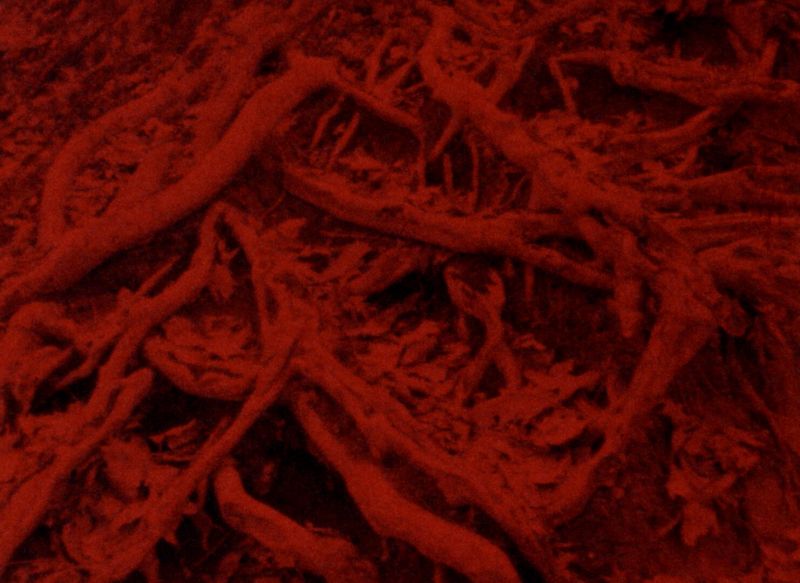
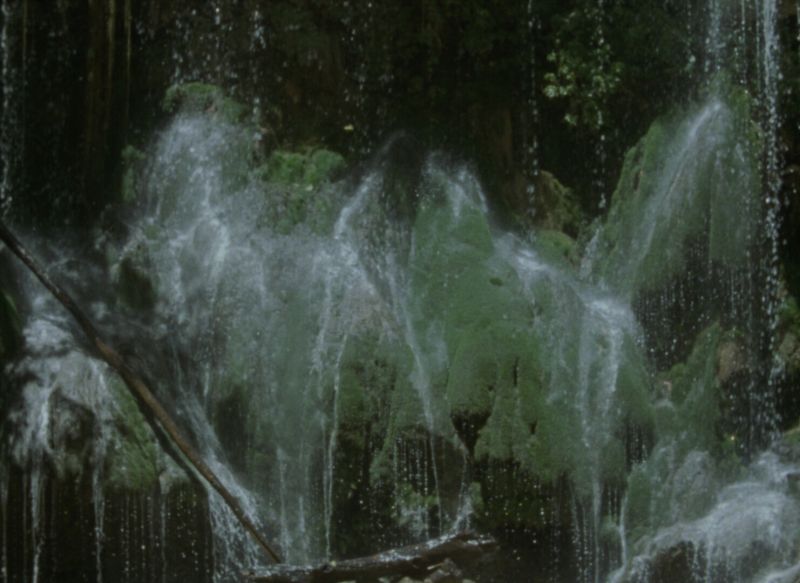
 Puro andar (Language of the Entrails)
Puro andar (Language of the Entrails)
Bolivien 2025 | Farbe |
12:50 | Kein Dialog
 Puro andar (Language of the Entrails)
Puro andar (Language of the Entrails)
Bolivia 2025 | Color |
12:50 | No Dialogue
Eine Reise in die Unterwelt beginnt in unseren eigenen Eingeweiden, geformt durch das Fleisch, das wir verzehren, und die weichen, vom Speichel der Mutter befeuchteten Krümel. Der Film erforscht die Entstehung verschiedener Zeiten, vom vertrauten Rhythmus der Verdauung bis hin zu den Weiten geologischer Epochen: über Jahrtausende geformte Stalagmiten, versteinerte Dinosaurierspuren und das Echo urzeitlicher Bewegungen, ähnlich einem Knurren. Inspiriert vom Kapitel »Puro Andar« aus »El Pez de Oro« von Gamaliel Churata. Dort heißt es: »Wir alle tragen die Toten lebendig in uns; die Toten leben.«
Content notes:
Strobe effects and/or flashing images
A journey into the underworld begins in our own guts, shaped by the flesh we consume, and the soft crumbs moistened by our mother's saliva. The film explores the emergence of different times, from the familiar rhythm of digestion to the vastness of geological eras: stalagmites formed over millennia, fossilized dinosaur tracks and the echo of primeval movements, similar to a growl. Inspired by the chapter »Puro Andar« from »El Pez de Oro« by Gamaliel Churata. It says: »We all carry the dead alive within us; the dead live.«
Content notes:
Strobe effects and/or flashing images
Regie:
Director:
Luciana Decker Orozco
Ton:
Sound design:
Tom Dixon
What Humans See as Blood, Jaguars See as Chicha (2023), Objetos Parlantes (2021), Larama (2020), Belén (2020), Nana (2016)

Selection International Competition (nur für Akkreditierte) share
Selection International Competition (for accredited guests) share



 Прелюдія (Prelude)
Прелюдія (Prelude)
Ukraine 2025 | Farbe |
14:08 | Ukrainisch
 Прелюдія (Prelude)
Прелюдія (Prelude)
Ukraine 2025 | Color |
14:08 | Ukrainian
Es herrscht Krieg in der Ukraine, und die neu geschaffenen Kategorien von Wir und Sie, exemplarisch mit einem Zivilisten und einem Soldaten erzählt, verweisen auf die Schwierigkeit, ohne historischen Abstand, über das Jetzt zu sprechen.
There’s a war going on in Ukraine and the newly created categories of Us and Them, exemplified by a civilian and a soldier, point to the difficulty of talking about the present without historical distance.
Produzent:in:
Producer:
Anna Savchenko
Kamera:
Director of photography:
Roman Khimey
Regie:
Director:
Alina Panasenko
Darsteller:innen:
Cast:
Arsen Bereznyi
Darsteller:innen:
Cast:
Oleksandra Dyka
Produzent:in:
Producer:
Lyuba Knorozok
Teatralna station (2022), 20-11-7.mp4 (2021)



 Mưa Nửa Hạt (Rain Falls Still)
Mưa Nửa Hạt (Rain Falls Still)
Australien, Vietnam 2024 | Black & White and Color |
11:53 | Vietnamesisch
 Mưa Nửa Hạt (Rain Falls Still)
Mưa Nửa Hạt (Rain Falls Still)
Australia, Vietnam 2024 | Black & White and Color |
11:53 | Vietnamese
In einem buddhistischen Tempel laufen die Vorbereitungen auf das Vu-Lan-Fest, das Fest der wandernden Seelen und der Vergebung. Ein junger Mönch trägt eine weiße Rose auf der Brust und kocht ein Opfermahl, während er von einem regnerischen Tag träumt.
In a Buddhist temple, preparations are underway for the Vu Lan festival, the festival of wandering souls and forgiveness. A young monk wears a white rose on his chest and cooks a meal of offering while dreaming of a rainy day.
Regie, Produzent:in, Editing, Ton:
Director, Producer, Editing, Sound design:
Đăng Tùng Bạch
Kamera:
Director of photography:
Ariel Reyes
Darsteller:innen:
Cast:
Công Nguyên Đoàn Nguyễn
(Selection) On the Birthday of the Wind (2022), Ring Me When You're Ready (2021)


 سکوت هما (SILENCE OF HOMA)
سکوت هما (SILENCE OF HOMA)
Iran, Deutschland 2025 | Farbe |
17:20 | Farsi
 سکوت هما (SILENCE OF HOMA)
سکوت هما (SILENCE OF HOMA)
Iran, Germany 2025 | Color |
17:20 | Farsi
Homa ist ein mythischer Vogel, der nie auf dem Boden landet. Manchmal wird er als Phönix dargestellt, der immer wieder aus der Asche aufersteht. Inmitten sozialer Unruhen sucht die berühmte Rapperin Homa im Studio ihre Stimme. Sie ist frustriert, bis sie in ihrer nihilistischen Wut ein seltsamer Vogel-Mensch-Dschinn besucht.
Homa is a mythical bird that never lands on the ground. Sometimes it is portrayed as a phoenix that keeps rising from the ashes. In the midst of social unrest, the famous rapper Homa searches for her voice in the studio. She is frustrated until, in her nihilistic rage, she is visited by a strange bird-man-djinn.
Regie, Script, Editing:
Director, Script, Editing:
Azin Feizabadi
Kamera:
Director of photography:
Iman Tahsin
Editing:
Editing:
Aleksi Virtanen
Ton, Music composer:
Sound design, Music composer:
Amen Feizabadi
Music performer:
Music performer:
Justina
Produzent:in:
Producer:
Ali Asgari
Produzent:in:
Producer:
Jens Maier-Rothe
Darsteller:innen:
Cast:
Mahsa Mohammad Kazem
In Transit (2023), Uchronia (2019)
 ذبال العين (Echoes of Machtat)
ذبال العين (Echoes of Machtat)
Tunesien | Farbe |
17:08 | Arabisch, Englisch
 ذبال العين (Echoes of Machtat)
ذبال العين (Echoes of Machtat)
Tunisia | Color |
17:08 | Arabic, English
In Mahdia, Tunesien, begibt sich Maram auf eine Reise durch die alten Bräuche und Traditionen rund um die Hochzeit, die ihr Leben geprägt haben. Geleitet von Latifa und Habiba, zwei prominenten Machtat – Hochzeitsmusikerinnen –, entdeckt sie die mütterliche Essenz dieser Tradition, bei der die Verbindung zwischen Mutter und Braut im Mittelpunkt steht.
In Mahdia, Tunisia, Maram goes on a journey through the old customs and traditions around the marriage that shaped her life. Guided by Latifa and Habiba, two prominent Machtat, wedding musicians, she discovers the maternal essence of this tradition in which the connection between mother and bride takes center stage.
Regie:
Director:
Maram Nairi
Kamera:
Director of photography:
Leith Zaiem
Editing:
Editing:
Firas Ben Ali
Editing:
Editing:
Mehe Baaziz
Ton:
Sound design:
Rami Zriba


 A Night That Took Everything
A Night That Took Everything
Pakistan, Finnland 2025 | Schwarz-Weiss und Farbe |
19:25 | Urdu
 A Night That Took Everything
A Night That Took Everything
Pakistan, Finland 2025 | Black & White and Color |
19:25 | Urdu
Blasphemie ist in Pakistan ein Kapitalverbrechen. Ein Mann wird fälschlicherweise angeklagt und zum Tode verurteilt. Seine Tochter, traurig und wütend, reflektiert über die harte Realität in ihrem Heimatland.
Content notes:
Mental Health, Refugee experience and/or war
Blasphemy is a capital offense in Pakistan. A man is falsely accused and sentenced to death. His daughter, sad and angry, reflects on the harsh reality in her home country.
Content notes:
Mental Health, Refugee experience and/or war
Regie:
Director:
Nida Mehboob
Kamera:
Director of photography:
Léon Torres
Editing:
Editing:
Jette Keedus
Ton:
Sound design:
François Yazbeck
Produzent:in:
Producer:
Kari Ahotupa
Verleihfirma:
Distributor:
Saara Toivanen
Production designer:
Production designer:
Freda Purik
How I Like It (2021), 298-C (2018)



 Boi Thaka (The Flow of Resilience )
Boi Thaka (The Flow of Resilience )
Indien 2024 | Farbe |
14:36 | Assamesisch
 Boi Thaka (The Flow of Resilience )
Boi Thaka (The Flow of Resilience )
India 2024 | Color |
14:36 | Assamese
Bis heute werden Hexen verfolgt. In Indien findet die Filmemacherin ein Tagebuch der Tochter einer als Hexe beschuldigten Frau. Sie macht sich auf die Reise in entlegene Dörfer im Norden Indiens und deckt erschütternde Geschichten auf. Anhand von Manjula, der Tochter einer angeklagten Hexe, meditiert der Film über Erinnerung, den Akt des Erinnerns, die Darstellung und Archivierung von Traumata.
Content notes:
Discrimination against women
Witches are still persecuted to this day. In India, the filmmaker finds a diary of the daughter of a woman accused of being a witch. She sets off on a journey to remote villages in the north of India and uncovers harrowing stories. Based on Manjula, the daughter of an accused witch, the film meditates on memory and the act of remembering as well as the representation and archiving of trauma.
Content notes:
Discrimination against women
Regie, Produzent:in, Script, Editing:
Director, Producer, Script, Editing:
Pranami Koch
Kamera, Ton:
Director of photography, Sound design:
Shrutiman Deori
Echoes Within (2024)

Best of Internationaler Wettbewerb share
Best of International Competition share



 Coeur Bleu (Blue Heart)
Coeur Bleu (Blue Heart)
Haiti, Frankreich 2025 | Farbe |
15:19 | Kreolisch
 Coeur Bleu (Blue Heart)
Coeur Bleu (Blue Heart)
Haiti, France 2025 | Color |
15:19 | Creole
Marianne und Pétion leben in Haiti. Sie warten ungeduldig auf einen Anruf ihres Sohnes aus den USA. Aber der Anruf lässt auf sich warten. Die nicht enden wollende Stille offenbart die Bruchlinien, in denen ihre eigenen Ängste Nährboden zum Wachsen finden. Zunehmend verschwimmt die Grenze zwischen Hoffnung und Realität.
Content notes:
Animal Cruelty
Marianne and Pétion live in Haiti. They are waiting impatiently for a call from their son in the USA. But the call is a long time coming. The never-ending silence reveals the fault lines in which their own fears find fertile ground to grow. The line between hope and reality becomes increasingly blurred.
Content notes:
Animal Cruelty
Regie, Produzent:in, Script:
Director, Producer, Script:
Samuel Suffren
Kamera, Editing:
Director of photography, Editing:
Samuel Suffren
Ton:
Sound design:
Roodie Rigaud Marcelin
Koproduktionsfirma:
Coproduction company:
GoGoGo Films
Executive producer:
Executive producer:
Phalonne Pierre Louis
Sales:
Sales:
Square Eyes
Dreams Like Paper Boat (2024), Agwe (2022), Survivre (2019)


 سکوت هما (SILENCE OF HOMA)
سکوت هما (SILENCE OF HOMA)
Iran, Deutschland 2025 | Farbe |
17:20 | Farsi
 سکوت هما (SILENCE OF HOMA)
سکوت هما (SILENCE OF HOMA)
Iran, Germany 2025 | Color |
17:20 | Farsi
Homa ist ein mythischer Vogel, der nie auf dem Boden landet. Manchmal wird er als Phönix dargestellt, der immer wieder aus der Asche aufersteht. Inmitten sozialer Unruhen sucht die berühmte Rapperin Homa im Studio ihre Stimme. Sie ist frustriert, bis sie in ihrer nihilistischen Wut ein seltsamer Vogel-Mensch-Dschinn besucht.
Homa is a mythical bird that never lands on the ground. Sometimes it is portrayed as a phoenix that keeps rising from the ashes. In the midst of social unrest, the famous rapper Homa searches for her voice in the studio. She is frustrated until, in her nihilistic rage, she is visited by a strange bird-man-djinn.
Regie, Script, Editing:
Director, Script, Editing:
Azin Feizabadi
Kamera:
Director of photography:
Iman Tahsin
Editing:
Editing:
Aleksi Virtanen
Ton, Music composer:
Sound design, Music composer:
Amen Feizabadi
Music performer:
Music performer:
Justina
Produzent:in:
Producer:
Ali Asgari
Produzent:in:
Producer:
Jens Maier-Rothe
Darsteller:innen:
Cast:
Mahsa Mohammad Kazem
In Transit (2023), Uchronia (2019)



 How Many Lovers Can You Fit Inside a House?
How Many Lovers Can You Fit Inside a House?
Vereinigtes Königreich, Spanien, Griechenland 2024 | Farbe |
20:20 | Englisch, Spanisch
 How Many Lovers Can You Fit Inside a House?
How Many Lovers Can You Fit Inside a House?
United Kingdom, Spain, Greece 2024 | Color |
20:20 | English, Spanish
How Many Lovers Can You Fit Inside a House? erforscht die Komplexität von Intimität und Polyamorie und ist überzeugt von der Idee, dass alle Partner gleichermaßen geliebt werden können. Es beginnt mit einer Reihe romantischer Begegnungen aus einer sehr persönlichen Perspektive, die sich mit Offenheit und Neugier entfalten. Doch als sich eine Beziehung intensiviert, beginnt die Filmschaffende ihre eigene Prämisse zu hinterfragen und die Erzählung in eine andere Richtung zu lenken.
How Many Lovers Can You Fit Inside a House? explores the complexities of intimacy and polyamory and believes in the idea that all partners can be equally loved. It begins with a series of romantic encounters from a very personal perspective that unfold with openness and curiosity. But as one relationship intensifies, the filmmaker begins to question her own premise and steers the narrative in a different direction.
Regie, Darsteller:innen:
Director, Cast:
Maya Sfakianaki
Editing:
Editing:
Lucía Montero Sánchez de las Matas
Darsteller:innen:
Cast:
Andrew
Darsteller:innen:
Cast:
Felipe
Darsteller:innen:
Cast:
Mehdi
Darsteller:innen:
Cast:
Sam



 Deus-E-Meio (God-And-A-Half)
Deus-E-Meio (God-And-A-Half)
Portugal 2024 | Farbe |
25:44 | Portugiesisch
 Deus-E-Meio (God-And-A-Half)
Deus-E-Meio (God-And-A-Half)
Portugal 2024 | Color |
25:44 | Portuguese
Zwei Gestalten wandern durch die leeren Korridore und an den abblätternden Wänden eines verlassenen Krankenhauses entlang. Inmitten der Ruinen treffen sich die Regisseurin Margarida Assis und Manuel João Brito, der Onkologe, der sie als Kind behandelt hatte, wieder. Wie damals, als sie noch ein Kind war, sitzen sie sich am Schreibtisch gegenüber: die klassische Arzt-Patienten-Beziehungsebene. Die Dynamik: geprägt von Intimität und Distanz und Nähe. Margarida Assis sagt: »Das Kino hat wissenschaftlich bewiesen, dass es keinen Unterschied zwischen Erinnerung und Zukunft gibt.« God-And-A-Half wird so zu einer Möglichkeit, Erinnerungen zu hinterfragen und mit dem Kino den Kontakt zwischen den Zeiten herzustellen.
Content notes:
Fatal Disease
Two figures wander through the empty corridors and along the peeling walls of an abandoned hospital. Amidst the ruins, director Margarida Assis and Manuel João Brito, the oncologist who treated her as a child, meet again. Just like when she was a child, they sit opposite each other at the desk: the classic doctor-patient relationship. The dynamic: characterized by intimacy and distance and closeness. Margarida Assis says: »Cinema has scientifically proven that there is no difference between memory and the future.« God-And-A-Half thus becomes a way of questioning memories and using cinema to establish contact between times.
Content notes:
Fatal Disease
Regie, Darsteller:innen, Editing:
Director, Cast, Editing:
Margarida Assis
Kamera, Editing:
Director of photography, Editing:
Tiago Carvalho
Kamera:
Director of photography:
Miguel da Santa
Produzent:in, Editing:
Producer, Editing:
Luís Costa
Produzent:in:
Producer:
André Guiomar
Ton:
Sound design:
João Pedro Silva
Ton:
Sound design:
Maurício D'Orey
Music:
Music:
Daft Punk
Verleihfirma:
Distributor:
Agência - Short Film Agency
Darsteller:innen:
Cast:
Manuel João Brito



 榴莲,榴莲 (Durian, Durian)
榴莲,榴莲 (Durian, Durian)
Singapur 2025 | Farbe |
06:43 | Mandarin
 榴莲,榴莲 (Durian, Durian)
榴莲,榴莲 (Durian, Durian)
Singapore 2025 | Color |
06:43 | Mandarin
Unter einem Durianbaum liegend, erwarten zwei einsame Seelen ihr Ende. Aber dann wird der Baum zu ihrem Schutz und eine unerwartete Verbindung zwischen den beiden Fremden wird lebendig.
Lying under a durian tree, two lonely souls are awaiting their end. But then the tree becomes a shelter and an unexpected connection between the two strangers comes to life.
Regie, Script, Editing, Produzent:in, Verleihfirma:
Director, Script, Editing, Producer, Distributor:
Nelson Yeo
Kamera:
Director of photography:
Yeo Lincoln
Ton:
Sound design:
Cheng Lijie
Darsteller:innen:
Cast:
Ho Kelvin
Darsteller:innen:
Cast:
Toh Doreen
Through Your Eyes (2025), Dreaming & Dying (2023), Bagasi (2023), Plastic Sonata (2022), Dreaming (2021), Here Is Not There (2019), Mary, Mary, So Contrary (2019)

 Triple Axel
Triple Axel
In the competition for the Triple Axel, films are shown that are a maximum of 3 minutes long and are dedicated to the theme "Mission Impossible" this year.

Triple Axel "Mission Impossible" share
Triple Axel "Mission Impossible" share
Herzlich willkommen zur 38. Edition des Dreifachen Axel zum diesjährigen Thema »Mission Impossible«. 2025 dreht sich bei uns alles um waghalsige Vorhaben, spektakuläre Fluchten und Herausforderungen, die von Anfang an zum Scheitern verurteilt scheinen.
Welcome to the 38th edition of the Triple Axel with this year's theme »Mission Impossible«. 2025 is all about daring projects, spectacular escapes and challenges that seem doomed to failure from the outset.
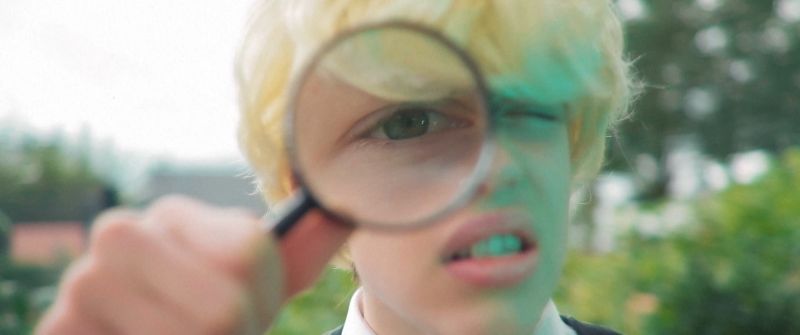
 Kein Trailer (No Trailer)
Kein Trailer (No Trailer)
Deutschland 2025 | Farbe |
01:38 | Deutsch
 Kein Trailer (No Trailer)
Kein Trailer (No Trailer)
Germany 2025 | Color |
01:38 | German
Ein Film stellt sich vor – über einen Agenten, der die Welt retten soll. Ohne Tom Cruise und ohne einen Kinostart.
A film introduces itself, via an agent who’s supposed to save the world. Without Tom Cruise and without cinematic release.
Regie:
Director:
Henri van Hettinga Voß
Produzent:in:
Producer:
Henri van Hettinga Voß
Distribution / Sale:
Distribution / Sale:
Henri van Hettinga Voß
Referent contact:
Referent contact:
Henri van Hettinga Voß
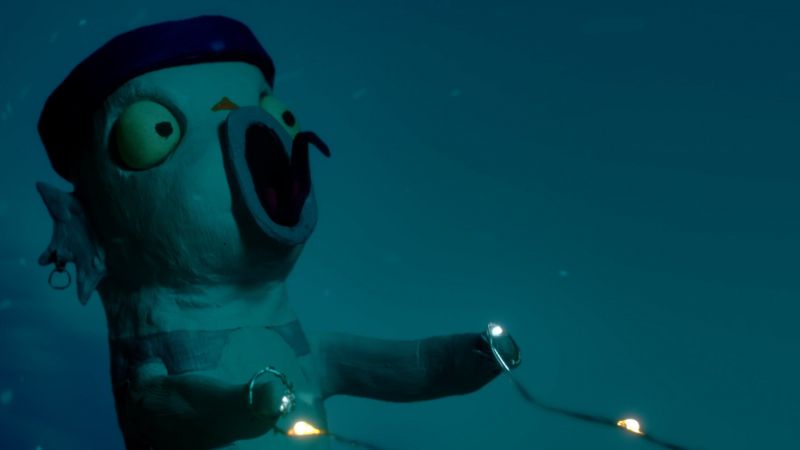
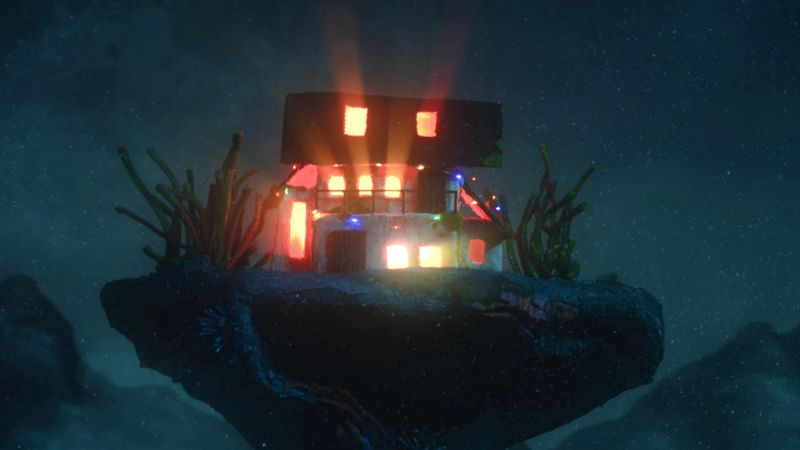
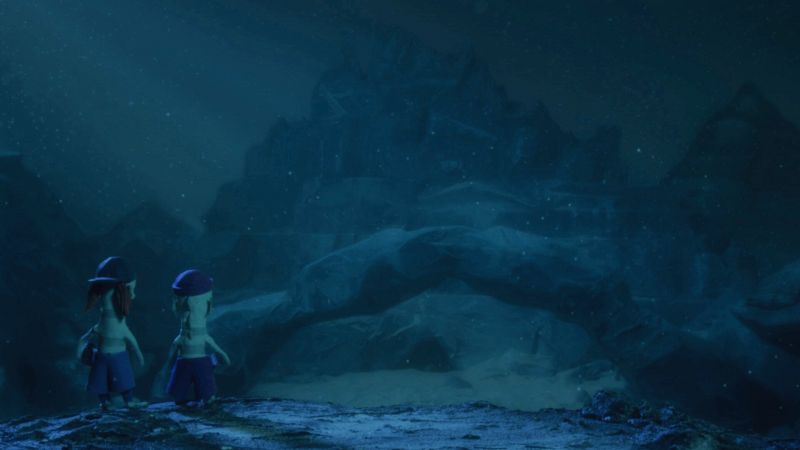
 Fish & Trips
Fish & Trips
Deutschland 2024 | Farbe |
02:31 | Englisch
 Fish & Trips
Fish & Trips
Germany 2024 | Color |
02:31 | English
Mitten im Ozean findet eine Party statt. Blubb-Blubb und Dizzy schlagen über die Stränge und werden rausgeworfen. Die beiden betrunkenen Teenager beschließen darauf, sich mit einem Monster anzulegen. Keine gute Idee.
Content notes:
Alcoholism and/or drug-abuse
There is a party going on in the middle of the ocean. Blubb-Blubb and Dizzy run riot and get kicked out. The two drunken teenagers then decide to mess with a monster. Not a good idea.
Content notes:
Alcoholism and/or drug-abuse
Regie, Animation:
Director, Animation:
Amy Bruchner
Regie, Animation:
Director, Animation:
Marius Lübke
Script, Animation:
Script, Animation:
Waldemar "Vladi" Ederle
Compositing, Animation, Music:
Compositing, Animation, Music:
Sören Schmidt-Clausen
Produzent:in, Animation:
Producer, Animation:
Tobias Meßenzehl
Produktionsfirma:
Production company:
Filmakademie Baden-Württemberg
Sales:
Sales:
Filmakademie Baden-Württemberg
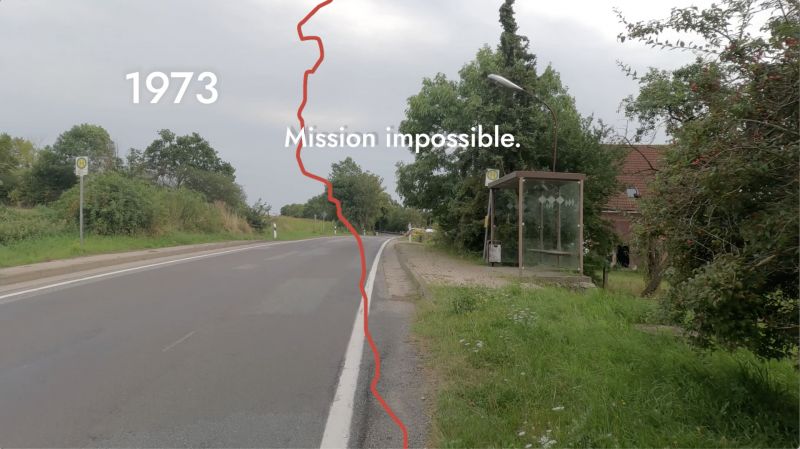
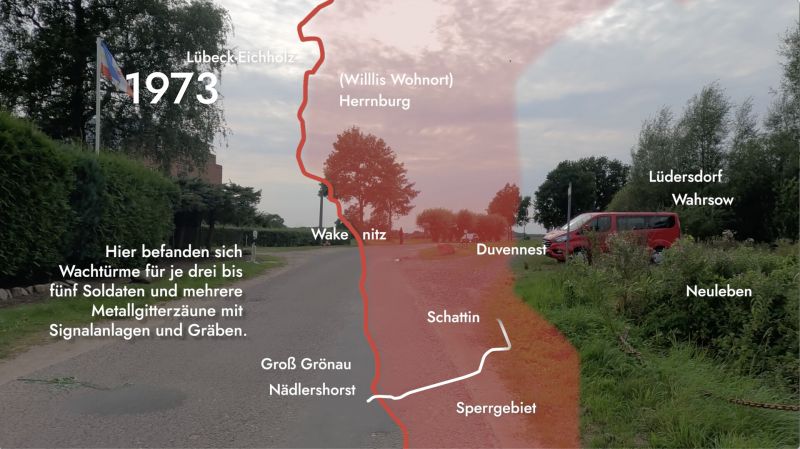
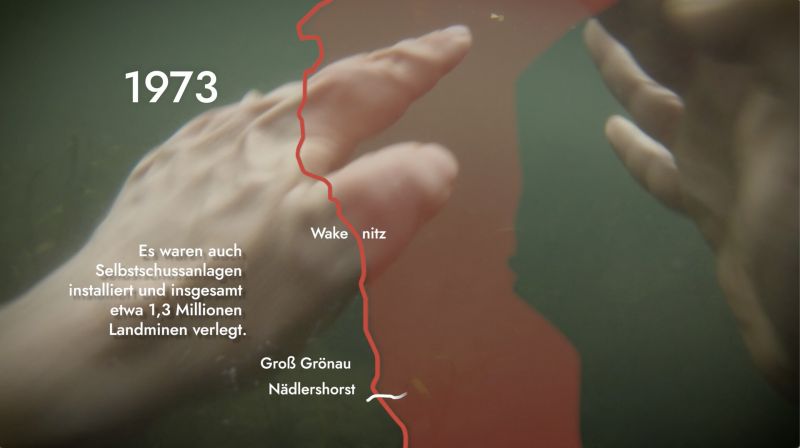
 Willi macht rüber (Willi Defects)
Willi macht rüber (Willi Defects)
Deutschland 2025 | Farbe |
03:00 | Deutsch
 Willi macht rüber (Willi Defects)
Willi macht rüber (Willi Defects)
Germany 2025 | Color |
03:00 | German
1973, Neuleben in Mecklenburg-Vorpommern in der Nähe von Lübeck und dem Fluss Wakenitz: Nach der Arbeit machen der 21-jährige Willi und zwei Freunde nach ein paar Bier spontan »rüber«. Es ist lebensgefährlich, und es funktioniert – bedeutet aber auch, dass Willi und seine Freundin Renate plötzlich getrennt sind. Erst 1990 treffen sie sich an einer Bushaltestelle wieder.
1973, Neuleben in Mecklenburg-Vorpommern near Lübeck and the Wakenitz: 21-year-old Willi and two friends spontaneously go »over« to Western Germany after work, drunk on beer. Completely unplanned. It is life-threatening – and it works. This means that he and his girlfriend Renate are suddenly separated. 1990: Willi and Renate meet again at a bus stop.
Regie, Produzent:in:
Director, Producer:
Sabine von Bassewitz
Darsteller:innen:
Cast:
Renate
Darsteller:innen:
Cast:
Willi
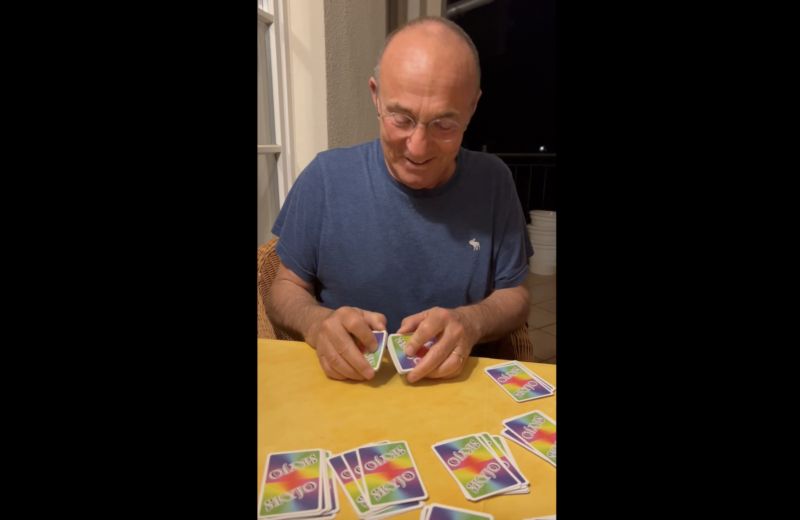
 Mischen Impossible
Mischen Impossible
Deutschland 2025 | Farbe |
02:49 | Deutsch
 Mischen Impossible
Mischen Impossible
Germany 2025 | Color |
02:49 | German
Ein alter Zocker weiß genau, wie er am besten die Karten mischt. Und spielen? Das kommt später dran, wenn das Mischen endlich mal vorbei ist.
The true gambler knows when to hold them, knows when to fold them and most importantly he knows how to shuffle them well! There'll be enough time for playin' when the shuffling's done.
Regie, Kamera:
Director, Director of photography:
Alexandra Kwart
Editing:
Editing:
Stefan Becker
Darsteller:innen:
Cast:
Henry Kwart
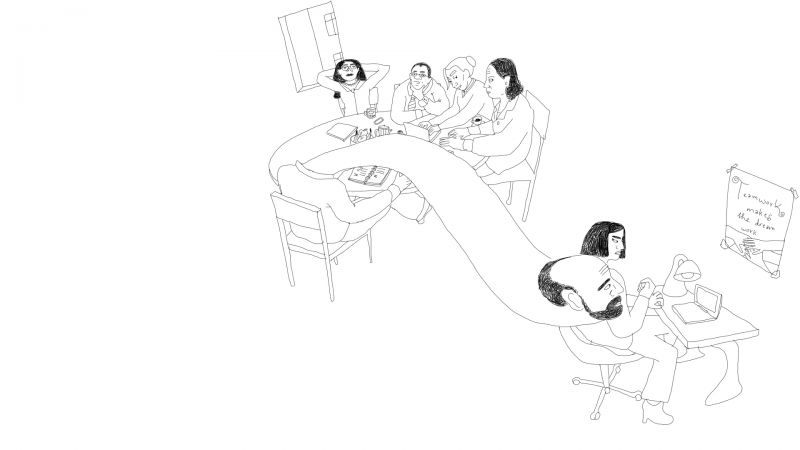
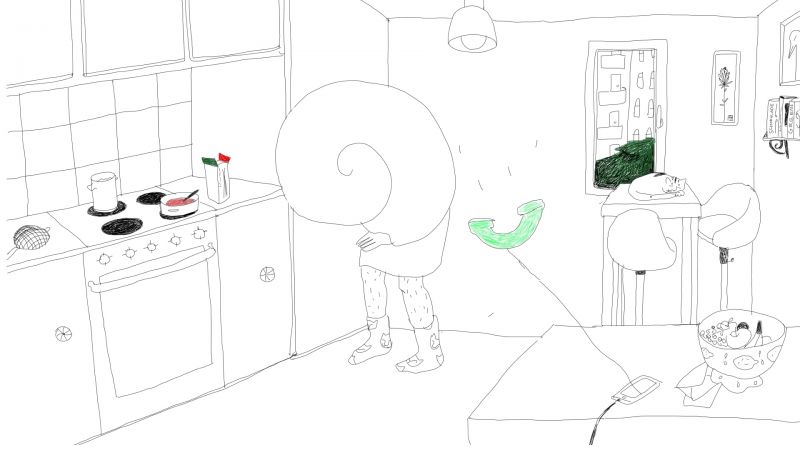
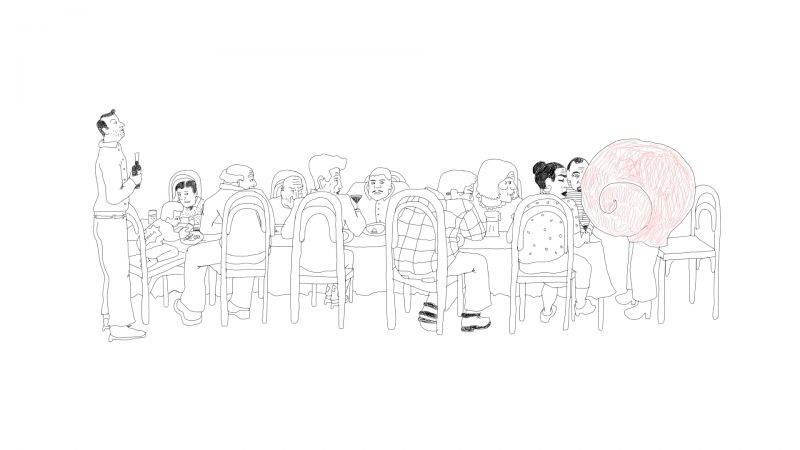
 Challenges of a Solitary Mind
Challenges of a Solitary Mind
Österreich 2025 | Schwarz-Weiss und Farbe |
03:00 | Kein Dialog
 Challenges of a Solitary Mind
Challenges of a Solitary Mind
Austria 2025 | Black & White and Color |
03:00 | No Dialogue
Eine introvertierte Person wird von allen Seiten gedrängt, aufgeschlossener zu sein. Die Geschichte einer stetigen Herausforderung.
This is the story of an introvert facing challenges when constantly being pushed to be more outgoing.
Animation, Regie:
Animation, Director:
Astrid Rothaug
Music composer, Ton:
Music composer, Sound design:
Ken Rischard
Verleihfirma:
Distributor:
Sixpackfilm
The Stolen Dream (2025), The Missing Spots (2024), Nature Deficit (2023), SWALLOWED (2022), METANOIA (2021)
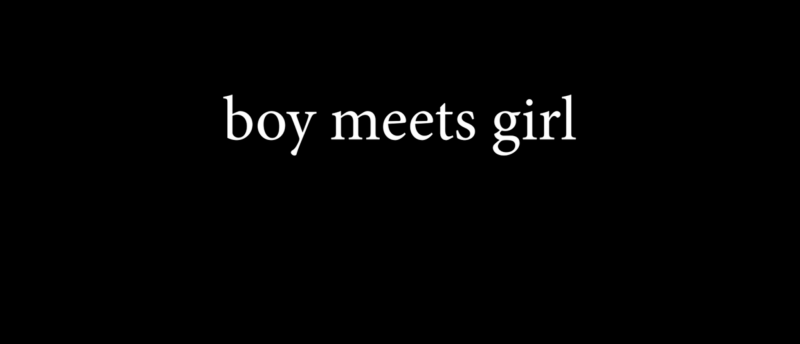
 Boy Meets Girl
Boy Meets Girl
Deutschland 2025 | Farbe |
01:26 | Englisch
 Boy Meets Girl
Boy Meets Girl
Germany 2025 | Color |
01:26 | English
Boy meets girl – wird ihre Liebe ewig dauern? Ein Supercut.
Boy meets girl – will they stay in love forever? A supercut.
Regie:
Director:
Joey Arand
Andere:
Other:
Petra Stipetić
The Male Gaze Recipe (2024), 21:71 Uhr (2021), Die Klohexe (2021), Gebär_Mütter (2017), Iran (2015), Victoire (2014)
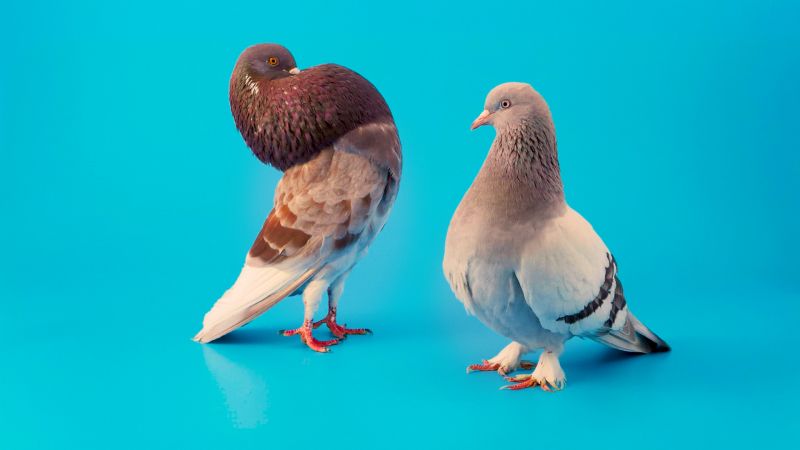
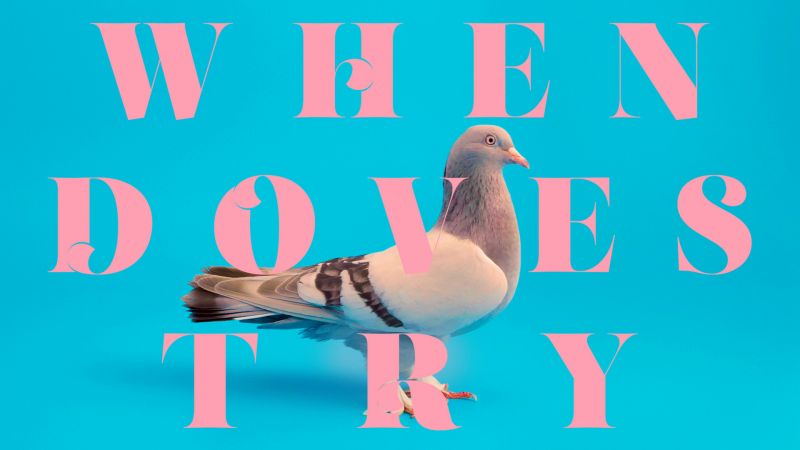
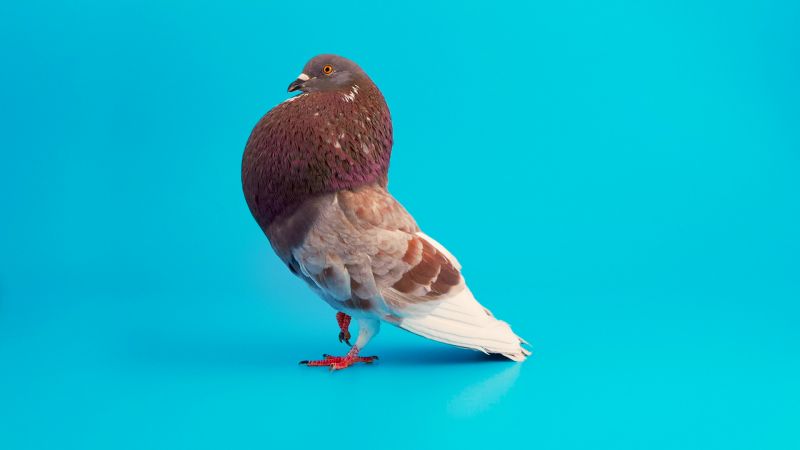
 When Doves Try
When Doves Try
Niederlande, Belgien 2023 | Farbe |
02:32 | Kein Dialog
 When Doves Try
When Doves Try
Netherlands, Belgium 2023 | Color |
02:32 | No Dialogue
Ein Taubenmännchen umwirbt ein Taubenweibchen in diesem peinlich vertrauten Tanz aus Anziehung, Verführung – und Enttäuschung.
A male pigeon courts a female pigeon in this awkwardly familiar dance of attraction, seduction and ... disappointment.
Regie, Produzent:in:
Director, Producer:
Thalia de Jong
Music composer:
Music composer:
Flavia Faas
Sales:
Sales:
sales@shortfilm.com
Darsteller:innen:
Cast:
Doffer
Darsteller:innen:
Cast:
Duifje
Andere:
Other:
Bianco Veen
Golden Boy (2016)
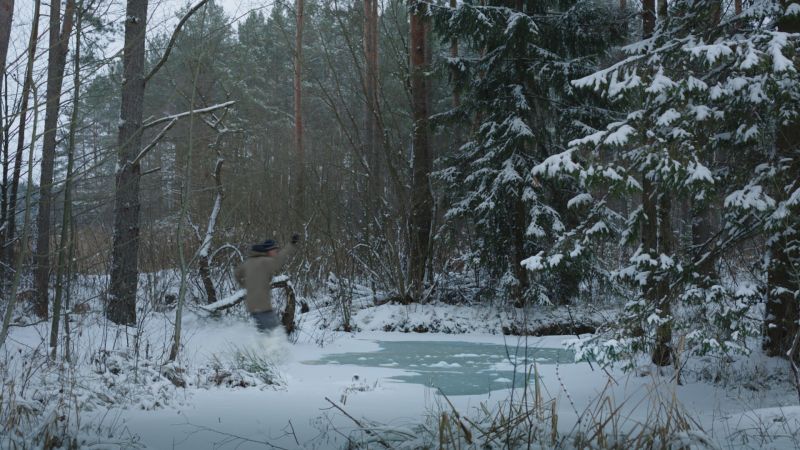
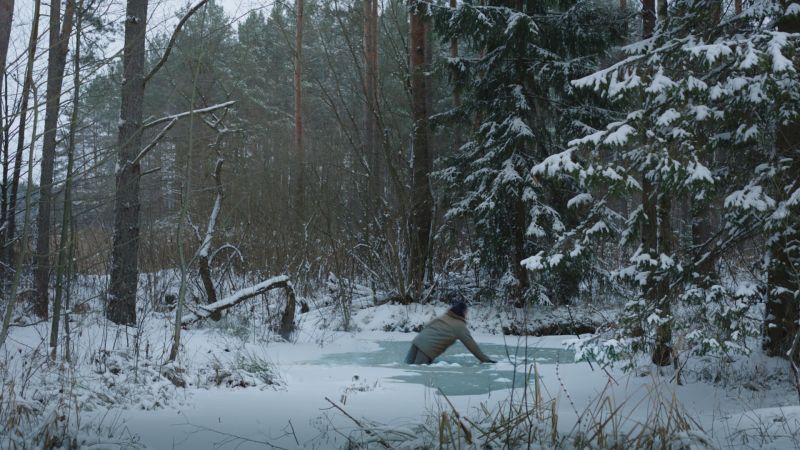
 Crossing No.: 2
Crossing No.: 2
Litauen 2023 | Farbe |
00:49 | Kein Dialog
 Crossing No.: 2
Crossing No.: 2
Lithuania 2023 | Color |
00:49 | No Dialogue
Dies ist die zweite Demonstration, wie man eine zugefrorene Wasserfläche überquert. Erstens – die passende Stelle finden. Zweitens – beschleunigen und die nötige Geschwindigkeit erreichen. Und schließlich schlittern.
This is a second demonstration of crossing a water drainage. First comes finding the right location. Second, we accelerate to get the proper speed. And finally, we’re skating.
Regie:
Director:
Andrej Polukord
Kamera:
Director of photography:
Marius Krivičius
A Real Shepherd (2024), Lift. Gerberstrasse (2021), Lift. Rue de Treves (2021), Unknown Mushrooms (2018), Fishing. No. 1 (2018), Crossing (2014)
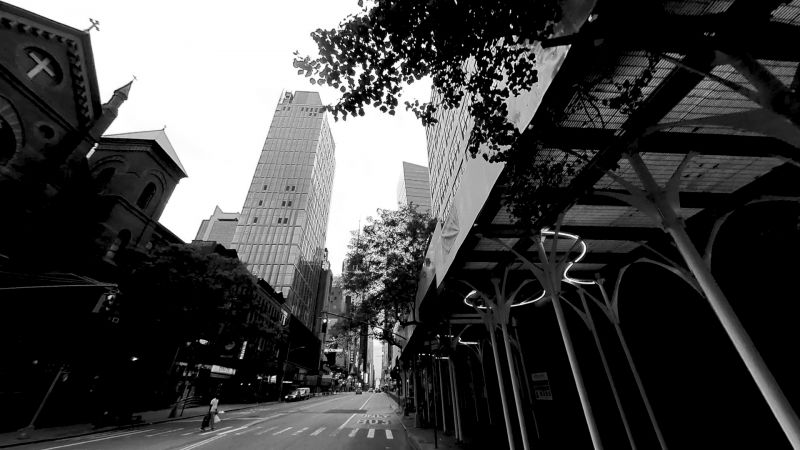
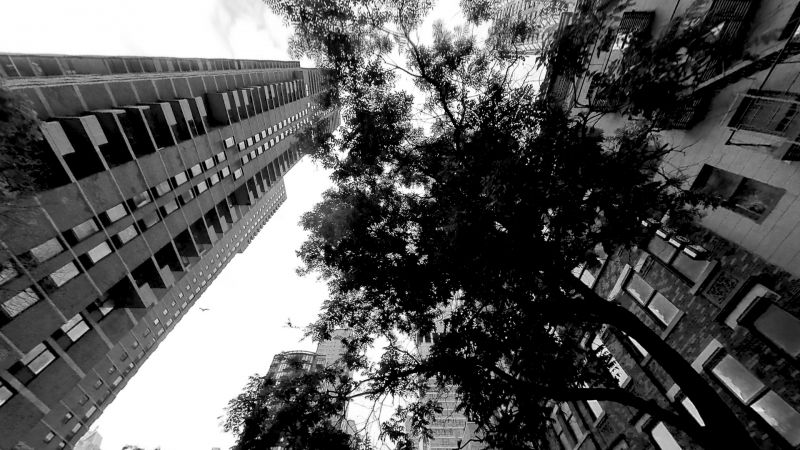
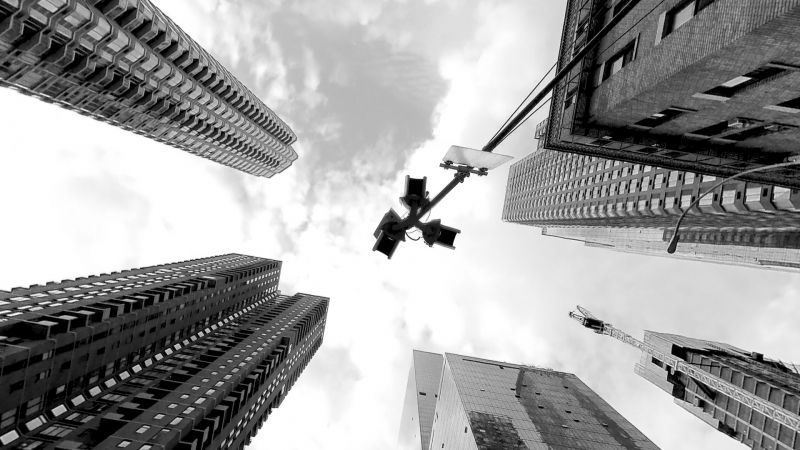
 Pigeons, Seagulls and Other Birds
Pigeons, Seagulls and Other Birds
Vereinigtes Königreich 2025 | Schwarz-Weiss |
02:54 | Kein Dialog
 Pigeons, Seagulls and Other Birds
Pigeons, Seagulls and Other Birds
United Kingdom 2025 | Black & White |
02:54 | No Dialogue
Eine Fahrt mit dem Fahrrad entlang der 42. Straße in Manhattan führt zu einer unerwarteten Begegnung.
An immersive cycle ride along 42nd Street in Manhattan leads to an unexpected encounter.
Projekt:
Project:
Time Echo Collective
Regie, Kamera:
Director, Director of photography:
Holger Mohaupt
(Selection) Behind the Horizon (2024), Enough Salt (2024), Reading Goodbye (2023), Like Flour (2023), Kites (2023), Maybe You Hear Nothing (2022), Being Elsewhere (2022)
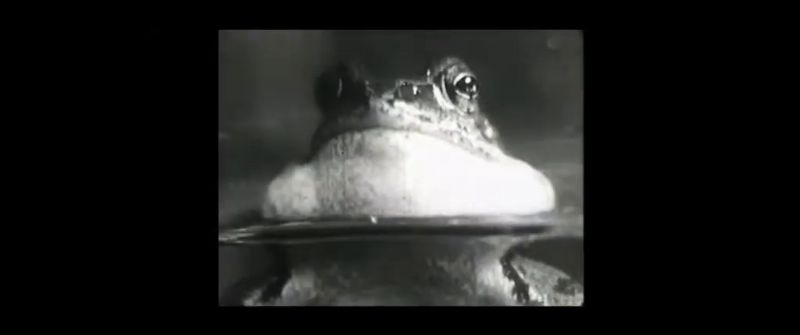
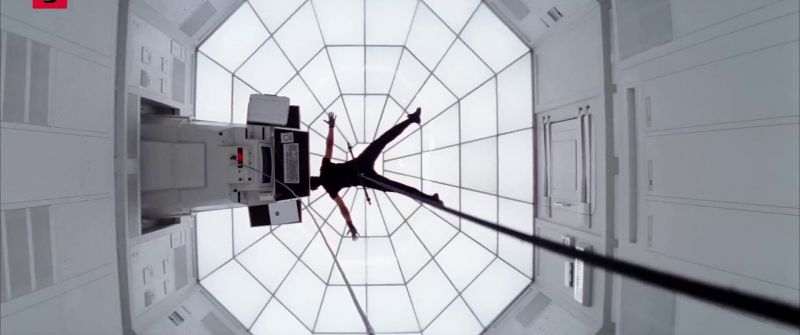
 Mission: Imfroschible (Mission: Imphibious)
Mission: Imfroschible (Mission: Imphibious)
Deutschland 2025 | Farbe |
02:53 | Deutsch
 Mission: Imfroschible (Mission: Imphibious)
Mission: Imfroschible (Mission: Imphibious)
Germany 2025 | Color |
02:53 | German
Als ich mit Machine-Vision-Algorithmen an der legendären Hängeszene aus »Mission: Impossible« experimentierte, wurde immer deutlicher, wie artifiziell und absurd sie eigentlich ist. Was zeigt sie wirklich? Plötzlich wurde mir alles klar.
As I experimented with machine vision algorithms on the legendary heist scene from »Mission: Impossible«, it became increasingly obvious how artificial and absurd it actually is. What does it really show? Suddenly it all became clear to me.
Regie, Editing:
Director, Editing:
Felix Dierich
Andere:
Other:
Maren Punke
sonic salt (2024), Night Over R32 (2023), Black Summer (2022), Three Unknown Territories (2020), Shapes and Sizes, Storms and Smoke (2020), A Year Along the Geostationary Orbit (2018)
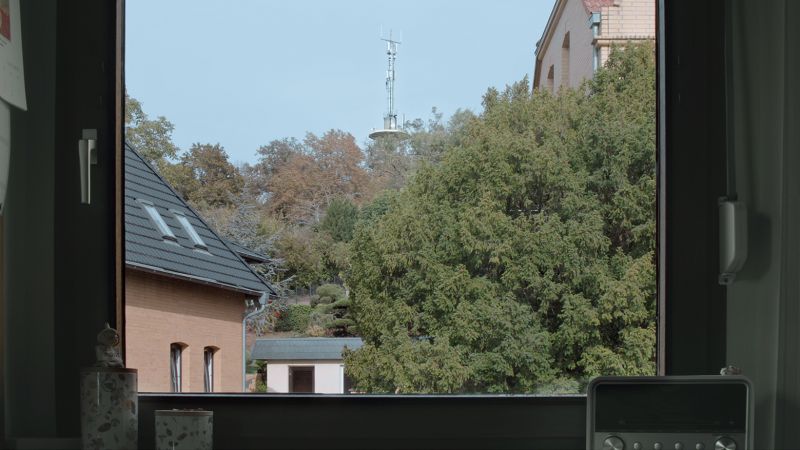
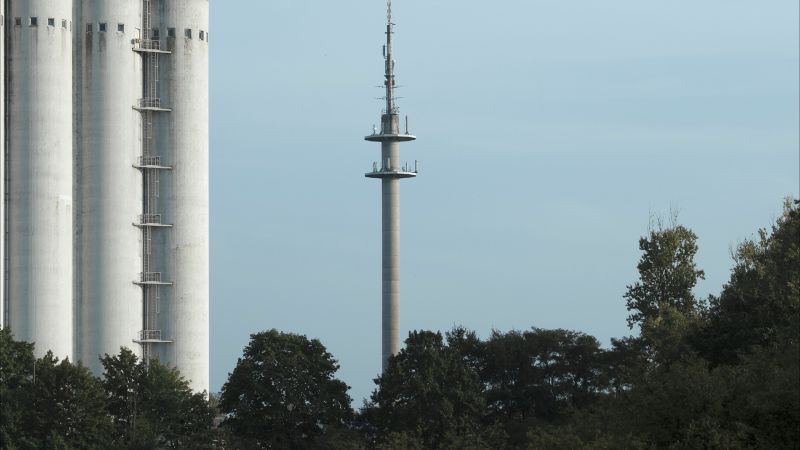
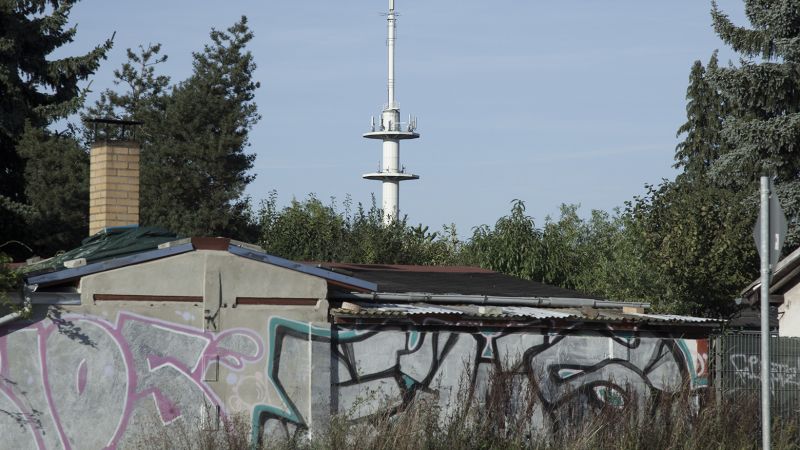
 FMT 8
FMT 8
Deutschland 2024 | Farbe |
02:40 | Deutsch
 FMT 8
FMT 8
Germany 2024 | Color |
02:40 | German
Er steht auf dem höchsten Punkt der ostdeutschen Kleinstadt Artern und ist aus allen Richtungen zu sehen: ein Funkmast vom Typ FMT 8. Bis heute wird er »Der Lange Harald« genannt, nach dem ersten Bürgermeister der Stadt nach der Wiedervereinigung. Doch dann beginnt das Bild zu kippen.
It stands on the highest point of the small East German town of Artern and can be seen from all directions, even from a distance. A radio mast of the FMT 8 type. Unto this day, it’s called »The Tall Harald« after the town’s first post-reunification mayor. But then the image begins to tip over.
Regie:
Director:
Antje Seeger
Der Lange Harald (2022), Freischwimmer (2020), A Collection of Dots (2016), Namedropping (2014)
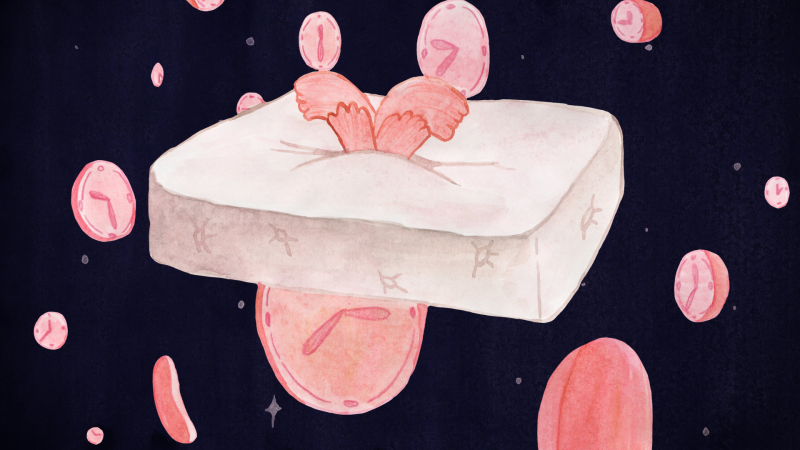
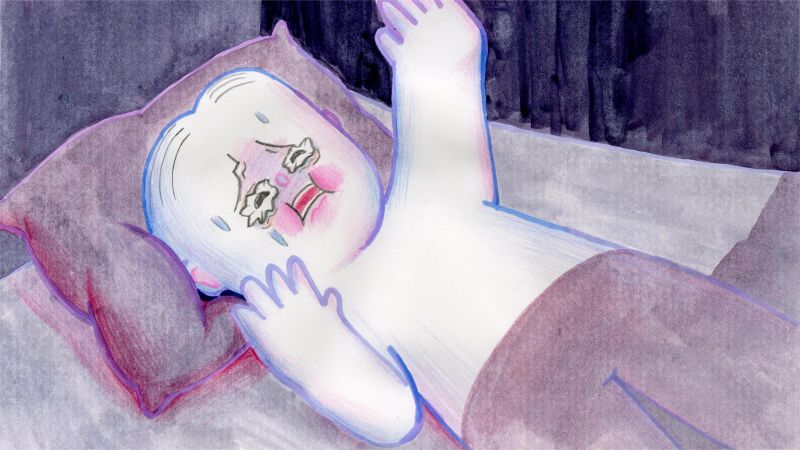
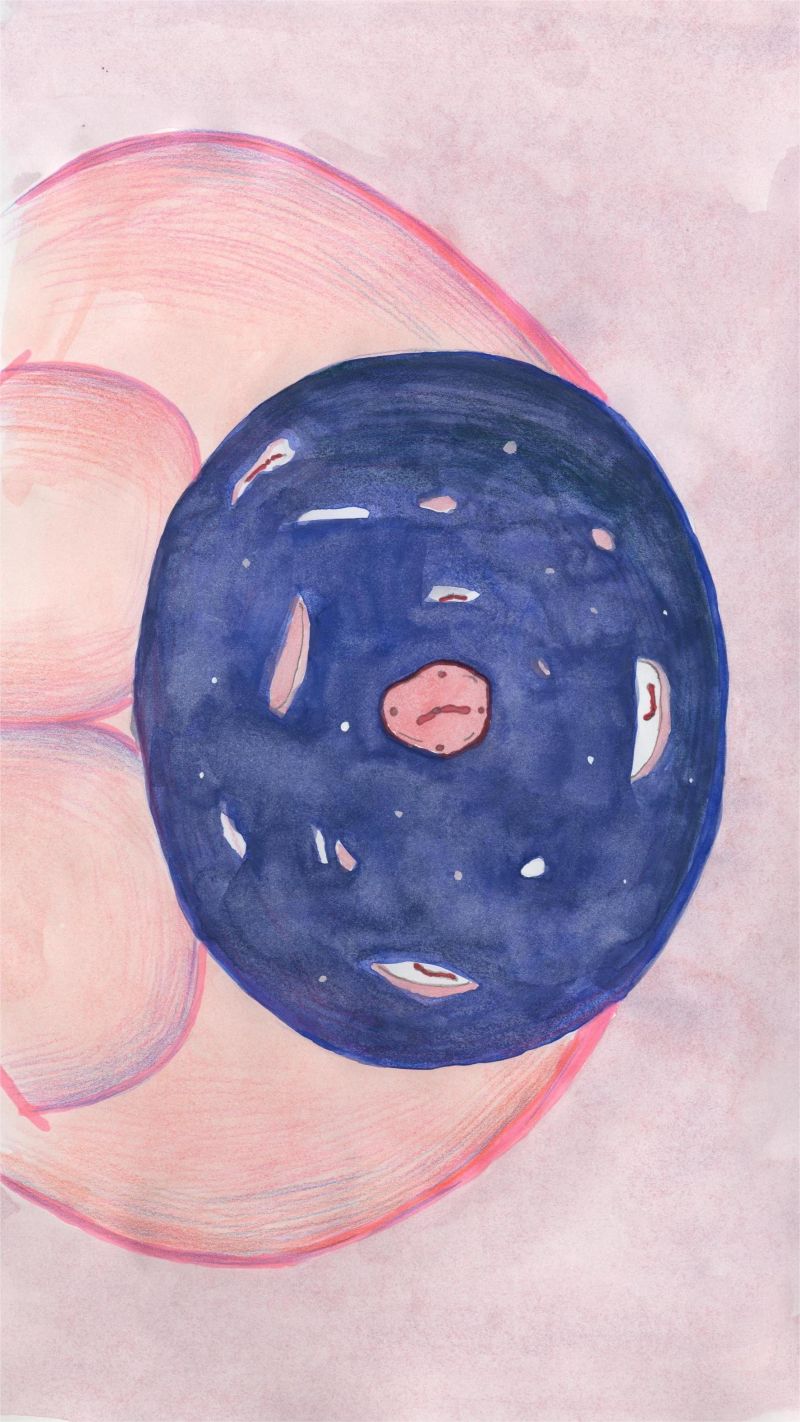
 眠れないわ! (Cannot sleep!)
眠れないわ! (Cannot sleep!)
Japan, Volksrepublik China 2024 | Farbe |
02:27 | Japanisch
 眠れないわ! (Cannot sleep!)
眠れないわ! (Cannot sleep!)
Japan, China 2024 | Color |
02:27 | Japanese
In Japan leidet jede fünfte Person unter Schlaflosigkeit. Ein magisches ökonomisches Experiment.
Content notes:
Strobe effects and/or flashing images
In Japan, every fifth person is suffering from insomnia. A magical, economical experiment.
Content notes:
Strobe effects and/or flashing images
 Trash
Trash
Deutschland 2025 | Farbe |
03:03 | Englisch
 Trash
Trash
Germany 2025 | Color |
03:03 | English
Ein Ghostborg wird durch das Portal geschickt, um die geheime Operation Trash zu sabotieren. Sein Auftrag: die verantwortlichen Agenten Parker und O'Brien zu töten. Können sie den Angriff abwehren? Und wie weit werden sie gehen, um ihre Operation zu retten?
Content notes:
Physical violence, Suicide or self-harm
A Ghostborg is sent through the portal to sabotage the secret Operation Trash. His mission: kill the agents in charge, Parker and O'Brien. Can the two agents fend off the attack? And how far will they go to save »Operation Trash«?
Content notes:
Physical violence, Suicide or self-harm
Regie, Produzent:in, Animation, Editing, Ton:
Director, Producer, Animation, Editing, Sound design:
Holga Rosen
Midnight Egg (2024)
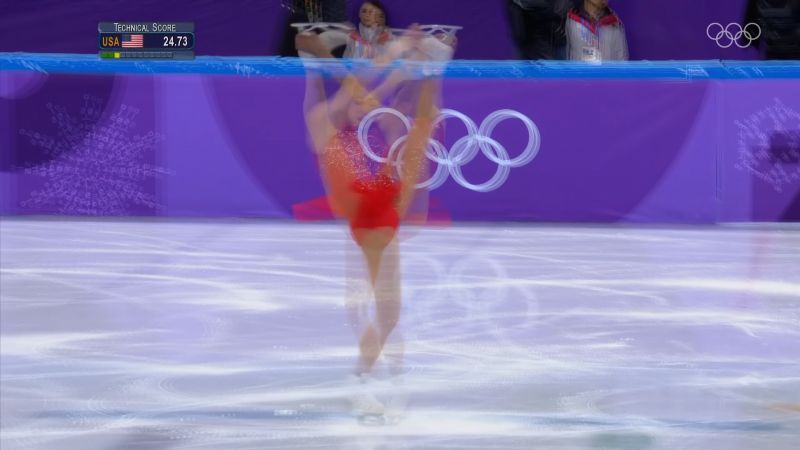

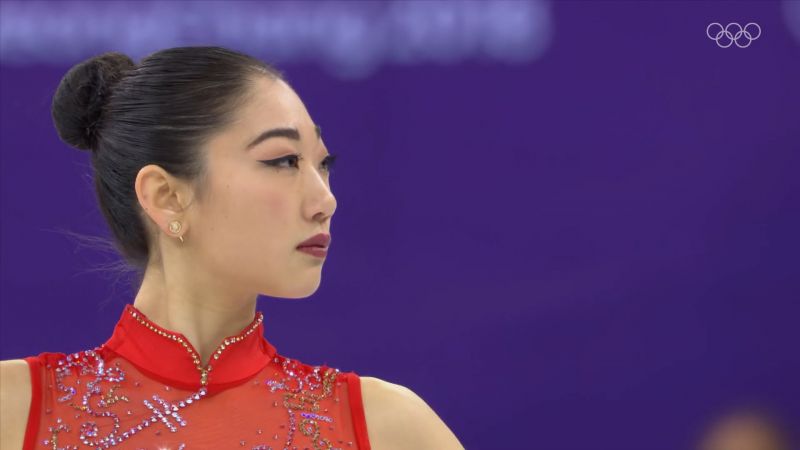
 دوباره دوباره دوباره (Triple Again)
دوباره دوباره دوباره (Triple Again)
Iran 2025 | Schwarz-Weiss und Farbe |
03:00 | Englisch
 دوباره دوباره دوباره (Triple Again)
دوباره دوباره دوباره (Triple Again)
Iran 2025 | Black & White and Color |
03:00 | English
Einer Eiskunstläuferin glückt ein historischer dreifacher Axel. Es folgen Beifall, Ruhm und große Erwartungen. Doch was passiert, nachdem das Unmögliche geschafft ist?
Content notes:
Mental Health, Strobe effects and/or flashing images
A figure skater lands a historic triple axel. Applause, glory, and the weight of expectation follow. But what happens after the impossible is achieved?
Content notes:
Mental Health, Strobe effects and/or flashing images
Regie:
Director:
Shaian Ebrahimi
Produzent:in:
Producer:
Shaian Ebrahimi
Distribution / Sale:
Distribution / Sale:
Shaian Ebrahimi
Referent contact:
Referent contact:
Shaian Ebrahimi
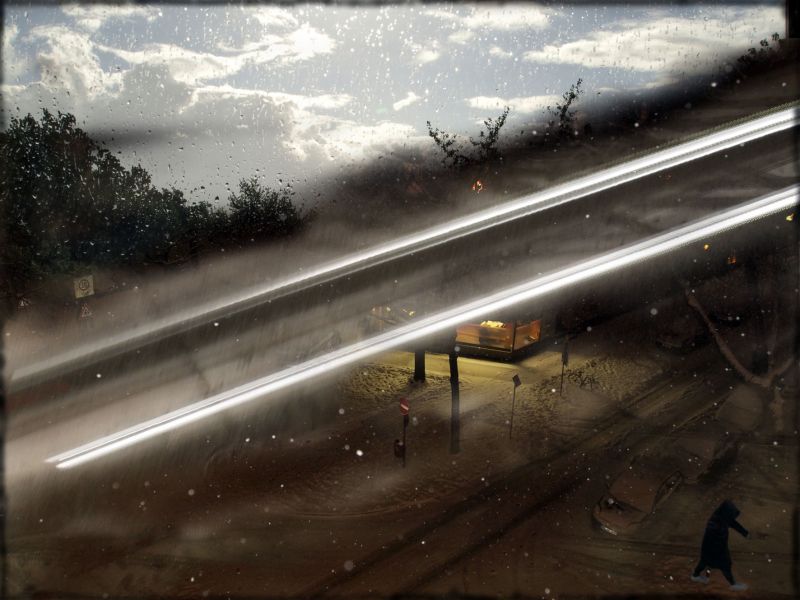
 Missive Imperfect
Missive Imperfect
Deutschland 2025 | Schwarz-Weiss und Farbe |
02:55 | Kein Dialog
 Missive Imperfect
Missive Imperfect
Germany 2025 | Black & White and Color |
02:55 | No Dialogue
Der vergebliche Versuch, die letzten 15 Jahre in Bildern festzuhalten.
Content notes:
Strobe effects and/or flashing images
The failing attempt to capture the last 15 years in pictures.
Content notes:
Strobe effects and/or flashing images
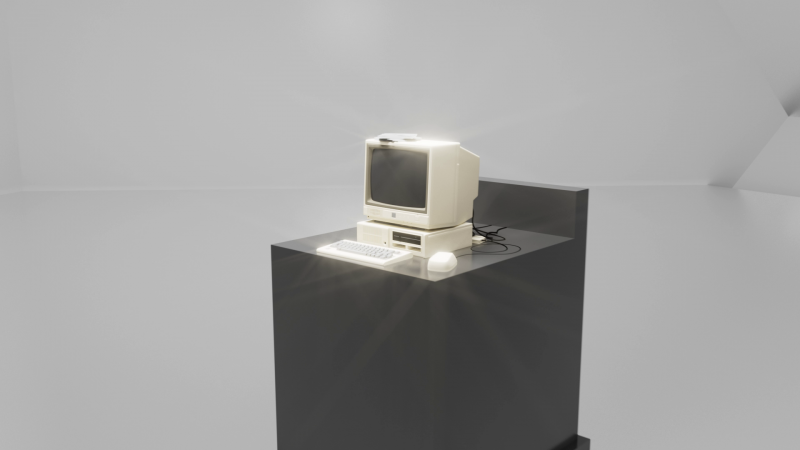
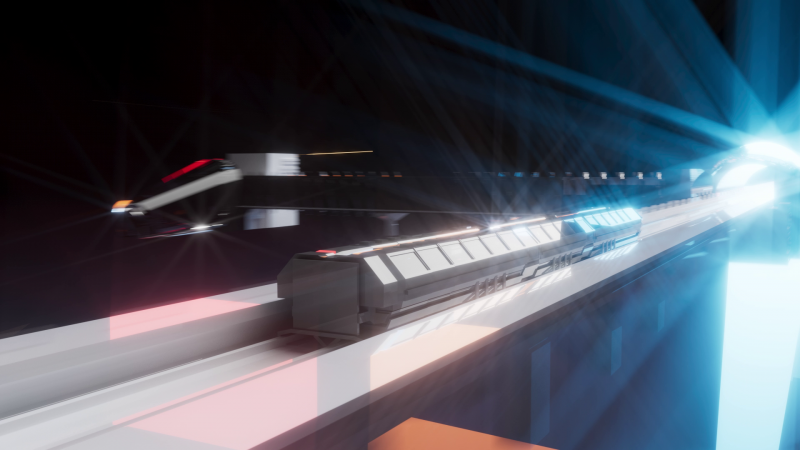
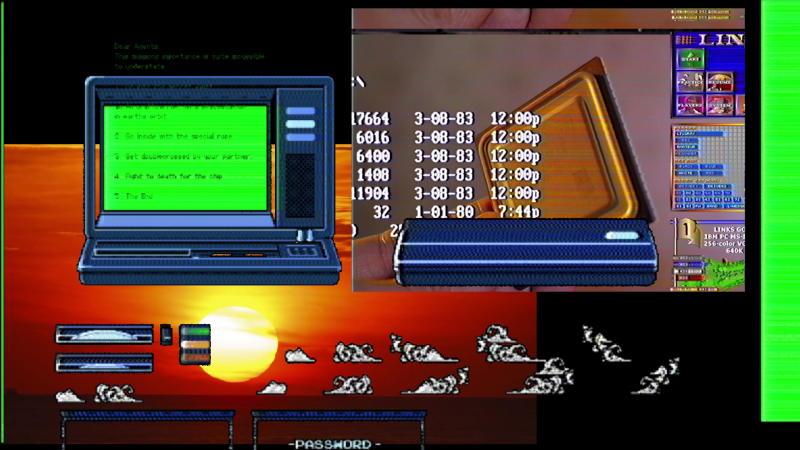
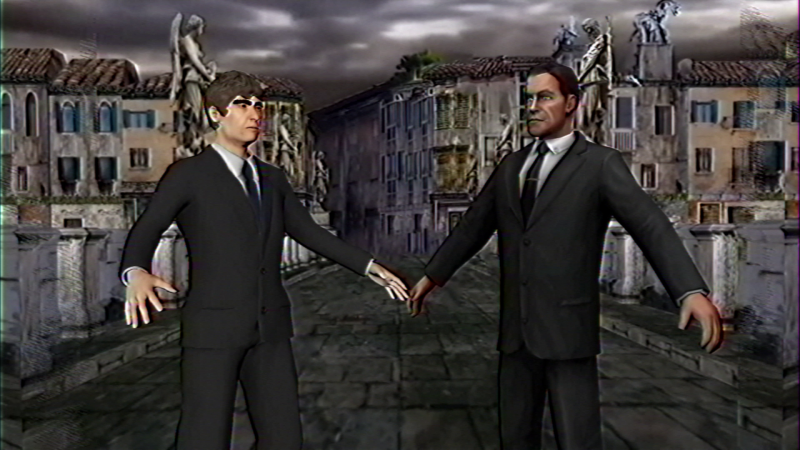
 The Impossible Mission
The Impossible Mission
Deutschland 2024 | Farbe |
02:59 | Englisch
 The Impossible Mission
The Impossible Mission
Germany 2024 | Color |
02:59 | English
Zwei Retrogaming-Spezialagenten begeben sich auf eine schier unmögliche Mission, um eine CD-ROM auf einer Raumstation in der Erdumlaufbahn zu bergen.
Content notes:
Physical violence
Two retrogaming special agents go on quite an impossible mission to retrieve a CD-ROM on a space station in the Earth’s orbit.
Content notes:
Physical violence
Regie:
Director:
Nicolas Gebbe
Produzent:in:
Producer:
Nicolas Gebbe
Distribution / Sale:
Distribution / Sale:
Nicolas Gebbe
Referent contact:
Referent contact:
Nicolas Gebbe
The Sunset Special 2 (2024), Lockdown Dreamscape (2022), The Sunset Special (2021), Urban Dreamscape (2019)
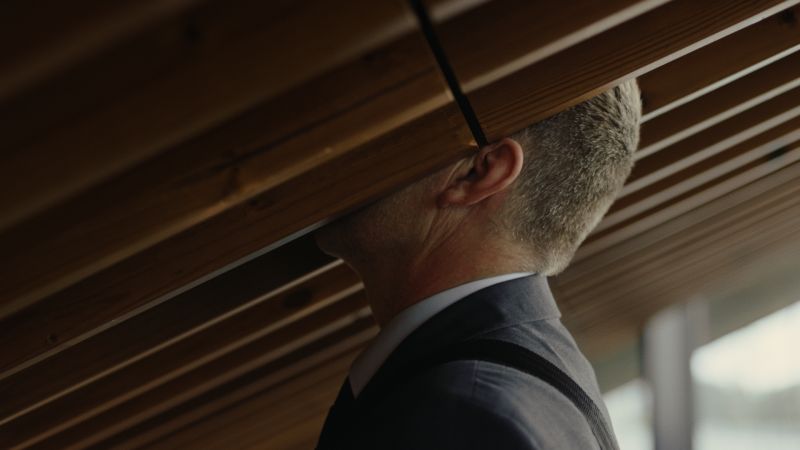
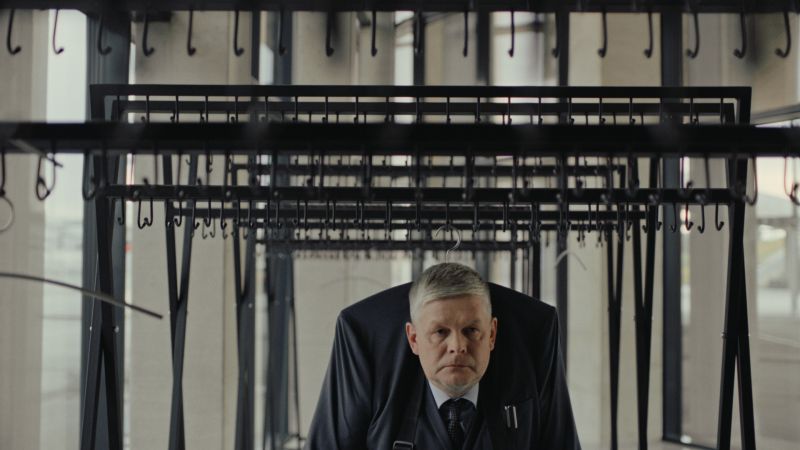
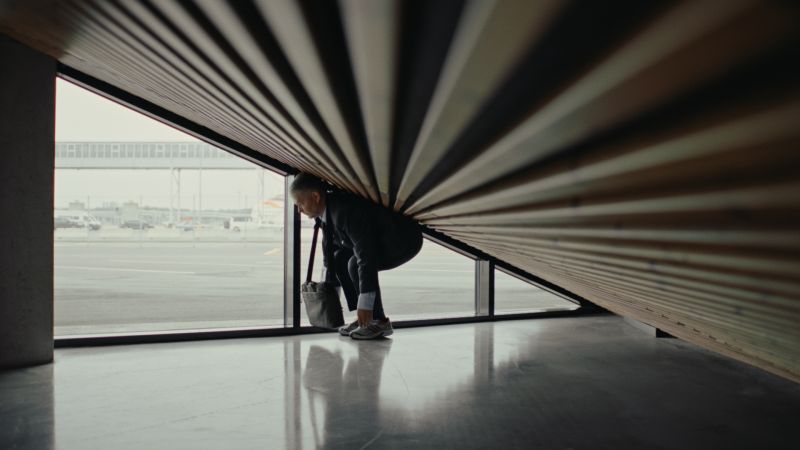
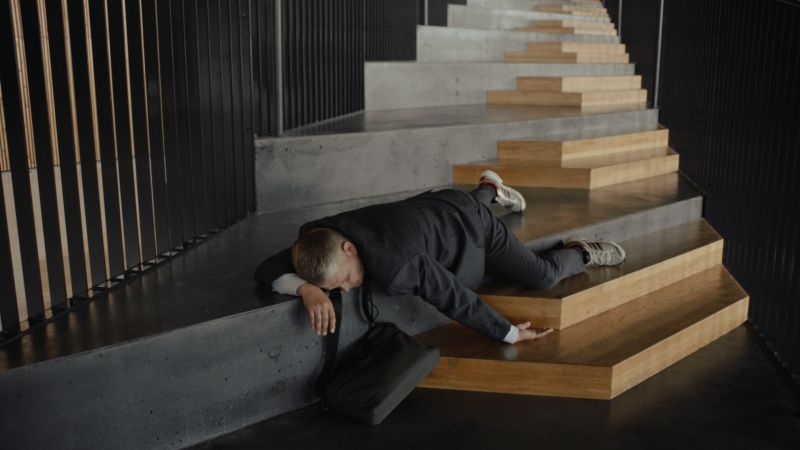
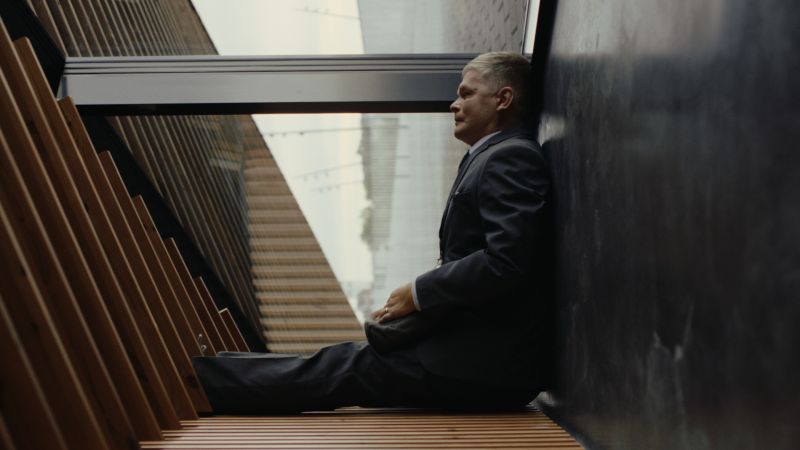
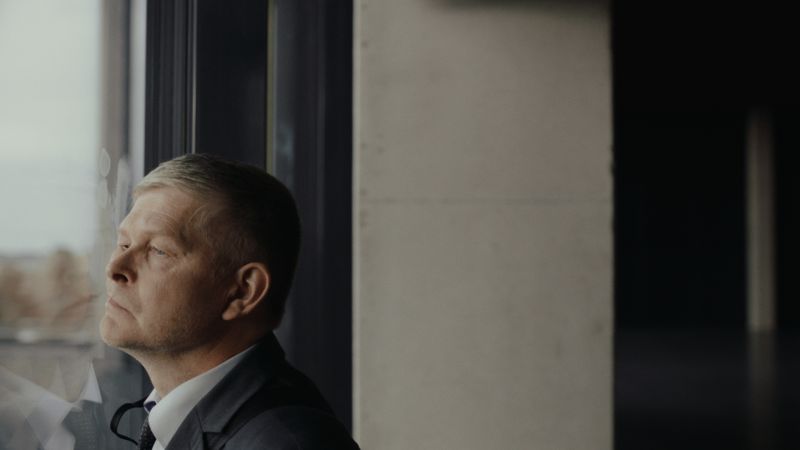
 Jah! (Yes!)
Jah! (Yes!)
Estland 2024 | Farbe |
03:00 | Estnisch
 Jah! (Yes!)
Jah! (Yes!)
Estonia 2024 | Color |
03:00 | Estonian
Ein Parcours aus Ecken, Steigungen, Sackgassen und Kurven, um über die Dilemmata der Leistungsgesellschaft nachzudenken. Sollen wir uns in eine Schublade zwängen – oder es wagen, falsch zu liegen?
A parcours of corners, inclination, dead ends and curves to reflect on the dilemmas of the performance society. Should we make ourselves fit into a box? Or should we dare not to fit right in?
Regie:
Director:
Madli Lääne
Kamera:
Director of photography:
Fidelia Regina Randmäe
Editing:
Editing:
Emeri Abel
Ton:
Sound design:
Siim Skepast
Voice Over:
Voice Over:
Ivo Uukkivi
Darsteller:innen:
Cast:
Raido Mägi
Kostümbild:
Costume design:
Liis Plato
Andere:
Other:
Joonas Veelmaa
Produzent:in:
Producer:
Johanna Maria Paulson
Referent contact:
Referent contact:
Madli Lääne
Jungle Law (2024), Dear Passengers (2022), Three August Days (2018)
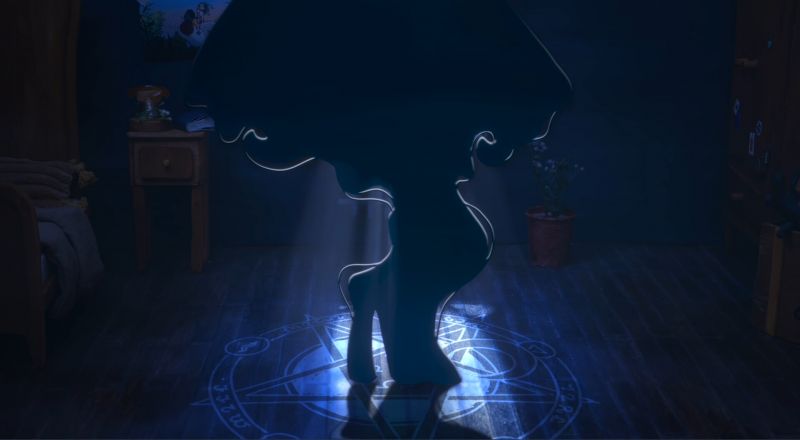
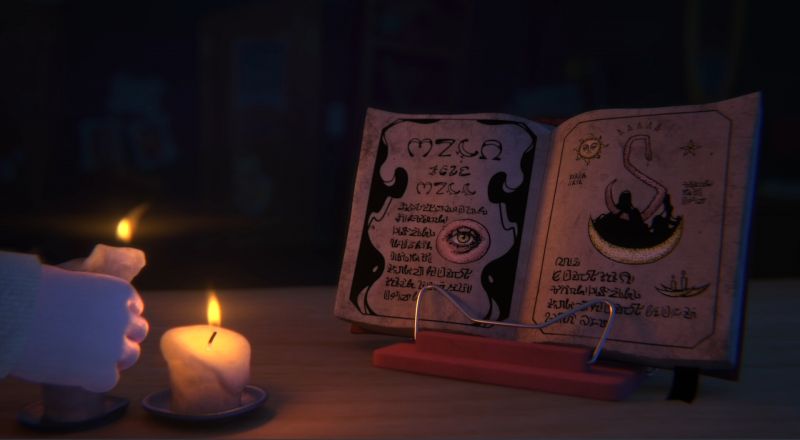
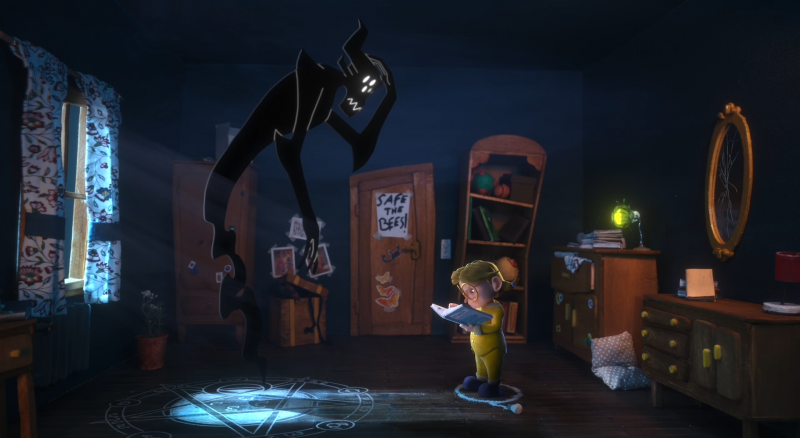
 Forgive Us our Sin and Cos (Forgive Us Our Sin and Cos)
Forgive Us our Sin and Cos (Forgive Us Our Sin and Cos)
Deutschland 2024 | Farbe |
03:05 | Kein Dialog
 Forgive Us our Sin and Cos (Forgive Us Our Sin and Cos)
Forgive Us our Sin and Cos (Forgive Us Our Sin and Cos)
Germany 2024 | Color |
03:05 | No Dialogue
Als ein Dämon in einer düsteren Nacht beschworen wird, sieht er sich mit einer unerwarteten Aufgabe konfrontiert.
As a demon is summoned one dreary night, he is met with an unexpected task.
Animation, Künstlerische Leitung, Script, Regie, Produzent:in:
Animation, Art direction, Script, Director, Producer:
Paulina Reineke
Animation, Production designer, Produzent:in, Künstlerische Leitung:
Animation, Production designer, Producer, Art direction:
Lena Ruppenthal
3D Coordination, Animation:
3D Coordination, Animation:
Philipp Schaffeld
Animation, 3D Coordination:
Animation, 3D Coordination:
Jannik Brondke
Animation:
Animation:
Anna "Noa" Spiridonova
Animation:
Animation:
Daria Kalliske
Animation:
Animation:
Maik Altes
Animation:
Animation:
Tim Brusberg
Animation:
Animation:
Selim Kilinc
Kamera:
Director of photography:
Milan Malkomes
Music, Ton:
Music, Sound design:
Robin Wagner
Produzent:in, 3D Coordination, Compositing, Editing:
Producer, 3D Coordination, Compositing, Editing:
Jakob Klooth
Produzent:in, Production designer, Szenenbild:
Producer, Production designer, Set design:
Nelly Granson
Production designer, Szenenbild:
Production designer, Set design:
Yea An Jeon
Szenenbild, Production designer:
Set design, Production designer:
Thomas Range
Szenenbild:
Set design:
Marvin Bieser
Studio:
Studio:
Hochschule Mainz
Forgive Us Our Sin and Cos (2024)
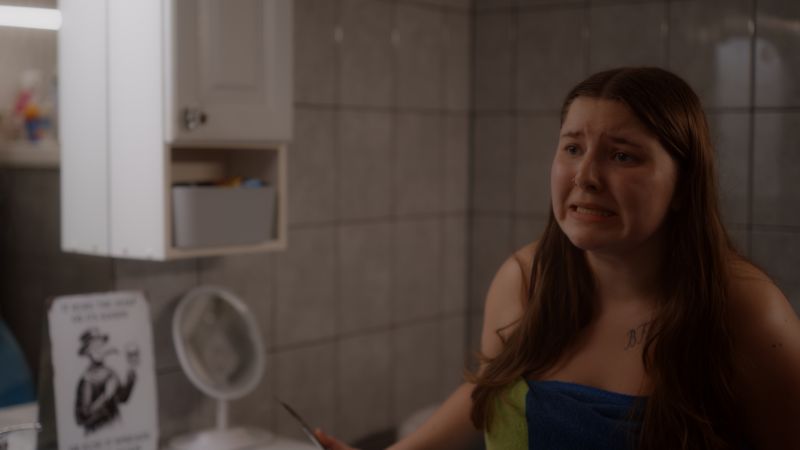
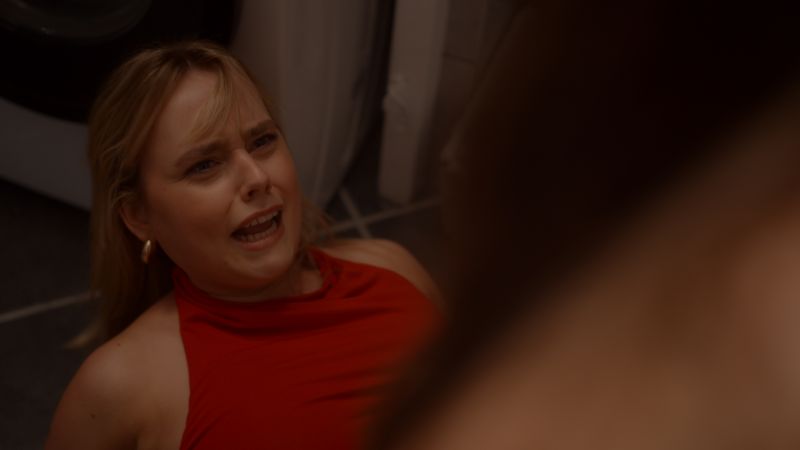
 Basert på en sann historie (Based on a True Story)
Basert på en sann historie (Based on a True Story)
Norwegen 2025 | Farbe |
02:51 | Norwegisch
 Basert på en sann historie (Based on a True Story)
Basert på en sann historie (Based on a True Story)
Norway 2025 | Color |
02:51 | Norwegian
Eine junge Frau befindet sich in einer Krise und bittet ihre beiden betrunkenen Mitbewohnerinnen, die von einer Nacht in der Stadt zurückkehren, um Hilfe.
Content notes:
Alcoholism and/or drug-abuse, Vomiting
A young woman in a moment of crisis asks her two drunken flatmates returning from a night on the town for help.
Content notes:
Alcoholism and/or drug-abuse, Vomiting
Regie, Produzent:in:
Director, Producer:
Ola Røyseland
Darsteller:innen:
Cast:
Enya Miharotanga Røyseland
Darsteller:innen:
Cast:
Erika Skuggen
Darsteller:innen:
Cast:
Tiril Fløtre Christensen
Reeds (2023), Below the Surface (2023), Maybe (2022), When the Light Breaks (2021)
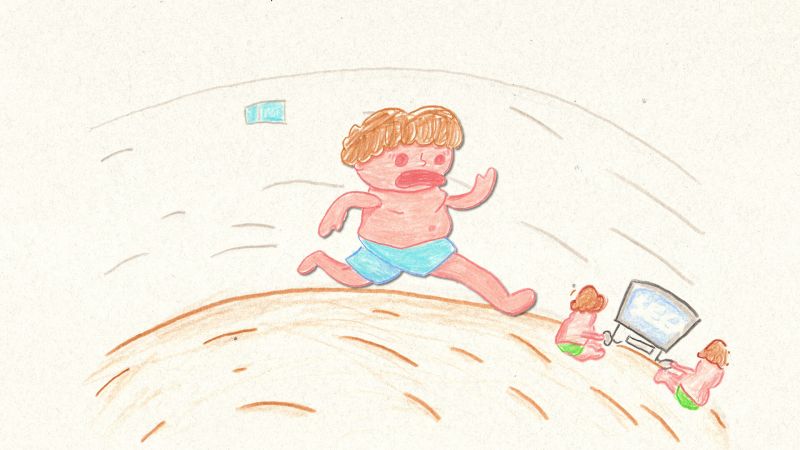
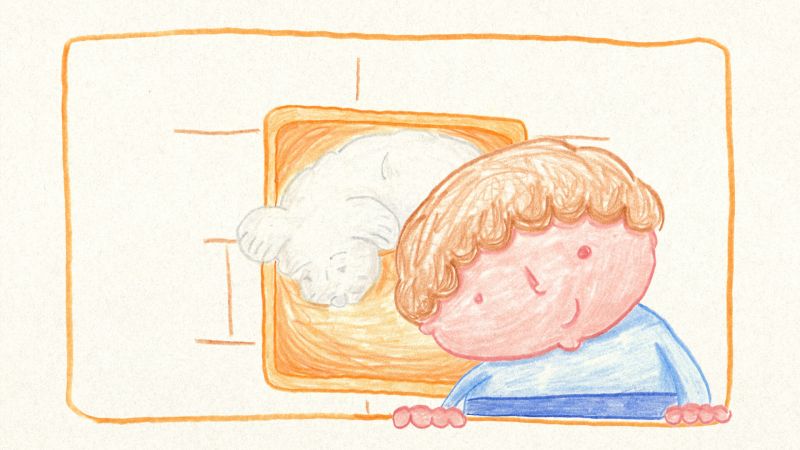
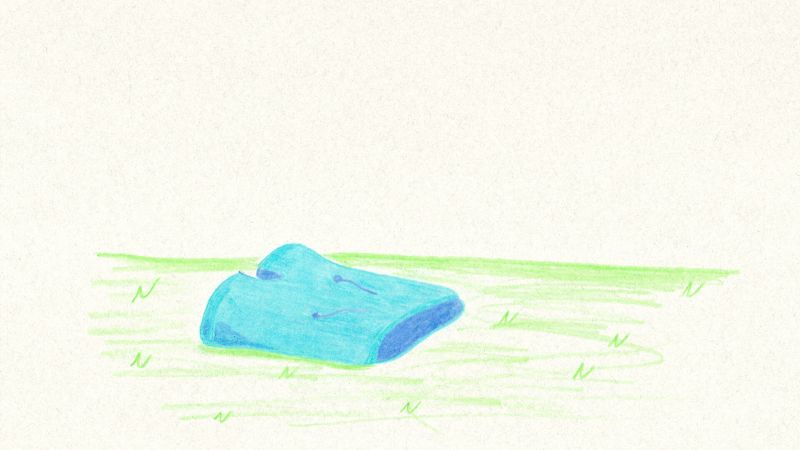
 L'avant-dernière fois que j'ai fait caca dans mes culottes (The Second-to-Last Time I Pooped my Pants)
L'avant-dernière fois que j'ai fait caca dans mes culottes (The Second-to-Last Time I Pooped my Pants)
Kanada 2024 | Farbe |
02:23 | Französisch
 L'avant-dernière fois que j'ai fait caca dans mes culottes (The Second-to-Last Time I Pooped my Pants)
L'avant-dernière fois que j'ai fait caca dans mes culottes (The Second-to-Last Time I Pooped my Pants)
Canada 2024 | Color |
02:23 | French
An einem sonnigen Tag schienen Burger und Schwimmen die perfekte Kombination für den jungen Seb zu sein – bis furchtbare Bauchschmerzen alles auf den Kopf stellten.
On a sunny day, enjoying burgers and swimming looked like the perfect combination for young Seb, until a dreadful stomach ache turned everything upside down.
Verleihfirma:
Distributor:
Marc-Olivier Blackburn
Regie, Produzent:in, Animation:
Director, Producer, Animation:
Sébastien Landry
(Selection) The Making of The Outlast Trials (2023), MOTHERLORD (2022), Game of Death (2018), J_VDO (2016), CAGED (2014), A Parallel Away (2013)
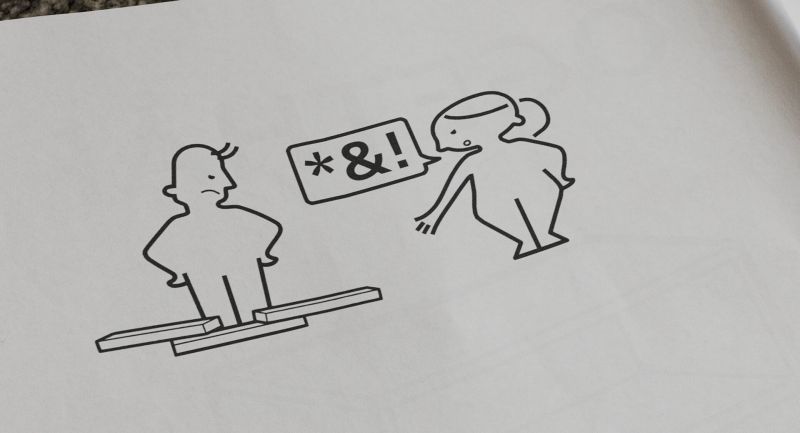
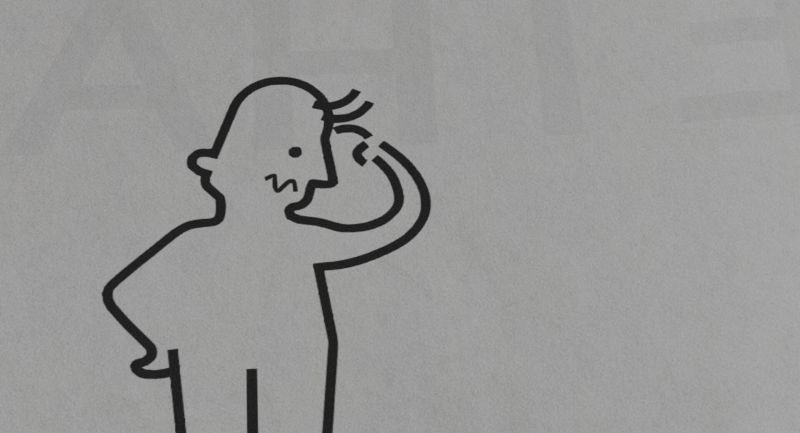
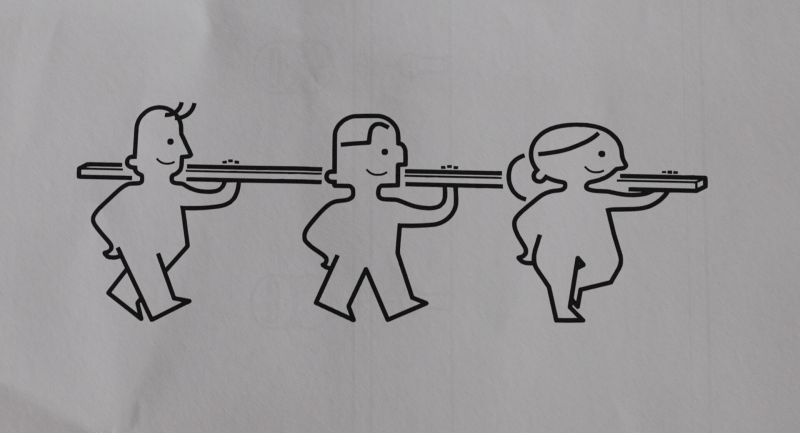
 TÖGETHÅR (TÖGETHÅR)
TÖGETHÅR (TÖGETHÅR)
Vereinigtes Königreich 2024 | Farbe |
01:04 | Kein Dialog
 TÖGETHÅR (TÖGETHÅR)
TÖGETHÅR (TÖGETHÅR)
United Kingdom 2024 | Color |
01:04 | No Dialogue
Drei Freunde bauen zusammen das Bücherregal ihrer Träume. Flatpack-Möbel haben noch nie so viel Spaß gemacht!
Three friends come together to build the bookshelves of their dreams. Flatpack furniture has never been so fun!
Regie:
Director:
Rich Farris
Ton:
Sound design:
Ross Stringer
From the Top (2023)
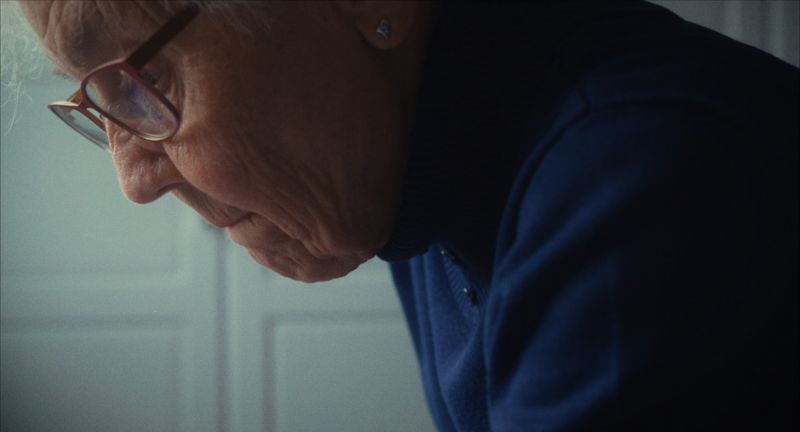
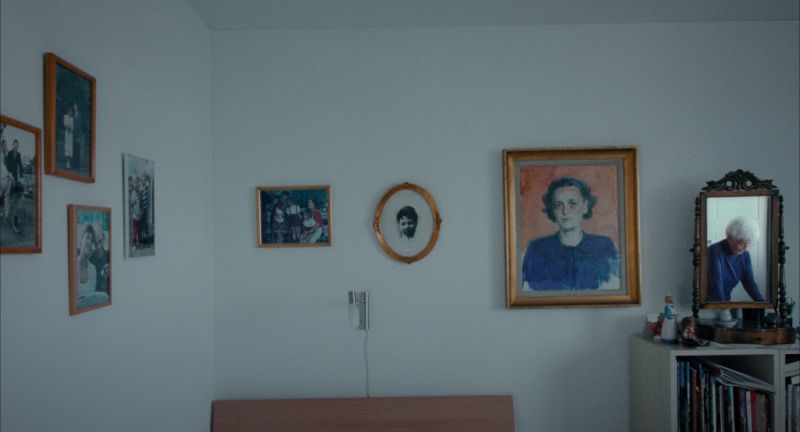
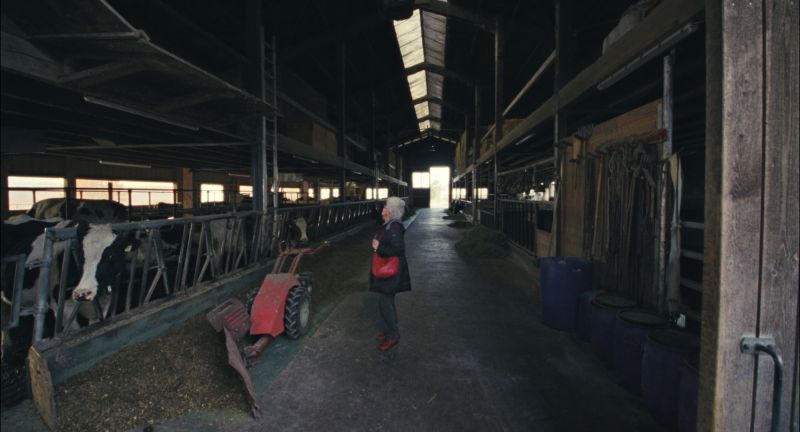
 Längtan (Longing)
Längtan (Longing)
Schweiz 2025 | Farbe |
03:11 | Schwedisch, Schweizerdeutsch
 Längtan (Longing)
Längtan (Longing)
Switzerland 2025 | Color |
03:11 | Swedish, Swiss German
Eine alte Frau erzählt ihrem verstorbenen Mann von ihrem lebenslangen Kampf um Heimat, Liebe und Zugehörigkeit.
An old woman tells her late husband about her lifelong struggle for home, love and belonging.
Regie, Kamera, Editing:
Director, Director of photography, Editing:
Lars Odermatt
Ton:
Sound design:
Floris Demandt
Darsteller:innen:
Cast:
Kristina Müller-Nilsson
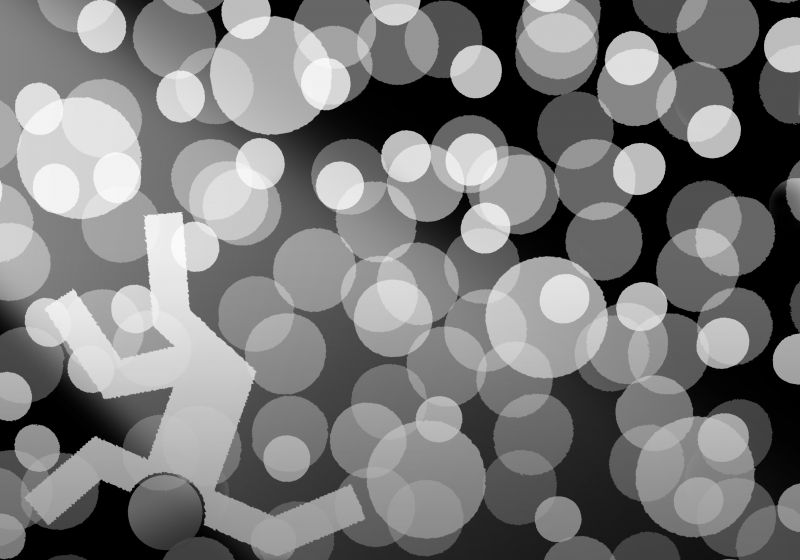
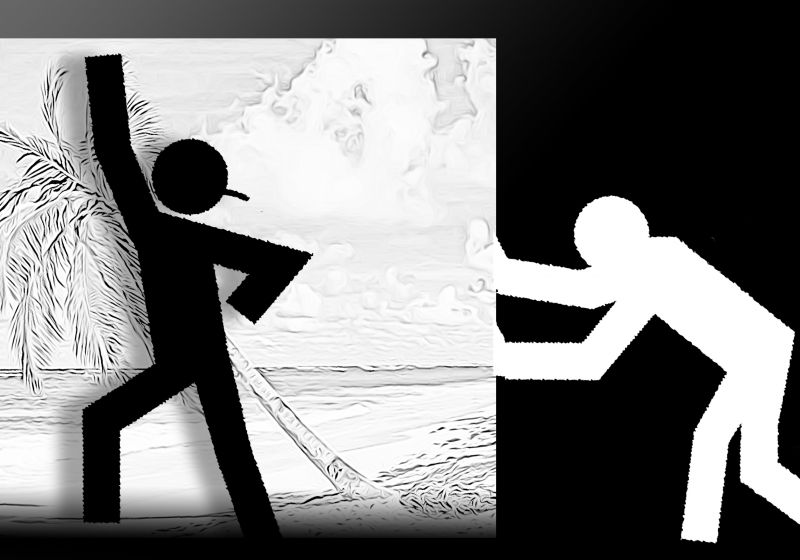
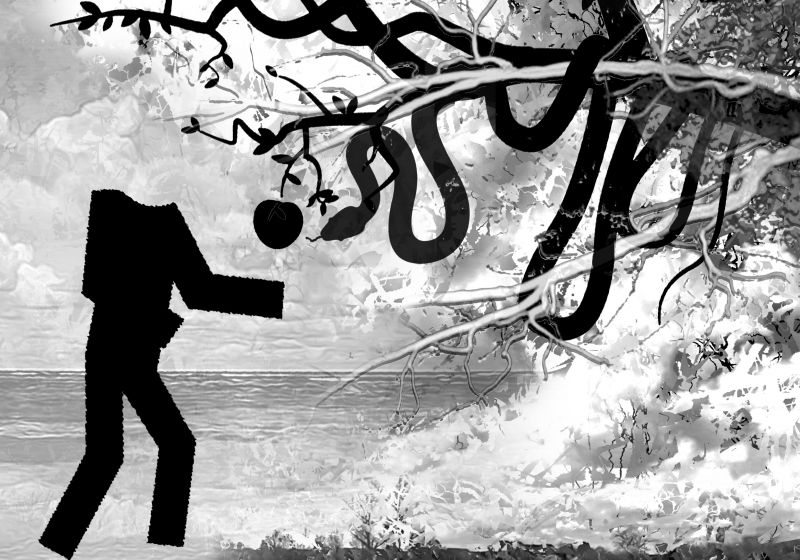
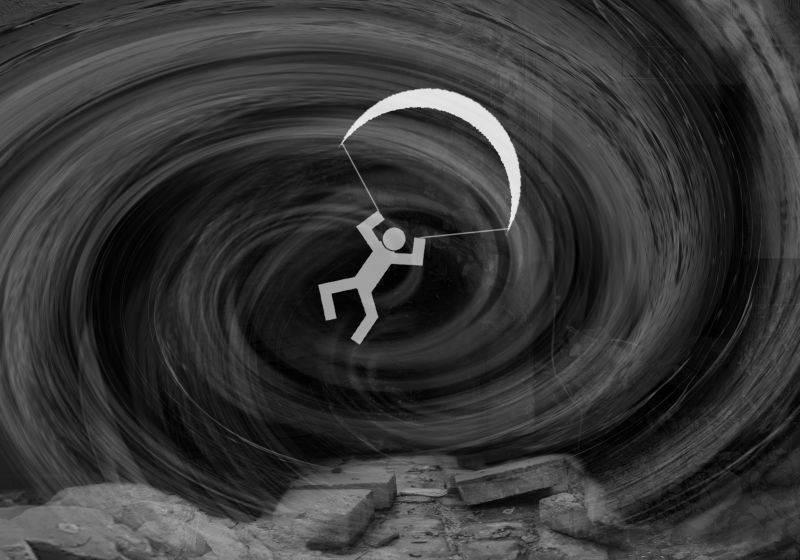
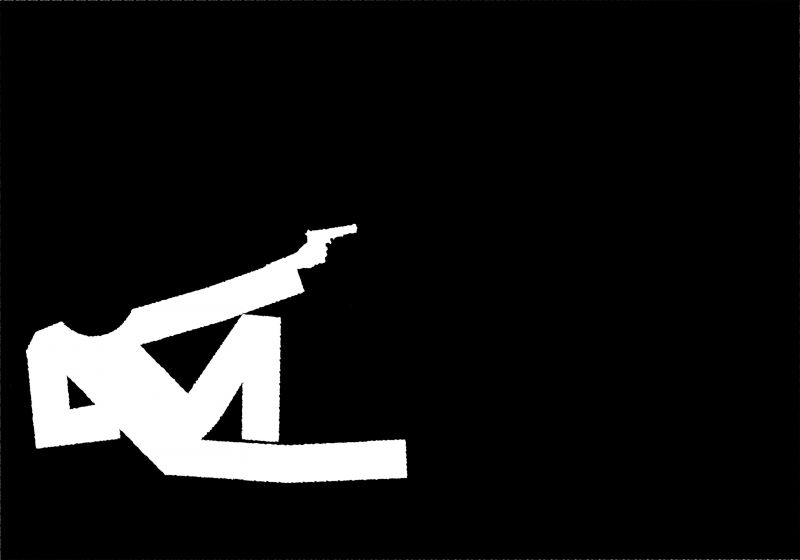
 How to stop smoking without losing your head
How to stop smoking without losing your head
Deutschland 2025 | Schwarz-Weiss |
02:10 | Kein Dialog
 How to stop smoking without losing your head
How to stop smoking without losing your head
Germany 2025 | Black & White |
02:10 | No Dialogue
Kann man aufhören zu rauchen, ohne durchzudrehen? Es scheint eine fast unmögliche Mission zu sein, die unser Protagonist erfüllen muss. Wie und ob er es schaffen wird – wir werden es vielleicht herausfinden.
Is it possible to quit smoking without losing your head? For our protagonist, it looks like an almost impossible mission. How and whether he will make it at all – maybe we’ll find out.
Regie, Animation, Script, Ton, Produzent:in:
Director, Animation, Script, Sound design, Producer:
Gieso Ristau
Art Designer:
Art Designer:
Gieso Ristau
Distribution / Sale:
Distribution / Sale:
Gieso Ristau
Sound Mixing:
Sound Mixing:
Gieso Ristau
Distropolis (2021), Frozen twitching dream shreds, slowly passing by (2020), Deep inside (2019), As time went by (2014), Shut up - keep distance (2008), Vita Nebuloesis (2006)
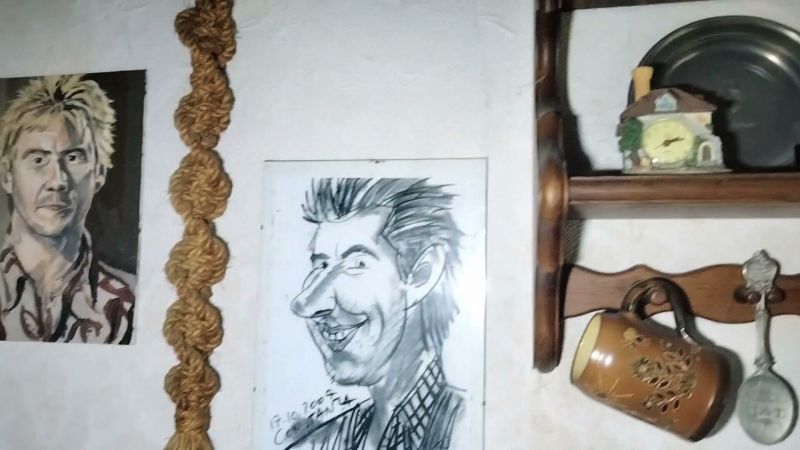
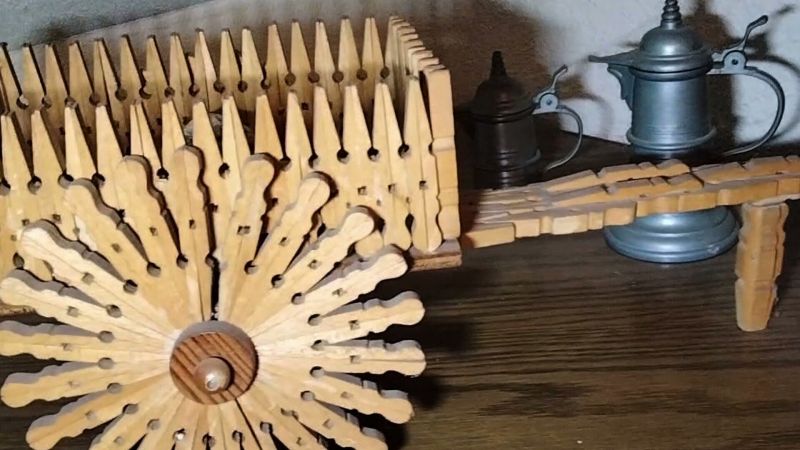
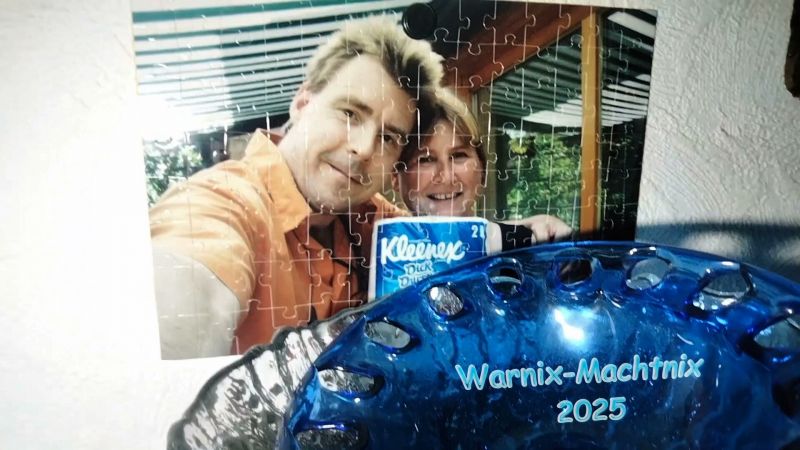
 Wischen impossible (Vision Impossible)
Wischen impossible (Vision Impossible)
Deutschland 2025 | Farbe |
02:50 | Deutsch
 Wischen impossible (Vision Impossible)
Wischen impossible (Vision Impossible)
Germany 2025 | Color |
02:50 | German
Manche Dinge bergen Erinnerungen, andere nur Staub.
Some things hold memories, others merely dust.
Regie, Produzent:in, Darsteller:innen:
Director, Producer, Cast:
Carsten Knoop
Regie, Produzent:in:
Director, Producer:
Dorit Kiesewetter
Darsteller:innen:
Cast:
Erika Liselotte Knoop
(Selection) Grottenschlicht (2024), Proton in der Dunkelrutsche (2023), Die Meise der Pinguinin (2022), Fals che Trennung (2021), Arg irre (2020), Die Navigatour (2019)
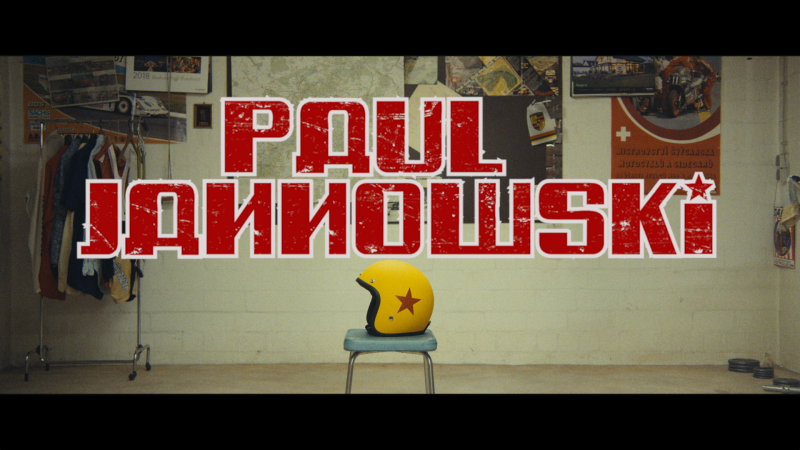
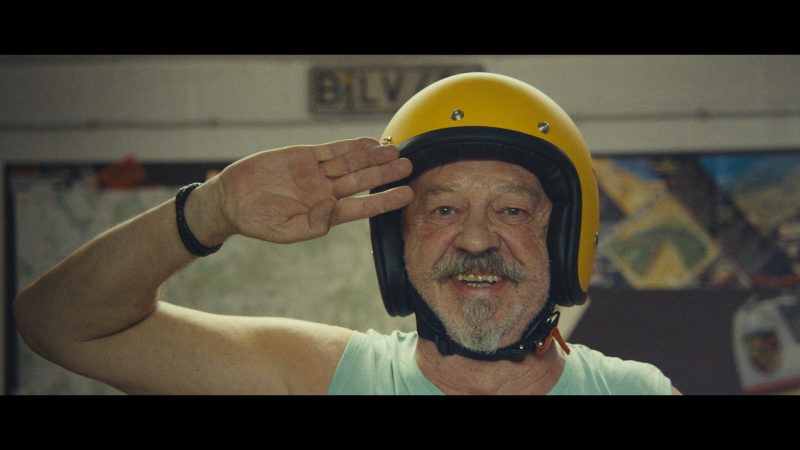
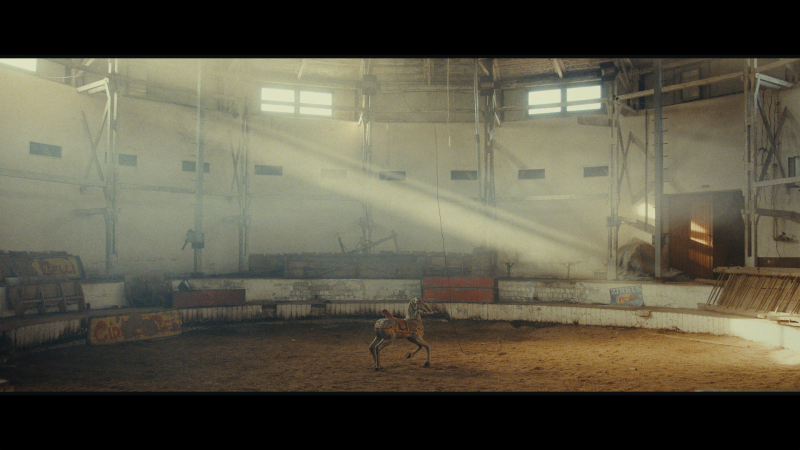
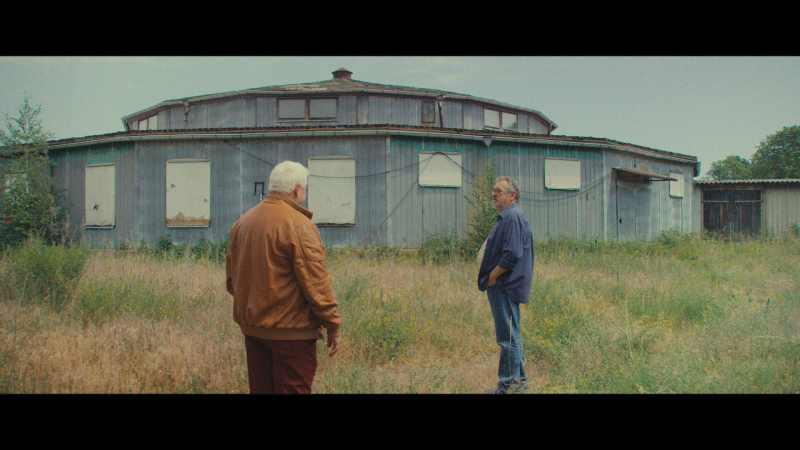
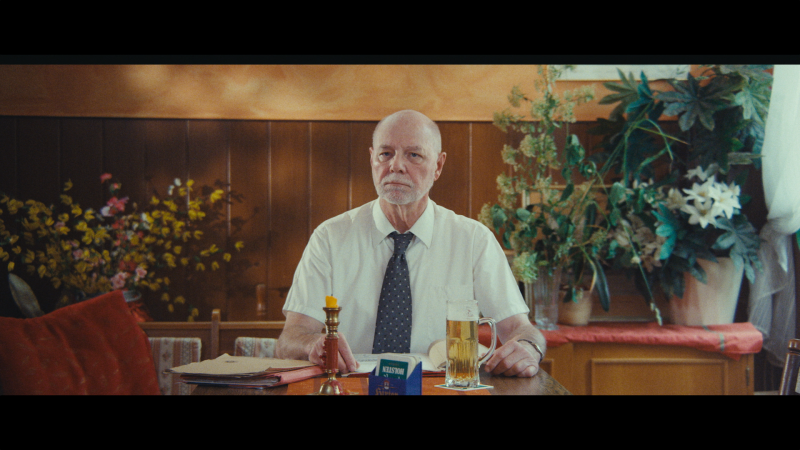
 Paul Jannowski
Paul Jannowski
Deutschland 2025 | Farbe |
03:00 | Deutsch
 Paul Jannowski
Paul Jannowski
Germany 2025 | Color |
03:00 | German
Paul Jannowski war ein Superstar des DDR-Staatszirkus’, bekannt als die einzige lebende Kanonenkugel des Ostblocks. Eines Tages wagte er das Undenkbare: Er schoss sich mit seiner Kanone in den Westen – ein spektakulärer Akt der Freiheit, der ihn zum Mythos machte.
Paul Jannowski was a superstar of the GDR state circus, known as the only living cannonball in the Eastern Bloc. But one day he dared to do the unthinkable: he used his cannon to shoot himself over the closely guarded GDR border into the Elbe and fled to the West – a spectacular act of freedom that made him a myth.
Regie, Script, Editing:
Director, Script, Editing:
Björn Warns
Kamera:
Director of photography:
Simon Roloff
Art Designer:
Art Designer:
Björn Warns
Distribution / Sale:
Distribution / Sale:
Björn Warns
Produzent:in:
Producer:
Oliver Krupp
Referent contact:
Referent contact:
Björn Warns

 Laboratory of the Present
Laboratory of the Present
The Laboratory of the Present is a place for reflection on societal, social and cinephile questions. Selected artists, programmers, curators, change makers think in films and programs about positions and theses. The lab’s Forum is where we talk extensively with international guests who expand the questions and theses with additional disciplines and views.

 LAB1: Togetherness
LAB1: Togetherness
Togetherness is the glue of the world. Only together will we be able to transcend the questions and concerns of the individual. In order to experience one another, we need insights into other realities of life. Togetherness combines cinematic practice and theoretical discourse. With four film programs and one live format we dedicate ourselves to the important topics of our present: exile, restitution, memory, resistance, ecology, feminism and language. Curated and presented by Vanessa Nica-Mueller, Eythar Gubara, Cale Garrido, Joshua Simon, Family & Friends in Hamburg on the Budapest Complex and Fashion The Gaze.

LAB 1: Gestörtes Vertrauen share
LAB 1: Broken Trust share
Freier Eintritt.
Das zweiteilige Live-Format GESTÖRTES VERTRAUEN befasst sich aus unterschiedlichen Perspektiven mit rechter Ideologie.
Stellt Euch vor: Ihr demonstriert gegen Neonazis — voll legitim, oder? Doch statt Dank gibt’s Repression. Willkommen im »Budapest-Komplex« — ein Fall, der zeigt, wie Antifaschismus in Europa kriminalisiert wird und rechte Denkweisen in Justiz und Behörden Fuß gefasst haben. Nicht nur in Ungarn, auch mit deutscher Hilfe. Ein kurzer Vortrag gibt Einblick in den Stand der Dinge – und in ein europäisches Rechtsverständnis, das sich zunehmend gegen antifaschistischen Widerstand richtet.
BROLIGARCHY: Inszenierungen und Strategien techaffiner rechter Männlichkeit
Die »Broligarchy« — eine Allianz aus Tech-Bros, Crypto-Kapital und rechter Intellektualität — nutzt Social Media, Mode und digitale Bildwelten strategisch zur Verbreitung ihrer Ideologie. In einem Live-Podcast werfen Freya Herrmann und Vera Klocke, Gründerinnen des Podcasts »Fashion The Gaze«, einen kritischen Blick auf die Ästhetiken zwischen Hyperminimalismus, martialischer Männlichkeit und Retro-Futurismus und analysieren die Gefahren, die in ihrer Anschlussfähigkeit an popkulturelle Codes liegen.
Content Note: Rassismus, Antisemitismus, Diskriminierung von Frauen, Diskriminierung von LGBTQIA+
Veranstaltung in deutscher Sprache.
Freier Eintritt.
This event is in German.
Free admission.
This two-part live format deals with right-wing ideology from different perspectives.
Imagine the following scenario: you choose to demonstrate against neo-Nazis – an entirely legitimate act, right? However, instead of gratitude, you are met with repression. Welcome to the »Budapest Complex« — a case that demonstrates how anti-fascism is criminalised in Europe and right-wing modes of thought have gained a foothold in the judiciary and administrative state on multiple levels. Not only in Hungary, with German aid as well. A short lecture provides an insight into the current state of affairs – and into a European understanding of the law that is increasingly directed against antifascist resistance.
BROLIGARCHY: Performances and Tactics of Tech-Savvy Right-Wing Masculinity
The »Broligarchy« – an alliance between tech-bros, crypto-capital and right-wing intelligentsia – uses social media, fashion and digital imagery strategically to disseminate their ideology. In a live podcast, Freya Herrmann and Vera Klocke will take a critical look at these aesthetics combining elements of hyper-minimalism, martial masculinity and retro-futurism and analyse the dangers which lie in their capacity to mesh and interact easily with pop-cultural codes. Freya Herrmann and Vera Klocke are the founders and makers of the podcast »Fashion the Gaze«, a monthly conversation about the political implications of contemporary pop-cultural phenomena. From neo-fascist TikTok trends to body politics and production and staging choices in current films and series: the two hosts are, in their own words, "just trying to make sense of the culture and where the world is headed".
Content Note: Racism, anti-Semitism, discrimination against women, discrimination against LGBTQIA+
Admission free
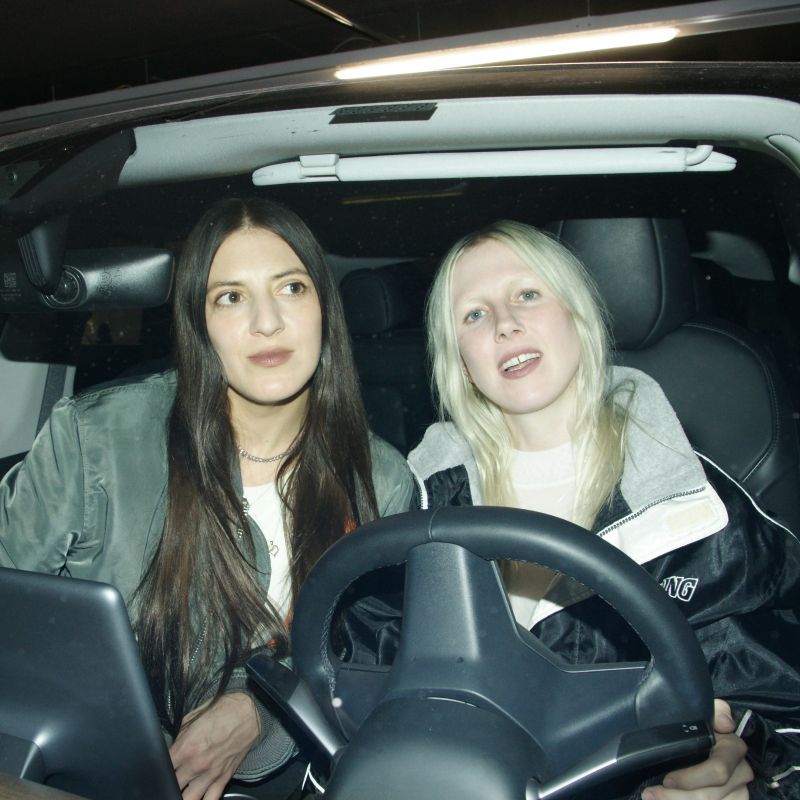
 Fashion The Gaze
Fashion The Gaze
Vera Klocke ist Kulturwissenschaftlerin und Drehbuchautorin. Sie leitet die Forschungsstelle Konsumkultur der Universität Hildesheim. Seit 2020 produziert sie mit Freya Herrmann den Podcast „Fashion The Gaze“ über Politiken von Inszenierung. Sie schreibt für die Serie „Doppelhaushälfte“ und spricht bei DLF Kultur über Popkultur und Gegenwart.
Freya Herrmann ist Kostümbildnerin und Drehbuchautorin. Seit 2020 produziert sie mit Vera Klocke den Podcast „Fashion the Gaze“ über Politiken von Inszenierung. Sie gestaltete u.a. die Kostümbilder für die Serien „Schwarze Früchte“ und „Marzahn Mon Amour“ und schreibt für „Doppelhaushälfte“. Bei DLF Kultur spricht sie über Popkultur und Gegenwart.
Freya Herrmann is a costume designer and screenwriter. Since 2020, she has been producing the podcast ‘Fashion the Gaze’ with Vera Klocke about the politics of staging. She designed the costume designs for the series ‘Schwarze Früchte’ and ‘Marzahn Mon Amour’, among others, and writes for ‘Doppelhaushälfte’. She talks about pop culture and the present on DLF Kultur.
Vera Klocke is a cultural scientist and screenwriter. She heads the Consumer Culture Research Centre at the University of Hildesheim. Since 2020, she has been producing the podcast ‘Fashion The Gaze’ with Freya Herrmann about the politics of staging. She writes for the series ‘Doppelhaushälfte’ and talks about pop culture and the present on DLF Kultur.

LAB1: Exil der Gedanken – Blendende Lichter share
LAB1: Exile of the Mind – Blinding Lights share
Exil und Diaspora stehen sowohl für Verlust als auch für Transformation, für Vorwärtsgehen und Zurückblicken, für Loslassen und Erinnern. Ein inneres Exil kann als geistige Befreiung von Beschränkungen und als Chance zur Neuerfindung gesehen werden – denn Freiheit bedeutet, mehrere Identitäten zu besitzen, Möglichkeiten und Orte zu haben, sich zu verändern und zu wandeln.
Mit diesen Kurzfilmen erkunden wir künstlerische Perspektiven auf hybride kulturelle Identitäten, die Raum und Widerständigkeit beanspruchen. Durch das Hinterfragen des individuellen und kollektiven Gedächtnisses eröffnen die künstlerischen Filme vielschichtige Erzählungen über komplexe Zugehörigkeiten. Gegen die Vereinfachung, für das Vielseitige und Mehrdeutige: Als Nomad:innen des Geistes erkennen und treffen wir uns zusammen woanders, genau hier.
Kuratiert von Vanessa Nica Mueller
Gast: Sandra Makhlouf
Exile and diaspora represent both loss and transformation, moving forward and looking back, letting go and remembering. An inner exile can be seen as a psychological liberation from constraints and an opportunity for reinvention – as freedom means possessing multiple identities, having possibilities and places to change and to transform.
With these short films, we explore artistic perspectives of hybrid cultural identities which lay claim to space and resistance. By questioning individual and collective memory, the films highlight multi-layered narratives and complex ways of belonging. Against simplification, for the versatile and ambiguous: as nomads of the mind, we recognize and meet altogether elsewhere, right here.
Curator: Vanessa Nica Mueller
Guest: Sandra Makhlouf
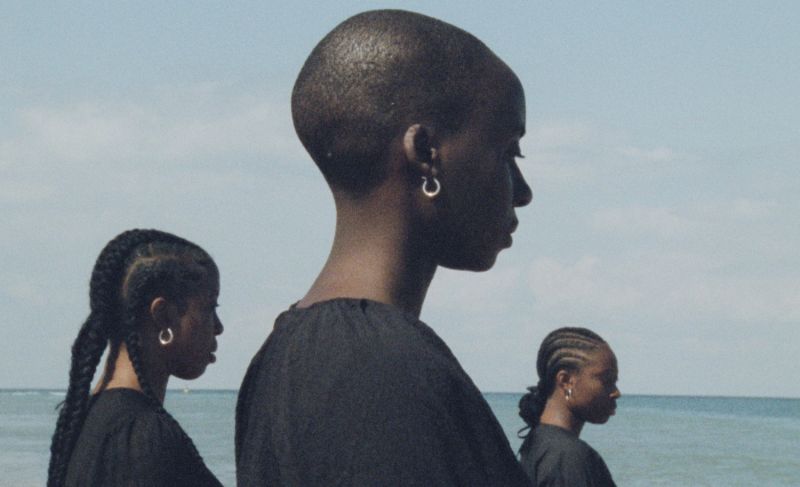
 From Where We Land
From Where We Land
Vereinigtes Königreich 2021 | Farbe |
18:51 | Englisch
 From Where We Land
From Where We Land
United Kingdom 2021 | Color |
18:51 | English
From Where We Land folgt einer Gruppe Schwarzer britischer Frauen der zweiten Generation und untersucht ihr Verhältnis zu ihrer Identität, zu Gefühlen der kulturellen Verdrängung und zu ihrer gemeinsamen Geschichte. Der Film basiert auf den Beiträgen der Schwarzen feministischen Bewegung der 1980er-Jahre in England und dem Vermächtnis der ersten Generation von Kindern afrikanischer und karibischer Einwanderer und enthält Archiv-, VHS- und 16mm-Material.
From Where We Land examines a group of second-generation Black British women and their relationship with identity, feelings of cultural displacement, and their shared histories. Informed by contributions of the 1980s Black feminist movement in England and the legacies of first-generation children of African and Caribbean immigrants, the film incorporates archive, VHS and 16mm footage.
Regie, Editing, Script:
Director, Editing, Script:
Ufuoma Essi
Kamera:
Director of photography:
Lami Okrekson
Music:
Music:
Thomas Fitzsimons
Ton:
Sound design:
Ines Adriana
Half Memory (2024), Is My Living in Vain (2023), Pastoral Malaise (2022), Bodies In Dissent (2021), All That You Can’t Leave Behind (2019), ALTEA (2018)
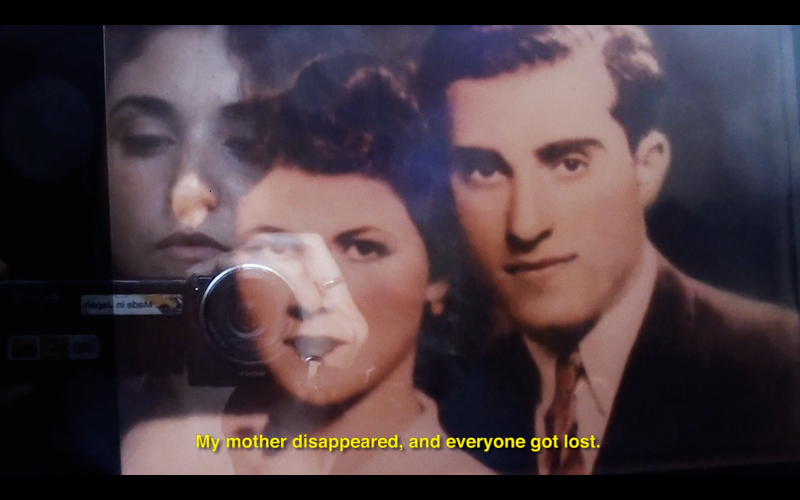
 The Adam Basma Project
The Adam Basma Project
Libanon, Tschechien 2023 | Farbe |
14:55 | Arabisch, Englisch
 The Adam Basma Project
The Adam Basma Project
Lebanon, Czech Republic 2023 | Color |
14:55 | Arabic, English
Mein Onkel verließ den Libanon, als er noch ein Teenager war, um Bauchtänzer zu werden. Da ich nur mit dem aufgewachsen bin, was er zurückgelassen hatte, habe ich mich mein ganzes Leben lang gefragt, wer Adam wirklich ist.
My uncle left Lebanon when he was just a teenager to become a bellydancer. Growing up with only what he had left behind, I've been wondering my whole life who Adam truly is.
Regie, Script, Editing, Kamera:
Director, Script, Editing, Director of photography:
Leila Basma
Kamera:
Director of photography:
Zaher Jureidini
Ton:
Sound design:
Martin Blauber
Sea Salt (2023), Pasthèque (2022), Things Better Left Unsaid (2021), New Years (2019), Man is Hunter (2017)
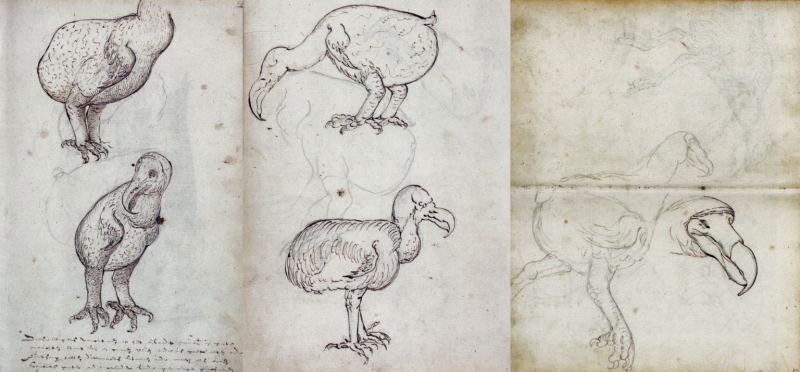
 Dead as a Dodo
Dead as a Dodo
Sudan 2022 | Farbe |
05:08 | Englisch
 Dead as a Dodo
Dead as a Dodo
Sudan 2022 | Color |
05:08 | English
Der Film entlarvt die koloniale Mythologie der Siedler:innen, die dem populären Narrativ vom Aussterben des Dodos zugrunde liegt. Durch Archivmaterial und die Erscheinung des Dodos überführt er auf eine sinnliche Weise die von der Siedler:innengewalt geprägten Räume zwischen Leben und Tod in eine Werte bildende Praxis. Die Arbeit ist inspiriert von dem Gedichtband »A Theory of Birds« der palästinensisch-amerikanischen Dichterin Zaina Alsous und tritt mit ihr in einen Dialog.
The film lays bare the settler colonial mythology at the heart of the popular narrative of the Dodo’s extinction. By drawing on archival material and the Dodo’s apparition it performs a sensory haunting, reviving the spaces between life and death that have been shaped by settler violence into a value-forming exercise. This work is inspired by and is in conversation with a book of poems titled »A Theory of Birds« by the Palestinian-American poet Zaina Alsous.
Regie, Editing, Ton:
Director, Editing, Sound design:
Leena Habiballa
suspended reverie (2024), Gorgeous (2023), memo for labour (2023), Do Not Dream of a Wonderful World (2022)
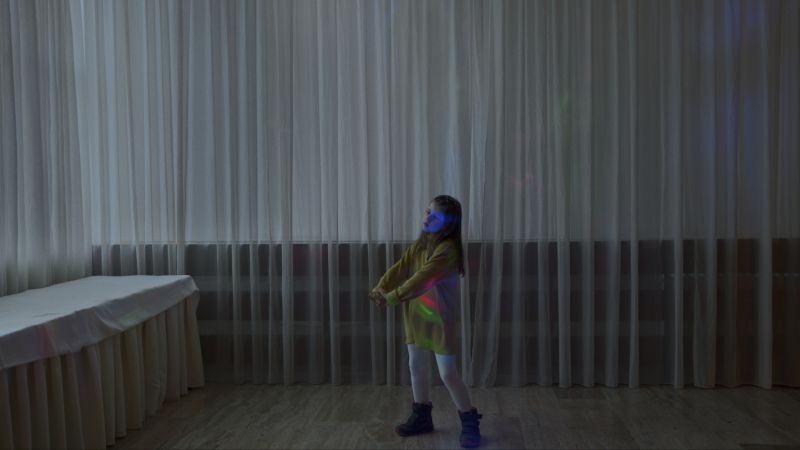
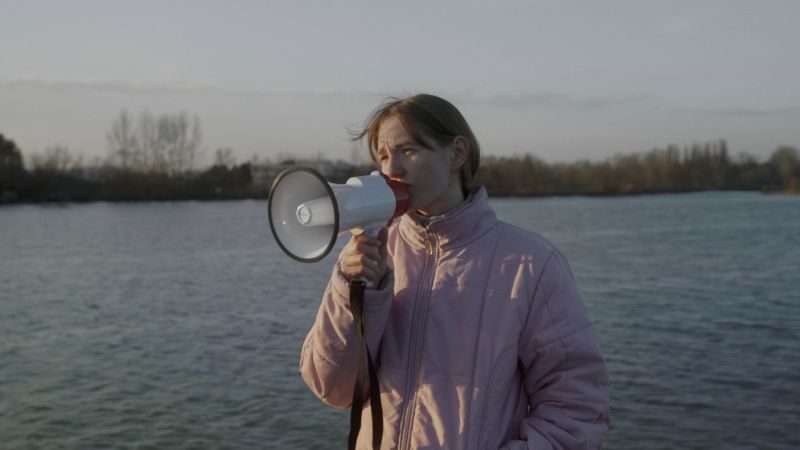
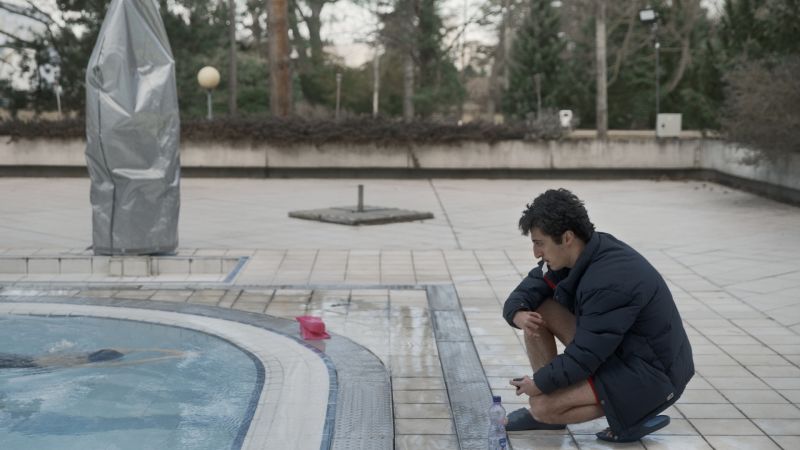
 Živá Voda (The Living Water)
Živá Voda (The Living Water)
Slowakei, Deutschland 2023 | Farbe |
21:30 | Slovakian, Arabisch
 Živá Voda (The Living Water)
Živá Voda (The Living Water)
Slovakia, Germany 2023 | Color |
21:30 | Slovakian, Arabic
Um ihren Reisepass zu erneuern, fährt Tereza in den Kurort, in dem sie aufgewachsen ist. Umgeben von Touristen ist sie weder Gast noch Einwohnerin der Stadt. Sie lernt einen jungen Mann kennen. Er ist der Einzige, der bemerkt, dass sie wieder verschwunden ist.
In order to renew her passport, Tereza drives to the spa town where she grew up. Surrounded by tourists, she is neither a guest nor a resident of the city. She meets a young man. He is the only one who notices when she vanishes again.
Regie, Script, Editing, Produzent:in:
Director, Script, Editing, Producer:
Sandra Makhlouf
Ton, Script:
Sound design, Script:
Nikoloz Mamatsashvili
Script:
Script:
Tereza Dodoková
Script:
Script:
Celena Al Khadour
Kamera:
Director of photography:
Lucia Kovalova
Ton:
Sound design:
Ángeles López
Ton:
Sound design:
William Wrubel
Produzent:in:
Producer:
Tereza Tokárová
Produzent:in:
Producer:
Marlon Weber
Le Tandem (2024), Mittwoch (2022), Best Away (2020)
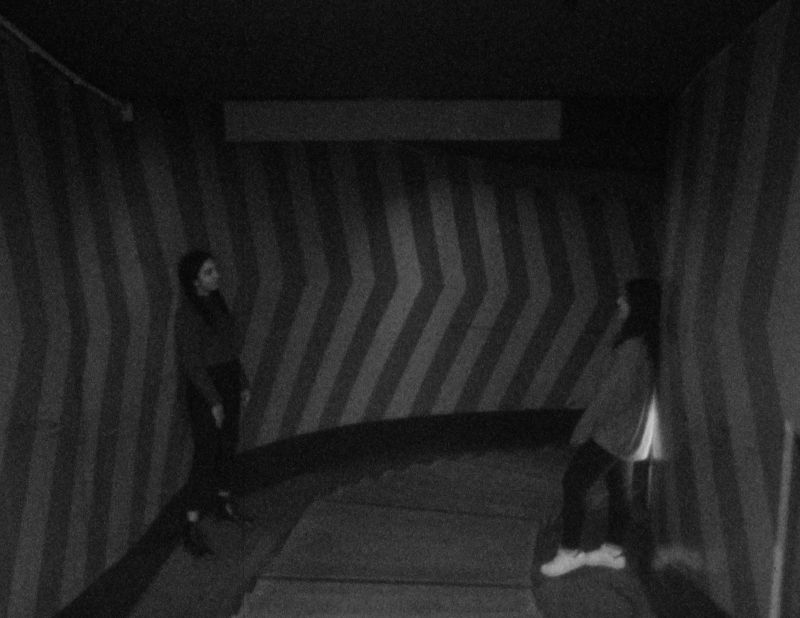
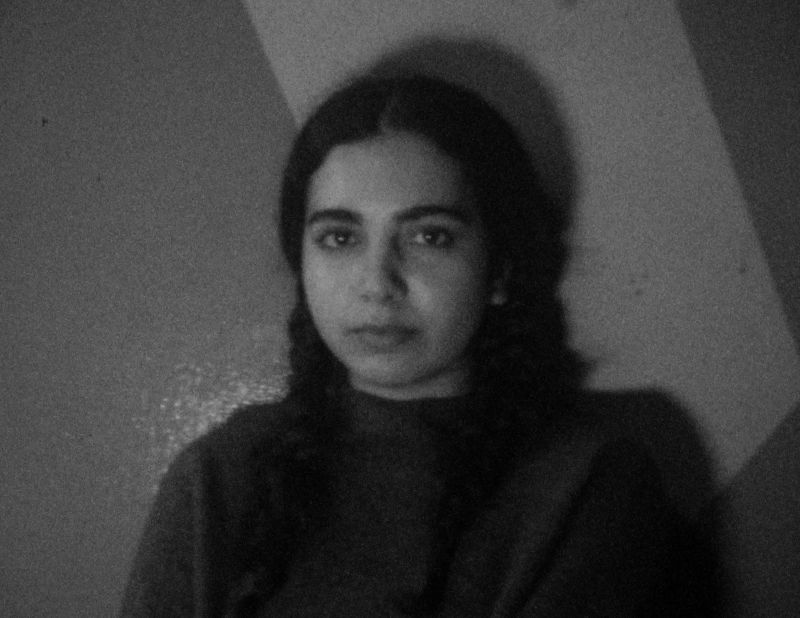
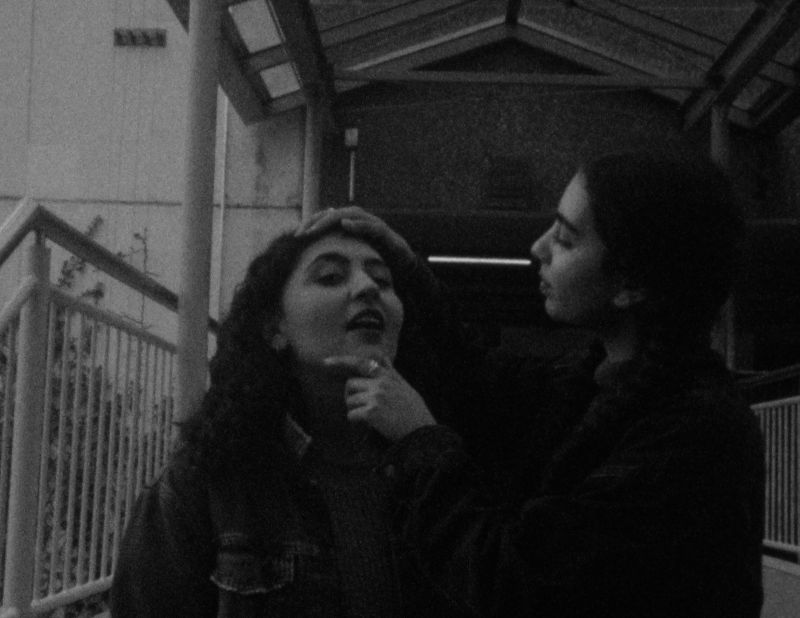
 This Makes Me Want To Predict the Past
This Makes Me Want To Predict the Past
Deutschland, Österreich 2019 | Schwarz-Weiss |
16:05 | Englisch
 This Makes Me Want To Predict the Past
This Makes Me Want To Predict the Past
Germany, Austria 2019 | Black & White |
16:05 | English
Der auf Super 8 gedrehte Film porträtiert eine Gruppe von migrantischen Jugendlichen im Münchner Olympia-Einkaufszentrum, in dem am 22. Juli 2016 neun junge Menschen bei einem rassistischen Anschlag getötet wurden. Neben ihren täglichen Erkundungen spielen die Protagonist:innen Szenen aus dem Theaterstück »Düşler Ülkesi« (»Land der Träume«) nach. Die Premiere des Stücks im Jahr 1982 wurde von einer Bombendrohung überschattet.
Shot on Super 8, the film portrays a group of migrant teenagers at the Olympia Shopping Center in Munich, where nine young people were killed in a racist attack on July 22, 2016. Beside their daily explorations, the teenagers restage scenes from the theater play »Düşler Ülkesi« (»Land of Dreams«). The premiere of the play in 1982 was overshadowed by a bomb threat.
Regie, Produzent:in, Script, Editing:
Director, Producer, Script, Editing:
Cana Bilir-Meier
Kamera:
Director of photography:
Lichun Tseng
Music composer:
Music composer:
Gustavo Kusnir
Music composer:
Music composer:
Nihan Devecioğlu
Zwischenwelt (2023), Bestes Gericht (2017), Semra Ertan (2013)

LAB1: In the Liquid share
LAB1: In the Liquid share
Elon Musk auf der Suche nach einem Tesla auf dem Mars, Werbespots für Süßigkeiten und Desserts im Vergleich zu Aufnahmen von Umweltkatastrophen, eine sowjetische Expedition ins indigene Land in Sibirien und der Flüssigmasse-Hafen von Amsterdam. In The Liquid beschäftigt sich mit unserer aktuellen Regierungsform im digitalen Zeitalter. Globale Lieferketten, Infrastruktur, Demokratie, Cloud-Computing und die Biosphäre sind Strukturen, die wir am Rand des Kollapses aufgebaut haben. Volatilität, Unsicherheit und Wahrscheinlichkeit verbinden diese Systeme.
Kuratiert von Joshua Simon
Gäste (ausgewählte Screenings): Zachary Formwalt (Amsterdam), Daniel Nemenyi (Leuphana Universität Lüneburg)
Elon Musk on a quest to find a Tesla car on Mars, candy and dessert commercials compared with footage of environmental disasters, a Soviet expedition to indigenous land in Siberia, and the liquid bulk port of Amsterdam―In the Liquid is a film program dedicated to assessing our current form of governance under the digital regime. In The Liquid is dedicated to assessing our current form of governance under the digital regime; Supply chains, infrastructure, electoral democracy, cloud computing and the biosphere are all structures we have devised to operate on the brink of collapse―Volatilities, uncertainties and probabilities are the connecting points of these systems: Through found footage, video game set-up, split screen juxtaposition and documentation, the films shown as part of In the Liquid report and perform the underlying logic of this regime and its metastable systems on the brink of collapse.
Curated by Joshua Simon
Guests at selected events: Zachary Formwalt (Amsterdam), Daniel Nemenyi (Leuphana University

 Dessert Disaster
Dessert Disaster
Vereinigte Staaten 2018 | Farbe |
04:00 | Englisch
 Dessert Disaster
Dessert Disaster
United States 2018 | Color |
04:00 | English
Eine Found-Footage-Arbeit, die die Filmsprache der Dessert-Werbung mit der des »Katastrophenpornos« aus den Nachrichten und dem Internet vergleicht. Der Ton stammt aus den Videos von Fußgänger:innen, die Abrisse, Katastrophen und Stürme gefilmt haben, und zeigt die Mechanismen der zeitgenössischen Masse: ihren unersättlichen Appetit auf Zerstörung und Erregung, ihre Unaufmerksamkeit, ihre Unfähigkeit, wegzusehen, ihre Angst und ihre Ekstase.
Content notes:
Refugee experience and/or war
A found footage work which compares the parallel cinematic language of dessert commercials with that of »disaster porn« found in the news and on the Internet. The sound, pulled from pedestrian-produced videos of demolitions, disasters, and storms, expresses the conditions of the contemporary crowd; its insatiable appetite for destruction and arousal; its inattention, its inability to look away; its anxiety and its ecstasy.
Content notes:
Refugee experience and/or war
Regie:
Director:
Alison Nguyen
Aisle 9 (2025), my favorite software is being here (2020-2021), every dog has its day (2019), you can't plan a perfect day sometimes it just happens (2017)
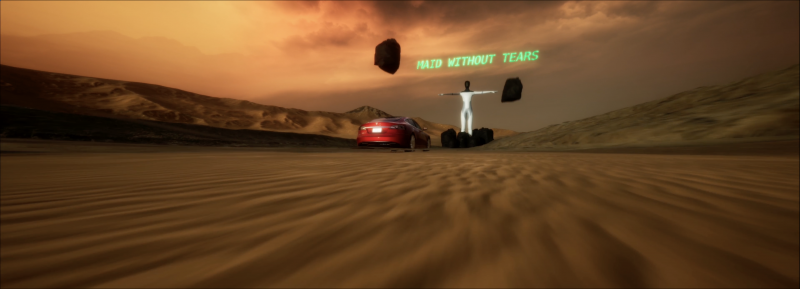
 Teslaism: Economics after the end of the end of the future
Teslaism: Economics after the end of the end of the future
Vereinigtes Königreich, Deutschland 2022 | Farbe |
27:00 | Englisch
 Teslaism: Economics after the end of the end of the future
Teslaism: Economics after the end of the end of the future
United Kingdom, Germany 2022 | Color |
27:00 | English
Teslaism ist ein musikalisches Third-Person-Racing-Game mit Elon Musk und seinem selbstfahrenden Auto bzw. seiner:seinem Geliebten und Life Coach auf dem Weg zu einem Aktionärstreffen in einer post-gamifizierten Berliner Landschaft. Der Film bedient sich der neu gebauten Gigafactory in Berlin als Prisma, um die Entstehung des Teslaismus (in der Nachfolge Post-Fordismus) als Upgrade des Produktions- und Konsumsystems zu beschreiben, das auf fortschrittlichem Storytelling, finanziellem Worldbuilding und dem Imagineering des »Look der Zukunft« beruht.
Content notes:
Strobe effects and/or flashing images
Teslaism is a 3rd person-racing musical game featuring Elon Musk and his self-driving car/lover and life coach, as they drive towards a shareholder meeting in a post-gamified Berlin landscape. The film takes the newly built Gigafactory in Berlin as a prism to describe the emergence of Teslaism (succeeding Post-Fordism) as an upgrade to the system of production and consumption predicated on advanced storytelling, financial worldbuilding, and imagineering »the look of the future«.
Content notes:
Strobe effects and/or flashing images
Regie, Script, Kamera, Editing:
Director, Script, Director of photography, Editing:
Bahar Noorizadeh
Music:
Music:
Conic Sections
Music:
Music:
Helena Hauff
Music:
Music:
GRV Tr 4
Free to Choose (2023), The Red City of the Planet of Capitalism (2021), After Scarcity (2018), Ultima Ratio Δ Mountain of the Sun (2017)
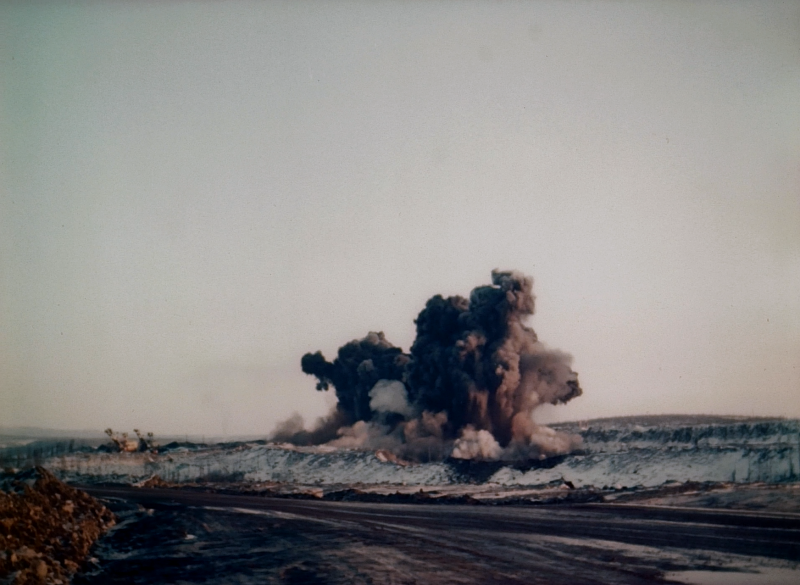
 Where Russia Ends
Where Russia Ends
Ukraine 2024 | Farbe |
25:13 | Ukrainisch
 Where Russia Ends
Where Russia Ends
Ukraine 2024 | Color |
25:13 | Ukrainian
In den 1980er-Jahren unternahmen ukrainische Filmemacher:innen Expeditionen nach Sibirien. Ihre vergessenen Filmrollen wurden während der russischen Invasion der Ukraine 2022 in Kyiv wiederentdeckt. Sie sind der Ausgangspunkt für einen Filmessay, der Ressourcenausbeutung, Umweltzerstörung, die anhaltende Unterdrückung und Auslöschung indigener Völker in den Kolonien des russischen Imperiums hinterfragt.
Content notes:
Colonial Violence
In the 1980s, Ukrainian filmmakers undertook expeditions to Siberia. Their forgotten film reels were rediscovered in Kyiv during the Russian invasion of Ukraine in 2022. They are the starting point for a film essay that questions the exploitation of resources, environmental destruction and the ongoing oppression and extermination of indigenous peoples in the colonies of the Russian empire.
Content notes:
Colonial Violence
Regie, Script, Editing:
Director, Script, Editing:
Oleksiy Radynski
Editing:
Editing:
Taras Spivak
Ton:
Sound design:
Andriy Borysenko
Produzent:in:
Producer:
Lyuba Knorozok
Special Operation (2025), Chornobyl 22 (2023), Infinity According to Florian (2022), Circulation (2020)
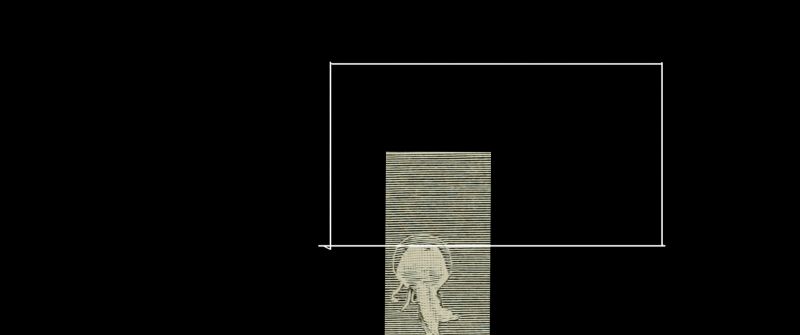
 Scenes from a film called ‘Capture’
Scenes from a film called ‘Capture’
Niederlande 2025 | Farbe |
22:10 | Englisch
 Scenes from a film called ‘Capture’
Scenes from a film called ‘Capture’
Netherlands 2025 | Color |
22:10 | English
Am Aussichtspunkt des Amsterdamer Petroleumhafens, der sich am östlichen Rand des größten Benzinhafens der Welt befindet, ist keine Klarheit auszumachen. Was ist das, auf das wir hier blicken sollen, wo Maschinen das Tempo, den Umfang und die Lautstärke auf eine Weise bestimmen, dass jede Unterbrechung oder Intervention unmöglich oder verhängnisvoll erscheint? Walter Benjamin meinte einmal, dass »Empathie eine Synchronisation im intimen Sinne« sei und dass die Weltausstellungen die Massen darauf trainiert haben, sich in den Tauschwert einzufühlen.
Content notes:
Animal Cruelty, Strobe effects and/or flashing images
There is no clarity to be found at the lookout point of Amsterdam’s Petroleum Harbor, located on the eastern edge of the world’s largest gasoline harbor. What is it that we are being asked to look out on here where machinery sets the pace, the scale, the volume in such a way that any interruption, or intervention seems impossible or catastrophic? Walter Benjamin once suggested that »empathy is a synchronization, in the intimate sense« and that the world exhibitions trained the masses to empathize with exchange value.
Content notes:
Animal Cruelty, Strobe effects and/or flashing images
Regie, Script, Kamera, Editing:
Director, Script, Director of photography, Editing:
Zachary Formwalt
An Industry and Its Irreplaceable Medium (2022), Hoog Catharijne and Its Models (2019), An Unknown Quantity (2015), Unsupported Transit (2011), In Place of Capital (2009)

LAB1: She* Is a House share
LAB1: She* Is a House share
She* Is a House stellt Filmpraktiken in den Mittelpunkt, die aktuelle ökofeministische Perspektiven aufgreifen. Thematisiert werden lokale und globale Kämpfe von Frauen* von Südspanien über Irland bis Kolumbien – insbesondere im Hinblick auf Landrechte, körperliche Selbstbestimmung, Nahrungsmittelproduktion und Klimagerechtigkeit. Durch kollektives Denken entstehen Spuren ermutigender, utopischer Momente.
Kuratiert von Cale Garrido
Guest: Deirdre O'Mahony (nur am 06.06.)
The short film program She* is a House focuses on film practices that take up current ecofeminist perspectives. Both local and global struggles of women* are addressed - especially with regard to land rights, the right to physical self-determination, food production and climate justice.
The works of Carme Gomila, Marwa Arsanios, Deirdre O'Mahony and Stéphanie Lagarde are permeated by collective thinking. From southern Spain to Ireland and Colombia, they reveal the interconnectedness of social and ecological struggles, approach the realities of life for indigenous women farmers and negotiate the complex interrelationships of agricultural practices. Alternative forms of knowledge come to the surface here. They become visible and audible by means of experimental visual worlds and polyphonic, interdisciplinary approaches. Through their joint work, the four films leave traces of encouraging, utopian moments and tie in with processes of learning and unlearning that are rooted in global resistance against the destruction of people and nature.
Curator: Cale Garrido
Guest: Deirdre O'Mahony (only on 06.06.)
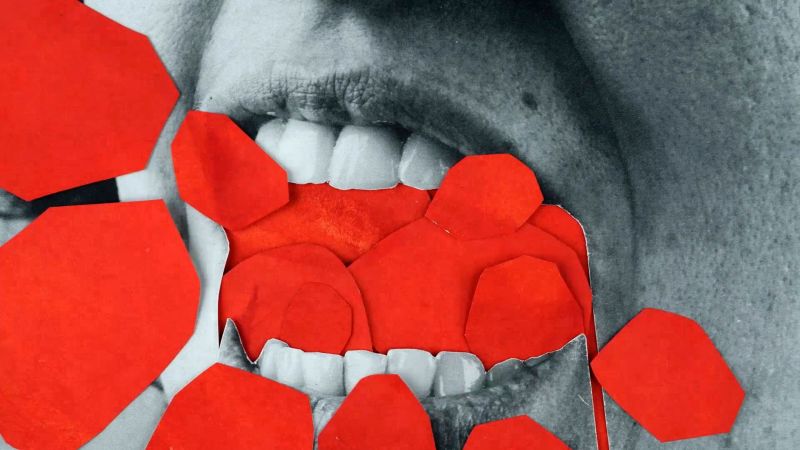
 Oro Rojo (Red Gold)
Oro Rojo (Red Gold)
Spanien 2021 | Farbe |
12:00 | Arabisch, Spanisch
 Oro Rojo (Red Gold)
Oro Rojo (Red Gold)
Spain 2021 | Color |
12:00 | Arabic, Spanish
Der animierte Dokumentarfilm basiert auf dem Protest marokkanischer Frauen, die im andalusischen Huelva Erdbeeren pflücken, und baut eine vielstimmige Erzählung auf. Sie appelliert an die strukturelle Dimension des Konflikts – Migrationspolitik, der Kampf gegen den globalen Extraktivismus von Nord nach Süd, Rassismus, Kapitalismus – und hilft uns, über die Komplexität der Auseinandersetzung und ihre Darstellung nachzudenken.
Content notes:
Refugee experience and/or war
The animated short film documentary is based on the protest of Moroccan women who pick strawberries in Huelva and builds a polyphonic account that appeals to the structural dimension of the conflict: migration policies, the fight against north to south global extractivism, racial capitalism – helping us to reflect on the conflict’s complexity and its representation.
Content notes:
Refugee experience and/or war
Regie, Script, Kamera, Editing:
Director, Script, Director of photography, Editing:
Carme Gomilla
Animation:
Animation:
Odile Carabantes
Animation:
Animation:
Valeria Linera
Animation:
Animation:
Alba Feito
Script:
Script:
Salma Amzian
Script:
Script:
Laia Manresa
Kamera:
Director of photography:
Marielle Paon
Music, Ton:
Music, Sound design:
Aurora Bauzà
Ton:
Sound design:
Alejandro Castillo
Produzent:in:
Producer:
Patricia Sánchez Mora
Verleihfirma:
Distributor:
Marvin&Wayne
Blessy (2018), Organizar lo (im)posible (2017)
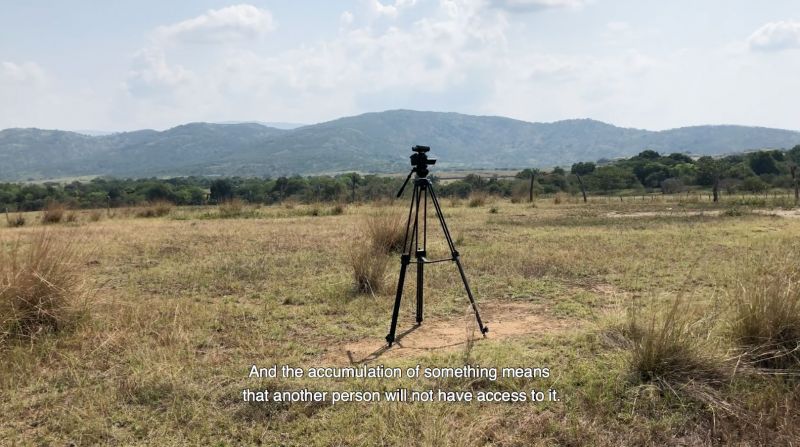
 Who Is Afraid of Ideology? Part 3 Micro Resistances
Who Is Afraid of Ideology? Part 3 Micro Resistances
Deutschland 2020 | Farbe |
31:17 | Spanisch, Englisch
 Who Is Afraid of Ideology? Part 3 Micro Resistances
Who Is Afraid of Ideology? Part 3 Micro Resistances
Germany 2020 | Color |
31:17 | Spanish, English
Teil III der Trilogie »Who Is Afraid of Ideology?« betrachtet die Region Tolima, eines der Kaffeeanbaugebiete in Kolumbien. Der Film bringt Geschichten von Frauen zu Gehör, die von ihrem Kampf um den Erhalt des angestammten Wissens der indigenen Gemeinschaften über den Anbau und den Schutz des Saatguts erzählen, das ihnen eine Form der landwirtschaftlichen Autonomie ermöglicht. Die Stimmen und Geschichten dieser Frauen sind mit Landschaften, Porträts, Klängen und dem Saatgutanbau, dem Herzstück des Films, verwoben.
Part III of the trilogy »Who Is Afraid of Ideology?« focuses on the region of Tolima, known as one of the coffee producing regions in Colombia. The film brings to our attention several stories of women who talk about their struggle to preserve the ancestral knowledge of the indigenous communities concerning the cultivation and protection of the seeds that enable them to achieve a form of agricultural autonomy. The voices of these testimonies are intertwined with the landscapes, portraits, sounds and the seed cultivation that is the core of the film.
Regie:
Director:
Marwa Arsanios
Kamera:
Director of photography:
Juma Hamdo
Editing, Ton:
Editing, Sound design:
Katrin Ebersohn
Produzent:in:
Producer:
Samanta Arango
(Selection) Who Is Afraid of Ideology? Part 4: Reverse Shot (2022), Who Is Afraid of Ideology? Part 2 (2019), Amateurs, Stars and Extras or the Labor of Love (2018), Who Is Afraid of Ideology? Part 1 (2017)
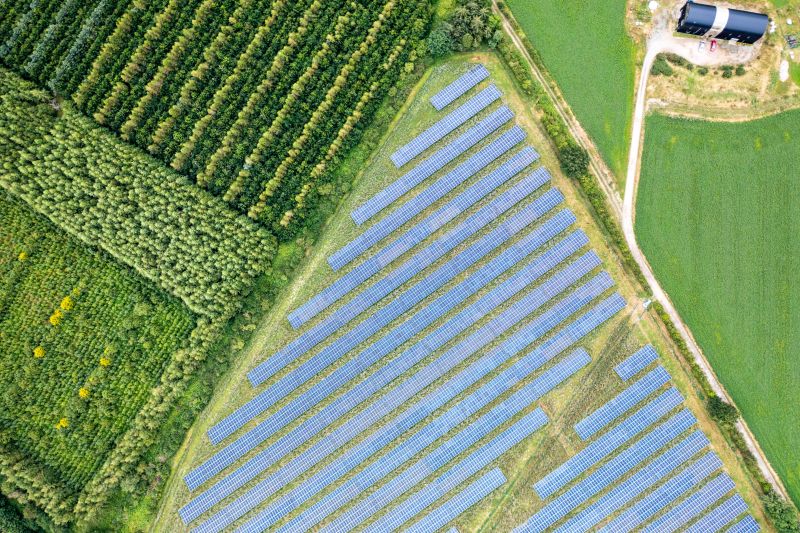
 The Quickening
The Quickening
Irland 2023 | Farbe |
35:43 | Englisch
 The Quickening
The Quickening
Ireland 2023 | Color |
35:43 | English
The Quickening bringt drängende Gespräche, Originalmusik und bewegte Bilder zusammen und reagiert auf Fragen der Landwirtschaft, der Lebensmittelproduktion und des Konsums im Angesicht der aktuellen Umwelt- und Klimakrise.
Bringing together urgent conversations, original music and moving image, The Quickening responds to issues facing farming, food production and consumption, in the face of present ecological and climate crises.
Regie, Script, Produzent:in:
Director, Script, Producer:
Deirdre O'Mahony
Script:
Script:
Joanna Walsh
Kamera:
Director of photography:
Tom Flanagan
Editing:
Editing:
Michael Higgins
Music:
Music:
Michelle Doyle
Music:
Music:
Branwen Kavanagh
Music:
Music:
Siobhán Kavanagh
Music:
Music:
Ultan O’ Brien
Music:
Music:
Eoghan Ó Ceannabháin
Ton:
Sound design:
John Brennan
The Persistent Return (2018), Speculative Optimism (2017), First Citizens Speak (2016)
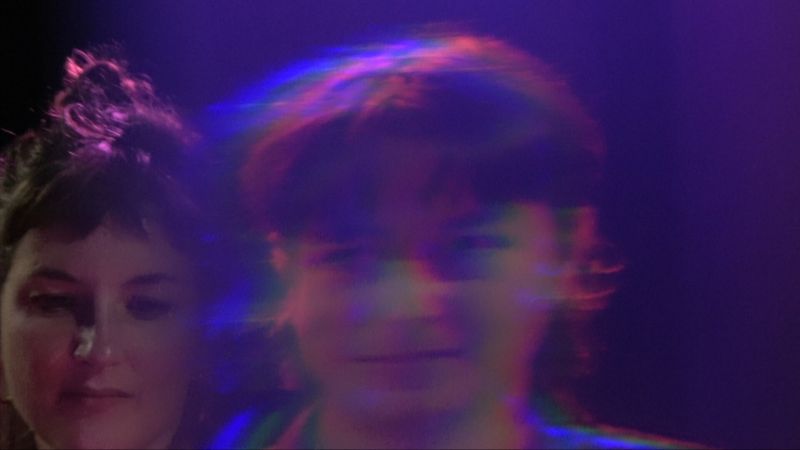
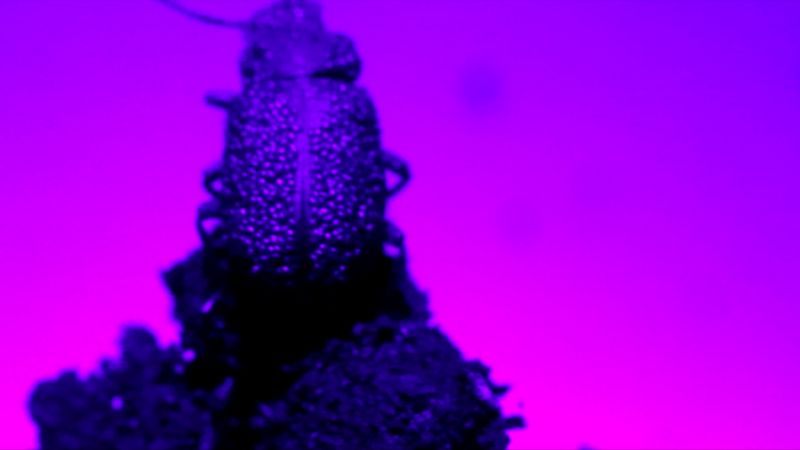

 Extra Life (and Decay)
Extra Life (and Decay)
Frankreich, Niederlande 2025 | Farbe |
21:35 | Französisch, Englisch
 Extra Life (and Decay)
Extra Life (and Decay)
France, Netherlands 2025 | Color |
21:35 | French, English
Ein vielstimmiger Erzähler – Filmemacher:innen, Eltern, Wald, Insekten, Pilze, Kinderbetreuer:innen – erklärt seine absolute Ablehnung der Ausbeutung und die Notwendigkeit, sich gemeinsam im Widerstand zu vereinen. In einer Beschwörungsformel an die Autorität entfaltet der Film die Verbindungen zwischen den Erfindungen von Kernfamilien und bewirtschafteten Waldparzellen als kontrollierbare, normalisierte Einheiten der Rentabilität – und feiert die Gastfreundschaft als Überlebensstrategie im Kampf gegen eine morbide Politik der Isolation.
A polyphonic narrator — filmmaker, parent, forest, insects, fungi, childcare worker — declares their absolute refusal of labor exploitation, and their necessity to join collective bodies in resistance. In an incantation to conjure authority, the film unfolds the connections between the inventions of nuclear families and managed forest plots as controllable normalized units of profitability. »Extra Life (and Decay)« celebrates hospitality as a survival tool to fight morbid politics of isolation.
Regie, Script, Produzent:in, Stimmen, Kamera, Editing, Ton:
Director, Script, Producer, Voices, Director of photography, Editing, Sound design:
Stéphanie Lagarde
Editing:
Editing:
Rik Chaubet
Music:
Music:
Jaike Stambach
Ton:
Sound design:
Arno Ledoux
Produktionsfirma, Verleihfirma:
Production company, Distributor:
Video Power
Jade Wiseman
Stimmen:
Voices:
Isabelle Lagarde
Stimmen:
Voices:
Suzanne Lagarde van der Schaaf
Minimal Sway While Starting My Way Up (2021), Rocky Tales Of Occupation (2019), Déploiements (2018)

LAB1: Take It Back share
LAB1: Take It Back share
In einer Zeit globaler Umbrüche lenkt Take It Back den Blick auf Geschichten aus dem Sudan, Kongo, Äthiopien und Ghana. Im Mittelpunkt stehen Formen des Widerstands, kollektive Erinnerung und der Prozess der Heilung. Geschichte wird nicht nur erinnert, sondern aktiv zurückgeholt – durch persönliche Narrative und durch die Forderung nach Rückgabe kolonialer Kulturgüter. Restitution ist dabei mehr als die Rückgabe von Objekten – sie ist ein Schritt zur Wiederherstellung von Gerechtigkeit, zur Rückverbindung mit Herkunft und Identität.
Kuratiert von Eythar Gubara
Gast: Nils Kasiske
At a time of global upheaval, Take It Back focuses on stories from Sudan, Congo, Ethiopia and Ghana. The focus is on forms of resistance, collective memory and the process of healing. History is not only remembered, but actively reclaimed - through personal narratives and by demanding the return of colonial cultural assets. Restitution is more than the return of objects - it is a step towards restoring justice, reconnecting with origin and identity.
Curated by Eythar Gubara
Guest: Nils Kasiske
 Sabren
Sabren
Sudan 2025 | Farbe |
15:17 | Arabisch, Englisch
 Sabren
Sabren
Sudan 2025 | Color |
15:17 | Arabic, English
Sabren fängt die Kämpfe der sudanesischen Revolutionäre nach dem Putsch im Oktober 2021 ein – ein Wendepunkt, der die Fortschritte der Revolution zum Stillstand brachte und zum derzeitigen verheerenden Krieg führte. Der von sudanesischen Aktivist:innen und Künstler:innen realisierte Film wurde über einen Zeitraum von drei Jahren (2021-2023) gedreht, darunter auch wenige Wochen vor Kriegsbeginn, und zeigt das Leben im Sudan während dieser turbulenten Zeit zwischen friedlichem Alltag, Protesten und Widerstand, insbesondere während des Ramadan und Bayram. Sabren beleuchtet die übersehenen Ursachen des Krieges, stellt das Narrativ eines »Bürgerkriegs« in Frage und legt die tieferen kapitalistischen und kolonialen Kräfte offen.
Sabren captures the struggles of Sudanese revolutionaries after the October 2021 coup – a turning point that halted the revolution's progress and led to the current devastating war. Filmed over three years (2021-2023), including just weeks before the war began, it portrays life in Sudan during that turbulent time, blending scenes of peaceful daily life, protests, and resistance, especially during Ramadan and Bayram. Created by Sudanese activists and artists, the film sheds light on the overlooked causes of the war, challenging the narrative of a »civil war« and exposing deeper capitalist and colonial forces.
Regie, Script, Kamera, Editing, Ton:
Director, Script, Director of photography, Editing, Sound design:
Eythar Gubara
Music, Ton:
Music, Sound design:
Uncle Salah
202 (2023), not just a shadow (2022), let me be (2021)
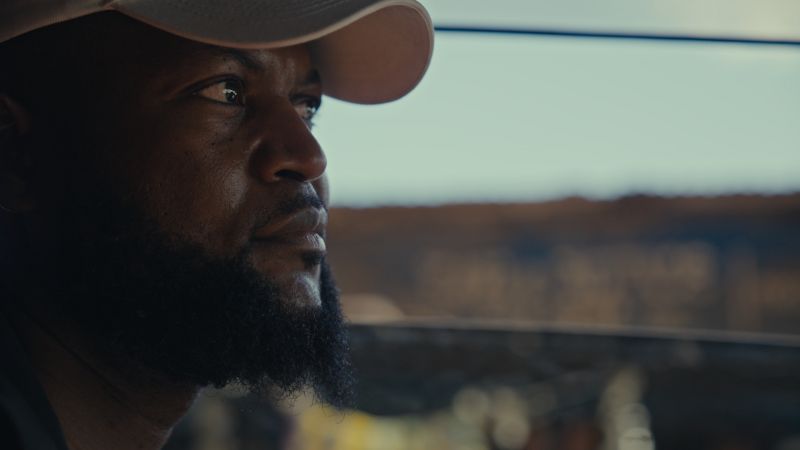
 The Story of Ne Kuko
The Story of Ne Kuko
Niederlande 2023 | Farbe |
25:00 | Lingala, Französisch, Kikongo
 The Story of Ne Kuko
The Story of Ne Kuko
Netherlands 2023 | Color |
25:00 | Lingala, French, Kikongo
Die Geschichte, wie die kraftvolle Statue von Chief Ne Kuko gestohlen wurde, sollte nicht in Vergessenheit geraten. Das auch als Nkisi Nkonde Statue bekannte holzgeschnitzte Artefakt steht, gefangen hinter Glas, in einem europäischen Museum. Die Erzählung dahinter verbindet den Restitutionsaktivisten Mwazulu Diyabanza mit dem kleinen Dorf Kikuku in den Bergen von Boma in der Demokratischen Republik Kongo.
The story of how the power statue of Chief Ne Kuko was stolen should not be forgotten. This nkisi stands, trapped behind glass, in a European museum. The history behind this mysterious statue connects restitution activist Mwazulu Diyabanza to the small village of Kikuku in the mountains of Boma, Democratic Republic of Congo.
Sales:
Sales:
First Hand Films
Regie, Kamera, Editing:
Director, Director of photography, Editing:
Festus Toll
Ton:
Sound design:
Vincent Sinceretti
Produzent:in:
Producer:
Janneke Doolaard
Produzent:in:
Producer:
Harmen Jalvingh
When You Hear the Divine Call (2020/2022), We will maintain (2017), NAÏVE COMPUTER JAZZ (2016)
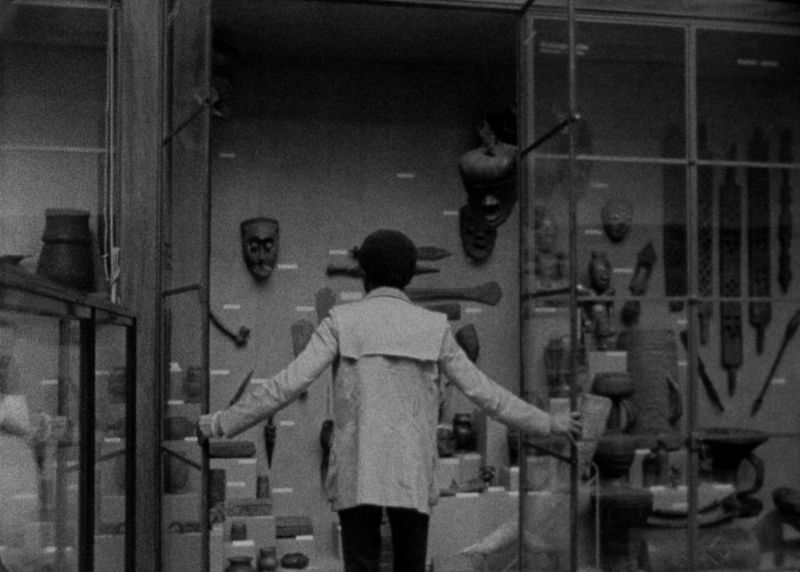
 You Hide Me
You Hide Me
Ghana 1970 | Schwarz-Weiss |
16:00 | Englisch
 You Hide Me
You Hide Me
Ghana 1970 | Black & White |
16:00 | English
Der ghanaische Filmemacher Nii Kwate Owoo verschaffte sich 1970 Zugang zu den unterirdischen Depots des British Museum und filmte die wertvollen afrikanischen Artefakte, die im Keller verstaut waren. Mit einer gekonnten Mischung aus Geschick und Wagemut gelang es Owoo, die Museumsleitung und das gesamte Sicherheitssystem auszutricksen und Zugang in die geheimen unterirdischen Lagerräume zu erhalten. Ein Tag reichte aus, um diesen Kurzfilm zu drehen, der das Ausmaß des Diebstahls afrikanischer Artefakte, die in Plastiktüten und Holzkisten verstaut waren, aufzeigt und sich für deren Restitution einsetzt. (Arsenal – Institut für Film und Videokunst)
In 1970, Ghanaian filmmaker Nii Kwate Owoo gained access to the British Museum’s underground deposits and filmed the valuable African artifacts stowed away in the basement. Through a shrewd mix of skill and audacity, Owoo managed to outsmart the museum’s directors and its entire security system to gain access to the secret underground vaults. One day sufficed to shoot this short film revealing the extent of the theft of African artifacts, stashed in plastic bags and wooden crates—and to make a case for their restitution. (Arsenal – Institut für Film und Videokunst)
Regie, Script:
Director, Script:
Nii Kwate Owoo
Verleihfirma:
Distributor:
gk@arsenal-berlin.de
(Selection) You Can’t Hide Me – The Return of the Looted and Stolen Artefacts in the British and the Fowler Museum in the US (2024), Women of Substance (2002), Music and Vision: Kwabena Nketia (1998), Ouaga: African Cinema Now! (1988), The Struggle for a Free Zimbabwe (1974)

 LAB2: Glitter
LAB2: Glitter
Sparkling, flashy, persistent – Two film programs show how glitter serve as a sign of belonging, a means of visibility and a symbol of self-determination in a wide variety of contexts. Curated by Anna Feistel.

LAB2: Glitter and Greed share
LAB2: Glitter and Greed share
Funkelnd, schrill, hartnäckig — Glitzer! Von der glamourösen Ästhetik der Roaring Twenties bis zu indigenen, Schwarzen und queeren Emanzipationsbewegungen des 20. und 21. Jahrhunderts. Es glitzert in vielfältigen Formen auf der Leinwand. Funkelnde Stoffe, Schmuck und Make-up verwandeln Körper in Spektakel, verleihen dem Alltäglichen eine Strahlkraft und werden zum Ausdruck von Protest, Spaß und Identität. Zwischen Trash und Luxus, Tradition und Rebellion — kaum ein anderes Material bewegt sich so spielerisch zwischen all diesen Polen wie Glitzer. GLITTER AND GREED legt den Fokus auf die Ursprünge, Arbeitsbedingungen und Folgen glitzernder Materialien und beleuchtet die soziale, ökologische und wirtschaftliche Kehrseite des Rohstoffhungers. Welche Auswirkungen hat die globale Silbernachfrage auf Arbeiter:innen und Ökosysteme in Bolivien? Welches komplexe Geflecht aus Mensch und Maschine verbirgt sich hinter dem Schimmer von Alufolie? Wie steht der glitzernde Reichtum persischer Könige im Kontrast zur Lebensrealität der Bevölkerung? Das Programm spannt einen Bogen zwischen der Faszination für funkelnde Materialien und den oft verdrängten Realitäten ihrer Gewinnung.
Kuratiert von Anna Feistel
Sparkling, flashy, persistent - glitter! From the glamorous aesthetics of the Roaring Twenties to indigenous, black and queer emancipation movements of the 20th and 21st centuries. It glitters on the canvas in many different forms. Sparkling fabrics, jewellery and make-up transform bodies into spectacles, lend a radiance to the everyday and become an expression of protest, fun and identity. Between trash and luxury, tradition and rebellion - hardly any other material moves as playfully between all these poles as glitter. GLITTER AND GREED focuses on the origins, working conditions and consequences of glittering materials and sheds light on the social, ecological and economic downside of the hunger for raw materials. What impact does the global demand for silver have on workers and ecosystems in Bolivia? What complex web of man and machine is hidden behind the shimmer of aluminium foil? How does the glittering wealth of Persian kings contrast with the reality of people's lives? The programme spans an arc between the fascination for sparkling materials and the often suppressed realities of their extraction.
Curated by Anna Feistel
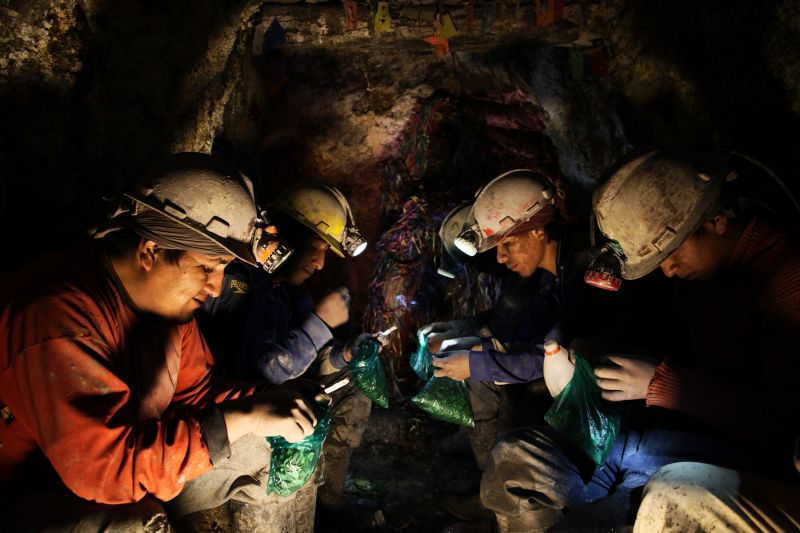
 Cerro Rico – The Silver Mountain
Cerro Rico – The Silver Mountain
Österreich 2015 | Farbe |
31:25 | Spanisch
 Cerro Rico – The Silver Mountain
Cerro Rico – The Silver Mountain
Austria 2015 | Color |
31:25 | Spanish
1545 wurde im bolivianischen Hochland eine Silberader in einem Berg entdeckt, die zur Quelle europäischen Reichtums wurde. In ihrem Schatten wurde die Stadt Potosí gegründet, die sich schnell zur reichsten Stadt der Welt entwickelte. Heute ist der Glanz der Blütezeit längst verflogen. An den Arbeitsbedingungen hat sich seit der Entdeckung der Silberadern jedoch nicht allzu viel geändert. Noch immer graben sich rund 15.000 Bergleute durch den Berg, um die letzten Silberreserven von der Felswand zu kratzen.
In 1545, a silver vein was discovered in the Bolivian highland, in a mountain that became the source of European wealth. Under its shadow, the city of Potosí was founded, which rapidly grew into the world’s richest city. Today, the shine of the heyday is long gone. Since the discovery of the lode of silver, however, not too much has changed in terms of working conditions. Around 15,000 miners are still digging themselves through the mountain in order to scratch the last silver reserves off the rock face.
Regie, Kamera, Editing:
Director, Director of photography, Editing:
Armin Thalhammer
Kamera:
Director of photography:
Julian Hartmuth
Ton:
Sound design:
Ester Kao
Ton:
Sound design:
Andreas Posch
Ton:
Sound design:
Christoph Mittermaier
Off to the Moon (2022), Moop Mama - Alte Männer (2021)
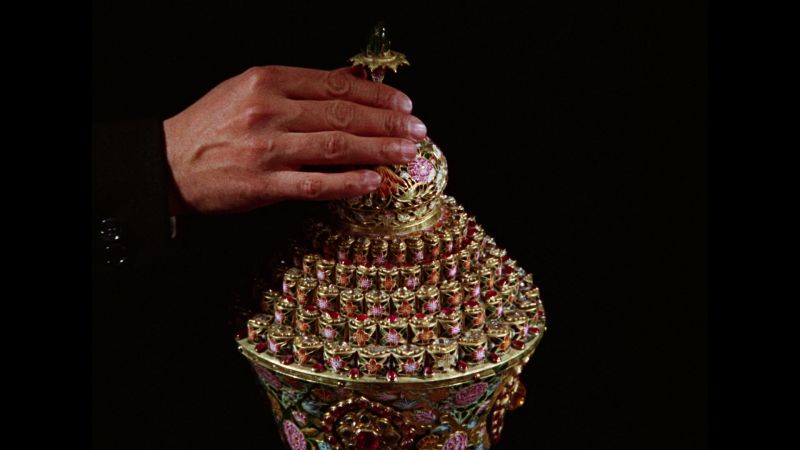
 Ganjine-haye Gohar (The Crown Jewels of Iran)
Ganjine-haye Gohar (The Crown Jewels of Iran)
Iran 1965 | Farbe |
14:05 | Farsi
 Ganjine-haye Gohar (The Crown Jewels of Iran)
Ganjine-haye Gohar (The Crown Jewels of Iran)
Iran 1965 | Color |
14:05 | Farsi
Als das Kulturministerium während der Schah-Ära Ebrahim Golestan um einen Dokumentarfilm über die iranischen Kronjuwelen bat, erwartete es keine bissige Anklage gegen die Politik des Regimes.
When the Shah-era Ministry of Culture asked Ebrahim Golestan for a documentary on Iran’s crown jewels, they didn’t expect an acidic indictment of the regime’s politics.
Regie, Script, Kamera, Editing:
Director, Script, Director of photography, Editing:
Ebrahim Golestan
Kamera:
Director of photography:
Soleiman Minassian
Music:
Music:
Hossein Dehlavi
Verleihfirma:
Distributor:
Cineteca di Bologna, Archivio Film
(Selection) The Ghost Valley's Treasure Mysteries (1974), The Hills of Marlik (1964), Brick and Mirror (1963-64), Wave, Coral and Rock (1962), The House Is Black (1962), A Fire (1961)
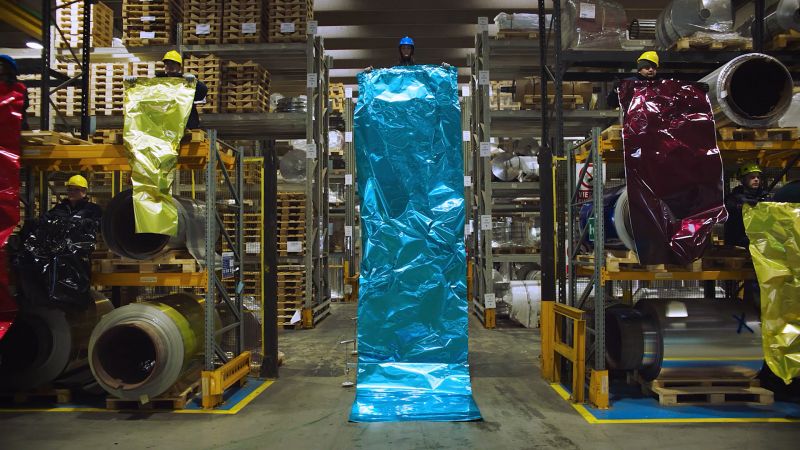
 Merging Bodies
Merging Bodies
Italien 2024 | Farbe |
23:17 | Kein Dialog
 Merging Bodies
Merging Bodies
Italy 2024 | Color |
23:17 | No Dialogue
Adrian Pacis sensibler Blick dringt in ein Aluminiumwerk ein, um die Beziehung zwischen den Körpern der Arbeiter und der Fabrikumgebung zu erkunden und den bleibenden Wert der Arbeit zu feiern. Durch akribische Beobachtung und perfekt komponierte Bildausschnitte erforscht Merging Bodies Gesten und Materialien, die die Grenzen zwischen den Arbeitern und den Maschinen verwischen. Pacis hypnotische Kamera fängt Details ein, die über den unmittelbaren Kontext hinausgehen und das Sichtbare von einer singulären Interpretation befreien. (Rebecca De Pas)
Adrian Paci’s sensitive gaze enters an aluminum transformation plant to explore the relationship between the workers’ bodies and the factory environment, celebrating the enduring value of labour. Through meticulous observation and perfectly composed framing, Merging Bodies delves into gestures and materials that blur the boundaries between the workers and the machinery. Paci’s hypnotic camera captures details that transcend the immediate context, liberating the visible from a singular interpretation. (Rebecca De Pas)
Verleihfirma:
Distributor:
Studio Adrian Paci
Regie, Script:
Director, Script:
Adrian Paci
Kamera, Editing:
Director of photography, Editing:
Erfort Kuke
Music, Ton:
Music, Sound design:
Admir Shkurtaj
Produzent:in:
Producer:
Kube Studio
Produzent:in:
Producer:
Laminazione Sottile
Interregnum (2017), The Column (2013), Centro di Permanenza Temporanea (2007), Albanian stories (1997)
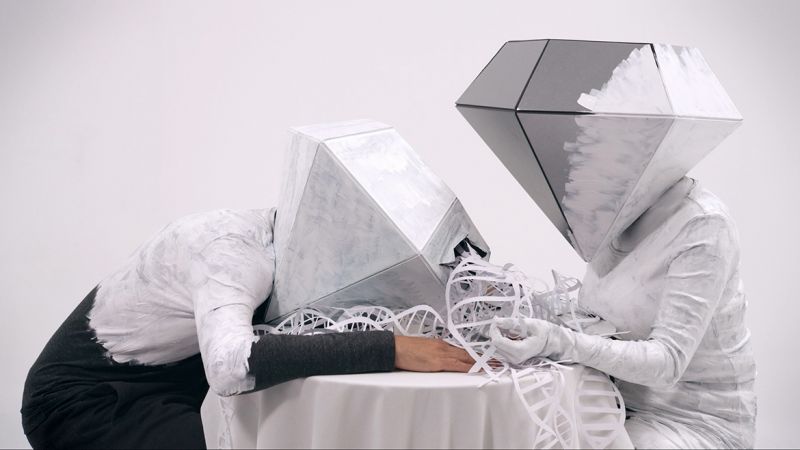
 Diamenteurs
Diamenteurs
Frankreich 2016 | Farbe |
11:13 | Französisch
 Diamenteurs
Diamenteurs
France 2016 | Color |
11:13 | French
Ein Juwelier erzählt seinen Kindern die Geschichte des Diamanten. Ein existenzieller Blick auf die Entwicklung eines Edelsteins, unterstützt von der Stimme eines Erzählers, der dazu neigt, abzuschweifen.
A jeweler tells his children the story of diamond. An existential perspective of the history of the precious stone, supported by the voice of a storyteller prone to digress.
Regie, Script:
Director, Script:
Chloé Mazlo
Script:
Script:
Yacine Badday
Animation:
Animation:
Éric Montchaud
Animation:
Animation:
Bérengère Hénin
Animation:
Animation:
Sylvain Derosne
Kamera:
Director of photography:
Sara S Sponga
Editing:
Editing:
Arnaud Viémont
Music:
Music:
Etienne Jaumet
Ton:
Sound design:
Julien Ngo Trong
Verleihfirma:
Distributor:
L’Agence du court métrage
(Selection) Skies of Lebanon (2020), Asmahan la diva (2019), Conte de fée à l’usage des moyennes personnes (2015), l’amour m’anime (2007), word in progress (2010)
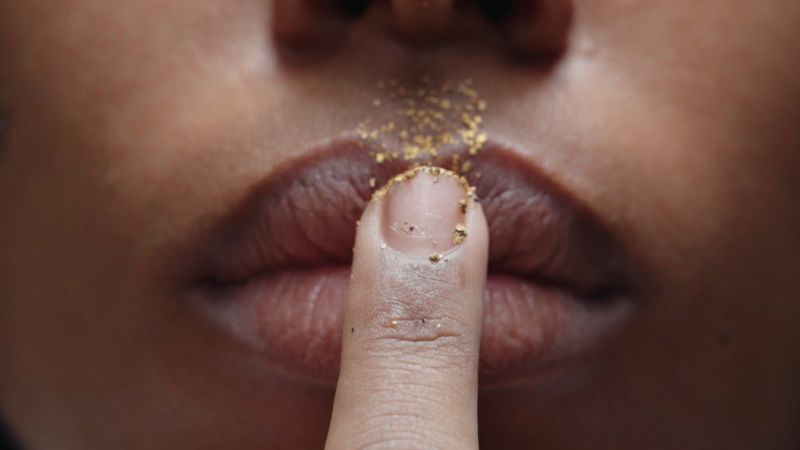
 Fuel to Fire
Fuel to Fire
Vereinigte Staaten 2023 | Farbe |
07:30 | Kein Dialog
 Fuel to Fire
Fuel to Fire
United States 2023 | Color |
07:30 | No Dialogue
Der Film gibt Einblicke in ein Pagamento, bei dem einem Gewässer sein Gold zurückgegeben wird. Dieses Ritual wird für das Wohl und den Erhalt des Páramo de Santurbán praktiziert, einem Moor-Ökosystem im Hochgebirge im Nordwesten Kolumbiens, das über große, begehrte Goldvorkommen verfügt. Das Pagamento ist ein indigenes ökologisches und wirtschaftliches Grundprinzip, das den Fluss und das Gleichgewicht der Lebenszyklen auf der Erde aufrechterhält. Wer zu viel anhäuft, wird krank. Daher ist es notwendig, etwas zurückzugeben – indem man etwas loslässt, das einem lieb ist, das Arbeit bedeutet oder einen hohen Symbolwert hat.
Fuel to Fire brings the viewer into a pagamento or payback of gold to a body of water. This ritual was performed for the wellbeing and conservation of the Paramo de Santurbán, a moorland ecosystem within the high mountains of North West Colombia, which holds large – sought after – deposits of gold. The pagamento is an indigenous ecological and economic fundamental protocol, that maintains the flow and balance of life cycles on earth. When accumulation happens, sickness arrives, and so it's necessary to give back by letting go of something that is dear.
Regie:
Director:
Carolina Caycedo
Studio:
Studio:
Sean Grattan
Kamera, Editing:
Director of photography, Editing:
Catalina Sandoval
Kamera:
Director of photography:
Jonathan Edery
Music performer:
Music performer:
Jenn del Tambó
Andere:
Other:
Breanne Bradley
(Selection) Sowing Moisture (2023), Reciprocal Sacrifice (2022), The Teachings of the Hands (2020), Gracias por hospedarnos. Estamos sanando nuestros cuerpos rotos (2019), Apparitions (2018)

LAB2: Glitter for All! share
LAB2: Glitter for All! share
Funkelnd, schrill, hartnäckig — Glitzer! Von der glamourösen Ästhetik der Roaring Twenties bis zu indigenen, Schwarzen und queeren Emanzipationsbewegungen des 20. und 21. Jahrhunderts. Es glitzert in vielfältigen Formen auf der Leinwand. Funkelnde Stoffe, Schmuck und Make-up verwandeln Körper in Spektakel, verleihen dem Alltäglichen eine Strahlkraft und werden zum Ausdruck von Protest, Spaß und Identität. Zwischen Trash und Luxus, Tradition und Rebellion — kaum ein anderes Material bewegt sich so spielerisch zwischen all diesen Polen wie Glitzer. GLITTER FOR ALL! feiert die transformative Kraft von Glitzer als Mittel der Selbstermächtigung und des Widerstands gegen normative Strukturen.
Kuratiert von Anna Feistel
Sparkling, flashy, persistent - glitter! From the glamorous aesthetics of the Roaring Twenties to indigenous, black and queer emancipation movements of the 20th and 21st centuries. It glitters on the canvas in many different forms. Sparkling fabrics, jewellery and make-up transform bodies into spectacles, lend a radiance to the everyday and become an expression of protest, fun and identity. Between trash and luxury, tradition and rebellion - hardly any other material moves as playfully between all these poles as glitter. GLITTER FOR ALL! celebrates the transformative power of glitter as a means of self-empowerment and resistance against normative structures.
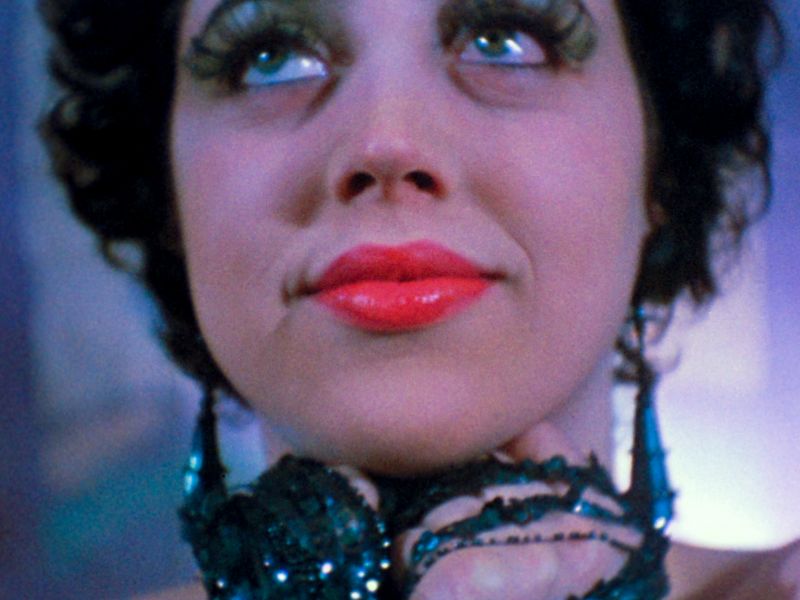
 Puce Moment
Puce Moment
Vereinigte Staaten 1949 | Farbe |
06:00 | Kein Dialog
 Puce Moment
Puce Moment
United States 1949 | Color |
06:00 | No Dialogue
Puce Moment ist Teil des unvollendeten Projekts »Puce Woman« von Kenneth Anger. In einem rauschhaften Reigen aus Farben, Seide und Brokat, dem Glitzern von Pailletten und Perlen feiert der Film die Ästhetik vergangener Filmstars. Im Zentrum steht die Stummfilmdiva (Yvonne Marquis), die sich in ein schillerndes Kleid hüllt, sich mit Parfum betäubt und nach einer Nacht des drogenartigen Taumels mit ihren Windhunden aufbricht. Eine funkelnde Hommage an die glamouröse Dekadenz des Hollywoods der 1920er-Jahre.
Puce Moment is part of Kenneth Anger's unfinished project »Puce Woman«. The film celebrates the aesthetics of past film stars in an intoxicating round dance of colors, silk and brocade, the glitter of sequins and pearls. At the center is the silent film diva (Yvonne Marquis), who wraps herself in a dazzling dress, intoxicates herself with perfume and sets off with her greyhounds after a night of drug-fueled stupor. A sparkling homage to the glamorous decadence of 1920s Hollywood.
Regie, Produzent:in, Kamera:
Director, Producer, Director of photography:
Kenneth Anger
Verleihfirma:
Distributor:
UCLA Film & Television Archive, Steve K. Hill
Music:
Music:
Jonathan Halper
Lucifer Rising (1972/1980), Invocation of My Demon Brother (1969), Scorpio Rising (1963), Inauguration of the Pleasure Dome (1954), Fireworks (1947)
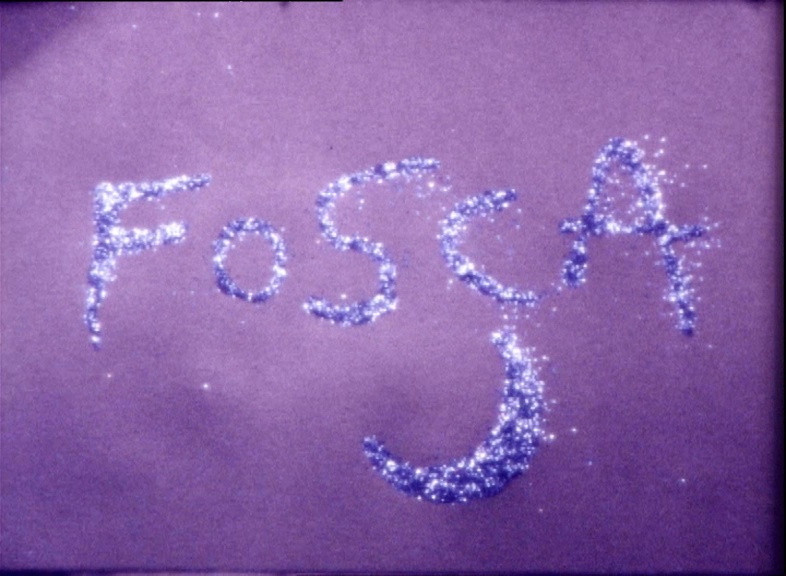
 Fosca
Fosca
Spanien 1977 | Farbe |
09:15 | Kein Dialog
 Fosca
Fosca
Spain 1977 | Color |
09:15 | No Dialogue
Porträt einer dunklen Nacht in Barcelona, in der eine Gruppe queerer Menschen auf die Straße und in die Nachtclubs strömt, um ihre sexuelle Freiheit einzufordern.
Portrait of a dark night in Barcelona, where a group of queer people take to the streets and nightclubs to claim their sexual freedom.
Verleihfirma:
Distributor:
Josep Calle
Regie, Kamera, Editing:
Director, Director of photography, Editing:
Carles Comas
Misa, pasacalles, rancho… (1981), Fotos de espectros (1977), Show de otoño (1976)
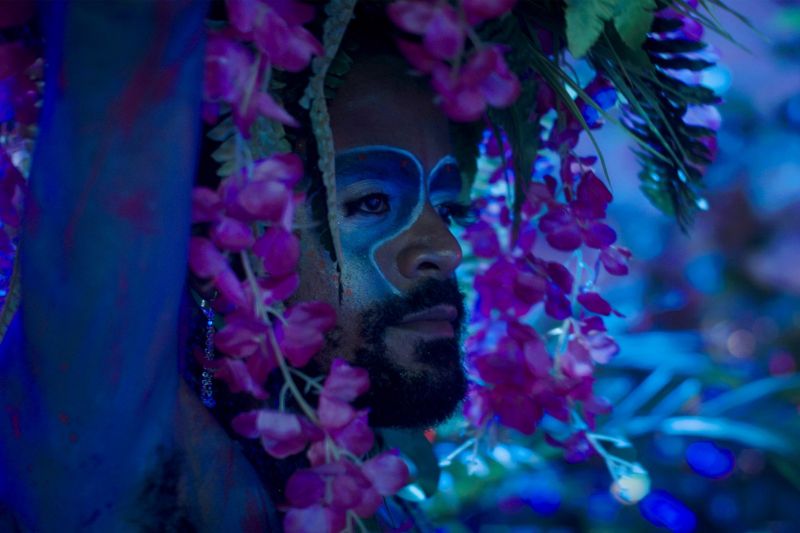
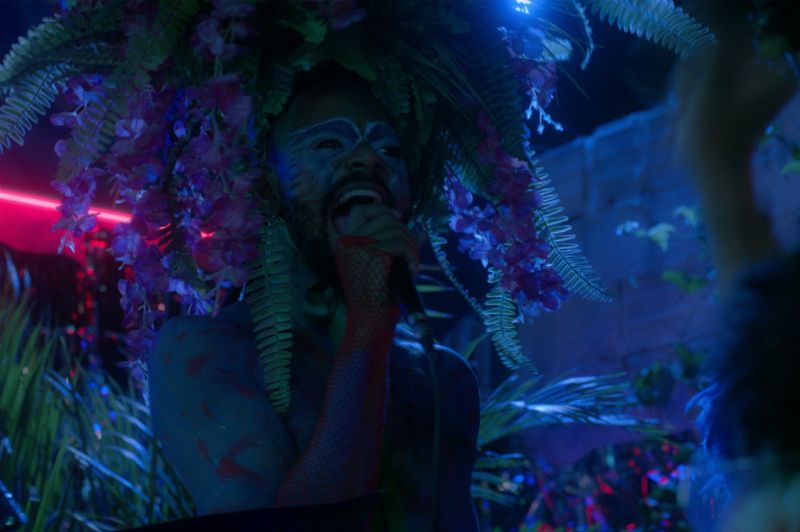
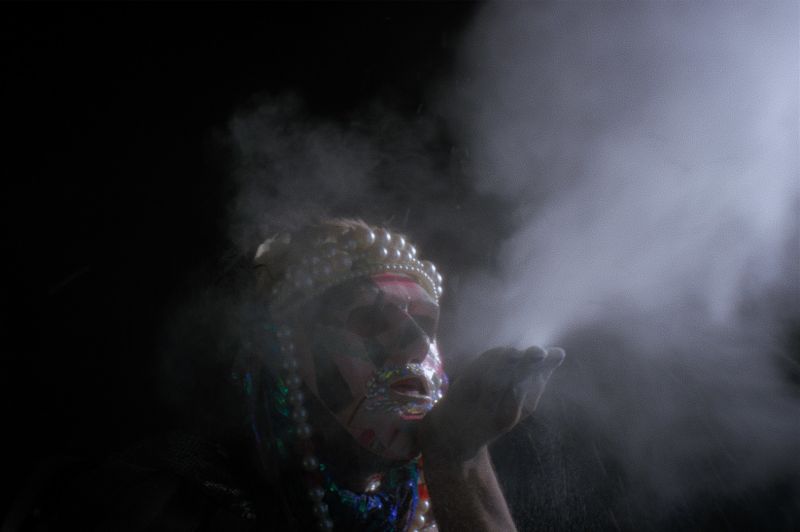
 Flores del otro Patio
Flores del otro Patio
Schweiz, Kolumbien 2022 | Farbe |
15:46 | Spanisch
 Flores del otro Patio
Flores del otro Patio
Switzerland, Colombia 2022 | Color |
15:46 | Spanish
In der kolumbianischen Karibik kämpft eine Gruppe queerer Aktivist:innen gegen heteropatriarchale Normen und soziale Ungerechtigkeiten, die die Region belasten. Als die Leitung der größten Kohlemine des Landes eine Pressekonferenz ankündigt, um die Entwicklung des Bergbaus zu fördern, bereitet sich die Gruppe auf eine denunziatorische, performative – und entschieden queere – Aktion vor.
Content notes:
Discrimation against LGBTQ+, Racism
In the Colombian Caribbean, a group of queer activists practice a militancy that challenges heteropatriarchal norms while engaging in other causes to collectively fight against the various social injustices that plague the region. When the management of the country's largest coal mine announces a press conference to promote the development of mining, the group prepares to carry out a denunciatory performative action ... and resolutely queer.
Content notes:
Discrimation against LGBTQ+, Racism
Regie, Script:
Director, Script:
Jorge Cadena
Script:
Script:
Li Aparicio Candama
Kamera:
Director of photography:
Nicolás Sastoque
Editing:
Editing:
Romain Waterlot
Ton:
Sound design:
Vuk Vukmanovic
Verleihfirma:
Distributor:
Kurzfilm Agentur Hamburg
Sales:
Sales:
Square Eyes
Darsteller:innen:
Cast:
Leon David Salazar
Darsteller:innen:
Cast:
Ruben Barrios
Darsteller:innen:
Cast:
Andru Suarez
Darsteller:innen:
Cast:
Eudes Rosado
Darsteller:innen:
Cast:
Saray Nohemi Rebolledo
Produzent:in:
Producer:
Gabriela Bussmann
Produzent:in:
Producer:
Yan Decoppet
The Jarariju Sisters (2018), El Cuento de Antonia (2016)
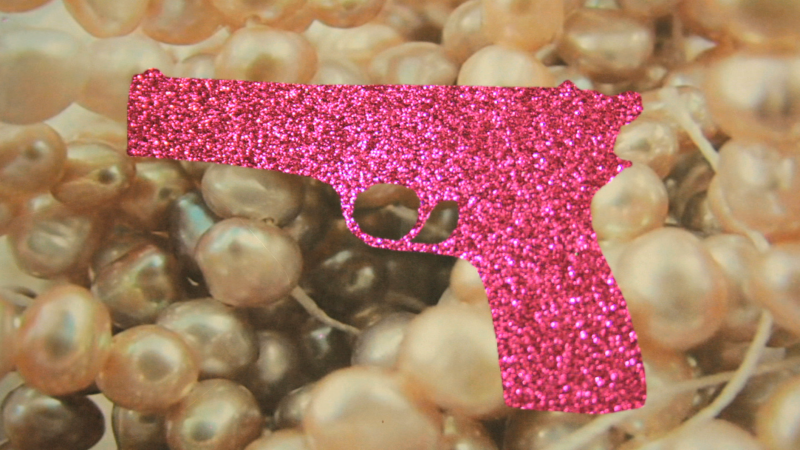
 Pearl Pistols
Pearl Pistols
Vereinigte Staaten 2014 | Farbe |
03:00 | Englisch
 Pearl Pistols
Pearl Pistols
United States 2014 | Color |
03:00 | English
Die glitzernde Wiedergeburt einer Rede der Schwarzen, US-amerikanischen Bürgerrechtsaktivistin Queen Mother Moore.
A glitter-bomb resurrection of a speech by Queen Mother Moore.
Regie:
Director:
Kelly Gallagher
Stimmen:
Voices:
Queen Mother Moore
Produktionsfirma:
Production company:
Purple Riot Studio
(Selection) More Dangerous Than a Thousand Rioters (2016), Do You Want to Go for a Drive? (2016), Pen Up the Pigs (2014), I Am the Mace (2013), The Herstory of the Female Filmmaker (2009)
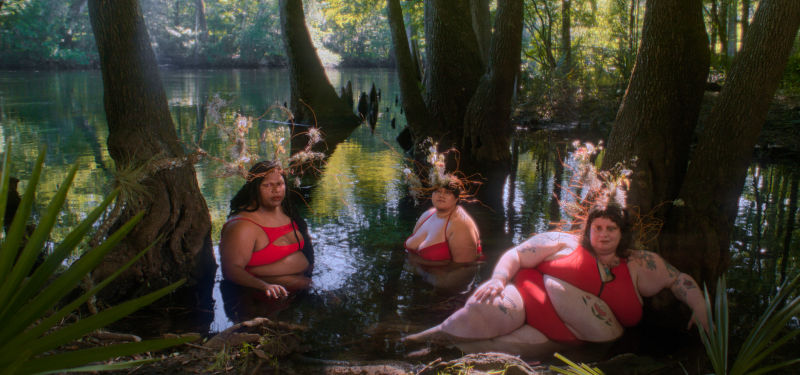
 How to Carry Water
How to Carry Water
Vereinigte Staaten 2023 | Farbe |
15:00 | Englisch
 How to Carry Water
How to Carry Water
United States 2023 | Color |
15:00 | English
Das Punkrock-Märchen ist gleichzeitig ein Porträt von Shoog McDaniel – einem fetten, queeren und beeinträchtigten Fotografen, der in und um das riesige Netz von Süßwasservorkommen im Norden Floridas arbeitet, aus denen der Staat mit Trinkwasser versorgt wird. Seit über einem Jahrzehnt haben Shoogs Fotografien die Art und Weise verändert, wie fette Menschen sich selbst sehen und wie eine Anti-Adipositas-Gesellschaft fette Körper betrachtet. Der Film erweckt Shoogs Fotografien zum Leben und lässt die Zuschauer:innen in eine Welt eintauchen, in der runde Schönheit und Befreiung eine Relevanz bekommen, eine Welt, in der marginalisierte Körper – einschließlich Wasserkörper – heilig sind.
Content notes:
Strobe effects and/or flashing images
This punk rock fairytale doubles as a portrait of Shoog McDaniel — a fat, queer, and disabled photographer working in and around northern Florida’s vast network of freshwater springs, the state’s source of precious drinking water. For over a decade, Shoog’s photographs have transformed the way fat people view themselves and how a fat-phobic society views fat bodies. Bringing Shoog’s photography to life, the film immerses audiences in a world of fat beauty and liberation, one in which marginalized bodies — including bodies of water — are sacred.
Content notes:
Strobe effects and/or flashing images
Regie:
Director:
Sasha Wortzel
Kamera:
Director of photography:
J Bennett
Editing:
Editing:
Viridiana Lieberman
Editing:
Editing:
Grace Mendenhall
Produktionsfirma:
Production company:
Multitude Films
Happy Birthday Marsha! (2018)
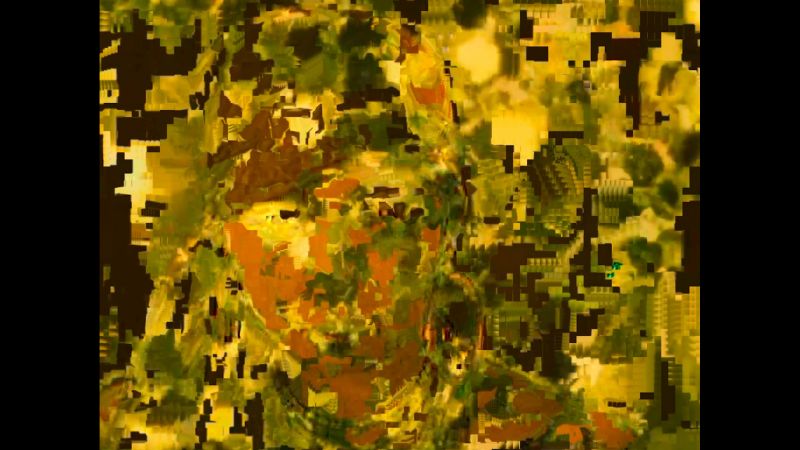
 Madness Remixed
Madness Remixed
Vereinigtes Königreich 2020 | Farbe |
10:55 | Kein Dialog
 Madness Remixed
Madness Remixed
United Kingdom 2020 | Color |
10:55 | No Dialogue
Von Beyoncé über Miley Cyrus bis hin zu Diana Ross – sie alle haben das berühmt-berüchtigte Bananenkostüm von Josephine Baker getragen, das die Tänzerin und Sängerin 1927 in ihrer Show »La Folie du jour« (»Der Wahnsinn des Tages«) vorführte. Das Kleidungsstück betreibt eine Exotisierung des Schwarzen Körpers, trotzdem wird es weiterhin als Hommage und eine Form der Aneignung getragen. Madness Remixed untersucht die Fetischisierung von Josephine Bakers Körper mithilfe von analogem Datenmikrofilm. Der Film kontrastiert kulturelle Arbeit mit Plantagenarbeit und stellt die Frage, welche Bilder von Schwarzen Körpern unter welchen Bedingungen reproduziert werden sollten.
Content notes:
Strobe effects and/or flashing images
From Beyoncé to Miley Cyrus to Diana Ross, all have worn Josephine Baker’s now infamous Banana Skirt, performed by Baker in 1927 in a show entitled »La Folie du jour« (»The Madness of the Day«). The Banana skirt is an exoticisation of the Black body, yet it continues to be worn in homage and appropriation. Madness Remixed examines the fetishisation of Josephine Baker’s body through data moshing analogue film. Cultural labour is contrasted with plantation labour, what unfolds is a questioning of which images of Black bodies should be reproduced and on what terms.
Content notes:
Strobe effects and/or flashing images
Regie:
Director:
Rhea Storr
Verleihfirma:
Distributor:
Lux
(Selection) Okay Keskidee! Let Me See Inside! (2025), Subjects of State, Labours of Love: Sheffield (2025), Through a Shimmering Prism, We Made a Way (2022), Here Is the Imagination of the Black Radical (2020), Henry (2017)
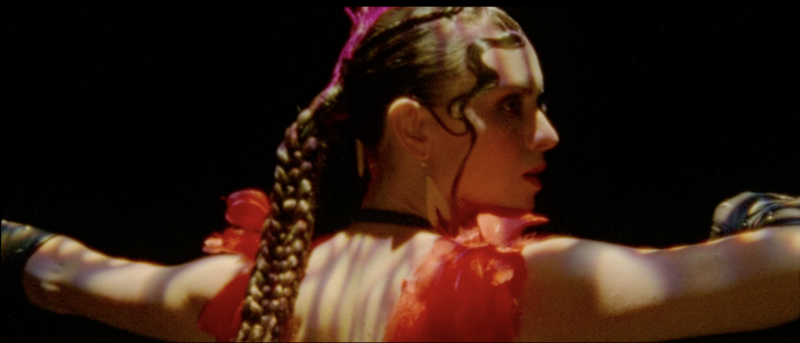
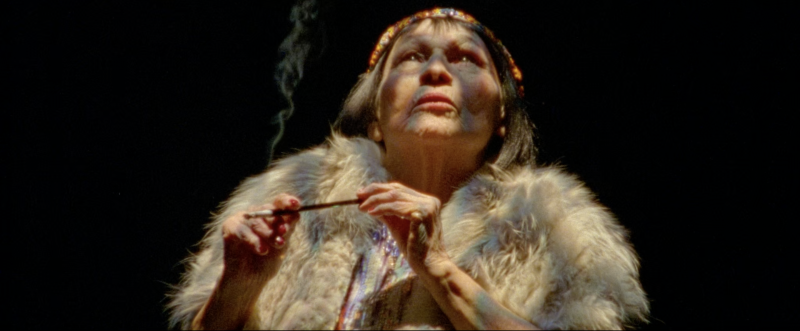
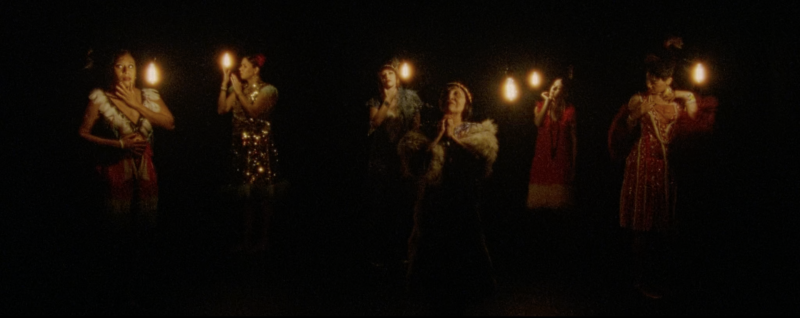
 Pidikwe (Rumble)
Pidikwe (Rumble)
Kanada 2025 | Farbe |
10:11 | Kein Dialog
 Pidikwe (Rumble)
Pidikwe (Rumble)
Canada 2025 | Color |
10:11 | No Dialogue
Gemeinsam mit indigenen Frauen aus unterschiedlichen Generationen verbindet Pidikwe traditionellen und zeitgenössischen Tanz in einem audiovisuellen Wirbelsturm, der die Grenze zwischen Film und Performance überschreitet, angesiedelt irgendwo zwischen Vergangenheit und Zukunft.
Featuring indigenous women of various generations, Pidikwe integrates traditional and contemporary dance in an audiovisual whirlwind that straddles the border between film and performance, somewhere between the past and the future.
Regie, Produzent:in, Script:
Director, Producer, Script:
Caroline Monnet
Kamera:
Director of photography:
Nicolas Canniccioni
Editing:
Editing:
Marc Boucrot
Music:
Music:
Alessandro Cortini
Ton:
Sound design:
Ilyaa Ghafouri
Verleihfirma:
Distributor:
La Distributrice
(Selection) Bootlegger (2021), Emptying the Tank (2018), Tshiuetin (2016), Creatura Dada (2016), Mobilize (2015), IKWÉ (2009)

 Hamburg Positions: Social Housing
Hamburg Positions: Social Housing
The Hamburg Positions show in two programs how closely the struggle for a socially just, affordable and mixed city is linked to the creation of a counter-public. Hamburg in particular has a tradition of artistically influenced urban activism. Curated by Florian Wüst.

Wohnste sozial ... share
Dwelling Subsidized … share
Wird in Deutschland vom Sozialen Wohnungsbau gesprochen, denken viele an die mit öffentlichen Mitteln errichteten Großsiedlungen, die einkommensschwachen Haushalten einst modernen Wohnkomfort boten. Doch es liegt ein Missverständnis vor: Der Soziale Wohnungsbau ist weder eine Gebäudeklasse noch ein nachhaltig preiswertes Marktsegment, sondern in erster Linie ein Förderprogramm für Investoren. Trotz der Defizite der hiesigen sozialen Wohnraumversorgung und auch wenn die Umkehr zu einer behutsameren Stadtentwicklung in den 1980er-Jahren nicht vor Verdrängung durch Immobilienspekulation schützt, wirkt die Geschichte des erfolgreichen Widerstands gegen Abriss und Neubau fort.
Die »Hamburger Positionen« zeigen, wie eng der Kampf um die sozial gerechte, bezahlbare und gemischte Stadt mit der Herstellung von Gegenöffentlichkeit verbunden war und ist. Gerade in Hamburg lässt sich die Tradition eines künstlerisch geprägten Stadtaktivismus ausmachen. Das Programm »Wohnste sozial…« führt von der Amsterdamer Wohnungsmisere der 1960er-Jahre bis zur Erinnerung an Kemal Altun. Die Kurzfilme in »…haste die Qual« verbinden spezifische Hamburger Konflikte um die Sanierungspolitik mit der Aktualität der Klassenfrage.
Kuratiert von Florian Wüst
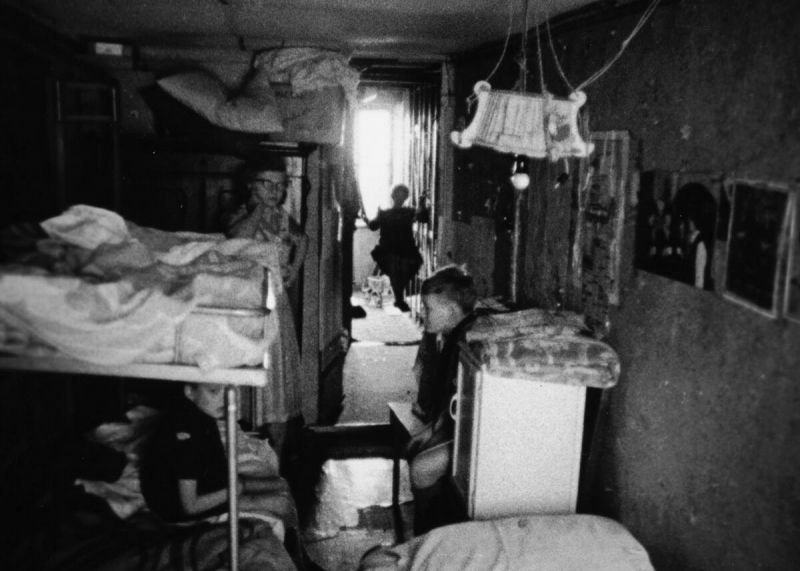
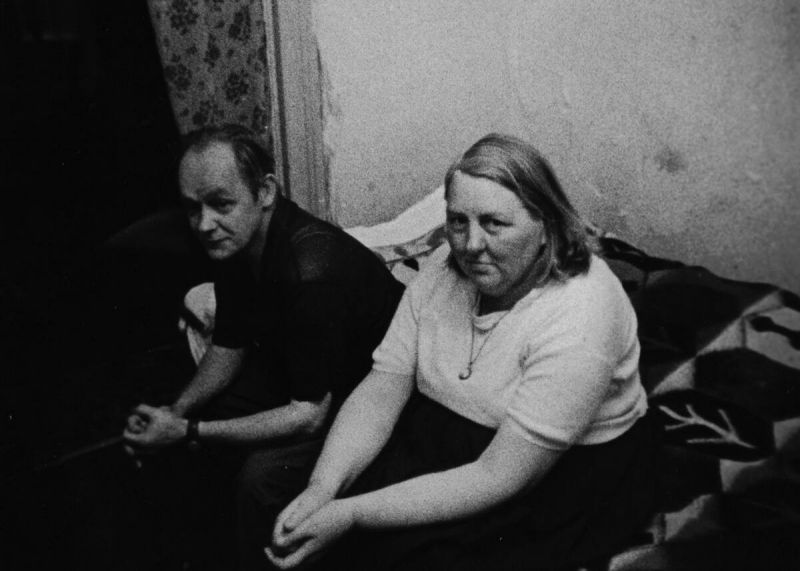
 Vier muren (Four Walls)
Vier muren (Four Walls)
Niederlande 1965 | Schwarz-Weiss |
22:00 | Niederländisch
 Vier muren (Four Walls)
Vier muren (Four Walls)
Netherlands 1965 | Black & White |
22:00 | Dutch
Vier muren (Vier Wände) ist ein filmisches Essay über das Wohnungsproblem in Amsterdam Mitte der 1960er-Jahre, das mit Zeichnungen und Modellen des niederländischen Architekten Herman Hertzberger beginnt. Deren utopisches Versprechen kommentiert Johan van der Keuken im Voiceover: »Es gibt eine Welt der Formen in unserer Reichweite, menschlich und voller Imagination. Doch die meisten Menschen leben in Finsternis, unzählige von ihnen im Elend, ohne jeden Schutz.« Im Wohnungsamt der Stadt machen diejenigen, die unter den erbärmlichen Bedingungen wohnen müssen, ihrem Unmut Luft.
Vier muren (Four Walls) is a cinematic essay on the housing problem in Amsterdam in the mid 1960s. It opens with drawings and scale models by Dutch architect Herman Hertzberger. In the voice-over, Johan van der Keuken comments on the utopian promise of those designs: »There is a world of forms, human and rich in imagination, within our reach. But most people live in gloom, countless of them in misery, without protection.« Those who have to live under the wretched conditions air their grievances in the Public Housing Department of the city.
Regie, Kamera, Editing, Ton:
Director, Director of photography, Editing, Sound design:
Johan van der Keuken
Verleihfirma:
Distributor:
EYE Filmmuseum
(Selection) Onvoltooid tegenwoordig (2002), De Grote Vakantie (2000), Amsterdam Global Village (1996), De platte jungle (1978), De tijdgeest (1968), Paris a l'Aube (1957)
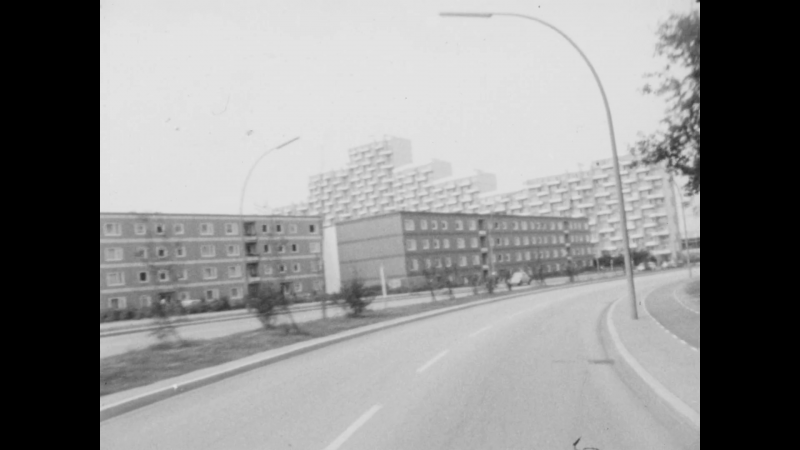
 Osdorfer Born. Werbefilm für die »Hamburger Bautage 1969«
Osdorfer Born. Werbefilm für die »Hamburger Bautage 1969«
BRD 1969 | Schwarz-Weiss |
10:30 | Deutsch
 Osdorfer Born. Werbefilm für die »Hamburger Bautage 1969«
Osdorfer Born. Werbefilm für die »Hamburger Bautage 1969«
West Germany 1969 | Black & White |
10:30 | German
Fünf Filmstudent:innen der HFBK erhielten von der Baubehörde den Auftrag, anlässlich der im Herbst 1969 stattfindenden Bautage je einen Hamburg-Werbefilm zu drehen. Christian Bau entschied sich für ein kritisches Porträt des Osdorfer Born, Hamburgs erster Großsiedlung in Plattenbauweise, ab 1967 von der Neuen Heimat, der SAGA und anderen Wohnungsunternehmen am westlichen Rand der Stadt erbaut. Die auf 16mm gedrehten Bilder unterlegte er mit Interviewpassagen sowie einem Text, den er dem Wohnungsbauprogramm der SAGA entnommen hatte. Der Auftraggeber war wenig begeistert, der Film verschwand über Jahrzehnte im Giftschrank und kann nun erstmals im Kino gezeigt werden.
On the occasion of the »Construction Days« in the autumn of 1969, the Hamburg Building Authority commissioned five HFBK film students to film one Hamburg commercial each. Christian Bau opted for a critical portrait of Osdorfer Born, Hamburg's first large-scale, prefabricated housing estate, which had been built from 1967 by Neue Heimat, SAGA and other housing companies on the western edge of the city. The images, shot on 16mm, were accompanied by interview passages and a text taken from SAGA's housing construction program. The client was less than enthusiastic, the film disappeared into a closet for decades and can now be shown for the first time in the cinema.
Regie:
Director:
Christian Bau
Ton:
Sound design:
Thomas Kukuck
(Selection) Der Tote im Livestream (2022), Snapshot Mon Amour (2014), Axensprung (2004), Die Kritische Masse (1998), Thedebadfilm (1984), Ottensen kämpft – wenn das so kommt (1972-1975), Anfangszeiten (1966)
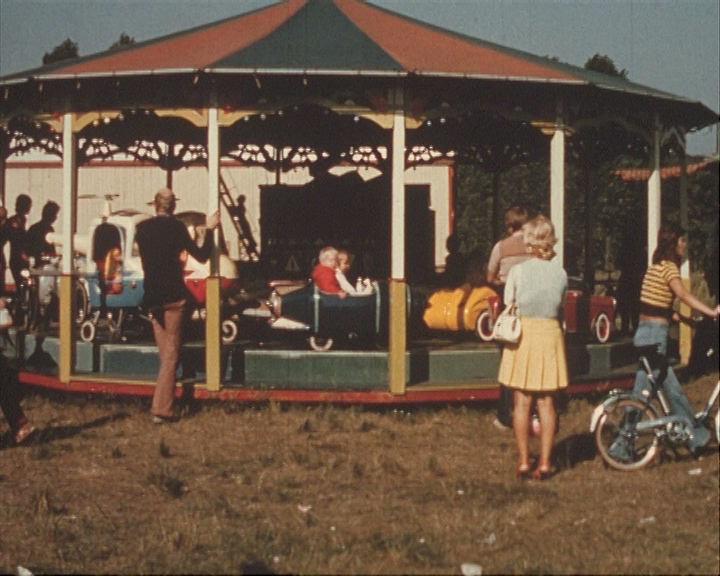
 Cronología (Chronology)
Cronología (Chronology)
Deutschland 2010 | Schwarz-Weiss und Farbe |
12:00 | Spanisch, Deutsch, Englisch
 Cronología (Chronology)
Cronología (Chronology)
Germany 2010 | Black & White and Color |
12:00 | Spanish, German, English
Rosana Cuellars Found-Footage-Film gleicht einem Puzzle, das die Subtexte des städtischen Wiederaufbaus im Nachkriegsdeutschland in Form einer subtilen emotionalen Montage hervorholt. Die mit neuer Tonebene versehenen Bilder stammen aus Archivmaterial der Neuen Heimat, einem gemeinnützigen Wohnungsunternehmen des Deutschen Gewerkschaftsbunds mit Hauptsitz in Hamburg, das den westdeutschen Städtebau über lange Zeit prägte. Im Rahmen eines Seminars der HFBK-Experimentalfilmklasse von Robert Bramkamp entstanden neben Cronología eine Reihe weiterer Kurzfilme aus dem Neue Heimat-Fund.
Rosana Cuellar’s found-footage film is like a puzzle that brings out the subtexts of urban reconstruction in post war Germany in the form of a subtle emotional montage. The images, which are combined with a new soundtrack, originate from archival material by Neue Heimat, a non-profit housing company of the Deutscher Gewerkschaftsbund headquartered in Hamburg, which shaped West German urban development for a long time. As part of a seminar in Robert Bramkamp's HFBK experimental film class, several short films, among them Cronología, were made from the Neue Heimat find.
Regie, Editing, Music:
Director, Editing, Music:
Rosana Cuellar
Ton, Music:
Sound design, Music:
Sebastian Meyer
Ton:
Sound design:
Silvio Naumann
Music:
Music:
Marlene Denningmann
Music:
Music:
Sophia Kennedy
Verleihfirma:
Distributor:
VETO Film
Tender Cords (2023), La llorona (2019), The Annunciation (2018), Feuer meiner Lenden (2017), A Woman Named Yssabeau (2012)
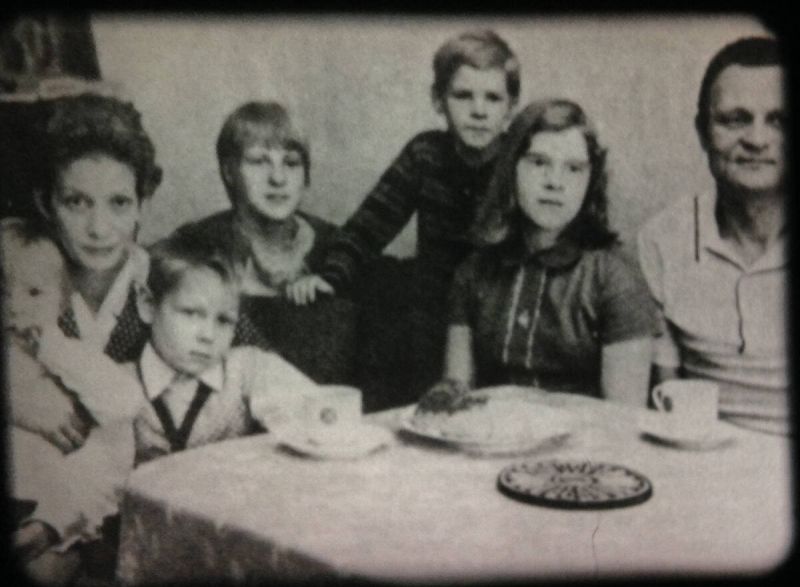
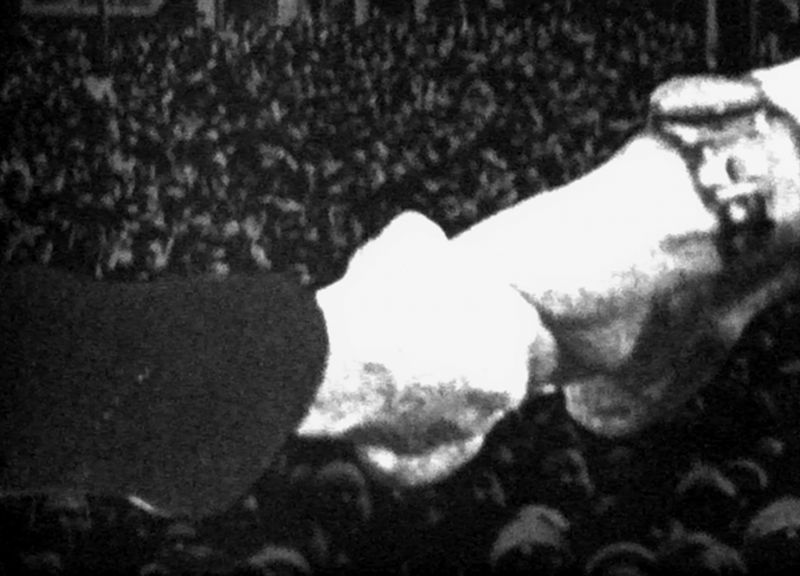
 Mietersolidarität
Mietersolidarität
BRD 1970 | Schwarz-Weiss |
13:00 | Deutsch
 Mietersolidarität
Mietersolidarität
West Germany 1970 | Black & White |
13:00 | German
Der ehemalige DFFB-Student und Filmemacher Max D. Willutzki zog 1969 ins Märkische Viertel (MV), einer zwischen 1963 und 1974 erbauten Großsiedlung für 60.000 Bewohner:innen am Rand von West-Berlin. Zusammen mit Christian Ziewer und anderen dokumentierte er die politische Stadtteilarbeit im MV. Die dabei entstandenen »Basisfilme« bildeten den Ausgangspunkt des späteren Basis-Film Verleihs. Mietersolidarität zeigt, wie es dem Arbeitskreis Mieten und Wohnen gelingt, die Zwangsexmittierung der mehrköpfigen Arbeiterfamilie Puhle, die ihre Miete nicht mehr zahlen kann, zu verhindern.
The former DFFB student and filmmaker Max D. Willutzki moved to the Märkisches Viertel (MV) in 1969, a large housing estate built between 1963 and 1974 for 60,000 residents on the outskirts of West Berlin. Together with Christian Ziewer and others, he documented the political neighbourhood work on the estate. The resulting »Basis-Filme« formed the starting point for the later Basis-Film distribution company. Mietersolidarität shows how the Arbeitskreis Mieten und Wohnen (workgroup rents and housing) succeeds in preventing the forced eviction of the working-class Puhle family, who can no longer pay their rent.
Regie, Script:
Director, Script:
Max D. Willutzki
Script:
Script:
Christian Ziewer
Die Faust in der Tasche (1978), Vera Romeyke ist nicht tragbar (1976), Der lange Jammer (1973), Die Besetzung (1970), Nun kann ich glücklich und zufrieden wohnen (1969), Ein Platz für G. (1966)
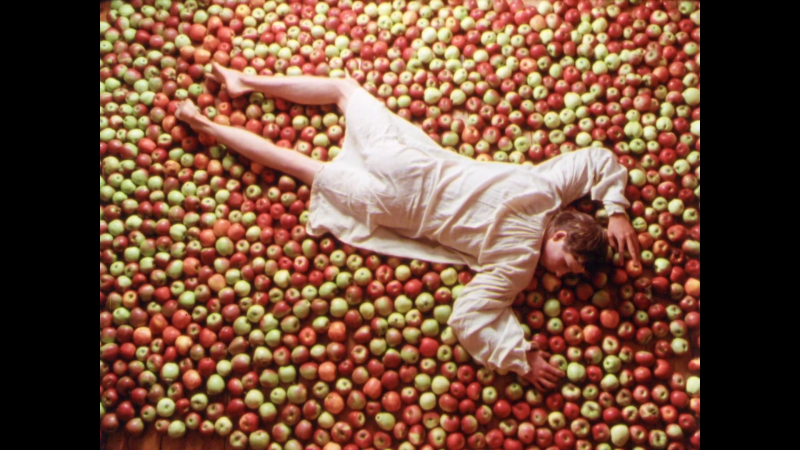
 Fremdennacht
Fremdennacht
Deutschland 1992 | Farbe |
15:00 | Deutsch
 Fremdennacht
Fremdennacht
Germany 1992 | Color |
15:00 | German
Ayşe Polats experimenteller Kurzspielfilm Fremdennacht handelt von Kemal Altun, einem türkischen Asylbewerber, der sich 1983 im Alter von 23 Jahren aus Angst vor seiner Abschiebung aus dem Fenster eines Westberliner Gerichtssaales stürzte. Altuns Situation wird mit der des Schriftstellers Georg Büchner in Beziehung gesetzt. Büchner starb 1837 an Typhus, vereinsamt im Züricher Exil, wo er sich auf der Flucht vor der hessischen Obrigkeit befand. Was dachte Büchner am Ende seiner langen Verfolgung? Was fühlte Altun am Vorabend seines Selbstmords, der letzten Freiheit, die ihm blieb?
Content notes:
Suicide or self-harm
Fremdennacht is an experimental short fiction film about Kemal Altun, a Turkish asylum seeker who threw himself out of the window of a West Berlin courtroom in 1983 at the age of 23 out of fear of being deported. Altun's situation is related to that of the writer Georg Büchner. Büchner died of typhus in 1837, during his lonely Zurich exile, where he was on the run from the Hessian authorities. What did Büchner think at the end of his long persecution? What did Altun feel on the eve of his suicide, his ultimate freedom?
Content notes:
Suicide or self-harm
Regie, Script:
Director, Script:
Ayşe Polat
Script:
Script:
Basri Polat
Kamera:
Director of photography:
Uli Fischer
Editing:
Editing:
Michèle Barbin
Ton:
Sound design:
Per Rabe
Ton:
Sound design:
René Plettner
Music:
Music:
Jonas Landerschier
Verleihfirma:
Distributor:
archiv@kinemathek-hamburg.de
(Selection) Tatort: Borowski und das unschuldige Kind von Wacken (2023), Im toten Winkel (2023), Die Erbin (2013), En Garde (2004), Auslandstournee (2000), Ein Fest für Beyhan (1994), Entfremdet (1991)

... haste die Qual share
… Living Agonized share
Wird in Deutschland vom Sozialen Wohnungsbau gesprochen, denken viele an die mit öffentlichen Mitteln errichteten Großsiedlungen, die einkommensschwachen Haushalten einst modernen Wohnkomfort boten. Doch es liegt ein Missverständnis vor: Der Soziale Wohnungsbau ist weder eine Gebäudeklasse noch ein nachhaltig preiswertes Marktsegment, sondern in erster Linie ein Förderprogramm für Investoren. Trotz der Defizite der hiesigen sozialen Wohnraumversorgung und auch wenn die Umkehr zu einer behutsameren Stadtentwicklung in den 1980er-Jahren nicht vor Verdrängung durch Immobilienspekulation schützt, wirkt die Geschichte des erfolgreichen Widerstands gegen Abriss und Neubau fort.
Die »Hamburger Positionen« zeigen, wie eng der Kampf um die sozial gerechte, bezahlbare und gemischte Stadt mit der Herstellung von Gegenöffentlichkeit verbunden war und ist. Gerade in Hamburg lässt sich die Tradition eines künstlerisch geprägten Stadtaktivismus ausmachen. Das Programm »Wohnste sozial…« führt von der Amsterdamer Wohnungsmisere der 1960er-Jahre bis zur Erinnerung an Kemal Altun. Die Kurzfilme in »…haste die Qual« verbinden spezifische Hamburger Konflikte um die Sanierungspolitik mit der Aktualität der Klassenfrage.
Kuratiert von Florian Wüst
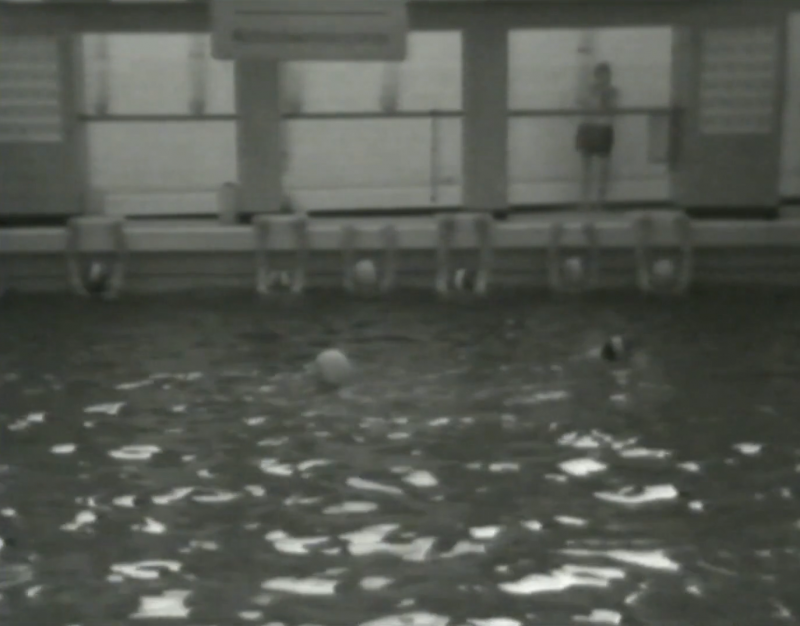
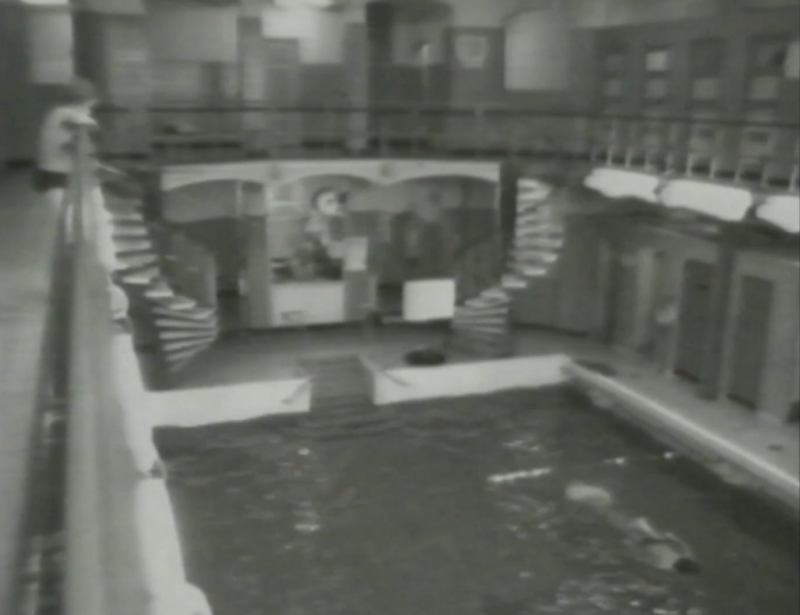
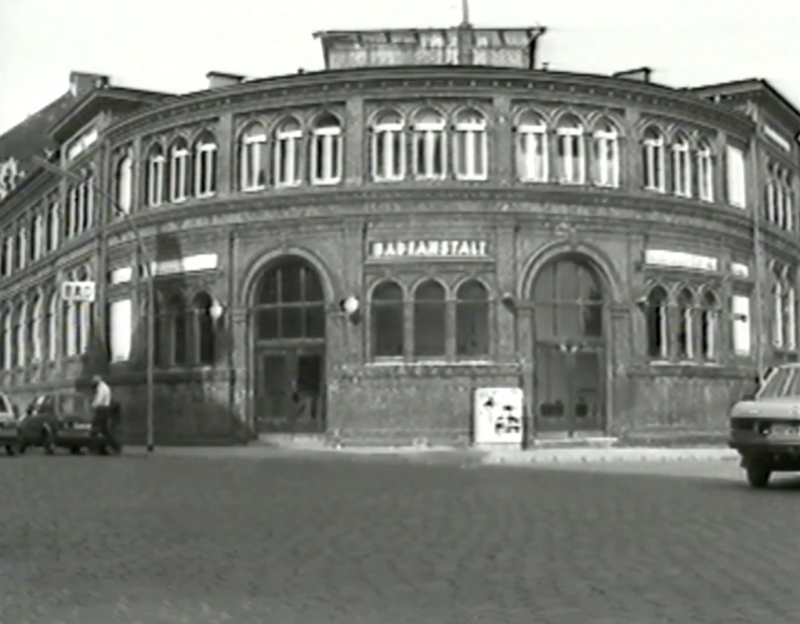
 Thedebadfilm
Thedebadfilm
BRD 1985 | Schwarz-Weiss |
28:30 | Deutsch
 Thedebadfilm
Thedebadfilm
West Germany 1985 | Black & White |
28:30 | German
»Das schöne Thedebad war jahrelang von Schließung und damit endgültiger Stilllegung bedroht. 1981 begannen wir mit den Dreharbeiten und begleiteten die über vierjährigen Auseinandersetzungen und politischen Aktivitäten. Der Film ist dokumentarisch, er stellt das Bad und die Menschen vor, die es benutzen. Neben der Schwimmhalle auch die Wannenabteilung, die von vielen Bewohner:innen aus Altona-Altstadt besucht wurde. Ziel des Films war es, die Schließung des Bades zu verhindern. Inzwischen arbeiten dort Künstler:innen und Internetfirmen.«
»For years, the beautiful Thedebad had been threatened by closure and its complete shutdown. We began filming in 1981 and followed the four years of conflict and political activity. The film is a documentary, it presents the public bath and the people who use it. In addition to the indoor swimming pool, it also shows the baths section, which was visited by many Altona-Altstadt residents. The aim of the film was to prevent the bath from being closed. These days, artists and internet companies work there.«
Regie, Kamera, Editing:
Director, Director of photography, Editing:
Christian Bau
Regie:
Director:
Jürgen Mainusch
Produktionsfirma:
Production company:
die thede
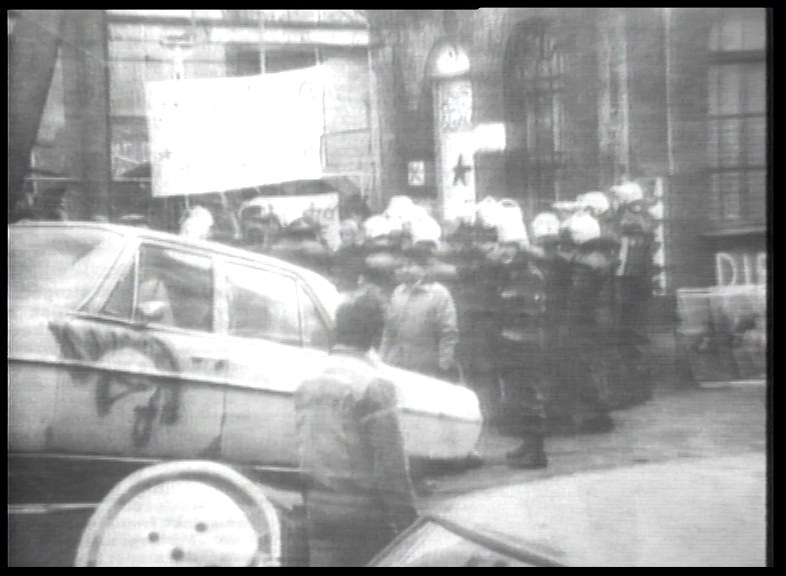
 Mottenburg
Mottenburg
BRD 1985 | Schwarz-Weiss und Farbe |
07:00 | Deutsch
 Mottenburg
Mottenburg
West Germany 1985 | Black & White and Color |
07:00 | German
Im Januar 1985 besetzt eine Gruppe junger Menschen das leer stehende Fabrikgelände in der Mottenburger Straße 10 in Ottensen. Sie wehren sich gegen eine Sanierung des »Abbruchstadtteils«, die die Altmieter:innen in die »Neubauknäste« vertreibt. Die Besetzer:innen fangen an zu renovieren, kochen zusammen, veranstalten Punkkonzerte. Nach kaum zwei Wochen werden sie durch die Polizei geräumt, der Eigentümer, der an der Stelle ein Mehrfamilienhaus mit Sozialwohnungen errichten will, lässt die Gebäude unbewohnbar machen – alles auf Video dokumentiert durch das Medienpädagogik Zentrum Hamburg (MPZ).
In January 1985, a group of young people occupied the vacant factory premises at Mottenburger Straße 10 in Ottensen. They were defending themselves against the redevelopment of the »demolished district«, which would drive the old tenants into the »new housing clinks«. The squatters started to renovate, cook together and organize punk concerts. After barely two weeks, they are evicted by the police and the owner, who wants to build subsidized apartments on the site and has the buildings made uninhabitable – all documented on video by the Medienpädagogik Zentrum Hamburg (MPZ).
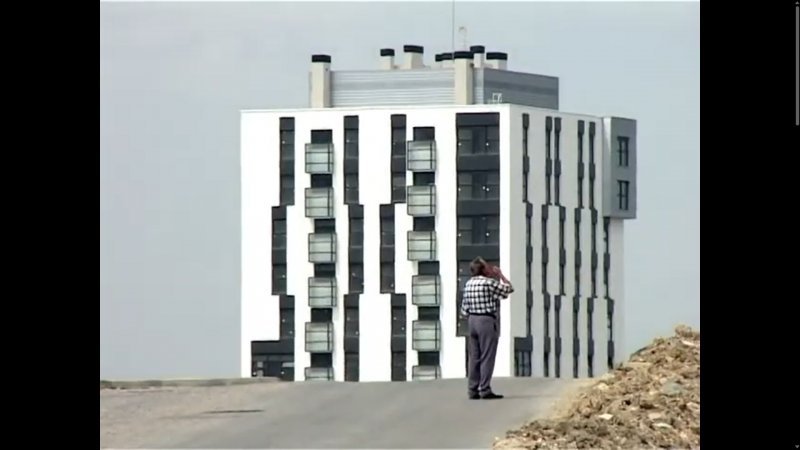
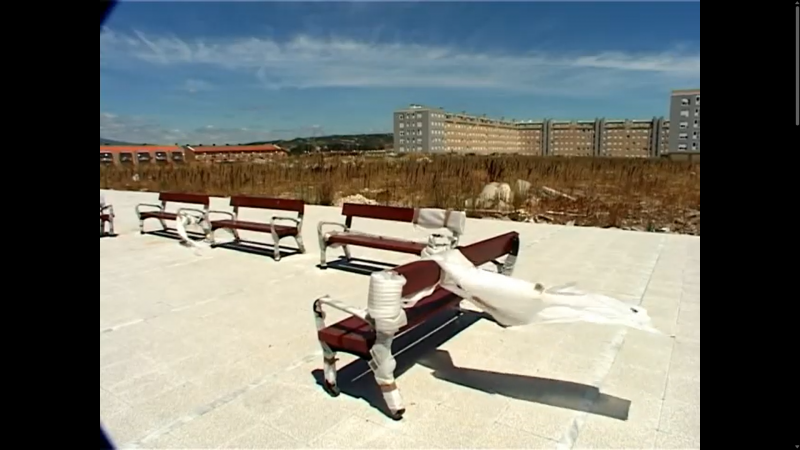
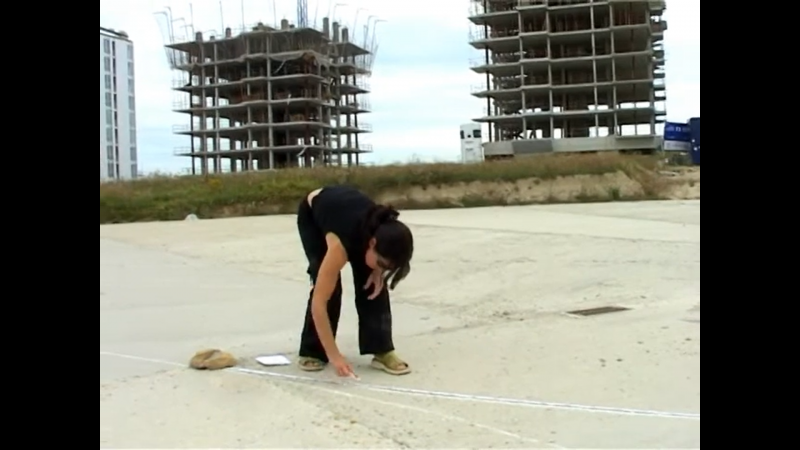
 Desde aquí hasta ahí (From Here to There)
Desde aquí hasta ahí (From Here to There)
Spanien, Niederlande 2008 | Farbe |
19:00 | Spanisch, Baskisch
 Desde aquí hasta ahí (From Here to There)
Desde aquí hasta ahí (From Here to There)
Spain, Netherlands 2008 | Color |
19:00 | Spanish, Basque
Desde aquí hasta ahí erforscht den Begriff der Heimat im Kontext der städtischen Expansion von Vitoria-Gasteiz, der Hauptstadt des Baskenlandes. Der Film begleitet junge Erwachsene bei der Vorbereitung auf einen neuen Lebensabschnitt wie der Einrichtung einer kürzlich gekauften, aber noch nicht fertiggestellten Wohnung oder der Geburt des ersten Kindes. Diesen persönlichen Erfahrungen werden Bilder einer von den Behörden organisierten Lotterie zur Zuteilung von subventionierten Wohnungen und von Aktivist:innen gegenübergestellt, die die Renovierung leer stehender Gebäude im Stadtzentrum fordern.
Desde aquí hasta ahí explores the notion of home within the context of the urban expansion of Vitoria-Gasteiz, the capital of the Basque Country. It follows young adults who prepare for a new stage in their lives: How to plan the furnishing of a recently purchased apartment yet to be finished? How to cater for the birth of the first child? These personal experiences are juxtaposed with documentation of a lottery organized by the authorities to allocate subsidized apartments and of activists claiming the refurbishment of empty buildings in the center of the city.
Regie, Produzent:in:
Director, Producer:
Iratxe Jaio
Regie, Produzent:in:
Director, Producer:
Klaas van Gorkum
(Selection) Onder de Vleugel (2020), Últimas palabras (2013), OpTV (2005), Welcome to Belfast (2004), Film as Fossil (2004), A Twenty-Four Hours a Day Revolution (2003)
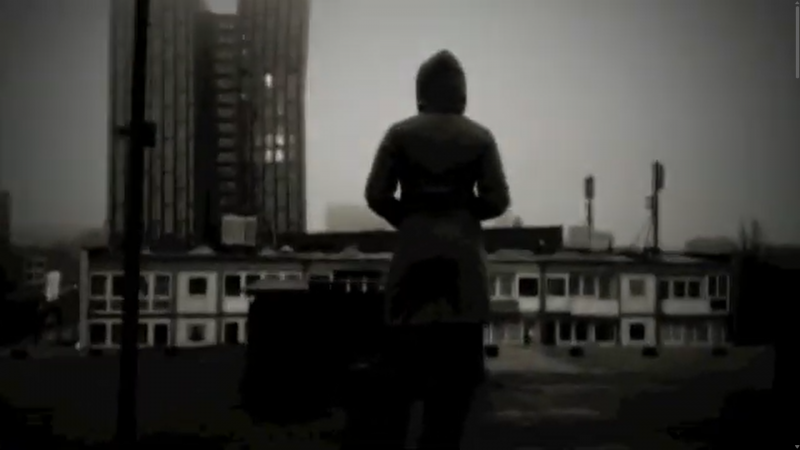
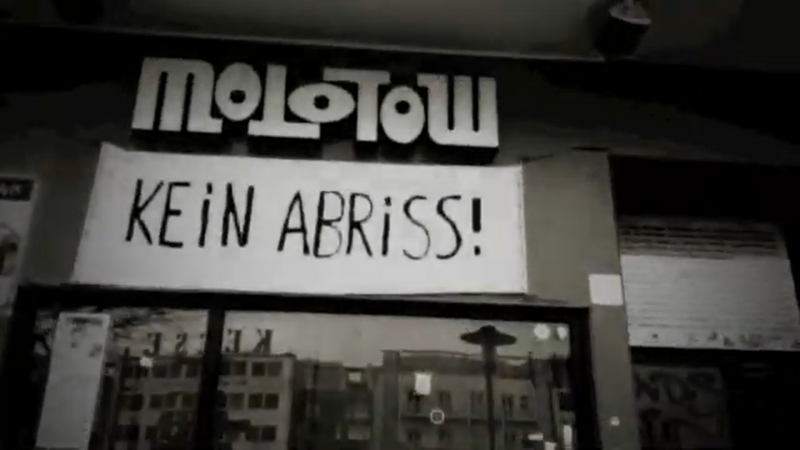
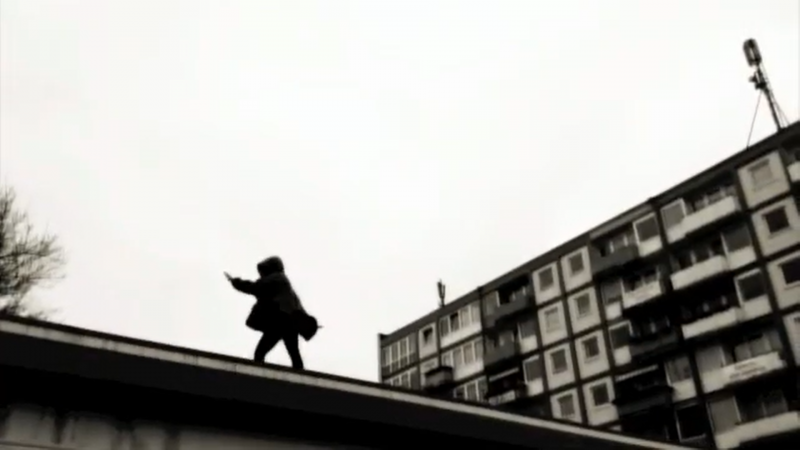
 The Good, The Bad And The Ugly: Echohäuser
The Good, The Bad And The Ugly: Echohäuser
Deutschland 2013 | Schwarz-Weiss |
04:30 | Deutsch
 The Good, The Bad And The Ugly: Echohäuser
The Good, The Bad And The Ugly: Echohäuser
Germany 2013 | Black & White |
04:30 | German
Die Esso-Häuser samt namensgebender Tankstelle und Ladenzeile stehen exemplarisch für einen nicht nur auf St. Pauli stattfindenden Verdrängungsprozess. 2009 kaufte ein großes Immobilienunternehmen das für die Nachkriegsmoderne typische Gebäudeensemble, dessen Vorbesitzer seinen Instandhaltungspflichten nicht nachgekommen war. Gegen die Neubaupläne des Investors formierte sich eine Initiative aus Bewohner:innen und Nachbar:innen, künstlerische Aktionen wie der »Echohäuser«-Song und dessen Musikvideo machten den Protest weithin bekannt. 2014 wurden die Häuser abgerissen, trotz eines selbstorganisierten Planungsverfahrens klafft dort seither ein Loch.
The Esso buildings, including the eponymous petrol station and strip mall, are exemplary of a displacement process that is not only taking place in St. Pauli. In 2009, a large real estate company bought the ensemble of buildings typical of post-war modernism, whose previous owner had failed to meet the maintenance obligations. An initiative of residents and neighbours formed against the investor's new construction plans, and artistic actions such as the »Echohäuser« song and its accompanying music video made the protest widely known. The houses were demolished in 2014, and despite a self-organized planning process, they left behind nothing but a gaping hole.
Regie:
Director:
Frank Egel
Regie:
Director:
Julia Priani
Music:
Music:
Good, The Bad And The Ugly
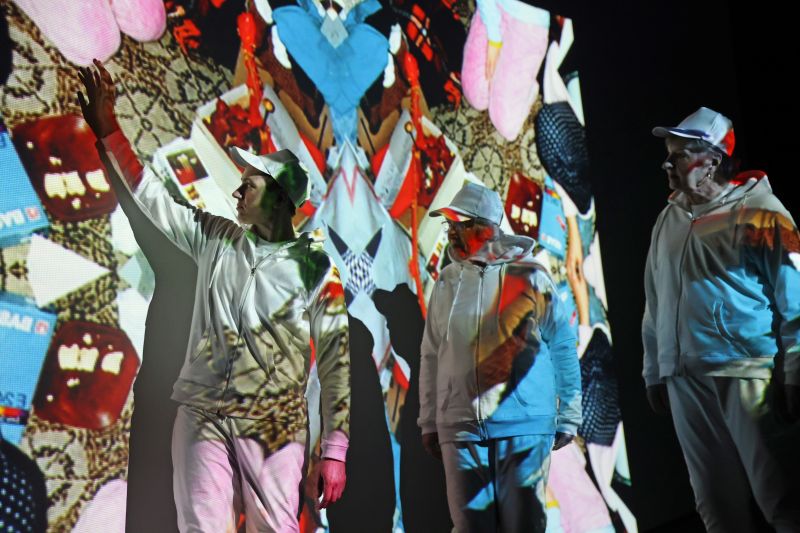
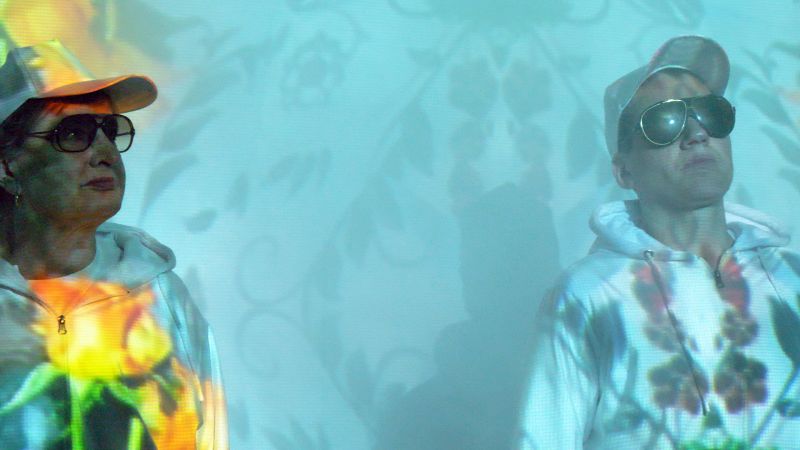
 THIS IS POOR! Patterns of Poverty
THIS IS POOR! Patterns of Poverty
Deutschland 2024 | Farbe |
20:00 | Deutsch, Englisch
 THIS IS POOR! Patterns of Poverty
THIS IS POOR! Patterns of Poverty
Germany 2024 | Color |
20:00 | German, English
Anknüpfend an aktuelle Diskurse zur Klassenfrage thematisiert Kerstin Honeit in THIS IS POOR! Patterns of Poverty gesellschaftliche Strukturen, die zu großer ökonomischer Ungleichheit führen. In einer poetisch-widerständigen, gemeinsam mit Mitgliedern des Berliner Straßenchors und ihrer Familie gestalteten Erzählung treffen »Dekore der Armut« aus dem Herkunftsmilieu der Künstlerin auf die Architektur des Steglitzer Kreisels, einer symbolträchtigen Ruine der Immobilienspekulation. Als Standort des Bezirksamts war das Anfang 1980 bezugsfertige Hochhaus einst auch Vergabestelle für Sozialhilfe.
Relating to current discourses on class issues, Kerstin Honeit addresses social structures that lead to great economic inequality. In a poetic and resistant narrative created in cooperation with members of the Berlin Street Choir and her family, »decors of poverty« from the artist's milieu of origin meet the architecture of the Steglitzer Kreisel, a highly symbolic ruin of real estate speculation. The high-rise, finished in early 1980, housed once the district office, and therefore as well the social welfare office.
Regie, Produzent:in, Verleihfirma:
Director, Producer, Distributor:
Kerstin Honeit
Junost Bang (2023), ['zi:lo]5 (2020), Panda Moonwalk or Why Meng Meng Walks Backwards (2018), my castle your castle (2017), Pigs in Progress (2013), Killer Dykes In The Brain (2007), Pudelskern (2006)

 Archive of the Present
Archive of the Present
Archives are an inspiration. Treasures found there can shed new light on the present. They are always collected for the future. In the Archive of the Present section, curators and guests present their very personal approaches.

 ARCHIVE1: Romani Memory & Identity
ARCHIVE1: Romani Memory & Identity
Resisting Erasure 1 & 2 give space to Roma voices in particular and advocate for history to be told from their own perspective. Curated by Lisa Smith

Archive 1: Resisting Erasure – Romani Memory and Identity 1 share
Archive 1: Resisting Erasure – Romani Memory and Identity 1 share
Film ist ein mächtiges Mittel zur Bewahrung kultureller Erinnerung – doch Sinti* und Roma* bleibt der Zugang zu ihrer eigenen visuellen Geschichte häufig verwehrt. Die beiden Kurzfilmprogramme stellen sich grundlegenden Fragen: Wer kontrolliert unsere Geschichten? Wer entscheidet, was bewahrt wird – und wer es sehen darf? »Resisting Erasure« gibt vor allem Roma* Stimmen Raum und setzt sich dafür ein, dass Geschichte aus der eigenen Perspektive erzählt wird.
Kuratiert von Lisa Smith
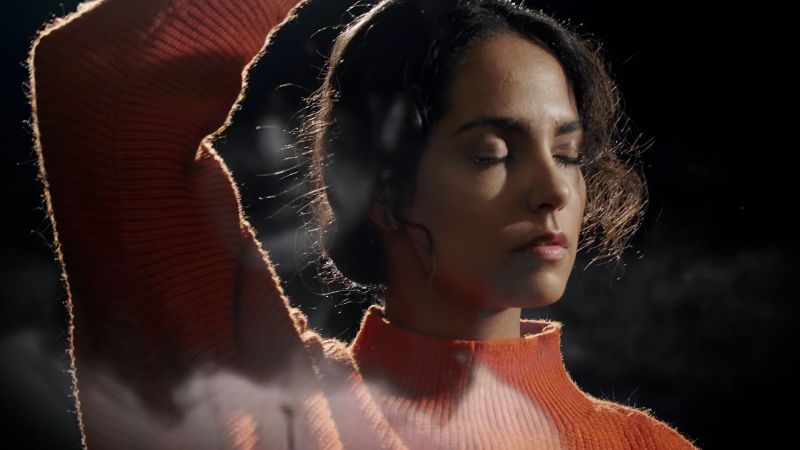
 O Baripen
O Baripen
Slowakei, Tschechien 2023 | Farbe |
52:00 | Tschechisch, Romani, Slowakisch
 O Baripen
O Baripen
Slovakia, Czech Republic 2023 | Color |
52:00 | Czech, Romani, Slovak
Elena Lacková (1921-2003) war eine bekannte Romani-Schriftstellerin, Theaterautorin und Sozialarbeiterin. Ihre Urenkelin, Alžběta Ferencová alias Zea, ist Sängerin, Tänzerin und Schauspielerin. Der Film zeigt Parallelen zwischen zwei Frauen einer Familie, die trotz gesellschaftlicher Vorurteile ihr Leben dem künstlerischen Schaffen widmen. Anhand von Archivmaterial und Zeitzeugenberichten wird das schwierige Schicksal von Elena Lacková aufgezeigt: vom Aufwachsen in einer Roma-Siedlung über die Zeit des Roma-Holocausts bis hin zu ihrem emanzipatorischen Wirken im Kommunismus.
Elena Lacková (1921–2003) was a prominent Romani writer, playwright and social worker. Her great-granddaughter, Alžběta Ferencová alias Zea, is a singer, dancer and actress. The film draws parallels between two family-related women who, despite social prejudices, dedicate their lives to artistic creation. Through archival materials and the stories of witnesses, the difficult fate of Elena Lacková is revealed: from growing up in a Roma settlement, through the period of the Roma Holocaust, to her emancipatory work under communism.
Regie, Script:
Director, Script:
Vera Lacková
Script:
Script:
Jana Ondrušová
Andere:
Other:
Jan Bodnár
Kamera:
Director of photography:
Dominik Jursa
Editing:
Editing:
Hana Dvořáčková
Music:
Music:
Jan Šikl ml.
Ton:
Sound design:
Klára Jašková
Ako som sa stala partizánkou (2021)
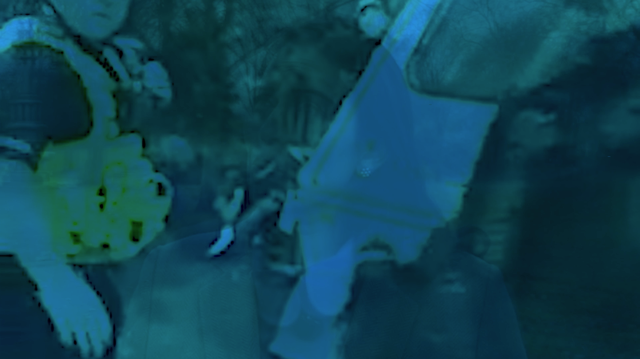
 ERODE
ERODE
Vereinigtes Königreich 2021 | Farbe |
03:22 | Englisch
 ERODE
ERODE
United Kingdom 2021 | Color |
03:22 | English
Der Film erforscht die Heuchelei und Wiederholung rassistischer Anti-Roma-Rhetorik in Großbritannien, indem er Tonaufnahmen konservativer Tory-Politiker:innen mit dokumentarischem Filmmaterial der Realität vieler Roma* kombiniert. Unter Verwendung von dröhnenden Geräuschkulissen und verstörenden Bildern der jüngsten Polizeibrutalität gegen Roma* fordert ERODE das Publikum auf, den wiederholten Lügen und der Bigotterie der Politiker:innen zuzuhören.
ERODE is a piece by filmmaker Charles Newland exploring the hypocrisy and repetition of racist anti-GRT rhetoric in Britain, combining dog-whistle Tory soundbites with footage of the insidious reality in a montage style. Utilising droning soundscapes and disturbing imagery of recent police brutality against GRT people, ERODE asks the audience to listen to the repeated lies and bigotry of the powers-that-be, including the likes of Home Secretary Priti Patel, who is featured in a campaign trail interview.
Regie:
Director:
Charles Newland
Roma Lost (2014), Weeping Walls (2014), Sorry About the Mess (2009)
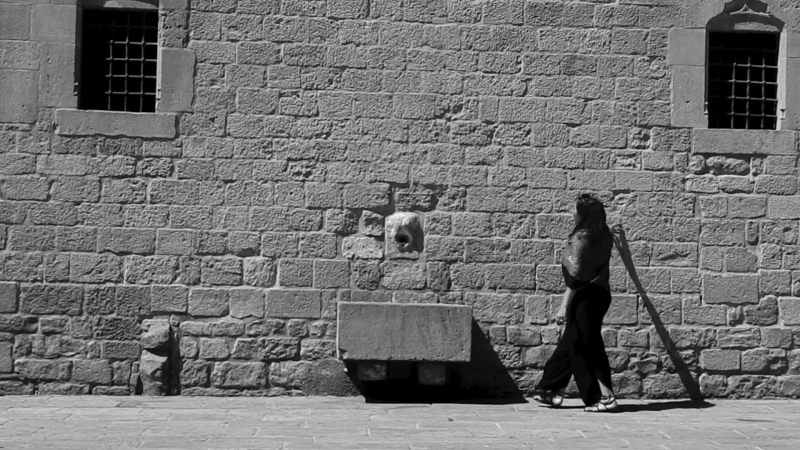
 The Great Raid
The Great Raid
Spanien 2020 | Farbe |
15:23 | Spanisch
 The Great Raid
The Great Raid
Spain 2020 | Color |
15:23 | Spanish
Der Kurzfilm handelt von den Ereignissen des 30. Juli 1749, die als »Großer Raubzug« bekannt geworden sind, der Verhaftung und Vertreibung der Roma durch die spanischen Behörden. Der Film nutzt Musik, insbesondere das Instrument Martinete mit seinem repetitiven Klang, um die Gefühle von Ohnmacht und Ungerechtigkeit darzustellen.
The short film deals with the events of the 30th July 1749 which have become known as the »Great Raid«, the detention and expulsion of the Roma by the Spanish authorities. The film uses the means of music, especially the instrument martinete with its repetitive sound, to show the feelings of powerlessness and injustice.
Regie, Script, Kamera, Editing:
Director, Script, Director of photography, Editing:
Seo Cizmich
Script:
Script:
David Cortes
Kamera:
Director of photography:
Guillermo Guisá
Editing:
Editing:
Matteo Micatovich
Editing, Ton:
Editing, Sound design:
Sergio Lucas
Produktionsfirma:
Production company:
Romano Kher
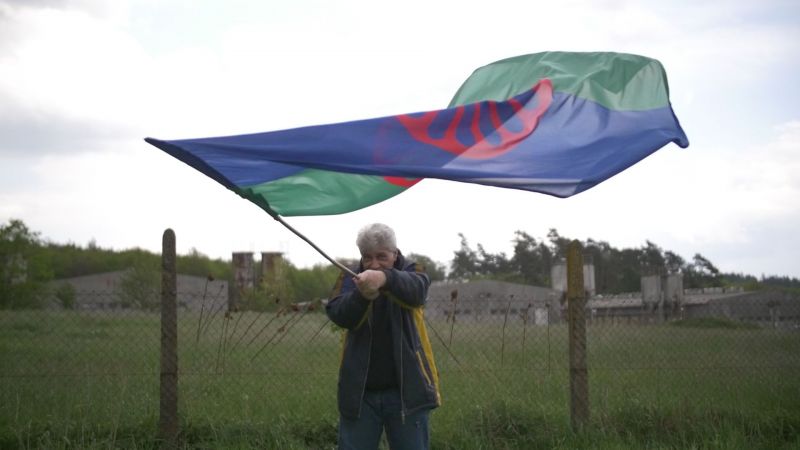
 Jožka
Jožka
Tschechien, Deutschland 2016 | Farbe |
26:00 | Tschechisch
 Jožka
Jožka
Czech Republic, Germany 2016 | Color |
26:00 | Czech
Der kurze Dokumentarfilm zeigt Jozef Miker während seiner Proteste gegen eine Schweinemastanlage, die auf dem Gelände des ehemaligen Konzentrationslagers in der Nähe von Lety in Südböhmen errichtet wurde. Hunderte von Roma kamen dort unter dem NS-Regime ums Leben. Der Protagonist mit dem Spitznamen Jožka, der nach langjähriger Beschäftigung als Bergarbeiter krank wurde, hat seinen überzeugenden Optimismus, seinen Humor und seinen Glauben an eine bessere Gesellschaft nie verloren.
This short documentary film shows Jozef Miker during his protests against a pig fattening facility that was built on the site of the former concentration camp near Lety in South Bohemia. Hundreds of Roma died there under the Nazi regime. The protagonist, nicknamed Jožka, who fell ill after working as a miner for many years, never lost his convincing optimism, his humor, and his belief in a better society.
Regie:
Director:
Hamze Bytyçi
Kamera:
Director of photography:
Milan Durňak
Editing:
Editing:
Mirja Gerle
Music:
Music:
Herr von und zu
Produzent:in, Ton:
Producer, Sound design:
Veronika Patočková
Ton:
Sound design:
Andreas Fertig
Noncia (2022), Menschen können zweimal sterben (2022), Branko (2022), Familie Ujvari (2022), Haus ohne Räder (2022), Listen (2022), I Sang Again (2022),…die bringen nur die Verbrecher weg (2019), Memory Boxes (2019)

Archive 1: Resisting Erasure – Romani Memory and Identity 2 share
Archive 1: Resisting Erasure – Romani Memory and Identity 2 share
Film ist ein mächtiges Mittel zur Bewahrung kultureller Erinnerung – doch Sinti* und Roma* bleibt der Zugang zu ihrer eigenen visuellen Geschichte häufig verwehrt. Die beiden Kurzfilmprogramme stellen sich grundlegenden Fragen: Wer kontrolliert unsere Geschichten? Wer entscheidet, was bewahrt wird – und wer es sehen darf? »Resisting Erasure« gibt vor allem Roma* Stimmen Raum und setzt sich dafür ein, dass Geschichte aus der eigenen Perspektive erzählt wird.
Kuratiert von Lisa Smith
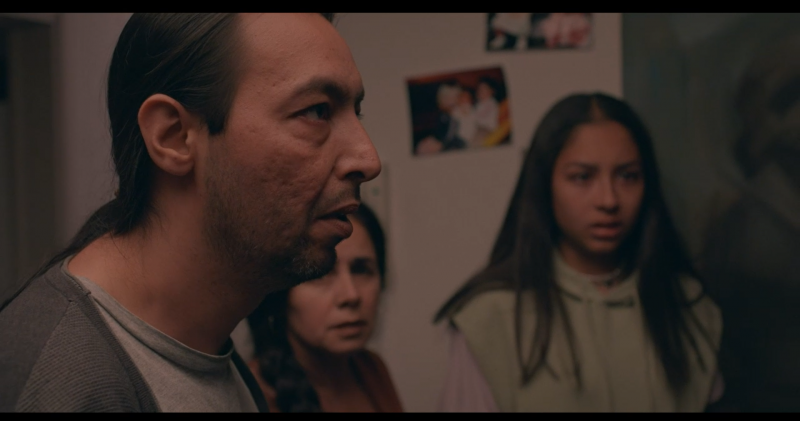
 Fünfzehn Minuten (Fifteen Minutes)
Fünfzehn Minuten (Fifteen Minutes)
Deutschland 2022 | Farbe |
13:08 | Deutsch, Romani
 Fünfzehn Minuten (Fifteen Minutes)
Fünfzehn Minuten (Fifteen Minutes)
Germany 2022 | Color |
13:08 | German, Romani
Jasmina erhält einen Anruf von ihrem Freund Lukas, der sie überredet, nach draußen zu kommen. Während die beiden noch telefonieren, klingelt es an der Tür. Statt Lukas steht dort die Polizei. Sie teilt Jasmina und ihren Eltern mit, dass sie innerhalb von fünfzehn Minuten abgeschoben werden. Für Jasmina bricht eine Welt zusammen. Die langersehnte Klassenfahrt nach Berlin und ihre Pläne, Lukas dabei näher kennenzulernen, sind dahin. In ihrer Verzweiflung bittet sie Lukas um Hilfe, dessen Mutter Anwältin ist.
Jasmina gets a call from her friend Lukas who persuades her to come outside. While the two are still talking on the phone, the doorbell rings. Instead of Lukas the police is at the door. They tell Jasmina and her parents that they will be deported within fifteen minutes. For Jasmina, a world comes crashing down. The long-awaited class trip to Berlin and her plans to get to know Lukas better on that trip are gone. In desparation, Jasmina asks Lukas for help whose mother is a lawyer.
Regie, Script:
Director, Script:
Sejad Ademaj
Kamera:
Director of photography:
Terry Kraatz
Editing:
Editing:
Paula Meier
Music:
Music:
Peter Albrecht
Ton:
Sound design:
Timo Klabunde
Ton:
Sound design:
Felix Krieger
Produktionsfirma:
Production company:
guest
Blockjunge (2018), Bitte benehmt euch (2017)
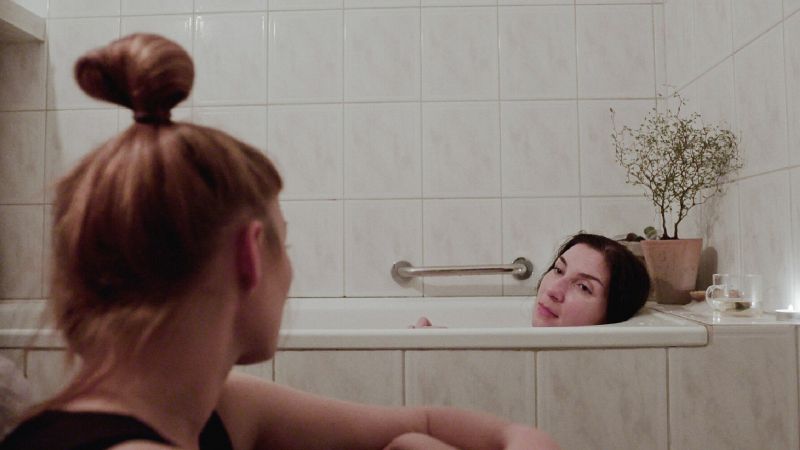
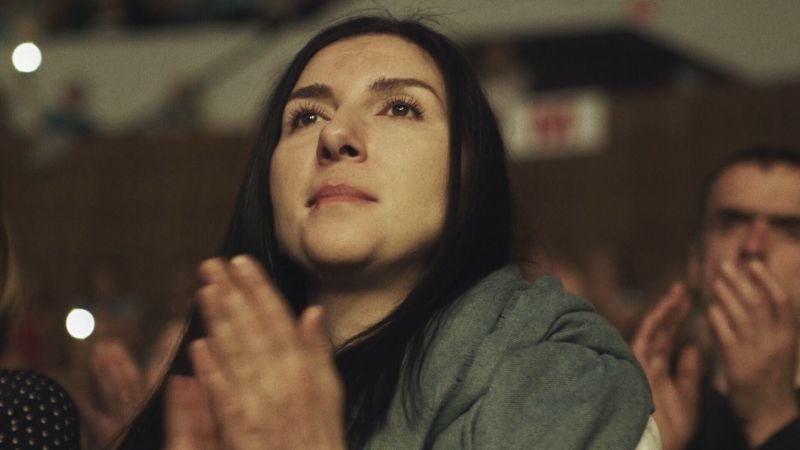
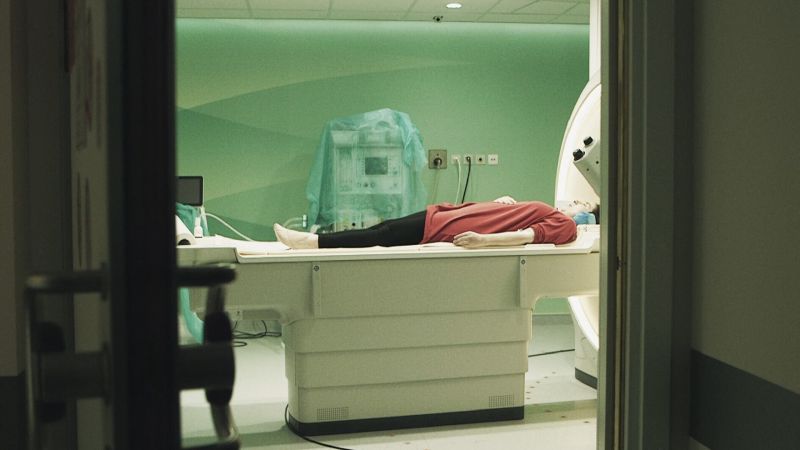
 Gypsy Gadji
Gypsy Gadji
Polen 2024 | Farbe |
28:00 | Polnisch, Englisch
 Gypsy Gadji
Gypsy Gadji
Poland 2024 | Color |
28:00 | Polish, English
Die Roma* in Polen sind die größte und am stärksten marginalisierte ethnische Minderheit. Roksana identifiziert sich sowohl als Roma (Gypsy) als auch als Polin (Gadji). Sie arbeitet als Lehrerin und setzt sich dafür ein, dass Roma-Kinder die Schule besuchen, denn mehr als die Hälfte verlässt die Schule vor dem 16. Lebensjahr. Sie könnte die perfekte Vemittlerin sein, aber beide Kulturen möchten, dass sie die andere ablehnt. Roksana jedoch möchte dazugehören.
The Roma* in Poland are the largest and the most marginalised ethnic minority. Roksana identifies as both Roma (Gypsy) and Polish (Gadji). Employed as a teaching assistant, she works to keep Roma children in school as more than half leave education before the age of sixteen. She could be the perfect bridge, but each culture wants her to reject the other. Roksana, however, desires to belong.
Regie, Produzent:in, Kamera:
Director, Producer, Director of photography:
Dasa Raimanova
Kamera:
Director of photography:
Zuzanna Zachara Hassairi
Editing:
Editing:
Dorota Ros
Produzent:in:
Producer:
Rafal Sakowski
Ton:
Sound design:
Pawel Uszynski
Rich & Poor (2024), Sinti and the Holocaust (2024), Across the Road - Worlds Apart (2019), POLYLAND (2018)
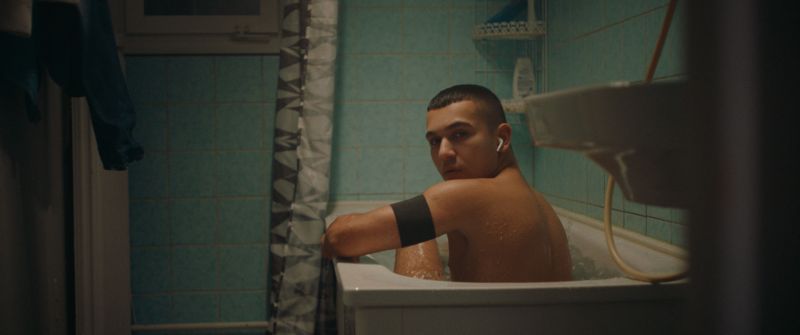
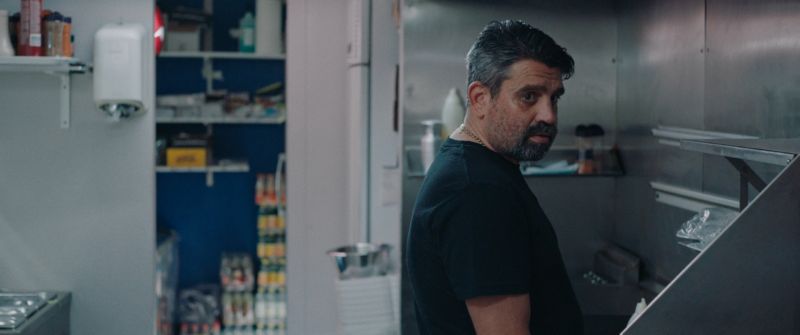
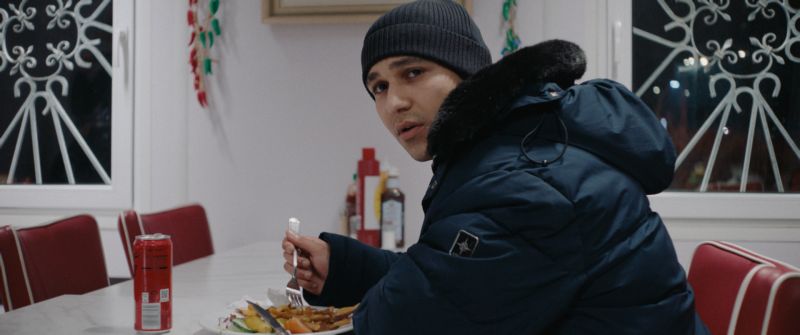
 Tjena Tjavo (Chavo)
Tjena Tjavo (Chavo)
Schweden 2023 | Farbe |
15:00 | Romani, Schwedisch
 Tjena Tjavo (Chavo)
Tjena Tjavo (Chavo)
Sweden 2023 | Color |
15:00 | Romani, Swedish
Tommys Imbiss ist ein Treffpunkt für die Roma-Community. Hier trifft sich eine eng verbundene, aber bunt zusammengewürfelte Gruppe von Menschen zum Essen und Reden. Als eines Abends ein einsamer junger Mann das Restaurant besucht, machen Gerüchte die Runde, und Tommy ist gezwungen, traumatische Erinnerungen wieder aufleben zu lassen.
Tommy’s grill is a meeting point for the Roma community. Here a tightly-knit but motley crew of people gathers to eat and talk. When a lone young guy visits the restaurant one evening, rumors begin to spread and Tommy is forced to revisit traumatic memories.
Regie, Script:
Director, Script:
Alecio Araci
Kamera:
Director of photography:
Arpi Sahakyan
Editing:
Editing:
Rasmus Ohlander
Editing:
Editing:
Alvis Wolff
Darsteller:innen:
Cast:
Ado Mehić Džafić
Darsteller:innen:
Cast:
Ardijan Bunjoshi
Darsteller:innen:
Cast:
Michell Tatter Alfredsson
Darsteller:innen:
Cast:
Paul Dandos
Darsteller:innen:
Cast:
Philip Torres Örning
Darsteller:innen:
Cast:
Rosmari Kaldaras
Produzent:in:
Producer:
Alicia Hansen
Produzent:in:
Producer:
Bitte Andersson
Mami (2024), Jagalo (2020)
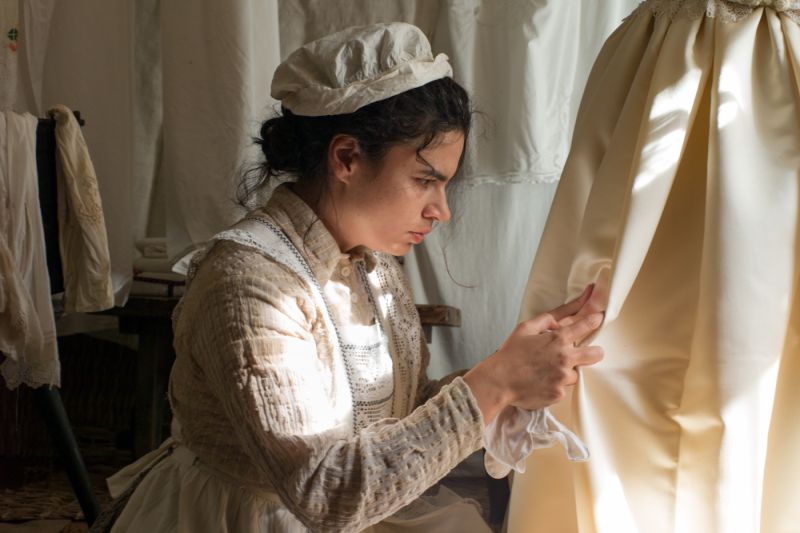
 Bilet de iertare (Letter of Forgiveness)
Bilet de iertare (Letter of Forgiveness)
Rumänien 2020 | Farbe |
15:00 | Romani
 Bilet de iertare (Letter of Forgiveness)
Bilet de iertare (Letter of Forgiveness)
Romania 2020 | Color |
15:00 | Romani
1855, Rumänien, im Haushalt einer wohlhabenden Adeligen. Die Vorbereitungen für ein vornehmes Abendessen laufen auf Hochtouren, denn die vornehmen Gäste treffen ein. Maria, eine Roma-Sklavin, nimmt ihren Mut zusammen und ist entschlossen, heute ihre Freiheit zu erlangen. Eine auf wahren Begebenheiten beruhende Geschichte über Mut und Widerstand, die die Unverwüstlichkeit einer bemerkenswerten Frau würdigt, die den Lauf eines ganzen Landes veränderte.
1855, Romania, in a wealthy household of a noblewoman. Preparations for a posh dinner are heating up, as the distinguished guests are coming in. Maria, a Roma slave, is plucking up courage, determined to make a stand and earn her freedom. A based-on-true-events story of bravery and resistance that pays tribute to the resilience of a remarkable woman who changed the course of an entire country.
Regie, Script:
Director, Script:
Alina Șerban
Kamera:
Director of photography:
Julia Kacalak
Editing:
Editing:
Roxana Szel
Music:
Music:
Vlaicu Golcea
Ton:
Sound design:
Alexandru Dragomir
Ton:
Sound design:
Florian Stoica
Ton:
Sound design:
Iolanda Girleanu
Sales:
Sales:
Untold Stories Artistic Company
La revedere, castelule! (2024), Eu sunt Nicu (2022), Amare Paramica (2022), Despre noi - Vanessa (2022), Eu contez (2021)
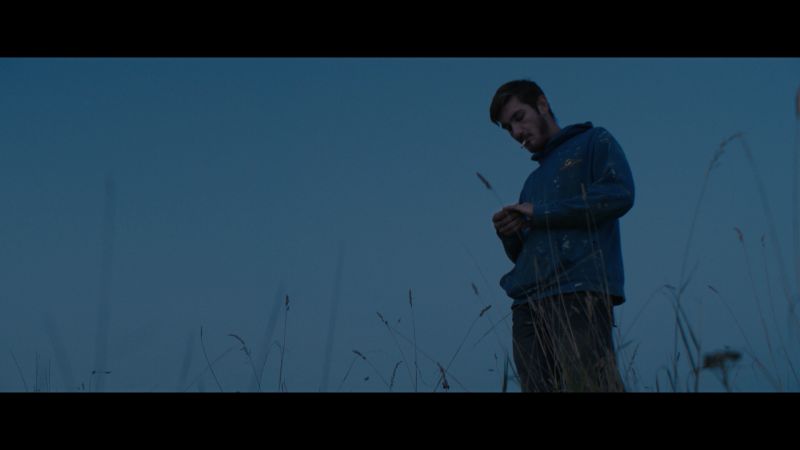
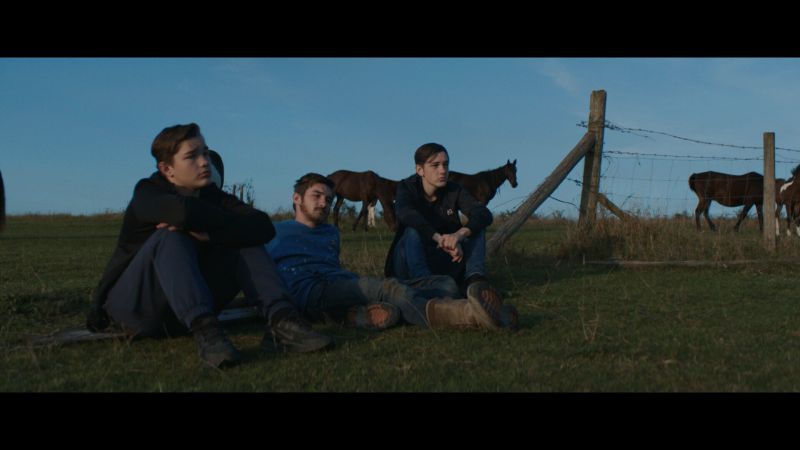
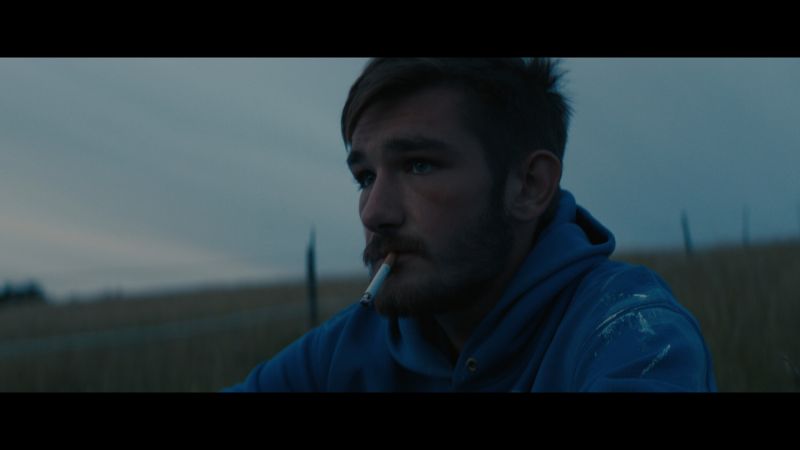
 Latcho Drom (Good Road)
Latcho Drom (Good Road)
Vereinigtes Königreich 2024 | Farbe |
18:42 | Englisch
 Latcho Drom (Good Road)
Latcho Drom (Good Road)
United Kingdom 2024 | Color |
18:42 | English
Während Sonnyboy, ein junger Rom, versucht, mit dem Tod seines Vaters fertigzuwerden, bedroht eine Reihe von Ereignissen die Familie und ihre Lebensweise.
As Sonnyboy, a young Romani man, struggles to come to terms with his father’s passing, a series of events threaten the family and their way of life.
Regie, Script:
Director, Script:
Lottie Graham
Kamera:
Director of photography:
Essi Hyrkki
Editing:
Editing:
Lauren Wynter
Music:
Music:
Charli Mackie
Ton:
Sound design:
Alina Ushakova
Produzent:in:
Producer:
Victoria Rocamora
Darsteller:innen:
Cast:
Badger Skelton
Darsteller:innen:
Cast:
Buddy Skelton
Darsteller:innen:
Cast:
Sonnyboy Skelton
Eleven (2024), Liar (2023), Scarlet (2020)

 ARCHIVE2: Musical Africa
ARCHIVE2: Musical Africa
This program presents a series of bold and intimate films that explore how sound is deeply interwoven with personal and collective journeys. Curated by Aaron Kassaye

Archive 2: Musical Storytelling from Africa share
Archive 2: Musical Storytelling from Africa share
Von den emotionalen Gesängen Nordafrikas bis zum elektrisierenden Pulsschlag zentral- und ostafrikanischer Städte – Musik ist seit langem eine der wichtigsten erzählerischen Kräfte des Kontinents. Getragen von Stimme, Rhythmus, Atem und Stille, birgt sie die Erinnerung an die Vorfahren, stärkt den Widerstand und öffnet den Raum für Transformation.
Dieses Programm präsentiert eine Reihe mutiger und intimer Filme, die erforschen, wie tief Klang mit persönlichen und kollektiven Reisen verwoben ist. Die Musik ist dabei mehr als nur eine Kulisse oder ein Soundtrack, vielmehr tritt sie als lebendiger Charakter hervor. Manchmal ist sie eine Quelle von Konflikten, manchmal ein Kanal für Heilung und Selbsterkenntnis. Klang wird zu einer Form des Ausdrucks, der Rebellion, des Verlangens und der Kontinuität. Die Filme zeigen, wie Musik angesichts sich verändernder kultureller Landschaften von neuen Generationen geerbt, verkörpert und neu erfunden wird – sei es in Marokko, im Kongo oder in Äthiopien.
»Echoes of the Continent« ist eine Einladung, anders zu hören: auf die Frequenzen der Erinnerung, der Sprache und der Bewegung. Es ist nicht nur eine Hommage an die Vielfalt der afrikanischen Musiktraditionen, sondern führt auch den Beweis, wie das Kino den Puls einer Kultur in Bewegung hörbar machen kann: vielschichtig, intim, trotzig und lebendig.
Kurator: Aaron Kassaye
From the soulful chants of North Africa to the electrified pulse of Central and East African cities, music has long been one of the continent’s most vital narrative forces. Carried by voice, rhythm, breath, and silence, it holds ancestral memory, fuels resistance, and opens space for transformation. This program brings together a selection of bold and intimate films that explore how deeply sound is interwoven with personal and collective journeys. More than a backdrop or soundtrack, music is portrayed as a living character: at times a source of conflict, at others, a channel for healing and self-discovery. These films unfold in spaces where sound becomes a form of expression, rebellion, desire, and continuity. They explore how music is inherited, embodied, and reimagined by new generations in the face of changing cultural landscapes. From the charged stillness of rural Morocco to the kaleidoscopic energy of Kinshasa, and the spiritual depth of Ethiopia, each work invites us into a cinematic experience where sound and image are inseparable. This selection invites us to listen differently: to tune into frequencies of memory, of language, of movement. It is not only a tribute to the diversity of African musical traditions, but a celebration of how cinema can render audible the pulse of a culture in motion: layered, intimate, defiant, and alive.
Curator: Aaron Kassaye
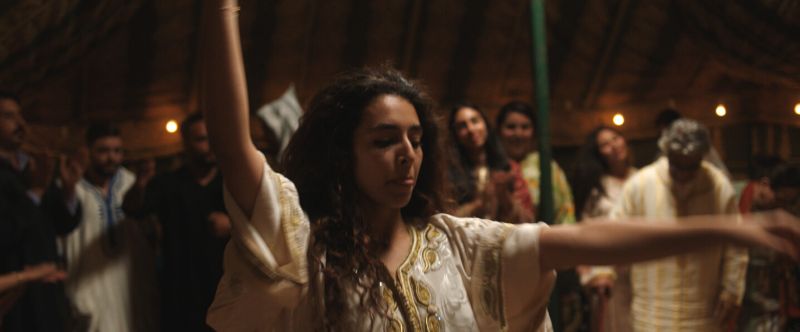
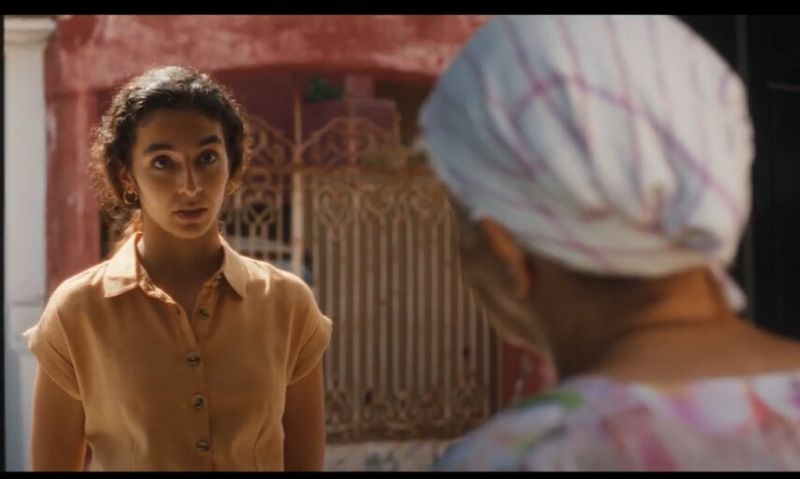
 CHIKHA - شِيخَة (CHIKHA - QUEEN)
CHIKHA - شِيخَة (CHIKHA - QUEEN)
Marokko, Frankreich 2024 | Farbe |
25:06 | Französisch, Arabisch
 CHIKHA - شِيخَة (CHIKHA - QUEEN)
CHIKHA - شِيخَة (CHIKHA - QUEEN)
Morocco, France 2024 | Color |
25:06 | French, Arabic
1994 lebt die 17-jährige Fatine in Azemmour, Marokko, mit ihrer Mutter Nadia, einer Chikha, einer traditionellen Tänzerin und Sängerin, und ihrem Großvater. Nach ihrem Schulabschluss ist sie hin- und hergerissen zwischen zwei gegensätzlichen Wegen: entweder die künstlerische Tradition der Familie fortzuführen oder ein geordneteres Leben mit ihrem Freund Youssef zu führen, der ihr künstlerisches Erbe ablehnt. Ein unvorhergesehenes Ultimatum zwingt sie, eine radikale Entscheidung zu treffen.
In 1994, Fatine, a 17 year-old girl, lives in Azemmour, Morocco, with her mother Nadia, a chikha by profession, as well as with her grandfather. Having finished highschool, she is torn between two opposing paths: either perpetuate the family artistic tradition or lead a more ordered life with her boyfriend Youssef, who rejects her sulphurous artistic heritage. As deeply in love with Youssef as with the artistic heritage of Aïta, she has to decide on the direction of her life to fulfill herself. An unforeseen ultimatum forces her to make a radical decision.
Regie, Script:
Director, Script:
Ayoub Layoussifi
Regie, Script:
Director, Script:
Zahoua Raji
Kamera:
Director of photography:
Xavier Castro
Verleihfirma:
Distributor:
Sudu Connexion
Raji Raji
YAMINA ZAROU
Darsteller:innen:
Cast:
HATIM SEDDIKI
Darsteller:innen:
Cast:
RITA KRIBI
Darsteller:innen:
Cast:
SANAE GUEDDAR
Darsteller:innen:
Cast:
YOUSSEF FAL
Produzent:in:
Producer:
David Azoulay
Produzent:in:
Producer:
NAJIB DERKAOUI
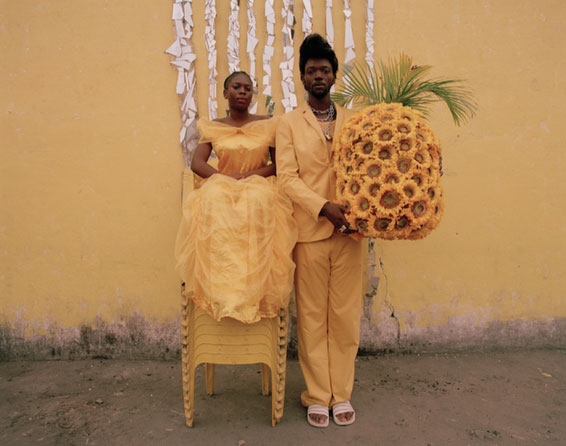
 Zombies
Zombies
Kongo, Demokratische Republik, Belgien 2018 | Farbe |
14:51 | Lingala
 Zombies
Zombies
Democratic Republic of the Congo, Belgium 2018 | Color |
14:51 | Lingala
Eine Reise zwischen Hoffnung und Dystopie in einem halluzinierten Kinshasa – vom Friseursalon zum futuristischen Club, von der Parade des Diktators bis zum modernen Western.
A journey between hope and dystopia in a hallucinated Kinshasa – from the culture of the hair salon to a futuristic clubbing, from the urban parade to the glory of a dictator in campaign to a modern western.
Regie, Script, Künstlerische Leitung:
Director, Script, Art direction:
Baloji
Kamera:
Director of photography:
Joachim Philippe
Kamera:
Director of photography:
Amory Duquenne
Editing:
Editing:
Bruno Trarq
Editing:
Editing:
Ayrton Heymans
Ton:
Sound design:
Cedrick Mbomgo
Augure: Infinite Trolling (2024), Omen (2023), Never Look at the Sun (2019), Kaniama Show (2018), Peau de chagrin / Bleu de nuit (2018)
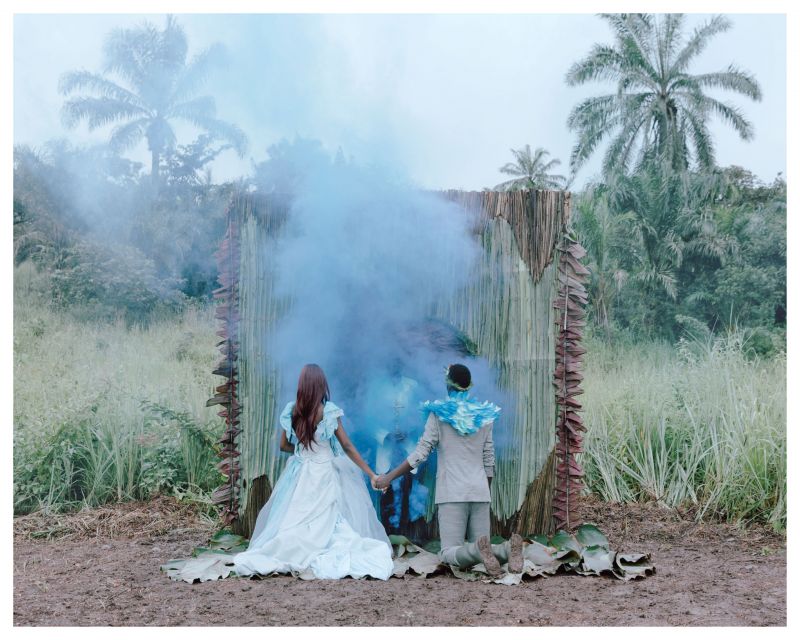
 Peau de chagrin / Bleu de nuit
Peau de chagrin / Bleu de nuit
Kongo, Demokratische Republik, Belgien 2018 | Farbe |
09:56 | Französisch, Lingala
 Peau de chagrin / Bleu de nuit
Peau de chagrin / Bleu de nuit
Democratic Republic of the Congo, Belgium 2018 | Color |
09:56 | French, Lingala
Braut und Bräutigam, nur Stunden vor ihrer Hochzeit. In expressionistischen Kostümen und Kulissen entstehen metaphorische Bilder, die den widersprüchlichen Gefühlen Ausdruck verleihen.
A bride and groom, hours before their wedding. Expressionist costumes and backdrops create metaphorical images that illustrate the contradictory feelings.
Regie:
Director:
Baloji
Kamera:
Director of photography:
Joachim Philippe
Editing:
Editing:
Bruno Tracq
Augure: Infinite Trolling (2024), Omen (2023), Never Look at the Sun (2019), Kaniama Show (2018), Zombies (2018)
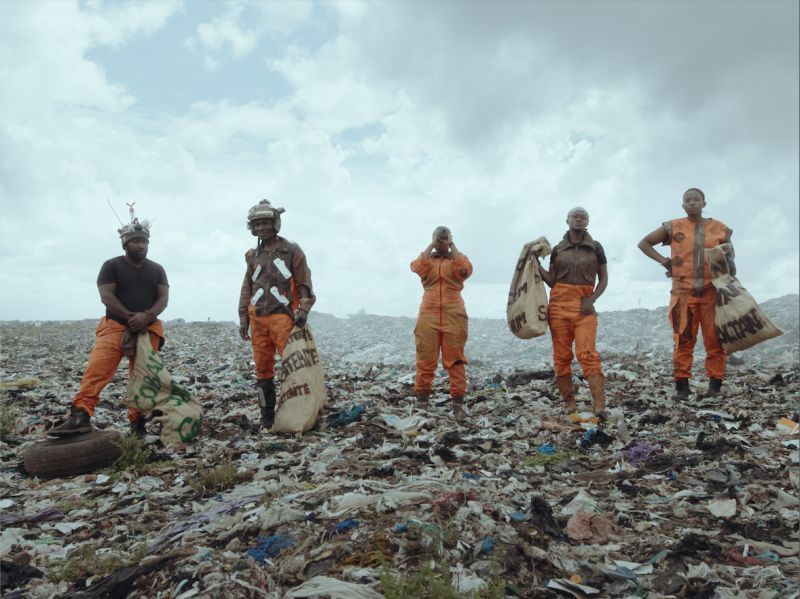
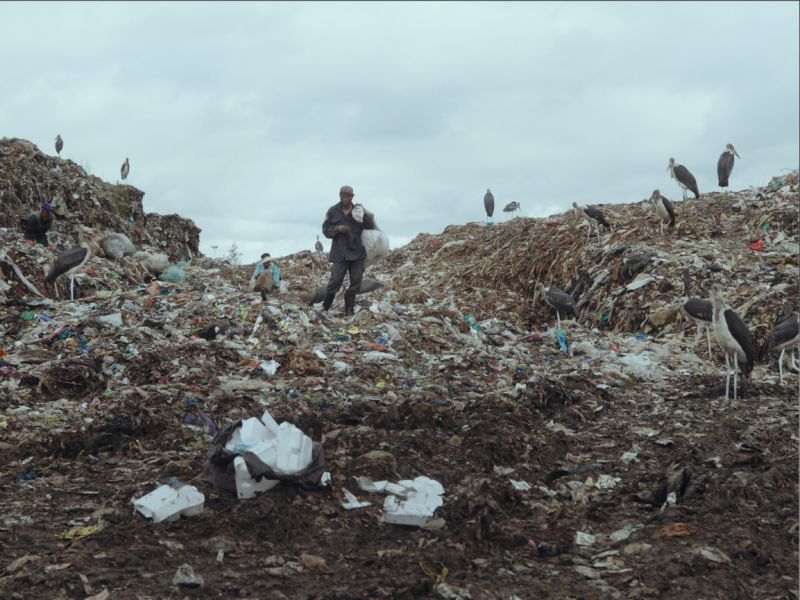
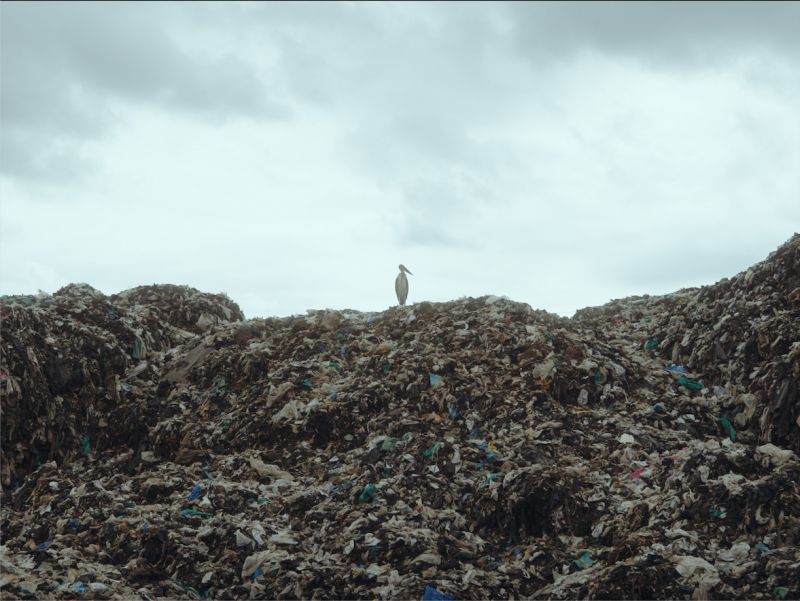
 Terra Mater
Terra Mater
Ruanda, Schweiz 2023 | Farbe |
10:07 | Englisch, Suaheli
 Terra Mater
Terra Mater
Rwanda, Switzerland 2023 | Color |
10:07 | English, Swahili
Selbstbewusst steht sie da, eine Göttin des Schrotts. Um sie herum endlose Berge aus Müll, Plastik und seltenen Erden: Terra Mater ist ein Appell an die Welt.
For our land and bones. At the end of the world. Technology and waste, in our lands, our systems, our bones. Wandering our spaces, she cannot help but wonder, where is the space for healing?
Regie, Produzent:in, Script:
Director, Producer, Script:
Kantarama Gahigiri
Editing:
Editing:
Jules Claude Gisler
Ton:
Sound design:
Eugène Safali
Produzent:in:
Producer:
Daniel Bleuer
Verleihfirma:
Distributor:
Sudu Connexion
Ethereality (2020), Tapis Rouge (2015)
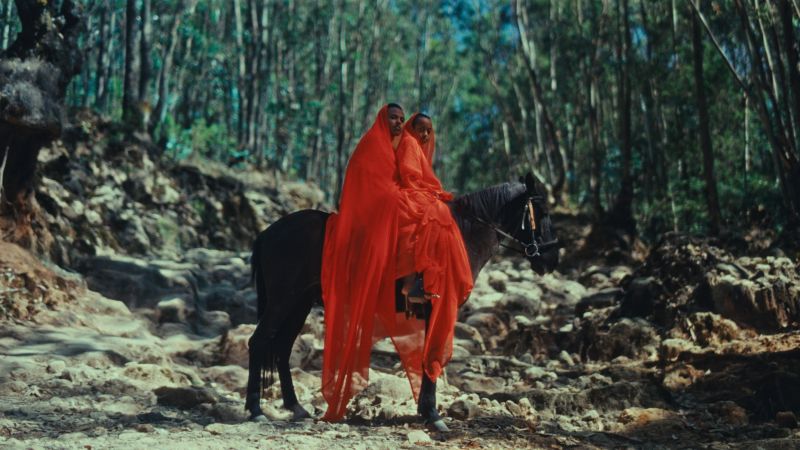
 The River
The River
Äthiopien 2024 | Farbe |
17:30 | Amharisch
 The River
The River
Ethiopia 2024 | Color |
17:30 | Amharic
Ein Geflecht von Erinnerungen, das die Kultur und die Erfahrungen von Frauen aus äthiopischer Perspektive feiert.
A beautiful weaving of memories that pay homage to culture and the experiences of women through the lens of Ethiopia.
Produzent:in:
Producer:
Chucha Studios
Produzent:in:
Producer:
Qene Films
Produzent:in:
Producer:
Firehiwot Berhane Germay
Regie:
Director:
Herrana Addisu
Kamera, Editing:
Director of photography, Editing:
Tedos Teffera Tesfaye
Editing:
Editing:
Amanuel Girma Ashenafi
Editing, Ton:
Editing, Sound design:
Ababa Studio
Ton:
Sound design:
Dagmawi Solomon Demeke

 Voices: Pakistan & Kurdistan
Voices: Pakistan & Kurdistan
Shout Out Loud! The Voices section presents stories that otherwise receive little attention: This year, two programs show perspectives from and about Pakistan and Kurdistan. *Curated by Razi Uddin and Deniz Şimşek.

Voices 1: After the Border, What Remains? Stories from Pakistan share
Voices 1: After the Border, What Remains? Stories from Pakistan share
Die fünf Filme des Programms bewegen sich zwischen Vergangenheit und Gegenwart und zeigen die Veränderungen und Brüche, die durch die Kolonisierung bewirkt wurden. Das Programm »After the Border, what remains?« beschränkt sich dabei nicht nur auf Pakistan, sondern erzählt die Geschichte des indischen Subkontinents und seiner Teilung 1947. Es zeigt, welche Konsequenzen diese Teilung für die Bevölkerung hatte, indem Menschen vertrieben oder Gesetze gegen sie erlassen wurden. Gesetze, die während der britischen Raj-Kolonialherrschaft auf dem Subkontinent eingeführt wurden und auch nach der Teilung der Region fortbestanden. Die Geschichten spiegeln die fundamentalen Auswirkungen wider, die bis heute spürbar sind. Die Teilung in zwei Staaten trennte Familien, erzwang eine Massenmigration und legte den Grundstein für den anhaltenden Konflikt zwischen zwei Nationen, die heute mit Atomwaffen ausgerüstet sind.
Kurator:in: Razi Uddin
These stories reflect on the lasting impact of history on people and communities today. Moving between past and present, these works explore how the effects of colonization still shape everyday life. The five films do not only represent Pakistan but also continue the wider story of the subcontinent and its divide in 1947. They show how that divide has affected us, by displacing people or creating laws against them. Laws that began during the British Raj colonial rule in the subcontinent and continued even after the region was split. These stories reflect the deep impact of that history, still felt today. The partition into two states separated families, forced mass migration, and laid the foundation for ongoing conflict between two nations now armed with nuclear weapons.
Curator: Razi Uddin
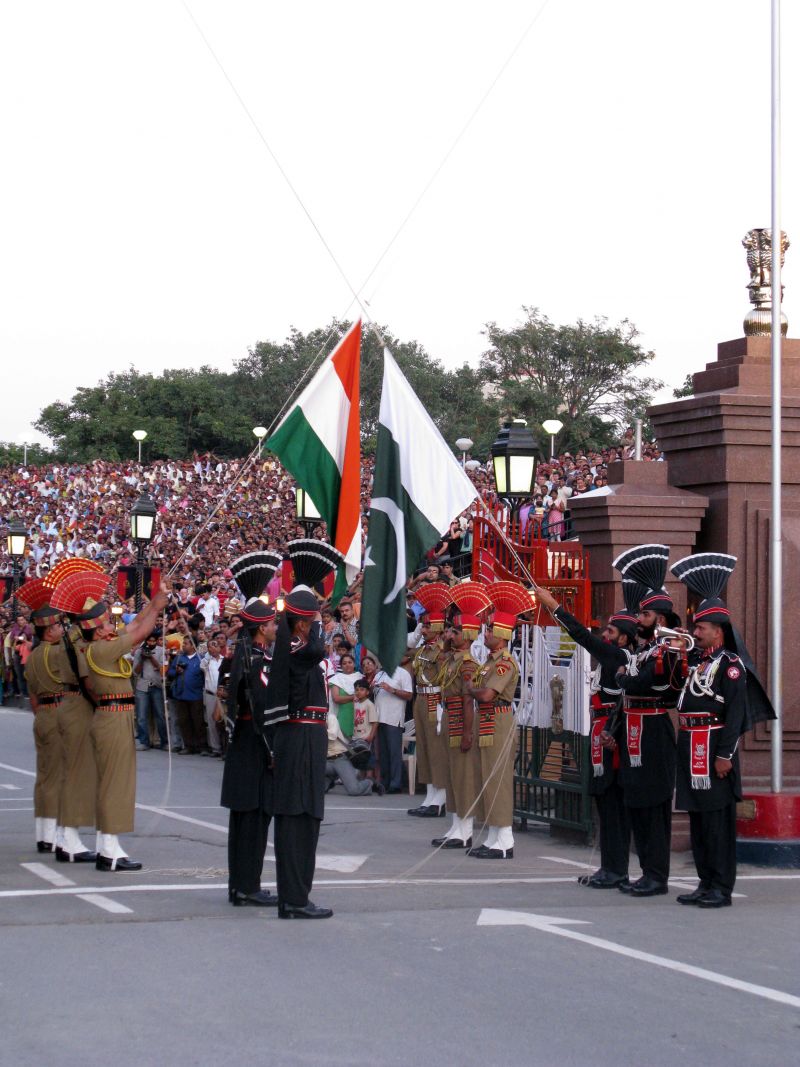
 Wagah
Wagah
Deutschland 2009 | Farbe |
12:00 | Urdu, Hindi, Farsi
 Wagah
Wagah
Germany 2009 | Color |
12:00 | Urdu, Hindi, Farsi
Jede Nacht wird der einzige Grenzübergang zwischen Indien und Pakistan zum Ort eines besonderen Ereignisses. Auf dem 1000 km breiten Streifen sammeln sich Tausende von Menschen, um dem rituellen Schließen der Grenzen beizuwohnen, nachdem die Massen so nah wie möglich an das Tor herangegangen sind, um ehemalige Nachbar:innen zu begrüßen.
Content notes:
Political Violence, Refugee experience and/or war
Each night, the only border-crossing between India and Pakistan on a 1000 km stretch becomes the scene of an extraordinary event. Thousands of people gather to witness the ritual closing of the border. The masses get as close to the gate as possible to greet their former neighbours.
Content notes:
Political Violence, Refugee experience and/or war
Regie:
Director:
Supriyo Sen
Kamera:
Director of photography:
Ranu Gosh
Kamera:
Director of photography:
Najaf Bilgrami
Editing:
Editing:
Szilvia Ruszev
Ton:
Sound design:
Sk. Abdul Rajjak
Ton:
Sound design:
Ghulam Mohudin Chand
Produzent:in:
Producer:
Henning Kamm
Produktionsfirma:
Production company:
DETAiLFILM
Verleihfirma:
Distributor:
Kurzfilm Agentur Hamburg
(Selection) Tangra Blues (2021), Waste Band (2019), Swimming Through The Darkness (2018, Hope Dies Last in War (2007), Way Back Home (2003)
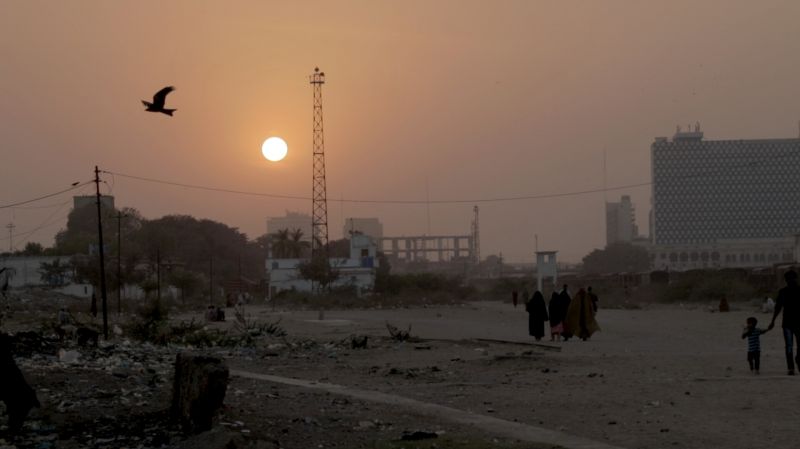
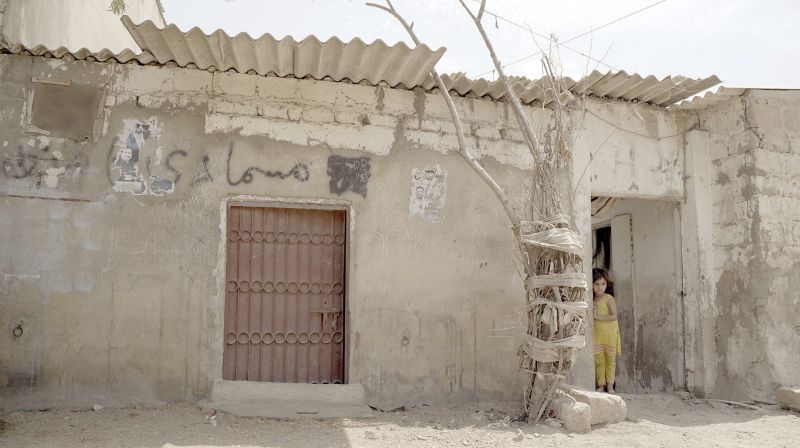
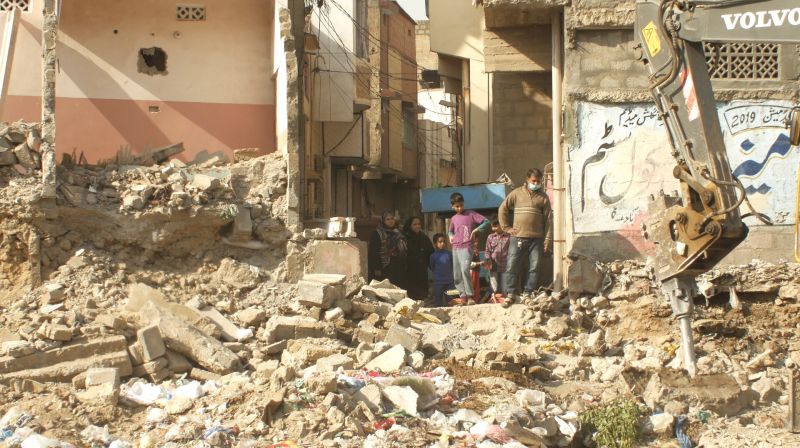
 مسماری نامنظور (Against the Rubble )
مسماری نامنظور (Against the Rubble )
Pakistan 2024 | Farbe |
20:32 | Englisch, Urdu
 مسماری نامنظور (Against the Rubble )
مسماری نامنظور (Against the Rubble )
Pakistan 2024 | Color |
20:32 | English, Urdu
Ein staatliches Entwicklungsprojekt könnte dazu führen, dass Tausende arme Stadtbewohner:innen ihr Obdach verlieren. Against the Rubble folgt Ayesha, einer jungen Bewohnerin von Garibabad (Karachi), deren Haus vom Abriss bedroht ist. Wie können Ayesha und ihre Gemeinschaft angesichts eines brutalen Staates, eines korrupten Rechtssystems und einer Stadt, in der Landrechte das Zentrum der Machtdynamik bilden, für ihr Zuhause kämpfen.
Content notes:
Political Violence, Refugee experience and/or war
A state development project could leave thousands of urban poor without shelter. Against the Rubble follows Ayesha, a young female resident of Garibabad (Karachi), whose home is threatened by demolition. Under a brutal state, a corrupt legal system, and a city where land rights are the locus of power dynamics, how can Ayesha and her community fight for their homes.
Content notes:
Political Violence, Refugee experience and/or war
Regie, Kamera, Produzent:in:
Director, Director of photography, Producer:
Gulzar Nayani
Kamera:
Director of photography:
Saqlain Hyder
Kamera:
Director of photography:
Uzair Ali
Kamera:
Director of photography:
Anam Abbas
Editing:
Editing:
Mashhood Jafri
Ton:
Sound design:
Shaur Azher
Produzent:in:
Producer:
Till Passow
Executive producer:
Executive producer:
Goethe Institut Pakistan
Executive producer:
Executive producer:
Shirkat Gah
Journey to Bhundaar (2024), Freedom (2021), No More Backseaters (2019)
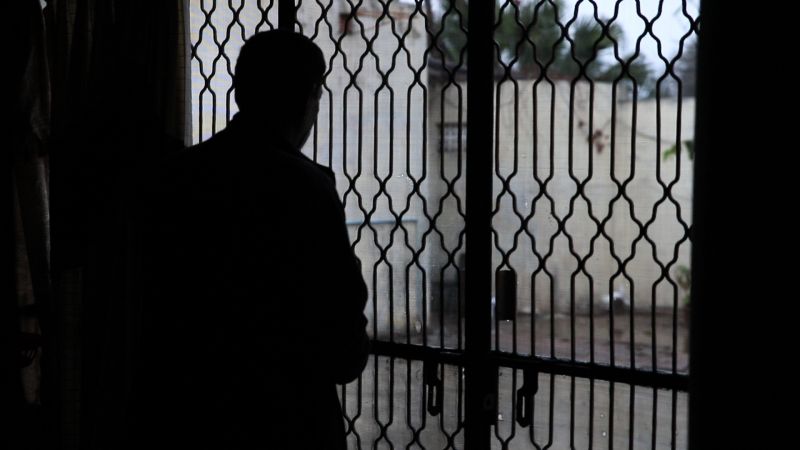
 298-C
298-C
Pakistan 2018 | Farbe |
15:00 | Urdu
 298-C
298-C
Pakistan 2018 | Color |
15:00 | Urdu
Eine Familie, die einer verfolgten Minderheit angehört, kehrt acht Jahre nach ihrer Ausreise nach Pakistan zurück. Bei einem Familientreffen sprechen sie über die Diskriminierung, der sie ausgesetzt sind.
Content notes:
Political Violence, Refugee experience and/or war, Physical violence, Racism
A family from a persecuted minority returns to Pakistan eight years after leaving. They discuss the discrimination they face over a familial get-together.
Content notes:
Political Violence, Refugee experience and/or war, Physical violence, Racism
Regie:
Director:
Nida Mehboob
Editing:
Editing:
Anas Ahmed
A Night that Took Everything (2025), How I Like It (2021), The Impossible (2018)
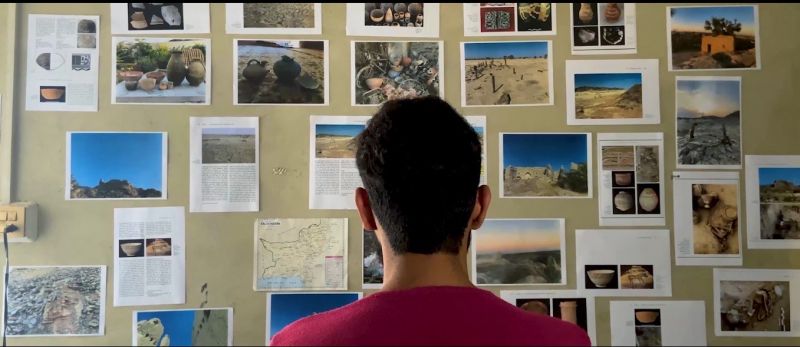
 The Land of My Forefathers
The Land of My Forefathers
Pakistan 2022 | Farbe |
19:01 | Balochi
 The Land of My Forefathers
The Land of My Forefathers
Pakistan 2022 | Color |
19:01 | Balochi
Ein Filmemacher erforscht die archäologische Geschichte Balochistans und stellt fest, dass der Ort, aus dem er stammt, eine große archäologische Bedeutung hat, die jedoch weitgehend undokumentiert ist. Er begibt sich auf eine Reise, um die alte, verlorene Geschichte seines Heimatlandes aufzudecken und zu verstehen, wie und warum diese Stätten und Artefakte in Vergessenheit geraten sind.
Content notes:
Colonial Violence
A filmmaker researching the archeological history of Balochistan discovers that the place he comes from has great archeological significance but it is largely undocumented. He sets out on a journey to uncover the ancient lost history of his homeland and to understand how and why these sites and artifacts have been forgotten.
Content notes:
Colonial Violence
Regie, Script, Kamera, Editing:
Director, Script, Director of photography, Editing:
Irfan Noor K.
Editing:
Editing:
Rashid Baloch
Ton:
Sound design:
Aleem Bukhari
Music:
Music:
Steve Oxen
Music:
Music:
Viz HQ
Music:
Music:
Mixkit
Army of Immortals (2020), A Love Letter from Balochistan (2019)
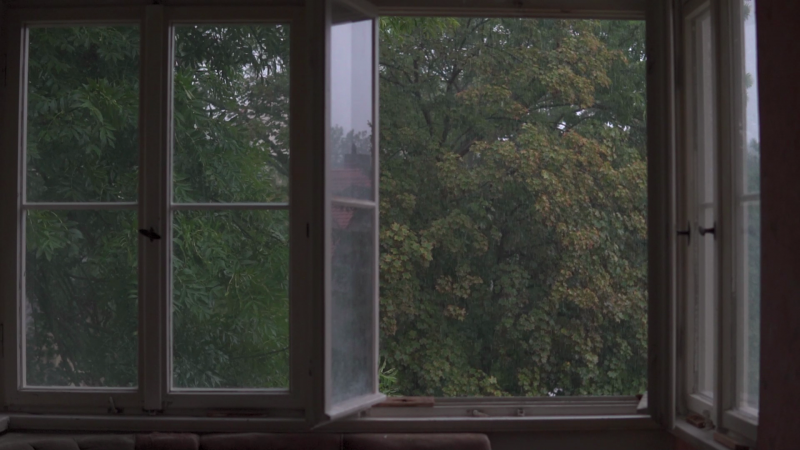
 Layers of Identity
Layers of Identity
Pakistan, Deutschland 2024 | Black & White and Color |
09:35 | Englisch, Urdu
 Layers of Identity
Layers of Identity
Pakistan, Germany 2024 | Black & White and Color |
09:35 | English, Urdu
Layers of Identity verbindet eine persönliche und familiäre Migrationsgeschichte mit der Geschichte des indischen Subkontinents. In einer Erkundung der Städte Karachi und Leipzig reflektiert der Film über die Suche nach einer Heimat und über Erfahrungen und Erinnerungen, die Identität formen.
Content notes:
Refugee experience and/or war
Layers of Identity links a personal and family story of migration with the history of the Indian subcontinent. In an exploration of the cities of Karachi and Leipzig, the film reflects on the search for a home, and experiences and memories that shape identity.
Content notes:
Refugee experience and/or war
Regie, Produzent:in, Kamera:
Director, Producer, Director of photography:
Razi Uddin
Kamera:
Director of photography:
Francis Nowak
Kamera:
Director of photography:
Umer Asim Usmani
Ingredients of Identity (2024), A Train to Home (2021)

Voices 2: Scattered as the Mountains: An Excavation into Kurdish Landscape(s) share
Voices 2: Scattered as the Mountains: An Excavation into Kurdish Landscape(s) share
Berge und Flüsse in und um Mesopotamien sind seit jeher ein Eckpfeiler des kurdischen kollektiven Gedächtnisses, als Heimat und natürlicher Schutz für kurdische Communitys. Ausgehend von dieser Topografie der Resilienz setzen die Filme des Programms »Scattered as the Mountains: An Excavation Into Kurdish Landscape(s)« Landschaften nicht nur als zentrale Schauplätze ein, sondern auch als Mittel, um die komplexen politischen Kontexte und Kämpfe zu erforschen, die in sie eingebettet sind. Die Geschichten, die diese Landschaften bevölkern, werden ausgegraben und sind gleichzeitig selbst ein Werkzeug der Ausgrabung: in das Land, in die eigene Erinnerung, in die Erinnerung derer, die Widerstand leisten, in die sich verändernde Natur des Belebten und Unbelebten oder in die fehlerhaften Schichten der Darstellung.
Kuratorin: Deniz Şimşek
Mountains and rivers in and around Mesopotamia have always been a cornerstone of Kurdish collective memory, as home and natural guards to Kurdish communities. Departing from this topography of resilience, the films in this program perceptively set landscapes not only as their main site but also as distinct devices to explore the complex political contexts and struggles embedded in them. The stories inhabiting these landscapes – that transcend beyond the artificial and imposed borders – are dug out and become the tools of excavation themselves. May it be an excavation into the land, into one's own memory, into the memory of those who resist, into the changing nature of the animate and the inanimate, or into the faulty layers of representation.
Curator: Deniz Şimşek
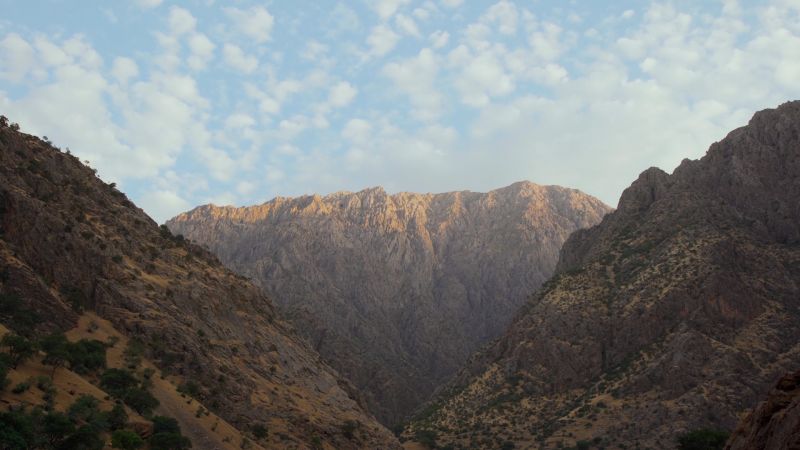
 Landscape Suspended
Landscape Suspended
Iran, Kanada 2022 | Farbe |
27:00 | Sorani Kurdish, Farsi
 Landscape Suspended
Landscape Suspended
Iran, Canada 2022 | Color |
27:00 | Sorani Kurdish, Farsi
Landscape Suspended erzählt die Geschichte eines »Verhörs« anhand von Aufnahmen des Shahoo-Bergs, einem Berg in Iranisch-Kurdistan, der ein Nomadenvolk namens Havar Neshins beherbergt. Der Film beobachtet den Lebensraum der Havar Neshins und nähert sich den komplexen Verbindungen der Menschen mit dem Land.
Content notes:
Refugee experience and/or war
Landscape Suspended tracks the story of an »interrogation« through the footages from Shahoo mountain, a mountain in Kurdistan of Iran which hosts a nomadic people called Havar Neshins. This film observes the living space of the nomadic people of Havar Neshins and the complex connections of the people and the landscape.
Content notes:
Refugee experience and/or war
Regie, Script, Kamera, Editing:
Director, Script, Director of photography, Editing:
Naghmeh Abbasi
Kamera:
Director of photography:
Siavash Yazdanmehr
Ton:
Sound design:
Faraz Anoushahpour
(Selection) A Flat Surface Higher than the Ground (2020), My Voice Takes on the Tone of a Convict (2018), White Shadow (2017), Inertia (2016), The Widest Window (2013), A Glimpse (2010)
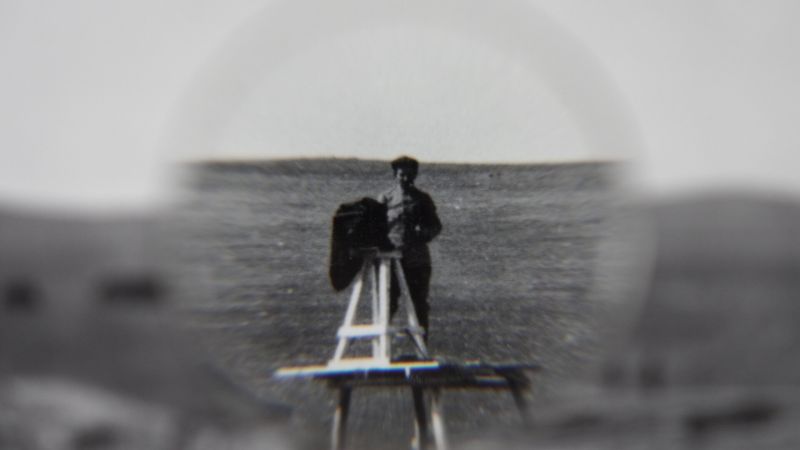
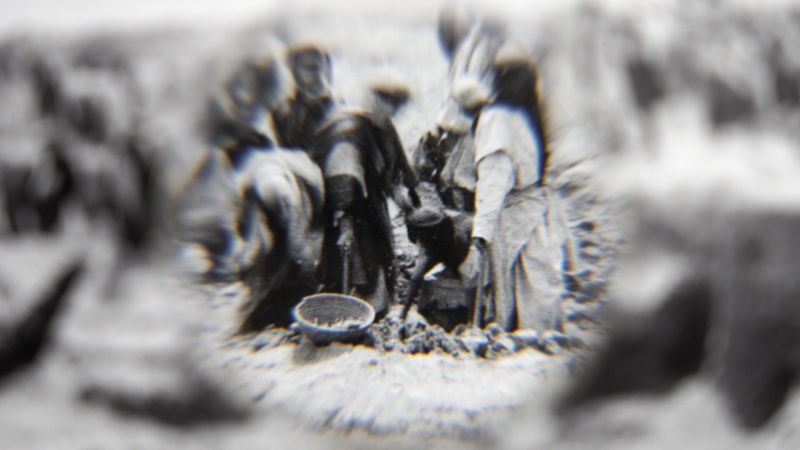
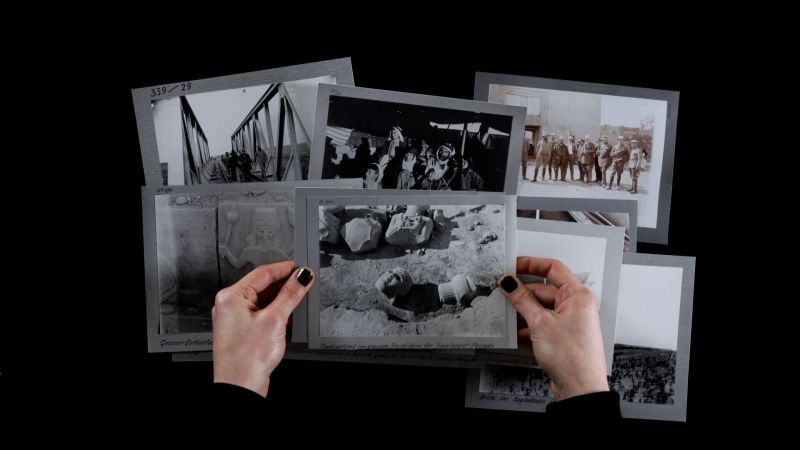
 Xabûr (Khabur)
Xabûr (Khabur)
Deutschland, Iran 2023 | Farbe |
30:25 | Kurmanji Kurdish
 Xabûr (Khabur)
Xabûr (Khabur)
Germany, Iran 2023 | Color |
30:25 | Kurmanji Kurdish
Der Khabur ist der längste Nebenfluss des Euphrat, ein grenzüberschreitender Fluss, der die Grenze zwischen der Türkei und Nordostsyrien/Rojava bildet. Der Film beginnt an einer archäologischen Stätte im Khabur-Tal und verfolgt die Reise der archäologischen Sammlung von Tell Halaf nach Berlin, wo sie seit 1930 aufbewahrt wird. Er zeichnet die wiederkehrende Gewalt in verschiedenen Zeiten und Kontexten entlang des Khabur-Flusses nach und beschäftigt sich mit den wirtschaftlichen und politischen Machtverhältnissen, die die Landschaft des Khabur-Tals geprägt haben.
Content notes:
Refugee experience and/or war
Khabur is the longest tributary of the Euphrates, a transboundary river crossing the border between Turkey and Northeastern Syria/Rojava. The film departs at an archaeological site in the valley of the Khabur River and follows the journey of Tell Halaf's archeological collection towards Berlin where it has been kept since 1930. It traces the circulation of violence in different times and contexts along the Khabur River and engages with the economic and political power relations that have been transforming the landscape of the Khabur valley.
Content notes:
Refugee experience and/or war
Ton:
Sound design:
Luka Barajević
Stimmen:
Voices:
Sozdar Jafarzadeh
Regie, Script, Kamera, Editing, Produzent:in:
Director, Script, Director of photography, Editing, Producer:
Nafis Fathollahzadeh
End of a Working Day (2020)
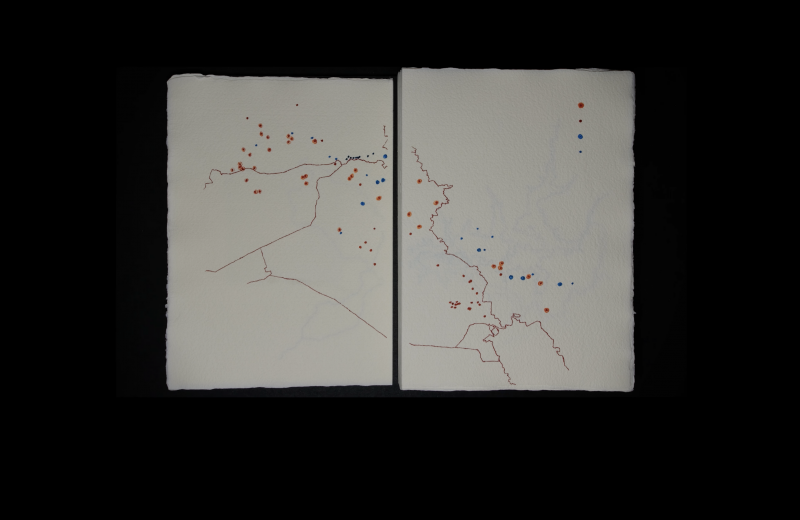
 A Turtle in Ten Seconds
A Turtle in Ten Seconds
Österreich 2023 | Farbe |
06:00 | Kein Dialog
 A Turtle in Ten Seconds
A Turtle in Ten Seconds
Austria 2023 | Color |
06:00 | No Dialogue
Euphrat und Tigris verändern sich im Kontext des anhaltenden Krieges in Kurdistan – sowohl räumlich als auch ideell. Staudammprojekte werden vorangetrieben, Elemente tauchen unter und tauchen auf, während eine junge mesopotamische Weichschildkröte zehn Sekunden lang in den Wasserturbulenzen auf den Kopf gestellt wird. Die Standbilder folgen dem Wunsch, die Lebensspanne einer bedrohten Art zu verlängern und zu konzeptualisieren.
The Tigris and Euphrates rivers are in constant transformation in the context of the ongoing war in Kurdistan – both spatial and memorial. Elements submerge and emerge in relation to dam projects while an infant Mesopotamian soft-shelled turtle moves for ten seconds upside-down in a moment of water turbulence. The still images follow a desire to dilate and conceptualize an endangered species' lifespan.
Regie, Animation, Script, Editing:
Director, Animation, Script, Editing:
Rojda Tugrul
Ton:
Sound design:
Michael Fischer
In the World of Possibilities (2024)
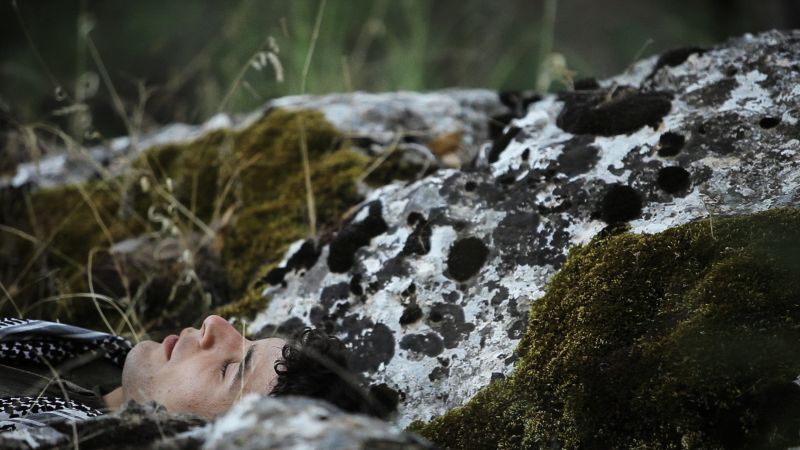
 Di vê navê de (Meanwhile)
Di vê navê de (Meanwhile)
Schweden 2014 | Farbe |
11:35 | Kurmanji Kurdish
 Di vê navê de (Meanwhile)
Di vê navê de (Meanwhile)
Sweden 2014 | Color |
11:35 | Kurmanji Kurdish
Meanwhile ist ein Film über Landschaften, Menschen, Leben und Zukunft. Gedreht in der Zeit der Friedensgespräche zwischen dem türkischen Staat und den Kurden, folgt der Film für einen Tag einer Gruppe von Guerillas, die durch die Berge wandern. Ein stilles Zeugnis politischen Widerstands.
Content notes:
Refugee experience and/or war
Meanwhile is a film about landscapes, humans, life, and future. Shot during the period of peace talks between the Turkish state and the Kurds, the film follows one day of a group of guerrillas walking through the mountains, providing a silent testimony to the politically charged group.
Content notes:
Refugee experience and/or war
Regie, Script, Kamera, Ton:
Director, Script, Director of photography, Sound design:
Savaş Boyraz
Partridge Nation (2021), The Crane Work (2019), The State We Are In (2019), Birthday Parents (2018), Up on the Horse Again (2015), Guerrilla portraits (Evin’s Story – Kobane – Simko) (2015), Invisible Landscapes (2012)
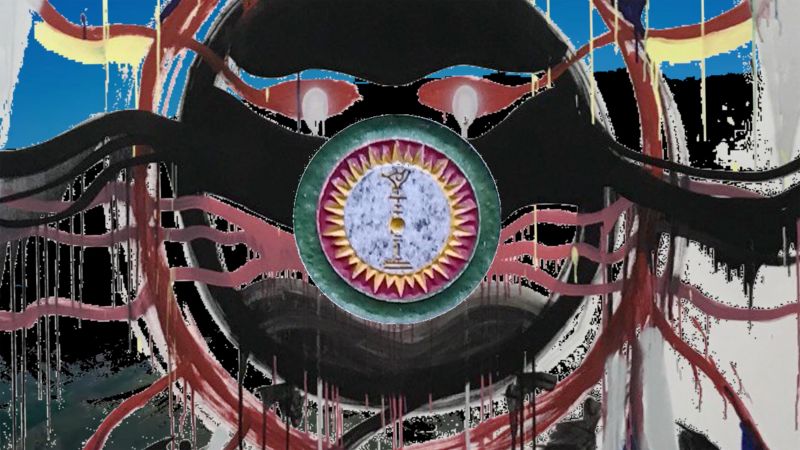
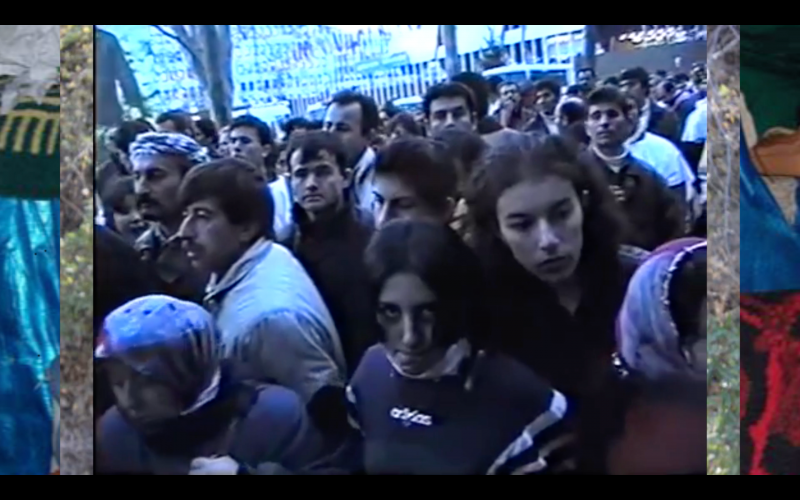
 Being Strong Is Hard
Being Strong Is Hard
Deutschland 2023 | Farbe |
04:12 | Kein Dialog
 Being Strong Is Hard
Being Strong Is Hard
Germany 2023 | Color |
04:12 | No Dialogue
Diese schnell aufeinanderfolgende Montage zeigt Bilder, die Frauen in Momenten des Widerstands dokumentieren. Ausgehend von ihrem eigenen Archiv digitaler Fotos und gefundenem Filmmaterial schuf Leyla Yenirce eine metaphorische Maschine, die permanent rotiert und so ständig neue Bilder (re-)produziert.
Content notes:
Refugee experience and/or war
This rapid successive montage shows images documenting women in moments of resistance. Based on her own archive of digital photos and found footage, Leyla Yenirce created a metaphorical machine that permanently rotates and thereby (re-)produces new images every second.
Content notes:
Refugee experience and/or war
Regie, Produzent:in, Editing:
Director, Producer, Editing:
Leyla Yenirce
Editing:
Editing:
Kuno Seltmann
Kontakt:
Contact:
Darija Šimunović
Splitter (2023), Nacht. Schlaf. Die Sterne (2021), Paradise (2019)

 Wildcard
Wildcard
There are always feature-length films that find no place or too little echo. That's why we use our festival to show some long films that we think are important. Works that reflection and enter into a dialog with the themes of the festival.

The Buriti Flower share
The Buriti Flower share
Dem Film voraus geht eine Gesprächsveranstaltung: WENN FILM UND LEBEN EINS WERDEN – GESPRÄCH ZUM FILM »THE BURITI FLOWER« am Fr, 06.06. 19:00 Uhr 3001 Kino
The film will be preceded by a discussion event: WHEN FILM AND LIFE BECOME ONE - TALK ABOUT THE FILM ‘THE BURITI FLOWER’ on Fri, 06.06. 19:00 3001 Cinema
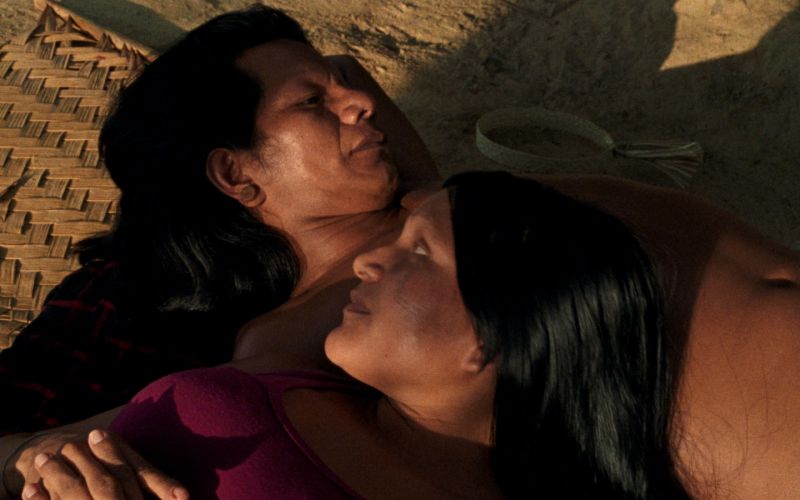
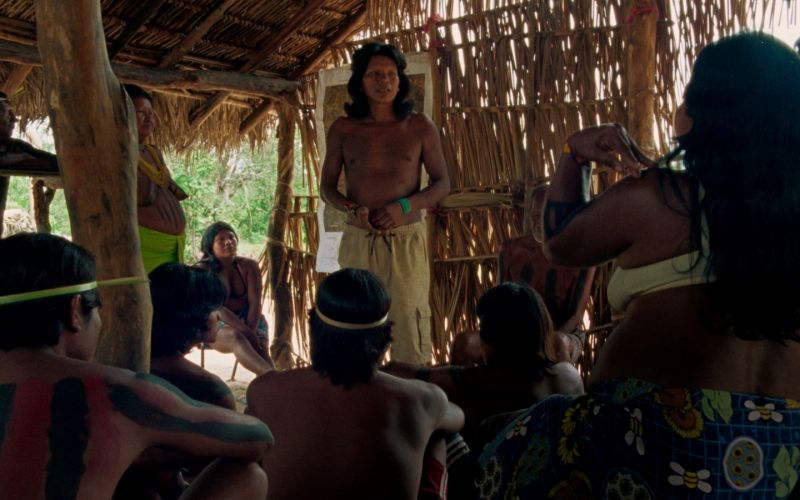
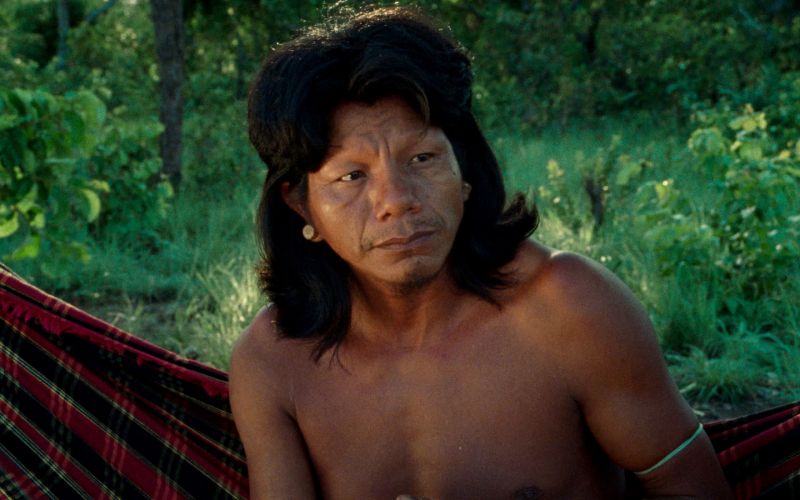
 Crowrã (The Buriti Flower)
Crowrã (The Buriti Flower)
Brasilien, Portugal 2023 | Farbe |
02:04:00 | Krahô, Portugiesisch
 Crowrã (The Buriti Flower)
Crowrã (The Buriti Flower)
Brazil, Portugal 2023 | Color |
02:04:00 | Krahô, Portuguese
Die junge Jotat leidet unter Alpträumen. Ihr Onkel, Schamane der Krahô im Amazonas, glaubt, dass die Geister der Vergangenheit sie heimsuchen. 1940 fand ein Massaker an den Krahô statt, in den 1960er-Jahren litten sie unter der brasilianischen Militärdiktatur. Doch auch die Geister der Gegenwart ruhen nicht. Während des Bolsonaro-Regimes ist ihr Land wieder verstärkt in den Fokus kapitalistischer Interessen geraten. Die Frauen des Dorfes, die auf dem Smartphone dem Kanal einer Aktivistin für Frauenrechte folgen, rufen zum Widerstand auf. Und die ganze Dorfgemeinschaft zieht – zwischen Dokument und Fiktion – in die Hauptstadt Brasília, um zu protestieren. The Buriti Flower wurde 2023 in Cannes uraufgeführt und erhielt in der Reihe »Un Certain Regard« den Ensemblepreis.
Content notes:
Colonial Violence, Political Violence, Refugee experience and/or war, Graphic/explicit sexual content, Physical violence
Young Jotat suffers from nightmares. Her uncle, a shaman of the Krahô people in the Amazon, believes she is being haunted by the ghosts of the past. A massacre of the Krahô took place in 1940, and they suffered under the Brazilian military dictatorship throughout the 1960s. Alas, the ghosts of the present are restless as well. During the tenure of the Bolsonaro regime, capitalist interests once again set their sights on the Krahô's territory. The women of the village, who follow the channel of a women's rights activist on their smartphones, call for resistance. Whereupon the entire village community travels – in a mix of documentation and fiction – to the capital city of Brasília to protest. The Buriti Flower premiered in Cannes in 2023, where it received the Ensemble Prize in the »Un Certain Regard« section.
Content notes:
Colonial Violence, Political Violence, Refugee experience and/or war, Graphic/explicit sexual content, Physical violence
Regie, Script, Editing, Produzent:in:
Director, Script, Editing, Producer:
João Salaviza
Regie, Script, Kamera, Editing, Produzent:in:
Director, Script, Director of photography, Editing, Producer:
Renée Nader Messora
Script, Darsteller:innen:
Script, Cast:
Ilda Patpro Krahô
Script, Darsteller:innen:
Script, Cast:
Francisco Hyjnõ Krahô
Script:
Script:
Henrique Ihjãc Krahô
Editing:
Editing:
Edgar Feldman
Ton:
Sound design:
Pablo Lamar
Ton:
Sound design:
Diogo Goltara
Verleihfirma:
Distributor:
Films Boutique

Zeit des Schweigens und der Dunkelheit share
Zeit des Schweigens und der Dunkelheit share
Mit einer Einführung von Prof. Sabine Rollberg und Vivien Buchhorn.
Moderiert von Maike Mia Höhne
With an introduction by Prof. Sabine Rollberg and Vivien Buchhorn.
Moderated by Maike Mia Höhne
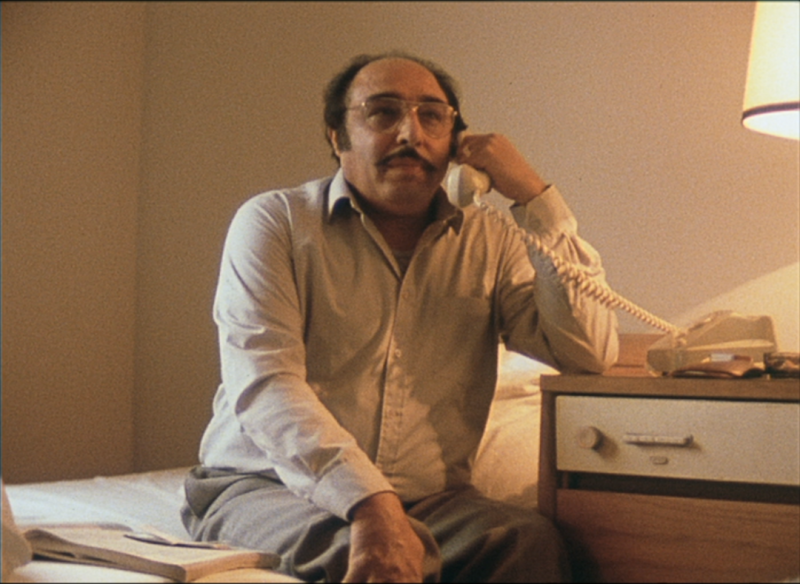
 Zeit des Schweigens und der Dunkelheit
Zeit des Schweigens und der Dunkelheit
BRD 1982 | 58:00 | Deutsch
 Zeit des Schweigens und der Dunkelheit
Zeit des Schweigens und der Dunkelheit
West Germany 1982 | 58:00 | German
Ohne sich der Bilder der Täter zu bedienen, lässt Nina Gladitz Überlebende der Spielfilmproduktion Tiefland (1953) zu Wort kommen. Zwischen 1940 und 1944 gedreht, wählte Riefenstahl u. a. Dutzende im Zwangsarbeitslager Maxglan inhaftierte Sinti* und Roma* als Statist:innen aus und ließ diese – darunter viele Kinder – für den Film zwangsverpflichten. Nahezu alle wurden später nach Auschwitz deportiert und ermordet. Auf Gladitz’ Film folgte eine Verleumdungsklage Riefenstahls. Nach dem Gerichtsurteil aus dem Jahr 1987 lag der Film über zwei Jahrzehnte unter Verschluss im Archiv des WDR. Erst seit 2022 ist er aufgrund eines Offenen Briefes des Journalisten Gerhard Beckmann nach erneuter Prüfung für die Öffentlichkeit wieder freigegeben worden.
Content notes:
Political Violence, Holocaust, Antisemitism, Refugee experience and/or war, Physical violence, Racism
Foregoing the use of images produced by the perpetrators, Nina Gladitz gives surviving (forced) participants from the feature-film production Tiefland (1953) the chance to speak. For her film, shot between 1940 and 1944, Riefenstahl selected, among others, dozens of Sinti* and Roma* imprisoned in the Maxglan forced labour camp to serve as extras and had them – including many children – conscripted for the project. Nearly all of them were later deported to Auschwitz and murdered. Gladitz’s film was met with a libel suit by Riefenstahl. Following the verdict in 1987, the film lay locked away in the WDR archive for over two decades. It was only released to the public again in 2022 following new scrutiny prompted by an open letter from journalist Gerhard Beckmann.
Content notes:
Political Violence, Holocaust, Antisemitism, Refugee experience and/or war, Physical violence, Racism
Regie, Script, Kamera, Editing:
Director, Script, Director of photography, Editing:
Nina Gladitz

 Junges Kurzfilm Festival Mo&Friese
Junges Kurzfilm Festival Mo&Friese
The Young Short Film Festival Hamburg Mo&Friese presents film programs for children and young people between 4 and 18. The carefully curated and moderated programs meet the young audience at eye level with relevant, diverse and challenging topics.

Familienbande (empf. ab 6) share
Family Ties (from 6 years) share
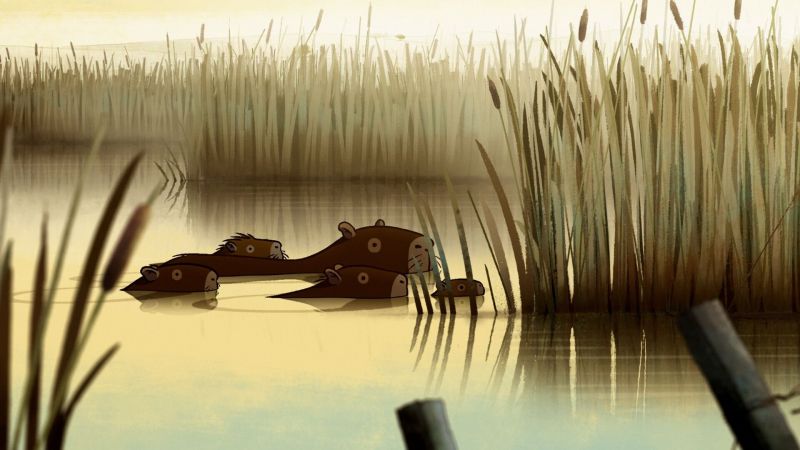
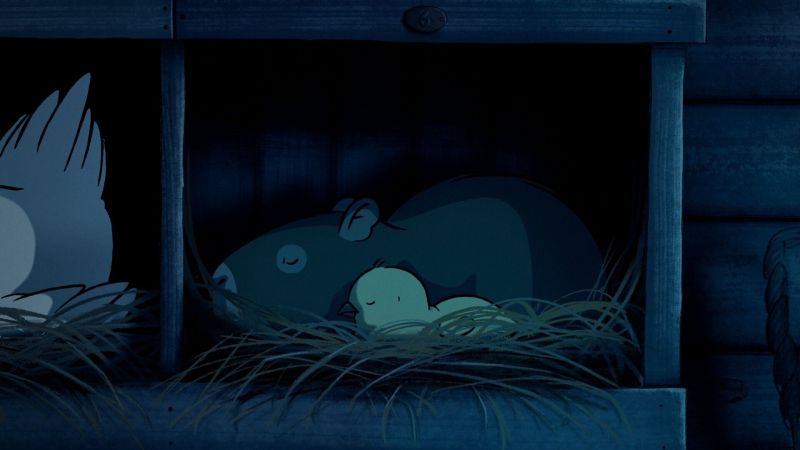
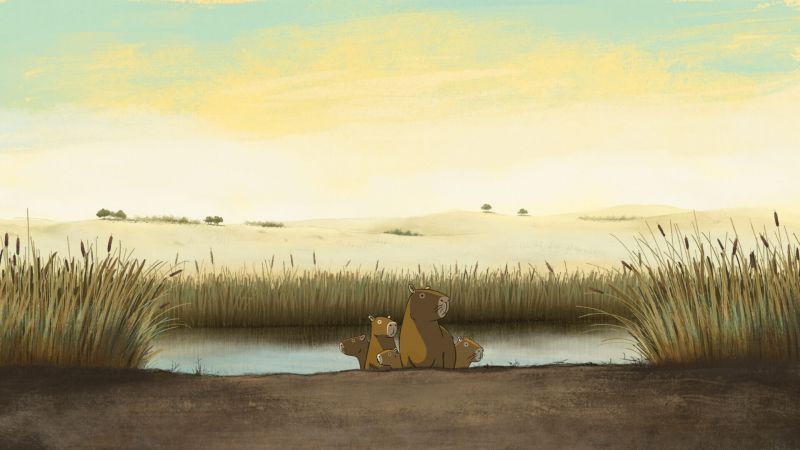
 Los carpinchos (Capybaras)
Los carpinchos (Capybaras)
Frankreich, Chile, Uruguay 2024 | Farbe |
10:34 | Kein Dialog
 Los carpinchos (Capybaras)
Los carpinchos (Capybaras)
France, Chile, Uruguay 2024 | Color |
10:34 | No Dialogue
Zur Jagdsaison suchen Wasserschweine Zuflucht in einem Hühnerstall, aber die Hühner trauen ihnen nicht.
During hunting season, water pigs seek refuge in a chicken coop, but the chickens do not trust them.
Regie:
Director:
Alfredo Soderguit
Music:
Music:
Pablo Notaro
Verleihfirma:
Distributor:
Miguel Español Celiméndiz
Produzent:in:
Producer:
Nicolas Schmerkin
Produzent:in:
Producer:
Bernardita Ojeda
Produzent:in:
Producer:
Luciana Roude
(Selection) Two Little Birds (2022), Cancion para uno (2015), Anina (2013), Hype Yulele (2009), Gladiadores animados (2005)
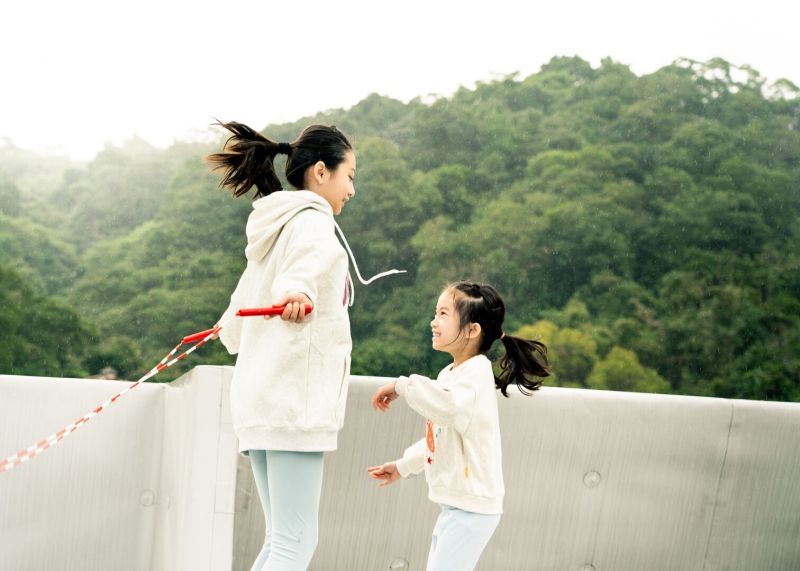
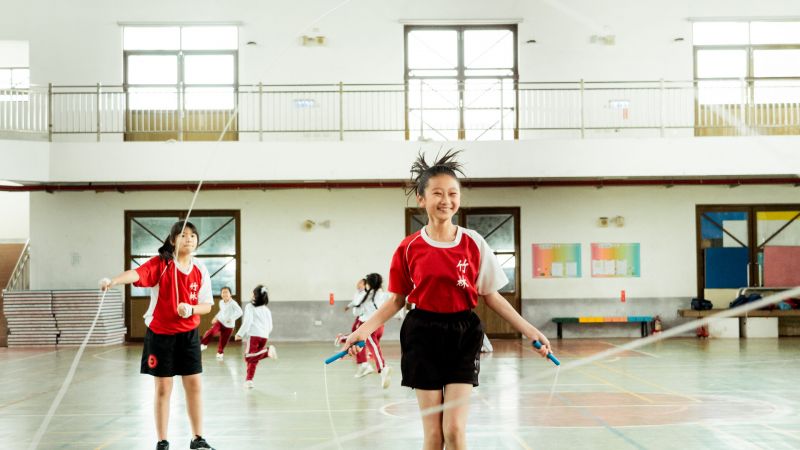
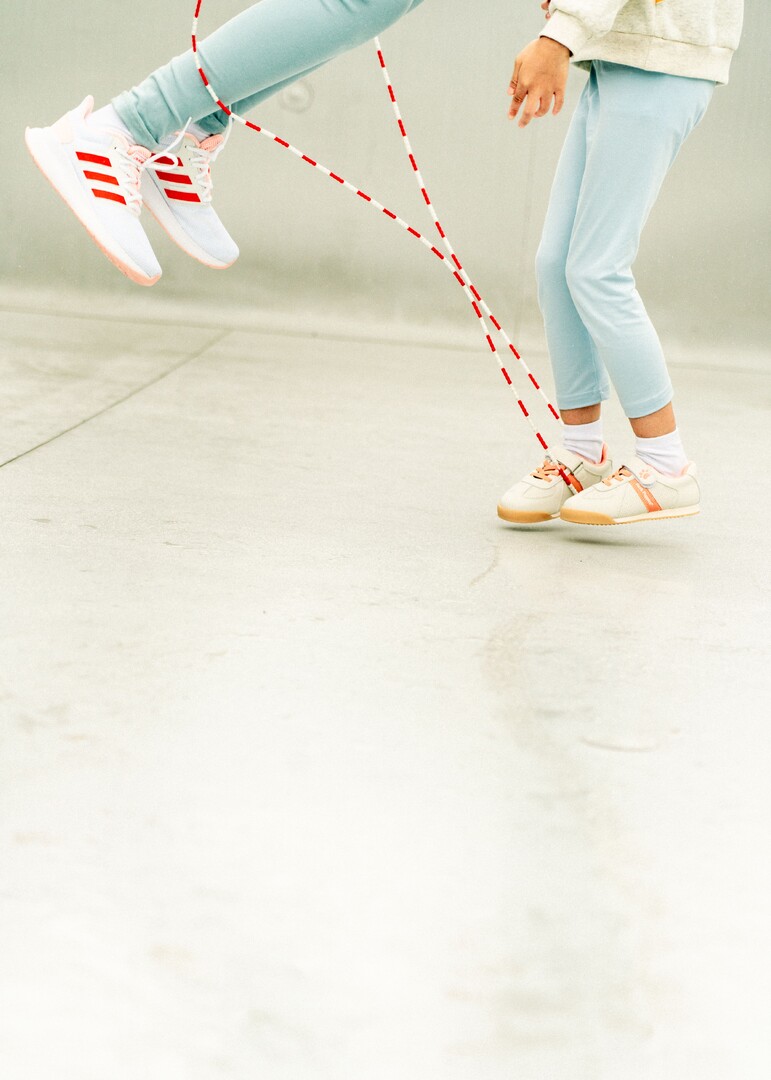
 跳繩 (Skipping Rope)
跳繩 (Skipping Rope)
Taiwan 2023 | Farbe |
19:55 | Chinesisch
 跳繩 (Skipping Rope)
跳繩 (Skipping Rope)
Taiwan 2023 | Color |
19:55 | Chinese
Es ist nicht leicht, eine ältere Schwester zu haben, die alles gut kann.
It's not easy to have an older sister who can do everything well.
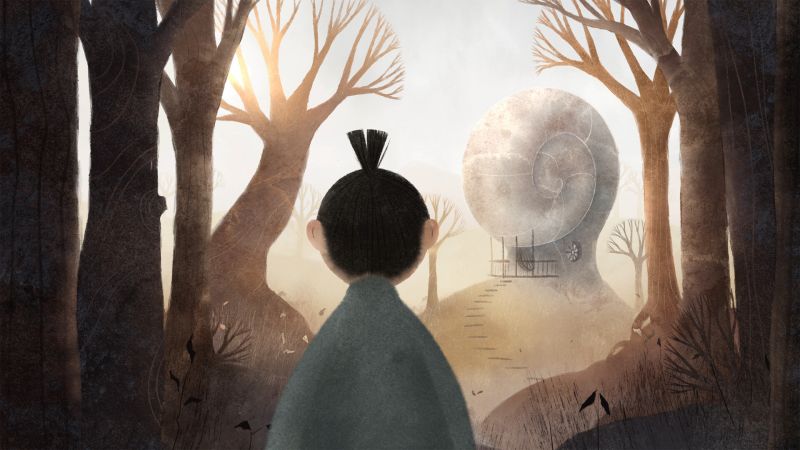
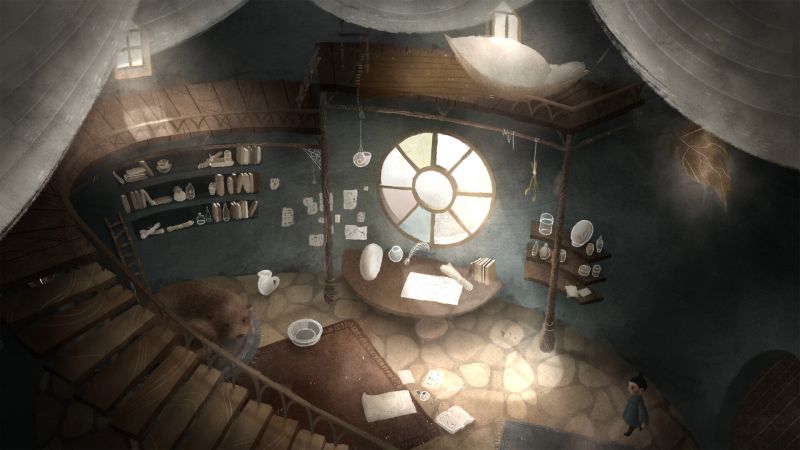
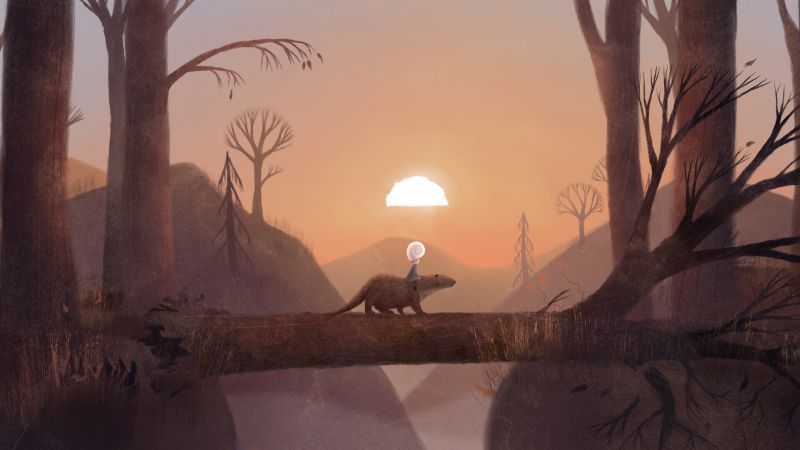
 Mû
Mû
Deutschland 2024 | Farbe |
06:25 | Kein Dialog
 Mû
Mû
Germany 2024 | Color |
06:25 | No Dialogue
Als die göttliche Wasserquelle versiegt, macht sich ein Kind auf die Suche nach einer Lösung.
When the divine water source runs dry, a child sets out to find a solution.
Regie, Produzent:in, Animation, Script:
Director, Producer, Animation, Script:
Malin Neumann
Music:
Music:
Henric Schleiner
Ton:
Sound design:
Henning Großmann
Verleihfirma:
Distributor:
MAGNETFILM GmbH
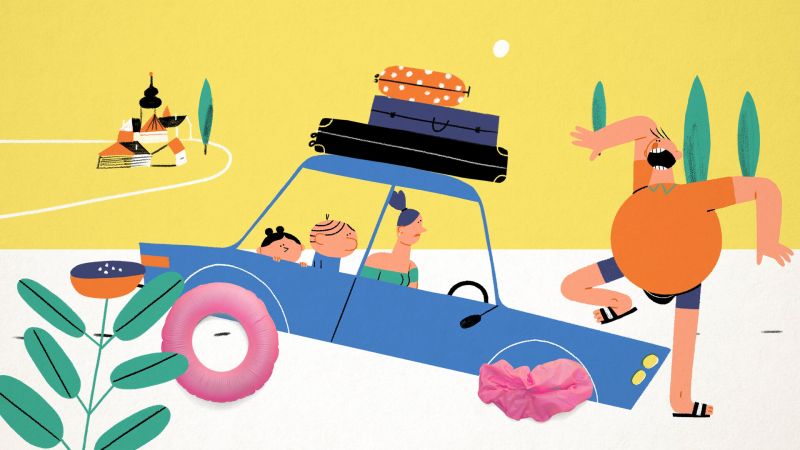
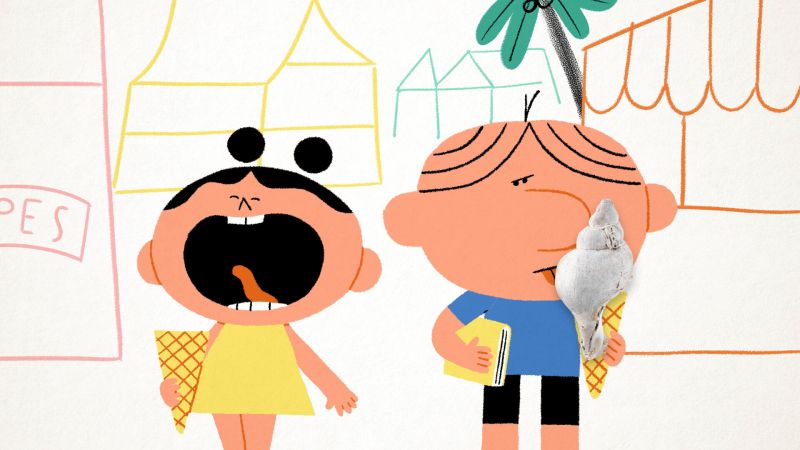
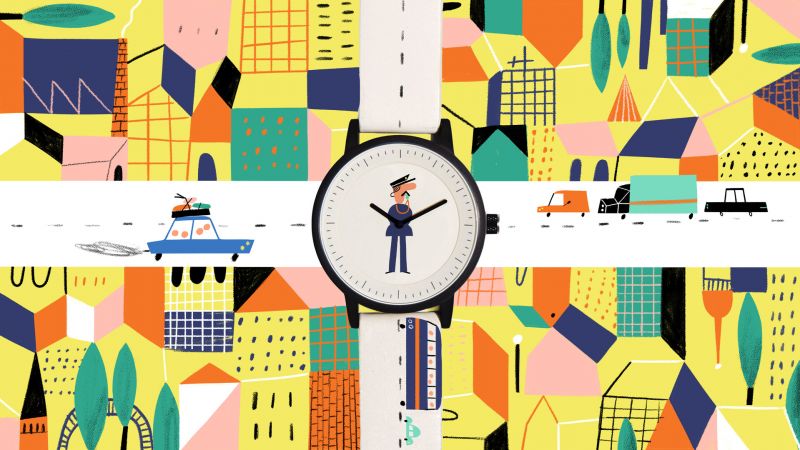
 Ahoj leto (Hello Summer)
Ahoj leto (Hello Summer)
Slowakei 2024 | Farbe |
10:50 | Kein Dialog
 Ahoj leto (Hello Summer)
Ahoj leto (Hello Summer)
Slovakia 2024 | Color |
10:50 | No Dialogue
Meer, Sonne, Strand und Familienurlaub. Aber was ist, wenn die Realität nicht so toll ist wie die Vorstellung?
Sea, sun, beach, and family vacation. But what if the reality isn't as great as the idea?
Regie, Produzent:in:
Director, Producer:
Martin Smatana
Regie:
Director:
Veronika Zacharová
Kontakt:
Contact:
Bear With Me Distribution
Produzent:in:
Producer:
Jean-François Le Corre
Produzent:in:
Producer:
Martin Vandas
Produzent:in:
Producer:
Kamila Dohnalová

Gib Mir 5! (empf. ab 6) share
High 5! (from 6 years) share
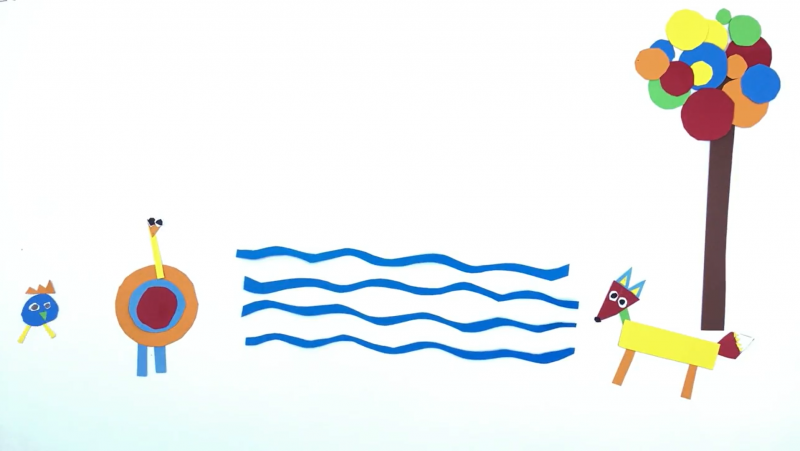
 Verfuchst noch mal, ich hab Hunger!
Verfuchst noch mal, ich hab Hunger!
Deutschland 2025 | Farbe |
04:28 | Deutsch
 Verfuchst noch mal, ich hab Hunger!
Verfuchst noch mal, ich hab Hunger!
Germany 2025 | Color |
04:28 | German
Der Fuchs hat Hunger. Aber der Truthahn hat keine Lust, gefressen zu werden. Ein abstrakter Animationsfilm, in dem kaum etwas so ist, wie es zunächst aussieht, und sich alles verändern kann.
The fox is hungry. But the turkey has no desire to be eaten. An abstract animated film in which hardly anything is as it first appears and everything can change.
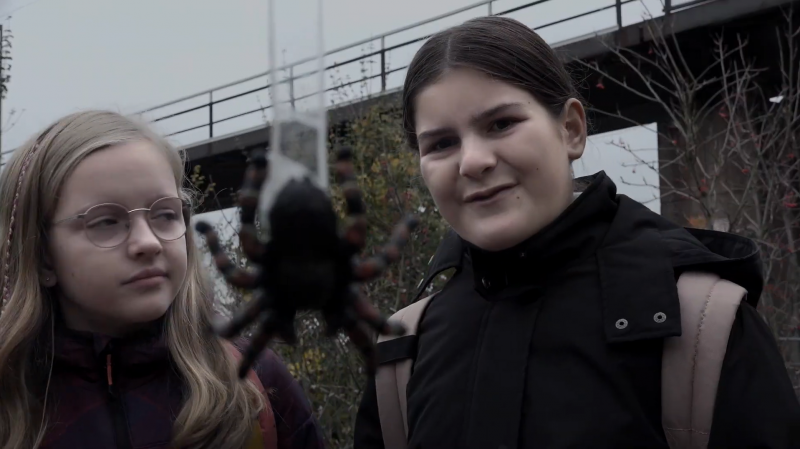
 Die Spaßverderber
Die Spaßverderber
Deutschland 2025 | Farbe |
05:23 | Deutsch
 Die Spaßverderber
Die Spaßverderber
Germany 2025 | Color |
05:23 | German
Halloween steht vor der Tür. Obwohl sogar der Lehrer dieses Ereignis in seinen Unterricht einbaut, gibt es drei Mädchen in der Klasse, die das kindisch finden. Erst als sie auf dem Nachhauseweg über einen Friedhof laufen, lernen sie das Gruseln.
Halloween is just around the corner. Although even the teacher incorporates this event into his lessons, there are three girls in the class who find it childish. Only when they walk through a cemetery on their way home do they learn to be creepy.
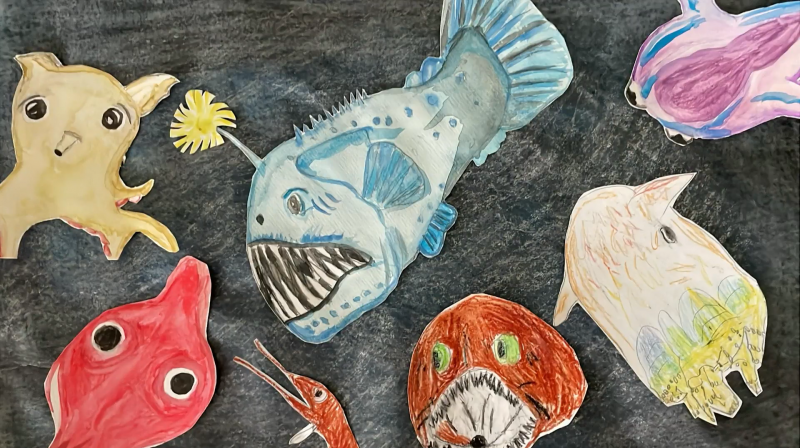
 Little Blue
Little Blue
Deutschland 2025 | Farbe |
02:31 | Kein Dialog
 Little Blue
Little Blue
Germany 2025 | Color |
02:31 | No Dialogue
Der Anglerfisch Little Blue wird durch eine Explosion, die durch den Tiefseebergbau verursacht wird, aus seinem Zuhause katapultiert. Er landet an einem Ort, an dem die anderen Meeresbewohner ihn meiden, da er so anders ist und ihnen Angst macht. Doch etwas Unerwartetes passiert und Rettung naht.
The frogfish Little Blue is catapulted from his home by an explosion caused by deep-sea mining. He ends up in a place where the other sea creatures avoid him because he is so different and frightens them. But something unexpected happens and rescue is near.
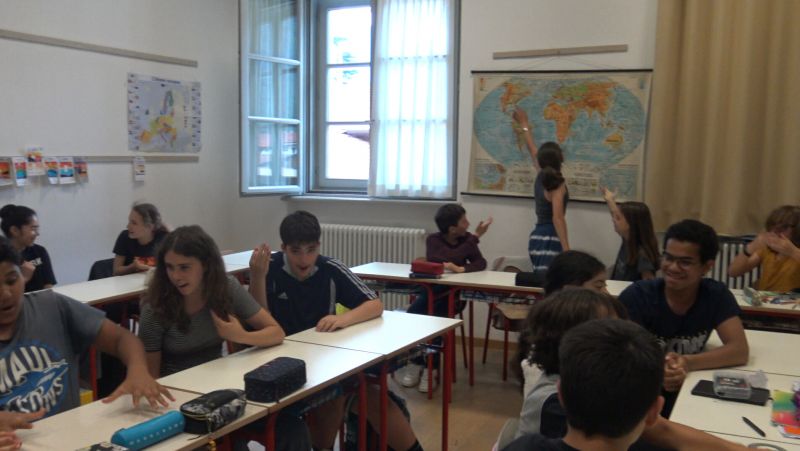
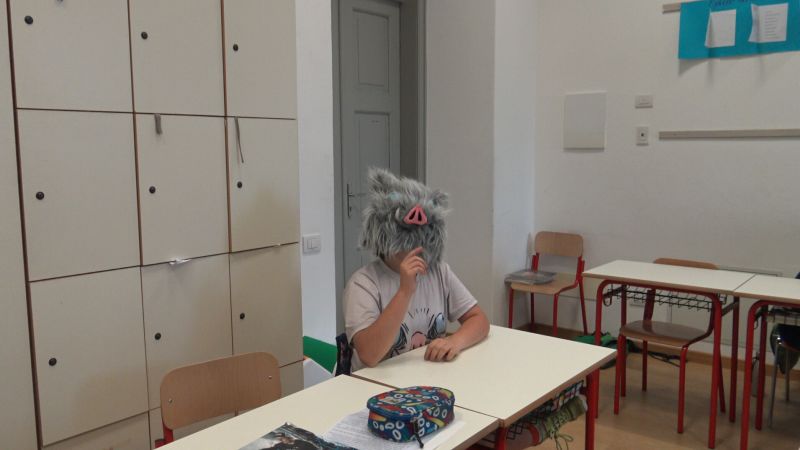
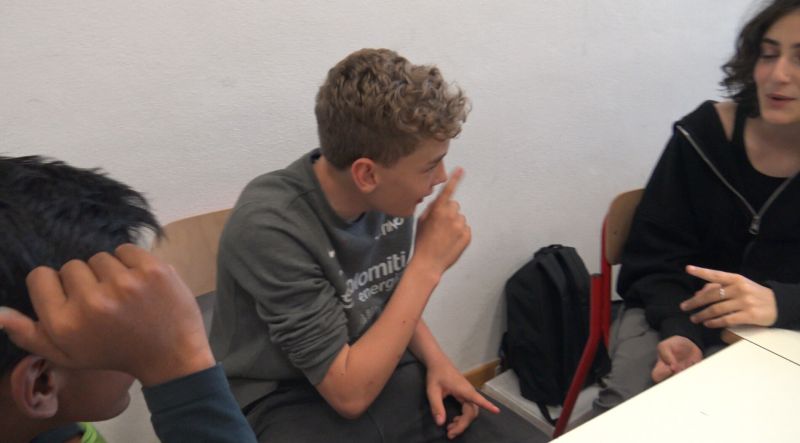
 School Beasts and Where to Find Them
School Beasts and Where to Find Them
Italien 2023 | Farbe |
02:00 | Englisch
 School Beasts and Where to Find Them
School Beasts and Where to Find Them
Italy 2023 | Color |
02:00 | English
Beurteile ein Wildschwein nie nach seinem Aussehen. Äußerlichkeiten sagen nichts über die inneren Werte aus.
Don't judge a boar by its face. Be wary of appearances.
Darsteller:innen:
Cast:
Sofia Cattaneo & Class 2 A (2022-23)
Kontakt:
Contact:
Vittorio Caratozzolo
Regie:
Director:
Vittorio Caratozzolo & Class 2 A (2022-23)
Produzent:in:
Producer:
Vittorio Caratozzolo & Istituto Comprensivo Trento 5
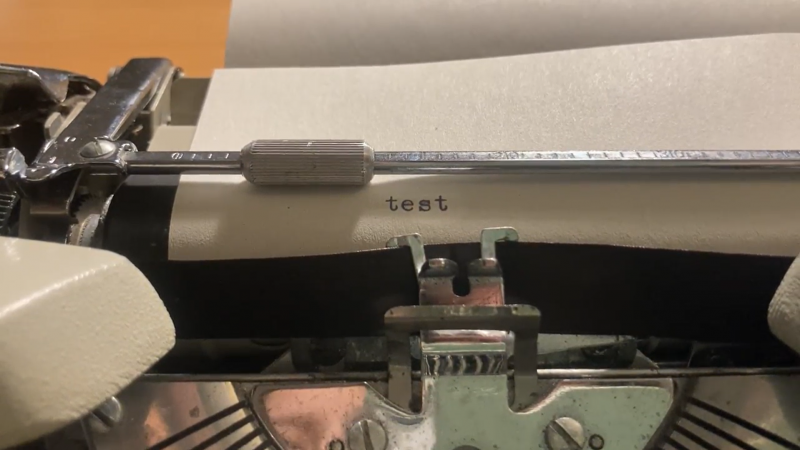
 Test
Test
Deutschland 2025 | Farbe |
02:30 | Kein Dialog
 Test
Test
Germany 2025 | Color |
02:30 | No Dialogue
Wie wäre es, einfach mal die Perspektive in der eigenen Wohnung zu wechseln?
How about simply changing your perspective in your own home?
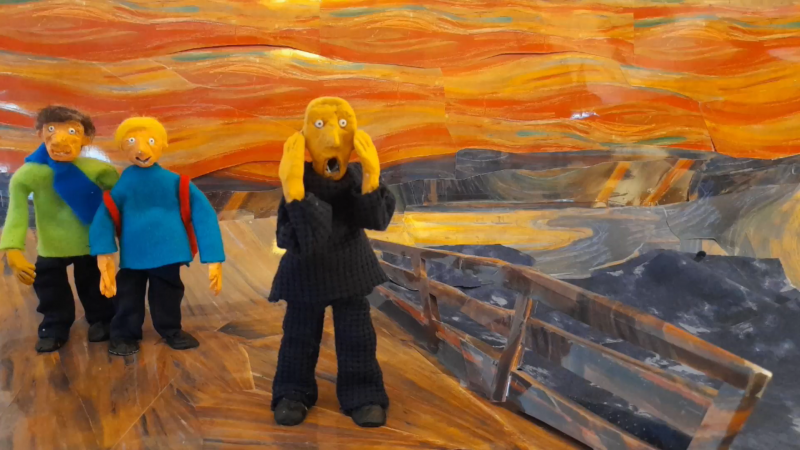
 Hilfe - Hass im Netz
Hilfe - Hass im Netz
Deutschland 2025 | Farbe |
03:45 | Deutsch
 Hilfe - Hass im Netz
Hilfe - Hass im Netz
Germany 2025 | Color |
03:45 | German
Bei einem Ausstellungsbesuch fragen sich zwei Besucher, warum der Mann auf dem bekannten Bild eigentlich schreit. Er berichtet ihnen über Hass und Mobbing im Netz und sie wollen ihm helfen, die Situation zu ändern.
During a visit to an exhibition, two visitors ask themselves why the man in the well-known picture is actually shouting. He tells them about hate and bullying online and they want to help him change the situation.
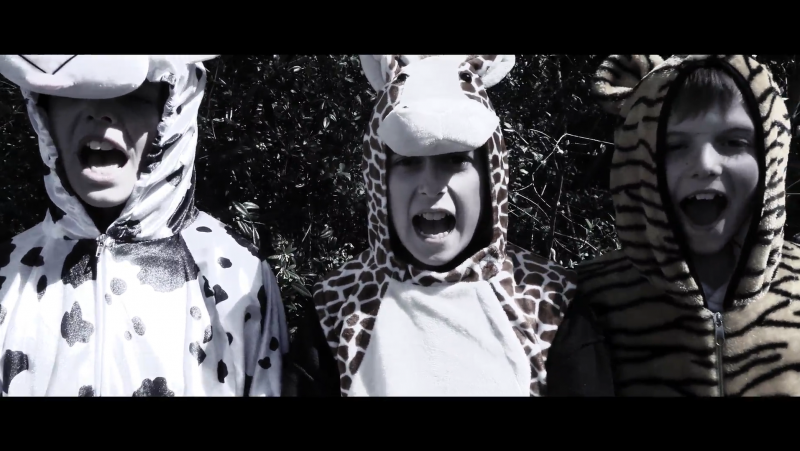
 Die Dose
Die Dose
Schweiz 2025 | Schwarz-Weiss und Farbe |
03:35 | Deutsch
 Die Dose
Die Dose
Switzerland 2025 | Black & White and Color |
03:35 | German
Eine Kuh, eine Giraffe und ein Tiger verschmutzen nach einer Party den Wald, was schneller als erwartet zu Konsequenzen führt.
A cow, a giraffe and a tiger litter the forest after a party, which leads to consequences sooner than expected.
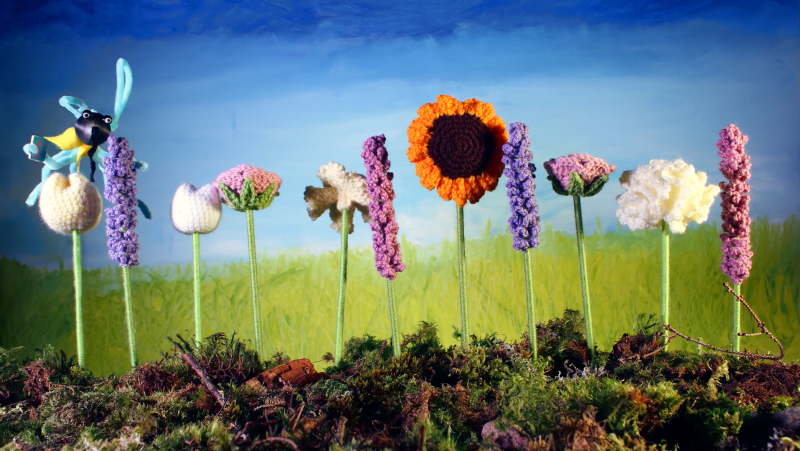
 Pollenpups und Blütenstaub
Pollenpups und Blütenstaub
Deutschland 2025 | Farbe |
04:22 | Deutsch
 Pollenpups und Blütenstaub
Pollenpups und Blütenstaub
Germany 2025 | Color |
04:22 | German
Die Schwebefliege Hildegard ist unzufrieden mit ihrem langweiligen Alltag – bis sie sich zufällig in einer wackeligen Rakete im Weltall wiederfindet. Nach einer dramatischen Notlandung merkt sie, dass die Welt voller Abenteuer steckt, wenn man sich traut, den Blickwinkel zu ändern.
Hildegard the hoverfly is unhappy with her boring everyday life – until she accidentally finds herself in a wobbly rocket in space. After a dramatic emergency landing, she realizes that the world is full of adventure if you dare to change your perspective.

Gib Mir 5! NEON (empf. ab 14) share
High 5! NEON (from 14 years) share
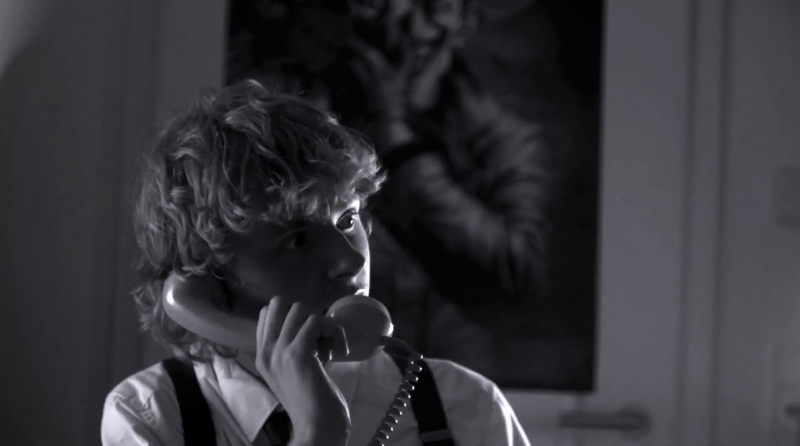
 The Illusory
The Illusory
Deutschland 2025 | Schwarz-Weiss und Farbe |
03:08 | Deutsch
 The Illusory
The Illusory
Germany 2025 | Black & White and Color |
03:08 | German
Mister Leyton ist gerade dabei, die Zeitungsausgabe fertig zu stellen, als er plötzlich einen mysteriösen Anruf bekommt.
Mr. Leyton is just finishing the newspaper edition when he suddenly receives a mysterious call.
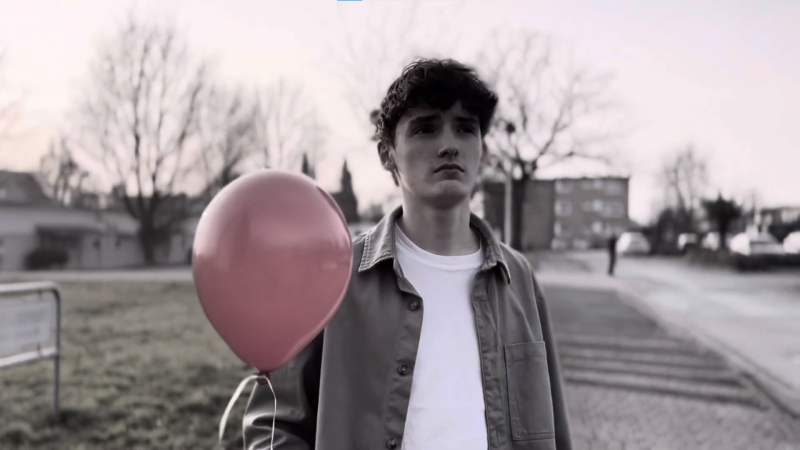
 Die Kraft im Kleinen
Die Kraft im Kleinen
Deutschland 2025 | Schwarz-Weiss und Farbe |
05:33 | Deutsch
 Die Kraft im Kleinen
Die Kraft im Kleinen
Germany 2025 | Black & White and Color |
05:33 | German
Nach dem Tod seiner Eltern fühlt sich Elias leer und verloren. Doch ein unerwarteter Moment gibt seinem Leben eine neue Wendung.
After his parents' death, Elias feels empty and lost. But an unexpected moment gives his life a new turn.
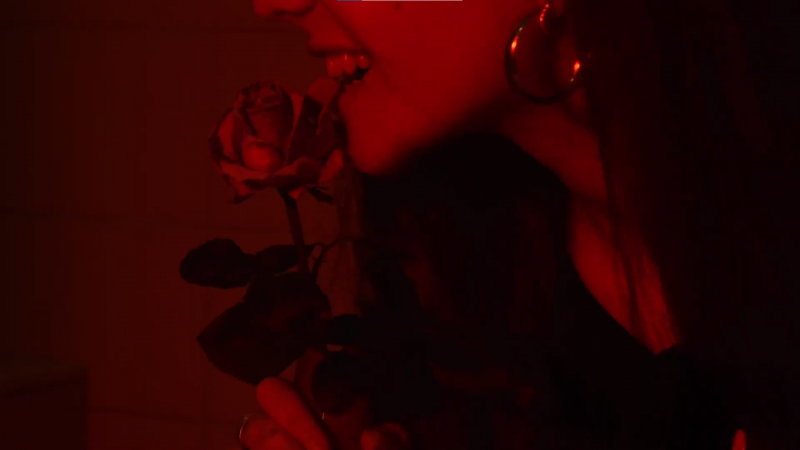
 Anna Blume
Anna Blume
Deutschland 2025 | Farbe |
05:16 | Deutsch
 Anna Blume
Anna Blume
Germany 2025 | Color |
05:16 | German
Vor über hundert Jahren schrieb der Dadaist Kurt Schwitters das rätselhafte Liebesgedicht »An Anna Blume«– eine poetische Mischung aus Romantik, Komik und Absurdität, deren Adressatin bis heute unbekannt ist. 2023 bringt eine junge Hamburger Filmcrew das berühmte Gedicht als frische, kreative Verfilmung auf die Leinwand und lädt ein, Anna Blume neu zu entdecken.
Over a hundred years ago, the Dadaist Kurt Schwitters wrote the enigmatic love poem »An Anna Blume« – a poetic blend of romance, comedy, and absurdity whose addressee remains unknown to this day. In 2023, a young Hamburg film crew brings the famous poem to the screen in a fresh, creative film adaptation, inviting viewers to rediscover Anna Blume.
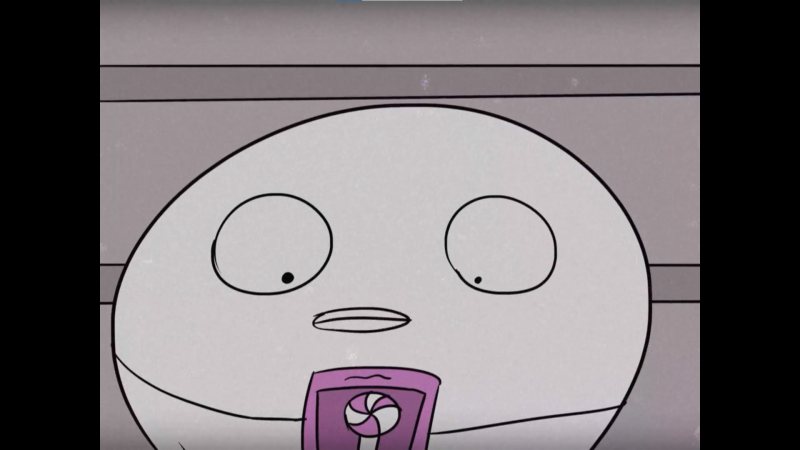
 Lap und der Unsinn
Lap und der Unsinn
Deutschland 2025 | Farbe |
02:25 | Deutsch
 Lap und der Unsinn
Lap und der Unsinn
Germany 2025 | Color |
02:25 | German
Ein neuer Lolli auf dem Markt sorgt für Unruhen.
A new lollipop on the market is causing unrest.
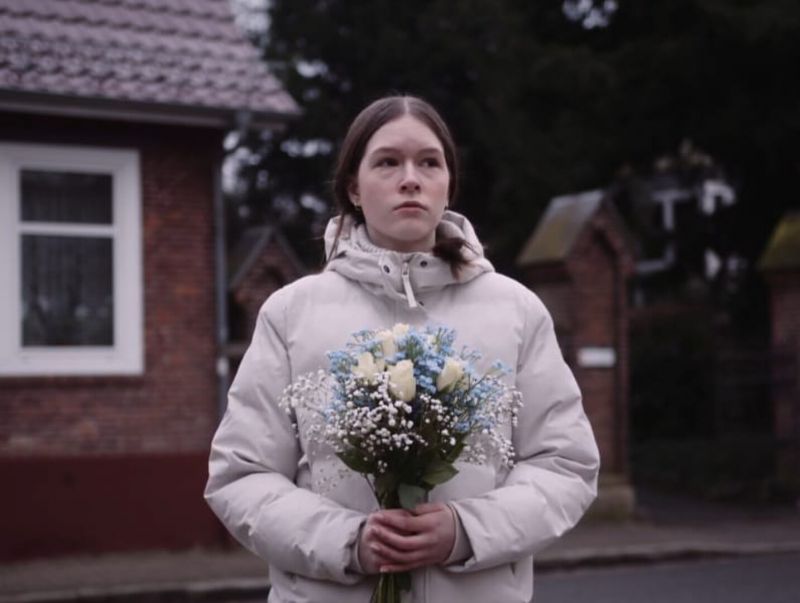
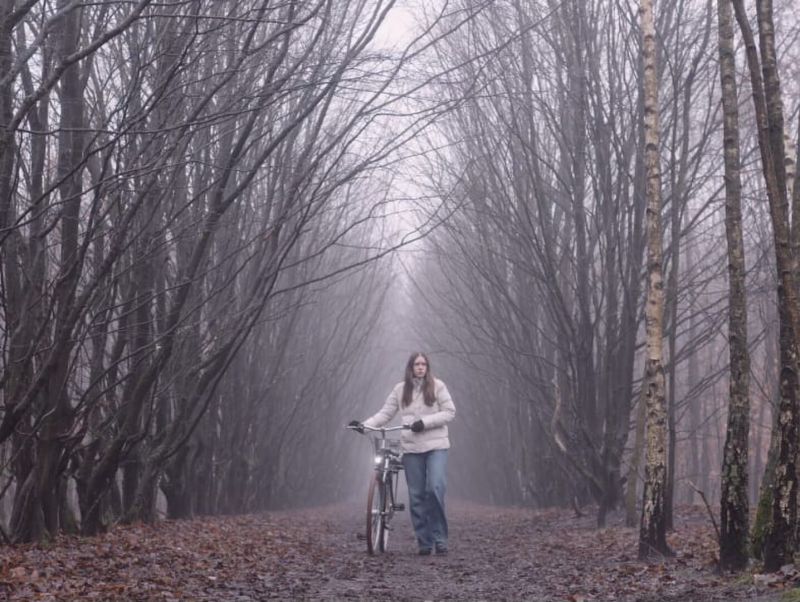
 Vergissmeinnicht (Forget-Me-Not)
Vergissmeinnicht (Forget-Me-Not)
Deutschland 2025 | Farbe |
06:14 | Deutsch
 Vergissmeinnicht (Forget-Me-Not)
Vergissmeinnicht (Forget-Me-Not)
Germany 2025 | Color |
06:14 | German
Klara ist ein 16-jähriges Mädchen, das ihre beste Freundin Ella durch einen tragischen Unfall verloren hat. Um den Tod ihrer Freundin besser verarbeiten zu können, möchte sich Klara an Ella zurückerinnern. Das scheint für Klara jedoch unmöglich zu sein.
Klara is a 16-year-old girl who lost her best friend Ella in a tragic accident. In order to come to terms with her friend's death, Klara wants to remember Ella. However, this seems impossible for Klara.
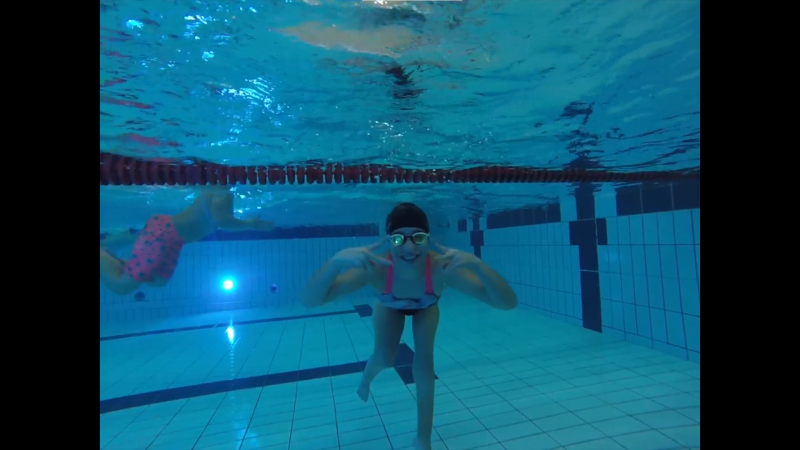
 Delfin - Nisanur
Delfin - Nisanur
Deutschland 2025 | Farbe |
04:05 | Deutsch
 Delfin - Nisanur
Delfin - Nisanur
Germany 2025 | Color |
04:05 | German
Delfin erzählt die Geschichte von der Paraschwimmerin Nisanur.
Delfin tells the story of the paraswimmer Nisanur.

In Bewegung (empf. ab 6) share
In Motion (from 6 years) share
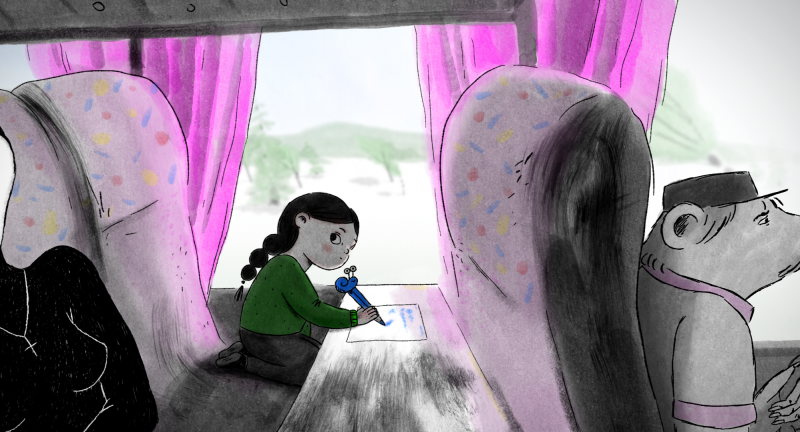
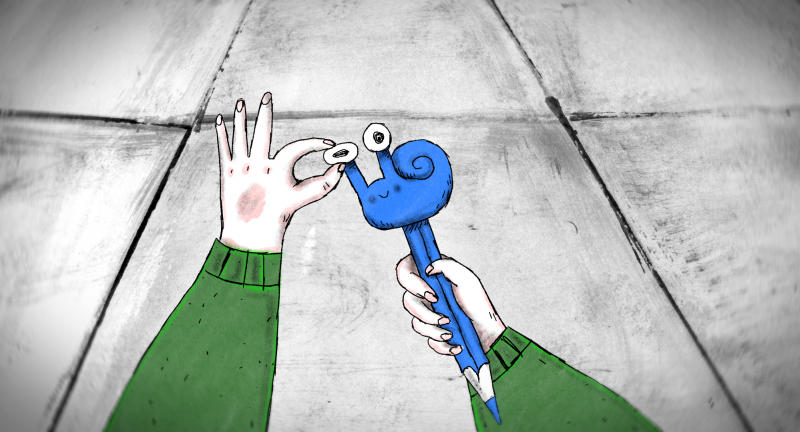
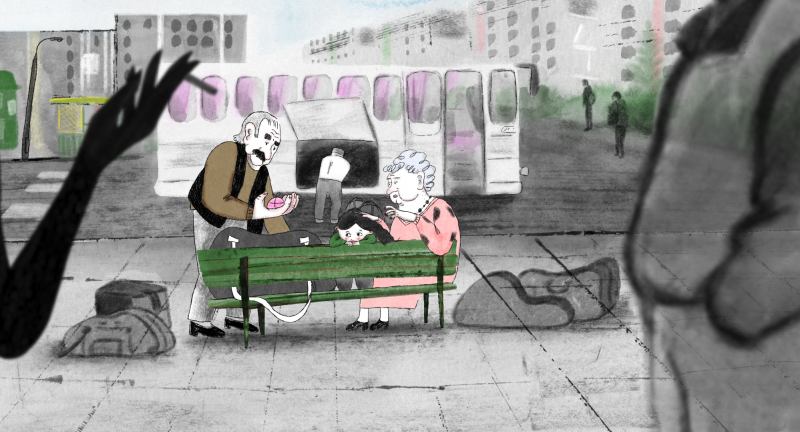
 Autokar
Autokar
Belgien, Frankreich 2025 | Farbe |
17:27 | Polnisch
 Autokar
Autokar
Belgium, France 2025 | Color |
17:27 | Polish
Agata fährt mit dem Bus von Polen nach Belgien und macht unterwegs viele neue Bekanntschaften.
Agata travels by bus from Poland to Belgium and makes many new acquaintances along the way.
Verleihfirma:
Distributor:
Luce Grosjean
Regie:
Director:
Sylwia Szkiłądź
Le renard minuscule (2016), La soupe aux fraises (2015)
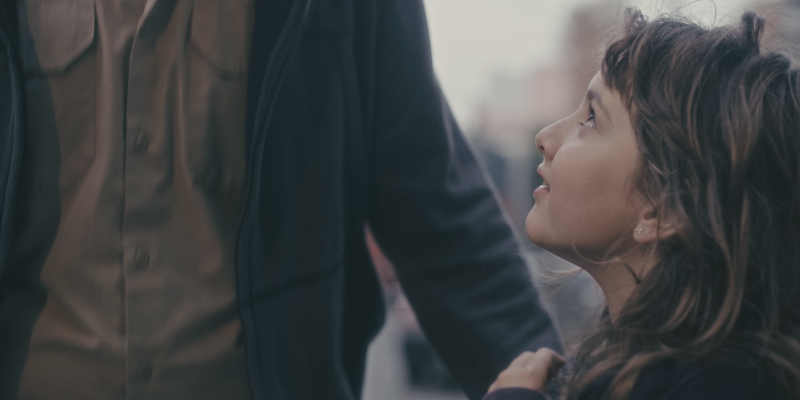
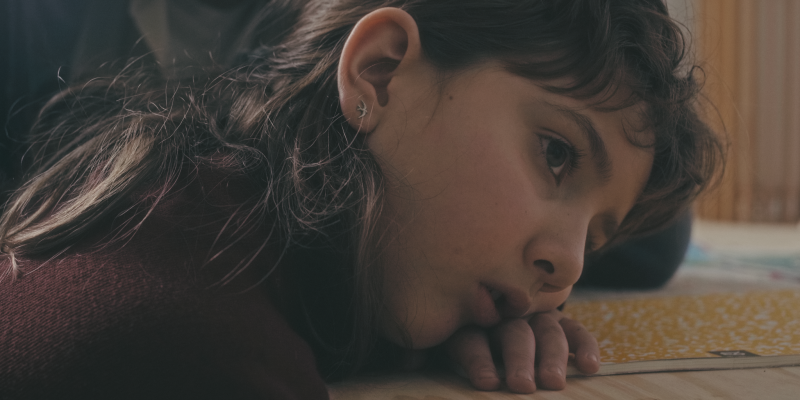
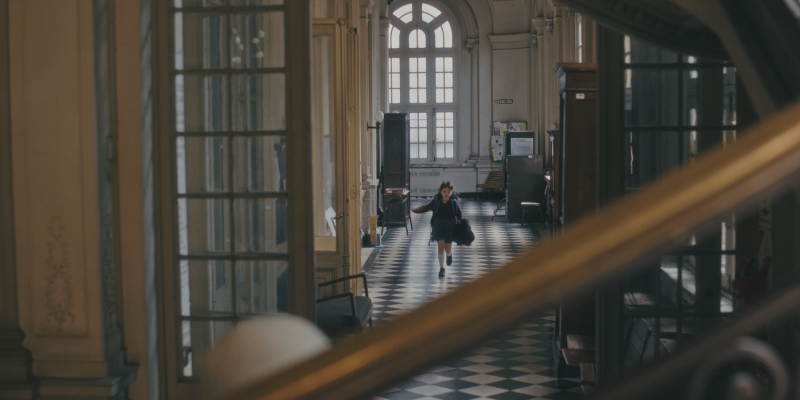
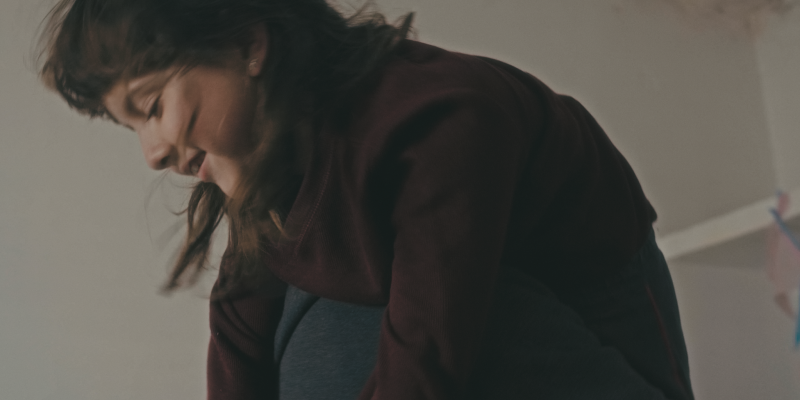
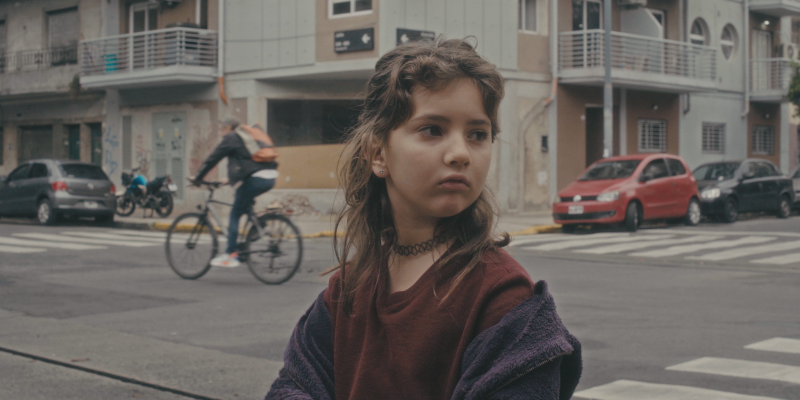
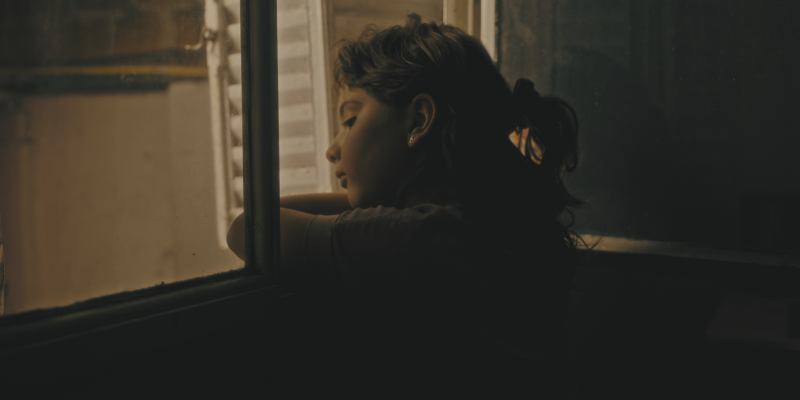
 Chispa (Spark)
Chispa (Spark)
Deutschland, Argentinien 2025 | Farbe |
11:07 | Spanisch
 Chispa (Spark)
Chispa (Spark)
Germany, Argentina 2025 | Color |
11:07 | Spanish
Marta bewältigt ihren Alltag schon selbstständig, aber manchmal vermisst sie ihren Vater.
Marta manages her daily life on her own, but sometimes she misses her father.
Regie, Script, Produzent:in:
Director, Script, Producer:
Vera Kayh
Animation:
Animation:
Rahel Fundinger
Kamera:
Director of photography:
Flope Velozo
Art Designer:
Art Designer:
Vera Kayh
Darsteller:innen:
Cast:
Nina Ferreira
Darsteller:innen:
Cast:
Sebastián Berta Muñiz
Distribution / Sale:
Distribution / Sale:
Vera Kayh
Editing:
Editing:
Frederik Bösing
Film score composer, Music:
Film score composer, Music:
Clemens Gutjahr
Music used:
Music used:
Ainda
Original script:
Original script:
Vera Kayh
Andere:
Other:
The Blonde Colorist
Produzent:in:
Producer:
Vera Kayh
Referent contact:
Referent contact:
Vera Kayh
Ton:
Sound design:
Máximo Savir
Sound Designer:
Sound Designer:
Timo Klabunde
Sound Editing:
Sound Editing:
Timo Klabunde
Sound Mixing:
Sound Mixing:
Timo Klabunde

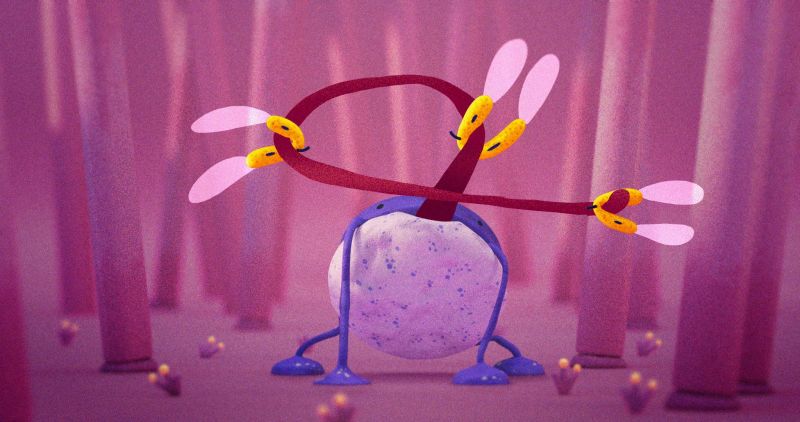
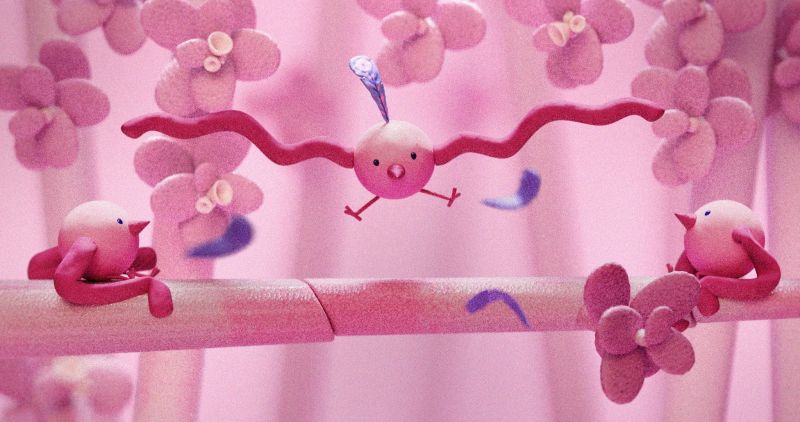
 First Flight
First Flight
Deutschland 2025 | Farbe |
03:18 | Kein Dialog
 First Flight
First Flight
Germany 2025 | Color |
03:18 | No Dialogue
Drei kleine Vögel, eine große Herausforderung – der erste Flug!
Three small birds, one big challenge – the first flight!
Regie, Animation:
Director, Animation:
Adrian Jaffé
Ton:
Sound design:
Max Gausepohl
Blocks (2022)
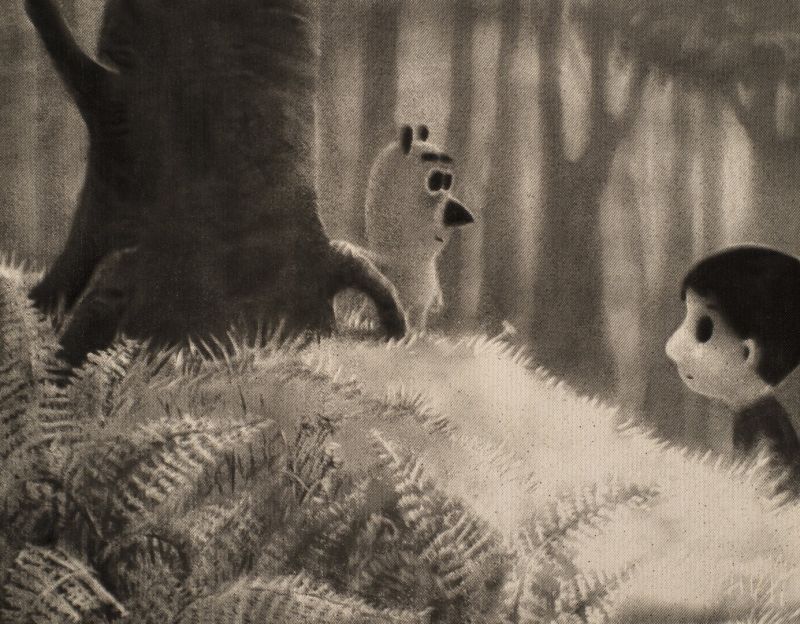
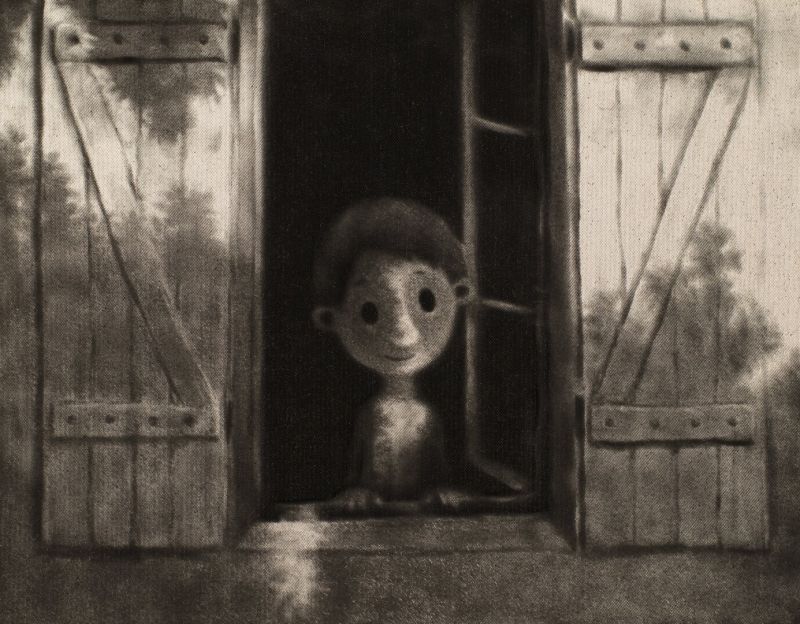
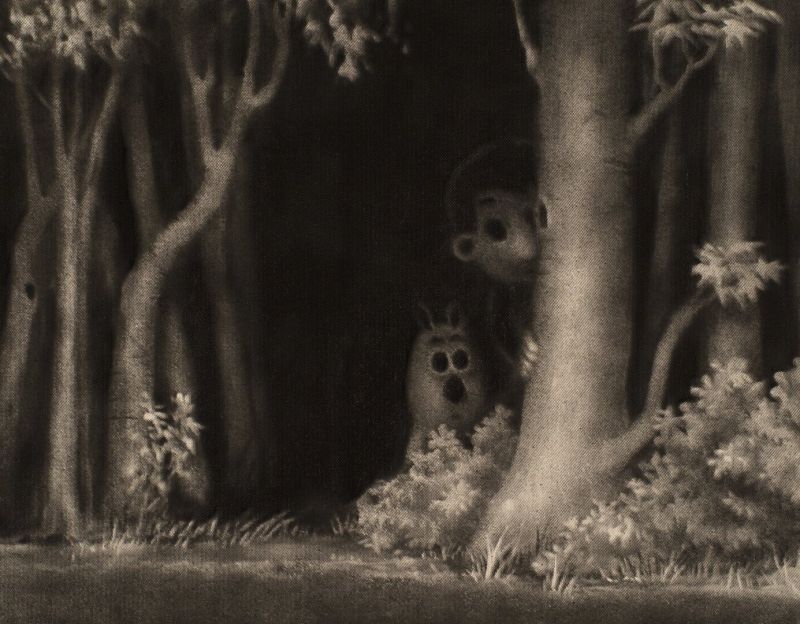
 Les bottes de la nuit (The Night Boots)
Les bottes de la nuit (The Night Boots)
Frankreich 2024 | Schwarz-Weiss |
12:25 | Französisch
 Les bottes de la nuit (The Night Boots)
Les bottes de la nuit (The Night Boots)
France 2024 | Black & White |
12:25 | French
Ein Kind erkundet nachts den Wald und trifft auf ein seltsames Tier, das sich sehr über die neue Gesellschaft freut.
A child is exploring the forest at night and meets a strange animal who is very excited about the new company.
Regie:
Director:
Pierre-Luc Granjon
Verleihfirma:
Distributor:
Gaëtan Trigot
Produzent:in:
Producer:
Yves Bouveret
(Selection) The Inventor (2023), The Dog (2018), The Big Beast (2013), The Four Seasons of Leon (2007-2012), The White Wolf (2006), The Child With No Mouth (2004)

share
Late Night share
… und wer sich vormittags noch nicht hat sattsehen können, den laden wir
zu späten Nachtstunden noch zu einem Nachschlag ein. Mit erlesenen
Schätzen querbeet aus unseren internationalen Wettbewerbsprogrammen.
... and those who haven't had enough of it in the morning, we invite you to look up late at night. With exquisite treasures from our international competition programs.
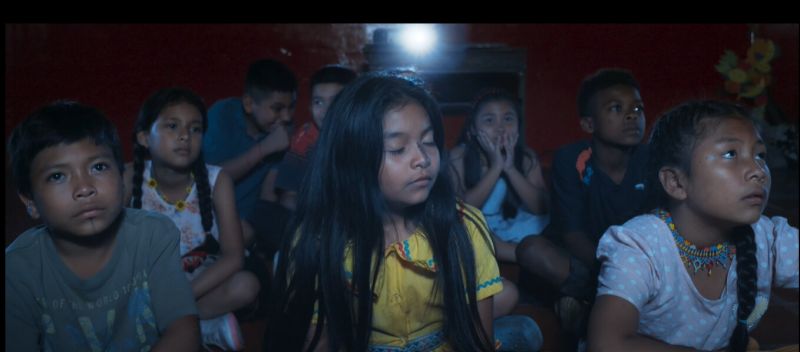
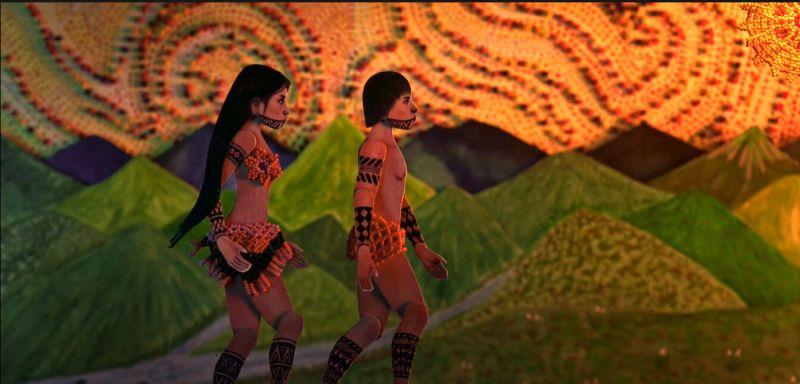
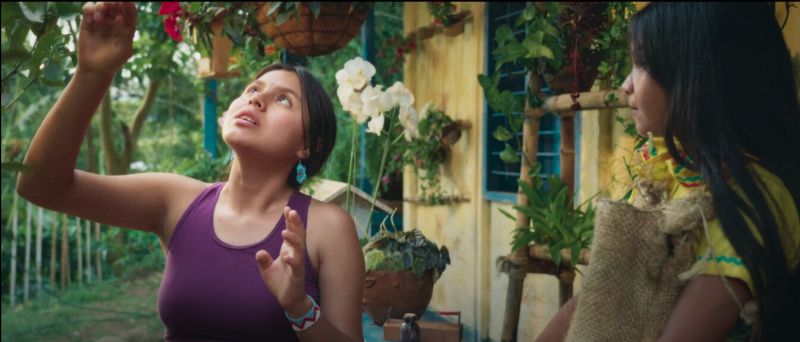
 Akababuru: Expresión de asombro (Akababuru: Expression of Astonishment)
Akababuru: Expresión de asombro (Akababuru: Expression of Astonishment)
Kolumbien 2025 | Farbe |
13:32 | Spanisch, Emberá-Chamí
 Akababuru: Expresión de asombro (Akababuru: Expression of Astonishment)
Akababuru: Expresión de asombro (Akababuru: Expression of Astonishment)
Colombia 2025 | Color |
13:32 | Spanish, Emberá-Chamí
Kari, ein indigenes Mädchen, lernt, welche Macht das Lachen von Frauen haben kann, und findet zu ihrer eigenen Stärke.
Content notes:
Discrimination against women
Kari, an indigenous girl, learns the power of women's laughter and finds her own strength.
Content notes:
Discrimination against women
Regie:
Director:
Irati Dojura
Kontakt:
Contact:
Laura Giraldo
Darsteller:innen:
Cast:
Escolástica Yagarí Gónzalez
Darsteller:innen:
Cast:
Heluney Nerio Niaza
Darsteller:innen:
Cast:
Kipara Niaza
Darsteller:innen:
Cast:
Wayra Andrea AguilarTascón
Produzent:in:
Producer:
Laura Giraldo Mira
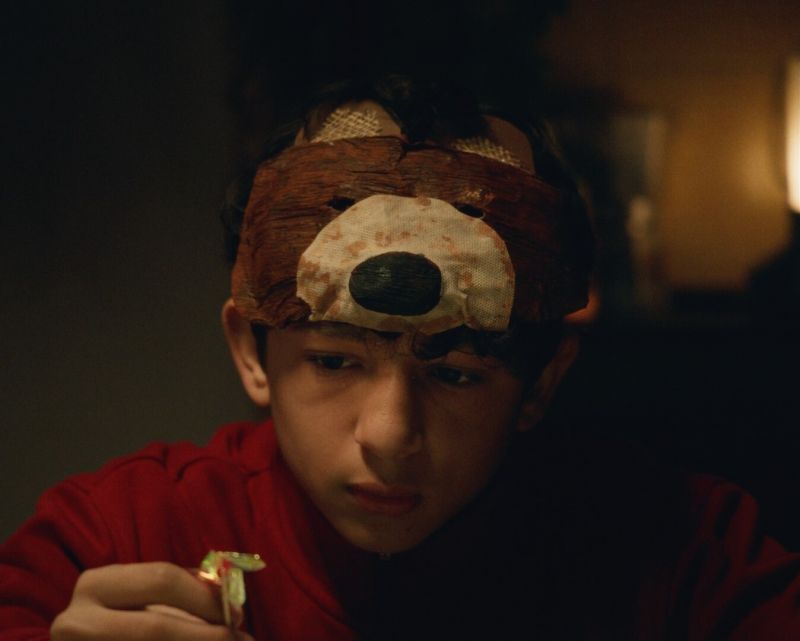
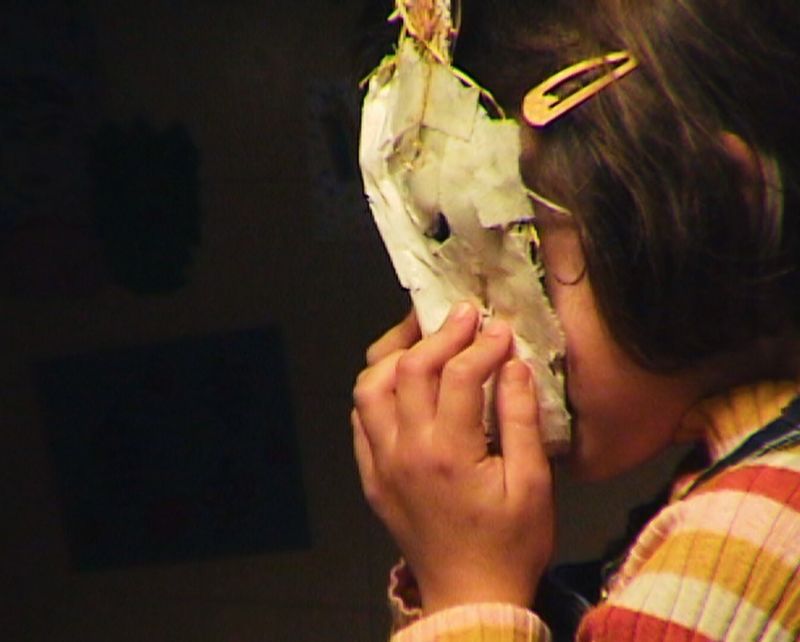
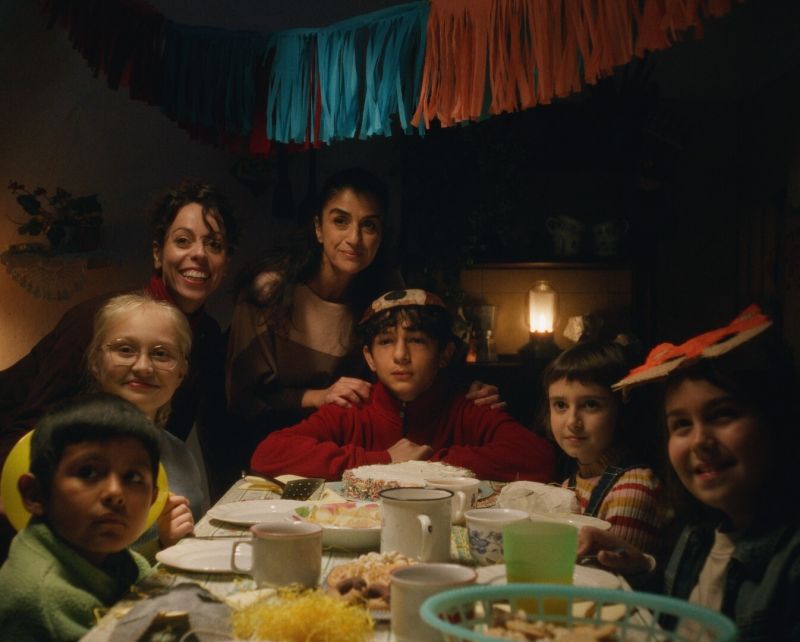
 L'ultimo giorno dell'orso (The Last Day of the Bear)
L'ultimo giorno dell'orso (The Last Day of the Bear)
Italien 2024 | Farbe |
12:21 | Italienisch
 L'ultimo giorno dell'orso (The Last Day of the Bear)
L'ultimo giorno dell'orso (The Last Day of the Bear)
Italy 2024 | Color |
12:21 | Italian
Dennis zieht vom familiären Kinderheim zu seiner neuen Familie. Die ungewisse Zukunft macht ihm Angst.
Dennis is moving from the family home to his new home. The uncertain future scares him.
Regie:
Director:
Antonio Donato
Script:
Script:
Vivian Barbullushi
Script:
Script:
Laura Raccanelli
Darsteller:innen:
Cast:
Alessandra Roca
Darsteller:innen:
Cast:
Elettra Forlini
Darsteller:innen:
Cast:
Valentino Halilovic
Verleihfirma:
Distributor:
Sayonara Film
Produzent:in:
Producer:
Adele Dell'Erario
Shooting Watermelons (2023)
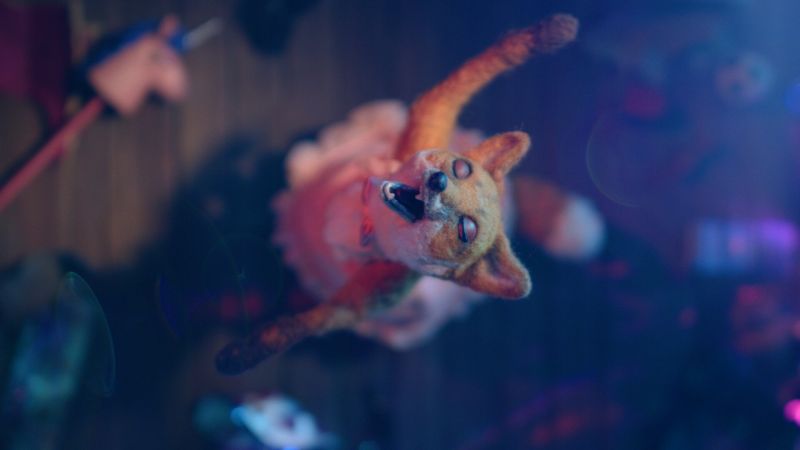
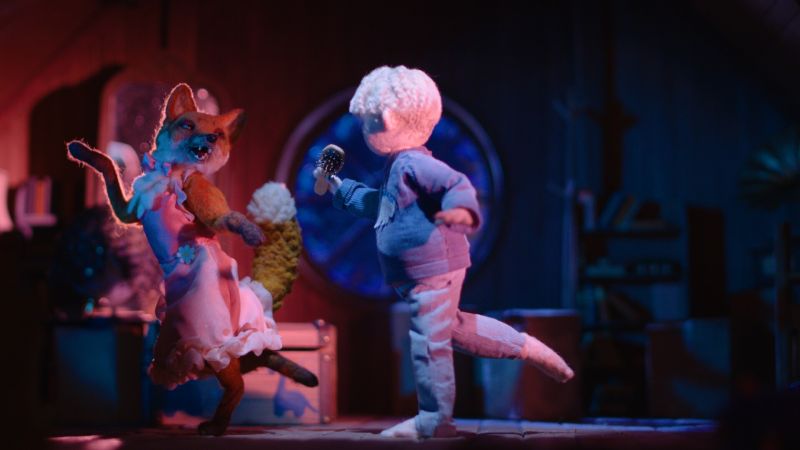
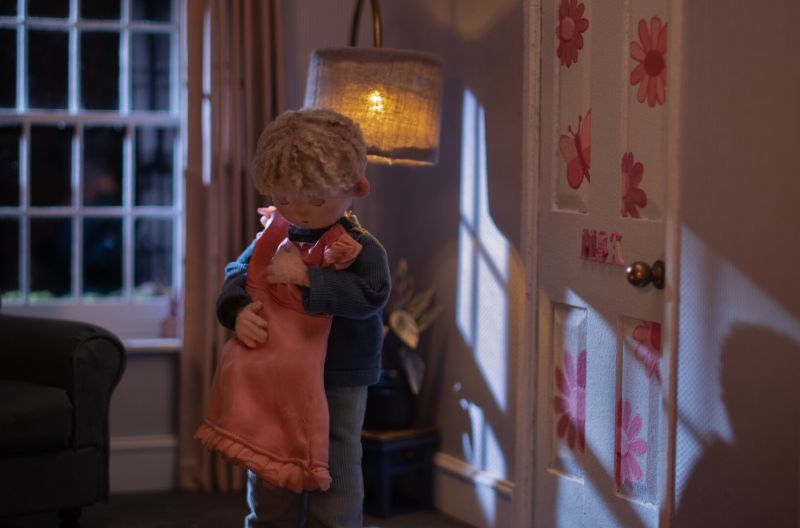
 Dragfox
Dragfox
Vereinigtes Königreich 2024 | Farbe |
08:10 | Englisch
 Dragfox
Dragfox
United Kingdom 2024 | Color |
08:10 | English
Sam wird durch einen singenden Fuchs bestärkt, sich selbst anzunehmen.
Sam is encouraged by a singing fox to embrace his true self.
Regie, Script:
Director, Script:
Lisa Ott
Script:
Script:
John Cooney
Kamera:
Director of photography:
Rufai Ajala
Editing:
Editing:
Mariana Moraes
Music:
Music:
Charli Mackie
Darsteller:innen:
Cast:
Aidan Gale
Darsteller:innen:
Cast:
Ian McKellen
Darsteller:innen:
Cast:
Owen Divina De Campo Farrow
Produzent:in, Script:
Producer, Script:
Owen Thomas
Checkout (2022)
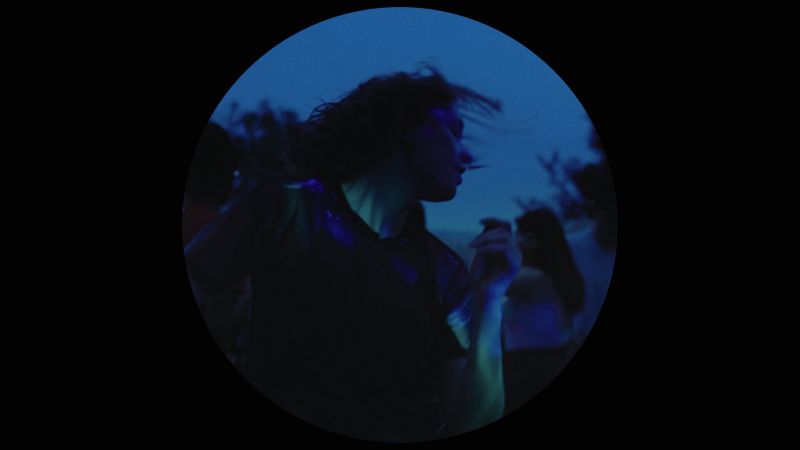
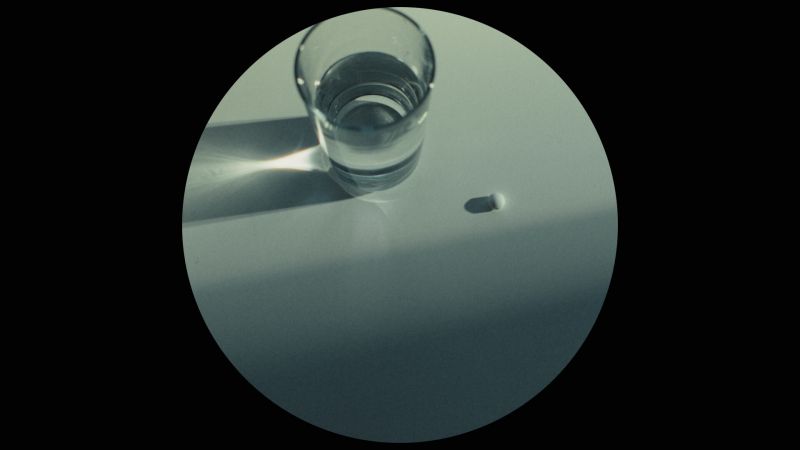
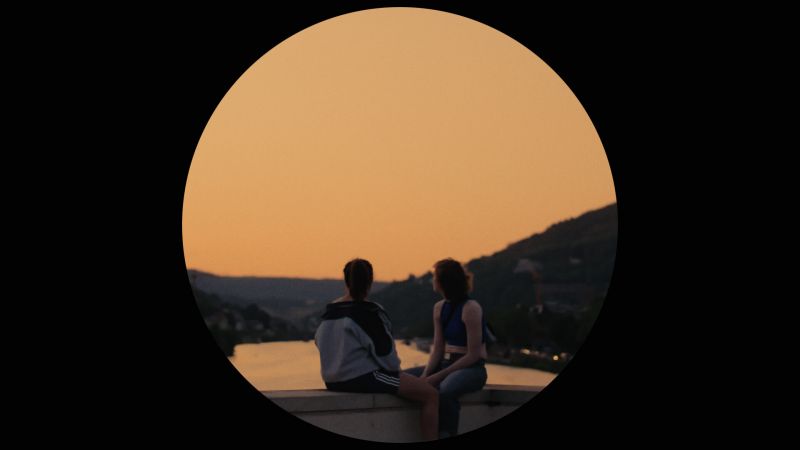
 Neun Tage im August (Nine Days in August)
Neun Tage im August (Nine Days in August)
Deutschland 2024 | Farbe |
17:03 | Deutsch
 Neun Tage im August (Nine Days in August)
Neun Tage im August (Nine Days in August)
Germany 2024 | Color |
17:03 | German
Lea ist 18 und schwanger. Statt Party zu machen, muss sie sich mit der Bürokratie einer Abtreibung auseinandersetzen.
Lea is 18 and pregnant. Instead of partying, she has to deal with the bureaucracy of an abortion.
Regie, Produzent:in:
Director, Producer:
Ella Knorz
Kamera:
Director of photography:
Lea Dähne
Darsteller:innen:
Cast:
Frank Voß
Darsteller:innen:
Cast:
Marie Nadja Haller
Darsteller:innen:
Cast:
Paula Winteler
Music composer:
Music composer:
Maximilian Kremser
Music composer:
Music composer:
Fabiola Wörter
Daddy (2023), Dreaming Bodies (2022)
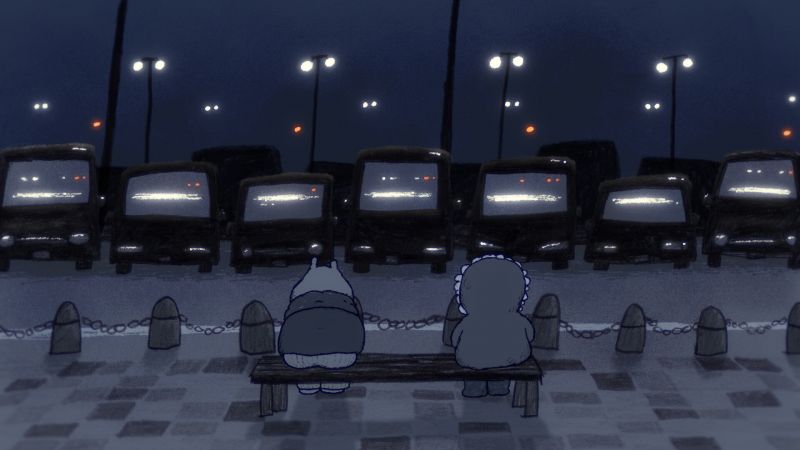
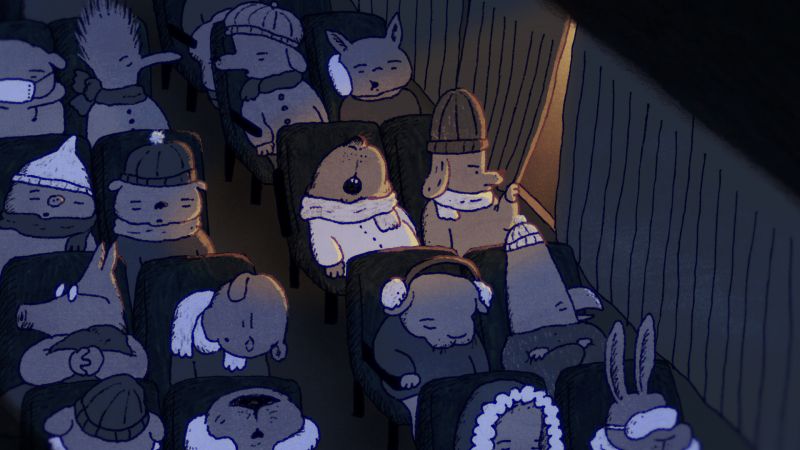
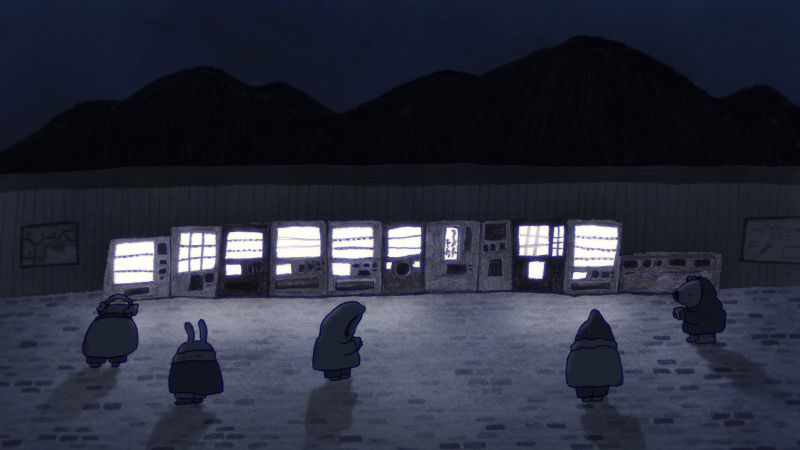
 パーキングエリアの夜 (A Night at the Rest Area)
パーキングエリアの夜 (A Night at the Rest Area)
Japan 2024 | Farbe |
11:34 | Japanisch
 パーキングエリアの夜 (A Night at the Rest Area)
パーキングエリアの夜 (A Night at the Rest Area)
Japan 2024 | Color |
11:34 | Japanese
Auf einem mitternächtlichen Highway-Rastplatz entspannen sich die müden Reisenden in aller Ruhe.
At a midnight highway rest area, weary travelers relax in peace.
Regie, Animation:
Director, Animation:
Saki Muramoto
Produzent:in:
Producer:
Sayaka Omodaka
Music, Ton:
Music, Sound design:
Saya Kikuchi
Happy New Year (2023), rain (2016), It’s Time for Supper (2013), People Who Are Eating (2012)

Mo&Friese Party: Wasserwelten (empf. ab 5) share
Mo&Friese Party: Water Worlds (from 5 years) share

 Maly Cousteau (The Little Cousteau)
Maly Cousteau (The Little Cousteau)
Tschechien 2013 | Farbe |
08:00 | Kein Dialog
 Maly Cousteau (The Little Cousteau)
Maly Cousteau (The Little Cousteau)
Czech Republic 2013 | Color |
08:00 | No Dialogue

 Tipp Topp
Tipp Topp
Norwegen 2016 | Farbe |
05:00 | Kein Dialog
 Tipp Topp
Tipp Topp
Norway 2016 | Color |
05:00 | No Dialogue
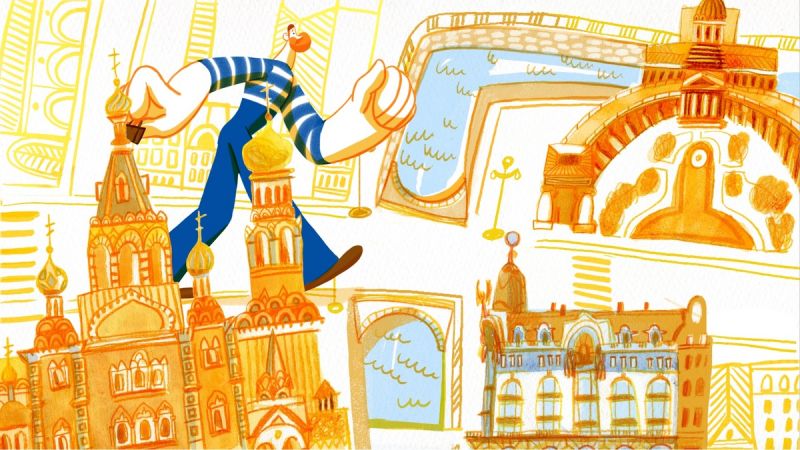
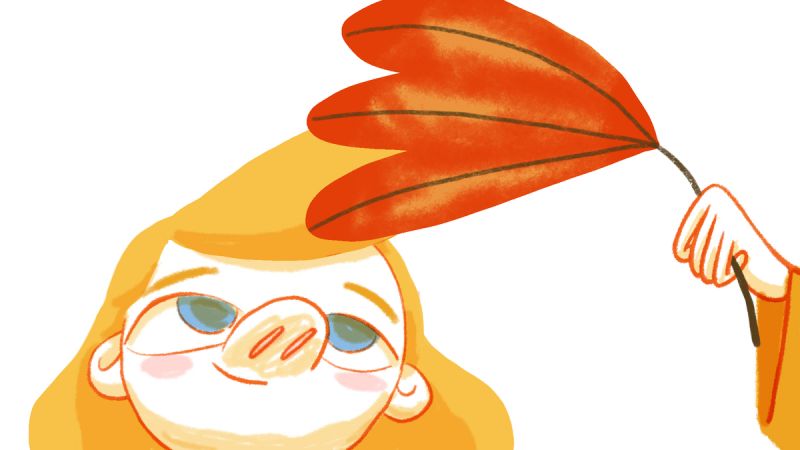
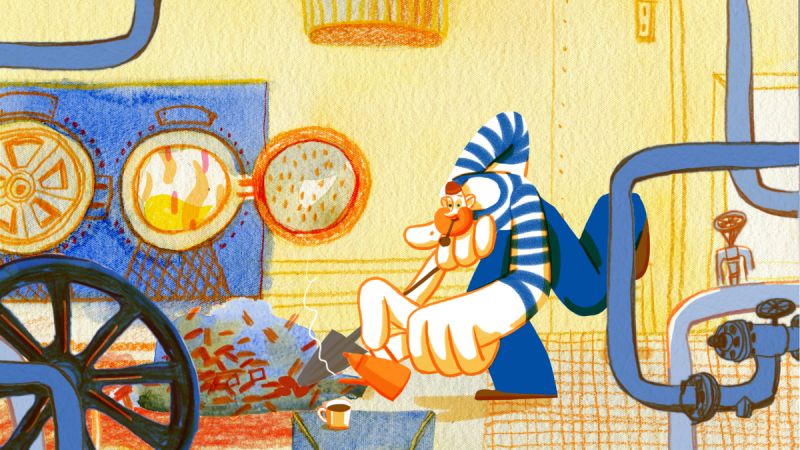
 Lístek (Leaf)
Lístek (Leaf)
Tschechien, Weißrussland 2020 | Farbe |
05:40 | Kein Dialog
 Lístek (Leaf)
Lístek (Leaf)
Czech Republic, Belarus 2020 | Color |
05:40 | No Dialogue
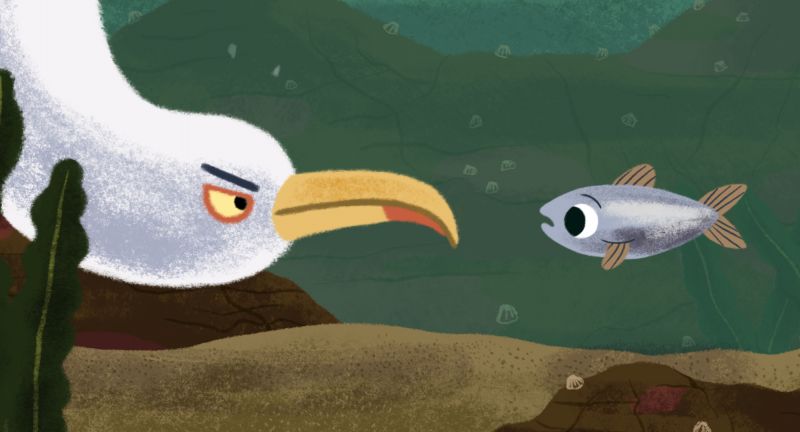
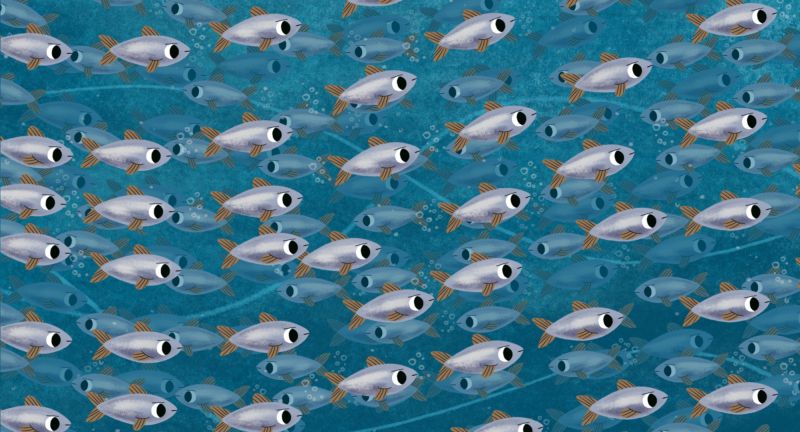
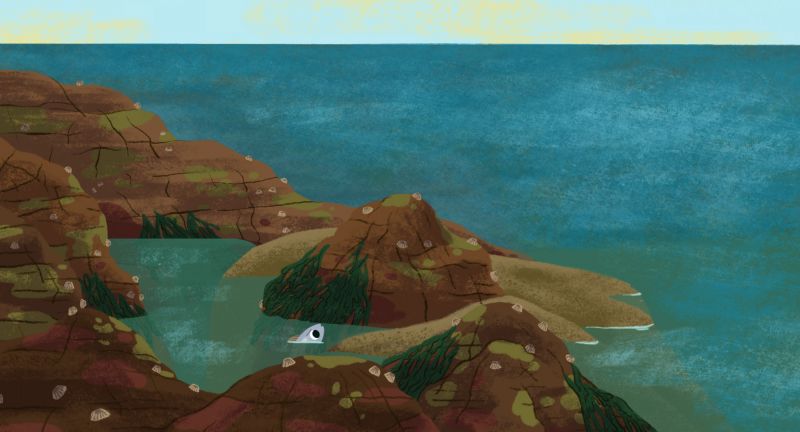
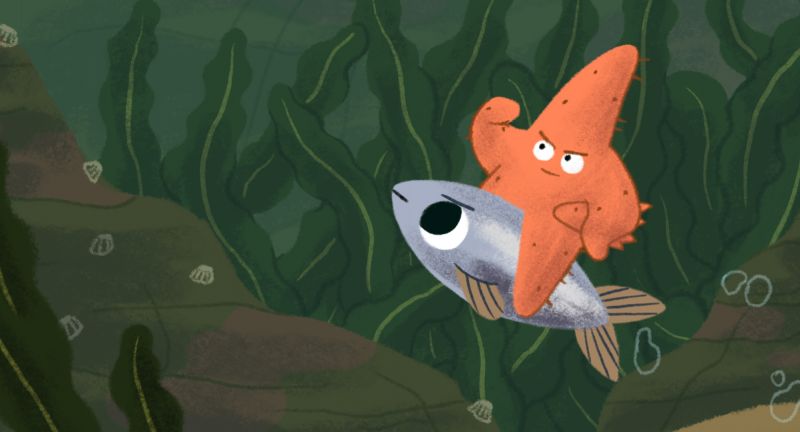
 Tümpel (Pond)
Tümpel (Pond)
Schweiz 2023 | Farbe |
08:30 | Kein Dialog
 Tümpel (Pond)
Tümpel (Pond)
Switzerland 2023 | Color |
08:30 | No Dialogue
Eine Gruppe kleiner Meerestiere wehrt sich gemeinsam gegen eine Möwe.
A group of small marine animals defend themselves together against a seagull.
Regie, Animation, Script:
Director, Animation, Script:
Lena von Döhren
Regie, Original script, Art Designer, Script:
Director, Original script, Art Designer, Script:
Eva Rust
Animation:
Animation:
Simon Eltz
Editing:
Editing:
Fee Liechti
Ton:
Sound design:
Thomas Gassmann
Ton:
Sound design:
Tobias Diggelmann
Produzent:in:
Producer:
Sarah Born
Sale Agent:
Sale Agent:
Georg Gruber
Music used:
Music used:
Martin Waespe
Der kleine Vogel und die Bienen (2020), Der kleine Vogel und die Raupe (2017), Der kleine Vogel und das Eichhörnchen (2014), Der kleine Vogel und das Blatt (2012)

NEON 1 (empf. ab 12) share
NEON 1 (from 12 years) share
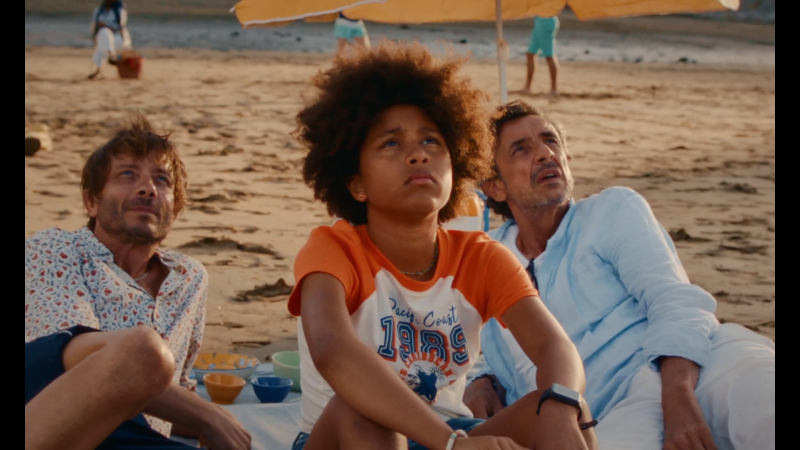
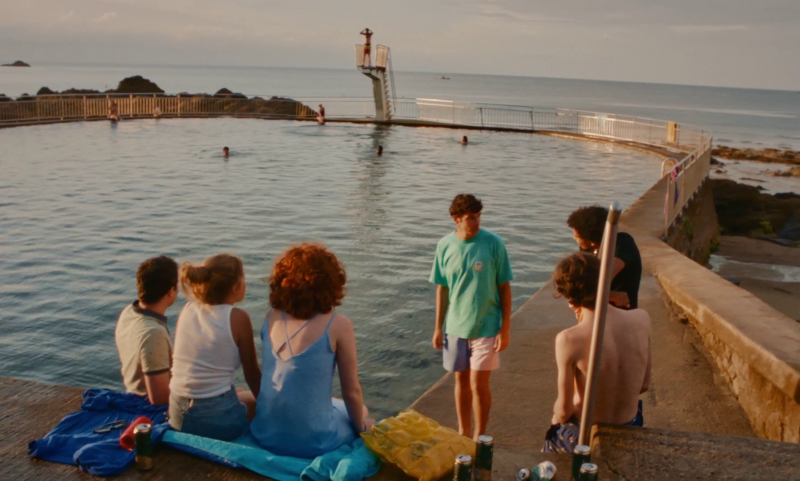
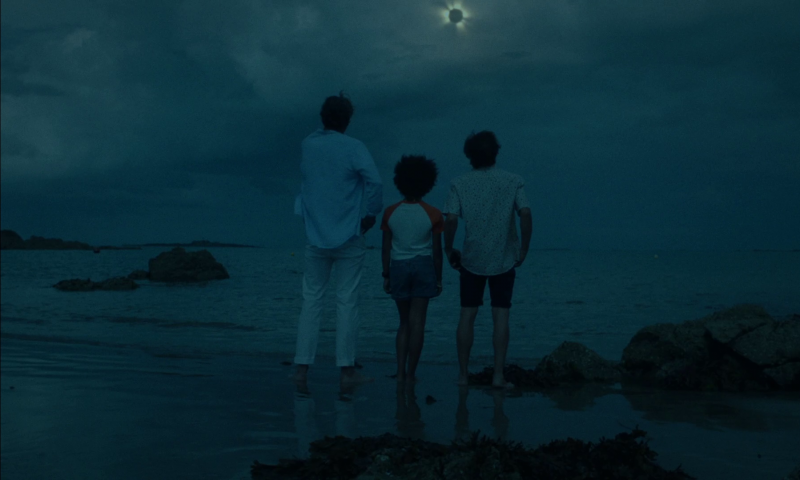
 Adieu soleil (Goodbye Sun)
Adieu soleil (Goodbye Sun)
Frankreich 2024 | Farbe |
20:53 | Französisch
 Adieu soleil (Goodbye Sun)
Adieu soleil (Goodbye Sun)
France 2024 | Color |
20:53 | French
Ein Tag am Strand endet sehr anders als erwartet.
A day at the beach ends very differently than expected.
Regie:
Director:
Hakim Atoui
Kamera:
Director of photography:
Konstantin Pape
Editing:
Editing:
Zoé Williamson
Music composer:
Music composer:
Arthur Dairaine Andrianaivo
Darsteller:innen:
Cast:
Ambre Mussard
Darsteller:innen:
Cast:
Amy Frignac
Darsteller:innen:
Cast:
Milo Palacci
Produzent:in:
Producer:
Quentin Daniel
Produktionsfirma:
Production company:
Wombat Films
The Man in the Showers (2025), Blood Ties (2024)



 Notes from Planet Three
Notes from Planet Three
Vereinigtes Königreich 2025 | Farbe |
14:09 | Englisch
 Notes from Planet Three
Notes from Planet Three
United Kingdom 2025 | Color |
14:09 | English
Ein Junge und seine zweijährige Schwester diskutieren über das Sonnensystem.
A boy and his two-year-old sister discuss the solar system, unfazed by the noise of social media.
Regie, Produzent:in, Kamera:
Director, Producer, Director of photography:
Simon Ellis
Editing:
Editing:
Miss O'Neill
Music:
Music:
Tom Bailey
Produzent:in:
Producer:
Rachel Robey
Produzent:in:
Producer:
Alastair Clark
Darsteller:innen:
Cast:
Eben Harris-Wilby
Darsteller:innen:
Cast:
Mala Harris-Wilby
(Selection) The Terminator (2023), Ostrich Theory (2020), World War Cup (2016), Stew & Punch (2013), Jam Today (2011), Soft (2007)
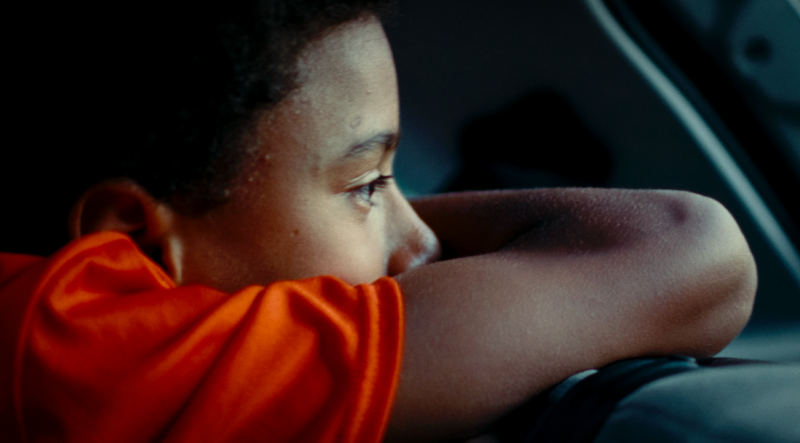
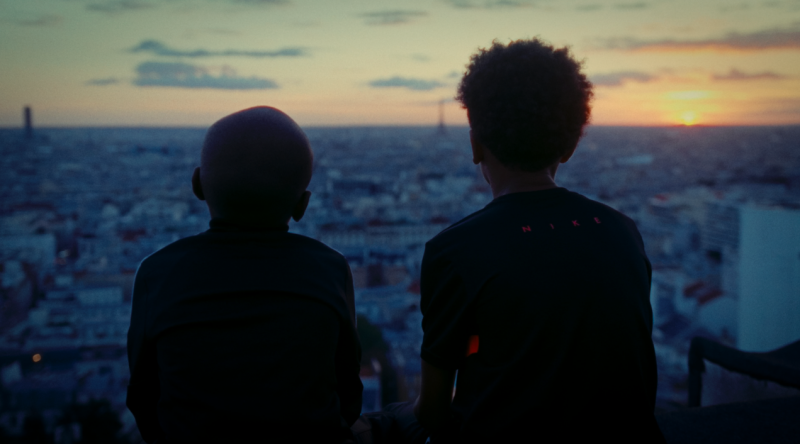
 Adieu Belleville (So Long Belleville)
Adieu Belleville (So Long Belleville)
Frankreich 2024 | Farbe |
12:51 | Französisch
 Adieu Belleville (So Long Belleville)
Adieu Belleville (So Long Belleville)
France 2024 | Color |
12:51 | French
Sylla verbringt einen sorglosen Sommer, bis ihm klar wird, dass Geldsorgen diesem Leben ein Ende bereiten werden.
Sylla spends a carefree summer until he realizes that money worries will put an end to his life.
Regie:
Director:
Adam Hegazy
Script:
Script:
Marlène Poste
Script:
Script:
Adam Hegazy
Kamera:
Director of photography:
Hadrien Vedel
Editing:
Editing:
Nathan Jacquard
Editing:
Editing:
Joris Laquittant
Film score composer, Music:
Film score composer, Music:
Martial FOE
Sound Editing, Ton:
Sound Editing, Sound design:
Mhand Abadou
Sound Mixing, Ton:
Sound Mixing, Sound design:
Yanis Do Couto
Art Designer:
Art Designer:
Andrea Maury
Darsteller:innen:
Cast:
Idrissa Soumare
Darsteller:innen:
Cast:
Jina Djemba
Darsteller:innen:
Cast:
Farida Ouchani
Darsteller:innen:
Cast:
Oumar Gueye
Darsteller:innen:
Cast:
Simon Aouizerate
Distribution / Sale:
Distribution / Sale:
Eliott Khayat
Produzent:in:
Producer:
Eliott Khayat
Referent contact:
Referent contact:
production Mauvaise Troupe
La Dounia (2020)
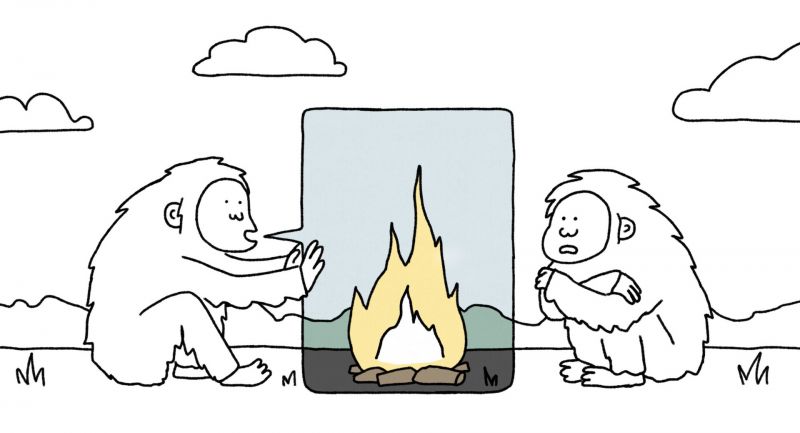
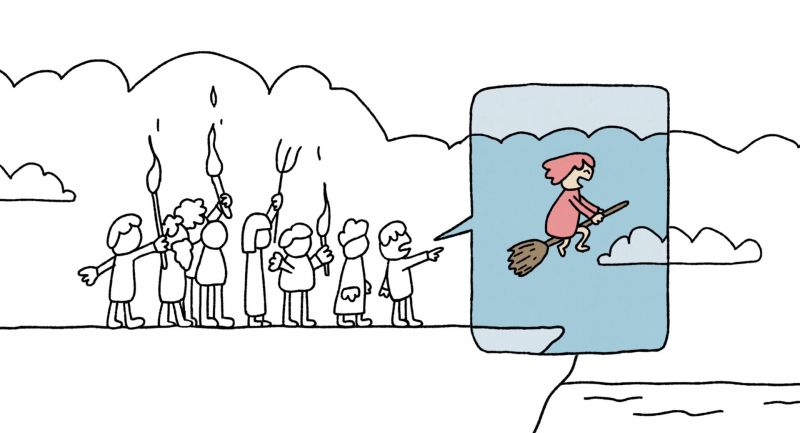
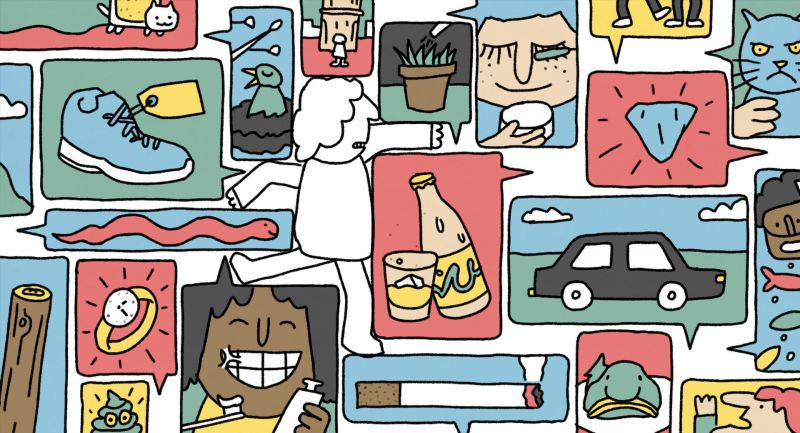
 Storytelling
Storytelling
Schweiz 2024 | Farbe |
07:41 | Kein Dialog
 Storytelling
Storytelling
Switzerland 2024 | Color |
07:41 | No Dialogue
Von Höhlenzeichnungen zu Echokammern: Die Geschichte der Menschheit als Geschichte des Geschichtenerzählens.
From cave drawings to echo chambers, the story of humanity is a story of storytelling.
Regie, Produzent:in:
Director, Producer:
Nils Hedinger
Music:
Music:
Martin Waespe
Ton:
Sound design:
Thomas Gassmann
Produzent:in:
Producer:
Lina Geissmann
Kuap (2018), Timber (2014)
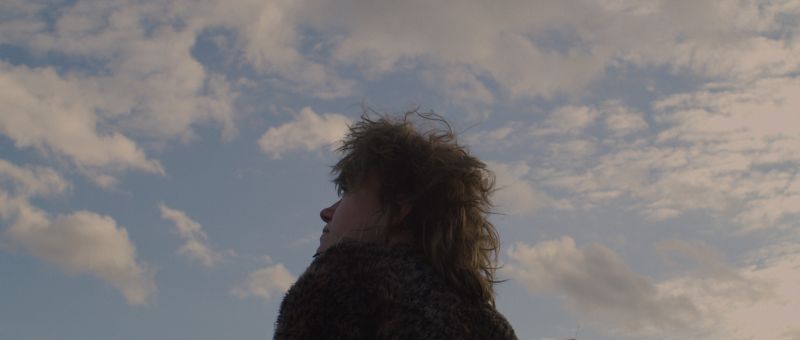
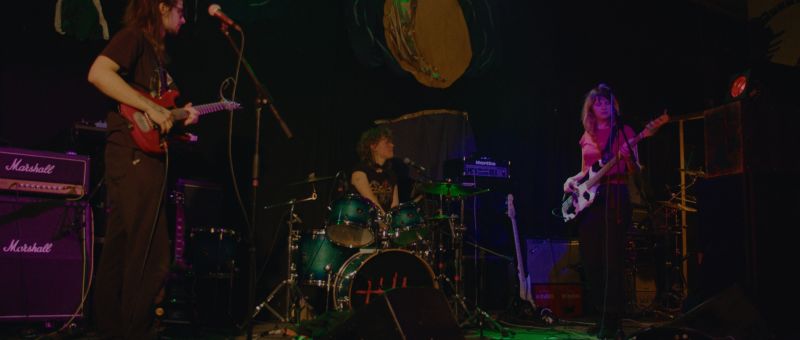
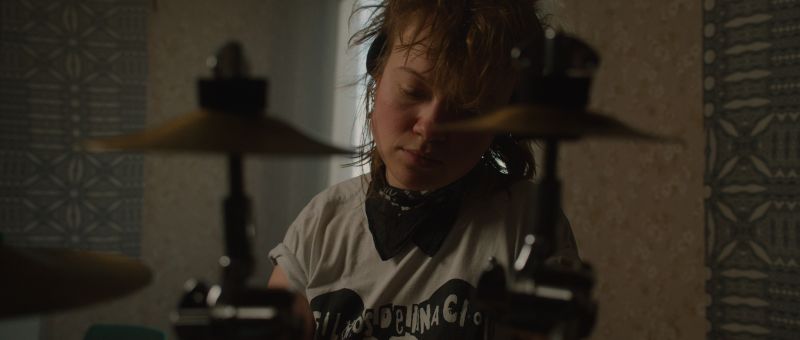
 Ich bin Wiete (My Name Is Wiete)
Ich bin Wiete (My Name Is Wiete)
Deutschland 2024 | Farbe |
08:46 | Deutsch
 Ich bin Wiete (My Name Is Wiete)
Ich bin Wiete (My Name Is Wiete)
Germany 2024 | Color |
08:46 | German
Wiete zeigt, wie der Punkrock, ihr soziales Umfeld und ihre Behinderung ihre starke Identität geprägt haben.
Wiete shows how punk rock, her social environment, and her disability have shaped her strong identity.
Regie, Kamera, Editing, Produzent:in:
Director, Director of photography, Editing, Producer:
Joël van As
Ton:
Sound design:
Rafael Fortuna
Darsteller:innen:
Cast:
Wiete Zepperitz
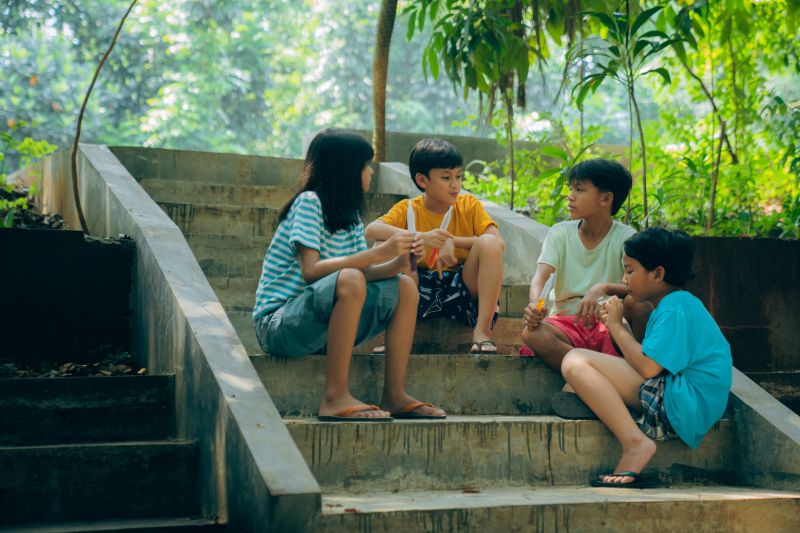
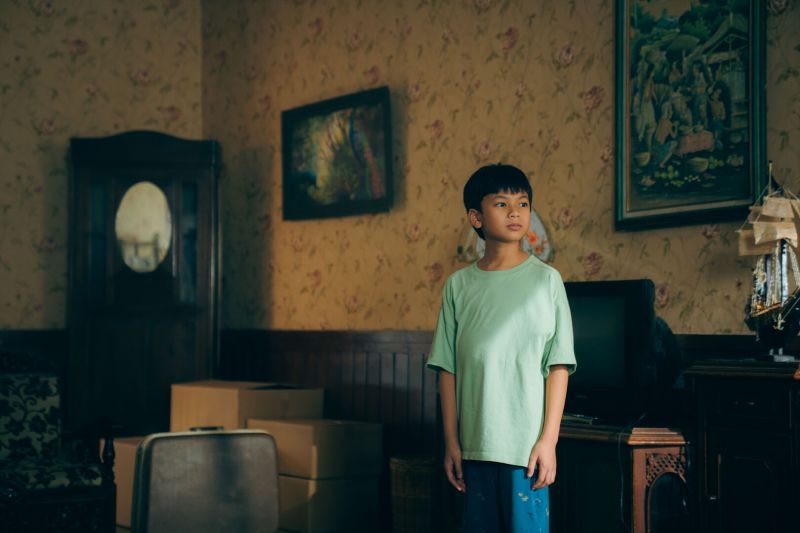
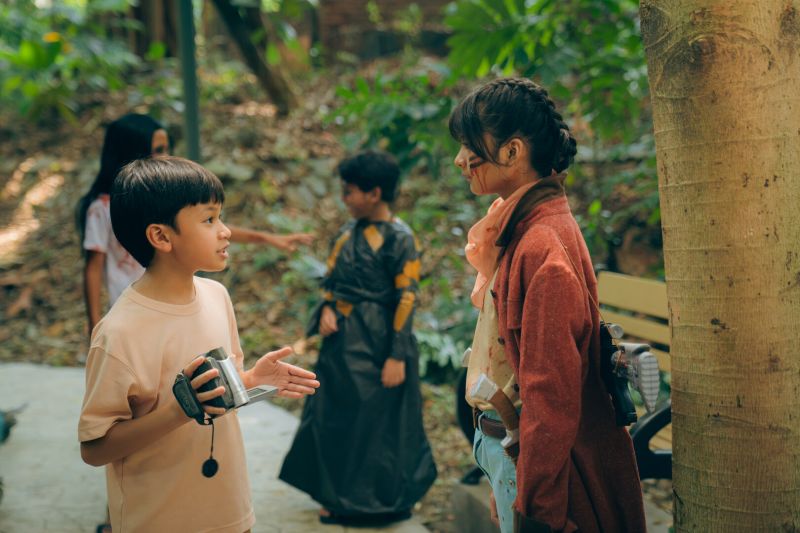
 Little Rebels Cinema Club
Little Rebels Cinema Club
Indonesien 2024 | Farbe |
17:00 | Indonesisch
 Little Rebels Cinema Club
Little Rebels Cinema Club
Indonesia 2024 | Color |
17:00 | Indonesian
Doddy möchte mit seinen Freund:innen eine Szene aus einem Zombiefilm nachstellen.
Doddy wants to recreate a scene from a zombie movie with his friends.
Regie, Script, Editing:
Director, Script, Editing:
Khozy Rizal
Kamera:
Director of photography:
Andi Moch. Palaguna
Music:
Music:
Nabil Harindyaswara
Ton:
Sound design:
Dandy Fauzan
Verleihfirma:
Distributor:
Flavio Armone
Produzent:in:
Producer:
Rayner Wijaya
Produzent:in:
Producer:
Hardy Yohansyah
Basri & Salma in a Never-Ending Comedy (2023), Ride to Nowhere (2022), Makassar Is a City for Football Fans (2021)

NEON 2 (empf. ab 14) share
NEON 2 (from 14 years) share
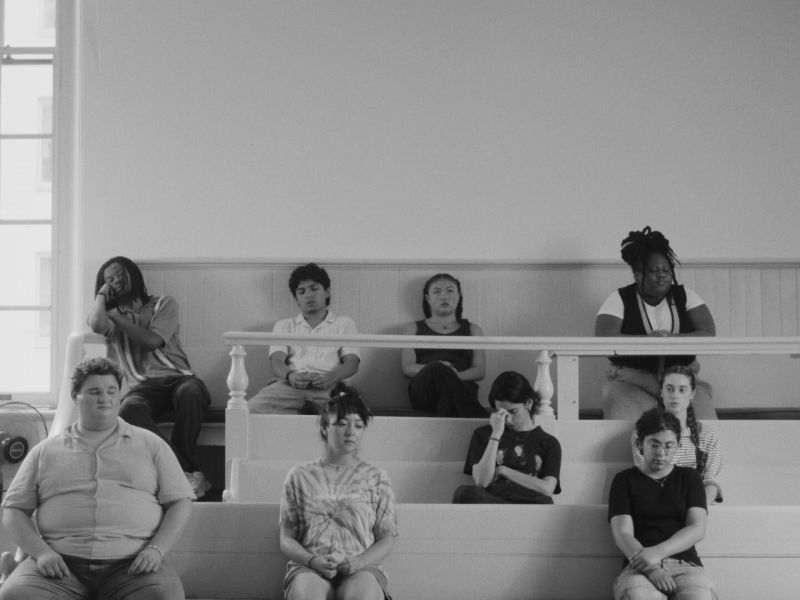
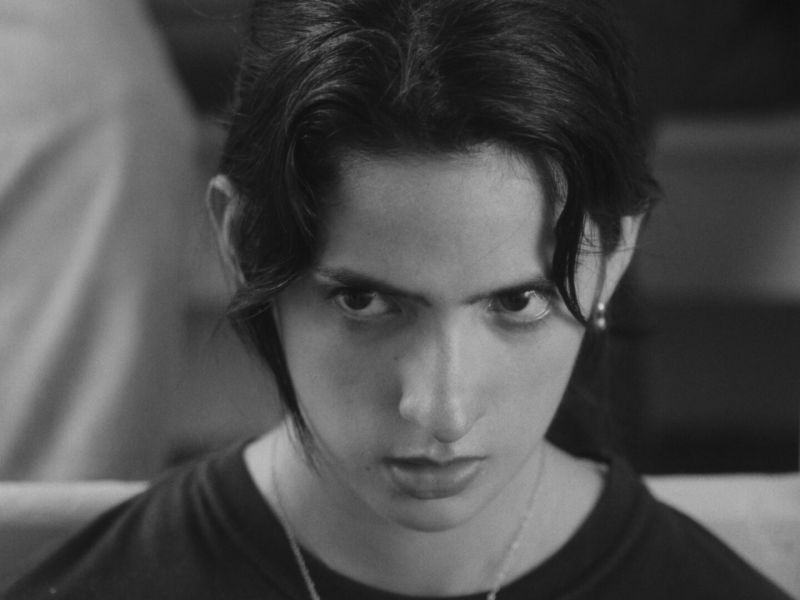
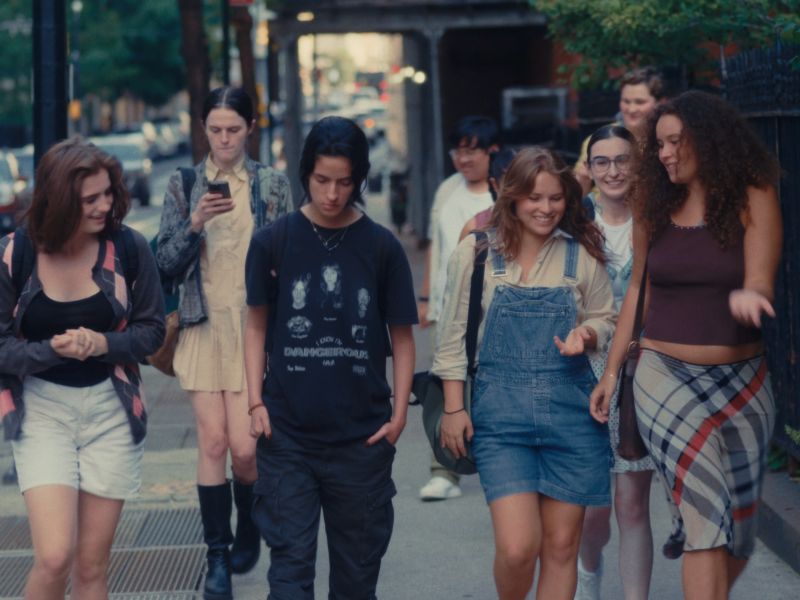
 Quaker
Quaker
Vereinigte Staaten 2024 | Black & White and Color |
16:10 | Englisch
 Quaker
Quaker
United States 2024 | Black & White and Color |
16:10 | English
Bei der letzten Quäkerversammlung des Jahres teilen Highschool-Abgänger:innen ihre ungefilterten Gefühle miteinander.
At the last Quaker meeting of the year, high school graduates share their unfiltered feelings.
Regie, Produzent:in, Script:
Director, Producer, Script:
Giovanna Molina
Script:
Script:
Louisa Grenham
Kamera:
Director of photography:
Vittoria Campaner
Editing:
Editing:
Danielle Criqui
Ton:
Sound design:
Rachel Ruggles
Executive producer:
Executive producer:
Nuer Taqa
Produzent:in:
Producer:
Dylan Gee
Produzent:in:
Producer:
Eve Bromberg
Produzent:in:
Producer:
Zoey Pressey
Hickey (2023), Deer Girl (2022)
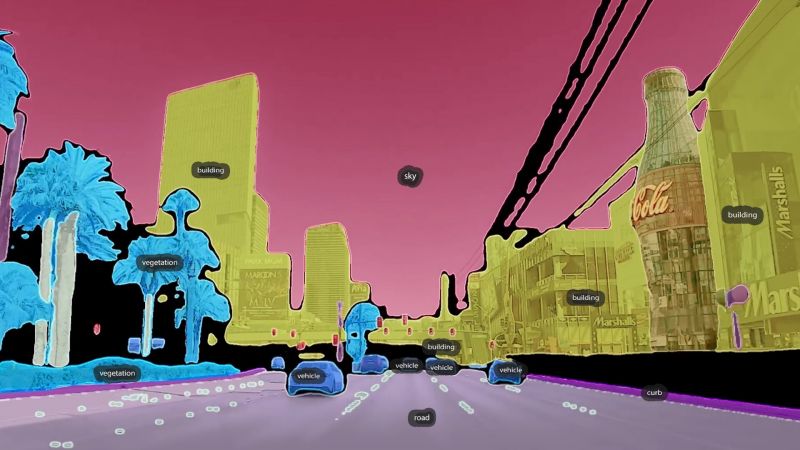
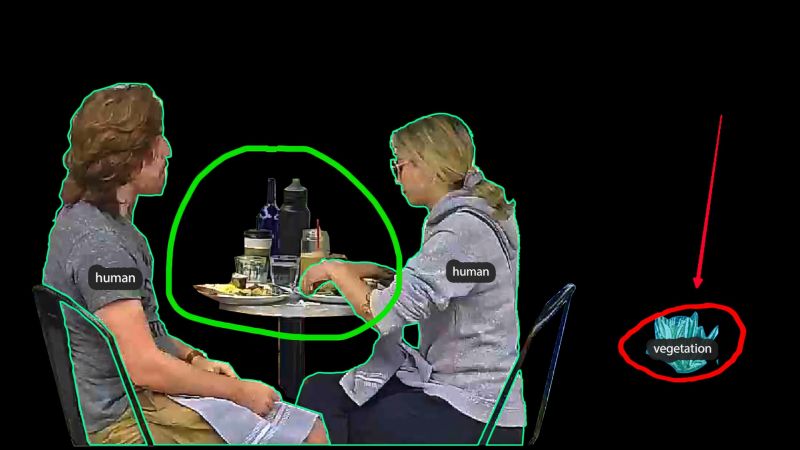
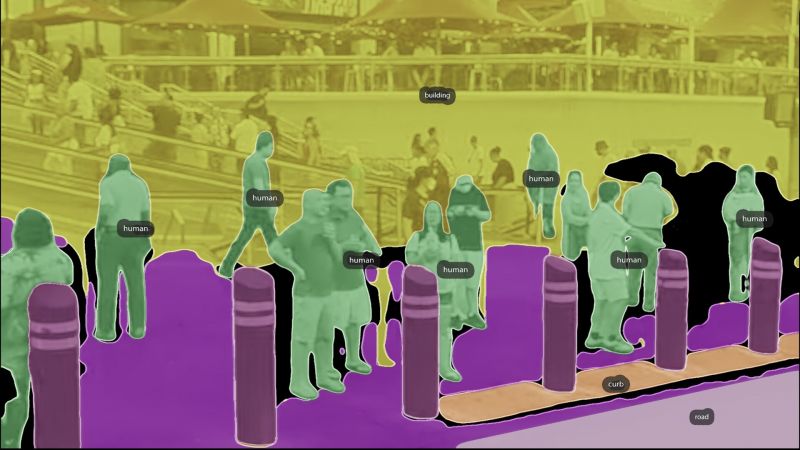
 Their Eyes
Their Eyes
Frankreich 2025 | Farbe |
22:36 | Englisch, Spanisch
 Their Eyes
Their Eyes
France 2025 | Color |
22:36 | English, Spanish
Wie lernt eine Maschine, die Welt zu lesen? Nur mithilfe von Online-Mikroarbeiter:innen aus dem globalen Süden!
How does a machine learn to read the world? Only with the help of online microworkers from the global south!
Regie, Animation, Script, Editing:
Director, Animation, Script, Editing:
Nicolas Gourault
Kamera:
Director of photography:
Yvon, Oliver, Jonel
Editing:
Editing:
Lucas Azémar
Editing:
Editing:
Félix Rehm
Ton:
Sound design:
Etienne André
Produzent:in:
Producer:
Quentin Brayer
Produzent:in:
Producer:
Yannick Beauquis
Sales:
Sales:
Square Eyes
VO (2020), This Means More (2019)
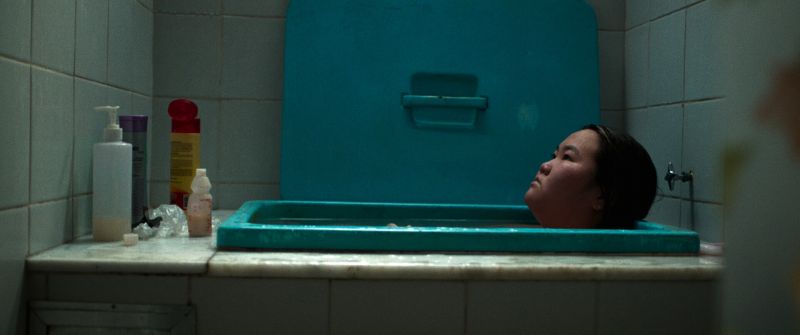
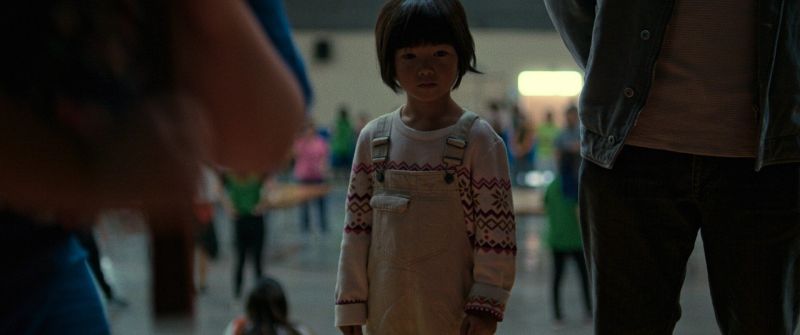
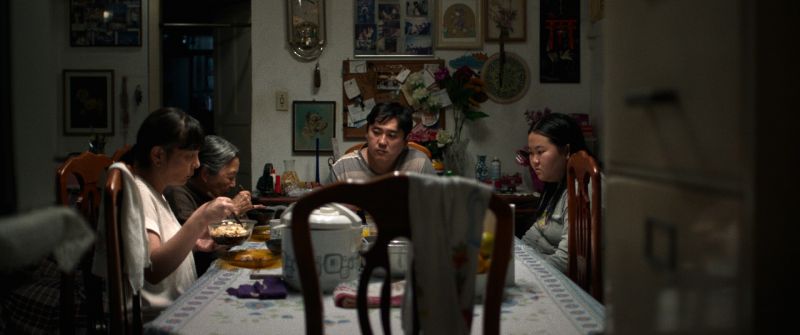
 Amarela
Amarela
Brasilien 2024 | Farbe |
15:00 | Japanisch, Portugiesisch
 Amarela
Amarela
Brazil 2024 | Color |
15:00 | Japanese, Portuguese
Ein rassistischer Vorfall bei einer Feier zur Fußball-WM ändert schmerzlich Erikas Sicht auf Zugehörigkeit.
Content notes:
Racism
Erika and her friends celebrate the World Cup. But a racist incident changes their view of their belonging.
Content notes:
Racism
Kamera:
Director of photography:
Hélcio Alemão Nagamine
Editing:
Editing:
Caroline Leone
Music:
Music:
Dudu Tsuda
Music:
Music:
Lilian Nakahodo
Ton:
Sound design:
Guile Martins
Regie, Script:
Director, Script:
André Hayato Saito
Kontakt:
Contact:
Salaud Morisset
Darsteller:innen:
Cast:
Melissa Uehara
Produzent:in:
Producer:
Mayra Faour Auad
Produzent:in:
Producer:
Gabrielle Auad
Vento Dourado (2023), Kokoro to Kokoro (2022), Luz (2017), Tom Sadly (2013), Hélio Leites (2011)



 パーキングエリアの夜 (A Night at the Rest Area)
パーキングエリアの夜 (A Night at the Rest Area)
Japan 2024 | Farbe |
11:34 | Japanisch
 パーキングエリアの夜 (A Night at the Rest Area)
パーキングエリアの夜 (A Night at the Rest Area)
Japan 2024 | Color |
11:34 | Japanese
Auf einem mitternächtlichen Highway-Rastplatz entspannen sich die müden Reisenden in aller Ruhe.
At a midnight highway rest area, weary travelers relax in peace.
Regie, Animation:
Director, Animation:
Saki Muramoto
Produzent:in:
Producer:
Sayaka Omodaka
Music, Ton:
Music, Sound design:
Saya Kikuchi
Happy New Year (2023), rain (2016), It’s Time for Supper (2013), People Who Are Eating (2012)
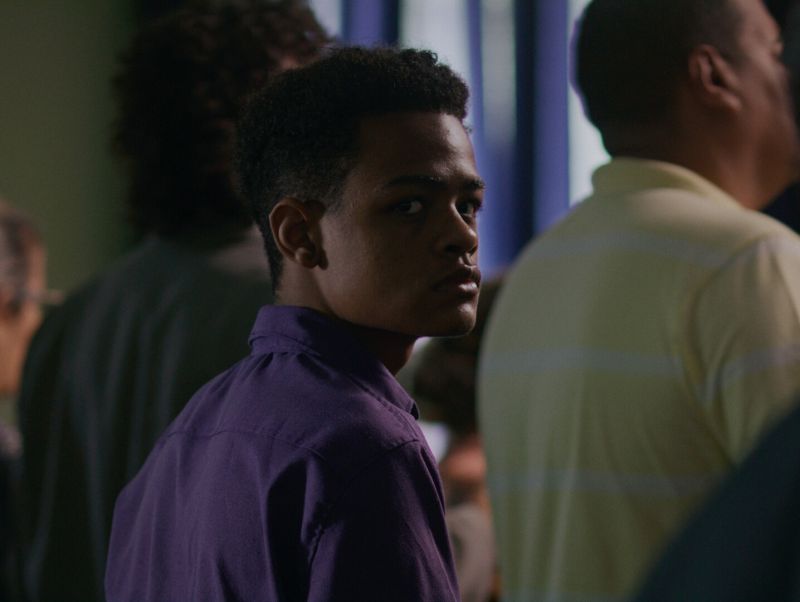
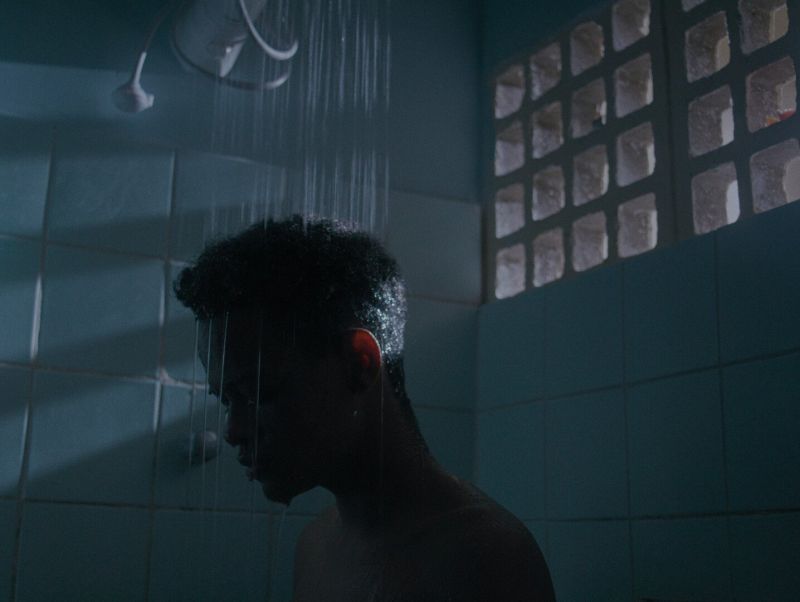
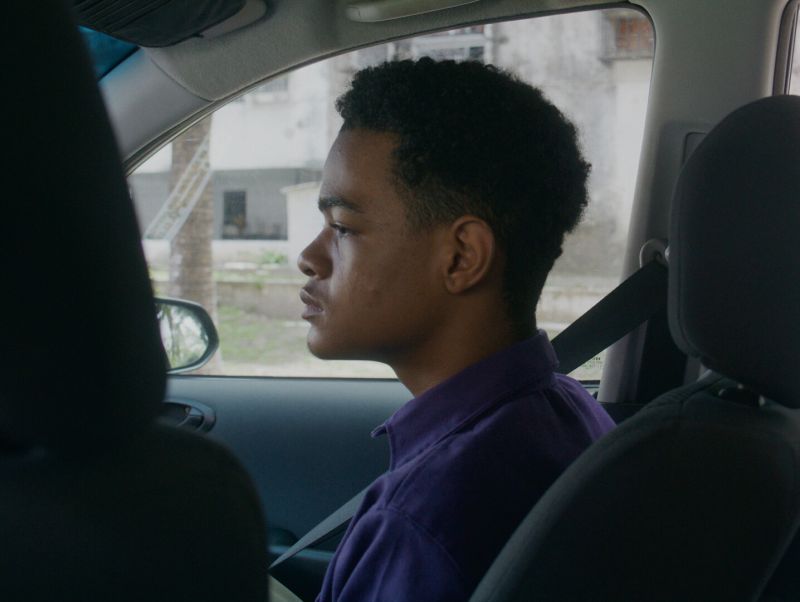
 Queimando por Dentro (Burning Inside)
Queimando por Dentro (Burning Inside)
Brasilien 2024 | Farbe |
16:26 | Portugiesisch
 Queimando por Dentro (Burning Inside)
Queimando por Dentro (Burning Inside)
Brazil 2024 | Color |
16:26 | Portuguese
Samuel darf nicht mehr Teil der kirchlichen Tanzgruppe sein. Um sich treu zu bleiben, muss er sich gegen seinen Vater behaupten.
Content notes:
Discrimation against LGBTQ+
Samuel is no longer allowed to be part of the church dance troupe. To find himself, he must stand up to his father.
Content notes:
Discrimation against LGBTQ+
Regie, Produzent:in, Script:
Director, Producer, Script:
Enock Carvalho
Regie, Script, Editing:
Director, Script, Editing:
Matheus Farias
Kamera:
Director of photography:
Gustavo Pessoa
Kontakt:
Contact:
Gatopardo Filmes
Darsteller:innen:
Cast:
Pedro Lucas
Inabitável (2020), Caranguejo Rei (2019), Quarto para alugar (2016)

NEON 3 (empf. ab 14) share
NEON 3 (from 14 years) share
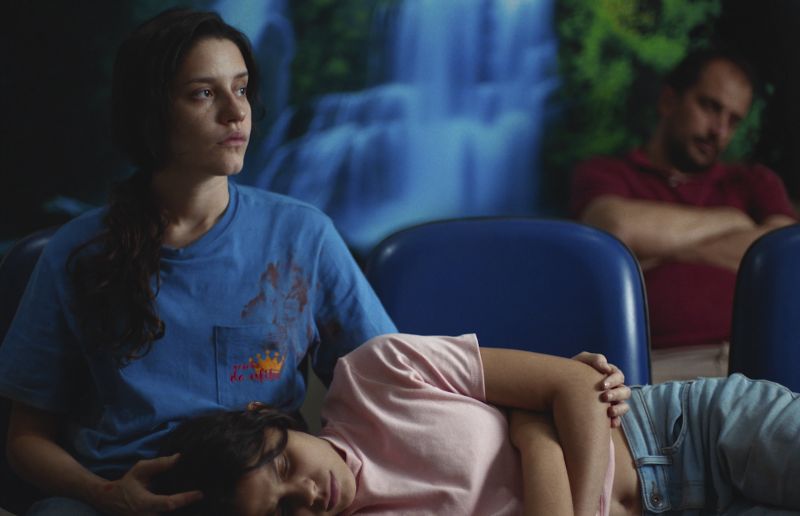
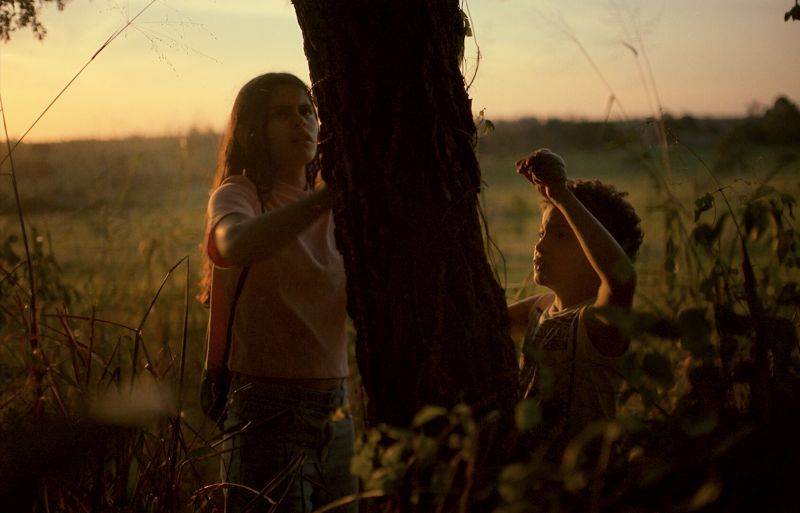
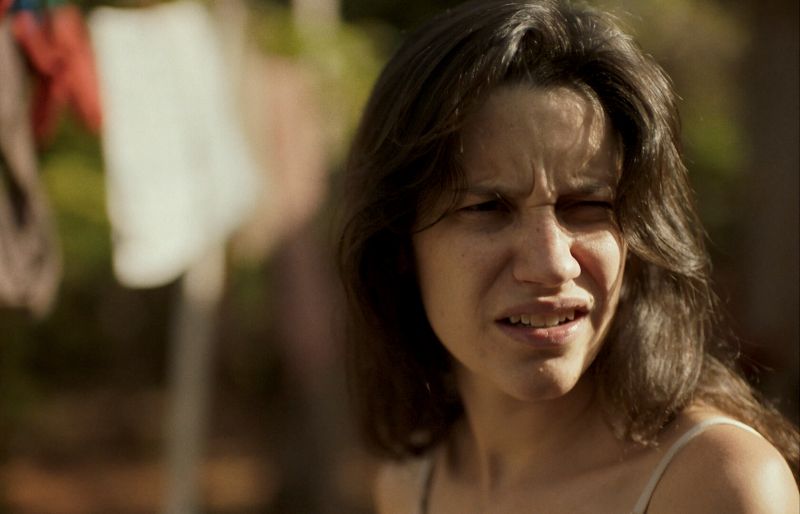
 Arame Farpado (Barbed Wire)
Arame Farpado (Barbed Wire)
Brasilien 2024 | Farbe |
21:52 | Portugiesisch
 Arame Farpado (Barbed Wire)
Arame Farpado (Barbed Wire)
Brazil 2024 | Color |
21:52 | Portuguese
Im Trubel der Notaufnahme werden zwei Schwestern und ihr Stiefvater mit der eigenen Familiendynamik konfrontiert.
In the hustle and bustle of the emergency room, two sisters and their stepfather are confronted with their own family dynamics.
Regie:
Director:
Gustavo de Carvalho
Darsteller:innen:
Cast:
Camila Botelho
Darsteller:innen:
Cast:
Isabella Guido
Darsteller:innen:
Cast:
Ricardo Bagge
Produzent:in:
Producer:
Luisa Cação
Electric Lands (2024), Blank Ballot (2022), Our Uncle Pedro (2021), 2023 (2020), Hot Chocolate (2019), Apotheosis (2018)
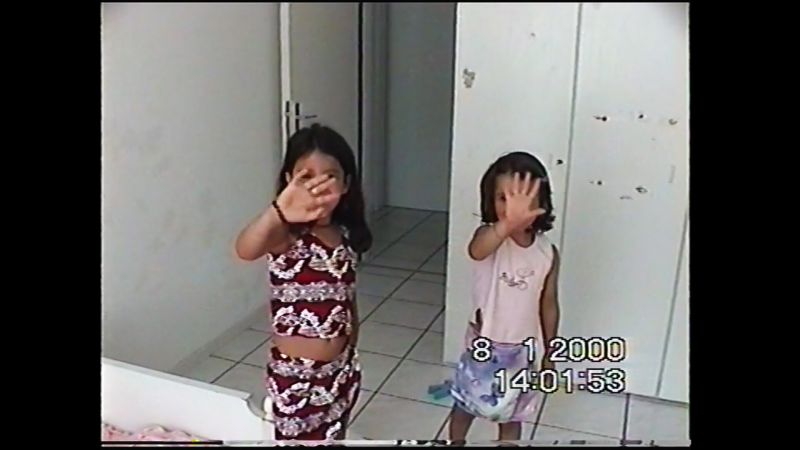
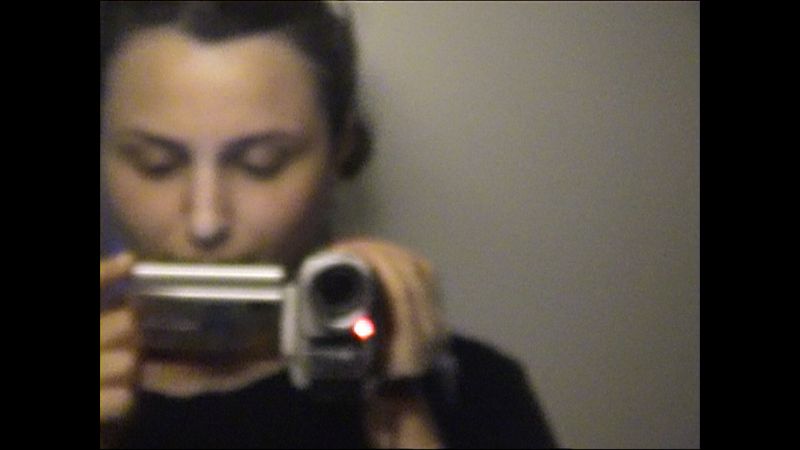
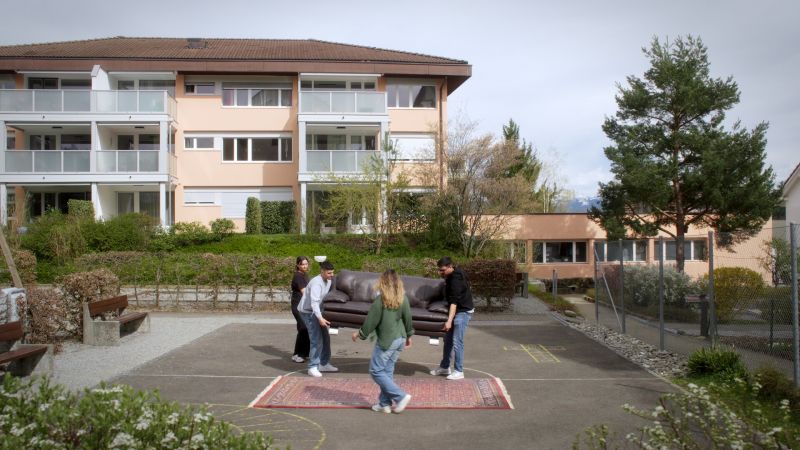
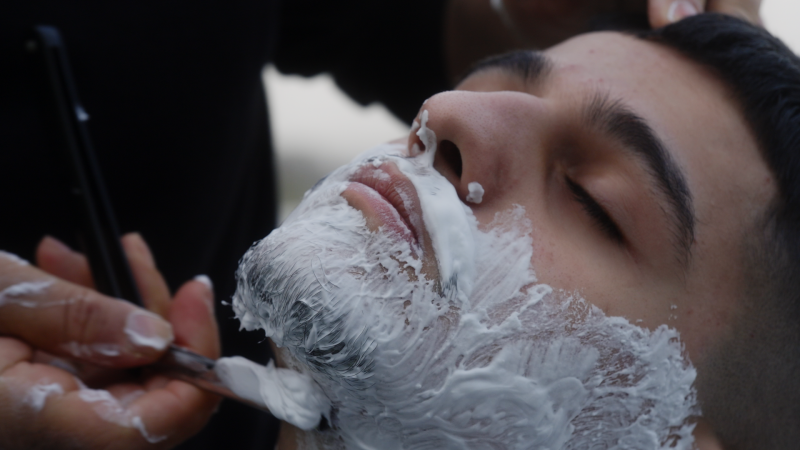
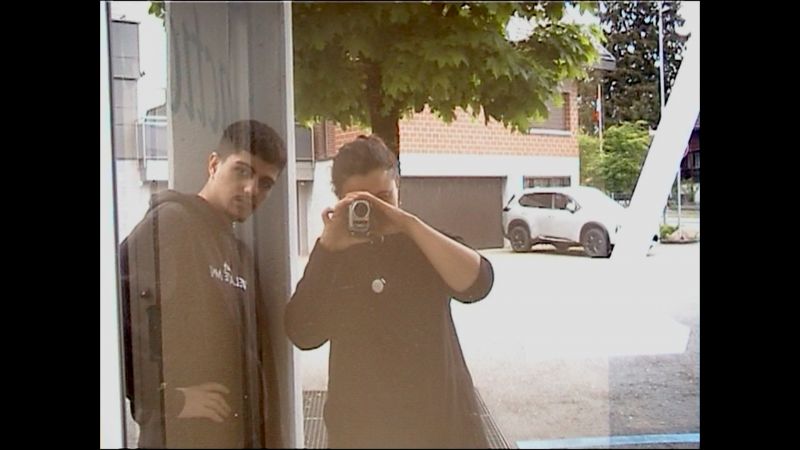
 Unser Name ist Ausländer (Our Name Is Foreigner)
Unser Name ist Ausländer (Our Name Is Foreigner)
Schweiz 2024 | Farbe |
20:52 | Schweizerdeutsch, Kurdish, Türkisch
 Unser Name ist Ausländer (Our Name Is Foreigner)
Unser Name ist Ausländer (Our Name Is Foreigner)
Switzerland 2024 | Color |
20:52 | Swiss German, Kurdish, Turkish
Vier Geschwister teilen ihre Familiengeschichte im öffentlichen Raum.
Sie ist bestimmt von Wut, Fremdbestimmung, Angst und Resilienz.
Content notes:
Racism
Four siblings share their family history in a public space defined by anger, alienation, fear, and resilience.
Content notes:
Racism
Regie, Script:
Director, Script:
Selin Besili
Kamera:
Director of photography:
Sara Čolić
Kamera:
Director of photography:
Lucas Frey
Editing:
Editing:
Selin Dettwiler
Music used, Music:
Music used, Music:
Michael Wall
Sound Designer:
Sound Designer:
Arlind Sermaxhaj
Darsteller:innen:
Cast:
Hanifi Firat Besili
Darsteller:innen:
Cast:
Hêlîn Besili
Darsteller:innen:
Cast:
Serhat Besili
Original script:
Original script:
Selin Besili
Produzent:in:
Producer:
Film and Art
Produzent:in:
Producer:
Lucerne University of Applied Sciences and Arts - Design
Produzent:in:
Producer:
Volko Kamensky
Produzent:in:
Producer:
Urs Augstburger
Sound Editing:
Sound Editing:
Arlind Sermaxhaj
Voice Over:
Voice Over:
Selin Besili
Daughter Cell (2023)
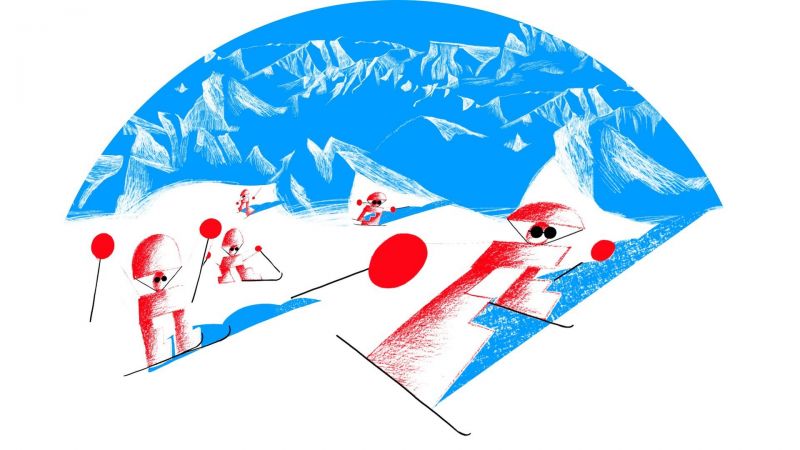
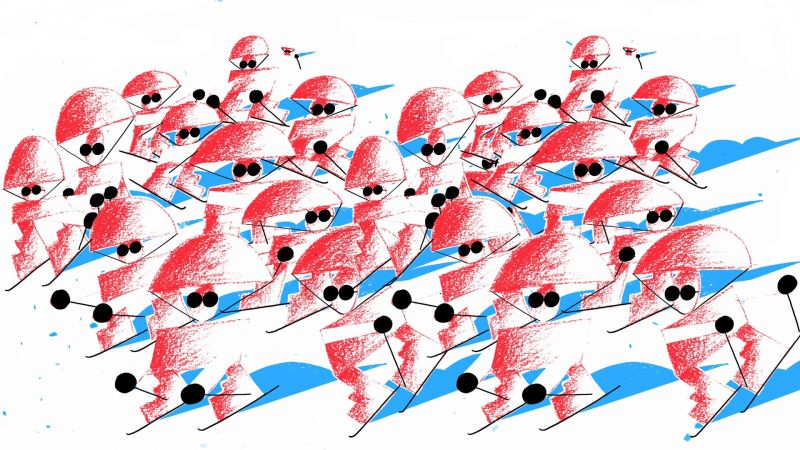
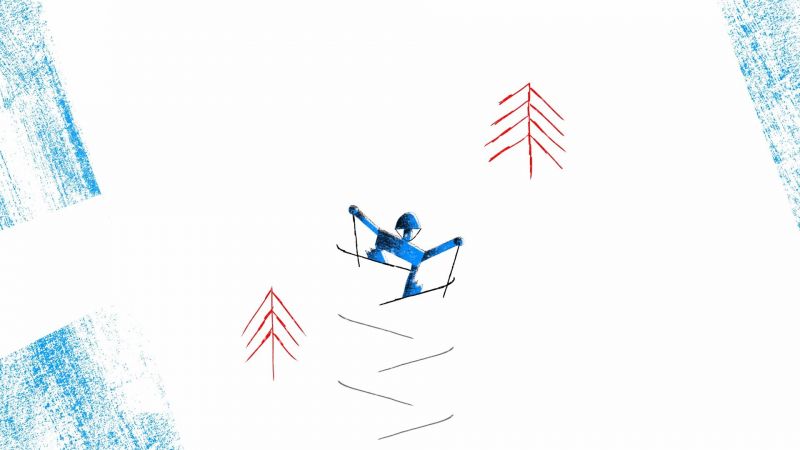
 Freeride in C
Freeride in C
Lettland 2024 | Farbe |
10:12 | Kein Dialog
 Freeride in C
Freeride in C
Latvia 2024 | Color |
10:12 | No Dialogue
Die weiße Stille der Berge wird von bunten Wintersportler:innen gestört, die sich beim Skifahren vergnügen.
The white silence of the mountains is disturbed by colorful winter sportsmen who enjoy skiing.
Regie, Animation, Script:
Director, Animation, Script:
Edmunds Jansons
Animation:
Animation:
Mārtiņš Dūmiņš
Music composer:
Music composer:
Terry Riley
Music performer, Music:
Music performer, Music:
The Young Gods
Ton:
Sound design:
Ģirts Bišs
Produzent:in:
Producer:
Sabine Andersone
Sales:
Sales:
Square Eyes
(Selection) Guard of Honour (2021), Jacob, Mimmi and the Talking Dogs (2019), Pigtail and Mr. Sleeplessness (2017), Isle Of Seals (2014), Choir Tour (2012), Little Birds Diary (2007)



 Neun Tage im August (Nine Days in August)
Neun Tage im August (Nine Days in August)
Deutschland 2024 | Farbe |
17:03 | Deutsch
 Neun Tage im August (Nine Days in August)
Neun Tage im August (Nine Days in August)
Germany 2024 | Color |
17:03 | German
Lea ist 18 und schwanger. Statt Party zu machen, muss sie sich mit der Bürokratie einer Abtreibung auseinandersetzen.
Lea is 18 and pregnant. Instead of partying, she has to deal with the bureaucracy of an abortion.
Regie, Produzent:in:
Director, Producer:
Ella Knorz
Kamera:
Director of photography:
Lea Dähne
Darsteller:innen:
Cast:
Frank Voß
Darsteller:innen:
Cast:
Marie Nadja Haller
Darsteller:innen:
Cast:
Paula Winteler
Music composer:
Music composer:
Maximilian Kremser
Music composer:
Music composer:
Fabiola Wörter
Daddy (2023), Dreaming Bodies (2022)
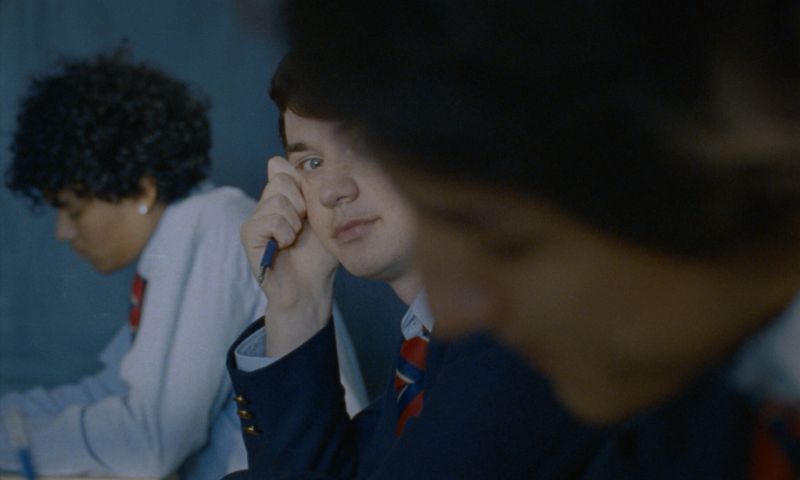
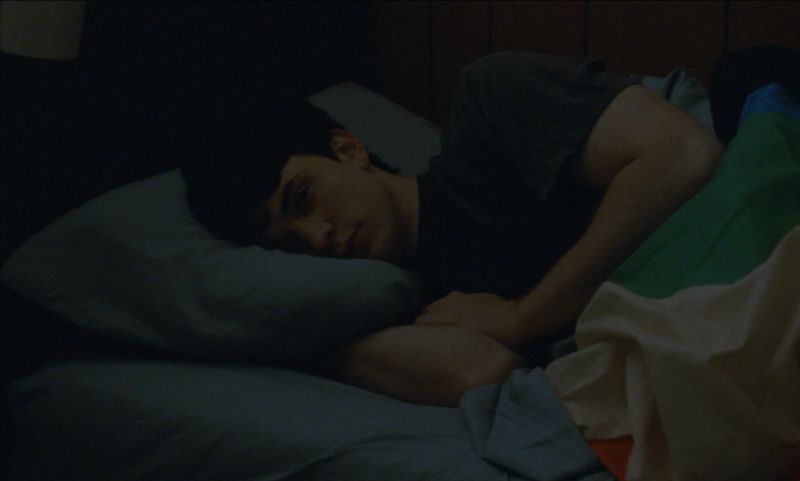
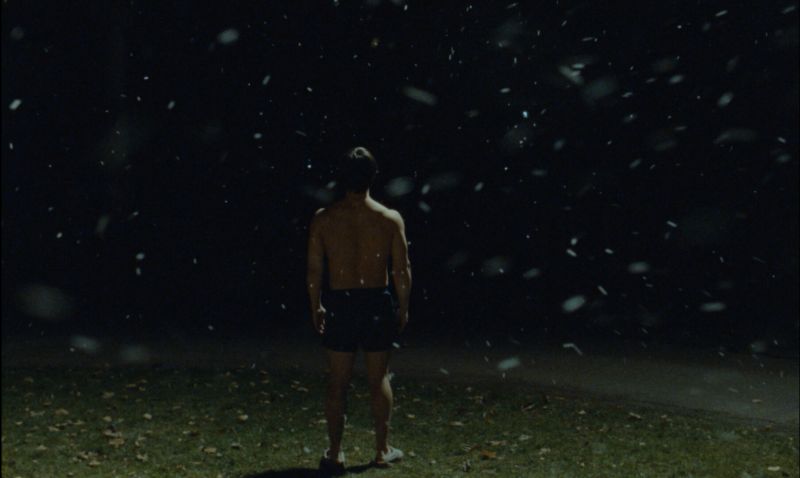
 Julian and the Wind
Julian and the Wind
Kanada 2024 | Farbe |
15:29 | Englisch
 Julian and the Wind
Julian and the Wind
Canada 2024 | Color |
15:29 | English
Zwei Zimmergenossen im Internat machen eine seltsame Erfahrung mit Schlafwandeln.
Two roommates at a boarding school have a strange experience with sleepwalking.
Regie:
Director:
Connor Jessup
Darsteller:innen:
Cast:
David Webster
Darsteller:innen:
Cast:
Joel Oulette
Verleihfirma, Sales:
Distributor, Sales:
Serge Abiaad
Produzent:in:
Producer:
Ashley Shields-Muir
Night Flight (2019), A.W. (2018), Lira’s Forest (2017), Boy (2015), Little Coffins (2014)

Neuland (empf. ab 6) share
New Ground (from 6 years) share
Fünf sehr unterschiedliche Filme für Kinder ab 6 Jahren feiern das Unerwartete, regen zum Nachdenken an und machen dabei auch noch wahnsinnig Spaß.
Gemeinsam mit Kindern mit und ohne Sehbeeinträchtigung wurde eine Audiodeskription zu jedem Film erstellt, sodass das Programm auch barrierearm gezeigt werden kann. Der Workshop dazu wurde gefördert von der Claere Jung Stiftung. Das Programm wurde unterstützt von der MOIN Filmförderung Hamburg Schleswig-Holstein.
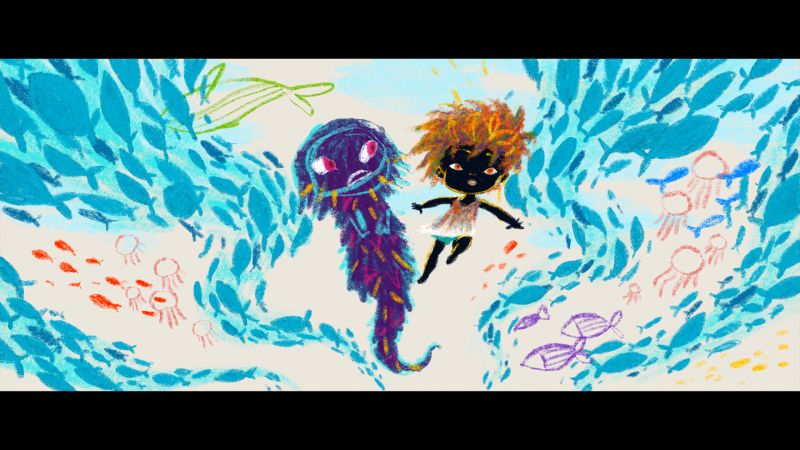
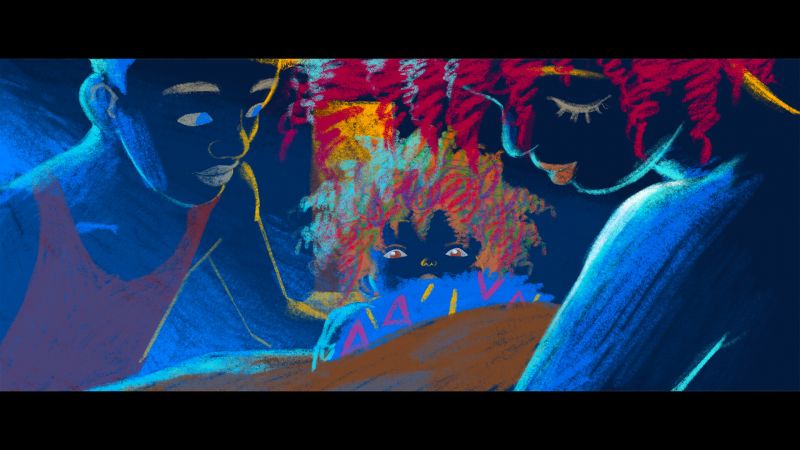
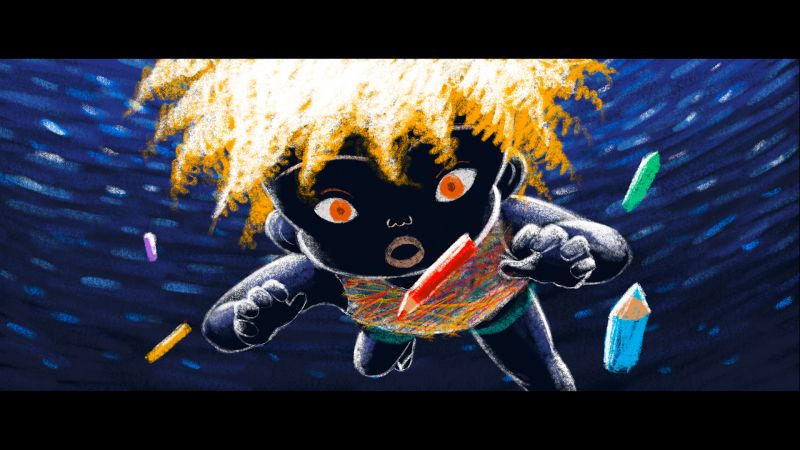
 Lulina e a Lua (Lulina and the Moon)
Lulina e a Lua (Lulina and the Moon)
Brasilien 2023 | Farbe |
13:51 | Kein Dialog
 Lulina e a Lua (Lulina and the Moon)
Lulina e a Lua (Lulina and the Moon)
Brazil 2023 | Color |
13:51 | No Dialogue
Lulina malt ihre Ängste auf den Mond. Die zum Leben erwachten Bilder zeigen ihr, dass ihre Probleme nicht so groß sind, wie sie scheinen.
Lulina draws her greatest fears over the infinite white ground of the moon. Her illustrations come to life and teach her that her problems aren't as monstrous as her imagination painted them.
Regie, Editing:
Director, Editing:
Alois Di Leo
Regie, Produzent:in, Script:
Director, Producer, Script:
Marcus Vinicius Vasconcelos
Künstlerische Leitung:
Art direction:
Shun Izumi
Animation:
Animation:
Henrique Lobato
Ton:
Sound design:
Marília Mencucini
Music:
Music:
Alício Amaral
Alois Di Leo: Way of the Giants (2016), The Boy Who Wanted To Be a Lion (2010) // Marcus Vinicius Vasconcelos: When the Days Were Endless (2015), Freckles (2013), Barrel Organ (2012)
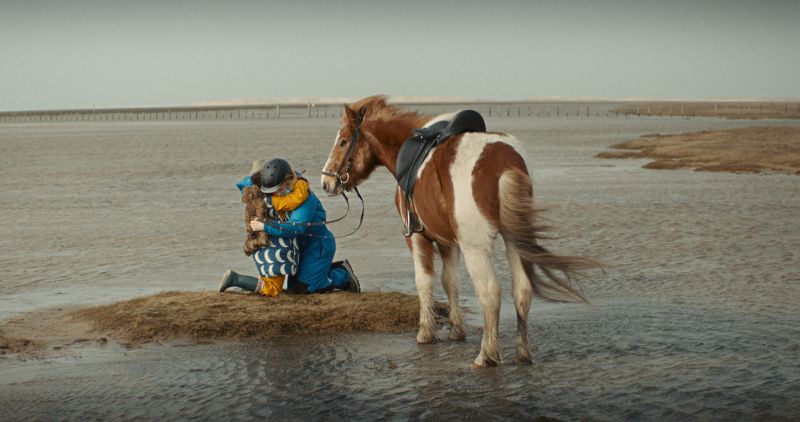
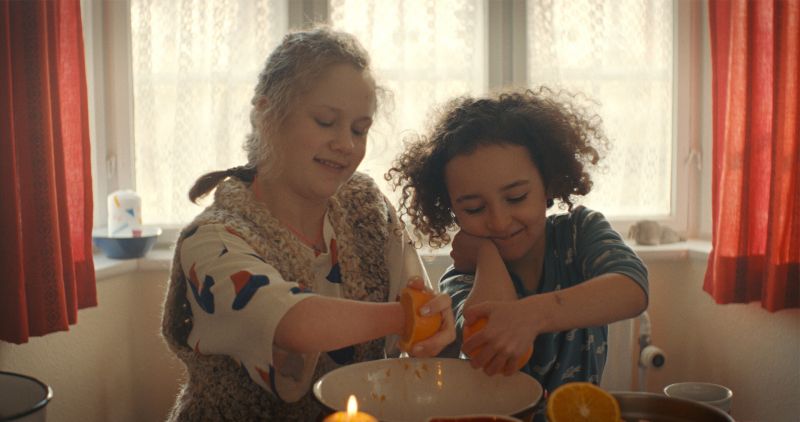
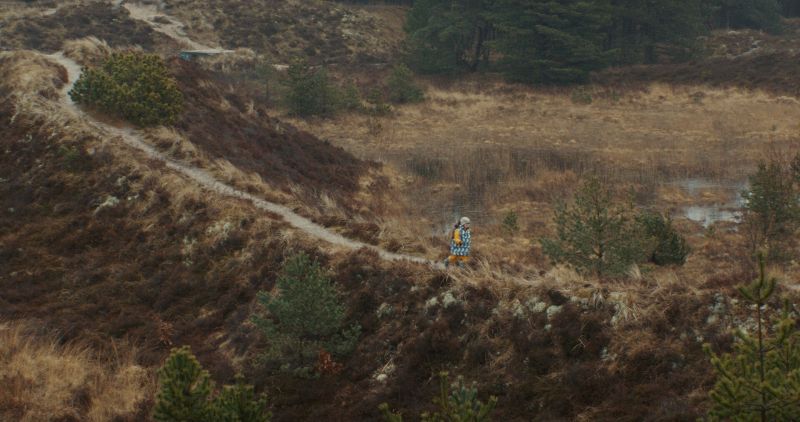
 Hai oder Hyäne (Shark or Hyena)
Hai oder Hyäne (Shark or Hyena)
Deutschland 2023 | Farbe |
15:00 | Deutsch
 Hai oder Hyäne (Shark or Hyena)
Hai oder Hyäne (Shark or Hyena)
Germany 2023 | Color |
15:00 | German
Eine Patchwork-Familie verbringt die Ferien auf einer kleinen Insel. Doch plötzlich ist der Hauswichtel verschwunden. Und damit auch die Kraft der Magie.
A patchwork family spends their vacation on a small island. But suddenly the house gnome has disappeared. And with it, the power of magic.
Editing:
Editing:
Sarah Goggolz
Music composer, Music:
Music composer, Music:
Tilo Alpermann
Regie, Produzent:in, Script:
Director, Producer, Script:
Britt Dunse
Darsteller:innen:
Cast:
Bo Conrad
Darsteller:innen:
Cast:
Christoph Weymann
Darsteller:innen:
Cast:
Corbinian Niedermeier
Darsteller:innen:
Cast:
Fritzi Bachmann
Darsteller:innen:
Cast:
Hassan Akkouch
Produzent:in:
Producer:
Jochen Claussen
Darsteller:innen:
Cast:
Josephine Ehlert
Darsteller:innen:
Cast:
Katrin Pollitt
Darsteller:innen:
Cast:
Louisa Thiziri Kaci
Produzent:in:
Producer:
Lukas Eyland
(Selection) Puss in Boots in Sign Language (2021), Snow Queen in Sign Language (2019), Little Red Riding Hood, Dachshund and the Wolf (2012), Liberty, Equality, Fraternity 1 (2007), North (2004)
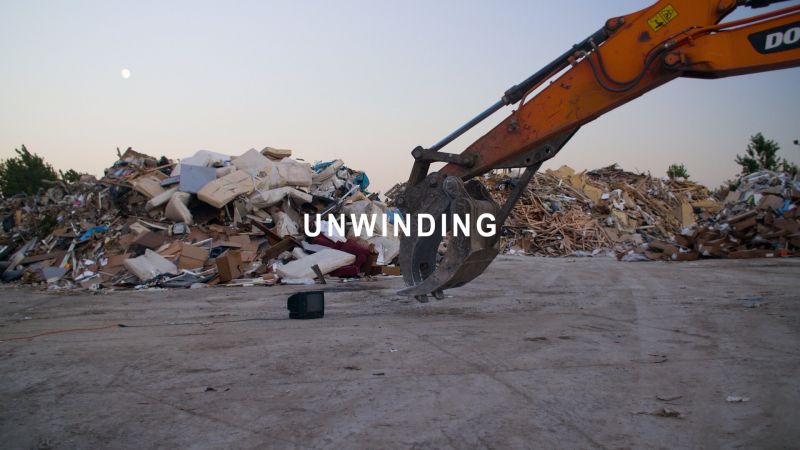
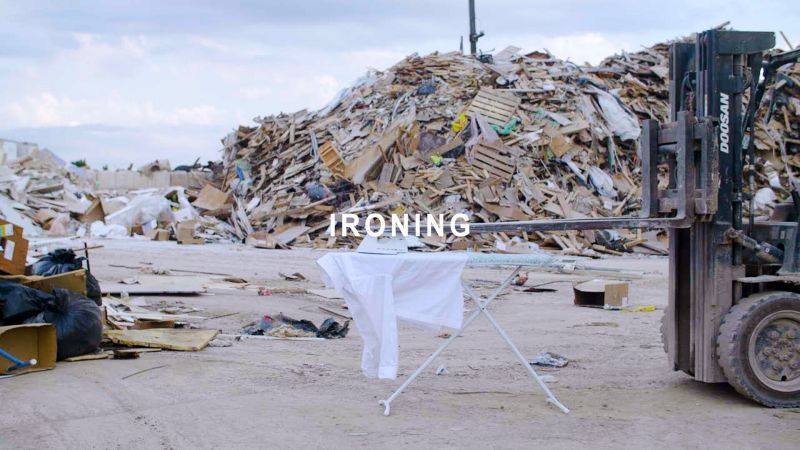
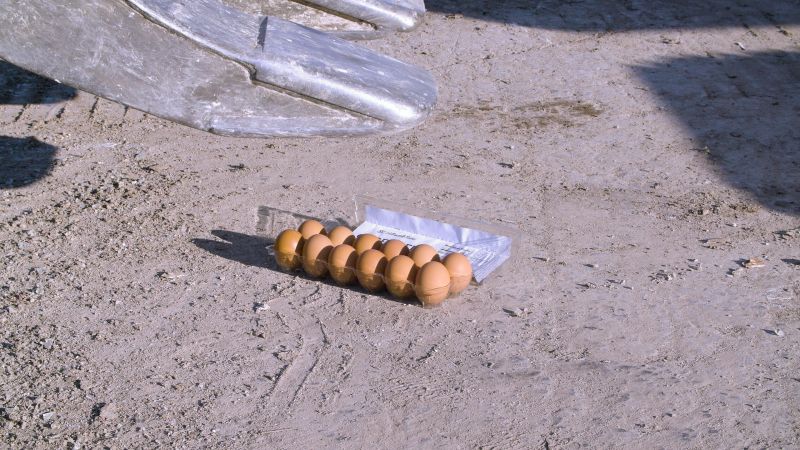
 Semiotics of the Home
Semiotics of the Home
Vereinigte Staaten, Taiwan 2023 | Farbe |
07:55 | Kein Dialog
 Semiotics of the Home
Semiotics of the Home
United States, Taiwan 2023 | Color |
07:55 | No Dialogue
Große Maschinen verrichten kleine alltägliche Dinge und werden den Menschen fast ähnlich.
Large machines perform small everyday tasks and become almost similar to humans.
Regie:
Director:
Jessi Ali Lin
Verleihfirma:
Distributor:
verleih@shortfilm.com
Regie:
Director:
Hsin-Yu Chen
Beigu Islet (2022)
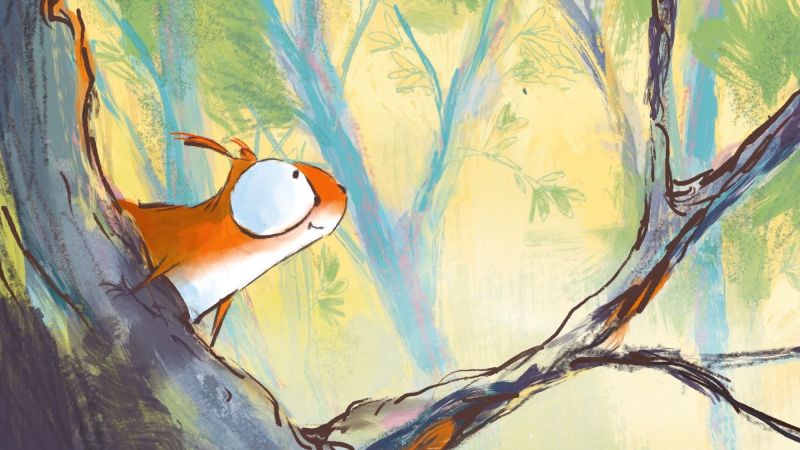
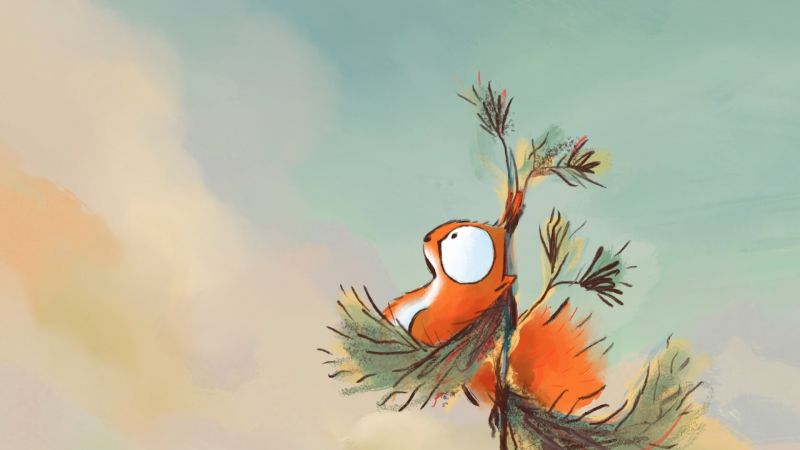
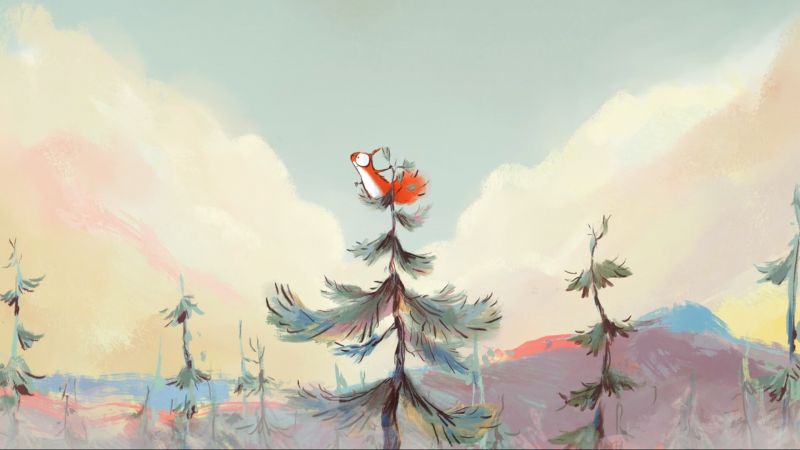
 Tête en l'air (Head in the Clouds)
Tête en l'air (Head in the Clouds)
Frankreich 2023 | Farbe |
10:32 | Französisch, Deutsch
 Tête en l'air (Head in the Clouds)
Tête en l'air (Head in the Clouds)
France 2023 | Color |
10:32 | French, German
Das Eichhörnchen Alfonso liebt es, Wolken zu beobachten. Sein Hobby erfordert Mut und Verständnis von Familie und Freund:innen.
Alfonso the squirrel loves watching clouds. His hobby requires courage and understanding from his family and friends.
Produzent:in:
Producer:
Arnaud Demuynck
Kontakt:
Contact:
Miguel Español Celiméndiz
Regie:
Director:
Rémi Durin
Yuku and the Flower of the Himalayas (2022), Big Wolf and Little Wolf (2018), The Unicorn (2016), Le Parfum de la Carotte (2014)




 Tümpel (Pond)
Tümpel (Pond)
Schweiz 2023 | Farbe |
08:30 | Kein Dialog
 Tümpel (Pond)
Tümpel (Pond)
Switzerland 2023 | Color |
08:30 | No Dialogue
Eine Gruppe kleiner Meerestiere wehrt sich gemeinsam gegen eine Möwe.
A group of small marine animals defend themselves together against a seagull.
Regie, Animation, Script:
Director, Animation, Script:
Lena von Döhren
Regie, Original script, Art Designer, Script:
Director, Original script, Art Designer, Script:
Eva Rust
Animation:
Animation:
Simon Eltz
Editing:
Editing:
Fee Liechti
Ton:
Sound design:
Thomas Gassmann
Ton:
Sound design:
Tobias Diggelmann
Produzent:in:
Producer:
Sarah Born
Sale Agent:
Sale Agent:
Georg Gruber
Music used:
Music used:
Martin Waespe
Der kleine Vogel und die Bienen (2020), Der kleine Vogel und die Raupe (2017), Der kleine Vogel und das Eichhörnchen (2014), Der kleine Vogel und das Blatt (2012)

Spielplätze (empf. ab 4) share
Playgrounds (from 4 years) share
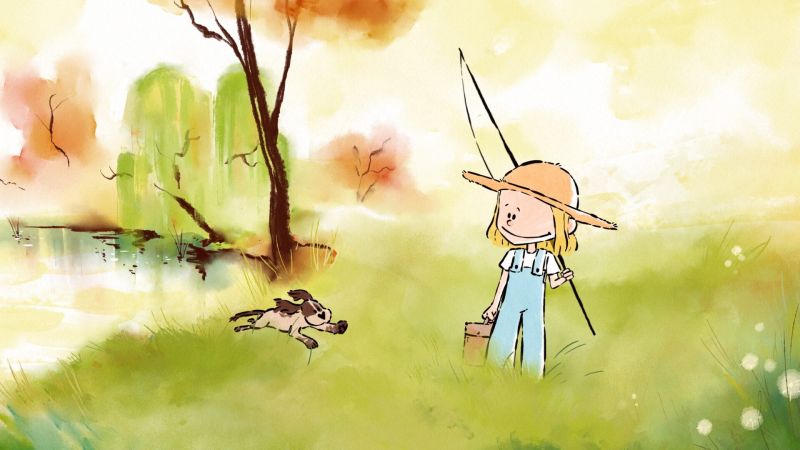
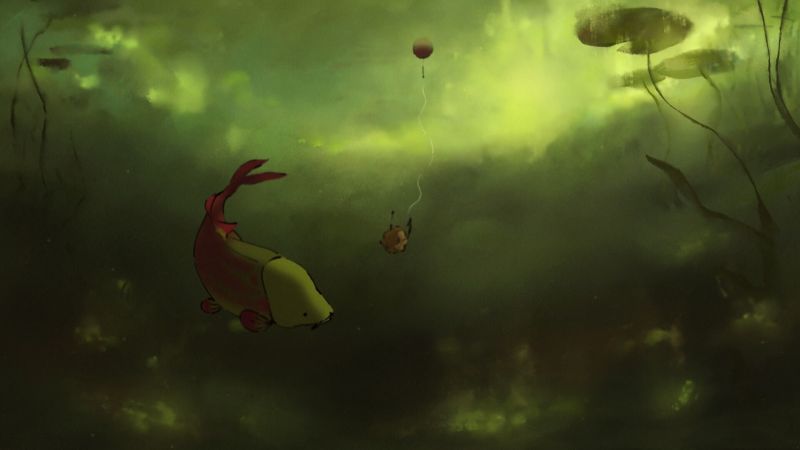
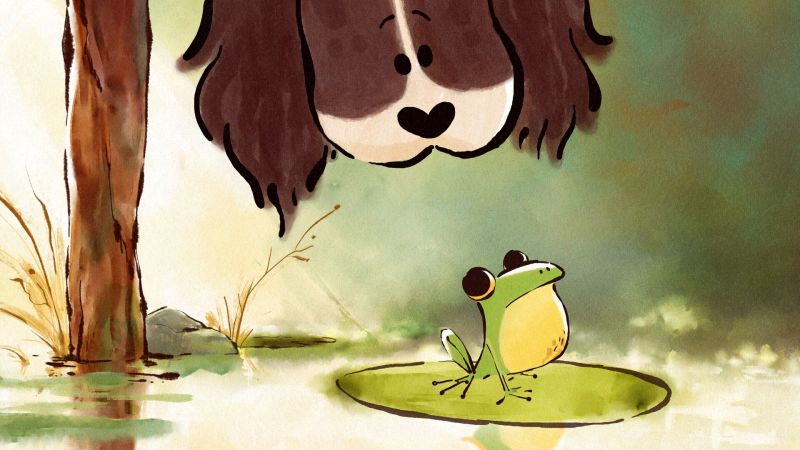
 La carpe et l'enfant (The Carp and the Child)
La carpe et l'enfant (The Carp and the Child)
Frankreich, Belgien 2024 | Farbe |
06:53 | Kein Dialog
 La carpe et l'enfant (The Carp and the Child)
La carpe et l'enfant (The Carp and the Child)
France, Belgium 2024 | Color |
06:53 | No Dialogue
Fische zu füttern, macht viel mehr Spaß, als Fische zu angeln.
Feeding fish is much more fun than fishing.
Regie:
Director:
Morgane Simon
Regie, Produzent:in, Script:
Director, Producer, Script:
Arnaud Demuynck
Music composer, Music:
Music composer, Music:
Yan Volsy
Verleihfirma:
Distributor:
Miguel Español Celiméndiz
Arnaud Demuynck (Selection): Yuku and the Himalayan Flower (2022), Under Blue Skies (2009)
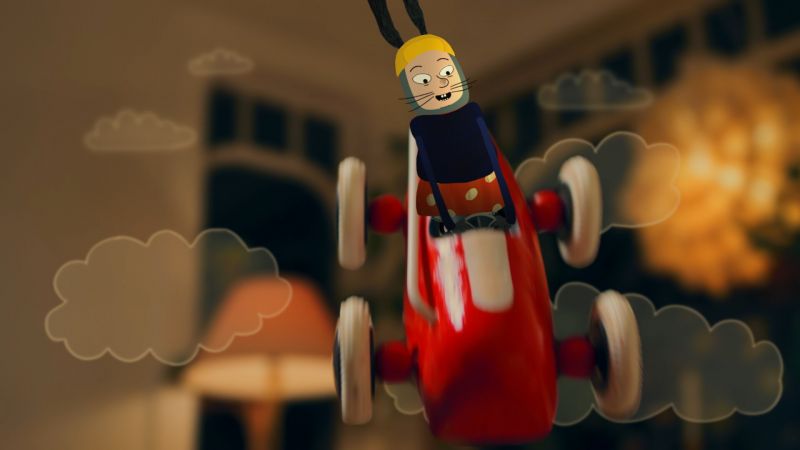
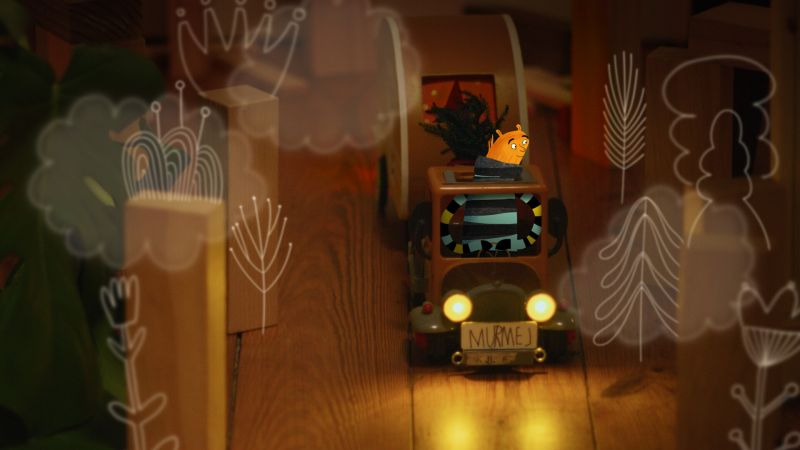
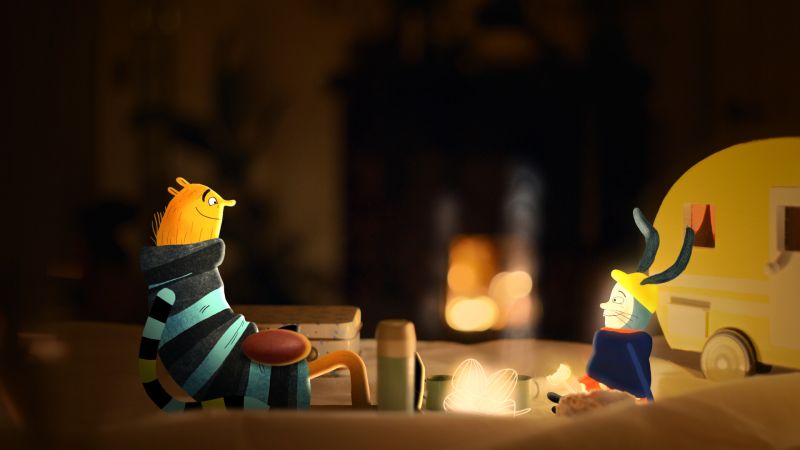
 Morgenfugl og Murmeldyr: Rydderacet (The Rumble-Bumble Rally)
Morgenfugl og Murmeldyr: Rydderacet (The Rumble-Bumble Rally)
Norwegen 2024 | Farbe |
08:39 | Norwegisch
 Morgenfugl og Murmeldyr: Rydderacet (The Rumble-Bumble Rally)
Morgenfugl og Murmeldyr: Rydderacet (The Rumble-Bumble Rally)
Norway 2024 | Color |
08:39 | Norwegian
Während Papa backt und Mathilde aufräumen soll, wird das Wohnzimmer zur Rennstrecke.
While Daddy bakes and Mathilde cleans up, the living room becomes a race track.
Produzent:in:
Producer:
Lise Fearnley
Produzent:in:
Producer:
Tonje Skar REIERSEN
Regie:
Director:
Annette Saugestad Helland
Sales:
Sales:
Bear With Me Distribution
Regie:
Director:
Johan Kaos
Annette Saugestad: Morningbird and Murmelton on Winter Holiday (2014), Superdad and Pelé (2008)
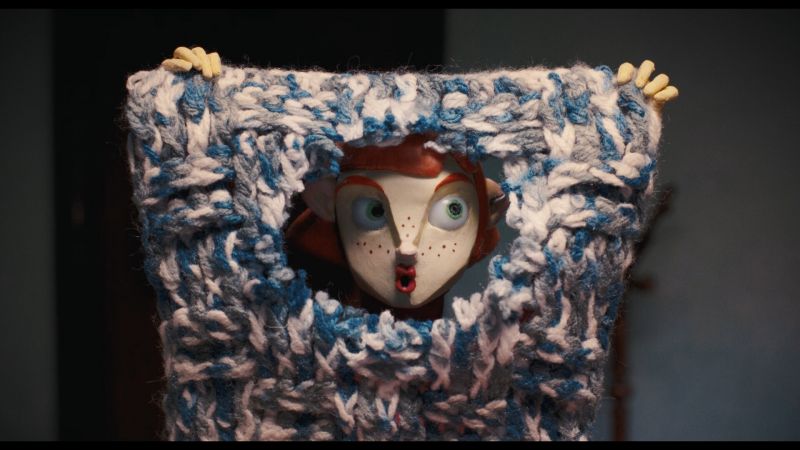
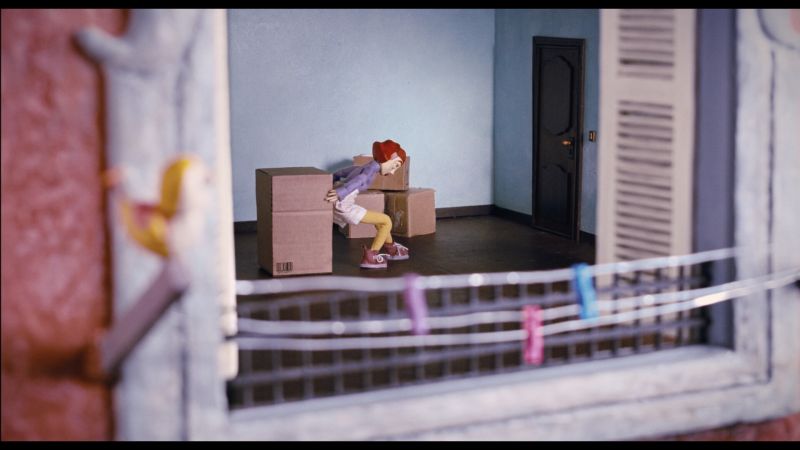
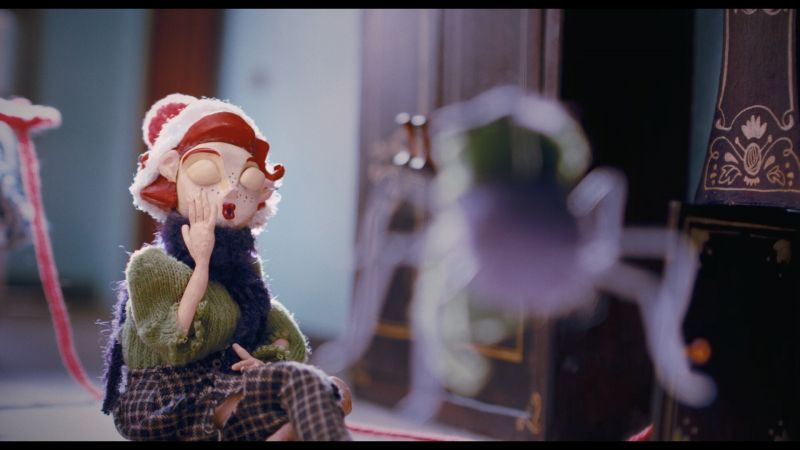
 De-sastre
De-sastre
Spanien 2024 | Farbe |
08:12 | Kein Dialog
 De-sastre
De-sastre
Spain 2024 | Color |
08:12 | No Dialogue
Eine Frau zieht in eine neue Wohnung. Bald bemerkt sie seltsame Veränderungen.
A woman moves into a new apartment. Soon she notices strange changes.
Sales:
Sales:
ECIB Escola Cinema de Barcelona
Regie, Animation, Künstlerische Leitung, Script, Produzent:in, Editing:
Director, Animation, Art direction, Script, Producer, Editing:
Marolyn Ávila
Regie, Animation, Künstlerische Leitung, Script, Produzent:in, Editing:
Director, Animation, Art direction, Script, Producer, Editing:
María Antonieta Fernández
Regie, Animation, Script:
Director, Animation, Script:
Tommaso Mangiacotti
Regie, Animation, Script:
Director, Animation, Script:
Kuang Yi Lee
Regie, Animation, Script:
Director, Animation, Script:
Constanza Melio
Music:
Music:
Yulia Protasova
Ton:
Sound design:
Santiago Nakakawa Bernal
Produktionsfirma:
Production company:
Producciones Dosmentes

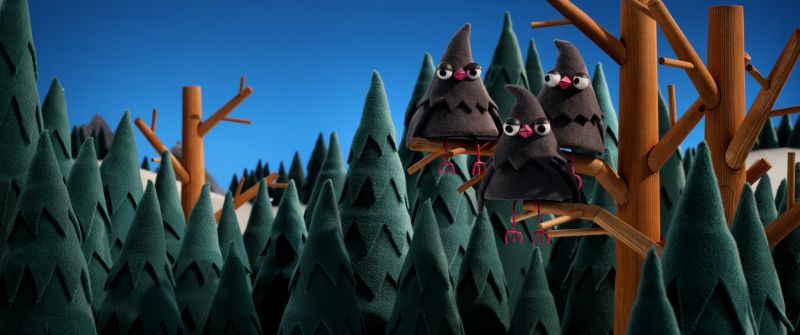
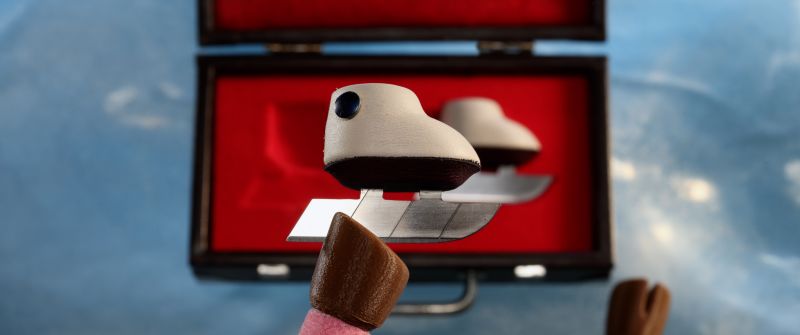
 Kanopos ir pačiūžos (Hoofs on Skates)
Kanopos ir pačiūžos (Hoofs on Skates)
Litauen 2024 | Farbe |
12:24 | Kein Dialog
 Kanopos ir pačiūžos (Hoofs on Skates)
Kanopos ir pačiūžos (Hoofs on Skates)
Lithuania 2024 | Color |
12:24 | No Dialogue
Beim Schlittschuhlaufen lernen zwei Freunde eine ihnen fremde Welt kennen.
While skating, two friends get to know a world that is foreign to them.
Regie:
Director:
Ignas Meilūnas
Verleihfirma:
Distributor:
Luce Grosjean
Matilda and the Spare Head (2020), Mr. Night Has a Day Off (2017), The Woods (2015)

Stummfilmkonzert share
Silent Film Concert share
Kino Tickets gibts hier über das Metropolis.
Wir gehen zurück zu den Wurzeln des Kinos! Kurz, schwarz-weiß, stumm und definitiv zum Schieflachen! Gemeinsam mit dem Metropolis Kino zeigen wir für Kinder ab 6 Jahren zwei Stummfilm-Klassiker von Buster Keaton musikalisch live vertont!
Cinema tickets here through Metropolis.
We're going back to the roots of cinema! Short, black and white, silent and definitely hilarious! Together with the Metropolis cinema, we are showing two silent film classics by Buster Keaton set to live music for children aged 6 and over!

Rückenwind (empf. ab 9) share
Tailwind (from 9 years) share
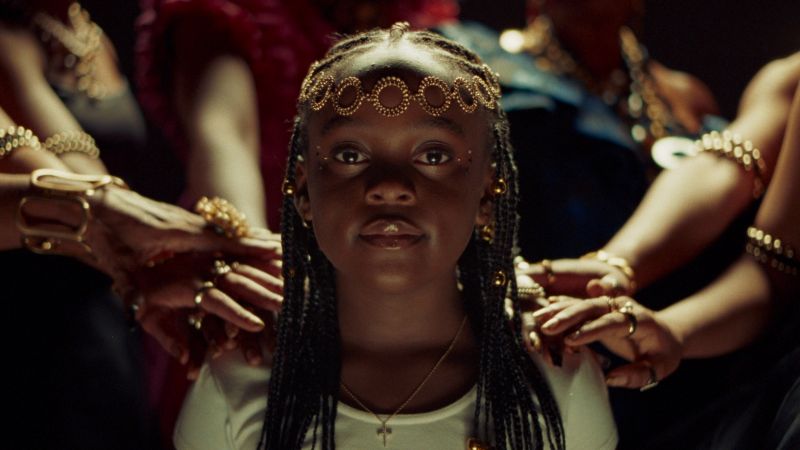
 On a Sunday at Eleven
On a Sunday at Eleven
Kanada 2024 | Farbe |
08:50 | Englisch
 On a Sunday at Eleven
On a Sunday at Eleven
Canada 2024 | Color |
08:50 | English
Eine junge Ballerina hadert mit Schönheitsnormen und findet Zuflucht in ihren sonntäglichen Ritualen.
Content notes:
Racism
A young ballerina wrestles with beauty norms and finds refuge in her Sunday rituals.
Content notes:
Racism
Regie:
Director:
Alicia K. Harris
Produzent:in:
Producer:
Hayley Brown
Produzent:in:
Producer:
Jeff Chiu
only light will touch us (2021), PICK (2019), Maybe if it were a nice room (2016), Love Stinks (2016)
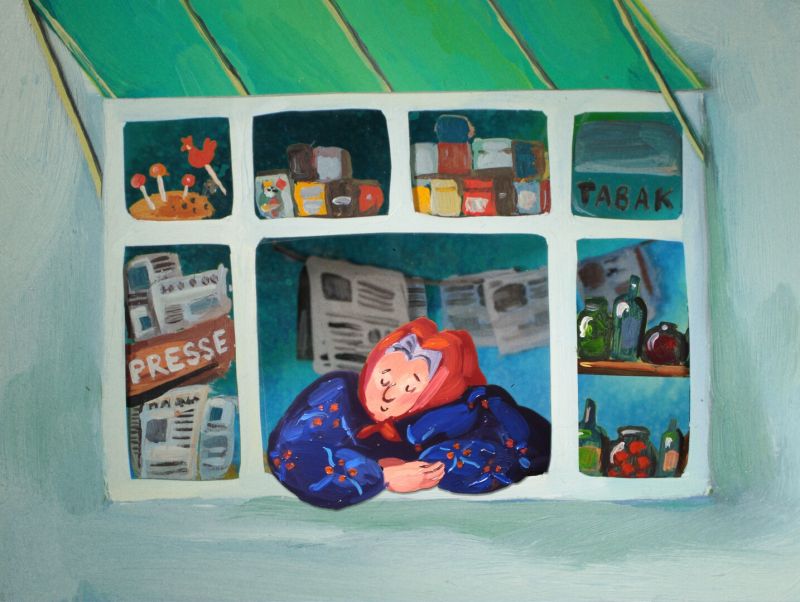
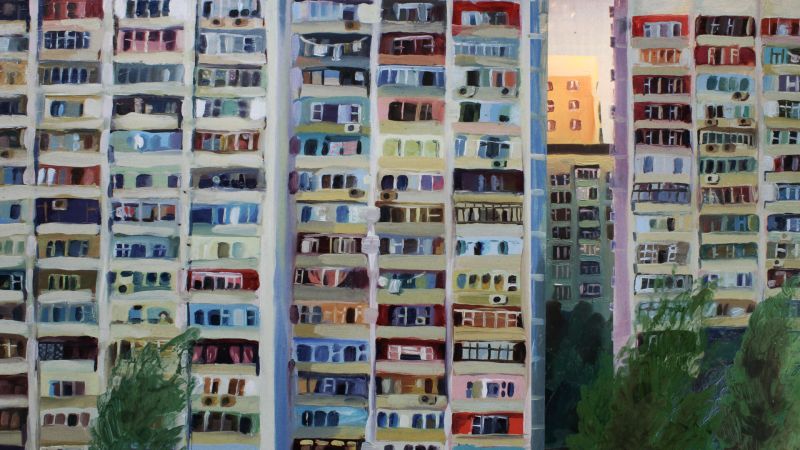
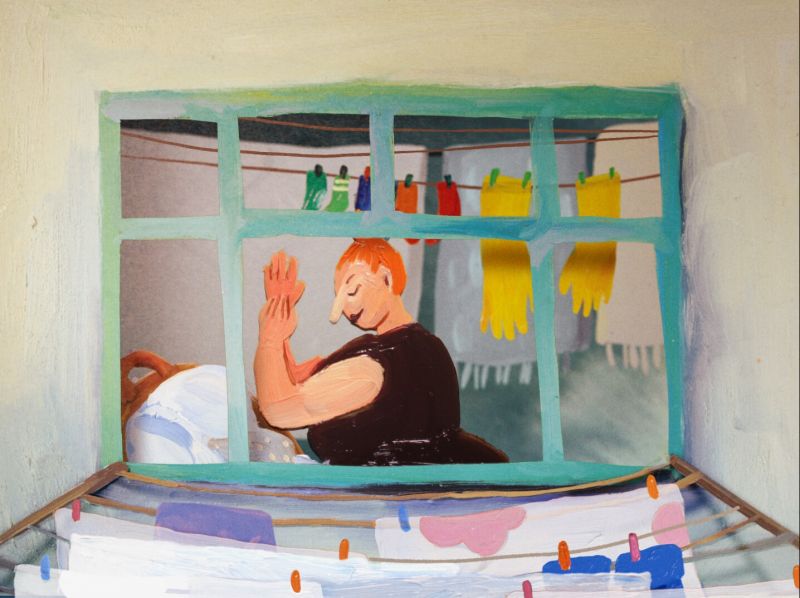
 Balkone (Balconies)
Balkone (Balconies)
Deutschland 2024 | Farbe |
05:20 | Kein Dialog
 Balkone (Balconies)
Balkone (Balconies)
Germany 2024 | Color |
05:20 | No Dialogue
Ein ganz normaler Tag in einem Hochhaus. Und ein Blick in den Alltag hinter den Fenstern.
A normal day in a high-rise building. A glimpse of everyday life behind the windows.
Produzent:in:
Producer:
monstroos
Produktionsfirma:
Production company:
Xenia Smirnov
Regie:
Director:
Xenia Smirnov
Rubik (2016), Summer Tide (2015)



 L'ultimo giorno dell'orso (The Last Day of the Bear)
L'ultimo giorno dell'orso (The Last Day of the Bear)
Italien 2024 | Farbe |
12:21 | Italienisch
 L'ultimo giorno dell'orso (The Last Day of the Bear)
L'ultimo giorno dell'orso (The Last Day of the Bear)
Italy 2024 | Color |
12:21 | Italian
Dennis zieht vom familiären Kinderheim zu seiner neuen Familie. Die ungewisse Zukunft macht ihm Angst.
Dennis is moving from the family home to his new home. The uncertain future scares him.
Regie:
Director:
Antonio Donato
Script:
Script:
Vivian Barbullushi
Script:
Script:
Laura Raccanelli
Darsteller:innen:
Cast:
Alessandra Roca
Darsteller:innen:
Cast:
Elettra Forlini
Darsteller:innen:
Cast:
Valentino Halilovic
Verleihfirma:
Distributor:
Sayonara Film
Produzent:in:
Producer:
Adele Dell'Erario
Shooting Watermelons (2023)



 Dragfox
Dragfox
Vereinigtes Königreich 2024 | Farbe |
08:10 | Englisch
 Dragfox
Dragfox
United Kingdom 2024 | Color |
08:10 | English
Sam wird durch einen singenden Fuchs bestärkt, sich selbst anzunehmen.
Sam is encouraged by a singing fox to embrace his true self.
Regie, Script:
Director, Script:
Lisa Ott
Script:
Script:
John Cooney
Kamera:
Director of photography:
Rufai Ajala
Editing:
Editing:
Mariana Moraes
Music:
Music:
Charli Mackie
Darsteller:innen:
Cast:
Aidan Gale
Darsteller:innen:
Cast:
Ian McKellen
Darsteller:innen:
Cast:
Owen Divina De Campo Farrow
Produzent:in, Script:
Producer, Script:
Owen Thomas
Checkout (2022)
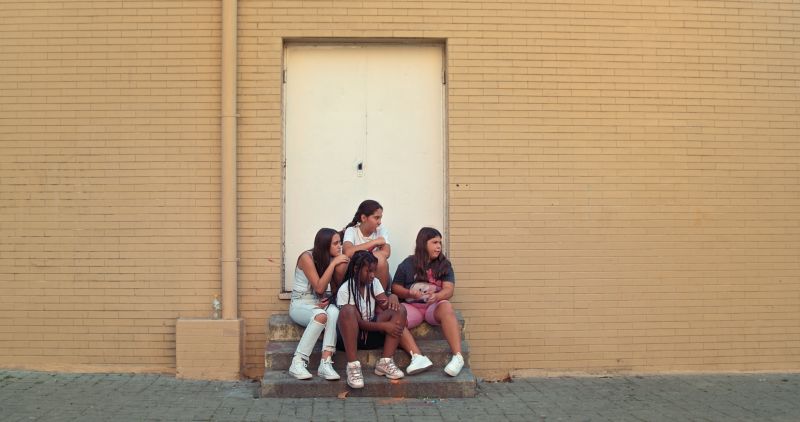
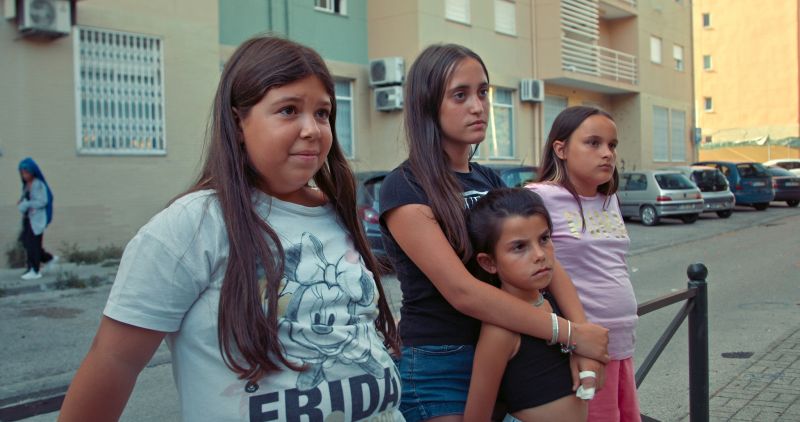
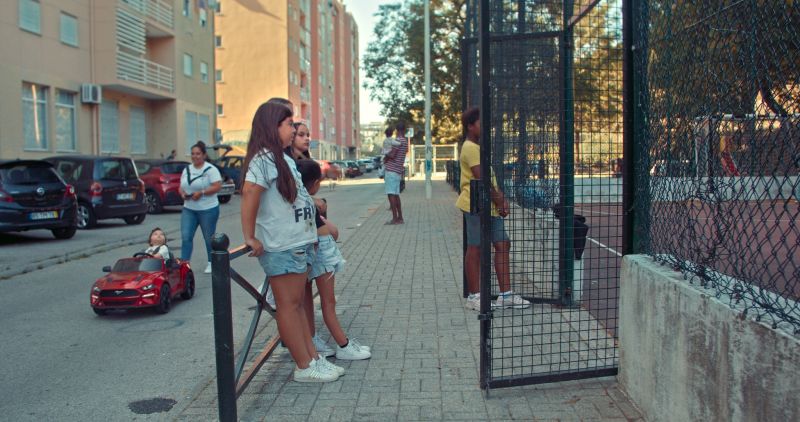
 Conseguimos fazer um filme (We Made a Film)
Conseguimos fazer um filme (We Made a Film)
Portugal 2024 | Farbe |
14:57 | Portugiesisch
 Conseguimos fazer um filme (We Made a Film)
Conseguimos fazer um filme (We Made a Film)
Portugal 2024 | Color |
14:57 | Portuguese
Sommernachmittage, eine erste Liebe, Perlenfädeln, Freund:innen und Filmaufnahmen.
Summer afternoons, a first love, pearls, friends, and film shoots.
Regie, Script:
Director, Script:
Tota Alves
Darsteller:innen, Script:
Cast, Script:
Inês Cruz
Darsteller:innen, Script:
Cast, Script:
Joana Embaló
Script:
Script:
Mariana Rodrigues
Script:
Script:
Matilde Barata
Kamera:
Director of photography:
Victor Neves Ferreira
Editing:
Editing:
Paula Miranda
Ton:
Sound design:
Tiago Galvão
Darsteller:innen:
Cast:
Carlos Silva
Darsteller:innen:
Cast:
Rúben Matos
Verleihfirma:
Distributor:
Freak Independent Film Agency
Produzent:in:
Producer:
Andreia Nunes
My Own Blood (2020), Dolores (2020)

Miteinander (empf. ab 9) share
Together (from 9 years) share
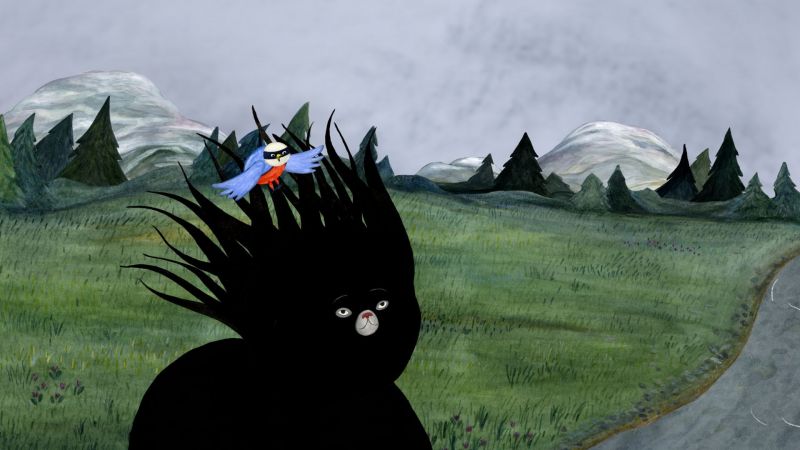
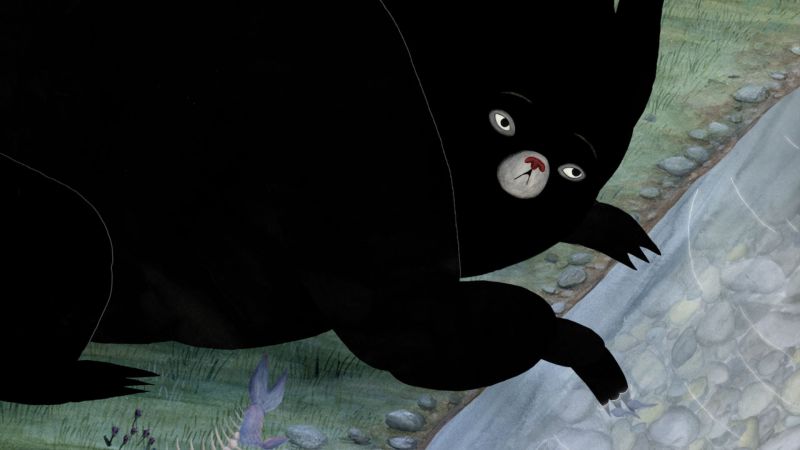
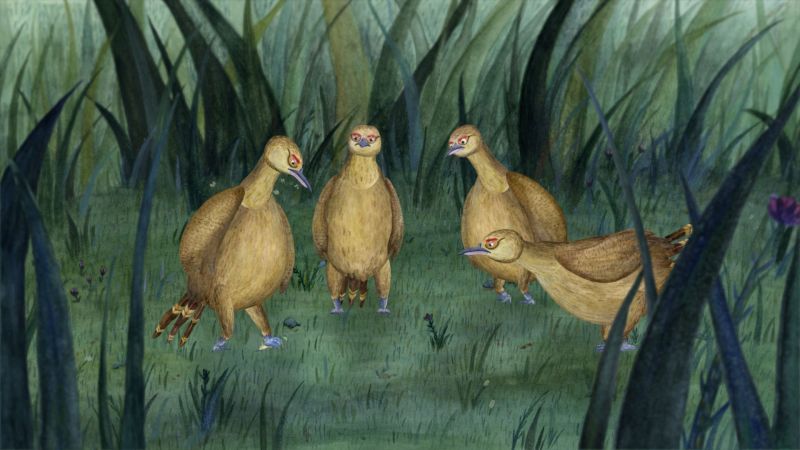
 Conte sauvage (Wild Tale)
Conte sauvage (Wild Tale)
Belgien, Frankreich 2023 | Farbe |
15:52 | Kein Dialog
 Conte sauvage (Wild Tale)
Conte sauvage (Wild Tale)
Belgium, France 2023 | Color |
15:52 | No Dialogue
Ein einsames Wesen trifft auf einen kleinen Vogel. Skeptisch nähern sie sich an und werden schließlich eins.
A solitary creature meets a small bird. They approach skeptically and eventually become one.
Regie, Animation, Script, Szenenbild, Editing:
Director, Animation, Script, Set design, Editing:
Aline Quertain
Animation, Szenenbild:
Animation, Set design:
Aude Ha Leplège
Animation:
Animation:
Gaëtan Borde
Animation:
Animation:
Kévin Gachet-Thai
Animation:
Animation:
Margot Reumont
Script:
Script:
Pierre-Luc Granjon
Editing:
Editing:
Olivia Degrez
Produzent:in:
Producer:
Zorobabel
Produzent:in:
Producer:
12//24 Films
Produzent:in:
Producer:
Luna Blue Film
Le renard minuscule (2016), Le tempus fugitus (2012), L’ourson et le caneton (2010), L’ouroboros (2009)



 Akababuru: Expresión de asombro (Akababuru: Expression of Astonishment)
Akababuru: Expresión de asombro (Akababuru: Expression of Astonishment)
Kolumbien 2025 | Farbe |
13:32 | Spanisch, Emberá-Chamí
 Akababuru: Expresión de asombro (Akababuru: Expression of Astonishment)
Akababuru: Expresión de asombro (Akababuru: Expression of Astonishment)
Colombia 2025 | Color |
13:32 | Spanish, Emberá-Chamí
Kari, ein indigenes Mädchen, lernt, welche Macht das Lachen von Frauen haben kann, und findet zu ihrer eigenen Stärke.
Content notes:
Discrimination against women
Kari, an indigenous girl, learns the power of women's laughter and finds her own strength.
Content notes:
Discrimination against women
Regie:
Director:
Irati Dojura
Kontakt:
Contact:
Laura Giraldo
Darsteller:innen:
Cast:
Escolástica Yagarí Gónzalez
Darsteller:innen:
Cast:
Heluney Nerio Niaza
Darsteller:innen:
Cast:
Kipara Niaza
Darsteller:innen:
Cast:
Wayra Andrea AguilarTascón
Produzent:in:
Producer:
Laura Giraldo Mira
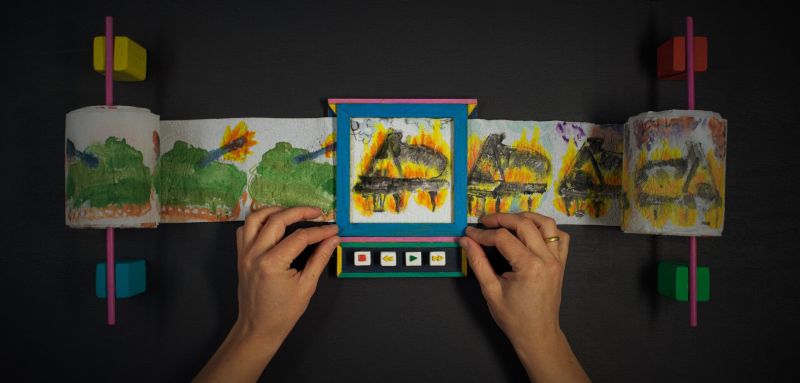
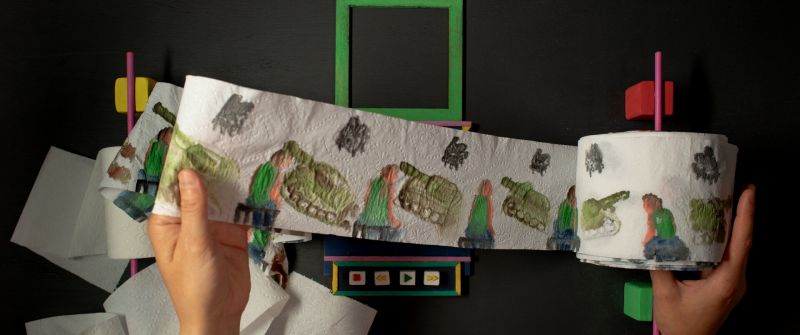
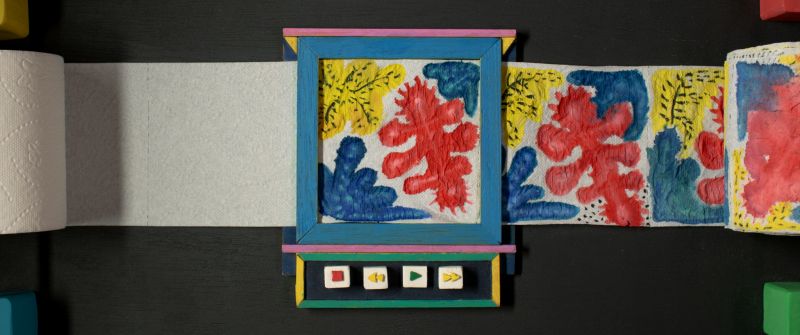
 The Wild-Tempered Clavier
The Wild-Tempered Clavier
Deutschland 2024 | Farbe |
07:18 | Kein Dialog
 The Wild-Tempered Clavier
The Wild-Tempered Clavier
Germany 2024 | Color |
07:18 | No Dialogue
Handgezeichnet auf Toilettenpapierrollen wird die Kunst zum Zentrum einer Geschichte.
Hand-drawn on rolls of toilet paper, the art becomes the center of a story.
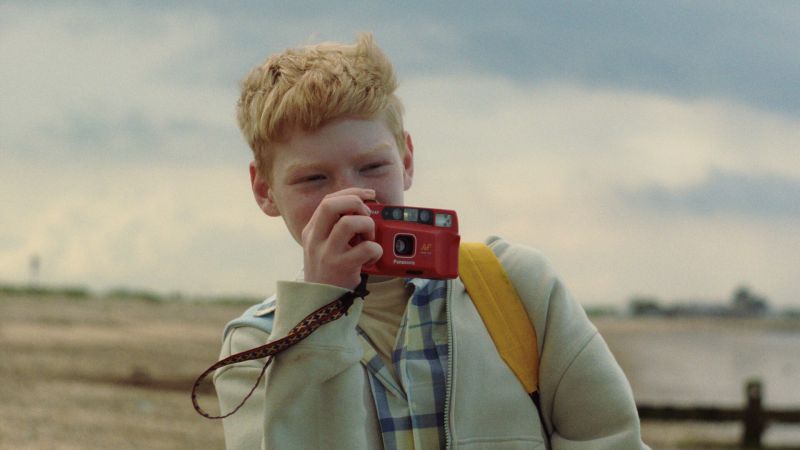
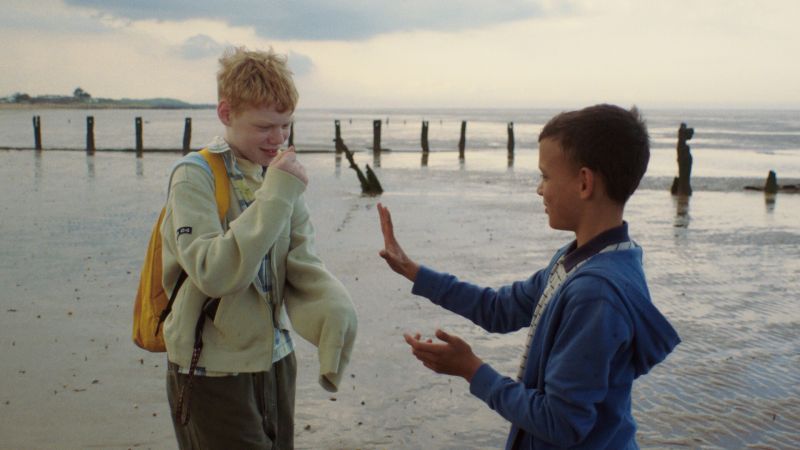
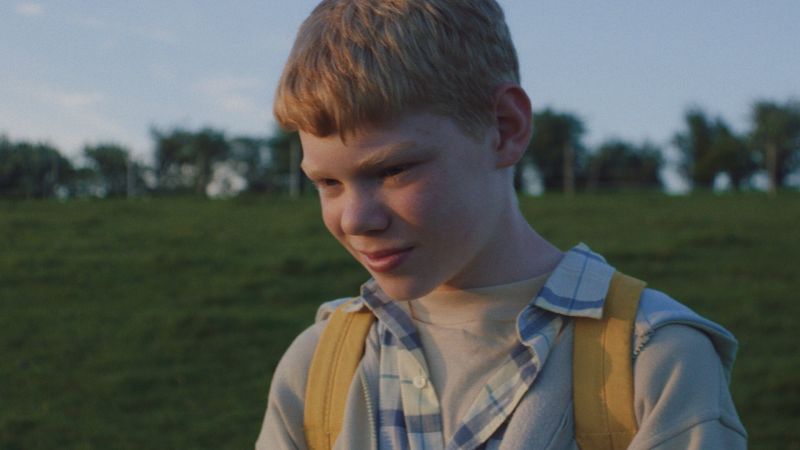
 Happy Snaps
Happy Snaps
Vereinigtes Königreich 2024 | Farbe |
12:02 | Englisch
 Happy Snaps
Happy Snaps
United Kingdom 2024 | Color |
12:02 | English
Zwei Freunde verbringen einen letzten gemeinsamen Tag miteinander und halten ihn in Bildern fest.
Two friends spend one last day together and capture it in pictures.
Regie:
Director:
Tyro Heath
Kamera:
Director of photography:
Adric Watson
Editing:
Editing:
Giorgia Zarantonello
Music composer:
Music composer:
Anthony Ing
Darsteller:innen:
Cast:
Adi Gimziuna
Darsteller:innen:
Cast:
Corinne Strickett
Darsteller:innen:
Cast:
Curtis Fasuyi
Darsteller:innen:
Cast:
Freddie Buss
Darsteller:innen:
Cast:
Osian Pirotte
Darsteller:innen:
Cast:
Rosemary Smith
Verleihfirma:
Distributor:
Martina Fiorellino
Produzent:in:
Producer:
Chloe King
Production designer:
Production designer:
Ishbel Mull
(Selection) The Tree (2023), Back to School (2022), Birds (2022), Married People (2020), HATTIE (2020), Drawing On (2016)
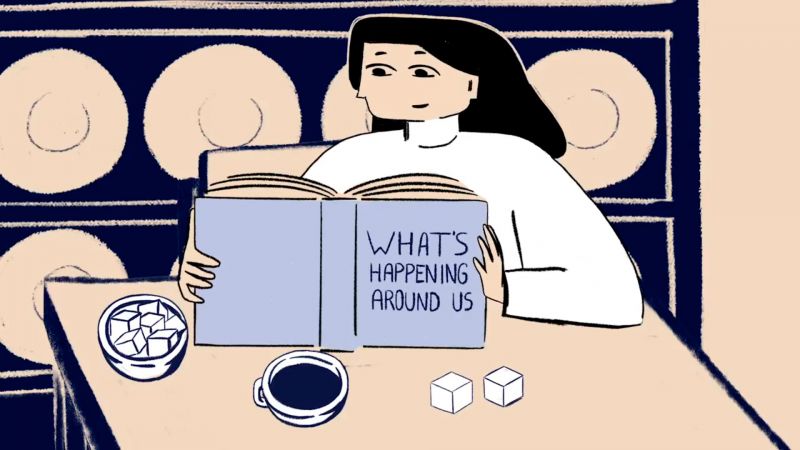
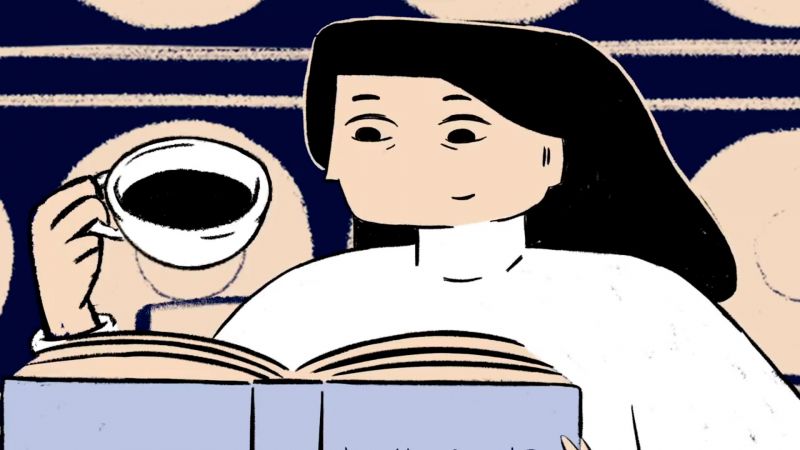
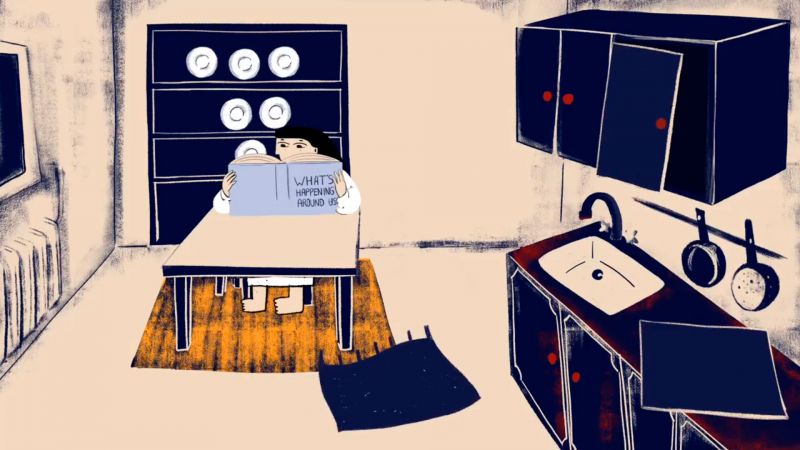
 Co se děje kolem nás (What's Happening Around Us)
Co se děje kolem nás (What's Happening Around Us)
Tschechien 2023 | Farbe |
01:59 | Kein Dialog
 Co se děje kolem nás (What's Happening Around Us)
Co se děje kolem nás (What's Happening Around Us)
Czech Republic 2023 | Color |
01:59 | No Dialogue
Was geschieht um uns herum, wenn wir so richtig versunken sind in eine Beschäftigung?
What happens around us when we’re immersed in something else?
Produzent:in:
Producer:
Ondrej Sejnoha
Regie, Künstlerische Leitung, Author, Script:
Director, Art direction, Author, Script:
Krystsina Ramanava
Verleihfirma:
Distributor:
Marek Koutesh
Rubik's Cube (2020)

Workshop: Unterwasserwelt mit Cyanotypie share
Workshop: Underwater world with cyanotype share
Wed, 04.06. 16:00
Festival Center Post Playground

Sun, 08.06. 14:00
Festival Center Post Playground

Objekte und Pflanzen werden direkt auf lichtempfindliches Papier gelegt, unter einer UV-Lampe belichtet und anschließend gewaschen und fixiert. So entstehen wunderschöne, wasserblaue Fantasiebilder.
Die Hamburger Fotografin Kathrin Brunnhofer führt die Teilnehmenden in diese alte Kunstform ein und lässt sie selbständig arbeiten. Der Workshop wird gefördert von den Stiftungen der Sparkasse Holstein und ist geeignet für Erwachsene und Kinder ab 5 Jahren. Er findet im Festivalzentrum statt und wird in Deutsche Gebärdensprache übersetzt. Kommt einfach vorbei!
Eine Anmeldung ist nicht erforderlich.
Cyanotype is an old and fascinating technique for creating photos without a camera.
Objects and plants are placed directly onto light-sensitive paper, exposed under a UV lamp and then washed and fixed. This creates beautiful, water-blue fantasy images.
Hamburg photographer Kathrin Brunnhofer introduces participants to this ancient art form and lets them work independently. The workshop is sponsored by the Sparkasse Holstein foundations and is suitable for adults and children aged 5 and over. It takes place in the festival centre and is translated into German sign language. Just come along!
Registration is not necessary.

 More Happenings
More Happenings

Analogfilmwerke share
Analogfilmwerke share
Sat, 07.06. 19:30
Festival Center Post Playground
Während des Kurzfilm Festival Hamburg haben die Analogfilmwerke aus Hamburg-Altona einen Super-8- Workshop geleitet, in dem die Teilnehmenden den Umgang mit der Kamera gelernt und eine Filmrolle mit drei Minuten gedreht und entwickelt haben. Jetzt kommen die frisch entstandenen Filme auf die Leinwand. Enjoy watching!
Eintritt frei
During the festival, Analogfilmwerke from Hamburg-Altona ran a Super 8 workshop in which the participants learnt how to use the camera and shot and developed a three-minute film reel. The freshly made films are now being shown on the big screen. Enjoy watching!
Admission free

A Wall is a Screen: Alles am Fluss share
A Wall is a Screen: Everything Along the River share
Fri, 06.06. 22:15
In diesem Jahr folgt unsere Kurzfilmwanderung »A Wall is a Screen« der Elbe in Altona. Nach dem Motto »Alles am Fluss« wird entlang architektonischer Glanzprojekte, die erstaunlich leblos sein können, und neben Brachen, die die Ratlosigkeit der Stadtplanung offenbaren, ein fließendes Programm gezeigt. Dabei wird der beständige Weg des Flusses immer im Auge behalten.
Das Konzept von »A Wall is a Screen« verwandelt urbane Räume in temporäre Kinosäle: Mit mobiler Projektionstechnik werden Kurzfilme direkt auf Fassaden, Mauern oder andere städtische Flächen projiziert. Die Zuschauer:innen folgen der Gruppe von Ort zu Ort, wobei jeder neue Standort eine Überraschung bereithält. Die Auswahl der Filme bleibt bis zur Vorführung geheim und steht in direktem Bezug zur Umgebung, wodurch eine einzigartige Verbindung zwischen Film und Stadt entsteht.
»A Wall is a Screen« bietet die Möglichkeit, die Stadt aus einer neuen Perspektive zu erleben. Die Teilnahme ist kostenlos, eine Anmeldung ist nicht erforderlich. Einfach vorbeikommen und mitgehen!
Eintritt frei
Treffpunkt: Elbberg Campus
This year, our short film walk »A Wall is a Screen« follows the Elbe River in Altona. Under the theme »Everything Along the River«, a flowing film program will unfold alongside architectural prestige projects that can appear surprisingly lifeless, and past vacant lots where city planning itself seems unsure of what should happen – always keeping the steady course of the river in sight.
The concept of »A Wall is a Screen« transforms urban spaces into temporary open-air cinemas: Using mobile projection equipment, short films are projected directly onto facades, walls, and other city surfaces. The audience follows the group from one location to the next, with each new stop offering a surprise. The film selection remains a secret until showtime and is closely tied to the surroundings, creating a unique connection between film and city.
»A Wall is a Screen« offers a new way to experience the city. Participation is free, and no registration is required. Just show up and join in!
Admission free
Starting point: ELBBERG CAMPUS

Award Winners (Auswahl) share
Award Winners (Selection) share
Wir präsentieren die prämierten Filme des Kurzfilm Festivals Hamburg sowie des Jungen Kurzfilm Festivals Mo&Friese. Vorhang auf!
We present the award-winning films of the Kurzfilm Festival Hamburg and the Young Short Film Festival Mo&Friese. Curtain up!






 Jah! (Yes!)
Jah! (Yes!)
Estland 2024 | Farbe |
03:00 | Estnisch
 Jah! (Yes!)
Jah! (Yes!)
Estonia 2024 | Color |
03:00 | Estonian
Ein Parcours aus Ecken, Steigungen, Sackgassen und Kurven, um über die Dilemmata der Leistungsgesellschaft nachzudenken. Sollen wir uns in eine Schublade zwängen – oder es wagen, falsch zu liegen?
A parcours of corners, inclination, dead ends and curves to reflect on the dilemmas of the performance society. Should we make ourselves fit into a box? Or should we dare not to fit right in?
Regie:
Director:
Madli Lääne
Kamera:
Director of photography:
Fidelia Regina Randmäe
Editing:
Editing:
Emeri Abel
Ton:
Sound design:
Siim Skepast
Voice Over:
Voice Over:
Ivo Uukkivi
Darsteller:innen:
Cast:
Raido Mägi
Kostümbild:
Costume design:
Liis Plato
Andere:
Other:
Joonas Veelmaa
Produzent:in:
Producer:
Johanna Maria Paulson
Referent contact:
Referent contact:
Madli Lääne
Jungle Law (2024), Dear Passengers (2022), Three August Days (2018)



 Being John Smith
Being John Smith
Vereinigtes Königreich 2024 | Black & White and Color |
26:52 | Englisch
 Being John Smith
Being John Smith
United Kingdom 2024 | Black & White and Color |
26:52 | English
Nach Jahrzehnten der Peinlichkeit und des Unbehagens gesteht der Künstler endlich, welche negativen Auswirkungen der häufigste Name der englischsprachigen Welt auf seine Psyche hatte. Gespickt mit unterschiedlichen autobiografischen Fragmenten nimmt uns Being John Smith mit auf eine Reise, die zeigt, wie wichtig ein Name sein kann.
After decades of embarrassment and discomfort, the artist finally admits the negative impact the most common name in the English-speaking world had on his psyche. Peppered with various autobiographical fragments, Being John Smith takes us on a journey that shows just how important a name can be.
Regie, Produzent:in, Darsteller:innen, Kamera, Editing, Ton:
Director, Producer, Cast, Director of photography, Editing, Sound design:
John Smith
(Selection) Covid Messages (2020), Dad's Stick (2012), Hotel Diaries (2007), Blight (1996), Slow Glass (1991), Om (1986), The Girl Chewing Gum (1976), Associations (1975)



 Mua besoj më shpëtoj portreti (I Believe the Portrait Saved Me)
Mua besoj më shpëtoj portreti (I Believe the Portrait Saved Me)
Kosovo, Niederlande 2025 | Farbe |
09:59 | Albanisch
 Mua besoj më shpëtoj portreti (I Believe the Portrait Saved Me)
Mua besoj më shpëtoj portreti (I Believe the Portrait Saved Me)
Kosovo, Netherlands 2025 | Color |
09:59 | Albanian
25 Jahre nach seiner Entführung während des Kosovokriegs erinnert sich der Maler Skender Muja an den entscheidenden Moment seines Überlebens. In einem Internierungslager wurde er angewiesen, das Porträt eines serbischen Kommandanten zu zeichnen. I Believe the Portrait Saved Me erforscht anhand von Reflexionen und Nachstellungen die Macht und Möglichkeiten der Kunst angesichts von Unterdrückung und Unsicherheit.
Content notes:
Refugee experience and/or war
25 years after being abducted during the Kosovo war, the painter Skender Muja remembers the decisive moment in his survival. In an internment camp, he was instructed to draw the portrait of a Serbian commander. I Believe the Portrait Saved Me uses reflections and re-enactments to explore the power and possibilities of art in the face of oppression and insecurity.
Content notes:
Refugee experience and/or war
Regie:
Director:
Alban Muja
Kamera:
Director of photography:
Samir Karahoda
Editing:
Editing:
Enis Saraçi
Ton:
Sound design:
Pëllumb Ballata
Produzent:in:
Producer:
Edon Rizvanolli
Darsteller:innen:
Cast:
Skender Muja
Legendary Dog (2014), Germans Are a Bit Scared of Me (2013), Blue Wall Red Door (2009), Play Girl (2007), Tibet (2005), Palestina (2005), Agreement (2005), Free Your Mind (2004)



 Ich hätte lieber einen anderen Film gemacht (I would have liked to make a different film)
Ich hätte lieber einen anderen Film gemacht (I would have liked to make a different film)
Deutschland 2024 | Farbe |
23:31 | Deutsch
 Ich hätte lieber einen anderen Film gemacht (I would have liked to make a different film)
Ich hätte lieber einen anderen Film gemacht (I would have liked to make a different film)
Germany 2024 | Color |
23:31 | German
Suse Itzel berichtet im Voiceover vom sexuellen Missbrauch durch ihren Vater in ihrer Kindheit und Jugend. Sie spricht über die Folgen, die diese Erfahrungen hinterlassen haben. Auf der Bildebene erforscht sie die Räume von damals, die nicht mehr existieren. Projektionen von Fotos zeigen Erinnerungen, doch die Familie bleibt unsichtbar. Ein Film, der schmerzhaft notwendig ist – ein künstlerischer Akt der Selbstermächtigung inmitten einer von Gewalt geprägten Biografie.
Content notes:
Domestic Violence, Mental Health, Discrimination against women, Physical violence, Sexual assault or rape
In the voiceover, Suse Itzel talks about how her father sexually abused her in her childhood and youth. She talks about the consequences of these experiences. On the visual level, she explores the rooms from that past which no longer exist. Projections of photos show memories, but the family remains invisible. A film that is painfully necessary – an artistic act of self-empowerment in the midst of a biography marked by violence.
Content notes:
Domestic Violence, Mental Health, Discrimination against women, Physical violence, Sexual assault or rape
Produzent:in:
Producer:
Kunsthochschule für Medien Köln
Regie, Kamera, Editing:
Director, Director of photography, Editing:
Suse Itzel
Music:
Music:
Lisa Reutelsterz
Ton:
Sound design:
Lisa Reutelsterz
Wir haben so schön geschlafen (2018), o.T. - Santa Maria (2014), Der Teil und das Ganze (2014), Auflösung: Tapeten — Betten (2008)



 O Jardim Em Movimento (The Moving Garden)
O Jardim Em Movimento (The Moving Garden)
Portugal 2024 | Farbe |
18:44 | Portugiesisch
 O Jardim Em Movimento (The Moving Garden)
O Jardim Em Movimento (The Moving Garden)
Portugal 2024 | Color |
18:44 | Portuguese
In Begleitung zweier botanischer Führer:innen begibt sich eine Gruppe Wandernder auf eine Reise durch die Landschaften des portugiesischen Naturparks Arrábida. Während sie die vielfältige Flora und Fauna des Parks erleben, entdecken sie Hinweise auf einen beunruhigenden Wandel: Es ist nicht die Natur, sondern der Mensch, der diese einst unberührte Umwelt umgestaltet.
Accompanied by two botanical guides, a group of hikers embark on a journey through the landscapes of Portugal's Arrábida Natural Park. As they experience the park's diverse flora and fauna, they discover evidence of a disturbing change: it is not nature but man who is reshaping this once pristine environment.
Regie, Script, Produzent:in, Editing, Music:
Director, Script, Producer, Editing, Music:
Inês Lima
Kamera:
Director of photography:
Victor Neves Ferreira
Editing:
Editing:
Diogo Vale
Music:
Music:
Cristopher Ruiz Cárdenas
Music:
Music:
Margarida Gonçalves
Ton:
Sound design:
Alexandre Franco
Ton:
Sound design:
Marcelo Tavares
Ton:
Sound design:
Miguel Coelho
Ton:
Sound design:
Vicente Molder
Verleihfirma:
Distributor:
Agência - Short Film Agency
Darsteller:innen:
Cast:
Ana Luísa Martins
Darsteller:innen:
Cast:
Ângelo de Castro
Darsteller:innen:
Cast:
Margarida Paias
A casa do norte (2021), Coral I (2020), De madrugada (2017)



 Akababuru: Expresión de asombro (Akababuru: Expression of Astonishment)
Akababuru: Expresión de asombro (Akababuru: Expression of Astonishment)
Kolumbien 2025 | Farbe |
13:32 | Spanisch, Emberá-Chamí
 Akababuru: Expresión de asombro (Akababuru: Expression of Astonishment)
Akababuru: Expresión de asombro (Akababuru: Expression of Astonishment)
Colombia 2025 | Color |
13:32 | Spanish, Emberá-Chamí
Kari, ein indigenes Mädchen, lernt, welche Macht das Lachen von Frauen haben kann, und findet zu ihrer eigenen Stärke.
Content notes:
Discrimination against women
Kari, an indigenous girl, learns the power of women's laughter and finds her own strength.
Content notes:
Discrimination against women
Regie:
Director:
Irati Dojura
Kontakt:
Contact:
Laura Giraldo
Darsteller:innen:
Cast:
Escolástica Yagarí Gónzalez
Darsteller:innen:
Cast:
Heluney Nerio Niaza
Darsteller:innen:
Cast:
Kipara Niaza
Darsteller:innen:
Cast:
Wayra Andrea AguilarTascón
Produzent:in:
Producer:
Laura Giraldo Mira

Big Booze Bang X share
Big Booze Bang X share
Sat, 07.06. 00:30
Festival Center Post Lampenlager

Zum zehnten Mal bringen schräge Takte das trunkene Herz des Festivals zum asynchronen Schlagen, während bizarre Spiele und groteske Filme dazu ermutigen, alle zerebralen Hemmschwellen fallen zu lassen und dem Intellekt mal eine wohlverdiente Pause zu gönnen.
Mit und von Lars Frehse
Eintritt frei
Content Note: Alcohol, some songs contain impolite lyrics
For the tenth time, quirky beats get the festival's drunken heart beating asynchronously, while bizarre games and grotesque films encourage you to let go of all cerebral inhibitions and give your intellect a well-deserved break.
With and from Lars Frehse
Admission free
Content Note: Alcohol, some songs contain impolite lyrics

Hamburg Animation Club share
Hamburg Animation Club share
Der Hamburg Animation Club präsentiert ausgewählte Filme des preisgekrönten syrischen Animationskünstlers Jalal Maghout. Seit seinem Debütfilm Creatures of Inexistence (2010, Universität Damaskus) beeindruckt Maghout mit kraftvollen Animationsfilmen, die politische und persönliche Themen in einer expressiven Bildsprache eindrucksvoll verbinden. International bekannt wurde er mit seinem Animadok Suleima, der 2014 bei DOK Leipzig Premiere feierte, sowie mit Have a Nice Dog!, der mit dem Grand Prix in Uppsala ausgezeichnet wurde und für den Animationskurzfilm-Oscar 2020 qualifiziert war.
Der Abend zeigt eine exklusive Auswahl seiner Filme auf großer Leinwand. Im Anschluss spricht Jalal Maghout über seine Arbeitsweise und gibt spannende Einblicke in seinen künstlerischen Prozess. Moderiert wird das Gespräch von Prof. Till Penzek, Initiator des Hamburg Animation Club, einer Programmreihe und einem lebendigen Netzwerk für Animationsfilm in Hamburg.
The Hamburg Animation Club presents selected films by the award-winning Syrian animation artist Jalal Maghout. Since his debut film Creatures of Inexistence (2010, University of Damascus), Maghout has been impressing audiences with powerful animated films that combine political and personal themes with an expressive visual language. He gained international fame with his animated documentary Suleima, which premiered at DOK Leipzig in 2014, and with Have a Nice Dog!, which won the Grand Prix in Uppsala and was qualified for the 2020 Academy Award for animated short films.
The event presents an exclusive selection of his films on the big screen. After the screening, Jalal Maghout will talk about his working methods and give exciting insights into his artistic process. The discussion is moderated by Prof. Till Penzek, initiator of the Hamburg Animation Club, a series of programs and a lively network for animated film in Hamburg.
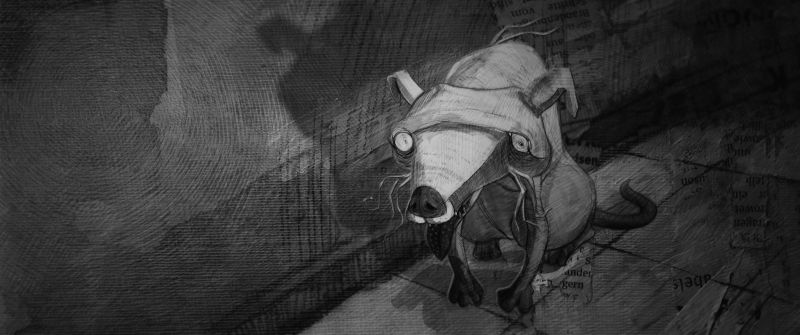
 Have a Nice Dog!
Have a Nice Dog!
Deutschland, Syrien 2020 | 13:14 | Arabisch
 Have a Nice Dog!
Have a Nice Dog!
Germany, Syria 2020 | 13:14 | Arabic
Gefangen in einer Stadt, deren Bewohner verzweifelt versuchen, Normalität vorzutäuschen, während sie vom Krieg umgeben sind, ist für einen jungen Mann der letzte Ausweg seine Gedankenwelt. Einzig sein Hund bietet ihm noch stumme Ansprache, doch scheint auch dessen Verhalten ein Spiegel des Seelenlebens seines Herrchens zu sein.
Content notes:
Animal Cruelty, Eating disorders, Refugee experience and/or war
Trapped in Damascus, surrounded by war, a lonely man becomes increasingly lost in endless self-talk, his fantasies of fleeing and the inner dialogues with his dog. The film is based on the director’s own experience during the first two years of the Syrian war.
Content notes:
Animal Cruelty, Eating disorders, Refugee experience and/or war
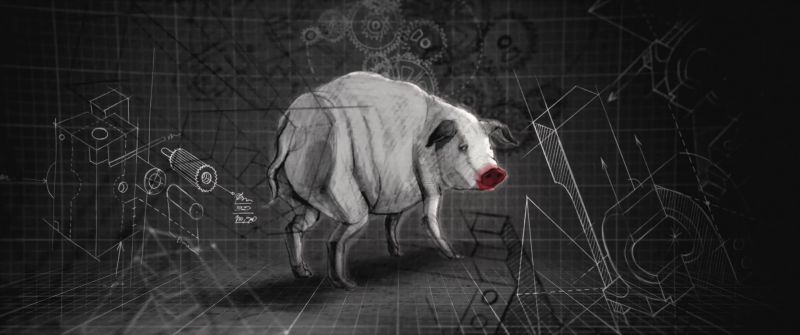
 Up Here, with the White Gods
Up Here, with the White Gods
Deutschland 2020 | Schwarz-Weiss und Farbe |
11:44 | Deutsch
 Up Here, with the White Gods
Up Here, with the White Gods
Germany 2020 | Black & White and Color |
11:44 | German
Voller Erwartungen geht der mosambikanische Vertragsarbeiter Luciano Ende der 1980er Jahre nach Ost-Berlin. Doch was er dort erlebt, entspricht nicht seinen Hoffnungen: Während eines Angriffs von Neonazis auf ihn denkt er an das tragische Schicksal seines Freundes zurück. Basierend auf einer wahren Begebenheit.
Content notes:
Animal Cruelty, Refugee experience and/or war, Physical violence, Mobbing, Racism
The Mozambican contractual worker Luciano is laden with expectations upon his arrival in East Berlin during the 1980s. However, what he experiences over there does not match his hopes: During an attack by neo-Nazis he remembers the tragic fate of his dear friend. Based on true events.
Content notes:
Animal Cruelty, Refugee experience and/or war, Physical violence, Mobbing, Racism
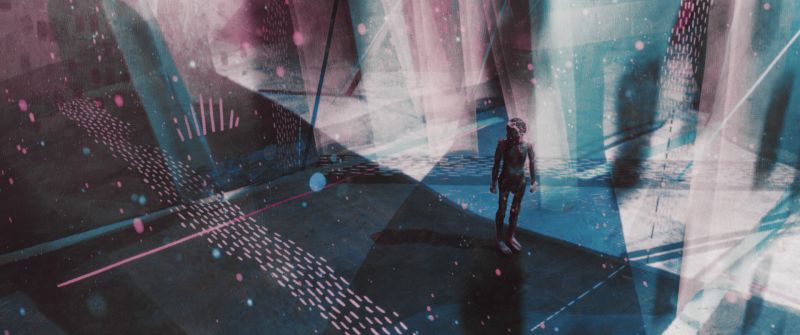
 As I Was a Tree
As I Was a Tree
Deutschland 2024 | Farbe |
10:44 | Kein Dialog
 As I Was a Tree
As I Was a Tree
Germany 2024 | Color |
10:44 | No Dialogue
In einer surrealen Odyssee sucht das Ich nach einem Ausweg.
Content notes:
Alcoholism and/or drug-abuse, Refugee experience and/or war
In a surreal odyssey, the Self seeks escape.
Content notes:
Alcoholism and/or drug-abuse, Refugee experience and/or war

Nachbarschaftsflohmarkt share
Neighbourhood Flea Market share
Sun, 08.06. 11:00
Festivalzentrum Post
ab 11:00 Uhr bis 15:00 Uhr
Manchmal ist es halt Liebe auf den zweiten Blick:
Nachbarschaftsflohmarkt in unserem Festivalzentrum.
Starting at 11:00 - 3:00 pm
Sometimes it's love at second sight:
Neighbourhood flea market in our festival centre.

Eröffnung Kurzfilm Festival Hamburg share
Opening Kurzfilm Festival Hamburg share
Tue, 03.06. 19:00
Festival Center Post Saal
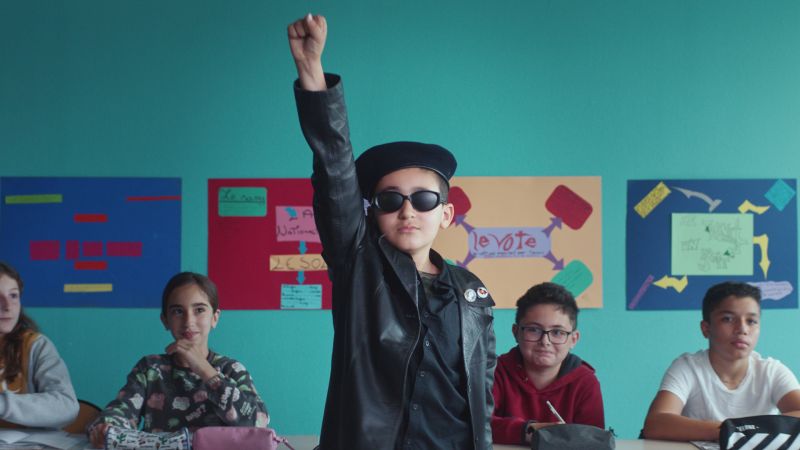
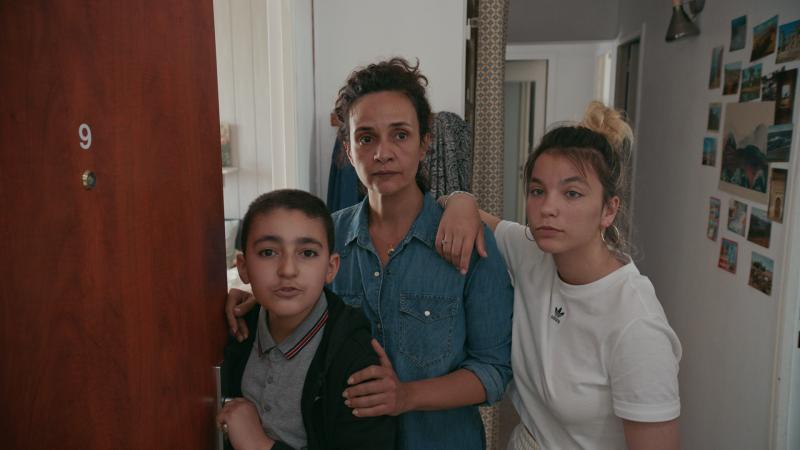
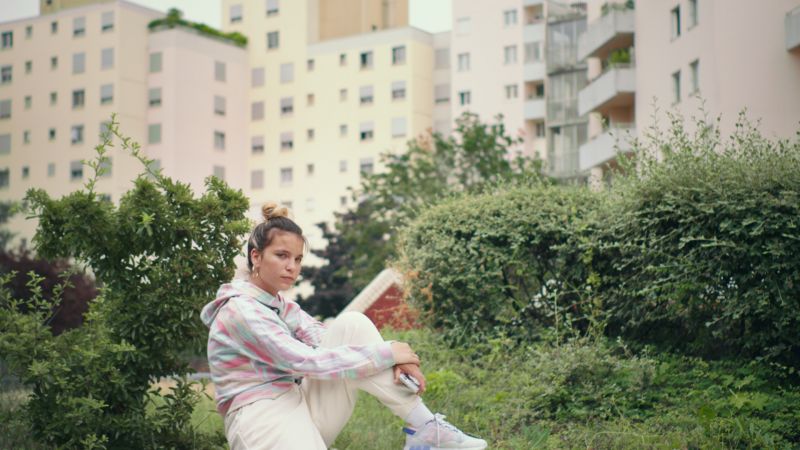
 A.O.C (P.D.O. (Protected Designation of Origin))
A.O.C (P.D.O. (Protected Designation of Origin))
Frankreich 2022 | Farbe |
18:03 | Französisch
 A.O.C (P.D.O. (Protected Designation of Origin))
A.O.C (P.D.O. (Protected Designation of Origin))
France 2022 | Color |
18:03 | French
Was macht es mit einem Menschen, seinen Namen zu ändern?
What does it do to a person to change their name?
Verleihfirma:
Distributor:
Anaïs Colpin
Regie:
Director:
Samy Sidali
Produzent:in:
Producer:
Antoine Salomé
Darsteller:innen:
Cast:
Claire Dumas
Darsteller:innen:
Cast:
Evelyn El Garby Klaï
Darsteller:innen:
Cast:
Shirel Nataf
Darsteller:innen:
Cast:
Wassim Logmane
Produzent:in:
Producer:
Joséphine Mourlaque
Ton:
Sound design:
Renaud Duguet
Kamera:
Director of photography:
Manuel Bolaños
Editing:
Editing:
Julie Lena
Petit taxi (2022), Jmar (2020)
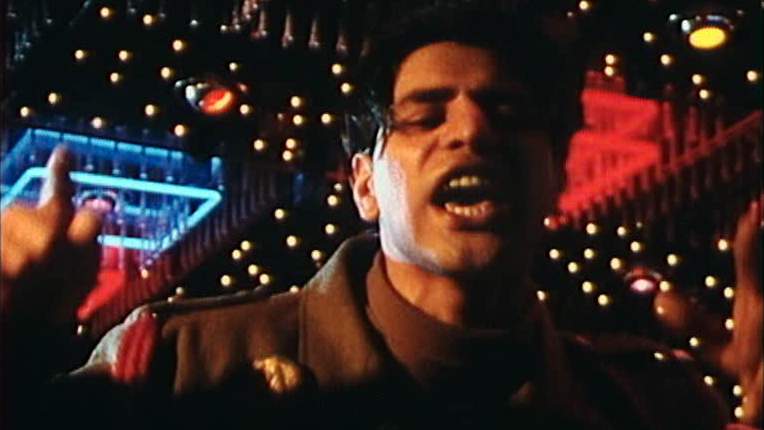
 I'm British But...
I'm British But...
Vereinigtes Königreich 1989 | 28:48 | Englisch
 I'm British But...
I'm British But...
United Kingdom 1989 | 28:48 | English
Bevor sie mit Bend it Like Beckham den großen Durchbruch schaffte, drehte Gurinder Chadha diese faszinierende Dokumentation darüber, was es bedeutete, in den 1980er Jahren ein junger britischer Asiate zu sein. Die interviewten Jugendlichen stammen aus dem gesamten Vereinigten Königreich; der gemeinsame Nenner ist, dass sie Großbritannien als ihre Heimat sehen – doch ihre unterschiedlichen Auffassungen darüber, was es für sie bedeutet, sowohl asiatisch als auch britisch zu sein, werden durch die Rhythmen von Bhangra- und Bangla-Musik untermalt.
Eine in Glasgow aufgewachsene pakistanische Frau sagt, sie sehe sich nicht als Britin, sondern als Schottin/Pakistanerin – es ist faszinierend zu erkennen, wie einige der tief verwurzelten kulturellen Werte nicht nur von Generation zu Generation weitergegeben werden, sondern auch an Einwanderergemeinschaften übergehen.
Before she hit the big time with Bend it Like Beckham, Gurinder Chadha made this fascinating documentary on what it meant to be a young British Asian in the 1980s. The young people interviewed are from across the UK; the common thread is that they see it as home, but their differing views about what being Asian and British means for them are underscored by the beats of Bhangra and Bangla music.
One Pakistani woman brought up in Glasgow says that she sees herself not as British but as Scottish/Pakistani - it's fascinating to realise how some of the more strongly-held cultural values are passed on not just from generation to generation, but to immigrant communities, too.

Ausgezeichnet: European Film Award & QMS Award share
Renowned: European Film Award & QMS AWARD share
Beim Kurzfilm Festival Hamburg wird auch in diesem Jahr ein Film des Internationalen Wettbewerbs für den European Film Award nominiert. Mehr als 5000 Mitglieder der Europäischen Filmakademie wählen jährlich den besten europäischen Kurzfilm. Wir präsentieren euch den aktuellen Preisträger, The Man Who Could Not Remain Silent, einen beeindruckenden Film über Courage, sowie drei weitere nominierte Produktionen.
Zum ersten Mal verliehen wurde Ende vergangenen Jahres der QMS AWARD. Die Auszeichnung wird zweimal jährlich, beim Filmfest München und dem Festival of Future Storytellers, in Kooperation zwischen der Internationalen Münchner Filmwochen GmbH und dem QMS Awards e.V. vergeben. Der gemeinnützige Verein entspringt aus der aktivistischen, ehrenamtlich organisierten Initiative Queer Media Society, die ein Zusammenschluss queerer Medienschaffender zur Repräsentanz queerer Menschen und Inhalte in den Medien ist. Wir zeigen Son, einen der beiden Gewinner:innenfilme, über einen queeren Lebensentwurf im Iran. Freut euch also auf ein preisgekröntes Programm mit Gäst:innen!
Once again, a film from the Kurzfilm Festival Hamburg’s International Competition will be nominated this year for the European Film Award. Every year, more than 5,000 members of the European Film Academy vote for the best European short film. We present the current winner, The Man Who Could Not Remain Silent, an impressive film about courage, as well as three other nominated productions.
At the end of last year, the QMS AWARD was presented for the first time. The award is presented twice a year, at Filmfest München and the Festival of Future Storytellers, in cooperation between the Internationale Münchner Filmwochen GmbH and the QMS Awards e.V.. The non-profit association originates from the activist, volunteer-organized initiative Queer Media Society, which is an association of queer media professionals for the representation of queer people and content in the media. We are showing Son, one of the two winning films, about a queer life plan in Iran. You can look forward to an award-winning program with guests!
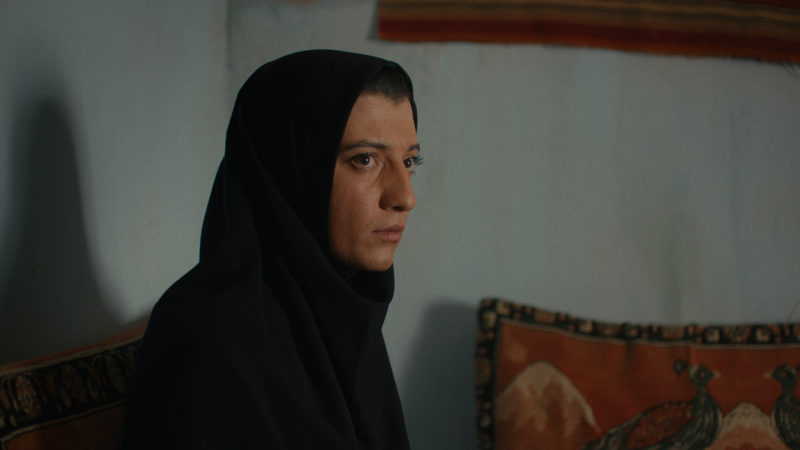
 Son
Son
Iran, Schweiz 2024 | Farbe |
17:00 | Kurdish, Farsi
 Son
Son
Iran, Switzerland 2024 | Color |
17:00 | Kurdish, Farsi
Regie, Script, Editing, Produzent:in:
Director, Script, Editing, Producer:
Saman Hosseinpuor
Kamera:
Director of photography:
Robin Angst
Editing:
Editing:
Zoé Buess
Music:
Music:
Omer Mohammadi
Ton:
Sound design:
Peter von Siebenthal
Ton:
Sound design:
Daniel Bleuer
Produzent:in:
Producer:
Philipp Ritler
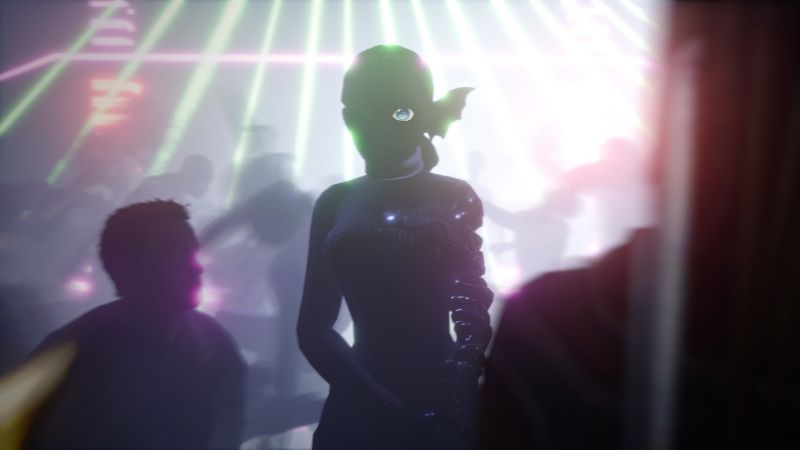
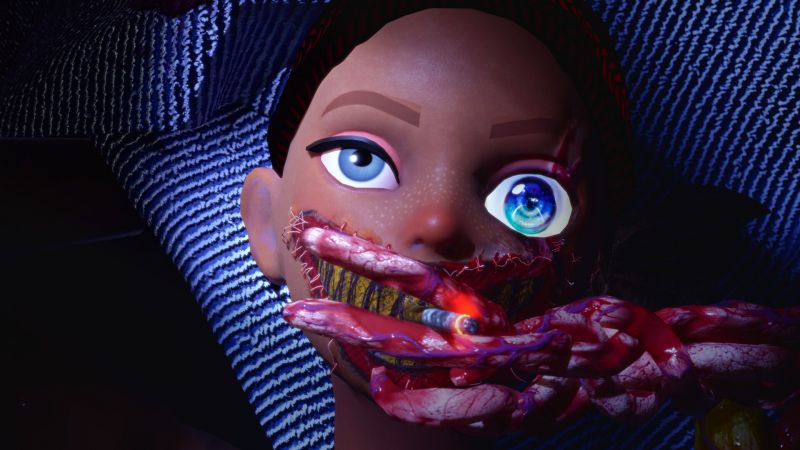
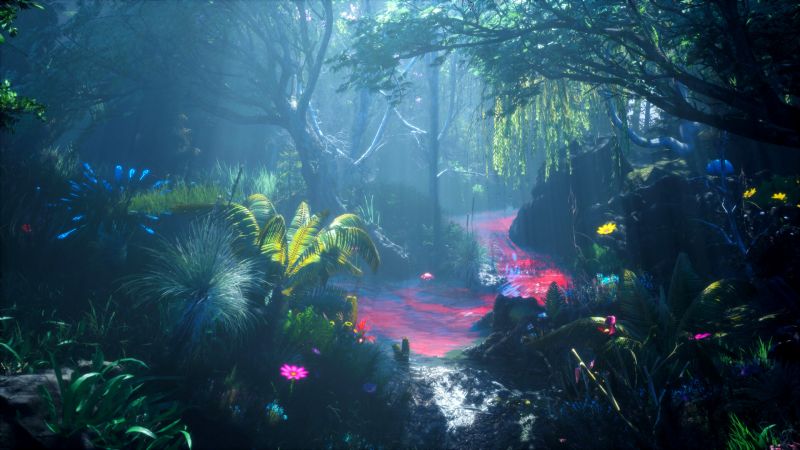
 La fille qui explose (The Exploding Girl)
La fille qui explose (The Exploding Girl)
Frankreich 2024 | Farbe |
19:02 | Französisch
 La fille qui explose (The Exploding Girl)
La fille qui explose (The Exploding Girl)
France 2024 | Color |
19:02 | French
Regie:
Director:
Jonathan Vinel
Regie:
Director:
Caroline Poggi
Kontakt:
Contact:
ASTREA Immersive
Darsteller:innen:
Cast:
Grace Seri
Produzent:in:
Producer:
Oriane Hurard
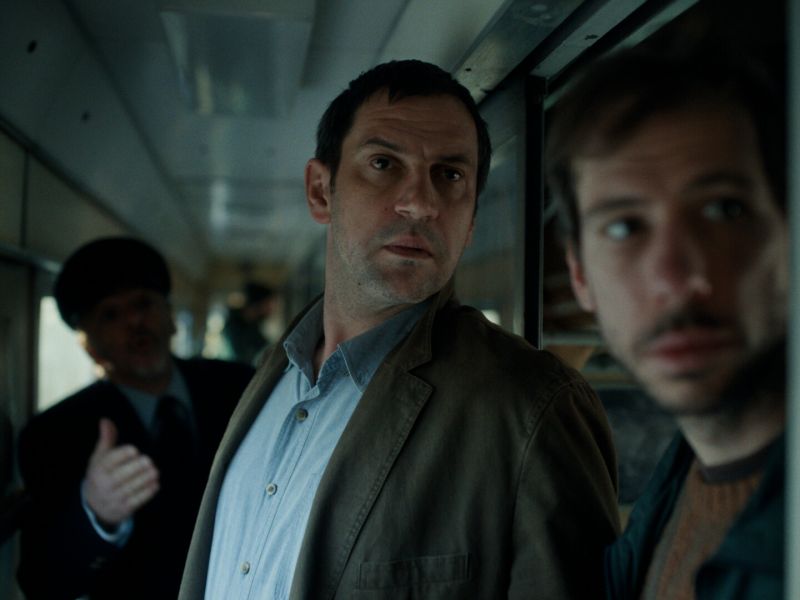
 The Man Who Could Not Remain Silent
The Man Who Could Not Remain Silent
Kroatien 2024 | Farbe |
13:42 | Kroatisch
 The Man Who Could Not Remain Silent
The Man Who Could Not Remain Silent
Croatia 2024 | Color |
13:42 | Croatian
Kontakt:
Contact:
Anaïs Colpin
Produzent:in:
Producer:
Danijel Pek
Produzent:in:
Producer:
Boštjan Virc
Produzent:in:
Producer:
Katarina Prpić
Regie:
Director:
Nebojsa Slijepcevic
Darsteller:innen:
Cast:
Dragan Micanovic
Produzent:in:
Producer:
Noëlle Lévénez
Produzent:in:
Producer:
Katya Trichkova
Darsteller:innen:
Cast:
Alexis Manenti
Darsteller:innen:
Cast:
Goran Bogdan Dragan
Darsteller:innen:
Cast:
Silvio Mumelaš
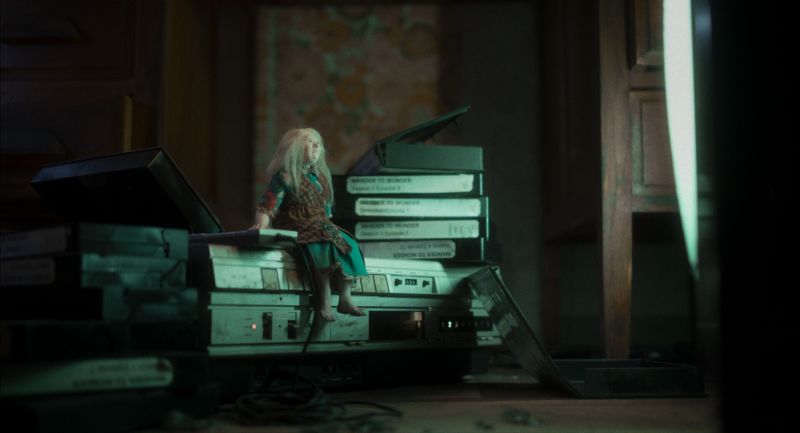
 Wander to Wonder
Wander to Wonder
Niederlande, Frankreich, Belgien, Vereinigtes Königreich 2023 | Farbe |
13:20 | Englisch
 Wander to Wonder
Wander to Wonder
Netherlands, France, Belgium, United Kingdom 2023 | Color |
13:20 | English
Kontakt:
Contact:
Luce Grosjean
Produzent:in:
Producer:
Beast Animation
Produzent:in:
Producer:
Blink Industries
Daan BAKKER
Produzent:in:
Producer:
Les Productions de Milou
Produzent:in:
Producer:
Maarten SAWRT
Regie:
Director:
Nina Gantz
Produzent:in:
Producer:
Pictanovo images en Hauts-de-France
Simon CARTWRIGHT
Produzent:in:
Producer:
Stienette BOSKLOPPER
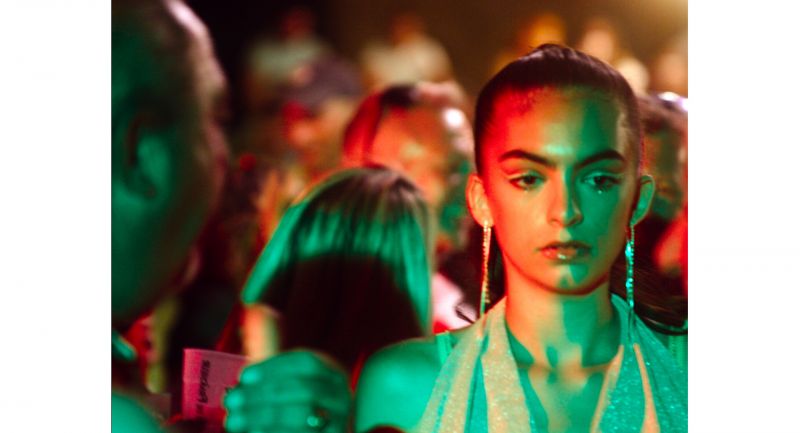
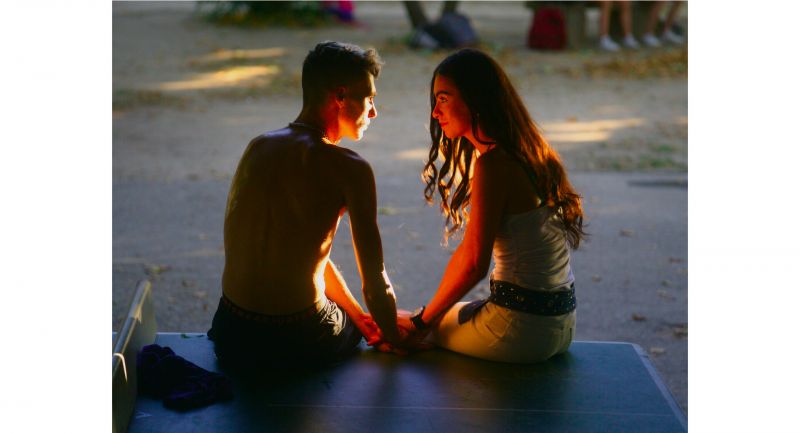
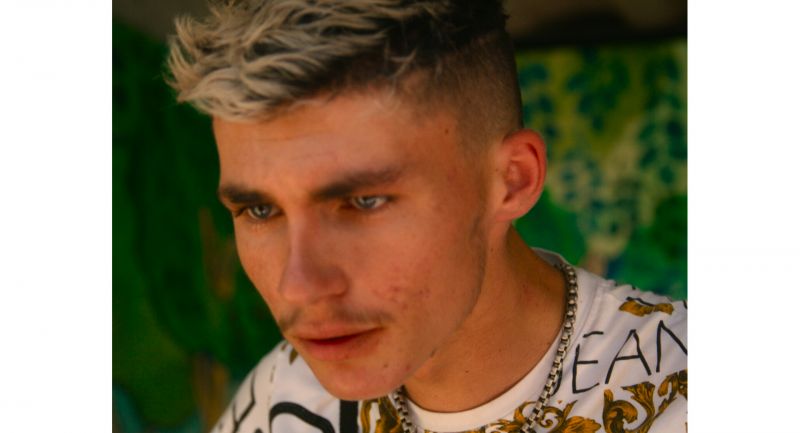
 Boucan (Clamour)
Boucan (Clamour)
Frankreich 2023 | Farbe |
25:00 | Französisch
 Boucan (Clamour)
Boucan (Clamour)
France 2023 | Color |
25:00 | French
Produzent:in:
Producer:
Jean-Etienne Brat
Produzent:in:
Producer:
Lou Chicoteau
Produzent:in:
Producer:
Annibal Colonna
Darsteller:innen:
Cast:
Marylou Cabanel
Darsteller:innen:
Cast:
Rodrigue Toleda
Romy Coccia di Ferro
Regie:
Director:
Salomé Da Souza

Es müsste immer Musik da sein ... share
There Should Always Be Music ... share
Ein filmischer Start in den Festival-Samstagabend!
Musik ist mehr als Sound – sie ist Erinnerung, Widerstand, Trost und verbindet uns. An diesem Festival-Samstagabend wird sie zur Hauptfigur in der Post. Sie hallt durch fast vergessene Clubs, vibriert zwischen Betonwänden, tanzt durch Liebesfantasien und überwindet Grenzen, die mit Stacheldraht gezogen wurden. Sie ist Zuflucht und Antrieb zugleich – ein immer wieder aufklingendes Element, das uns daran erinnert, dass wir lebendig sind.
Die Filme dieses Abends erzählen von Menschen, die sich selbst (wieder)finden – hoch oben in einem Kran über Beirut, zwischen den Platten einer Punkband, im Schatten geopolitischer Trennungslinien oder auf der Tanzfläche eines in den 1980er-Jahren fast schon utopischen Ortes. Inmitten von Unsicherheit, Konventionen oder Krieg wird Musik zum Safe Space, der uns die Möglichkeit gibt zusammenzukommen. Sie schenkt Sprache, wo Worte fehlen, Nähe, wo Distanz herrscht, und Freiheit, wo Kontrolle regiert.
»Es müsste immer Musik da sein…« ist ein filmisches Plädoyer für die verbindende Kraft von Rhythmus und Klang. Ein Programm über Gemeinschaft jenseits von Herkunft, Gender und Grenze – über Räume, die nur durch Musik entstehen können. Und vielleicht auch über die Sehnsucht, dass der Moment nie aufhört, solange noch ein Lied spielt.
Kurator: Sven Schwarz
A cinematic start to the festival Saturday evening!
Music is more than sound – it is memory, resistance, consolation and connects us. On this festival Saturday evening, it becomes the main character in the Post halls. It echoes through almost forgotten clubs, vibrates between concrete walls, dances through love fantasies and overcomes borders drawn with barbed wire. It is both a refuge and a driving force – a recurring element that reminds us that we are alive.
The films of this evening tell of people who (re)find themselves – high up in a crane above Beirut, between the records of a punk band, in the shadow of geopolitical dividing lines or on the dance floor of a place that was almost utopian in the 1980s. In the midst of uncertainty, conventions or war, music becomes a safe space that gives us the opportunity to come together. It provides language where words are lacking, closeness where there is distance, and freedom where control reigns.
»There Should Always Be Music...« is a cinematic plea for the unifying power of rhythm and sound. A program about community beyond origin, gender and borders – about spaces that can only be created through music. And perhaps also about the longing that the moment never ends as long as a song is still playing.
Curator: Sven Schwarz
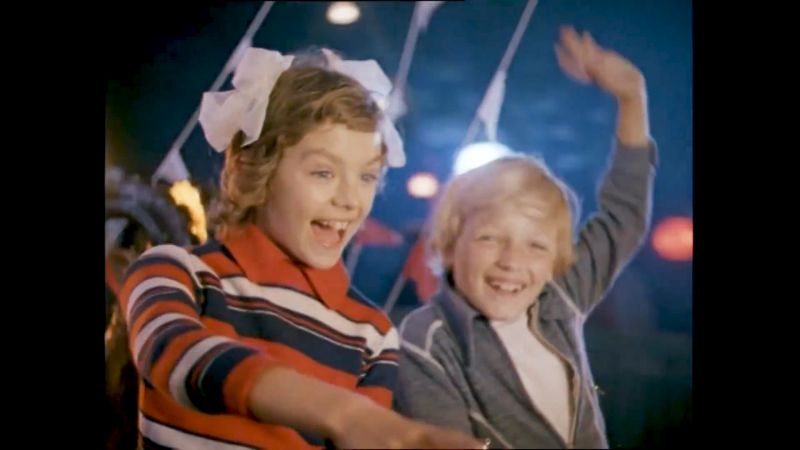
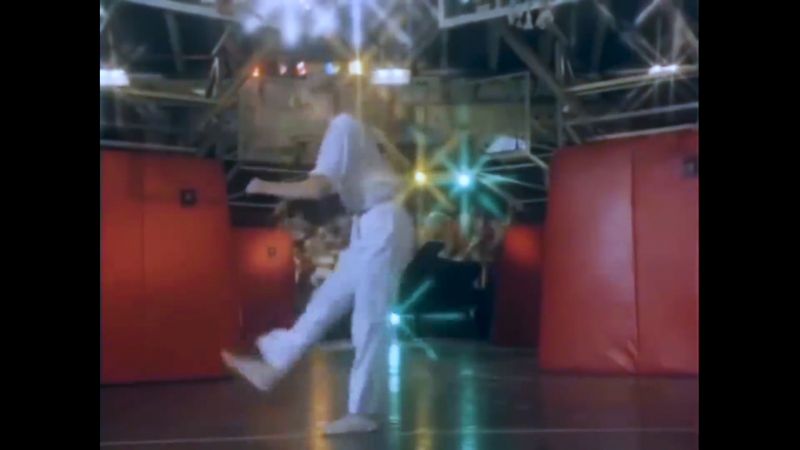
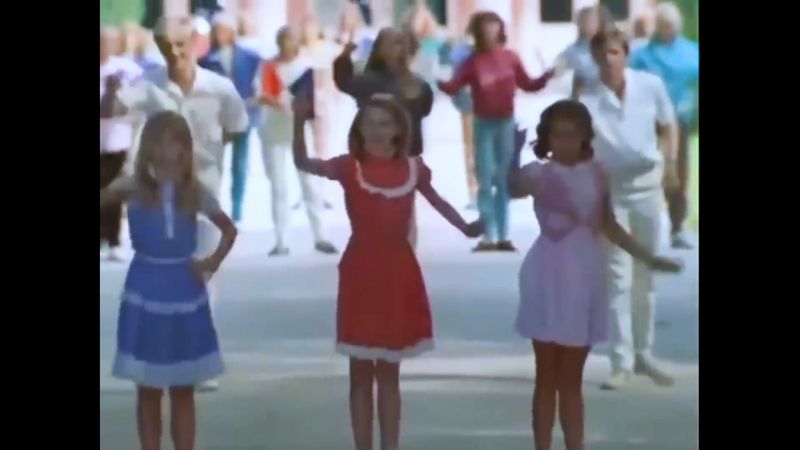
 Long Time No Techno
Long Time No Techno
Deutschland, Ukraine 2022 | Farbe |
03:43 | Kein Dialog
 Long Time No Techno
Long Time No Techno
Germany, Ukraine 2022 | Color |
03:43 | No Dialogue
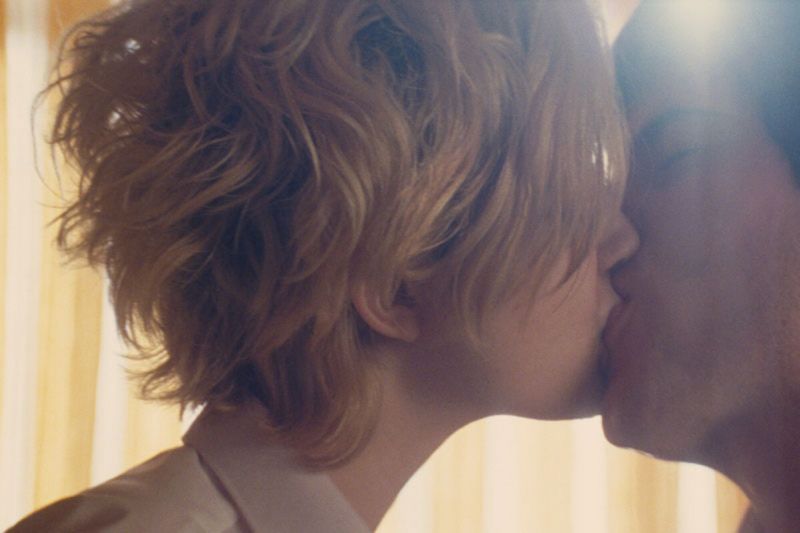
 Love You More
Love You More
Vereinigtes Königreich 2008 | Farbe |
15:05 | Englisch
 Love You More
Love You More
United Kingdom 2008 | Color |
15:05 | English
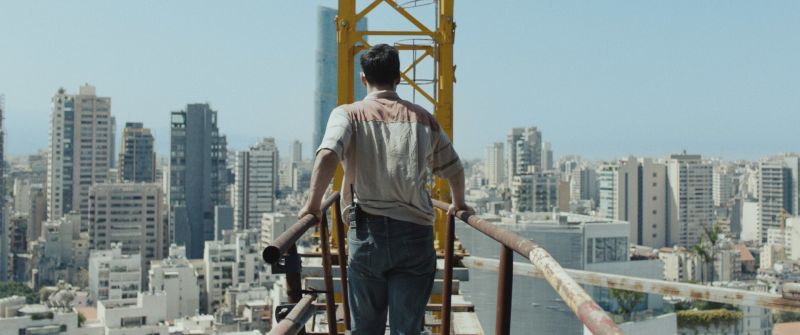
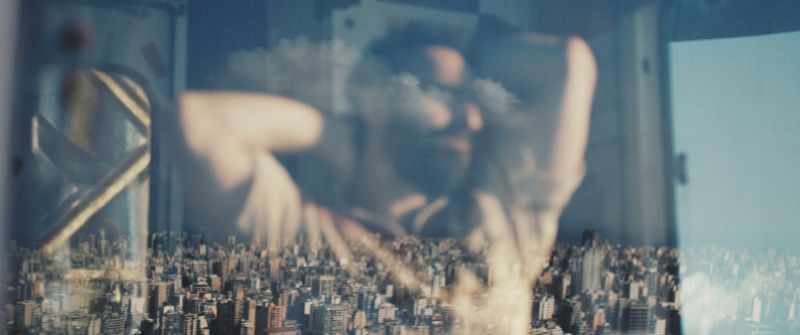
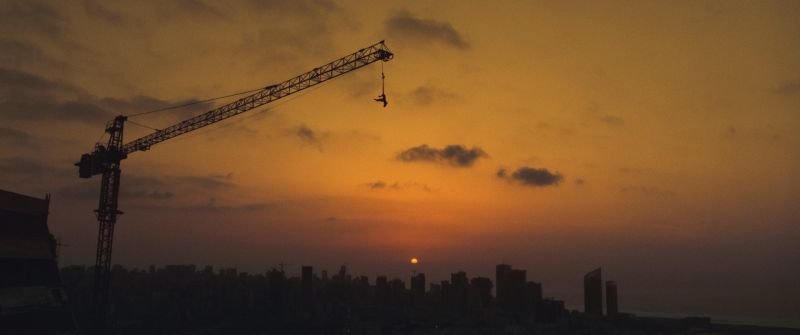
 Warsha
Warsha
Frankreich, Libanon 2022 | Farbe |
15:54 | Arabisch
 Warsha
Warsha
France, Lebanon 2022 | Color |
15:54 | Arabic
Mohammad ist ein Kranführer in Beirut. Eines Morgens meldet er sich freiwillig, um einen der höchsten und berüchtigtsten Kräne im Libanon zu übernehmen. Fernab von allen Augen kann er seine geheime Leidenschaft ausleben und Freiheit finden.
Mohammad is a crane operator working in Beirut. One morning he volunteers to take on one of the tallest and notoriously most dangerous cranes in Lebanon. Away from everyone’s eyes, he can live out his secret passion and find freedom. |
Produzent:in:
Producer:
Coralie Dias
Regie:
Director:
Dania Bdeir
Darsteller:innen:
Cast:
Khansa
Kontakt:
Contact:
Square Eyes
In White (2017), Kaleidoscope (2014)
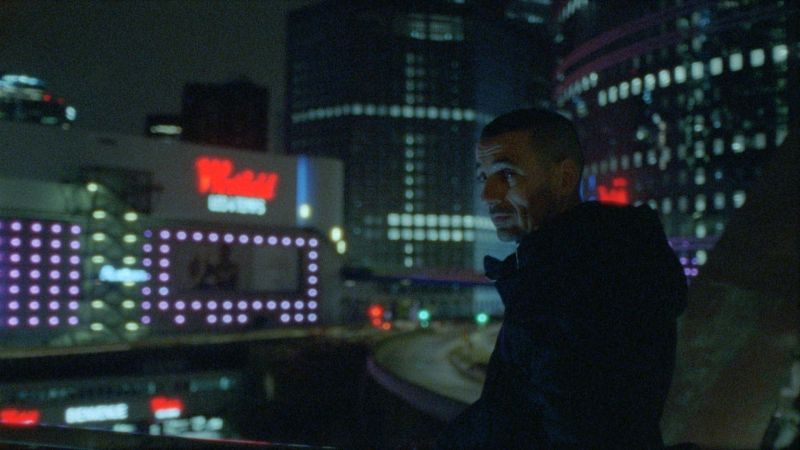
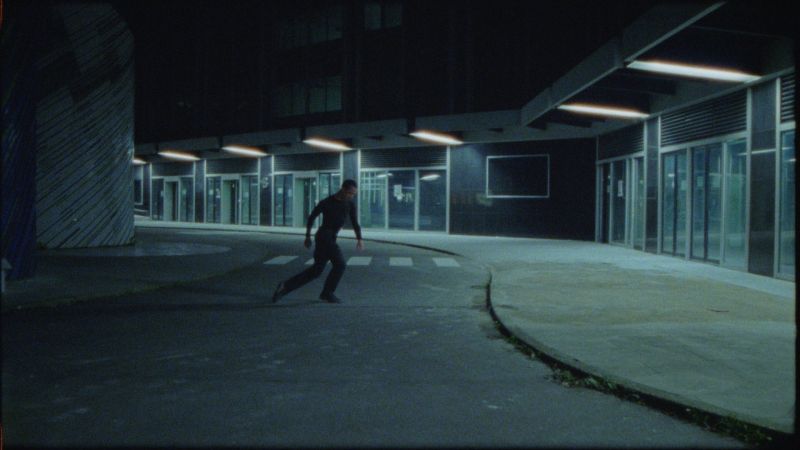
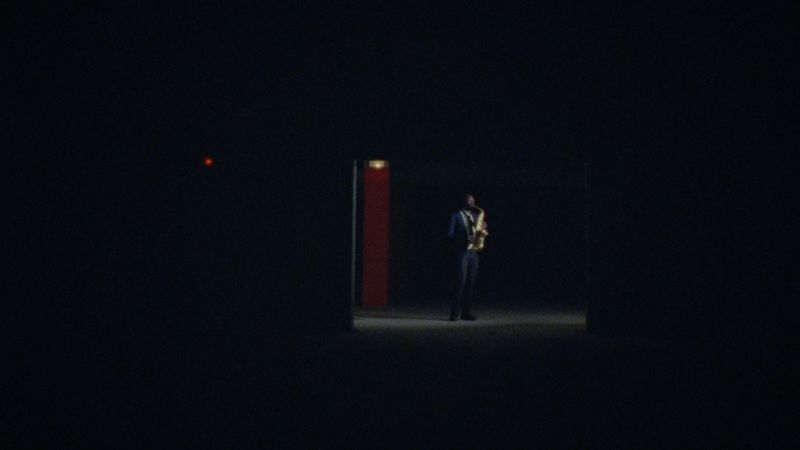
 Pacific Club
Pacific Club
Frankreich, Katar 2023 | Farbe |
16:37 | Französisch
 Pacific Club
Pacific Club
France, Qatar 2023 | Color |
16:37 | French
1979 wurde im Pariser Büroviertel La Défense der Pacific Club eröffnet. Es war der erste Nachtclub für Araber aus den Vorstädten. Eine Parallelwelt aus Tanz, Schweiß, jungen Lieben und One-Night-Utopien. Azedine, damals 17 Jahre alt, erzählt uns die vergessene Geschichte dieses Clubs und einer Generation, die davon träumte, sich in Frankreich zu integrieren. Dann kamen die Erfahrung des Rassismus, die AIDS-Epidemie und Heroin.
In 1979, the Pacific Club was opened in the basement of La Défense - the business district of Paris. It was the first nightclub for Arabs from the suburbs; a parallel world of dance, sweat, young loves, and one-night utopias. Azedine, 17 years old at the time, tells us the forgotten story of this club and of this generation who dreamed of integrating into France but who soon came face to face with racism, the AIDS epidemic, and heroin.
Produzent:in:
Producer:
Manon Messiant
Sales:
Sales:
Christina Demetriou
Regie:
Director:
Valentin Noujaïm
Daugthers of Destiny (2021), Venus Retrograde (2021), The Blue Star (2019), Before She Forgets Heliopolis (2019)
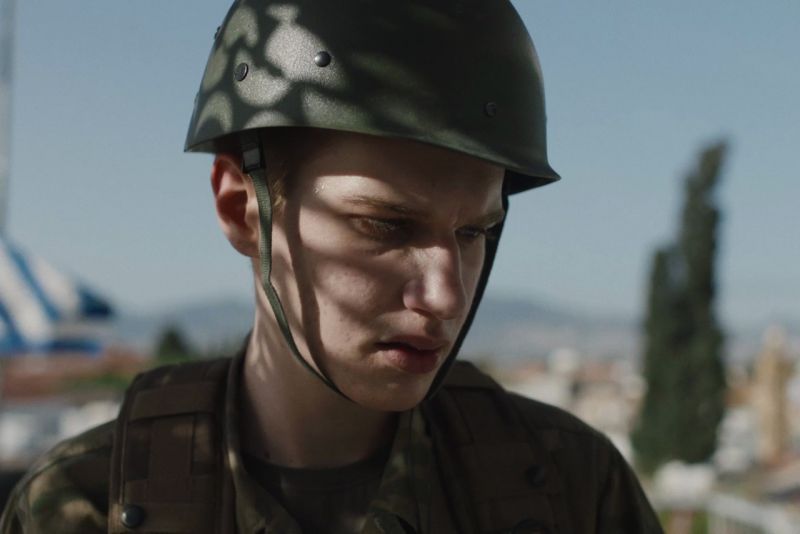
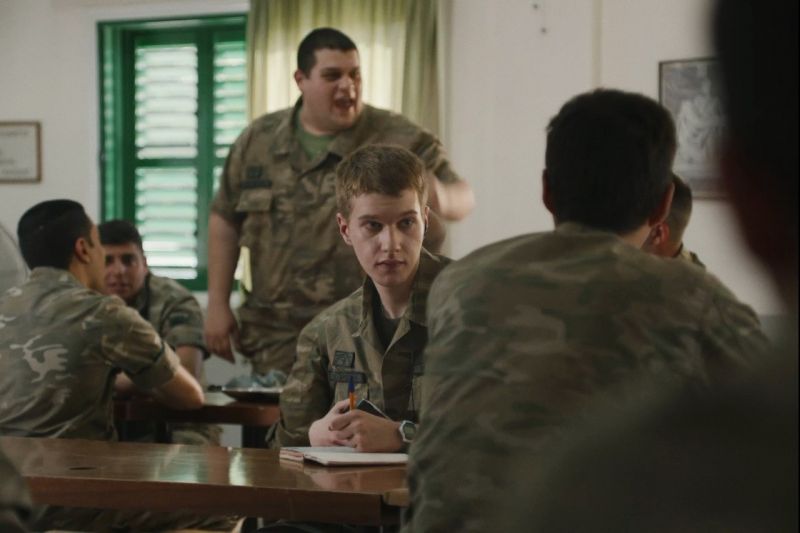
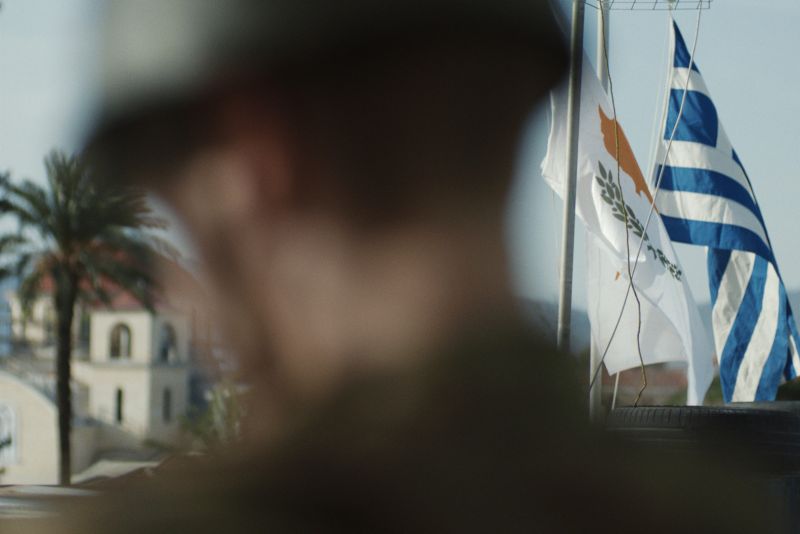
 Buffer Zone
Buffer Zone
Zypern, Vereinigtes Königreich 2023 | Farbe |
16:36 | Englisch, Griechisch
 Buffer Zone
Buffer Zone
Cyprus, United Kingdom 2023 | Color |
16:36 | English, Greek
Two young soldiers across enemy lines fall in love and find escape from their oppressive environments through music.
Content notes:
Discrimation against LGBTQ+, Refugee experience and/or war, Mobbing
Kontakt:
Contact:
Shortcuts Distribution
Darsteller:innen:
Cast:
Danae Stylianou
Produzent:in:
Producer:
Peter Stephanou
Darsteller:innen:
Cast:
Sally McLeery
Regie:
Director:
Savvas Stavrou
Produzent:in:
Producer:
Sophie Reynolds
Produzent:in:
Producer:
Thomas Hawkins
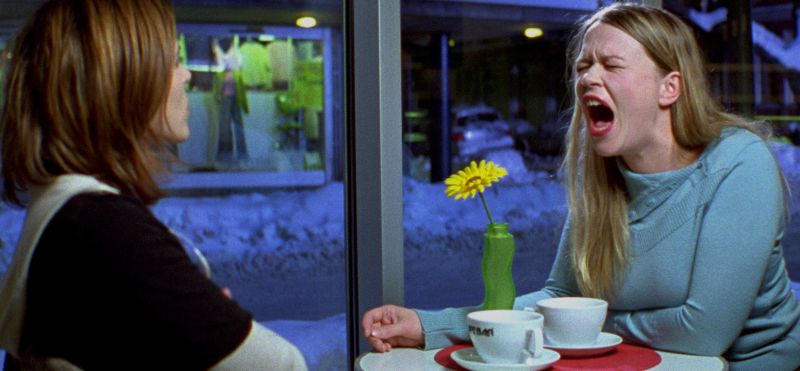
 Kokos (Coco-Nuts)
Kokos (Coco-Nuts)
Norwegen 2006 | Farbe |
11:27 | Norwegisch
 Kokos (Coco-Nuts)
Kokos (Coco-Nuts)
Norway 2006 | Color |
11:27 | Norwegian
Regie:
Director:
Charlotte Blom
Produzent:in:
Producer:
Björn Eivind Aarskog
Produktionsfirma:
Production company:
EXPOSED Film Production

Women & Cocaine presents She Done Him Wrong share
Women & Cocaine presents: She Done Him Wrong share
Feiert mit uns die Faszination und den Mut von Mae West, der klassischen Hollywood-Provokateurin, die mit dem Vorschlaghammer veraltete Vorstellungen über die weibliche Sexualität zertrümmerte. West spielt in She Done Him Wrong Lady Lou, eine Saloonsängerin, die mit Liebhabern wie Kriminellen, Politikern und dem jungen Cary Grant jongliert. Der Film, der bei seiner Veröffentlichung in mehreren Ländern verboten wurde, ist der kürzeste Film, der jemals für einen Oscar nominiert wurde.
Präsentiert von Caroline Cassin.
Women & Cocaine is a film series at The Cinema Museum in London, celebrating the bold, trailblazing women of pre-Code Hollywood. Between 1930 and 1934, women in film were ambitious, complex, and sexual, revelling in their newfound economic freedom—until the axe of censorship fell, and reshaped their roles in Hollywood for decades to come.
Presented by Caroline Cassin.
Caroline Cassin is a film and cultural events programmer whose work harnesses archival materials and multimedia to re-examine women’s history in cinema, focusing on their contributions both on-screen and behind the scenes.
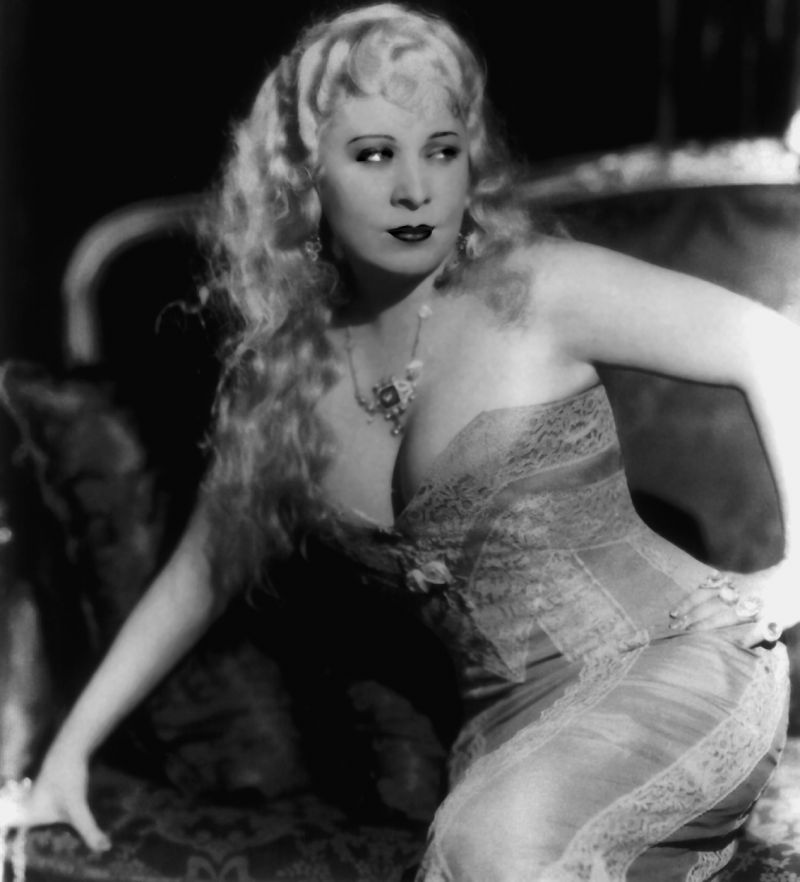
 She Done Him Wrong
She Done Him Wrong
Vereinigte Staaten 1933 | 01:04:32 |
 She Done Him Wrong
She Done Him Wrong
United States 1933 | 01:04:32 |

Zeise Shortfilm Slam share
Zeise Short Film Slam share
Ein abendfüllender Spielfilm hat es schon ziemlich leicht. Über 90 Minuten hat er Zeit, sich zu entfalten, Themen auszubreiten und lange Geschichten zu erzählen. Nicht so beim Kurzfilm: Alles muss stimmen, jede Sekunde ist relevant. Seine Limitierung und sein trotzdem unendliches Potenzial machen ihn zur cineastischen Königsdisziplin – und genau diese wird beim Shortfilm Slam zelebriert.
Acht Kurzfilme treten gegeneinander an – egal ob hochkarätige Produktionen oder Low-Budget-Studierendenfilme. Wir freuen uns, zu einigen Filmen auch die Filmschaffenden für ein Q&A begrüßen zu dürfen. Die zufällig aus dem Publikum ausgewählte Jury bewertet die Filme von 1 bis 10. Der Preis: Ruhm, Ehre, eine Flasche Hochprozentiges und ein unvergesslicher Abend. Spätestens dann haben alle gewonnen. Für seinen jährlichen Ausflug zum Kurzfilm Festival Hamburg verlässt der Shortfilm Slam seine heimatlichen Gefilde in den Zeise Kinos – ready to celebrate short films together!
In Kooperation mit dem Verleih und Vertrieb der Kurzfilm Agentur Hamburg und den Zeise Kinos.
A feature-length film has it pretty easy. Over 90 minutes, it has time to unfold, spread out themes and tell long stories. Not so with a short film. Here everything has to be right, every second is relevant. Its limitations and yet infinite potential make it the supreme cinematic discipline – and this is celebrated at the Short Film Slam.
Eight short films compete against each other – no matter whether they are top-class productions or low-budget student films. We are pleased to welcome the filmmakers of some of the films for a Q&A. The jury, chosen at random from the audience, will rate the films from 1 to 10. The prize: fame, honor, a bottle of hard liquor and an unforgettable evening. At this point, at the latest, everyone has actually won. For its annual excursion to the Kurzfilm Festival Hamburg, the Short Film Slam leaves its home turf in the Zeise Kinos – ready to celebrate short films together!
In cooperation with the distribution and sales of Kurzfilm Agentur Hamburg and Zeise Kinos.



 Notes from Planet Three
Notes from Planet Three
Vereinigtes Königreich 2025 | Farbe |
14:09 | Englisch
 Notes from Planet Three
Notes from Planet Three
United Kingdom 2025 | Color |
14:09 | English
Ein Junge und seine zweijährige Schwester diskutieren über das Sonnensystem.
A boy and his two-year-old sister discuss the solar system, unfazed by the noise of social media.
Regie, Produzent:in, Kamera:
Director, Producer, Director of photography:
Simon Ellis
Editing:
Editing:
Miss O'Neill
Music:
Music:
Tom Bailey
Produzent:in:
Producer:
Rachel Robey
Produzent:in:
Producer:
Alastair Clark
Darsteller:innen:
Cast:
Eben Harris-Wilby
Darsteller:innen:
Cast:
Mala Harris-Wilby
(Selection) The Terminator (2023), Ostrich Theory (2020), World War Cup (2016), Stew & Punch (2013), Jam Today (2011), Soft (2007)



 眠れないわ! (Cannot sleep!)
眠れないわ! (Cannot sleep!)
Japan, Volksrepublik China 2024 | Farbe |
02:27 | Japanisch
 眠れないわ! (Cannot sleep!)
眠れないわ! (Cannot sleep!)
Japan, China 2024 | Color |
02:27 | Japanese
In Japan leidet jede fünfte Person unter Schlaflosigkeit. Ein magisches ökonomisches Experiment.
Content notes:
Strobe effects and/or flashing images
In Japan, every fifth person is suffering from insomnia. A magical, economical experiment.
Content notes:
Strobe effects and/or flashing images






 Jah! (Yes!)
Jah! (Yes!)
Estland 2024 | Farbe |
03:00 | Estnisch
 Jah! (Yes!)
Jah! (Yes!)
Estonia 2024 | Color |
03:00 | Estonian
Ein Parcours aus Ecken, Steigungen, Sackgassen und Kurven, um über die Dilemmata der Leistungsgesellschaft nachzudenken. Sollen wir uns in eine Schublade zwängen – oder es wagen, falsch zu liegen?
A parcours of corners, inclination, dead ends and curves to reflect on the dilemmas of the performance society. Should we make ourselves fit into a box? Or should we dare not to fit right in?
Regie:
Director:
Madli Lääne
Kamera:
Director of photography:
Fidelia Regina Randmäe
Editing:
Editing:
Emeri Abel
Ton:
Sound design:
Siim Skepast
Voice Over:
Voice Over:
Ivo Uukkivi
Darsteller:innen:
Cast:
Raido Mägi
Kostümbild:
Costume design:
Liis Plato
Andere:
Other:
Joonas Veelmaa
Produzent:in:
Producer:
Johanna Maria Paulson
Referent contact:
Referent contact:
Madli Lääne
Jungle Law (2024), Dear Passengers (2022), Three August Days (2018)



 Neun Tage im August (Nine Days in August)
Neun Tage im August (Nine Days in August)
Deutschland 2024 | Farbe |
17:03 | Deutsch
 Neun Tage im August (Nine Days in August)
Neun Tage im August (Nine Days in August)
Germany 2024 | Color |
17:03 | German
Lea ist 18 und schwanger. Statt Party zu machen, muss sie sich mit der Bürokratie einer Abtreibung auseinandersetzen.
Lea is 18 and pregnant. Instead of partying, she has to deal with the bureaucracy of an abortion.
Regie, Produzent:in:
Director, Producer:
Ella Knorz
Kamera:
Director of photography:
Lea Dähne
Darsteller:innen:
Cast:
Frank Voß
Darsteller:innen:
Cast:
Marie Nadja Haller
Darsteller:innen:
Cast:
Paula Winteler
Music composer:
Music composer:
Maximilian Kremser
Music composer:
Music composer:
Fabiola Wörter
Daddy (2023), Dreaming Bodies (2022)



 Challenges of a Solitary Mind
Challenges of a Solitary Mind
Österreich 2025 | Schwarz-Weiss und Farbe |
03:00 | Kein Dialog
 Challenges of a Solitary Mind
Challenges of a Solitary Mind
Austria 2025 | Black & White and Color |
03:00 | No Dialogue
Eine introvertierte Person wird von allen Seiten gedrängt, aufgeschlossener zu sein. Die Geschichte einer stetigen Herausforderung.
This is the story of an introvert facing challenges when constantly being pushed to be more outgoing.
Animation, Regie:
Animation, Director:
Astrid Rothaug
Music composer, Ton:
Music composer, Sound design:
Ken Rischard
Verleihfirma:
Distributor:
Sixpackfilm
The Stolen Dream (2025), The Missing Spots (2024), Nature Deficit (2023), SWALLOWED (2022), METANOIA (2021)
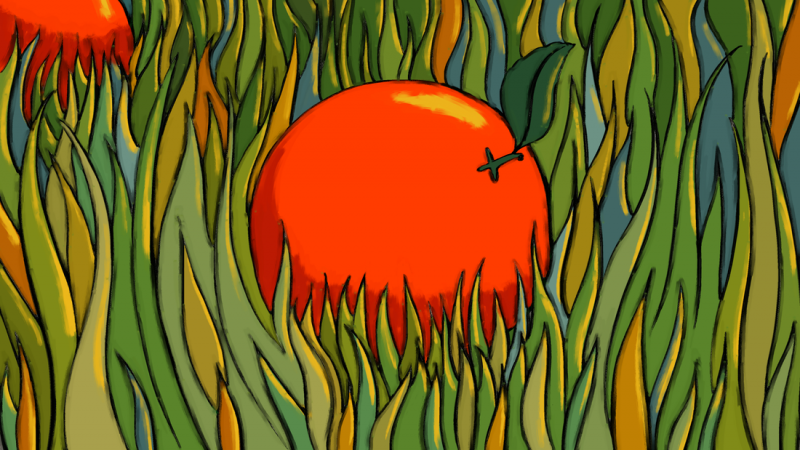
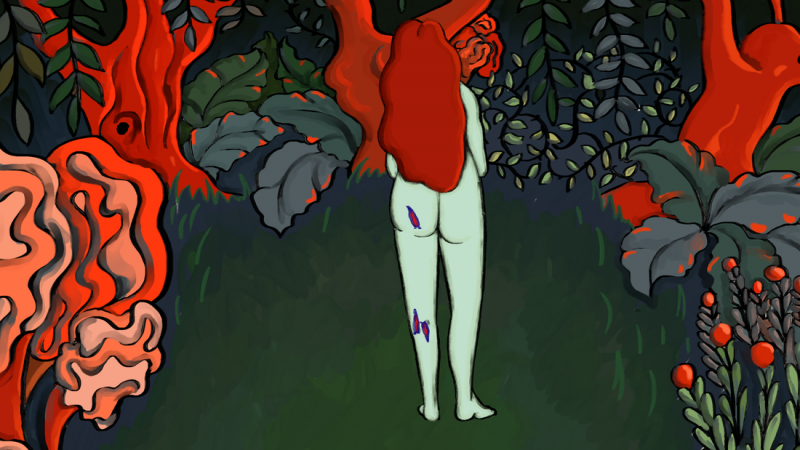
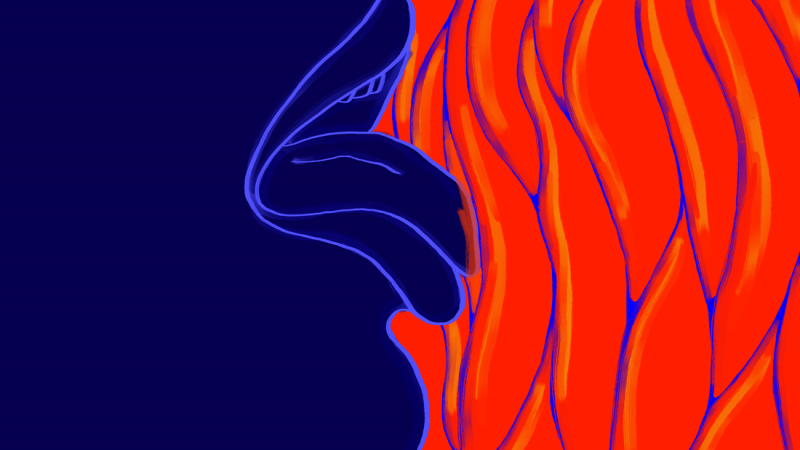
 The Eating of an Orange
The Eating of an Orange
Vereinigtes Königreich 2024 | Farbe |
07:29 | Englisch
 The Eating of an Orange
The Eating of an Orange
United Kingdom 2024 | Color |
07:29 | English
Regie, Animation, Script, Music, Ton:
Director, Animation, Script, Music, Sound design:
May Kindred-Boothby
Music, Ton:
Music, Sound design:
Coral Rose Kindred-Boothby



 When Doves Try
When Doves Try
Niederlande, Belgien 2023 | Farbe |
02:32 | Kein Dialog
 When Doves Try
When Doves Try
Netherlands, Belgium 2023 | Color |
02:32 | No Dialogue
Ein Taubenmännchen umwirbt ein Taubenweibchen in diesem peinlich vertrauten Tanz aus Anziehung, Verführung – und Enttäuschung.
A male pigeon courts a female pigeon in this awkwardly familiar dance of attraction, seduction and ... disappointment.
Regie, Produzent:in:
Director, Producer:
Thalia de Jong
Music composer:
Music composer:
Flavia Faas
Sales:
Sales:
sales@shortfilm.com
Darsteller:innen:
Cast:
Doffer
Darsteller:innen:
Cast:
Duifje
Andere:
Other:
Bianco Veen
Golden Boy (2016)
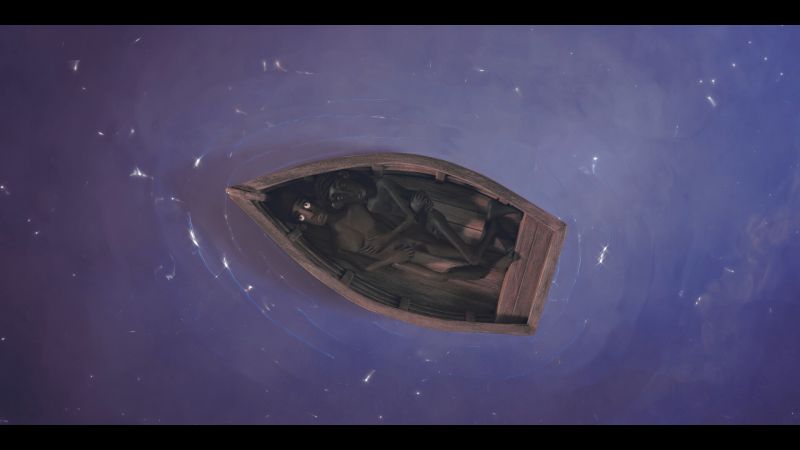
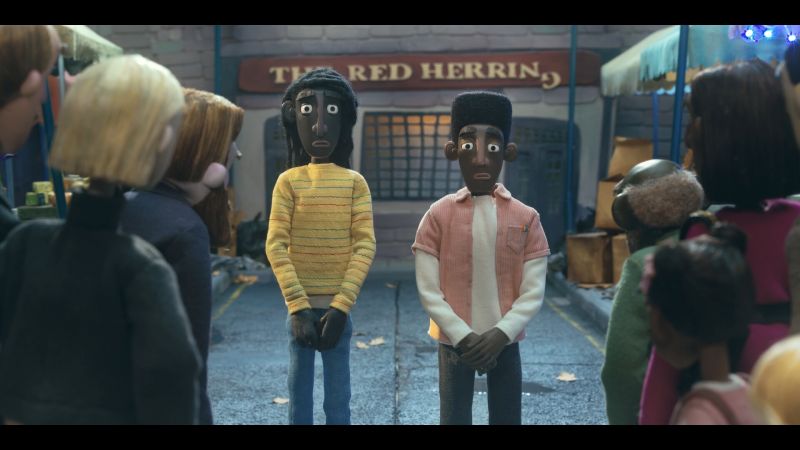
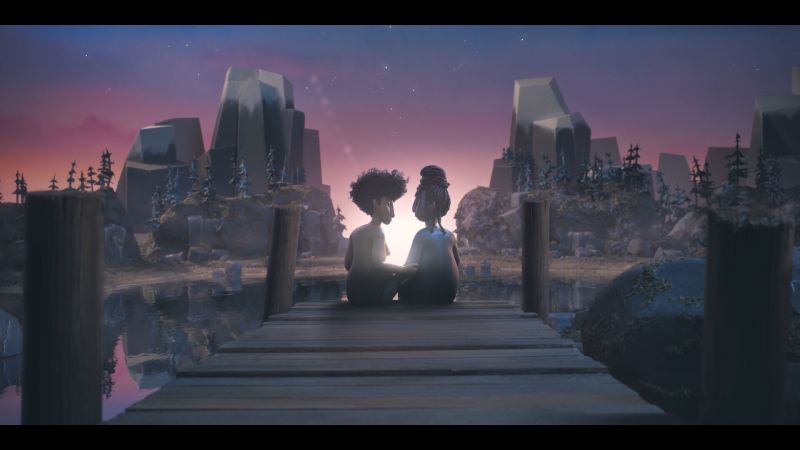
 Two Black Boys in Paradise
Two Black Boys in Paradise
Vereinigtes Königreich 2025 | Farbe |
08:52 | Englisch
 Two Black Boys in Paradise
Two Black Boys in Paradise
United Kingdom 2025 | Color |
08:52 | English
Edan und Dulas lieben einander. Ihre Weigerung, das zu verbergen, führt sie in ein Paradies ohne Scham und Verurteilungen. Zwei Schwarze Jungs auf ihrer Reise zur Selbst-Akzeptanz.
Two Black boys go on a journey of self acceptance; Edan and Dula’s love for each other and their refusal to hide it lands them in a paradise free of shame and judgement.
Regie, Script:
Director, Script:
Baz Sells
Produzent:in, Script:
Producer, Script:
Ben Jackson
Author:
Author:
Dean Atta

 Open Space
Open Space
In our Open Space, the exhibition space of the Kurzfilm Festival Hamburg, we are presenting the laser show spin jump crawl climb dream bite hunt by Hamburg artist Paul Spengemann. The installation harks back to times when movies used to open with laser shows. Spengemann combines these memories with his fascination for spiders to create an immersive web.
Open daily free of charge from 11 am.

Family Tour (DE) share
Family Tour (DE) share
Sun, 08.06. 15:00
Festival Center Post Open Space

Gemeinsam mit dem Künstler Paul Spengemann führt Maike Mia Höhne, künstlerische Leiterin des Kurzfilm Festivals Hamburg, durch die Ausstellung spin jump crawl climb dream bite hunt.
Die Veranstaltung ist in deutscher Sprache und richtet sich besonders an Familien.
Together with artist Paul Spengemann, Maike Mia Höhne, Artistic Director of the Hamburg Short Film Festival, will guide visitors through the exhibition spin jump crawl climb dream bite hunt.
This event will be in German and is designed for families.
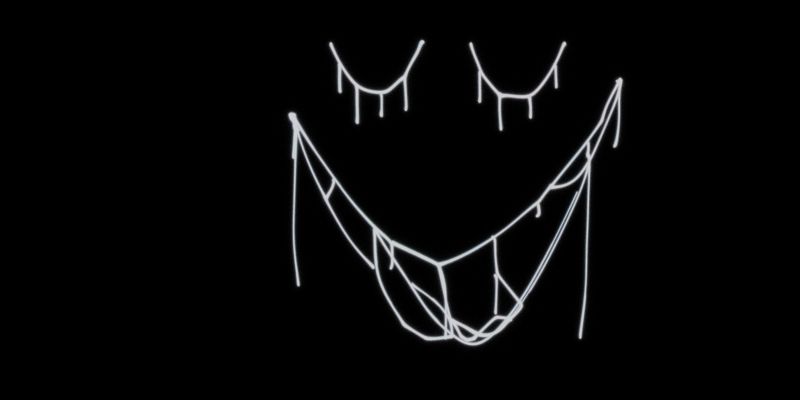
 spin jump crawl climb dream bite hunt
spin jump crawl climb dream bite hunt
 spin jump crawl climb dream bite hunt
spin jump crawl climb dream bite hunt
Paul Spengemann | 2025 | 2-channel laser show
Courtesy: The artist & Produzentengalerie Hamburg
PAUL SPENGEMANN studierte Film und Bildende Kunst an der Hochschule für
bildende Künste in Hamburg und am Goldsmiths College, University of
London. 2016/17 wurde er mit dem Bundespreis für Kunststudierende, dem
Art Cologne Award for New Positions sowie 2018 mit dem Columbus
Förderpreis der Deutschen Kunstvereine ausgezeichnet. Im Mittelpunkt
seines Schaffens steht die Auseinandersetzung mit unterschiedlichen
Bildgebungsverfahren, insbesondere im Bereich des Bewegtbildes. Seine
Arbeiten wurden weltweit in zahlreichen Ausstellungen und auf
Filmfestivals gezeigt. 2024 war Spengemann Stipendiat der Casa Baldi
Deutsche Akademie Rom Villa Massimo.
Notiz: Stroboskoplicht
Paul Spengemann | 2025 | 2-channel laser show
Courtesy: The artist & Produzentengalerie Hamburg
PAUL SPENGEMANN studied film and fine art at Hamburg's Hochschule für bildende Künste and Goldsmiths College, University of London. In 2016/17 he was awarded the Bundespreis für Kunststudierende, the Art Cologne Award for New Positions and in 2018 the Columbus Förderpreis der Deutschen Kunstvereine. His work focusses on the examination of diverse imaging-making processes, in particular in the field of moving images. His work has been shown in the scope of numerous exhibitions and film festivals around the world. In 2024, Spengemann was a fellow at Casa Baldi at the German Academy Rome Villa Massimo.
Contains strobe lighting

Guided Tour (EN) share
Guided Tour (EN) share
Sat, 07.06. 13:00
Festival Center Post Open Space

Gemeinsam mit dem Künstler Paul Spengemann lädt Maike Mia Höhne, künstlerische Leiterin des Kurzfilm Festivals Hamburg, zu einem Rundgang durch die Ausstellung spin jump crawl climb dream bite hunt ein.
Diese Veranstaltung ist in englischer Sprache.
Together with artist Paul Spengemann, Maike Mia Höhne, Artistic Director of the Hamburg Short Film Festival, invites visitors to join a guided tour of the exhibition spin jump crawl climb dream bite hunt.
This event is in English.

 spin jump crawl climb dream bite hunt
spin jump crawl climb dream bite hunt
 spin jump crawl climb dream bite hunt
spin jump crawl climb dream bite hunt
Paul Spengemann | 2025 | 2-channel laser show
Courtesy: The artist & Produzentengalerie Hamburg
PAUL SPENGEMANN studierte Film und Bildende Kunst an der Hochschule für
bildende Künste in Hamburg und am Goldsmiths College, University of
London. 2016/17 wurde er mit dem Bundespreis für Kunststudierende, dem
Art Cologne Award for New Positions sowie 2018 mit dem Columbus
Förderpreis der Deutschen Kunstvereine ausgezeichnet. Im Mittelpunkt
seines Schaffens steht die Auseinandersetzung mit unterschiedlichen
Bildgebungsverfahren, insbesondere im Bereich des Bewegtbildes. Seine
Arbeiten wurden weltweit in zahlreichen Ausstellungen und auf
Filmfestivals gezeigt. 2024 war Spengemann Stipendiat der Casa Baldi
Deutsche Akademie Rom Villa Massimo.
Notiz: Stroboskoplicht
Paul Spengemann | 2025 | 2-channel laser show
Courtesy: The artist & Produzentengalerie Hamburg
PAUL SPENGEMANN studied film and fine art at Hamburg's Hochschule für bildende Künste and Goldsmiths College, University of London. In 2016/17 he was awarded the Bundespreis für Kunststudierende, the Art Cologne Award for New Positions and in 2018 the Columbus Förderpreis der Deutschen Kunstvereine. His work focusses on the examination of diverse imaging-making processes, in particular in the field of moving images. His work has been shown in the scope of numerous exhibitions and film festivals around the world. In 2024, Spengemann was a fellow at Casa Baldi at the German Academy Rome Villa Massimo.
Contains strobe lighting

Eröffnung: spin jump crawl climb dream bite hunt share
Opening: spin jump crawl climb dream bite hunt share
Tue, 03.06. 21:00
Festival Center Post Open Space

Im OPEN SPACE, dem Ausstellungsraum des Kurzfilm Festivals Hamburg, präsentieren wir die Lasershow »spin jump crawl climb dream bite hunt« des Hamburger Künstlers Paul Spengemann. Eröffnet wird sie von Maike Mia Höhne (Künstlerische Leiterin Kurzfilm Festival Hamburg).
„Das Wesen, das hier nur manchmal zum Vorschein kommt, versucht, sich eine Welt zu bauen – eine Welt aus instabilen Verknüpfungen, in denen sich eine Sehnsucht nach Gemeinschaft offenbart ebenso wie ein Gefühl des Fremdseins an einem Ort, an dem merkwürdige Spielregeln herrschen.“ Merle Radtke
Als in den 1990er-Jahren in Deutschland die Multiplexkinos eröffnet wurden, war das Ins-Kino-Gehen oft verbunden mit einer gewaltigen Lasershow. Vor dem Film stiegen Nebel auf und durchzuckten Lichtblitze den Saal. Die Zuschauenden verloren sich im Raum, manchmal löste der Raum selbst sich auf. Bodenlos. Genau umgekehrt arbeitet der vielfach ausgezeichnete Künstler Paul Spengemann. Er reduziert die Geschichte auf das Licht und erzählt mit diesem Licht eine Geschichte, die jede Person, die sie erlebt, sieht, spürt, anders versteht. Einst haben Spinnen die Hamburger Hafencity mit großen Netzen umwoben, eingehüllt. Diese Spinnentiere faszinieren Spengemann seit langem. Für »spin jump crawl climb dream bite hunt« entwickelte er eine Figur, die mithilfe des Fadens, den sie spinnt, in kurzen Szenen ihre Emotionen mit dem Publikum teilt. Über das scharf gebündelte Licht des Lasers vermittelt der Künstler die Erlebnisse der Kreatur, die sich nicht nur dreht, springt, krabbelt, klettert, beißt und jagt, sondern auch in Träume verfällt und ihre Ängste und Wünsche offenbart. Eine Erzählung zwischen Abstraktion und Narration. Der Erkenntniszusammenhang erschließt sich wie auch im Kino über das Auge selbst. Aber jetzt: weder laut noch monumental, sondern zart, leise, eigenwillig. Spengemann öffnet so die Black Box für ein Erleben, das den Zuschauenden erlaubt, selbst Autor*innen des Erlebten zu werden. Mühelos überwindet seine Spinne die Schwerkraft, webt, hangelt, läuft, gestaltet. Wir spüren das Tier und vielleicht das Tier uns – mag das der Grund sein, warum es sich gerade jetzt hinabseilt, schneller wird?
Courtesy: The artist & Produzentengalerie Hamburg
Notiz: Stroboskoplicht
In OPEN SPACE, the exhibition space of Kurzfilm Festival Hamburg, we are presenting the laser show »spin jump crawl climb dream bite hunt« by Hamburg-based artist Paul Spengemann. The exhibition will be opened by Maike Mia Höhne (Artistic Director, Kurzfilm Festival Hamburg).
The being that only occasionally comes to the surface here is attempting to build a world – a world made of unstable connections, in which a longing for community becomes as evident as a sense of estrangement in a place governed by peculiar rules of play.
– Merle Radtke
When multiplex cinemas first opened in Germany during the 1990s, a trip to the cinema was often accompanied by a grand laser show. Fog would rise before the film began, and flashes of light would streak across the auditorium. Viewers would lose themselves in the space; at times, the space itself seemed to dissolve. Bottomless.
Paul Spengemann, a highly acclaimed artist, works in the exact opposite manner. He strips the story down to light itself and, through this light, tells a story that each person who experiences it sees, feels, and interprets differently. Once, spiders wove large webs across Hamburg’s HafenCity, enveloping it. Spengemann has long been fascinated by these arachnids.
For spin jump crawl climb dream bite hunt, he created a character who, with the help of the thread it spins, shares its emotions with the audience in short scenes. Through the sharply focused beam of the laser, the artist conveys the experiences of a creature that not only spins, jumps, crawls, climbs, bites and hunts, but also dreams – revealing its fears and desires. A narrative suspended between abstraction and storytelling. As in cinema, understanding emerges through the eye itself.
But now: not loud, not monumental – rather tender, quiet, idiosyncratic. In doing so, Spengemann opens the black box to an experience that allows the audience to become the authors of what they perceive.
His spider defies gravity with ease – weaving, scrambling, running, shaping. We sense the creature – and perhaps it senses us in return. Could that be why it is descending now, gaining speed?
Courtesy: The artist & Produzentengalerie Hamburg
Note: Contains strobe lighting

 spin jump crawl climb dream bite hunt
spin jump crawl climb dream bite hunt
 spin jump crawl climb dream bite hunt
spin jump crawl climb dream bite hunt
Paul Spengemann | 2025 | 2-channel laser show
Courtesy: The artist & Produzentengalerie Hamburg
PAUL SPENGEMANN studierte Film und Bildende Kunst an der Hochschule für
bildende Künste in Hamburg und am Goldsmiths College, University of
London. 2016/17 wurde er mit dem Bundespreis für Kunststudierende, dem
Art Cologne Award for New Positions sowie 2018 mit dem Columbus
Förderpreis der Deutschen Kunstvereine ausgezeichnet. Im Mittelpunkt
seines Schaffens steht die Auseinandersetzung mit unterschiedlichen
Bildgebungsverfahren, insbesondere im Bereich des Bewegtbildes. Seine
Arbeiten wurden weltweit in zahlreichen Ausstellungen und auf
Filmfestivals gezeigt. 2024 war Spengemann Stipendiat der Casa Baldi
Deutsche Akademie Rom Villa Massimo.
Notiz: Stroboskoplicht
Paul Spengemann | 2025 | 2-channel laser show
Courtesy: The artist & Produzentengalerie Hamburg
PAUL SPENGEMANN studied film and fine art at Hamburg's Hochschule für bildende Künste and Goldsmiths College, University of London. In 2016/17 he was awarded the Bundespreis für Kunststudierende, the Art Cologne Award for New Positions and in 2018 the Columbus Förderpreis der Deutschen Kunstvereine. His work focusses on the examination of diverse imaging-making processes, in particular in the field of moving images. His work has been shown in the scope of numerous exhibitions and film festivals around the world. In 2024, Spengemann was a fellow at Casa Baldi at the German Academy Rome Villa Massimo.
Contains strobe lighting

 Forum
Forum
In the Forum, in-depth discussions and conversations are held with our international guests who expand the themes and questions posed in the film programs to include other artistic disciplines and perspectives.

Forum: Sichtbar – Machen – Sein share
Forum: Making – Being – Visible share
Sat, 07.06. 15:00
Festival Center Post Playground

Wenn es um Roma* und Sinti* geht, geht es vor allem um stereotype Bilder und Vorstellungen. Wie ist es möglich, eigene Narrative aus der Community zu etablieren? Wer übernimmt die Carearbeit für die Verbreitung der Filme und Geschichten? Wie viel Aktivismus ist nötig, um alte Narrative nachhaltig zu verändern und eine Freiheit für alle zu erreichen? Mit diesem Forum möchten wir einen Raum schaffen, in dem Betroffenheit, Wut und Ungerechtigkeiten offen benannt werden können. Ziel ist es, die Gemeinschaft zu stärken und marginalisierten Gruppen Unterstützung beim Aufzeigen und Überwinden von strukturellen Problemen anzubieten.
Mit Hamze Bytyci (Aktivist, Regisseur & Kurator), Sabine Rollberg (ehemalige Redakteurin u. a. bei WDR / ARTE) , Alecio Araci (Filmemacher) und Heleen Gerritsen (Leiterin Deutsche Kinemathek). Moderiert von Canan Turan (Kuratorin und Dramaturgin).
Freier Eintritt.
Gefördert durch die Landeszentrale für Politische Bildung.
When Roma* and Sinti* receive attention, it primarily comes in the form of stereotypical images and conceptions. How is it possible for the community to establish its own narratives? Who will take on the care work involved in the dissemination of films and stories? How much activism is necessary to change old narratives in a way that can be sustained and to attain a freedom that applies to everyone? With this Forum, we would like to create a space in which anguish, anger and injustices can be named openly. The aim is to strengthen the community and offer marginalised groups support in exposing and overcoming structural problems.
Featuring: Hamze Bytyçi, Prof Dr. Sabine Rollberg, Alecio Araci, Heleen Gerritsen Moderation: Canan Turan
Admission free
Supported by the Landeszentrale für Politische Bildung.
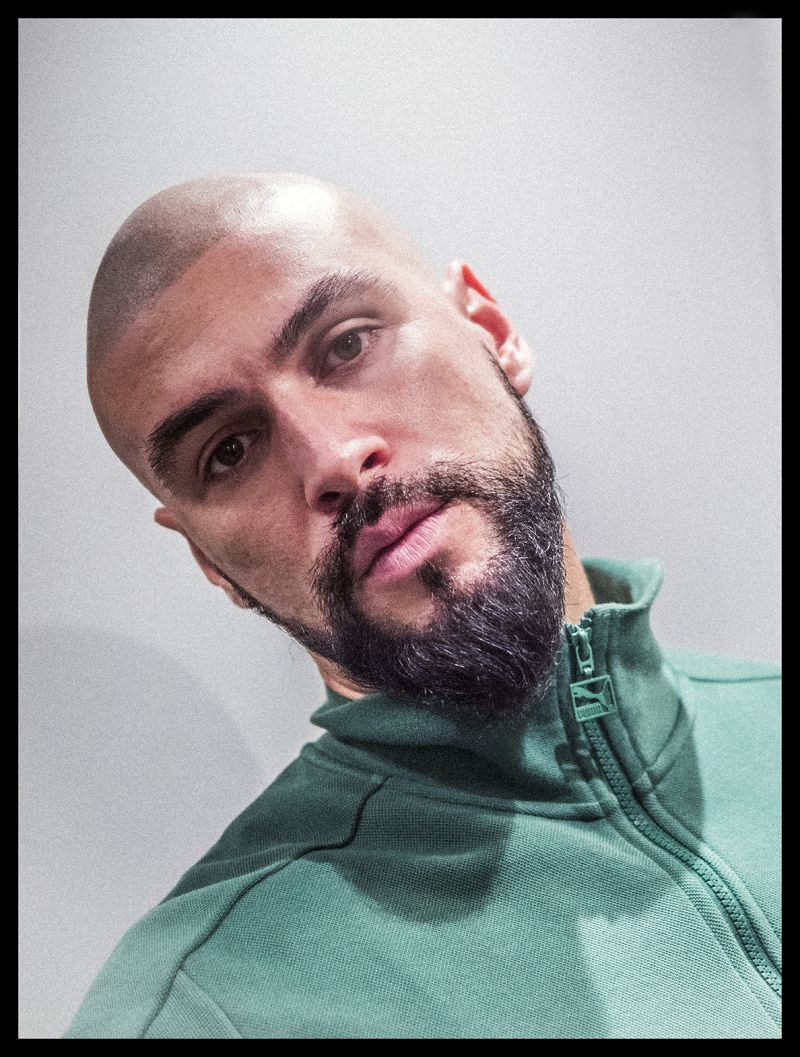
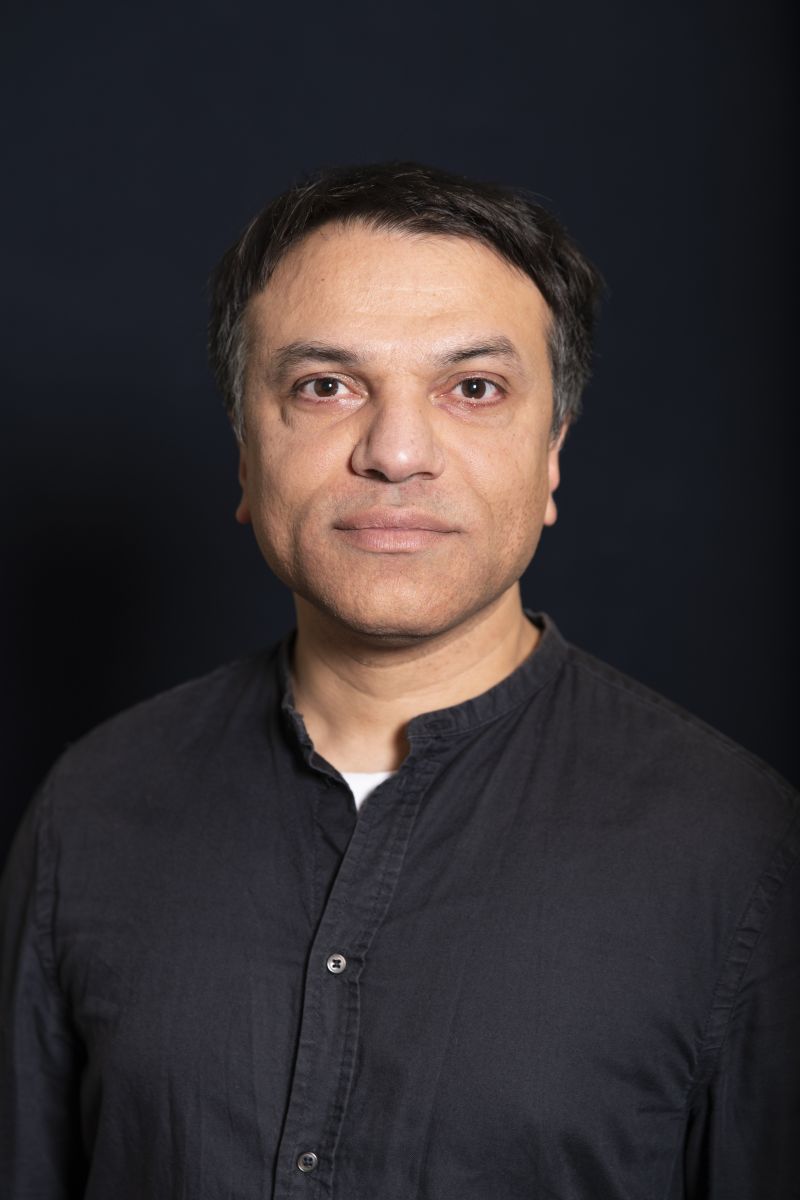
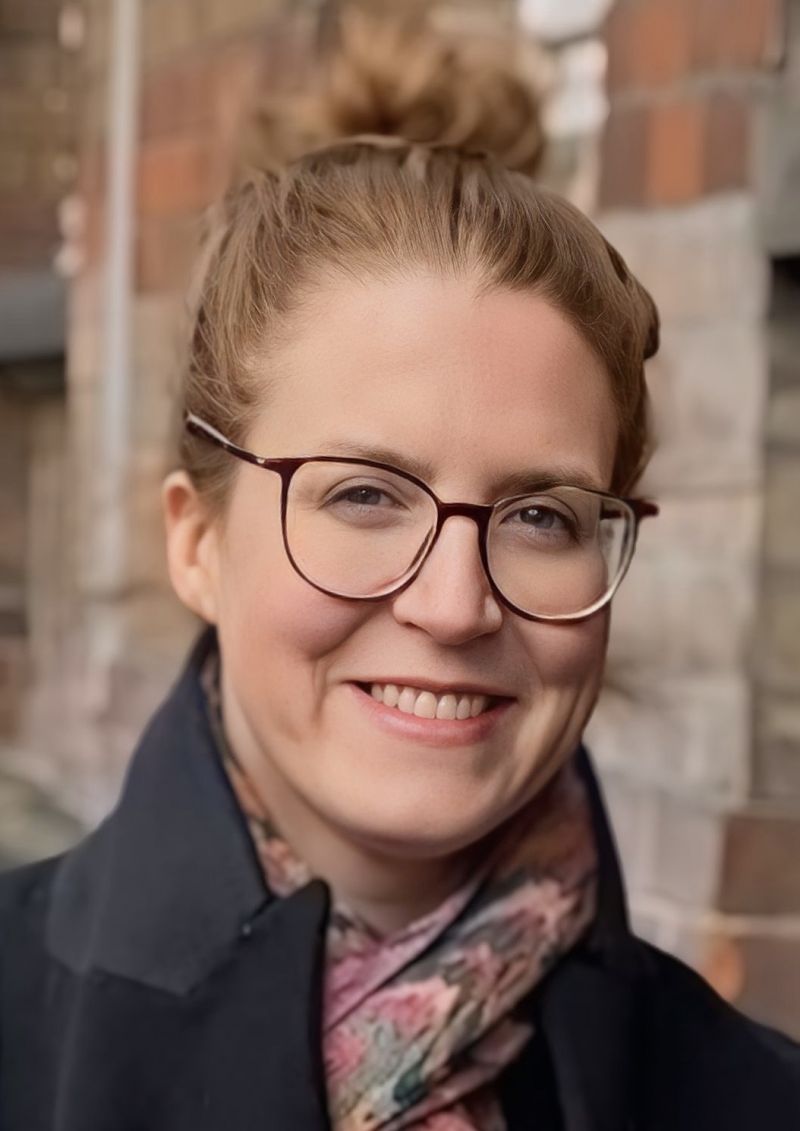
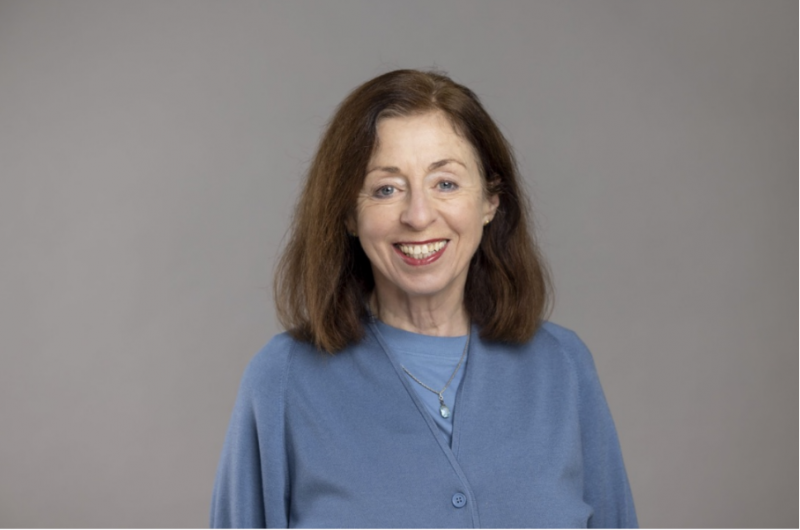
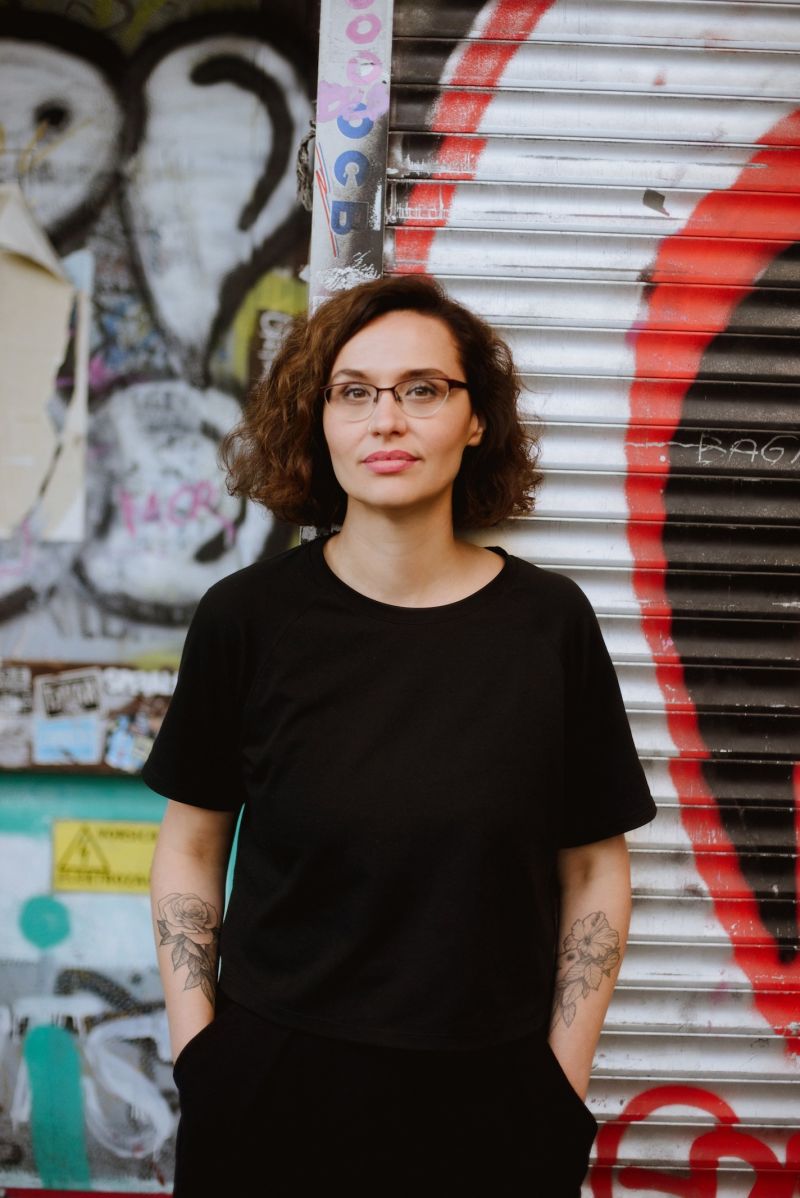
 Alecio Araci
Alecio Araci
Alecio Araci ist Filmemacher und lebt und arbeitet an der Westküste Schwedens. Mit einem Hintergrund in der DIY- und Underground-Kultur war er in den vergangenen 15 Jahren an zahlreichen Low- und High-Budget-Projekten beteiligt. Zwischen 2015 und 2018 absolvierte er den Bachelor-Studiengang Filmregie an der Valand Academy in Göteborg und setzt seitdem seine kreative Arbeit sowohl vor als auch hinter der Kamera fort. Sein Kurzfilm Chavo gewann 2023 den Preis für den besten Kurzfilm beim »Ake Dikhea? – Internationales Festival des Roma-Films«.
Alecio Araci is a filmmaker living and working on the west coast of Sweden. With a background in DIY and underground culture, he has worked on numerous low- and high-budget projects over the past fifteen years. Between 2015 and 2018, he studied in the bachelor's program in film directing at Valand Academy in Gothenburg and has since continued his creative work both in front of and behind the camera. His short film Chavo won the award for Best Short Film at the Ake Dikhea? – International Festival of Romani Film in 2023.
 Hamze Bytyçi
Hamze Bytyçi
Hamze Bytyçi ist Künstler, Kurator und Kulturarbeiter. Seit 2012 leitet er als Vorsitzender den von ihm gegründeten RomaTrial e.V. Im Jahr 2017 rief er das »Ake Dikhea? – Internationales Festival des Roma-Films« ins Leben, das seitdem jährlich unter seiner Leitung in Berlin stattfindet. 2018 sowie 2020/2021 war er Co-Kurator der 1. und der 2. Roma-Biennale. Seit September 2022 gestaltet er als Künstlerischer Leiter das Programm im Grünen Salon der Volksbühne am Rosa-Luxemburg-Platz. Zudem ist er Vorstandsmitglied der neuen deutschen Organisationen und Mitglied der »CPPD – The Coalition for Pluralistic Public Discourse«, der BiPoC Alliance sowie von »Vielfalt im Film«.
Hamze Bytyçi is an artist, curator and cultural worker. Since 2012, he has been the chairman of RomaTrial e.V., which he founded. In 2017, he launched the »International Roma Film Festival AKE DIKHEA?«, which has since taken place annually in Berlin under his direction. In 2018 and 2020/2021, he was co-curator of the 1st and 2nd Roma Biennale. Since September 2022, he has served as Artistic Director of the program in the Grüner Salon at the Volksbühne am Rosa-Luxemburg-Platz. He is a board member of the new German organizations and a member of the »CPPD – The Coalition for Pluralistic Public Discourse«, the BiPoC Alliance, and »Diversity in Film«.
 Heleen Gerritsen
Heleen Gerritsen
Heleen Gerritsen studierte Slawistik, Volkswirtschaftslehre und osteuropäische Geschichte. Seit 2003 lebt die gebürtige Niederländerin in Deutschland, wo sie als Filmproduzentin und als Kuratorin für verschiedene Festivals tätig ist. Von 2017 bis 2025 leitete Heleen Gerritsen das goEast – Festival des mittel- und osteuropäischen Films in Wiesbaden. Seit dem 1. Juni 2025 ist sie Künstlerische Direktorin der Deutschen Kinemathek in Berlin.
Heleen Gerritsen studied Slavic studies, economics, and Eastern European history. Born in the Netherlands, she has lived in Germany since 2003, where she works as a film producer and curator for various festivals. From 2017 to 2025, Heleen Gerritsen directed goEast – Festival of Central and Eastern European Film in Wiesbaden. Since June 1, 2025, she has been the Artistic Director of the Deutsche Kinemathek in Berlin.
 Sabine Rollberg
Sabine Rollberg
Prof. Dr. Sabine Rollberg war 20 Jahre lang ARTE-Beauftragte des WDR und als Redakteurin für zahlreiche international ausgezeichnete Dokumentarfilme verantwortlich. Zuvor war sie Chefredakteurin bei ARTE, ARD-Auslandskorrespondentin und WDR-Redakteurin. Von 2008 bis 2019 lehrte sie nebenberuflich an der Kunsthochschule für Medien Köln im Bereich künstlerische Fernsehformate und Dokumentarfilm. Von 2014 bis 2021 berief die Albert-Ludwigs-Universität Freiburg die Grimme-Preisträgerin in den Beirat der Universität sowie des University College Freiburg. Dort sowie am Frankreich-Zentrum lehrt sie Journalismus und vergleichende Kulturforschung.
Prof. Dr. Sabine Rollberg was ARTE commissioner at WDR for 20 years, responsible as editor for numerous internationally award-winning documentaries. Prior to that, she served as editor-in-chief at ARTE, ARD foreign correspondent, and WDR editor. From 2008 to 2019, she taught artistic television formats and documentary film part-time at the Academy of Media Arts Cologne. From 2014 to 2021, the Albert-Ludwigs-Universität Freiburg appointed the Grimme Prize winner to the university’s advisory board and to the Freiburg University College. She teaches journalism and comparative cultural research there and at the France Center.
 Canan Turan
Canan Turan
Canan Turan Gestaltet als Filmschaffende, Kuratorin, Dramaturgin und Referentin Erzählräume, in denen Diversität, Antidiskriminierung und Machtkritik Hand in Hand gehen. Nach ihrem Studium der Filmwissenschaft an der FU Berlin und der Universitat Pompeu Fabra in Barcelona sowie einem Master in Dokumentarfilm am Goldsmiths College London steht sie als Regisseurin des Kurzfilms Kıymet (2012) und als Creative Producerin des Kinodokumentarfilms
From Here (2020) für eine emanzipatorische Filmpraxis. Als VeDRA-Mitglied berät sie Drehbuchautor:innen, Redaktionen, Filmförderanstalten und Produktionsfirmen. Sie ist Teil des Auswahlgremiums von Berlinale Generation, kuratiert das Kurzfilmprogramm beim Tallgrass Film Festival (USA) und hostet den Podcast film.macht.kritisch.
Canan Turan: As a filmmaker, curator, dramaturge, and speaker, she creates narrative spaces where diversity, anti-discrimination, and critique of power go hand in hand. After studying film studies at FU Berlin and Universitat Pompeu Fabra in Barcelona, and completing a master’s degree in documentary film at Goldsmiths College London, she directed the short film Kıymet (2012) and was the creative producer of the feature documentary From Here (2020), both embodying emancipatory film practice. As a member of VeDRA, she advises screenwriters, editors, film funding agencies, and production companies. She is also part of the selection committee of Berlinale Generation, curates the short film program at the Tallgrass Film Festival (USA), and hosts the podcast film.macht.kritisch.

WENN FILM UND LEBEN EINS WERDEN – GESPRÄCH ZUM FILM »THE BURITI FLOWER« share
Forum: WHEN FILM AND LIFE BECOME ONE – CONVERSATION ON THE FILM »THE BURITI FLOWER« share
Fri, 06.06. 19:00
3001

Seit Jahren leben Renée Nader Messora und Joao Salaviza mit ihrer gemeinsamen Tochter auf dem Gebiet der Krahô, einer indigenen Gemeinschaft im brasilianischen Bundesstaat Tocantins. Gemeinsam mit ihr entwickeln sie Filme, die die Geschichte der Kraho erzählen und in denen Traum und Wirklichkeit ineinander fließen. Ein Gespräch via Zoom mit den Filmemacher:innen sowie Vertreter:innen der Krahô über das Geflecht von Gefühl und Geschichte sowie von Trauma und Empowerment und die Möglichkeit, den roten Teppich in Cannes politisch zu nutzen.
Mit: Francisco Hỳjnõ Krahô, Luzia Cruwakwỳj Krahô, Renée Nader Messora und João Salaviza
Moderation: Maike Mia Höhne
Die Gäste sind via Zoom aus Brasilien zugeschaltet. Die Moderation ist vor Ort im Kino.
For years, together with their daughter, Renée Nader Messora and João Salaviza have lived on the territory of the Krahô, an indigenous community in the Brazilian state of Tocantins. In collaboration with their Krahô hosts, they develop films that tell the community's story. These narrative threads combine dream and waking reality in a very vivid manner. Join us for a conversation via Zoom with the filmmakers and representatives of the Krahô, treating the interwoven nature of emotion and history, trauma and empowerment.
With: Francisco Hỳjnõ Krahô, Luzia Cruwakwỳj Krahô, Renée Nader Messora und João Salaviza
Moderation: Maike Mia Höhne
The guests are joining via Zoom from Brazil. The moderator will be present on-site at the cinema.
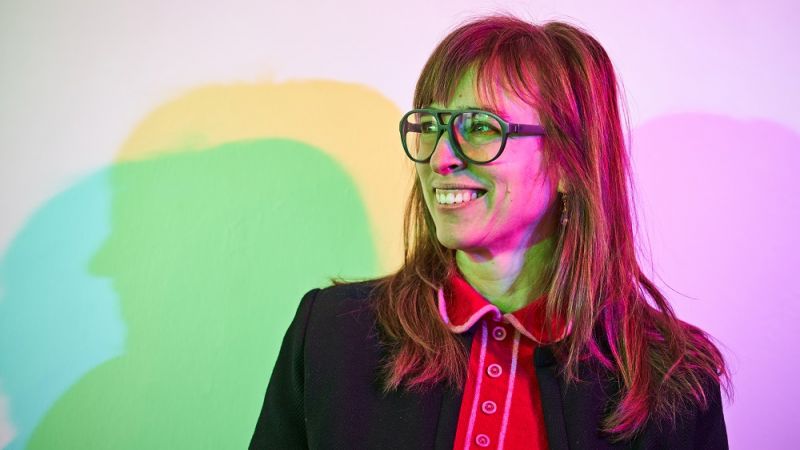
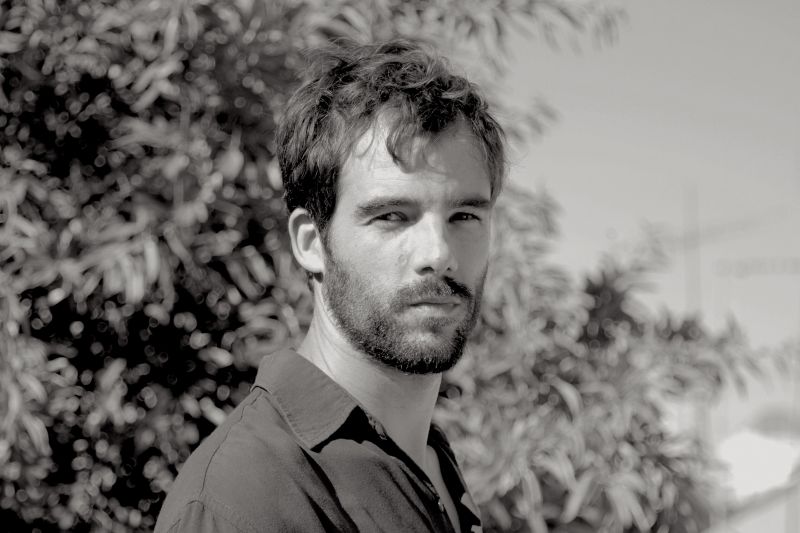
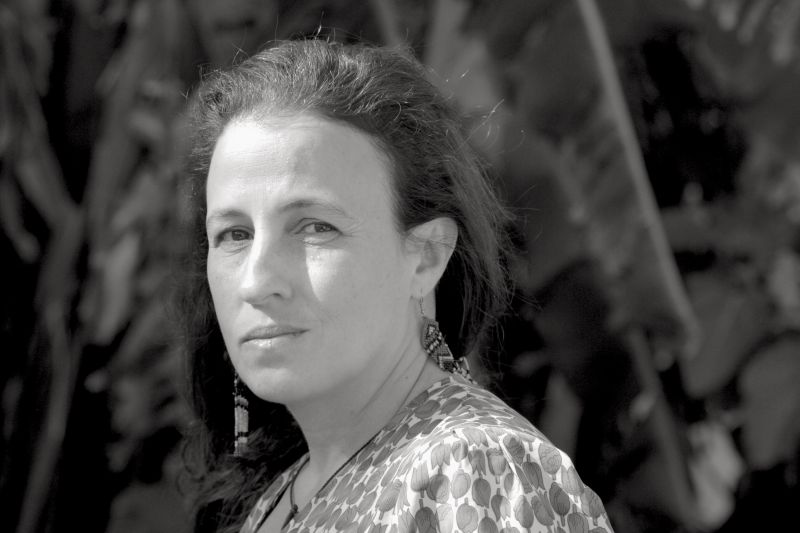
 Maike Mia Höhne
Maike Mia Höhne
Maike Mia Höhne ist eine deutsche Filmregisseurin, Filmkuratorin, Professorin für Film, Mutter von zwei Kindern. Sie lebt und arbeitet in Hamburg. Von 2007 bis 2019 hat sie als Kuratorin und Leiterin der Kurzfilmsektion Berlinale Shorts der Internationalen Filmfestspiele Berlin maßgeblich das Profil der Sektion geprägt. 2019 übernahm sie die künstlerische Leitung beim Kurzfilm Festival Hamburg. Seit 2019 ist sie als Professorin an der University of Applied Science Europe am Campus Hamburg im Fachbereich Art & Design für den Studiengang Film tätig.
Maike Mia Höhne is a German film director, film curator, professor of film, mother of two children. She lives and works in Hamburg. From 2007 to 2019, she played a key role in shaping the profile of the short film section Berlinale Shorts at the Berlin International Film Festival as curator and director. In 2019, she took over as artistic director at Kurzfilm Festival Hamburg. Since 2019, she has been a professor at the University of Applied Science Europe at the Hamburg Campus in the Department of Art & Design for the Film program.
 João Salaviza
João Salaviza
João Salaviza studierte Film an der Theater- und Filmschule in Lissabon und an der Universidad del Cine in Buenos Aires. Sein erster Kurzfilm Arena wurde in Cannes mit der Goldenen Palme ausgezeichnet (2009), gefolgt vom Goldenen Bären in Berlin für den Kurzfilm Rafa (2012). Sein erster Spielfilm Mountain feierte 2015 auf den Filmfestspielen von Venedig seine Weltpremiere. Seitdem lebt er zwischen Portugal und Brasilien bei der indigenen Bevölkerung der Krahô. 2018 erhielt The Dead and the Others (Co-Regie mit Renée Nader Messora) in Cannes in der Sektion Un Certain Regard den Sonderpreis der Jury.
João Salaviza studied Cinema at the Lisbon Theater and Film School and at the Universidad del Cine in Buenos Aires. His first short film Arena was awarded the Palme d’Or at Cannes (2009), followed by the Golden Bear for his short film Rafa (2012). His first feature film, Mountain, had its world premiere at the Venice Film Festival (Critics Week) in 2015. Since then, he has lived between Portugal and Brazil, with the Krahô indigenous people. In 2018, The Dead and the Others (co-directed with Renée Nader Messora) premiered at the Cannes Film Festival, receiving the Special Jury Prize Un Certain Regard.
 Renée Nader Messora
Renée Nader Messora
Renée Nader Messora schloss ihr Filmstudium an der Universidad del Cine in Buenos Aires ab. 15 Jahre lang arbeitete sie als Regieassistentin bei mehreren Projekten in Brasilien, Argentinien und Portugal, darunter Mountain, dem ersten Spielfilm von João Salaviza. Sie fotografierte den Kurzfilm POHi, durch den sie die Community der Krahô kennenlernte. Seitdem arbeitet sie mit der Gemeinschaft zusammen und trägt zur Organisation eines Kollektivs junger Filmemacher:innen bei, die das Kino als Instrument zur Stärkung der kulturellen Identität und Selbstbestimmung der Krahô nutzen.
Renée Nader Messora graduated in Cinematography from the Universidad del Cine, in Buenos Aires. For 15 years, she worked as an assistant director on several projects in Brazil, Argentina and Portugal, including Mountain, João Salaviza’s first feature film. She photographed the short film POHi, through which she got to know the Krahô people. Since then, she’s been working with the community, contributing to the organization of a collective of young filmmakers who use cinema as a tool to strengthen the cultural identity and self-determination of the Krahô people.
 Francisco Hỳjnõ Krahô, Luzia Cruwakwỳj Krahô
Francisco Hỳjnõ Krahô, Luzia Cruwakwỳj Krahô
Sie gehören zur Community der Krahô. Historisch gesehen bewohnten die Krahô ein riesiges Gebiet in Zentralbrasilien, das sich heute auf das indigene Land der Krahô beschränkt und in den 1940er-Jahren nach einem Massaker durch lokale Viehzüchter offiziell anerkannt wurde. Im Jahr 2018 lebten etwa 3.500 Krahô in 40 Dörfern auf diesem Areal, das auch als wichtiges Territorium für das Cerrado-Biom gilt — eines der vielfältigsten und am stärksten gefährdeten Ökosysteme der Welt, das täglich bedroht ist und kaum politischen Schutz genießt.
They belong to the Krahô community. Historically, the Krahô occupied a vast region in Central Brazil, now reduced to the Kraho Indigenous Land, officially recognized in the 1940s after a massacre by local ranchers. As of 2018, about 3,500 Krahô live in 40 villages across this territory, which also serves as a crucial refuge for the Cerrado biome — one of the world’s most diverse and most endangered ecosystems, under daily threat with little political protection.

Forum Lab 1: Togetherness share
Forum Lab 1: Togetherness share
Thu, 05.06. 17:00
Festival Center Post Saal

Zusammensein. Zusammen etwas versuchen, sich verstehen, sich lieben, sich auszudrücken. Sich zusammentun, um aufzustehen gegen die Ungerechtigkeiten in dieser Welt. Was braucht es dafür? Was bedeutet es, Kunst in Kontexten zu produzieren, die jeglichem gesättigten, westeuropäischen Selbstverständnis fremd sind – was bedeutet es, wenn trotzdem derselbe Erwartungshorizont an die Kunst gestellt wird? Welche Rolle spielen Institutionen in der Unterstützung des »Anderen«? Die Poetin und Aktivistin Audre Lorde schreibt: »Wir lernen nicht von dem, was in Büchern steht. Wir lernen von der Interaktion, die stattfindet in dem Raum zwischen dem, was in Büchern steht und dem, was in uns ist.«
Mit: Anna Nowak (Künstlerische Leiterin Kunsthaus Hamburg), Carmen Herold (Leiterin Goethe-Institut im Exil) und Nida Mehboob (Künstlerin).
Moderation: Dr. Larissa Fuhrmann (Kuratorin).
Togetherness. Trying something together, understanding, loving one another and oneself, expressing oneself, collectively. Teaming up to stand against the injustices of this world. What does it take to do that? What does it mean to produce art in contexts that are alien to any saturated Western European self-image? What does it mean if this art is still forced to bear the same expectations? What role do institutions play in supporting the »other«? As the poet and activist Audre Lorde observed: »We do not learn from what goes on in a book. We learn from that interaction that takes place in the spaces between what is in the book and ourselves.«
With: Carmen Herold, Nida Mehboob, Anna Nowak.
Moderation: Dr. Larissa-Diana Fuhrmann.
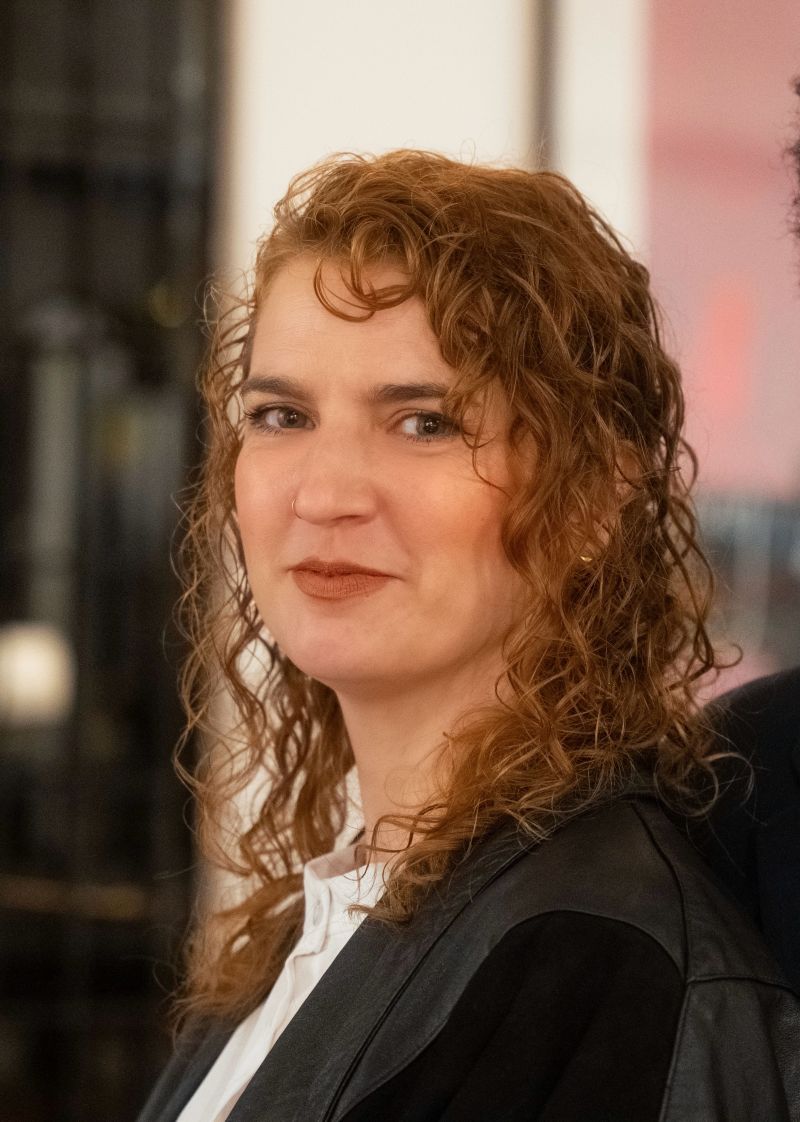
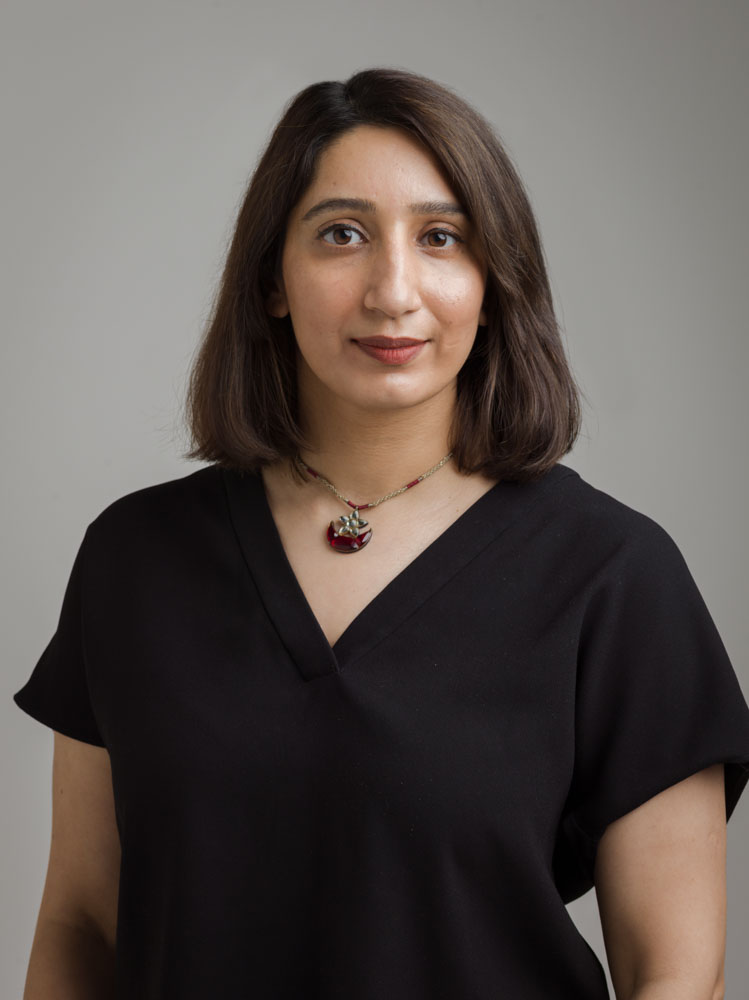
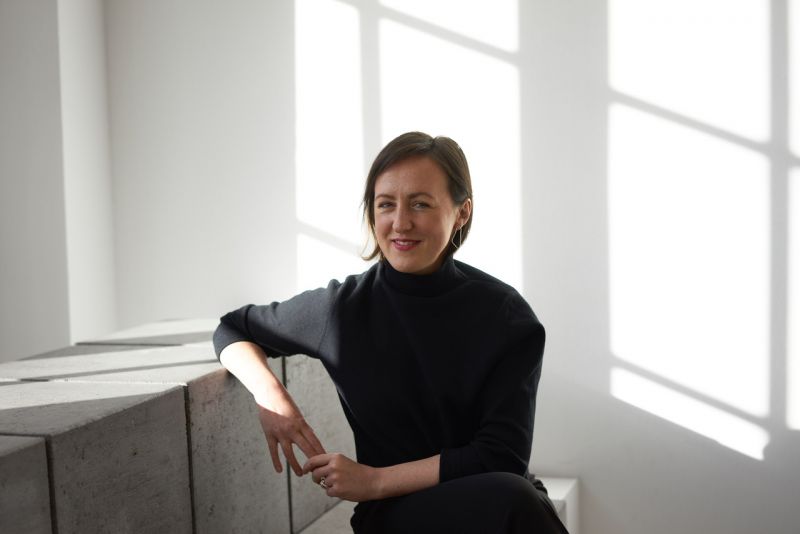
 Dr. Larissa-Diana Fuhrmann
Dr. Larissa-Diana Fuhrmann
Dr. Larissa-Diana Fuhrmann ist Wissenschaftlerin und Kuratorin mit Fokus auf politische Gewalt, Kunst, Ko-Produktion von Wissen und kollektive Arbeitsweisen. Sie untersucht, wie politische Gewalt verhandelt, dargestellt und durch verschiedene Wissensformen erfahrbar gemacht wird. Widerständige und dekoloniale Ansätze sind zentral in ihrer Arbeit, ebenso wie ihre Auseinandersetzung mit kreativen Formen der Wissensproduktion und -vermittlung. In den letzten Jahren publizierte sie in unterschiedlichen Medien, kuratierte zahlreiche Ausstellungen, beriet Kulturinstitutionen und leitete Workshops zu kritischer kuratorischer Praxis sowie politisch engagierter Kunst.
Dr. Larissa-Diana Fuhrmann is a researcher and curator with a focus on political violence, art, co-production of knowledge and collective ways of working. She investigates how political violence is negotiated, represented and made tangible through various forms of knowledge. Resistant and decolonial approaches are central to her work as well as her engagement with creative forms of knowledge production and dissemination. In recent years, she has published in various media, curated numerous exhibitions, advised cultural institutions and led workshops on critical curatorial practice and politically engaged art.
 Nida Mehboob
Nida Mehboob
NIda Mehboob ist Fotografin und Filmemacherin und lebt in Lahore, Pakistan. Sie hat einen Abschluss als Pharmazeutin, verließ diesen Bereich aber 2012, um sich der Fotografie zu widmen. Mehboob nahm an mehreren internationalen Workshops teil, darunter an dem einjährigen Filmworkshop des Goethe-Instituts und des Prince Claus Fund. Außerdem erhielt sie ein Stipendium der Magnum Foundation für deren Social Justice Program in New York im Jahr 2019. 2020 wurde sie als eine der beiden einzigen Pakistaner:innen ausgewählt, um an den Talents der Berlinale teilzunehmen. Ihre Kurzfilme wurden auf internationalen Filmfestivals gezeigt. Kürzlich schloss sie ihren Master in Dokumentarfilm an der Aalto-Universität in Helsinki ab.
Nida Mehboob is a photographer & filmmaker based in Lahore, Pakistan. She graduated as a pharmacist but left the field to pursue photography in 2012. Her documentary work got her into several international workshops and fellowships over the years including one year long filmmaking workshop by Goethe-Institut and Prince Claus Fund. She also received a grant and fellowship by Magnum Foundation for their Social Justice Program in New York in 2019. She has been selected as one of the only two Pakistanis to attend Berlinale Film Festival as a Talent in 2020. Her short films have screened at international film festivals. She has recently completed her masters in documentary film from Aalto University, Helsinki.
 Anna Nowak
Anna Nowak
Anna Nowak ist Geschäftsführerin und künstlerische Leiterin am Kunsthaus Hamburg. Bei der dOCUMENTA (13) realisierte sie über zwanzig künstlerische Projekte und arbeitete u. a. mit Amar Kanwar, Shinro Ohtake und Wael Shawky zusammen. Anschließend betreute sie internationale Ausstellungsbeteiligungen von renommierten Künstlern wie Anna Boghiguian, Christine Streuli oder Walid Raad in der Galerie Sfeir-Semler, Hamburg / Beirut. Seit 2019 ist sie Kuratorin am Kunsthaus Hamburg mit den Schwerpunkten Transkulturalität, Digitalität und Biodiversität. Sie konzipierte Gruppenausstellungen wie »hybrID« über die Ambivalenz und Komplexität von räumlicher und kultureller Verortung oder »Making Kin«, bei dem Künstler Gemeinschaftskonzepte innerhalb der Biodiversität erkundeten.
Anna Nowak is Managing and Artistic Director at Kunsthaus Hamburg. At dOCUMENTA (13) she realized over twenty artistic projects and worked with Amar Kanwar, Shinro Ohtake and Wael Shawky, among others. Subsequently, she supervised international exhibition participations of highly regarded artists such as Anna Boghiguian, Christine Streuli or Walid Raad at the gallery Sfeir-Semler, Hamburg / Beirut. Since 2019, she has been curator at Kunsthaus Hamburg, focusing on transculturality, digitality, and biodiversity. She conceived group exhibitions, such as hybrID on the ambivalence and complexity of spatial and cultural location, or Making Kin, where artists explored community concepts within biodiversity.

 Industry
Industry
The Kurzfilm Festival Hamburg offers various industry events on current topics and issues for professionals, students and interested members of the public. At panels, workshops, and roundtable discussions, we invite you to bring your questions to representatives of the film industry as well as exchange ideas and connect with each other.
The Industry Day on festival Friday begins with a relaxed wake-up call. We'll start the varied program together over coffee and local cinnamon flavoured pastries. At the end of the day, we invite you to enjoy drinks at the POST in cooperation with Creative Europe Desk Hamburg.

Komm, wir gehen ins Kino!, Moderation im Kino für Kinder ab vier Jahren share
Come, Let’s Go to the Cinema!, Moderation at the Cinema for Children Aged Four And Up share
Fri, 06.06. 14:30
Zeise 3
Auch für die allerjüngsten Zuschauer:innen bedeutet eine Filmvorführung mit anschließendem Filmgespräch, dass sie mit vielen anderen Menschen in einem dunklen Raum ohne Fenster sitzen, sich gemeinsam einen Film angucken, dabei neue Dinge und fremde Welten unterschiedlich wahrnehmen, danach sitzenbleiben und sich darüber austauschen können.
Der Workshop vermittelt die Rolle und Funktion der Moderation für sehr junge Kinder, bespricht Möglichkeiten bei Ablauf und Organisation und gibt Tipps zum Sprechen vor großen Gruppen, die die Situation im Kino noch nicht gewohnt sind. Welche Methoden bieten sich an? Wie kann Aufmerksamkeit geschaffen und Neugier geweckt werden? Es werden Spiele, Übungen und mögliche Interaktionen im Kinoraum vorgestellt und praktisch geübt.
Die Teilnahme am Workshop ist nur mit vorheriger Anmeldung via E-Mail an antwort@shortfilm.com möglich.
Der Workshop findet im Rahmen des Netzwerkprojektes KINO ENTDECKEN statt und wird von der Vision Kino unterstützt.
Sprache: Deutsch
Host: Eva-Maria Schneider-Reuter (freischaffende Moderatorin, Filmvermittlerin, Schauspielerin)
Even for the very youngest viewers, a movie screening followed by a film discussion means that they will sit in a dark room without windows with lots of other people, watch a movie together, perceive new things and foreign worlds in different ways, stay seated afterwards and talk about them.
The workshop teaches the role and function of the moderator for very young children, discusses possibilities for the process and organization and gives tips for speaking in front of large groups who are not yet used to the situation in the cinema. What methods can be used? How can attention be created and curiosity aroused? Games, exercises and possible interactions in the cinema space will be presented and practiced.
Participation in the workshop is only possible with prior registration via e-mail at antwort@shortfilm.com.
The workshop is held within the framework of the network project KINO ENTDECKEN and is supported by Vision Kino.
Language: German
Host: Eva-Maria Schneider-Reuter (freelance moderator, film
mediator, actress)

Frisch entwickelt, Ein Super-8-Workshop mit Analogfilmwerke share
Freshly Developed, A Super 8 Workshop With Analogfilmwerke share
Wed, 04.06. 12:00
Festival Center Post Playground

Fri, 06.06. 12:00
Festival Center Post Playground

Sat, 07.06. 12:00
Festival Center Post Playground

Im dreitägigen Super-8-Workshop der Analogfilmwerke lernen die Teilnehmenden anden Umgang mit der Kamera, drehen eine Filmrolle und entwickeln sie vor Ort auf dem Festivalgelände. Die frisch entstandenen Werke feiern während des Festivals ihre Premiere auf der Leinwand. Kommt vorbei und erlebt echtes analoges Kino! Der Workshop wird von Kodak unterstützt.
Workshop schedule:
Mi, 04.06. 12:00 - 16:00 Einführung, Kameras werden ausgehändigt
Fr, 06.06. 12:00 - 18:00 Filmentwicklung Part 1/ flexibel
Sa, 07.06. 11:00 - 18:00 Filmentwicklung Part 2/ flexibel
Sa, 07.06. 19:30 Screening der Filme
Anmeldung für den Workshop bis zum 28.05.2025 via E-Mail an antwort@shortfilm.com.
Teilnahmegebühr: 20€ mit Akkreditierung/40€ ohne Akkreditierung
Analogfilmwerke e. V. ist ein Verein in Hamburg-Altona, der analoges Filmemachen und Fotografieren liebt und für alle zugänglich macht. Analogfilmwerke stellt Wissen und Ressourcen bereit, um allen Interessierten die Möglichkeit zu geben, mit verschiedenen traditionellen und experimentellen Techniken auf und mit analogem Filmmaterial zu arbeiten. Analogfilmwerke ist Teil des weltweiten Netzwerkes Filmlabs.org.
In this three-day Super 8 workshop by Analogfilmwerke, participants learn how to use the camera, shoot a roll of film, and develop it on-site at the festival grounds. The freshly created works will celebrate their premiere on the big screen during the festival. Come by and experience true analog cinema! The workshop is supported by Kodak.
Workshop schedule:
Wed, 04.06. 12:00 - 16:00 Introduction, Cameras are handed out
Fri, 06.06. 12:00 - 18:00 Film processing Part 1/ flexible
Sat, 07.06. 11:00 - 18:00 Film processing Part 2/ flexible
Sat, 07.06. 19:30 Screening of the Films
Register for the workshop by May 28, 2025 via email to antwort@shortfilm.com.
Participation Fee: € 20 with accreditation / € 40 without accreditation
Analogfilmwerke e. V. is an organization based in Hamburg-Altona that loves analog filmmaking and photography and makes them accessible to everyone. Analogfilmwerke provides knowledge and resources to give everyone who is interested the opportunity to work with and on analog film material using various traditional and experimental techniques. Analogfilmwerke is part of the worldwide network Filmlabs.org.

Industry Drinks share
Industry Drinks share
Fri, 06.06. 15:30
Festival Center Post Playground

Gemeinsam mit KODAK laden wir zu einem entspannten Ausklang ein — bei Getränken, Filmgesprächen und dem »Entwickeln« von Netzwerken und analogen Ideen.
Together with KODAK, we invite you to a relaxed finale—with drinks, film discussions and the »development« of networks and analog ideas.

Keynote: Hamze Bytyçi über Liebe share
Keynote: Hamze Bytyçi On Love share
Fri, 06.06. 10:00
Festival Center Post Saal

Das Team des International Festival of Romani Film AKE DIKHEA? (übersetzt: »Na, siehst du?«) organisiert ein europaweit einzigartiges Filmfestival. Seit 2017 kuratieren Roma* selbst Filme und zeigen sie auf dem Festival in Berlin. Der künstlerische Leiter Hamze Bytyçi und sein Team entscheiden gemeinsam, welche Geschichten gezeigt und welche Perspektiven sichtbar werden, um gängige Stereotype zu durchbrechen. AKE DIKHEA? ist nicht nur ein Treffpunkt, sondern ein politischer Raum, in dem Kunst, Widerstand und Selbstbestimmung zusammenkommen. Mit dem AVAZYA-Network, dem ersten transnationalen Netzwerk für Roma*-Filmschaffende, entstand zudem eine Plattform für Austausch, Förderung und Solidarität in ganz Europa.
Diese bietet Strukturen, in denen Roma*-Filmschaffende ihre Stimmen erheben, sich vernetzen und aktiv die europäische Filmindustrie mitgestalten. AKE DIKHEA? und AVAZYA sind Leuchttürme für Vielfalt, Sichtbarkeit und nachhaltigen Wandel—und zeigen: Liebe kennt keine Ausgrenzung.
The team behind the International Festival of Romani Film AKE DIKHEA? (translated: »Well, Can You See?«) committed to a film festival that is truly unique in Europe. Since 2017, Roma themselves curated films and presented them at the festival in Berlin. Together with his team, artistic director Hamze Bytyçi decides which stories are told and which perspectives are made visible, breaking through common stereotypes. AKE DIKHEA? is not just a meeting place but a political space where art, resistance, and self-determination unite. The associated AVAZYA Network, the first transnational network for Romani filmmakers, represents a platform for exchange, support, and solidarity across Europe. The network provides structures where Roma filmmakers can raise their voices, connect, and actively help shape the European film industry. AKE DIKHEA? and AVAZYA are beacons for diversity, visibility, and lasting change—showing that love knows no exclusion.

KODAK: Hands On share
KODAK: Hands On share
Fri, 06.06. 14:00
Festival Center Post Saal

Was ihr schon immer über analogen Motion-Picture-Film wissen wolltet — aber nie zu fragen wagtet: Das Industry Event von KODAK öffnet die Tür zur analogen Filmwelt und feiert den Schmalfilm. Anlässlich von 60 Jahren Super 8 und über 100 Jahre 16 mm dreht sich alles um die Magie von Silberhalogenid-Film: seine Beschaffenheit, sein Look, seine Evolution — und warum er heute aktueller ist denn je.
In einer Mischung aus Kurzvortrag, Anschauungsmaterial und praktischen Elementen wird anschaulich vermittelt, wie analoger Film funktioniert und welche kreativen Möglichkeiten er bietet. Ob ihr euch für die Technik interessiert, Fragen zur Lagerung habt oder einfach mal echtes Filmmaterial in die Hand nehmen wollt — hier ist Raum für Austausch und Inspiration.
Ein Angebot für Neugierige, Einsteiger:innen, Profis und alle, die ihre Liebe zum Filmmaterial (wieder)entdecken oder vertiefen wollen.
Host: Holger Schwaerzel
Everything you always wanted to know about analog motion picture film — but were afraid to ask: KODAK’s industry event opens the door to the world of analog film and celebrates cine film. On the occasion of 60 years of Super 8 and over 100 years of 16 mm, everything revolves around the magic of silver halide film: its composition, its look, its evolution — and why it is more relevant today than ever.
In a mixture of short lectures, illustrative material and practical elements, you will learn how analog film works and what creative possibilities it offers. Whether you are interested in the technology, have questions about storage or simply want to get your hands on some real film material — this is the space for exchange and inspiration. An offer for the curious, beginners, professionals and anyone who wants to (re)discover or deepen their love of film material.
Host: Holger Schwaerzel

Masterclass — Poggi/Vinel, Radikale Subjektivität & Postdigitale Filmästhetik share
Masterclass — Poggi/Vinel, Radical Subjectivity & Post Digital Film Aesthetics share
Fri, 06.06. 14:00
Festival Center Post Lampenlager

Caroline Poggi und Jonathan Vinel arbeiten seit 2012 als Regieduo. In ihren Filmen setzen sie sich mit den zentralen Fragen unserer Zeit auseinander: Verlust, Liebe, Zugehörigkeit, digitale Identität. Ihre Arbeiten — ob Kurzfilm, Langfilm oder Musikvideo — sind stilbildend für eine Generation von Filmschaffenden, die mit dem Internet aufgewachsen ist. Ihre Haltung schreibt sich über ihren ästhetischen Ansatz wie Wunden in ihre Bilder ein. Ihr Blut hat viele Farben Zwei Filme haben den künstlerischen Weg von Poggi und Vinel entscheidend geprägt und gefestigt. Ihr preisgekrönter Film Tant qu’il nous reste des fusils à pompe (Goldener Bär Berlinale 2014) ist ihre erste gemeinsame Arbeit. Der Film verhandelt den Suizid eines Freundes, der gegangen ist, ohne vorher »au revoir« zu sagen. Ein Abschied ohne Pathos, der den Tod nicht akzeptiert, sondern überwindet — eine Haltung, die sie mit dem Kino von Gus Van Sant und Andrei Tarkowski verbindet.
Der zweite Film ist Notre Héritage aus dem Jahr 2015. Als sie selbst Teenager sind und nach der Liebe fragen, werden sie allein gelassen mit dem Internet. Alleingelassen mit einem ungebändigten Universum der Bilder, Aggressionen und Filme. Ihre Antwort auf die Suche nach dem Gefühl ist dieser Film. Computerspiel, 3D-Animation, Realfilm und pornographisches Archivmaterial entspannt die Fiktion. Gerahmt von präzise kadrierten Bildern, in denen sich die Protagonist:innen zu orientieren versuchen, und dem Footage-Material von Pierre Woodman, das frei zugänglich in der Welt des Digitalen zirkuliert, bleibt die Frage nach dem Wert und der Kraft der Liebe.
Diese Post-Internet-Ästhetik, eine Ästhetik, die die Auswirkungen des Internets auf die Gesellschaft kritisch analysiert, ist fortan die Grundlage für ihre Arbeiten und ermöglicht ihnen ohne Pause zu produzieren.
Poggi und Vinel stehen nicht außerhalb der Welt, die sie zeigen — sie sind Teil davon. Ihre Arbeiten sind keine Beobachtung, sondern ein emotionaler Zustand. Sie erzählen aus der Perspektive einer Jugend, die sich in einer Welt wiederfindet, die gleichzeitig hyperreal und leer erscheint — und die sich dennoch nach Bedeutung sehnt. Für das diesjährige Kurzfilm Festival Hamburg kreierten sie den Trailer Provoke Love. In der Masterclass geben sie im Gespräch mit Maike Mia Höhne Einblick in ihre künstlerische Entwicklung, ihren Zugang zur Arbeit mit Protagonist:innen, ihr Verhältnis zu Körpern, digitalen Bildwelten und Popkultur.
Caroline Poggi and Jonathan Vinel have been working as a directing duo since 2012. In their films, they deal with the central questions of our time: loss, love, belonging and digital identity. Their works — whether short films, feature-length films or music videos — are style-defining for a generation of filmmakers who have grown up with the internet and who inscribe their aesthetics into their images like wounds.
Two films have decisively shaped and consolidated the artistic path of Poggi and Vinel. Their award-winning film Tant qu’il nous reste des fusils à pompe (Golden Bear Berlinale 2014) was their first joint work. The film deals with the suicide of a friend who left without saying »au revoir«. A farewell without pathos that does not accept death but overcomes it — an attitude that links her to the cinema of Gus Van Sant and Andrei Tarkovsky.
The second film is Notre Héritage from 2015. When they are teenagers themselves and ask about love, they are left alone with the internet. Left alone with an untamed universe of images, aggression and films. Their answer to the search for feeling is this movie. Computer games, 3D animation, real film and pornographic archive material relax the fiction. Framed by precisely framed images, in which the protagonists try to orient themselves, and the footage material by Pierre Woodman, which circulates freely accessible in the world of the digital, the question of the value and power of love remains. This post-internet aesthetic, an aesthetic that critically analyzes the effects of the internet on society, is henceforth the basis for their work and enables them to produce without pause.
Poggi and Vinel are not outside the world they show — they are part of it. Their works are not an observation, but an emotional state. They tell the story from the perspective of a youth that finds itself in a world that seems both hyper-real and empty — and yet longs for meaning. For this year’s Kurzfilm Festival Hamburg, they created the trailer Provoke Love. In this masterclass, they will give an insight into their artistic development, their approach towards working with young protagonists, their relationship to bodies, digital imagery and pop culture in conversation with Maike Mia Höhne.

Meet and Greet, Die AG Filmvermittlung steltt sich vor und lädt zur Gründungsveranstaltung ein share
Meet and Greet, The AG Filmvermittlung Introduces Itself and Invites You to Its Inaugural Meeting share
Fri, 06.06. 11:30
Festival Center Post Lampenlager

Die AG Filmvermittlung setzt sich als Interessenvertretung dafür ein, das Berufsfeld der freischaffenden Filmvermittler:innen sichtbarer zu machen, faire Arbeitsbedingungen zu fordern und Film als Teil der kulturellen Bildung zu stärken. In Kurzpräsentationen und offenen Austauschrunden stellt sich der junge Verein vor und gibt einen Einblick in seine Strukturen, Ziele und ersten Projekte. Mitglieder, Verbündete und Unterstützer:innen sowie Interessierte, die gerne Mitglied werden möchten, sind eingeladen, sich kennenzulernen und zu vernetzen, gemeinsame Projekt- und Kooperationsideen zu spinnen oder aktiv Teil von Arbeitsgruppen zu werden.
Hosts:
Eva-Maria Schneider-Reuter (freischaffende Filmvermittlerin)
Lisa Haußmann (freischaffende Filmvermittlerin)
As an interest group, the AG Filmvermittlung is committed to make the professional field of freelance film mediation more visible, to demand fair working conditions, and to strengthen film as part of cultural education. In short presentations and open discussion rounds, the young association will introduce itself and provide an insight into its structures, goals and initial projects. Members, allies and supporters as well as interested parties who would like to become members are invited to get to know each other and network, develop joint ideas for projects and cooperation or become an active part of working groups.
Hosts:
Eva-Maria Schneider-Reuter (freelance film mediator)
Lisa Haußmann (freelance film mediator)

Roundtable Discussions share
Roundtable Discussions share
Fri, 06.06. 11:30
Festival Center Post Saal

Im Rahmen des Industry Days öffnen wir den Raum für offene Gespräche auf Augenhöhe: Bei unseren Roundtable Discussions treffen in zwei Runden à 45 Minuten Branchenvertreter:innen in kleiner Runde aufeinander, um sich über konkrete Herausforderungen und Fragestellungen der Film- und Festivalwelt auszutauschen. An zehn Tischen wird diskutiert, reflektiert und vernetzt.
TISCH 1: GRÜNES LICHT FÜR GRÜNE STORYS
Du möchtest spannende Geschichten über umweltbewusstes, sozial-ökologisches Verhalten erzählen, die Zuschauer:innen bewegen und inspirieren, ohne didaktisch zu sein? Dieser Runde Tisch stellt verschiedene Dimensionen des Green Storytelling vor, die in verschiedenen Phasen des Stoffentwicklungsprozesses integriert werden können. Wir diskutieren praktische Tipps, um Nachhaltigkeit schon beim Drehbuchschreiben zu berücksichtigen, tauschen Best Practices aus und sprechen über Herausforderungen.
Host: Maike Sarah Reinerth (Filmuniversität Babelsberg KONRAD WOLF, Green Storytelling Initiative)
TISCH 2: BILDET BANDEN! STÄRKUNG DURCH WISSENSAUS-
TAUSCH STATT ISOLIERUNG DURCH EINZELKAMPF (FLINTA-ONLY)
Was braucht es für Frauen und Queers in einem Filmbetrieb, der immer noch sehr auf cis männliche Genie-Narrative abfährt? An diesem Tisch tauschen wir uns über unser Filmschaffen, Politiken und Strategien, aber auch über Barrieren und Diskriminierung in der Filmindustrie oder an Filmhochschulen aus. Wir reden über die Selbstorganisation in Gruppen, Kollektiven und Netzwerken, die ein wichtiges Gegengewicht für Wissenstransfer unabhängig von Institutionen und Konkurrenzdenken sein können. Bildet Banden, um euch über Honorare, Produktionsfirmen, Festivals, Förderungen, Leistungsdruck, Vorbilder und nicht zuletzt eure eigene Arbeit auszutauschen!
Host: Franzis Kabisch (Filmemacherin, Filmgruppe »Lust & Krise«)
TABELLE 3: KANON ODER CHAOS? WERTE IN DER KURZFILM-KULTUR NEU ÜBERDENKEN
Es ist viel über den »Kanon« im Film und damit auch in der Kunstkritik gesprochen worden. Mehr als alles andere ist eine kanonisierte Liste ein reines Spiegelbild ihrer Zeit und eine begrenzte Angelegenheit, die durch die Augen derer gefärbt ist, die sie aufstellen. Aber gibt es so etwas wie einen »Kurzfilmkanon«? Und wenn ja, welche Rolle spielen Festivalprogrammer, Kunstkritiker:innen und das Publikum, wenn es darum geht, ihn zu pflegen, zu brechen und/oder zu erweitern? Oder sollen wir gleich aufhören und sagen, wie es ist: Jeder Kanon ist fehlerhaft, also wen kümmert’s? Basierend auf einer Sammlung, die wir beim Kurzfilm Festival Hamburg 2019 gemacht haben, werden wir weiterdenken.
Host: Niels Putman (Talking Shorts)
TISCH 4: NARRATIVE VERANTWORTUNG: WER DARF ÜBER WEN SPRECHEN?
Diese zentrale Frage steht im Mittelpunkt des Roundtables mit Vertreter:innen des AKE DIKHEA? Festivals—Europas einziges, von Roma* selbst kuratiertes Filmfestival. Wie kann echte Selbstbestimmung im Kino gelingen? Welche Verantwortung trägt die Filmbranche im Umgang mit marginalisierten Perspektiven? Und welche Strukturen braucht es, um eine inklusive, vielfältige und faire Repräsentation zu ermöglichen? Gemeinsam mit dem AVAZYA Network wird diskutiert, wie neue Narrative entstehen, wie Austausch gelingt und wie nachhaltiger Wandel in der Filmindustrie vorangetrieben werden kann.
Host: Hamze Bytyçi (Künstlerischer Leiter AKE DIKHEA? International Festival of Romani Film)
TISCH 5: BLACK BOX UND WHITE CUBE: WO FINDEN KURZFILME IHR PUBLIKUM?
Der Kurzfilm Verleih macht sich dafür stark, dass Kurzfilme auch über die Festival-Welt hinaus gesehen werden. Wir setzen uns dafür ein, dass Kurzfilm dauerhaft als Film erfahren werden kann. Kurzfilm als Vorfilm im Kino ist dabei nur eine Möglichkeit, Kurzfilme zur Aufführung zu bringen. Gleichzeitig ist die Kunstwelt schon lange auf den Kurzfilm gekommen. In der Praxis scheint die Grenze zwischen Kino und Kunstwelt jedoch oft unüberwindbar. Der Roundtable bringt Distributor:innen, Kinomachende und Galerist:innen zusammen. Gemeinsam wollen wir erörtern: In welchen Kontexten können Kurzfilme ihr Publikum finden?
Host: Mara Marxsen (Kurzfilm Agentur Hamburg)
TISCH 6: KINO ALS BEUTE
Lass uns ins Kino gehen! Kino als Moment mit Freund:innen oder allein. Kino als Raum des Austauschs, als Brücke zwischen unterschiedlichen gesellschaftlichen Räumen und Erfahrungen. Was braucht es, um Kino wirklich als sozialen Diskursraum zu verstehen, zu gestalten, zu leben? Kino muss als Raum gedacht werden—nicht nur gebaut. Wo Kommerz weicht, kann etwas Gemeinsames wachsen. Welche Rolle spielt die Identität der Stadt? Wie viel Leinwand braucht das Kino der Zukunft? Was braucht es für Austausch — wer zahlt ihn, wo findet er statt? Wie kann Kino ein Ort werden, um Solidaritäten zu leben — transnational, urban, gemeinsam?
Hosts: Can Sungu und Malve Lippman (Sinema Transtopia)
TISCH 7: ARE YOU AWARE?
Awareness-Konzepte und -Arbeit sind inszwischen aus kaum einem Festival mehr wegzudenken. Aber wie übertragbar ist Party-Awareness auf andere Kulturformate—etwa Lesungen, Performances oder Filmfestivals? Wie schaffen wir ein aufmerksames Bewusstsein für unterschiedliche Erfahrungshorizonte und Traumata, ohne Bevormundung oder verflachte Inhalte? Was ist unser genaues Ziel, wie schulen wir unser Team und wann benötigen wir andere Professionen? Gemeinsam versuchen wir, Awareness weiterzudenken — kontextsensibel, solidarisch, konkret.
Host: Nina Reiprich (fluctoplasma Festival)
TISCH 8: NEUE HACKS: TECHNOLOGIEN, DIE DIE FILMINDUSTRIE UMGESTALTEN
Treten wir in eine Ära Mensch gegen Maschine ein? Müssen wir geistiges Eigentum neu definieren? Ist die Datenanalyse der neue Weg zum Erfolg im Filmgeschäft? In dieser Gesprächsrunde werden wir alte Mythen hinterfragen und neue Strategien erforschen, um unsere Beziehung zu der sich rasant entwickelnden Technologie wieder in den Griff zu bekommen. Wir laden die Teilnehmer:innen dazu ein, sich kritisch — nicht skeptisch — mit neuen Werkzeugen, Rollen und Räumen auseinanderzusetzen und die Bedeutung des Kinos als kollektives Unterfangen zu bekräftigen, sogar im Zeitalter der künstlichen Intelligenz.
Hosts: Carlo Rizzo und Giulia Yoko Galbarini (CinemaO, The Black Cube)
TISCH 9: NEXT STEPS: EUROPEAN FUNDING OPPORTUNITIES AND TALENT DEVELOPMENT
Welche Fördermöglichkeiten und Weiterbildungen gibt es in Europa? Lisa Emer beantwortet Fragen rund um das europäische Förderprogramm Creative Europe MEDIA, zu Weiterbildungen und Vernetzungsmöglichkeiten in Europa. Der Roundtable wird präsentiert mit der freundlichen Unterstützung von Creative Europe Desk Hamburg.
Host: Lisa Emer (Consulting and Communication, Creative Europe Desk Hamburg)
TISCH 10: STREAM ME IF YOU CAN
Der Kurzfilm findet online zunehmend neue Bühnen — doch wo geht es für ihn wirklich hin? In unserer Gesprächsrunde diskutieren wir, wie sich der Markt für Kurzfilme im digitalen Raum verändert: Welches Streaming passt zu welchem Kurzfilm? Welche Plattformen lohnen sich für Filmschaffende? Welche Rolle spielen neue Formate wie FAST-Channels (Free Ad-supported Streaming Television)? Gemeinsam mit Expert:innen aus Branche und Praxis werfen wir einen Blick auf Chancen, Herausforderungen und Zukunftsperspektiven für das Streamen von Kurzfilmen.
Host: Stine Wangler (Kurzfilm Agentur Hamburg)
As part of the Industry Day, we open up the space for open discussions at eye level: at our Roundtable Discussions, industry representatives meet in small groups in two rounds of 45 minutes each to discuss specific challenges and issues in the film and festival world. Discussion, reflection and networking take place at ten tables.
TABLE 1: GREEN LIGHT FOR GREEN STORIES
Want to tell exciting stories about environmentally friendly and socio-ecological behavior that move and inspire your viewers without being didactic? This roundtable discussion and workshop introduces different dimensions of green storytelling that can easily be integrated at different stages of the script development process. We will explore practical screenwriting skills to emphasize sustainability, exchange best-practices and discuss challenges.
Host: Maike Sarah Reinerth (Film University Babelsberg KONRAD WOLF, Green Storytelling Initiative)
TABLE 2: FORM BONDS! EMPOWERMENT THROUGH KNOWLEDGE EXCHANGE INSTEAD OF ISOLATION THROUGH INDIVIDUAL STRUGGLE (FLINTA-ONLY)
What does it take for women and queers in a film industry that still relies heavily on cis male genius narratives? At this table, we will talk about our filmmaking, policies and strategies, but also about barriers and discrimination in the film industry or at film schools. We will talk about self-organization in groups, collectives and networks, which can be an important counterweight for knowledge transfer independent of institutions and competitive thinking. Form bonds to exchange ideas about fees, production companies, festivals, funding, performance pressure, role models and, last but not least, your own work!
Host: Franzis Kabisch (filmmaker, film group »Lust & Krise«)
TABLE 3: CANON OR CHAOS? RETHINKING VALUE IN SHORT FILM CULTURE
Much has been said about »the canon« in film and, by extension, art criticism. More than anything, a canonised list is a sheer reflection of its time and a limited affair coloured through the eyes of those who install it. But is there such a thing as the »short film canon«? And if yes, what is the role of festival programmers, art critics, and the audience in nurturing, breaking, and/or expanding it? Or shall we stop immediately and say it like it is: every canon is flawed, so who cares? Based on a collection we did at Kurzfilm Festival Hamburg in 2019 we will continue thinking.
Host: Niels Putman (Talking Shorts)
TABLE 4: NARRATIVE RESPONSIBILITY: WHO IS ALLOWED TO TALK ABOUT WHOM?
This central question is the focus of the round table with representatives of the AKE DIKHEA? Festival—Europe’s only film festival curated by Roma themselves. How can real self-determination succeed in cinema? What responsibility does the film industry have in dealing with marginalized perspectives? And what structures are needed to enable inclusive, diverse and fair representation? Together with the AVAZYA Network, we will discuss how new narratives emerge, how exchange can succeed and how sustainable change can be driven forward in the film industry.
Host: Hamze Bytyçi (Artistic Director AKE DIKHEA? International Festival of Romani Film)
TABLE 5: BLACK BOX AND WHITE CUBE: WHERE DO SHORT FILMS FIND THEIR AUDIENCE?
The Kurzfilm Verleih Hamburg is committed to ensure that short films are seen beyond the festival world. We are working on making sure that short film can be permanently experienced as film. Short film as a supporting film in the cinema is just one way of presenting short films. At the same time, the art world has long since embraced the short format. In practice, however, the boundary between cinema and art world often seems insurmountable. The roundtable brings together distributors, cinemas and gallery owners. Together we want to discuss: In which contexts can short films find their audience?
Host: Mara Marxsen (Kurzfilm Agentur Hamburg)
TABLE 6: CINEMA AS LOOT
Let’s go to the movies! Cinema as a moment with friends or on your own. Cinema as a space for exchange, as a bridge between different social spaces and experiences. What does it take to really understand, shape and live cinema as a social space for discourse? Cinema must be thought of as a space—and not merely as a building. Where commerce gives way, something common can grow. What role does the identity of the city play? How much screen space does the cinema of the future need? What is needed for exchange—who pays for it, where does it take place? How can cinema become a place for lived solidarity—transnational, urban, together?
Hosts: Can Sungu and Malve Lippman (Sinema Transtopia)
TABLE 7: ARE YOU AWARE?
Awareness concepts and work are now an integral part of almost every festival. But how transferable is party awareness to other cultural formats—such as readings, performances or film festivals? How do we create an attentive awareness of different horizons of experience and trauma without patronizing or flattened contents? What exactly is our goal, how do we train our team and when do we need other professions? Together we try to think awareness further — context-sensitive, solidary, concrete.
Host: Nina Reiprich (fluctoplasma Festival)
TISCH 8: NEW HACKS: TECHNOLOGIES RESHAPING THE FILM INDUSTRY
Are we entering a Human vs. Machine era? Do we need to redefine IP? Is data analysis the new path to filmmaking success? In this roundtable, we will challenge stale myths and explore new strategies to reclaim agency in our relationship with rapidly advancing technology. We invite participants to engage critically — not skeptically — with emerging tools, roles and spaces, and to reaffirm the importance of cinema as a collective endeavor, even in the age of Artificial Intelligence.
Hosts: Carlo Rizzo and Giulia Yoko Galbarini (CinemaO, The Black Cube)
TABLE 9: NEXT STEPS: EUROPEAN FUNDING OPPORTUNITIES AND TALENT DEVELOPMENT
Which opportunities for funding and further training exist in Europe? Lisa Emer will answer questions about the European funding program Creative Europe MEDIA, further education and networking opportunities in Europe. The roundtable is presented with the kind support of Creative Europe Desk Hamburg.
Host: Lisa Emer (Consulting and Communication, Creative Europe Desk Hamburg)
TABLE 10: STREAM ME IF YOU CAN
More and more, short films are finding new platforms online — but where are they really headed? At our round table, we discuss how the market for short films is changing in the digital space: Which kind of streaming suits which short film? Which platforms are worthwhile for filmmakers? What role do new formats such as FAST channels (Free Ad-supported Streaming Television) play? Together with experts from the industry and the field, we will take a look at the opportunities, challenges and future prospects for streaming short films.
Host: Stine Wangler (Kurzfilm Agentur Hamburg)

Die AG Kurzfilm lädt ein, Perspektiven für den Kurzfilmpreis share
The AG Kurzfilm Invites, Perspectives for the Short Film Award share
Sat, 07.06. 15:00
Festival Center Post Tanzstudio Jenny Beyer

Die AG Kurzfilm möchte Filmschaffende herzlich einladen, über ein neues Auswahlkonzept zum Deutschen Kurzfilmpreis ins Gespräch zu kommen. Falls eure Regiearbeiten bzw. Produktionen bereits mindestens einmal für den Deutschen Kurzfilmpreis vorgeschlagen wurden, dann freuen wir uns auf den Austausch mit euch.
Die aktuelle Ausgestaltung des Deutschen Kurzfilmpreises erfordert eine grundlegende Anpassung, mit dem Ziel, einen positiven Effekt für die Gesamtbranche zu erzielen. Gerade der in jedem Jahr als mutig und innovativ gepriesene Kurzfilm sollte in der Wahrnehmung und Verzahnung mit der nationalen und internationalen Branche gestärkt werden. BAFTA, CESAR, European Film Awards, GOYA und OSCAR zeigen, dass die jeweilige Kurzfilmszene von einer Umstrukturierung profitiert hat.
Wir möchten erste Gedanken sowie Änderungsvorschläge zum Deutschen Kurzfilmpreis präsentieren und mit euch darüber diskutieren.
Bitte meldet euch bis zum 03.06.25 an via E-Mail an: workshop@ag-kurzfilm.de. Gebt dabei euren letzten Filmtitel sowie eure Position in der Produktion an.
Treffpunkt: Infocounter
The AG Kurzfilm cordially invites filmmakers to discuss a new selection concept for the German Short Film Award. If your directorial works or productions have already been nominated at least once for the German Short Film Award, we look forward to exchanging ideas with you.
The current structure of the German Short Film Award requires a fundamental adjustment with the aim of achieving a positive effect for the industry as a whole. In particular, the short film, which is praised every year as courageous and innovative, should be strengthened in its perception and integration with the national and international industry. BAFTA, CESAR, European Film Awards, GOYA and OSCAR show that the respective short film scene has benefited from restructuring. We would like to present our initial thoughts and suggestions for changes to the German Short Film Award and discuss them with you.
Please register until 3 June 25 via e-mail at: workshop@ag-kurzfilm.de. Please name the title of your latest film as well as your position within the production.
Meeting Point: Infocounter

The Arts and Crafts of »Filmvermittlung« share
The Arts and Crafts of »Filmvermittlung« share
Fri, 06.06. 10:30
Festival Center Post Saal

Das Filmgespräch im Kino, der praktische Workshop mit Kindern, die Jugendjury auf dem Festival: »Filmvermittlung« hat unzählige Formen und passiert überall dort, wo es um Filme—besonders gern auch kurze Filme — geht. Versucht man den Begriff zu übersetzen, wird klar, wie vielseitig das Feld ist: Mediation, Communication/Exchange, Agency, Literacy, Education, ...
Trotzdem ist die filmvermittelnde Arbeit in Deutschland kaum institutionalisiert und die Expert:innen, die die Vermittlung leisten, stehen oft allein vor der Leinwand oder der Schulklasse.
Um das zu ändern, traf sich eine Gruppe freier Filmvermittler:innen vor zwei Jahren beim Kurzfilm Festival Hamburg, um gemeinsam die ersten Schritte zur Gründung einer Interessenvertretung zu gehen. Das Thema, damals wie heute: die »Arts and Crafts« der Filmvermittlung. Wo begegnet sie uns, wo soll sie hinführen? Wann ist sie gelungen und wer bezahlt diejenigen, die sie möglich machen? Wie wird sie sichtbar und wirksam? Mit Gesprächspartner:innen und Publikum sammeln wir Antworten, Impulse und Erkenntnisse.
Mit:
Lina Paulsen (Junges Kurzfilm Festival Hamburg Mo&Friese, u. a.)
Gudrun Sommer (DOXS Ruhr, u. a.)
Luc-Carolin Ziemann (freischaffende Filmvermittlerin)
Fabian Fornalski (freischaffender Filmvermittler)
Host: Lili Hartwig (Kurzfilm Agentur e.V., u. a.)
The film conversation at the cinema, the practical workshop with children, the youth jury at the festival: »Filmvermittlung« takes countless forms and happens wherever films — especially short films — are involved. If you try to translate the term into English, it becomes agency, literacy, education, etc.
And yet, film mediation work in Germany is hardly institutionalized and the mediation experts often find themselves standing alone in front of the screen or the school class.
In order to change this, a group of freelance film mediators met two years ago at the Kurzfilm Festival Hamburg to take the first steps towards founding an interest group. The topic, then as now: the »arts and crafts« of film mediation. Where do we encounter it, where should it lead? When is it successful and who pays those who make it possible? How does it become visible and effective? Together with discussion partners and the audience, we will gather answers, impulses and insights.
With:
Lina Paulsen (Junges Kurzfilm Festival Hamburg Mo&Friese, a. o.)
Gudrun Sommer (DOXS Ruhr, a. o.)
Luc-Carolin Ziemann (freelance film mediator)
Fabian Fornalski (freelance film mediator)
Host: Lili Hartwig (Kurzfilm Agentur e.V., a. o.)

Wake-up Call share
Wake-up Call share
Fri, 06.06. 09:30
Festival Center Post Club
Der Industry Day am Festival-Freitag beginnt entspannt mit einem Wake-up-Call. Bei Kaffee und Franzbrötchen starten wir gemeinsam in einen Tag voller praxisnahem Input, spannender Einblicke und offener Gespräche.
The Industry Day on the Friday of the festival begins in a relaxed manner with a wake-up call. Over coffee and local cinnamon-flavored pastries, we start a day full of practical input, exciting insights and open discussions.

 Film School Day
Film School Day
In cooperation with MOIN Filmförderung Hamburg Schleswig-Holstein, the festival invites film students and representatives of the film industry to exchange ideas and network with filmmakers from other universities, as well as to get in touch with representatives of the film and media industry and the international festival scene and to position themselves with their own projects.

Abschluss Aperó share
Apéro Closing share
Thu, 05.06. 16:30
Festival Center Post Club
Nach einem Tag voller Input, Gespräche und neuer Kontakte laden wir euch ein, den Filmhochschultag entspannt ausklingen zu lassen. Bei einem Drink gibt es die Gelegenheit, die Gespräche des Tages fortzuführen und neue Kontakte zu vertiefen.
After a day full of input, discussions and new contacts, we invite you to bring the Film Academy Day to a relaxed close. Participants will have the opportunity to continue the day's discussions and make new contacts over a drink.

Filmhochschulen im Fokus share
Film Academies in Focus share
Thu, 05.06. 10:35
Festival Center Post Saal

Im Rahmen des Filmhochschultages präsentieren sich die fünf Partnerhochschulen des Kurzfilm Festival Hamburg mit einem kompakten Überblick über ihre Profile, Studienschwerpunkte und Nachwuchsförderung. Im Gespräch mit Jing Haase widmen sie sich zentralen Fragestellungen der jeweiligen Hochschulen im Vergleich. Vertreter:innen der Hochschulen geben Einblicke in die jeweiligen Ausbildungskonzepte, begleitet von ausgewählten Kurzfilmen und Projektausschnitten.
As part of the Film School Day, the five partner universities of the Kurzfilm Festival Hamburg will present a compact overview of their profiles, main areas of study and talent promotion. In conversation with Jing Haase, they will address central questions of the respective universities in comparison. Representatives of the universities will provide insights into their respective educational concepts, accompanied by selected short films and project excerpts.

KIMO National Film School: Baltic Cinema share
KIMO National Film School: Baltic Cinema share
Thu, 05.06. 11:50
Festival Center Post Saal

Die diesjährige School of Honor stellt sich vor: Die Studienkoordinatorin Dovilė Lapinskaitė sowie der Student Paulius Jusevičius geben in einem Gespräch Einblicke in das Ausbildungsmodell, den Studienalltag und die Besonderheiten der litauischen Filmschule. Anschließend präsentiert die Hochschule eine Auswahl aktueller Arbeiten ihrer Studierenden. Die Filme spiegeln KIMOs Hands-on-Ausbildung, interdisziplinäre Zusammenarbeit und den frischen Blick einer neuen Generation europäischer Filmschaffender wider.
In Kooperation mit Creative Europe Desk Lithauen und Creative Europe Desk Hamburg
This year's School of Honor introduces itself: The study coordinator Dovilė Lapinskaitė and student Paulius Jusevičius provide insights into the training model, everyday life and special features of the Lithuanian film school in a discussion. The school will then present a selection of current works by its students. The films reflect KIMO’s hands-on training, interdisciplinary collaboration and the fresh perspective of a new generation of European filmmakers.
In co-operation with Creative Europe Desk Lithauen und Creative Europe Desk Hamburg
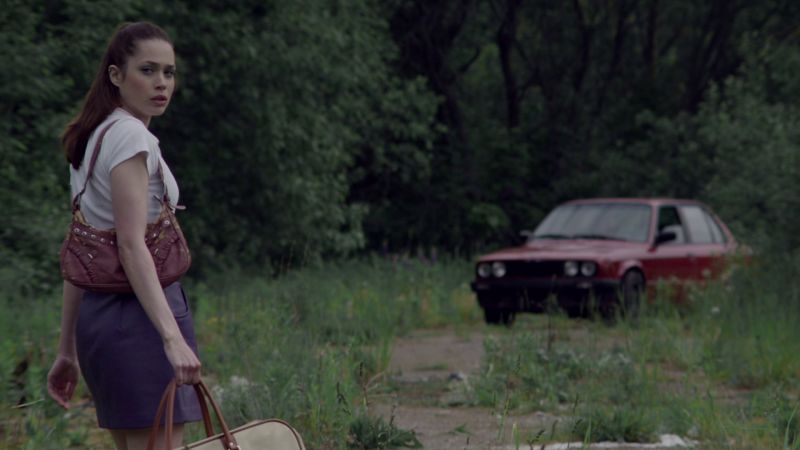
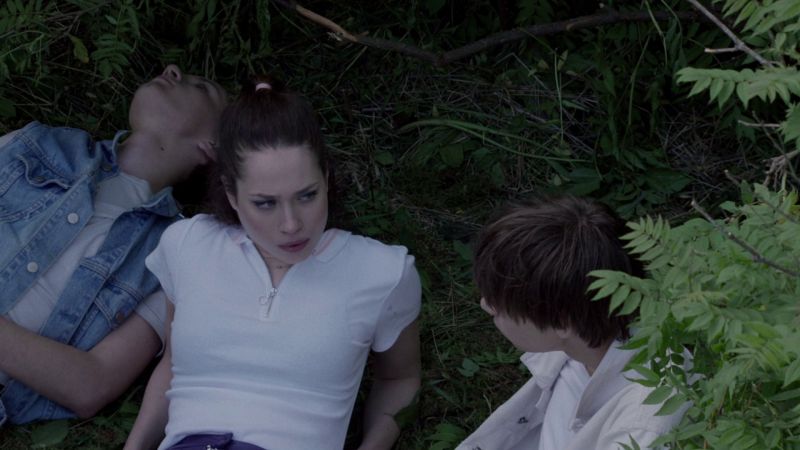
 Pardaviau klasiokę (I Sold My Classmate)
Pardaviau klasiokę (I Sold My Classmate)
Litauen 2021 | Farbe |
13:00 | Litauisch
 Pardaviau klasiokę (I Sold My Classmate)
Pardaviau klasiokę (I Sold My Classmate)
Lithuania 2021 | Color |
13:00 | Lithuanian
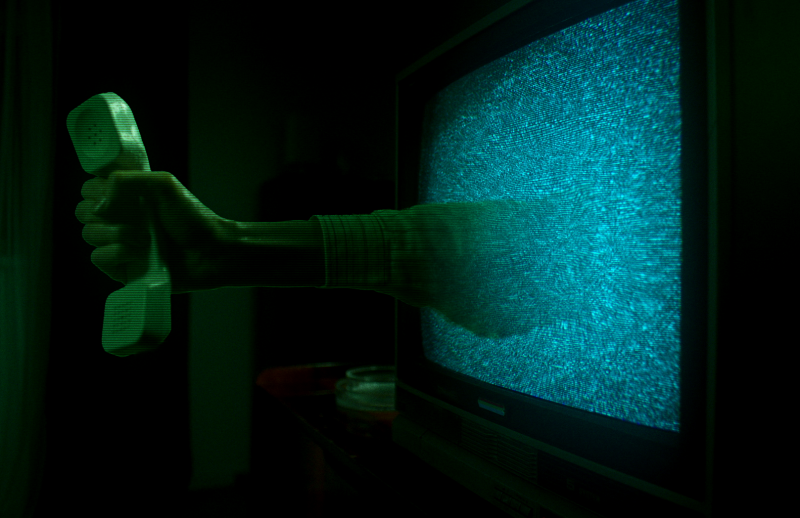
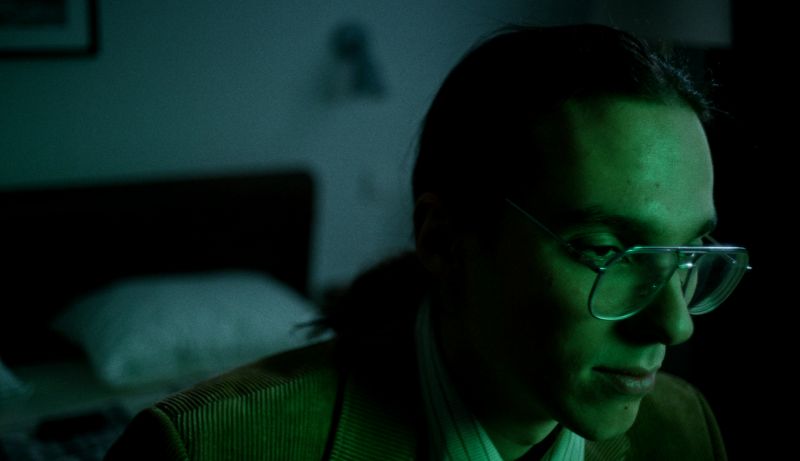
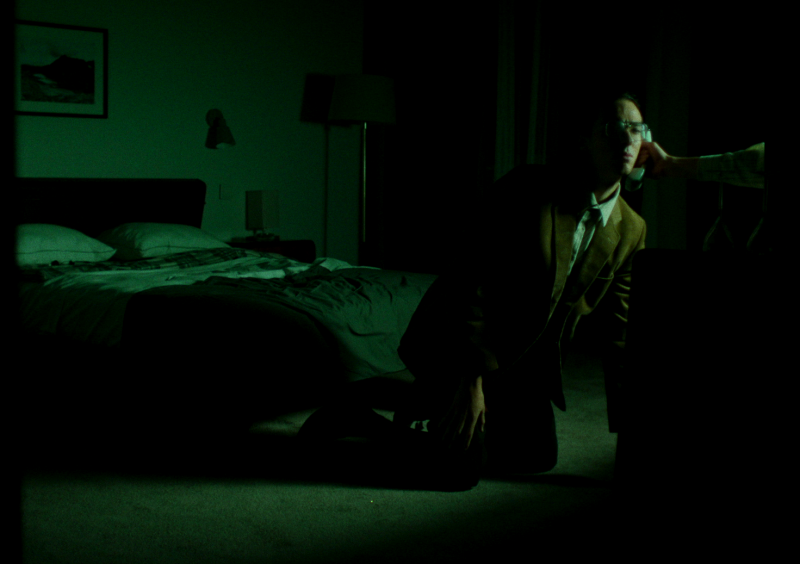
 Poilsis (The Rest)
Poilsis (The Rest)
Litauen 2020 | Farbe |
04:31 | Kein Dialog
 Poilsis (The Rest)
Poilsis (The Rest)
Lithuania 2020 | Color |
04:31 | No Dialogue
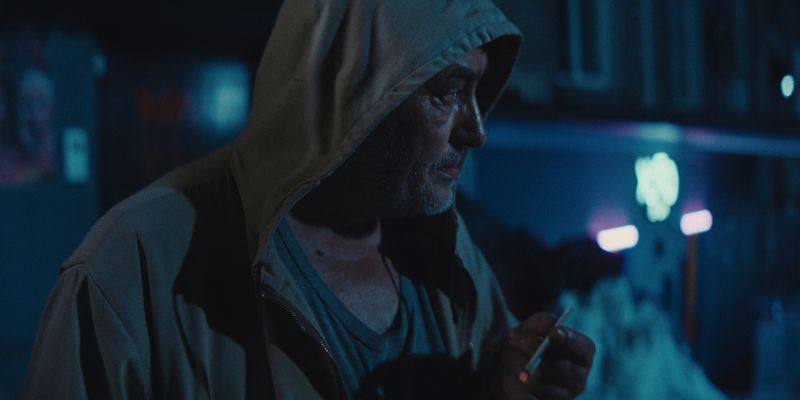
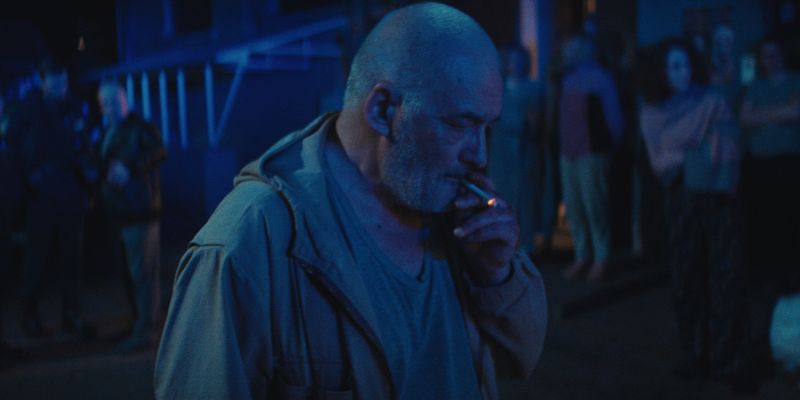
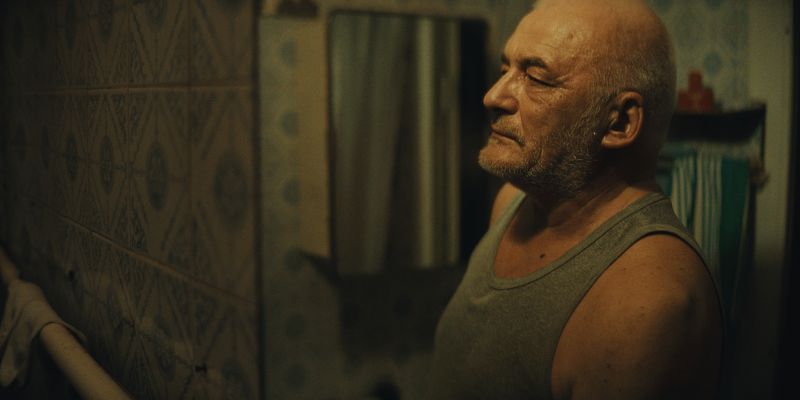
 Artimas kontaktas (Glitter Kiss)
Artimas kontaktas (Glitter Kiss)
Litauen 2025 | Farbe |
18:50 | Litauisch
 Artimas kontaktas (Glitter Kiss)
Artimas kontaktas (Glitter Kiss)
Lithuania 2025 | Color |
18:50 | Lithuanian

Open Screen Session share
Open Screen Session share
Thu, 05.06. 20:00
Festivalzentrum Post
Zum inoffiziellen Abschluss bietet die Open Screen Session die Gelegenheit,gemeinsam Filme zu entdecken und den Tag entspannt ausklingen zu lassen. Studierende haben die Möglichkeit, ihre eigenen Arbeiten — ob Kurzfilm, Experiment oder Rohschnitt — spontan mitzubringen und sich und ihre Werke auf der großen Leinwand zu präsentieren.
As an unofficial finale, the Open Screen Session offers a chance to discover films together and bring the day to a close. Students have the opportunity to spontaneously bring their own work — whether it’s short films, experiments or rough cuts — and present themselves and their work on the big screen.

Pitch, Please! – From Story to Screen share
Pitch, Please! – From Story to Screen share
Wed, 04.06. 10:00
Festival Center Post Tanzstudio Jenny Beyer

Pitching ist eine Kunst — und eine essentielle Fähigkeit für alle, die ihre Filme realisieren möchten. Der Workshop »Pitch, Please! — From Story to Screen« bringt Teilnehmer:innen des Filmhochschultages das Handwerkszeug zwischen Theorie und Praxis bei und klärt dabei zentrale Fragen wie: Worum geht in meinem Film—in einem Satz? Wie wecke ich Interesse? Wie erzähle ich in wenigen Minuten von meinem Projekt? Was macht mein Projekt einzigartig? Und wie überzeuge ich potenzielle Partner:innen von meiner Vision?
Die Ergebnisse des Workshops werden am nächsten Tag im Rahmen des Filmhochschultags präsentiert. Der Workshop wird von Norma Giannetta geleitet. Sie ist Scriptcoach und begleitet Filmprojekte wie Didi Contractor (2019) und Box (2024). Außerdem leitet sie Pitch-Coachings bei den Internationalen Kurzfilmtagen Winterthur und ist Präsidentin der Cinématte Bern.
Pitching is an art — and an essential skill for anyone who wants to realize their films. The workshop »Pitch, Please! — From Story to Screen« teaches Film School Day participants the tools of the trade between theory and practice and clarifies key questions such as: What is my movie about — in one sentence? How do I arouse interest? How do I talk about my project in just a few minutes? What makes my project unique? And how do I convince potential partners of my vision?
The results of the workshop will be presented the next day as part of the Film School Day. The workshop will be held by Norma Giannetta. She is a script coach and accompanied film projects such as Didi Contractor (2019) and Box (2024). Norma also leads pitch coaching sessions at the International Short Film Festival Winterthur and is president of Cinématte Bern.

Präsentation: Pitch, Please! – From Story to Screen share
Presentation: Pitch, Please! – From Story to Screen share
Thu, 05.06. 13:50
Festival Center Post Saal

Im Workshop »Pitch, Please! — From Story to Screen« arbeiteten Studierende an der Entwicklung und Präsentation ihrer Filmideen, um Inhalte und persönliche Handschrift überzeugend zu vermitteln. Jetzt präsentieren sie ihre Ergebnisse: kreative Pitches, die von dokumentarischen über fiktionale bis hin zu hybriden Projekten die Vielfalt und Leidenschaft der nächsten Generation Filmschaffender zeigen.
In the »Pitch, Please! — From Story to Screen« workshop, students worked on developing and presenting their film ideas in order to convincingly convey their content and personal style. Now they are presenting their results: creative pitches that show the diversity and passion of the next generation of filmmakers, from documentary to fictional and hybrid projects.

Table Talk, Dein direkter Draht zur Branche share
Table Talk: Your Direct Line to The Industry, Your Direct Line to the Industry share
Thu, 05.06. 15:00
Festival Center Post Saal

Wie geht es weiter nach dem Film? Welche Wege gibt es für Vertrieb, Festivals und Förderung? »Table Talk« bringt Studierende und Branchenvertreter:innen an einen Tisch—im wahrsten Sinne des Wortes. In Kleingruppen haben die Teilnehmenden die Möglichkeit, in vier 15-minütigen Slots in direkten Austausch mit Expert:innen aus Vertrieb, Festivalstrategie, Produktion und Nachwuchsförderung zu gehen.
Mit dabei sind unter anderem Julia Grosch (Studio Hamburg Production Group), Armin Schneider (YTF Young Talent Foundation), Andreas Rautenberg (Hamburg Kreativ Gesellschaft), Katie und Ian Bignell (Festival Formular), Lisa Emer (Creative Europe Desk Hamburg), Amos Geva (T-Port), Tam Dan Vu (Travelling Distribution), Stella Flicker (MOIN Filmförderung Hamburg Schleswig-Holstein), Kurzfilm Verleih Hamburg, Kurzfilm Vertrieb Hamburg sowie weitere Vertreter:innen aus der Branche.
What happens after making the film? What paths are there for distribution, festivals and funding? »Table Talk« brings students and industry representatives together—in the truest sense of the word. In small groups, participants have the opportunity to engage in a direct exchange with experts from distribution, festival strategy, production and the promotion of young talent in four 15-minute slots.
Participants include Julia Grosch (Studio Hamburg Production Group), Armin Schneider (YTF Young Talent Foundation), Andreas Rautenberg (Hamburg Kreativ Gesellschaft), Katie and Ian Bignell (Festival Formular), Lisa Emer (Creative Europe Desk Hamburg), Amos Geva (T-Port), Tam Dan Vu (Travelling Distribution), Stella Flicker (MOIN Filmförderung Hamburg Schleswig-Holstein), Kurzfilm Distribution Hamburg, Kurzfilm Sales Hamburg and other industry representatives.

İlker Çatak About Professionalization share
İlker Çatak über Professionalisierung share
Thu, 05.06. 10:00
Festival Center Post Saal

Der Übergang vom Studium ins freie künstlerische Arbeiten verläuft selten geradlinig. Zwischen Ausbildung und Beruf liegen oft Unsicherheiten, Fragen und Chancen. Regisseur İlker Çatak spricht mit Moderatorin Jing Haase über seinen Weg in die Filmbranche — von seinem Studium an der Hamburg Media School über frühe Festivalerfolge, etwa beim Kurzfilm Festival Hamburg, bis hin zu internationaler Anerkennung. Sein Spielfilm Das Lehrerzimmer war 2024 für den Oscar als Bester Internationaler Film nominiert.
Im Gespräch gibt er persönliche Einblicke in Entscheidungen, Hürden und Wendepunkte, die ihn geprägt haben. Was brauchen junge Filmschaffende wirklich, um ihren Einstieg zu finden? Welche Strukturen helfen und wo liegt die Verantwortung der Branche? Ein Gespräch über Professionalität, Beharrlichkeit und den langen Atem im Filmemachen—für alle, die den Sprung von der Ausbildung in die freie Praxis wagen wollen.
Eingeladen durch die MOIN Filmförderung Hamburg Schleswig-Holstein
Transitioning from studying to working as a freelance artist rarely works out in a straightforward manner. There are often uncertainties, questions, as well as opportunities, between training and career. Director İlker Çatak talks to presenter Jing Haase about his path into the film industry—from his studies at the Hamburg Media School to early festival successes, such as at the Kurzfilm Festival Hamburg, to international recognition. His feature film The Teachers’ Lounge was nominated for an Oscar for Best International Film in 2024.
In this interview, he provides personal insights into the decisions, hurdles and turning points that have shaped him. What do young filmmakers really need to get started? What structures help and where does the industry’s responsibility lie? A conversation about professionalism, perseverance and staying power in filmmaking—for anyone who wants to take the leap from training to freelance work.
Invited by MOIN Filmförderung Hamburg Schleswig-Holstein

 Post Nights – Festivalclub
Post Nights – Festivalclub
If you watch a lot of movies, you need enough physical exercise to compensate. Luckily there is danceable music and bar action every night in the festival club! Whether it’s with one of numerous DJs, at the music video night or with the festival team itself at the desks. Open for all, always free, always fun.

Korora & Raspe share
Korora & Raspe share
Sat, 07.06. 23:00
Festival Center Post Club
Korora will mit seiner elektronischen Musik Menschen zusammenbringen, berühren und verbinden. Wenn die Ära der zwischenmenschlichen Kälte anbricht, muss auf der Tanzfläche zusammengerückt werden! Danach tanzen wir mit Raspe durch die Nacht.
Korora wants to bring people together, touch them and connect them with his electronic music. When the era of interpersonal coldness dawns, we have to move together on the dance floor! Then we dance the night away with Raspe.

nico palermo (Riaa Bar) & mimsy share
nico palermo (Riaa Bar) & mimsy share
Thu, 05.06. 21:00
Festival Center Post Club
Listening Session mit Scores, Library Music und Exotica – kuratiert von nico palermo (Riaa Bar) mit einem ganz besonderen Gast: mimsy.
Listening session featuring, scores, library and exotica hosted by nico palermo (Riaa Bar) and with very special guest mimsy.

SYNC.night: Nika Son & Stefan Goldmann share
SYNC.night: Nika Son & Stefan Goldmann share
Fri, 06.06. 23:00
Festival Center Post Club
Wir syncen unsere Festivals: blurred edges – Festival für aktuelle Musik Hamburg, Fringify – Independent Arts Festival Hamburg und Kurzfilm Festival Hamburg laden in der Nacht vom 6. Juni zur SYNC.night in die Post am Kaltenkircher Platz. Wir denken: three's a party!
Nika Son arbeitet als Musikerin, Künstlerin, Filmkomponistin, DJ und Kuratorin. Ihre DJ-Sets schlängeln sich von früher Musique Concrète über obskure Library Music bis zu abseitigem Synth-Wave. Sie oszillieren zwischen hellen Polyrhythmen und dunklen Maschinenräumen, mit Ausflügen in Downtempo und Proto-techno.
Stefan Goldmann gilt als einer der innovativsten Künstler der heutigen Techno-Szene. Seine DJ-Sets folgen denselben experimentellen Prinzipien, für die auch sein Label Macro steht. Regelmäßig tourt er durch Europa, Asien, Australien sowie Nord- und Südamerika und legt seit 2006 regelmäßig im Berliner Berghain auf. Besondere Formate führten ihn in renommierte Spielorte wie das LACMA in Los Angeles, den Honen-in-Tempel in Kyoto und die Berliner Philharmonie, für die er seit 2020 auch das Strom Festival kuratiert.
We sync our festivals: blurred edges - Festival for contemporary music Hamburg, Fringify - Independent Arts Festival Hamburg and Kurzfilm Festival Hamburg invite you to SYNC.night at the Post am Kaltenkircher Platz on the night of June 6. We think: three's a party!
Nika Son works as a musician, artist, film composer, DJ and curator. Her DJ-sets throb between flicker, weaving waywardly from early concrète to synth wave, oscillating from polyrhythms through industrial fields and breaking downtempo into slope techno.
Stefan Goldmann is regularly credited as one of today’s most adventurous artists in techno. His DJ sets evolve around the same cutting edge principles as applied to his label Macro. He tours regularly throughout Europe, Asia, Australia and the Americas, and has been playing regularly at Berghain since 2006. Special format performances saw him sell out iconic venues such as LACMA Los Angeles, Kyoto's Honen-in Temple and the Berlin Philharmonic, for which he also curates Strom Festival since 2020.

 Around the Post
Around the Post
With the Post as our Festival Centre, we're situated right at the very epicentre of one of Hamburg's largest inner-city spaces in transition here in the district of Altona. What grew and grew over a long period of time is now being converted, rethought, reconnected. A concert hall, a new public transport station, a whole cultural apparatus. We are taking a look at what has been – and what is still to come: The exhibition "Where do all the people live?" (daily from 11 am, free admission) shows photographs by Heinrich Klaffs and the film “Raus!” by Achim Buttmann. Neighbourhood tours around Diebsteich (Fri. 06.06., 4:40 p.m., English / Sun. 08.06., 4 p.m., German / with registration) and a lecture (Sun. 08.06., 5:30 p.m., German) shed light on the history and planned changes to the area.

Ausstellungseröffnung: Wo wohnen alle Leute? share
Exhibition Opening: Where do all the people live? share
Tue, 03.06. 19:00
Festivalzentrum Post

Täglich geöffnet ab 11:00 Uhr bis spät.
»Wo wohnen alle Leute«, der Titel der Ausstellung, lehnt sich an den Film Wo wohnen alte Leute von Ella Bergmann-Michel aus dem Jahr 1932 an, in dem die Regisseurin die Bewohner:innen eines Frankfurter Seniorenstifts in ihrem neuen Heim besucht. Hamburg war nach dem Zweiten Weltkrieg nahezu komplett zerstört. Viele Menschen lebten unter prekären Umständen. Zu denen, die schon und noch hier waren, kamen die, die keinen Raum und oft auch keine Heimat mehr hatten. Und dann gab es jene, die keine Miete bezahlen konnten. Sie wurden in sogenannten Soziallagern und Notunterkünften untergebracht – wie in den später abgerissenen Blöcken I und II der Viktoria-Kaserne in Hamburg-Altona. In diesem Komplex waren Menschen einquartiert, die von der Sozialbehörde als »nicht integrierbar in normalen Wohnraum erachtet« wurden, darunter Frauen aus dem Frauenwohnlager im Ausschläger Weg in Hamburg-Borgfelde, denen der zuständige »Fürsorgeinspektor« Geschlechtsverkehr mit mehreren Männern unterstellt hatte. Oder auch Familien, die noch keine Wohnung gefunden hatten. Zu viele Menschen lebten auf engstem Raum in der Viktoria-Kaserne zwischen 1962 und 1975. Der Dokumentarfilm Raus! und einige Bilder des Fotografen Heinrich Klaffs erzählen ihre Geschichte.
Open daily from 11 am till late.
»Wo wohnen alle Leute«, the German title of the exhibition, is a reference to Ella Bergmann-Michel's film Where the Old People Live from 1932, in which the director visits the residents of a Frankfurt eldercare facility in their new home. By the end of the Second World War, Hamburg had been almost completely destroyed. Many people were living under precarious circumstances. Those already (or still) here were joined by an influx of those that had no space and often no place to call home anymore either. And then there were those who could not afford to pay rent. They were accommodated in so-called welfare camps and emergency shelters – such as blocks I and II of the Viktoria Barracks in Hamburg-Altona which would later be demolished. This complex housed individuals who were »deemed incapable of being integrated into normal housing« by the social welfare authorities, including women from the women's residential camp located on Ausschläger Weg in Hamburg-Borgfelde who had been accused by the »welfare inspector« responsible for the facility of having had sexual intercourse with several men. Families that had not yet found flats were also given this designation. Too many people lived in extremely cramped quarters in the Victoria Barracks between 1962 and 1975. The documentary film Raus! and a selection of pictures by photographer Heinrich Klaffs tell their story.
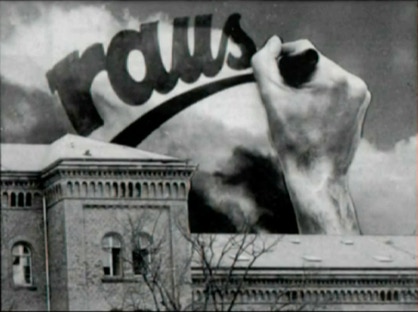
 Raus!
Raus!
 Raus!
Raus!
Ein Film von Achim Buttmann, der Gemeinwesenarbeit und Bewohner:innen der Eggerstedtstraße 41 | Germany 1972-1976 | 40’00 | Black & White | German
Die Bewohner:innen in der ehemaligen Viktoria-Kaserne sahen sich zahlreichen Formen der Stigmatisierung und Diskriminierung ausgesetzt und litten unter Perspektivlosigkeit. Die Jüngeren wurden als »Lagerkinder« ausgrenzt. Doch Anfang der 1970er-Jahre kam Bewegung in die Angelegenheit. Linke Sozialarbeiter:innen, Studierende und Lehrende des Sozialpädagogischen Zusatzstudiums der Universität Hamburg verbündeten sich mit den Bewohner:innen, die ihre Rechte einforderten. Sie organisierten Proteste und Hausversammlungen, gemeinsame Feste und Aktivitäten. Die Gemeinwesenarbeit Eggerstedtstraße, Vorläuferin der GWA St. Pauli, entstand. »Wir wollen endlich raus, raus aus diesem Haus!« lautete nun das Motto. Und war schließlich von einem (Teil-)Erfolg gekrönt: Das Wohnlager wurde 1975 aufgelöst und die Bewohner:innen konnten in Sozialwohnungen am Osdorfer Born und Altbauwohnungen in St. Pauli Süd umziehen. Der Film Raus! von Achim Buttmann fängt diese bewegte und kämpferische Zeit in atmosphärisch dichten Schwarzweißaufnahmen ein. (Theo Bruns)
A film by Achim Buttmann, realised with the community organising centre and residents of Eggerstedtstraße 41 | Germany 1972-1976 | 40’00 | Black & White | German
The residents of the former Viktoria Barracks found themselves exposed to numerous forms of stigmatisation and discrimination and suffered from a lack of prospects and opportunity. The younger ones among them were marginalised as »camp kids«. However, in the early 1970s, things started to shift. Left-leaning social workers, students and teachers from the post-graduate social pedagogy program at the University of Hamburg allied themselves with the residents who were demanding their rights. Together, they organised protests and house meetings, celebrations and diverse activities. The Eggerstedtstraße community organising centre (»Gemeinwesenarbeit«), a precursor to the GWA St. Pauli, was created. »We want out, finally, out of this house!« now became their slogan. Ultimately, they would prove (at least partially) successful: the residential facility was disbanded in 1975 and the residents were able to move into social housing units in Osdorfer Born and flats in old buildings on the south side of St. Pauli. Achim Buttmann's film Raus! captures this eventful and combative era in atmospherically dense black-and-white images. (Theo Bruns)
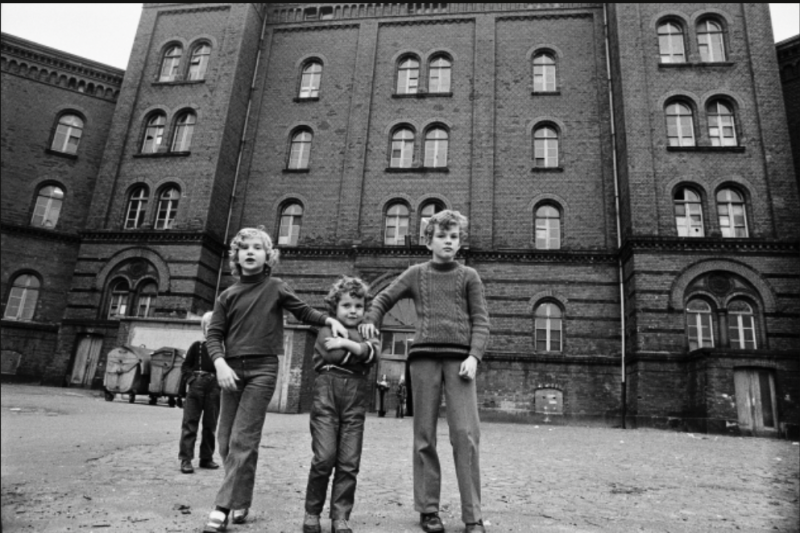
 Fotografien von Heinrich Klaffs
Fotografien von Heinrich Klaffs
 Fotografien von Heinrich Klaffs
Fotografien von Heinrich Klaffs
1972 fanden in Hamburg-St. Georg die ersten Hausbesetzungen statt. Dazu kamen große Demonstrationen, die immer wieder darauf hinwiesen, was wirklich in der Stadt gebraucht wurde: Wohnraum. Fotografien und Film sind ein wichtiges Stück Zeitgeschichte und begleiten solche Prozesse in der Stadt. Heinrich Klaffs, Anfang der 1970er-Jahre von Berlin nach Hamburg gekommen, fotografierte einige Jahre für das Hamburger Abendblatt. Schwarz-weiß und auf Kleinbild. Die sozialen Themen interessierten und berührten ihn persönlich am meisten. Die von ihm ausgestellten Bilder zeigen Hamburg zwischen Neubau und Abriss und dokumentieren u. a. das Soziallager in der Viktoria-Kaserne, Fassaden im Karoviertel, das Wohnviertel im Osdorfer Born und das Paketpostamt, in dem sich das Kurzfilm Festival Hamburg heute befindet.
Kuratorin: Maike Mia Höhne
The first squatting of abandoned buildings took place in Hamburg-St. Georg in 1972. These actions were accompanied by large demonstrations that repeatedly called attention to what was really needed in the city: housing. Photographs and film represent an important piece of contemporary history and accompany the processes at play in the city. Heinrich Klaffs, who moved to Hamburg from Berlin in the early 1970s, worked as a newspaper photographer for a number of years for the Hamburger Abendblatt, producing small-format images in black-and-white. The subjects that most interested and moved him personally were social issues. The pictures he has selected for this exhibition depict Hamburg amid new construction and demolition, documenting among other things the welfare camp in the Viktoria Barracks, housefronts in Karoviertel, the residential neighbourhood in Osdorfer Born and the Parcel Post Office that is today home to Kurzfilm Festival Hamburg.
Curator: Maike Mia Höhne.

Vortrag: Freizeit, Sport und Zwangsarbeit, Zur Historischen Entwicklung des Diebsteich-Geländes share
Lecture: Leisure Time, Sports and Forced Labour, On The Historical Development of the Diebsteich Grounds share
Sun, 08.06. 17:30
Infozentrum Diebsteich
Vom Galgenhügel über den Luna-Park bis zum Paketpostamt: Das Diebsteich-Gelände blickt auf eine bewegte Vergangenheit zurück. Sie begann mit sumpfigen Wiesen, einer Wassermühle und dem Altonaer Galgen. Ein geplantes gutbürgerliches Quartier wurde nie gebaut, dafür aber kurz vor dem Ersten Weltkrieg der Vergnügungspark Luna-Park und der Endbahnhof der Altona-Kaltenkirchener Bahn. Die Stadtplaner der Weimarer Republik schufen ein großes Sportgelände, flankiert mit Wohnbauten und dem ikonischen Oelsnerschen Arbeitsamt. Der Sportplatz diente den Nazis für den Bau eines großen Lagers für Zwangsarbeiter:innen und Kriegsgefangene. In den 1960er-Jahren folgte mit Bau des Paketpostamtes der bis dato größte städtebauliche Eingriff. Der Journalist und Historiker Dr. Holmer Stahncke gibt einen Einblick zur historischen Entwicklung des Diebsteich-Geländes.
Dauer ca. 60 min
Eintritt frei
From the Galgenhügel via Luna Park over to the Parcel Post Office: the Diebsteich grounds have witnessed an eventful past. It began with marshy meadows, a watermill and the Altona gallows. A planned middle-class residential district was never built, but the Luna Park amusement area and the terminal station of the Altona-Kaltenkirchen railway were realised shortly before World War One. The urban planners of the Weimar Republic created a large athletic area, flanked by residential buildings and the iconic employment office designed by Gustav Oelsner. The athletic field served the Nazis for the construction of a large camp for forced labourers and prisoners of war. This was followed in the 1960s by the construction of the Parcel Post Office, the largest urban development intervention in Hamburg to date. Journalist and historian Dr. Holmer Stahncke will provide insight into the historical development of the Diebsteich grounds.
Where? Infozentrum Diebsteich
Duration: approx. 60 minutes
Admission free
This event is in German.

Stadtteilrundgang am Diebsteich inkl. Thyssenkrupp-Areal share
Neighbourhood Tour Around Diebsteich (Including the Thyssenkrupp Grounds) share
Fri, 06.06. 16:30
Festival Center Post Open Air

Das ehemalige ThyssenKrupp-Areal an der Waidmannstraße wird neu entwickelt – direkt neben dem künftigen Fernbahnhof Hamburg-Altona. Ein Stadtteilrundgang beleuchtet die Geschichte des Areals sowie die geplanten Veränderungen rund um den Diebsteich, darunter neue Nutzungen des ThyssenKrupp-Areals und des Gebiets zwischen der S-Bahn Diebsteich und dem Paketpostamt.
Teilnahme nur mit Anmeldung: diebsteich-mittealtona@steg-hamburg.de
Eintritt frei
Dauer: 60-75 Minuten
Treffpunkt: Eingangsbereich Festivalzentrum Post
Diese Tour findet in Englischer Sprache statt.
Eine Veranstaltung in Kooperation mit der Behörde für Stadtentwicklung und Wohnen sowie der steg Hamburg.
The former ThyssenKrupp grounds on Waidmannstraße are in the midst of redevelopment – right next to the future Hamburg-Altona long-distance train station. A tour of the neighbourhood seeks to illuminate the history of the area as well as the planned changes around Diebsteich, including new uses for the ThyssenKrupp grounds and the area between S-Bahn Diebsteich and the Parcel Post Office.
Please register to participate at: diebsteich-mittealtona@steg-hamburg.de
Admission free
Duration: 60-75 minutes
Meeting place: Outside at Festival Center Post
Event is in English.
This event is organised in co-operation with Behörde für Stadtentwicklung und Wohnen and steg Hamburg.

Stadtteilrundgang am Diebsteich inkl. Thyssenkrupp-Areal share
Neighbourhood Tour Around Diebsteich (Including the Thyssenkrupp Grounds) share
Sun, 08.06. 16:00
Festival Center Post Open Air

Das ehemalige ThyssenKrupp-Areal an der Waidmannstraße wird neu entwickelt – direkt neben dem künftigen Fernbahnhof Hamburg-Altona. Ein Stadtteilrundgang beleuchtet die Geschichte des Areals sowie die geplanten Veränderungen rund um den Diebsteich, darunter neue Nutzungen des ThyssenKrupp-Areals und des Gebiets zwischen der S-Bahn Diebsteich und dem Paketpostamt.
Teilnahme nur mit Anmeldung: diebsteich-mittealtona@steg-hamburg.de
Eintritt frei
Dauer: 60-75 Minuten
Treffpunkt: Eingangsbereich Festivalzentrum Post
Eine Veranstaltung in Kooperation mit der Behörde für Stadtentwicklung und Wohnen sowie der steg Hamburg.
The former ThyssenKrupp grounds on Waidmannstraße are in the midst of redevelopment – right next to the future Hamburg-Altona long-distance train station. A tour of the neighbourhood seeks to illuminate the history of the area as well as the planned changes around Diebsteich, including new uses for the ThyssenKrupp grounds and the area between S-Bahn Diebsteich and the Parcel Post Office.
Please register to participate at: diebsteich-mittealtona@steg-hamburg.de
Admission free
Duration: 60-75 minutes
Meeting place: Outside at Festival Center Post
Event is in German.
This event is organised in co-operation with Behörde für Stadtentwicklung und Wohnen sowei der steg Hamburg.

